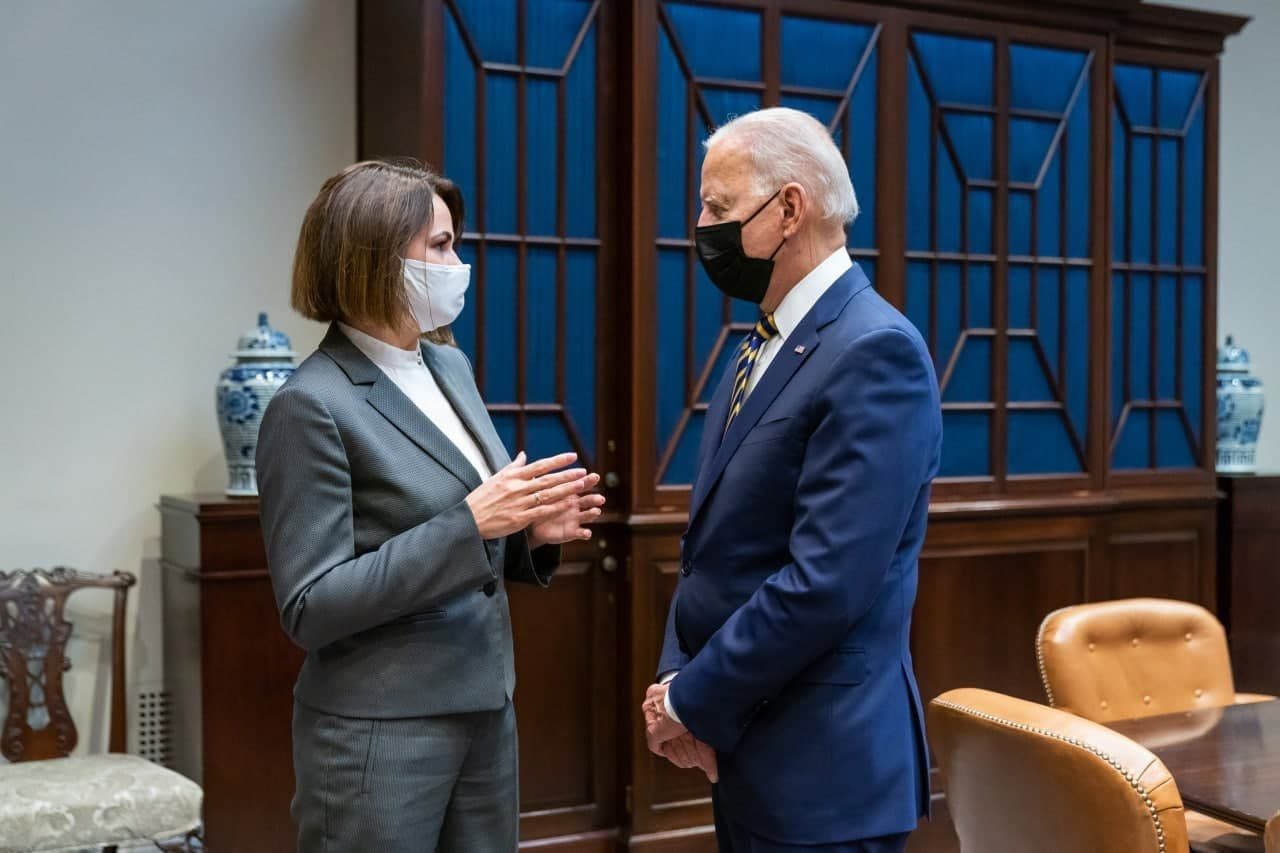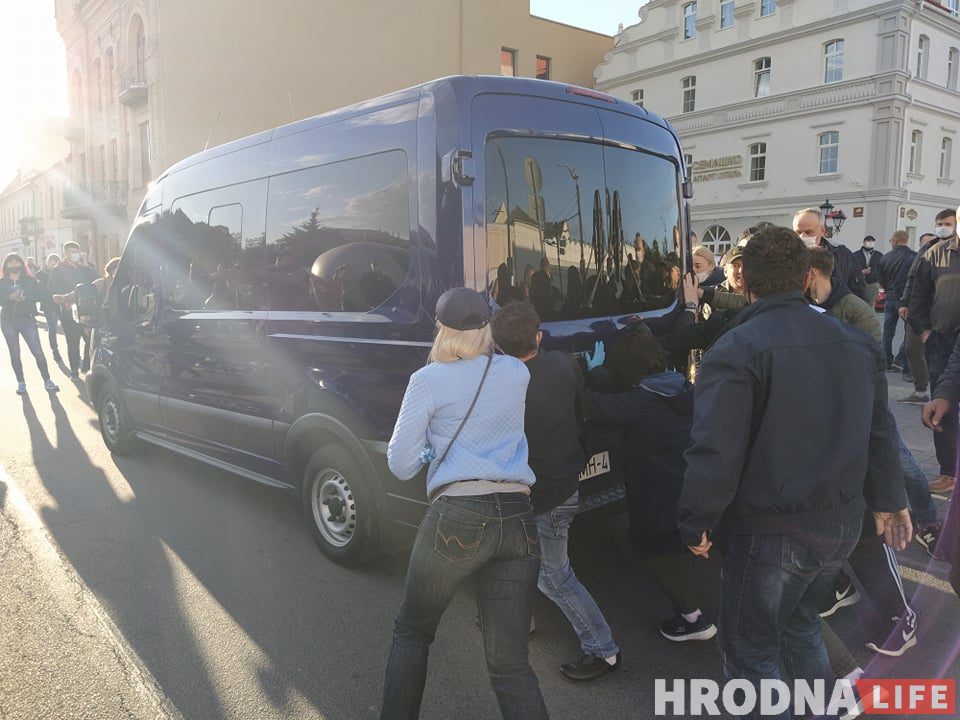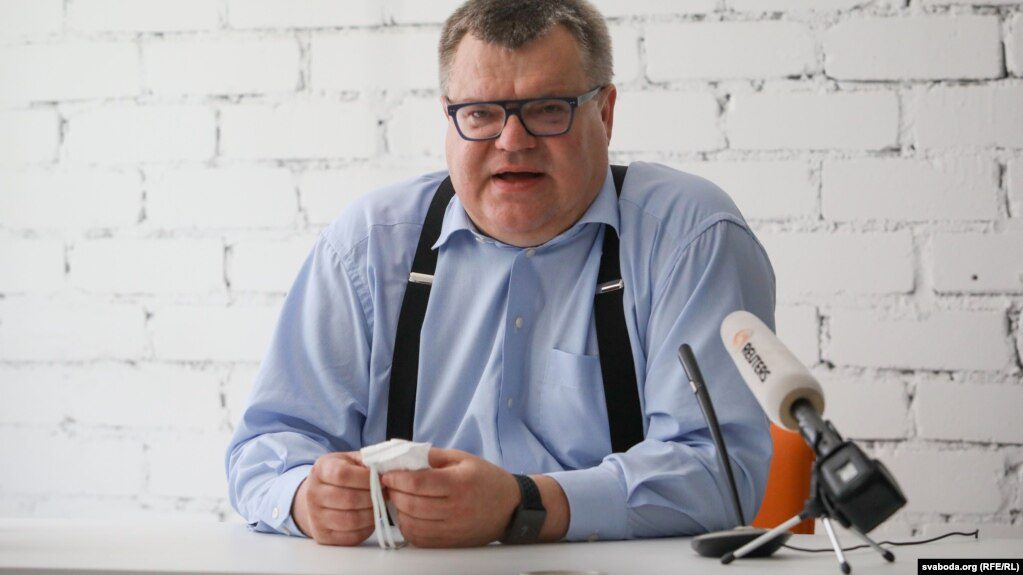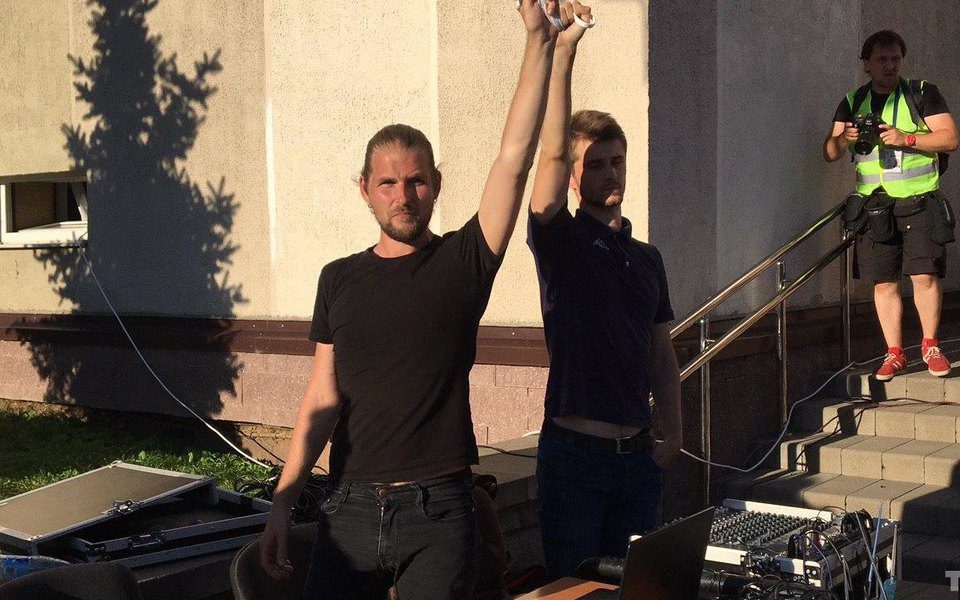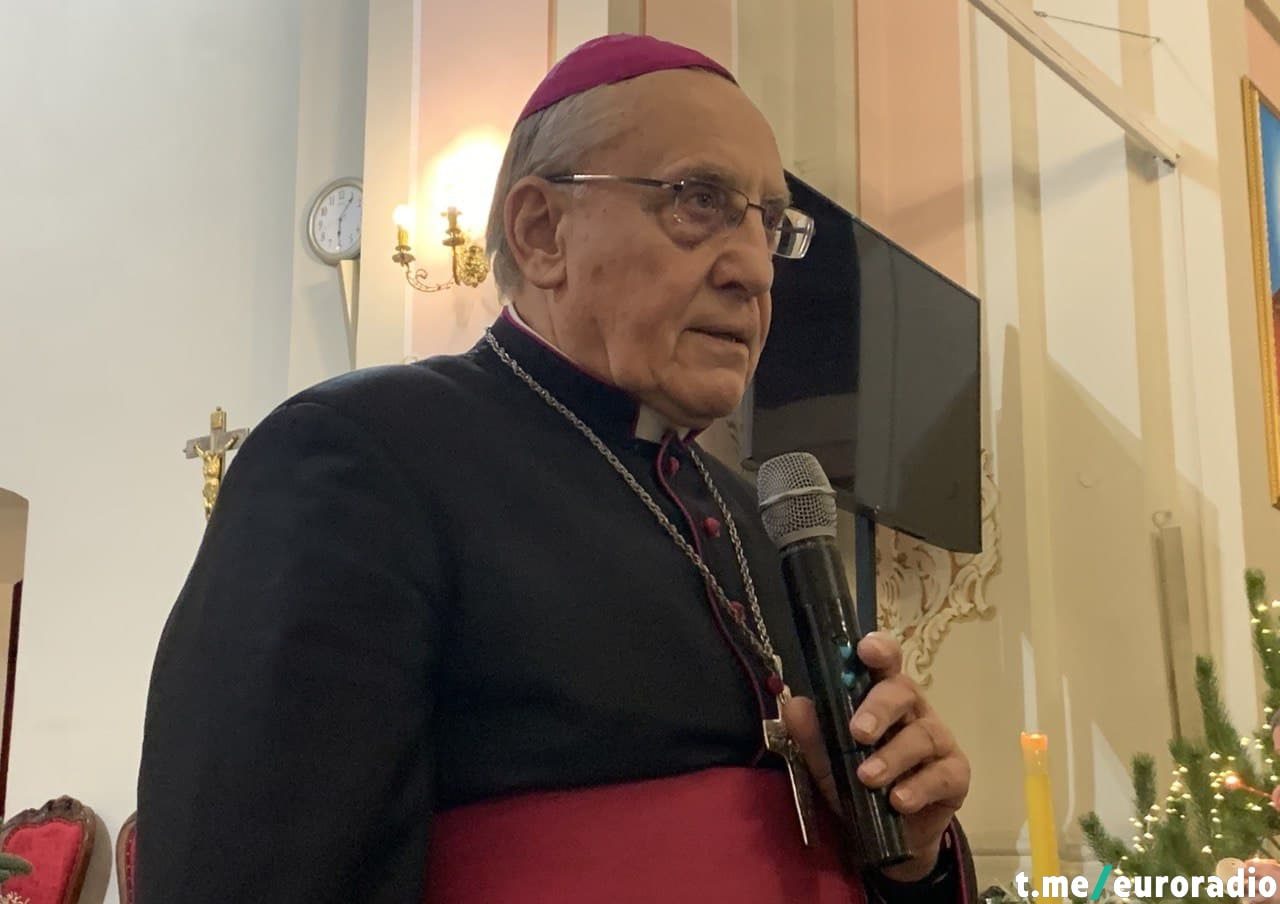Belarussian Parliament set the date of presidential elections 2020 on 9 August
Deadline for candidates to apply for election. There were 55 applications, the biggest number in the modern history of Belarus.
The most popular presidential candidates were Valieryj Capkala, a politician, diplomat and co-founder of the Belarus High Technology Park (HTP), Viktar Babaryka, a banker, former president of Belgazprombank, and a blogger Siarhiej Cichanoŭski, who was not registered by the Central Election Commission (CEC) due to the lack of a self-signed declaration (a week before that Cichanoŭski had been arrested). One hour before the end of the application process, his wife, Sviatlana Cichanoŭskaja, submitted documents to the CEC to register her election committee. After being released from the detention centre, Siarhei became the leader of Sviatlana's election committee.

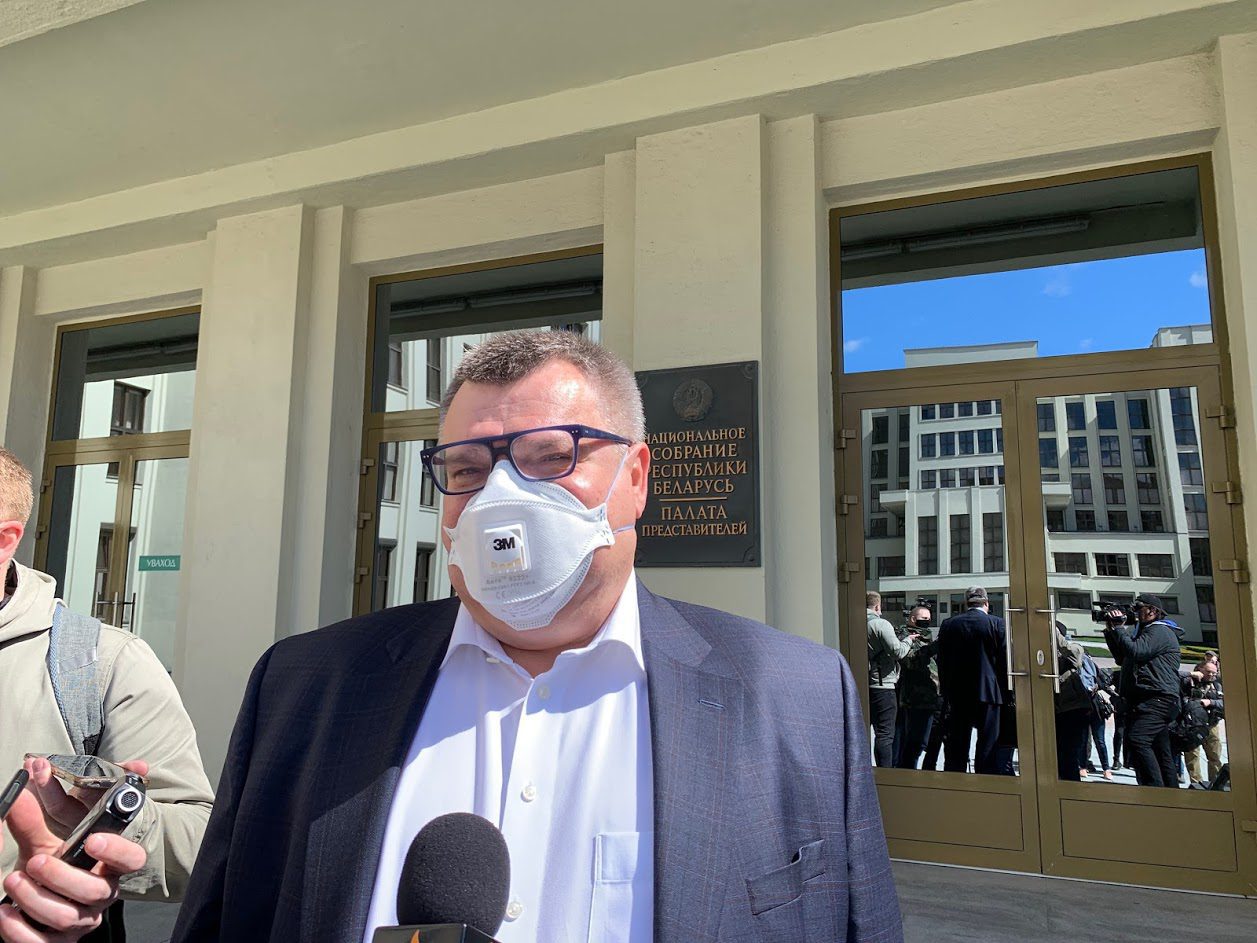
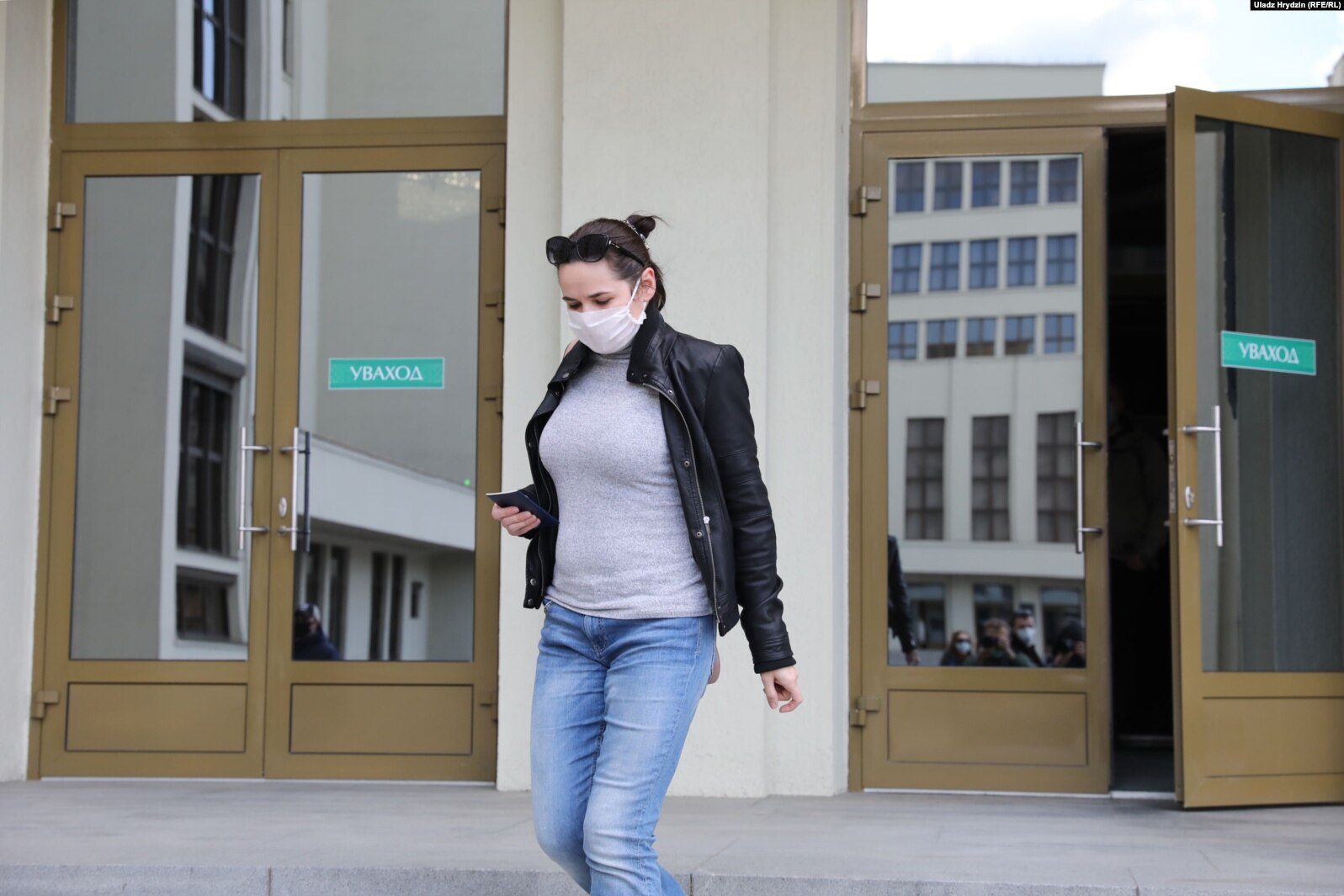
Election Committee registered 15 initiative groups. So they started to collect signatures.
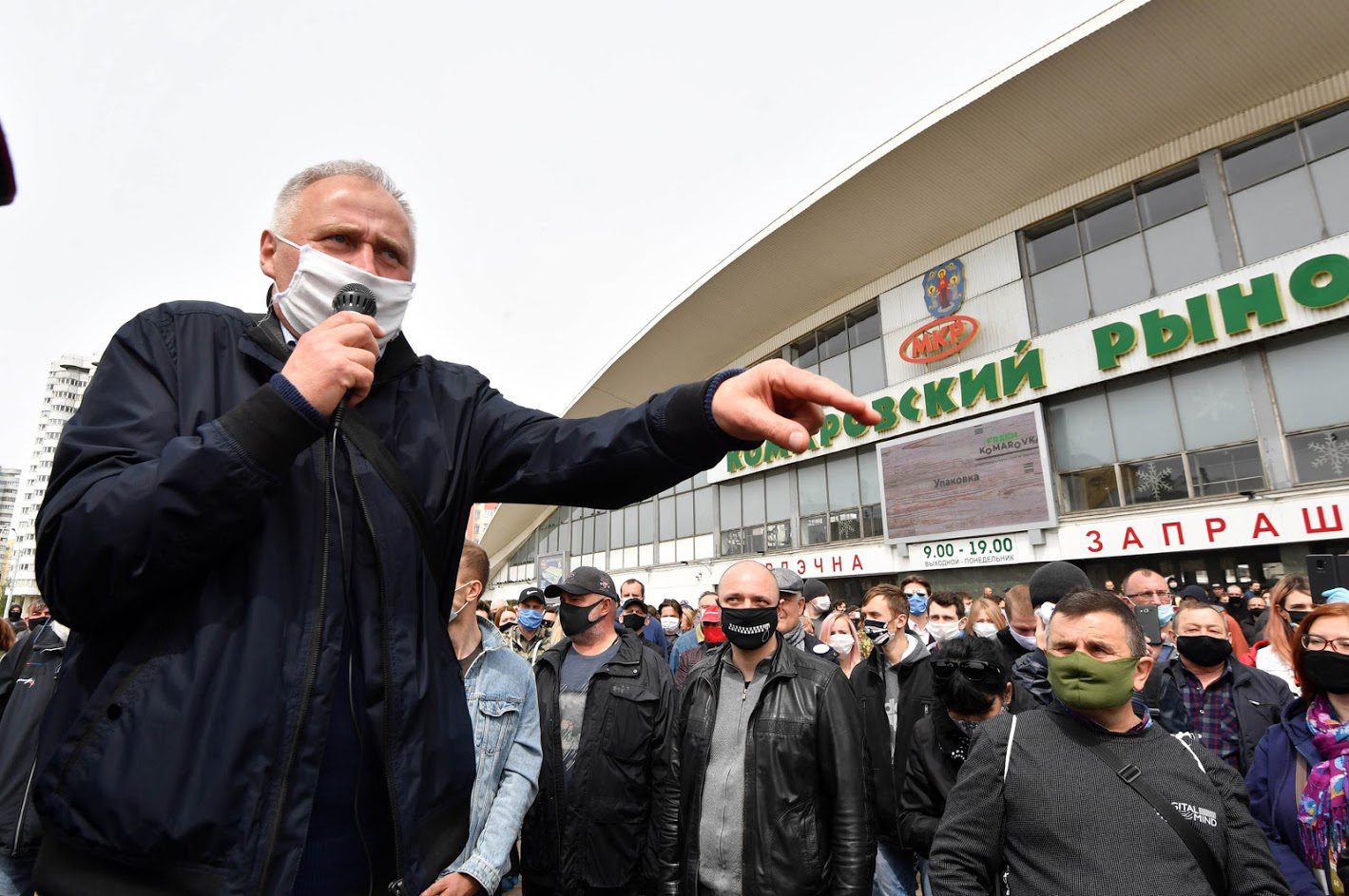
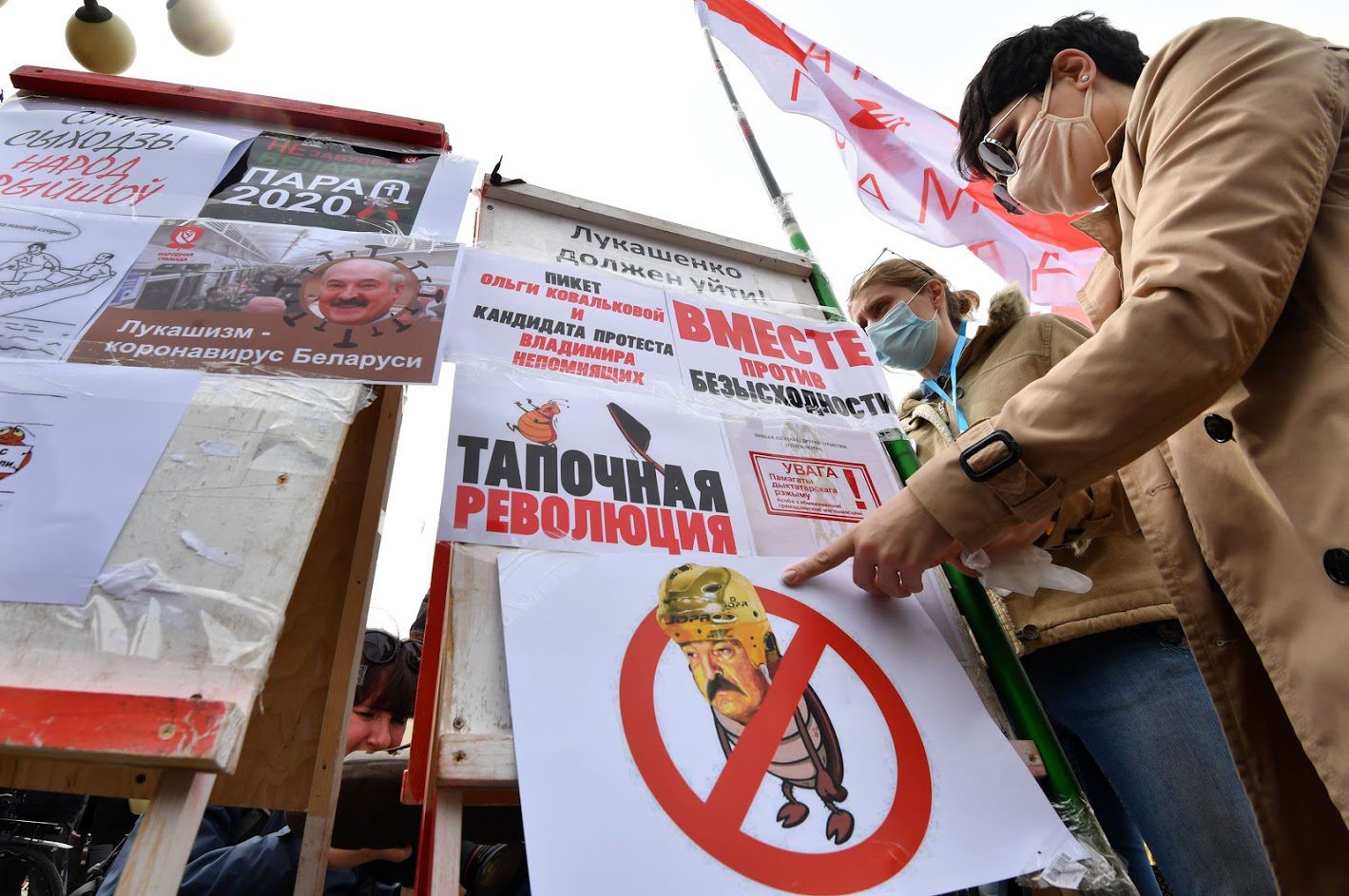
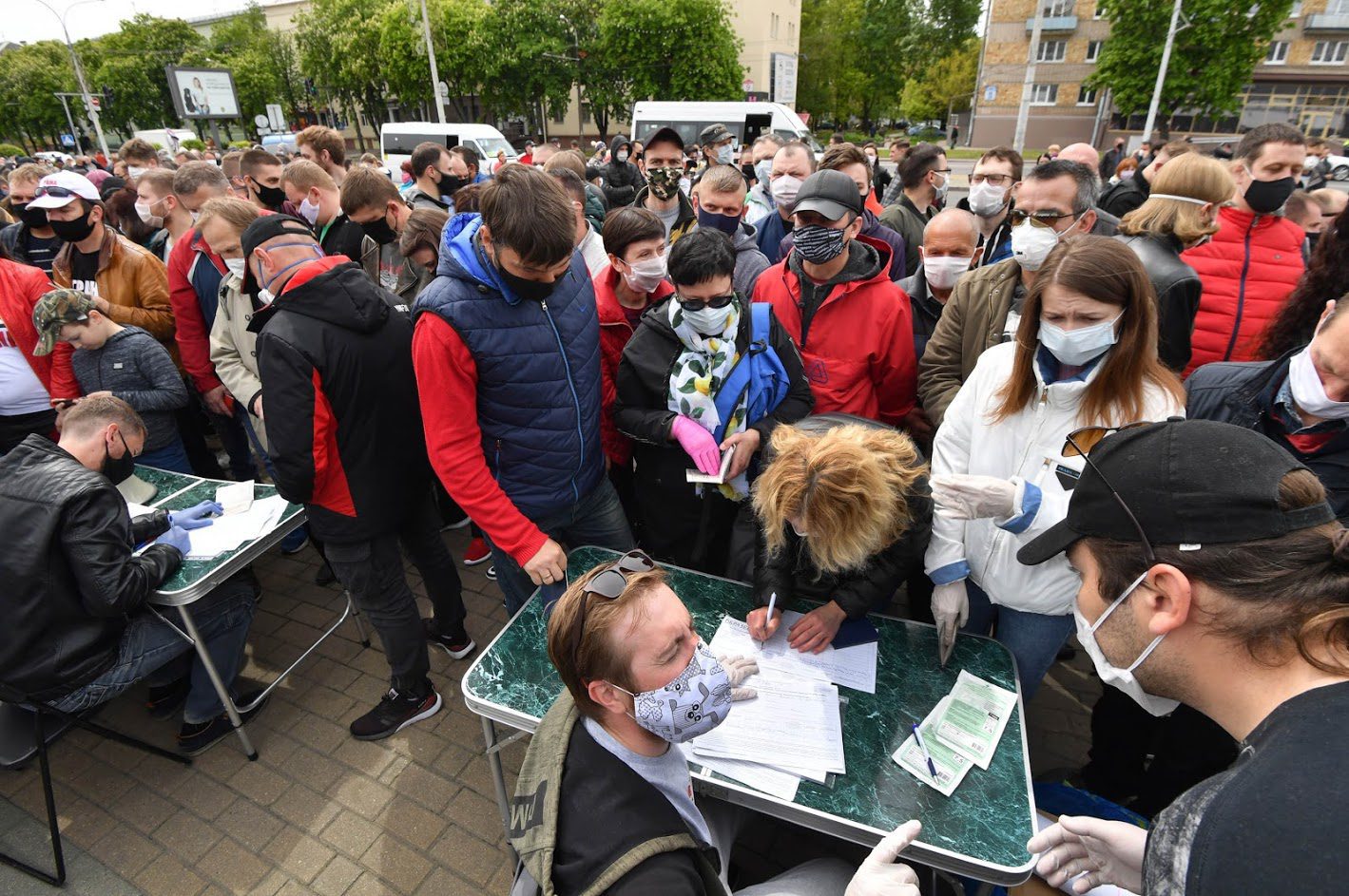
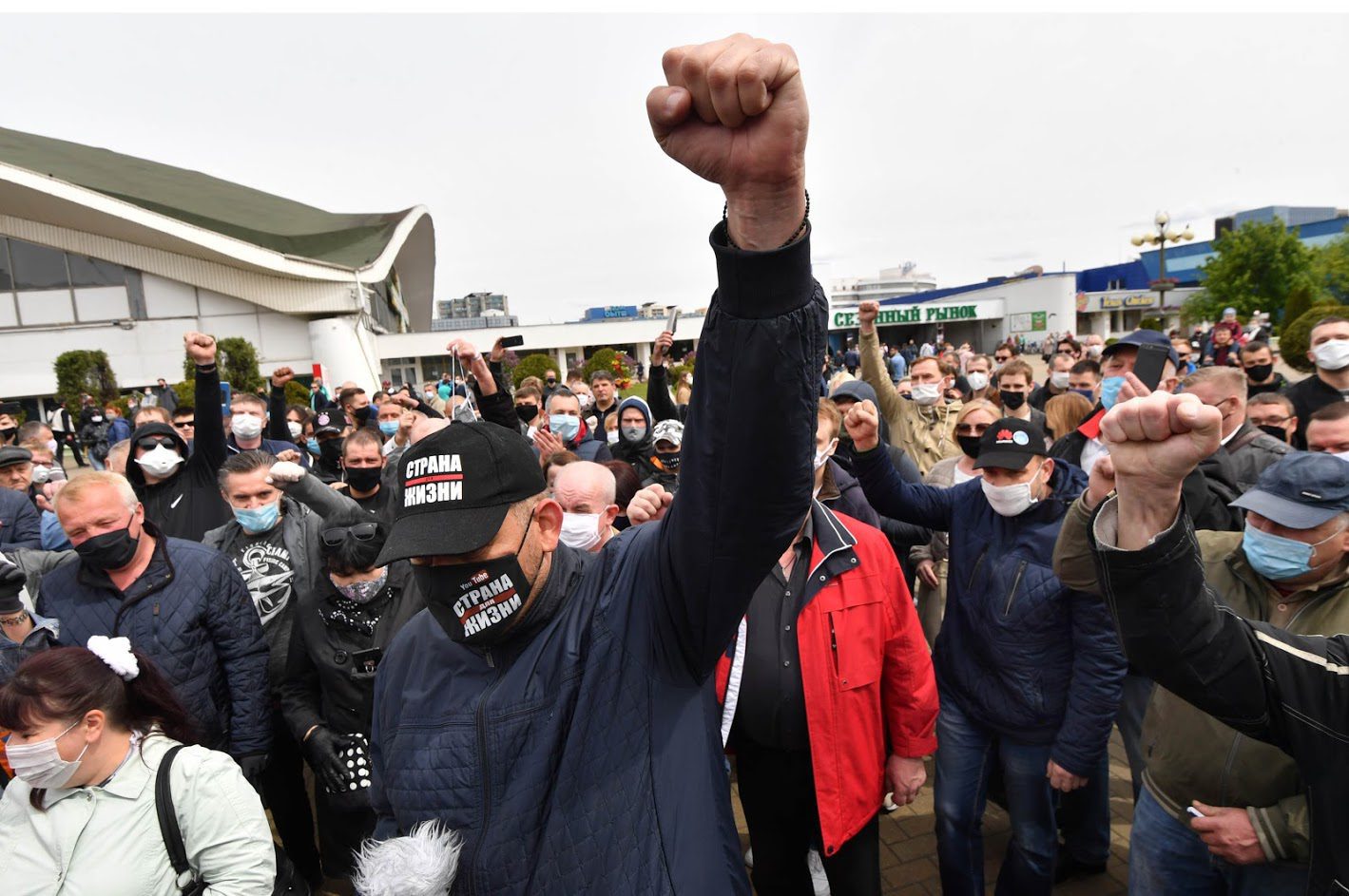
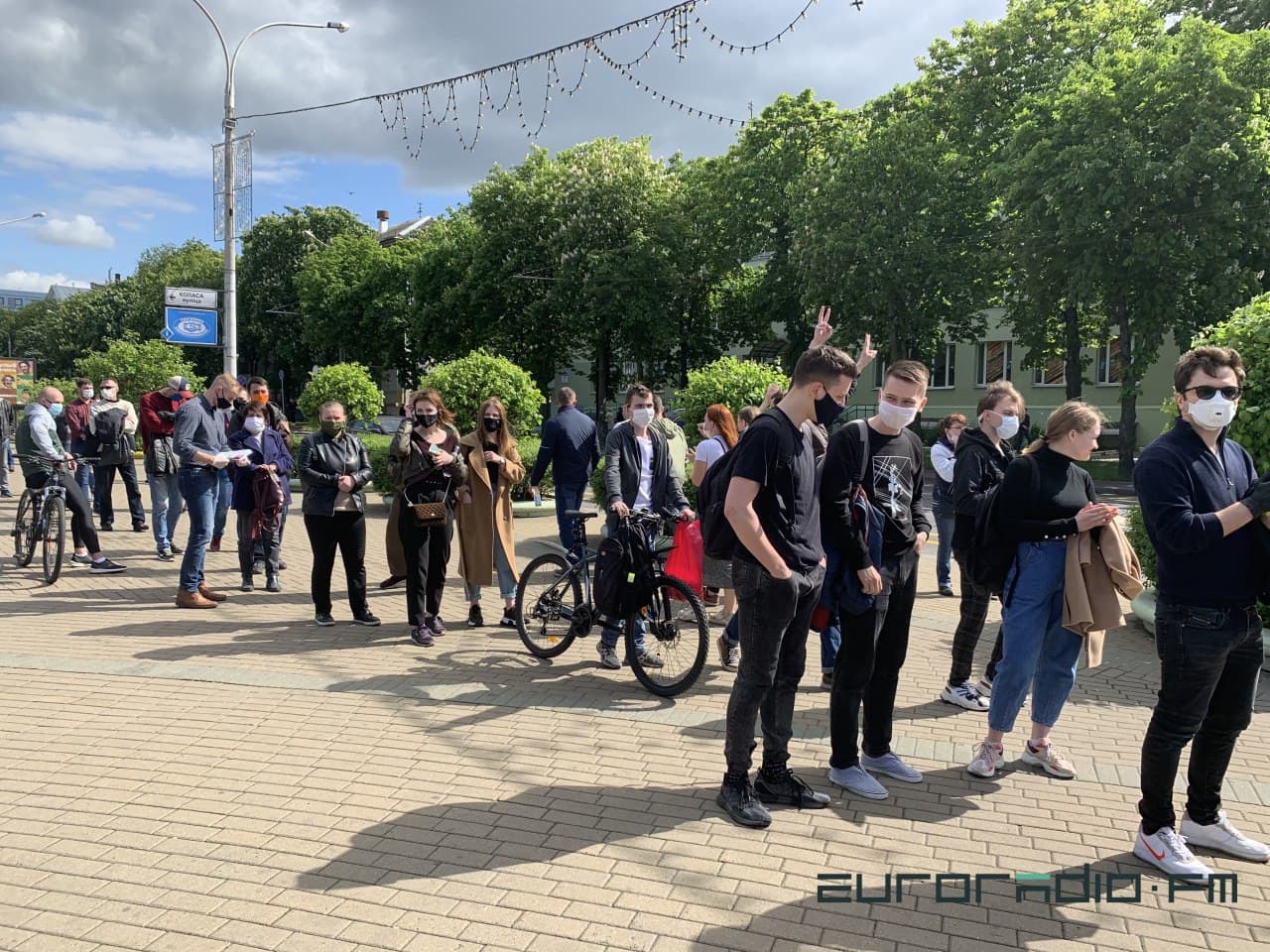
The picket in Grodno, where Siarhiej Cichanoŭski, blogger, the leader of the initiative group of Sviatlana Cichanoŭskaja, and nine more activists were arrested.
The Department of Financial Investigations started a criminal case against employees of Belgazprombank. Its former head was Viktar Babaryka, the most popular opposition candidate; several searches were carried out in the bank, and 15 people were detained.
Viktar and Eduard Babaryka were detained in the morning; in the evening, the so-called “Action of Solidarity” was held in Minsk – several thousand people lined up forming a human chain from Jakub Kolas Square to Independence Square, a distance of more than 3 km. The action was accompanied by applause and honking of passing cars. The support lasted more than six hours and ended after midnight. Protests continued the next day. Two hundred seventy people were detained. In the evening, a previously recorded appeal by Viktar Babaryka was released, in which he proposed to hold a republican referendum on the return of the 1994 Constitution.
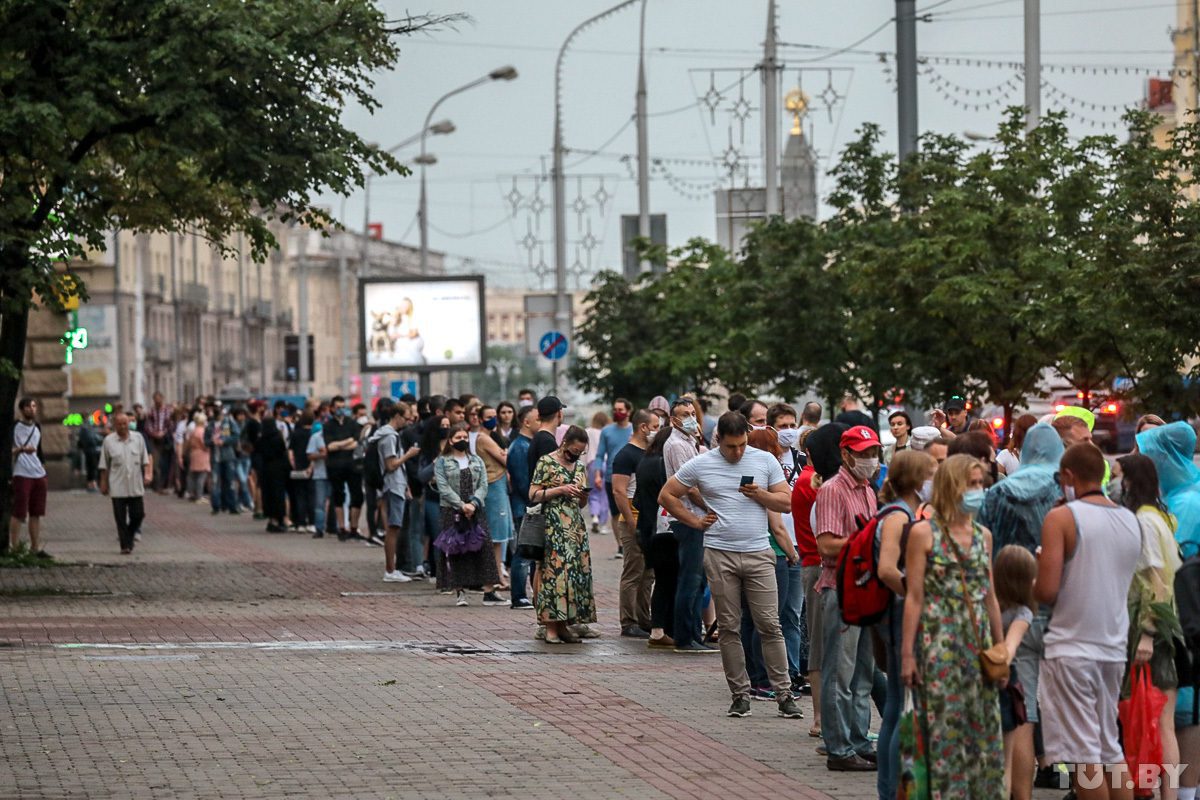
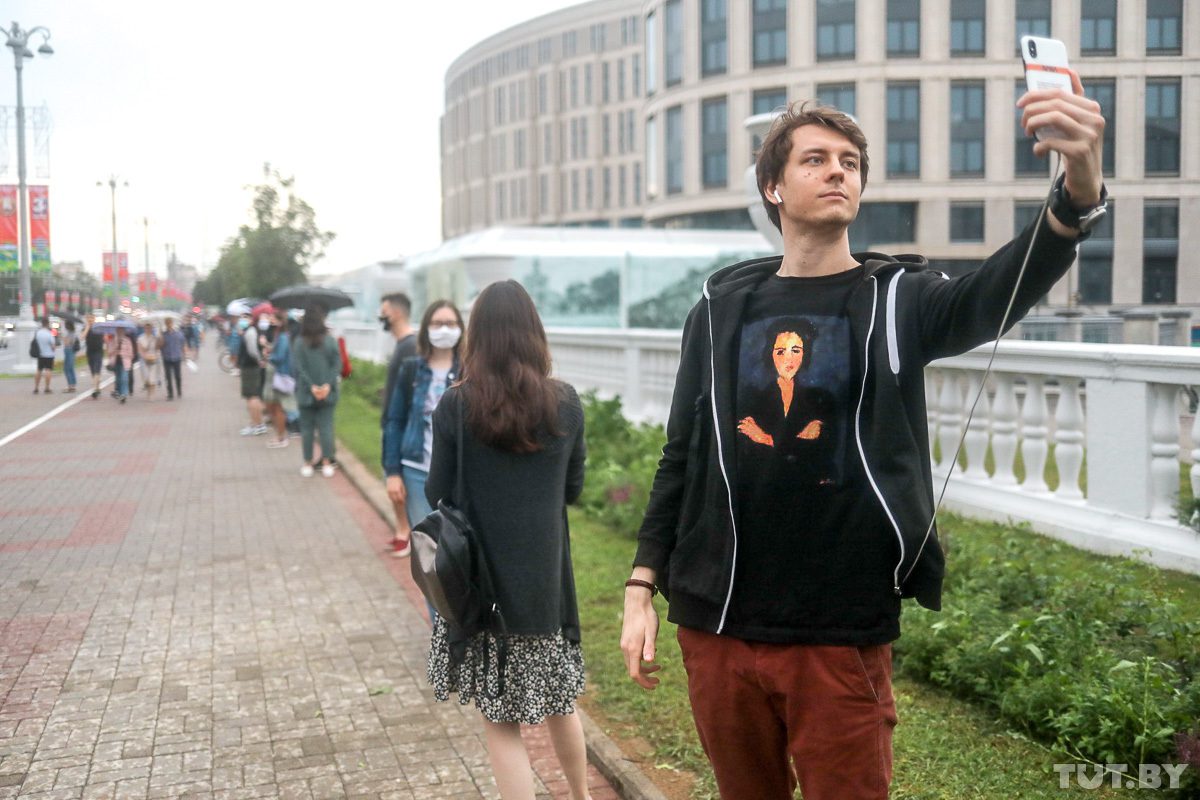
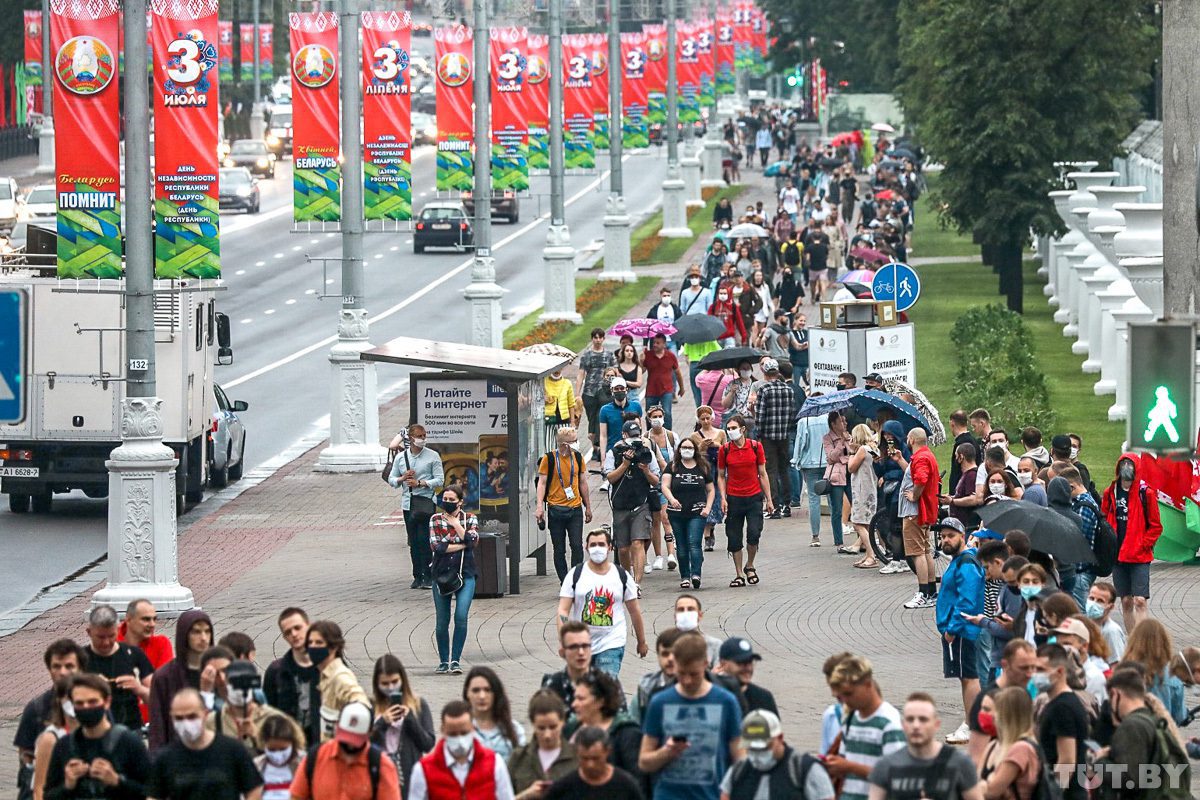
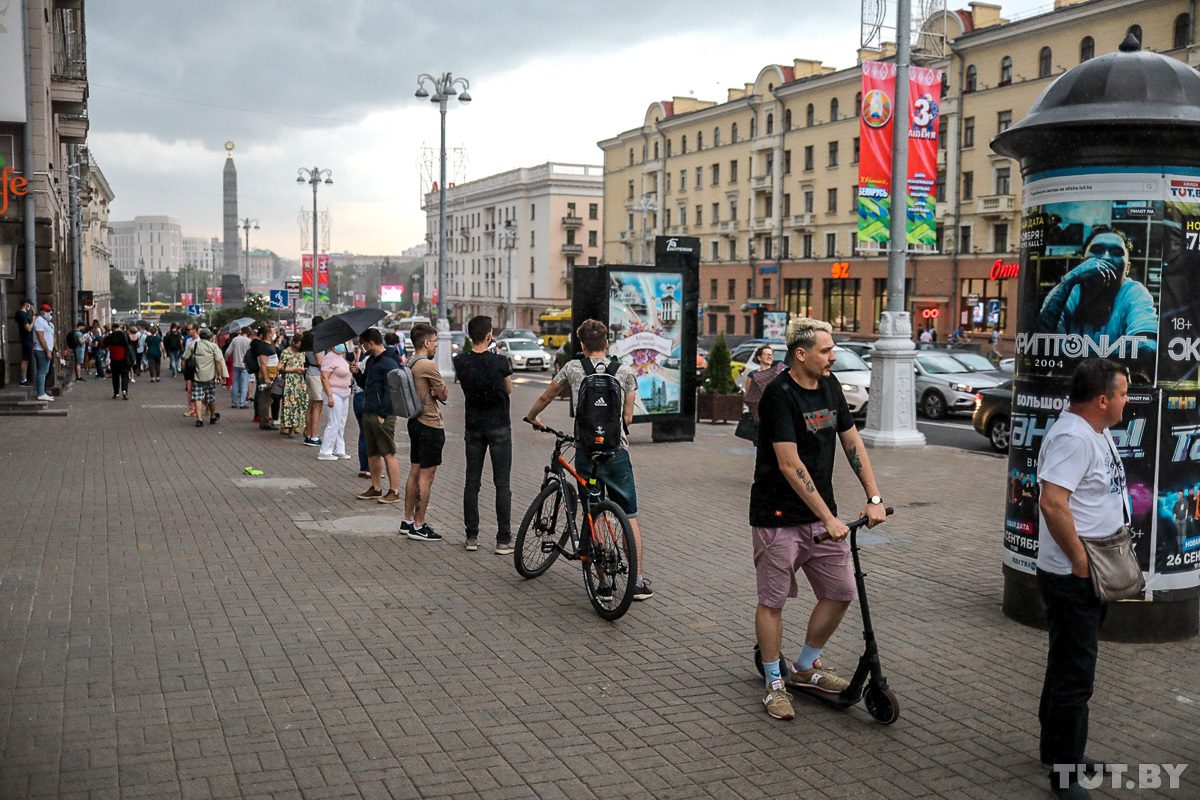
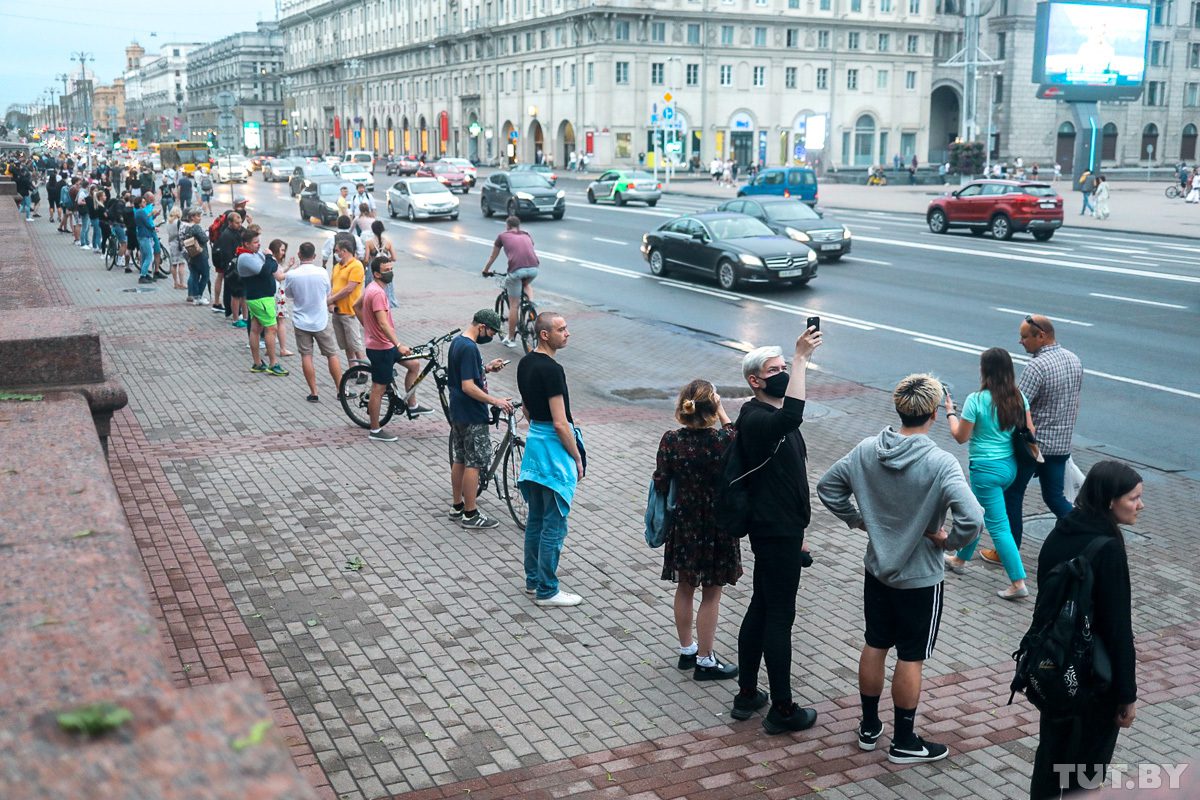
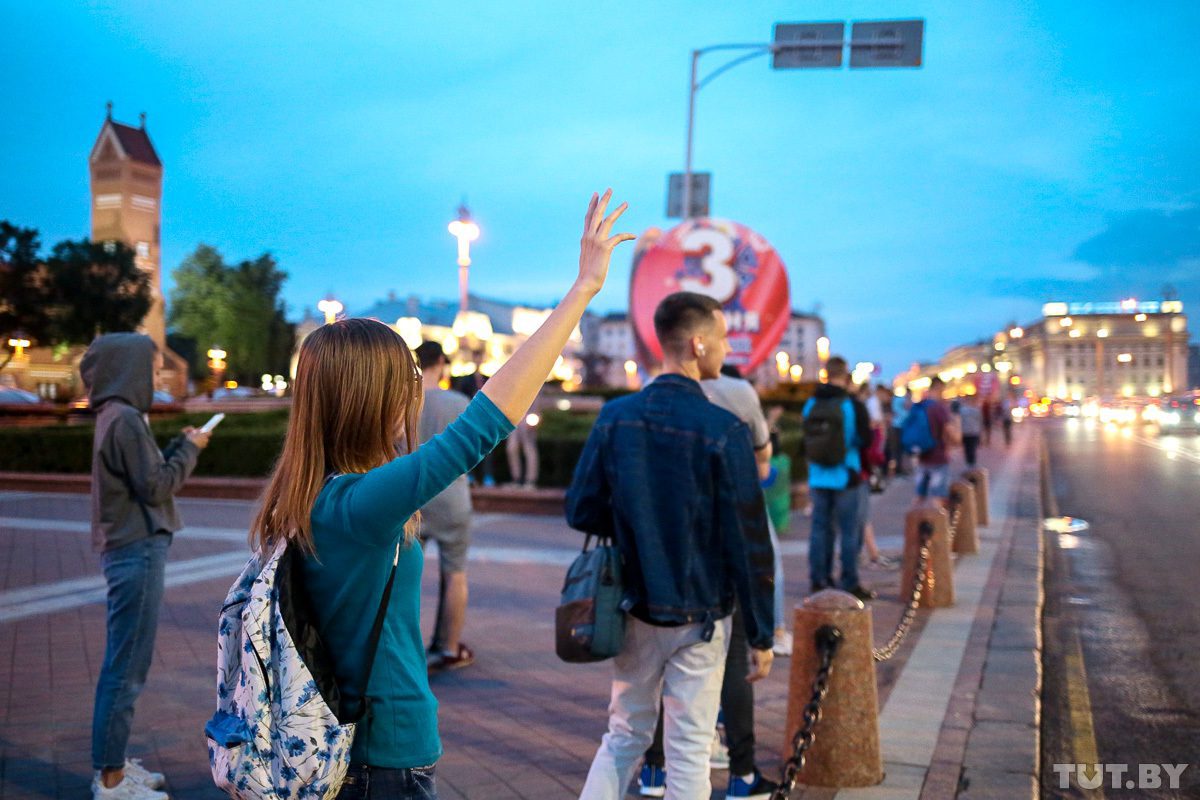
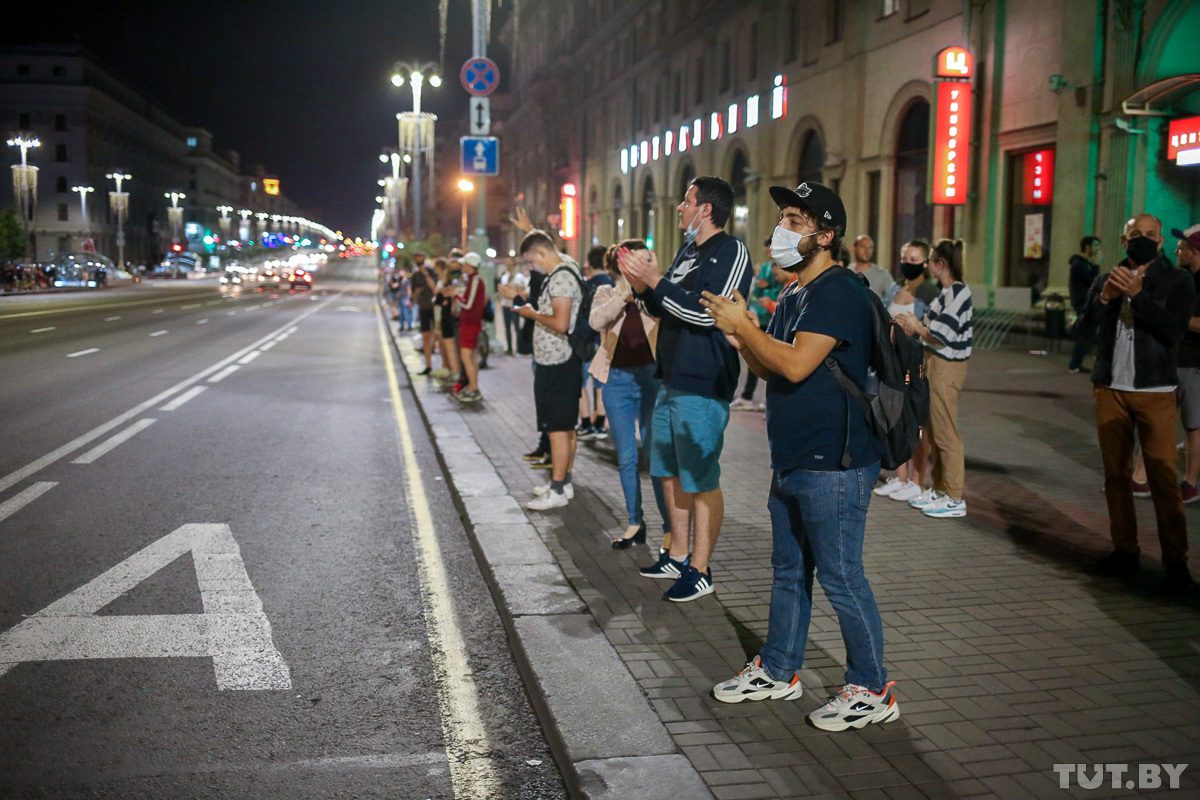
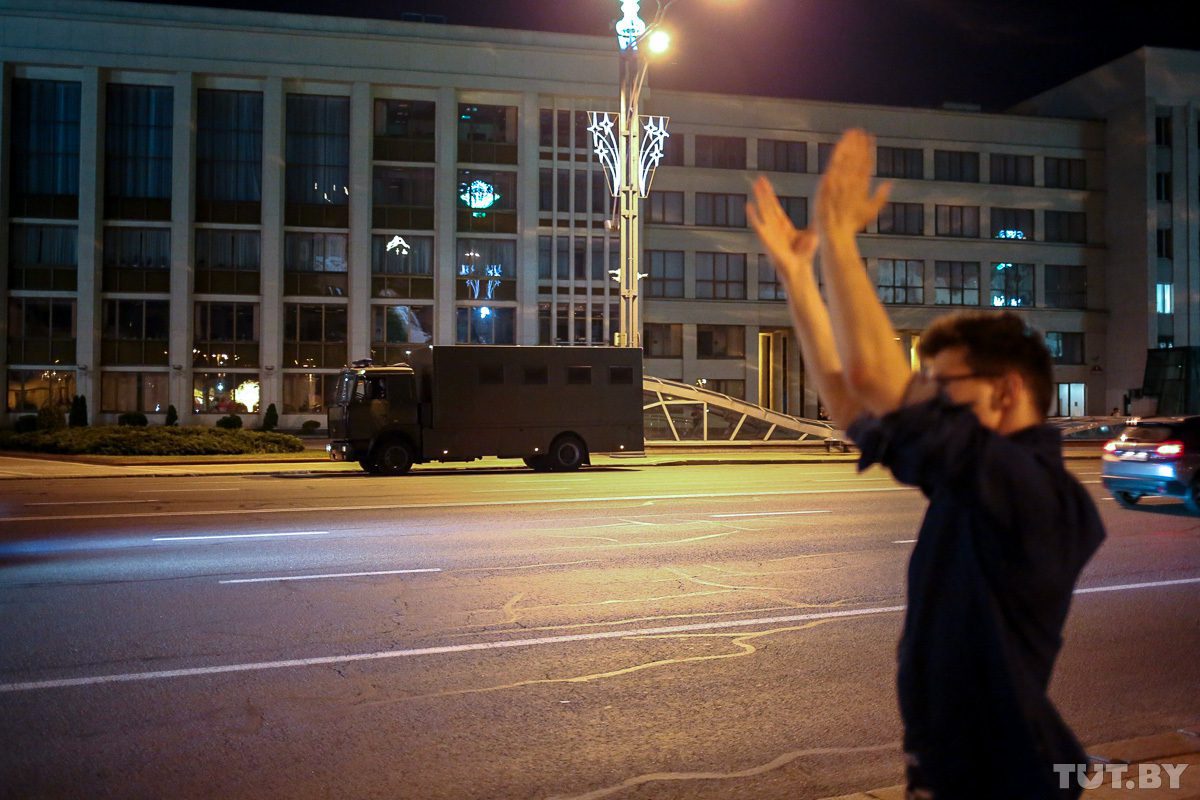
Solidarity chain to the souvenir store with national symbols Symbal.by, that is closing under pressure from the authorities. The riot police arrived in a paddy wagon and dispersed the queue.
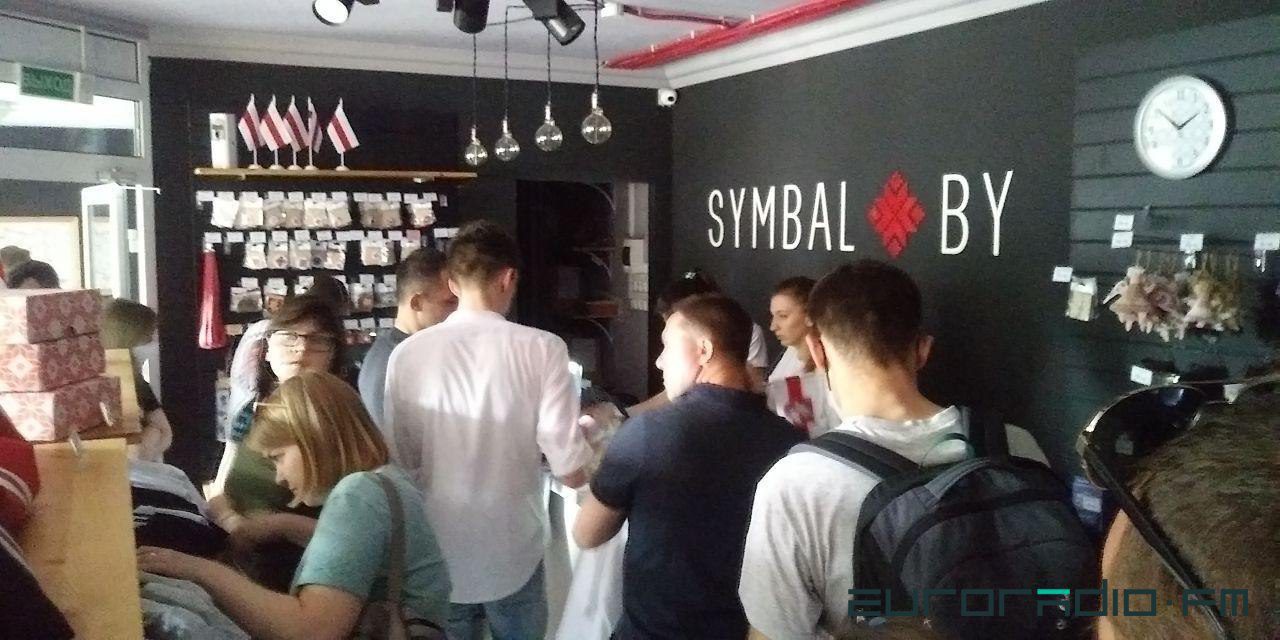
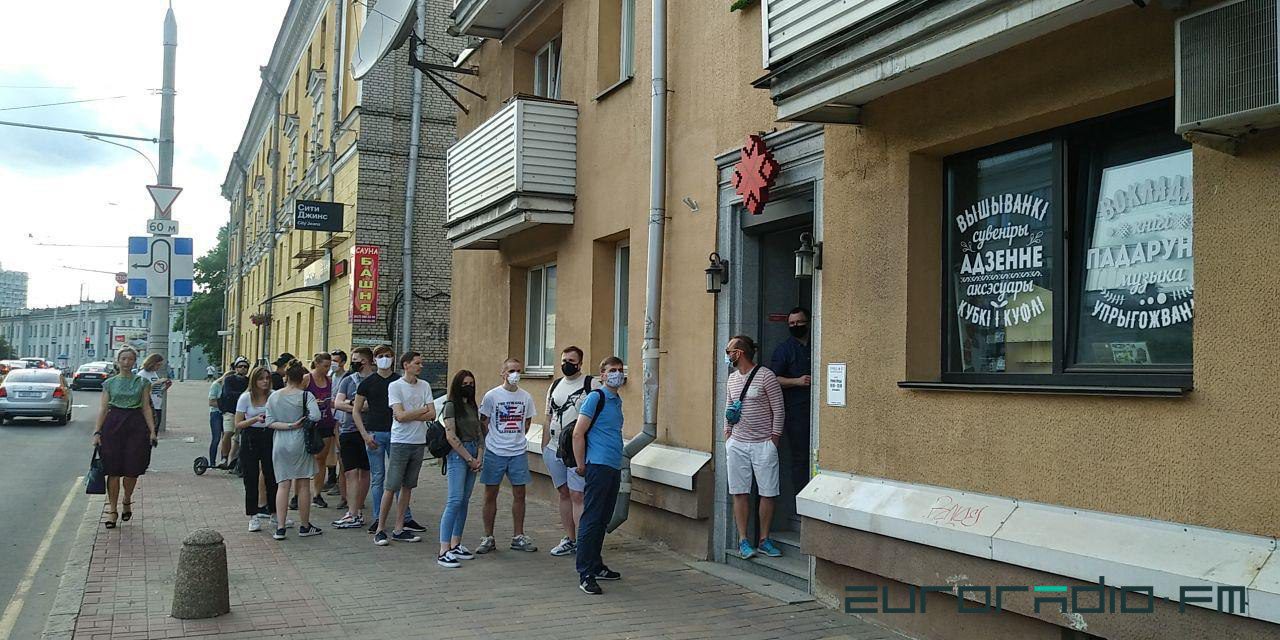
A meeting of the Central Election Committee was held, during which five presidential contenders were rejected. Among them was Valieryj Capkala, another popular opposition candidate, ex-diplomat and co-founder of Belarus High Technologies Park (HTP).
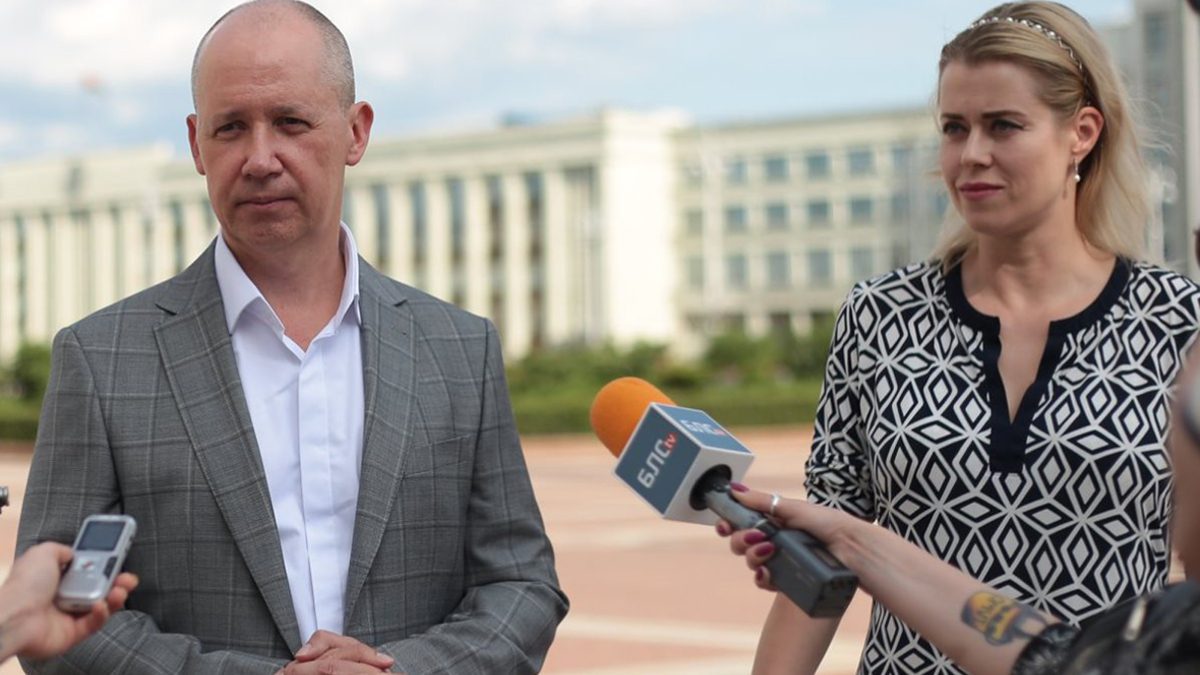
Central Election Committee denied registration of Viktar Babaryka and Valery Capkala. As a result, only five candidates were registered: businessman Siarhiej Čeračeń, politician Hanna Kanapackaja, politician Andrej Dzmitryjeŭ, Aliaksandr Lukašenka and Sviatlana Cichanoŭskaja. That day people came on the streets again. More than 250 people were arrested.
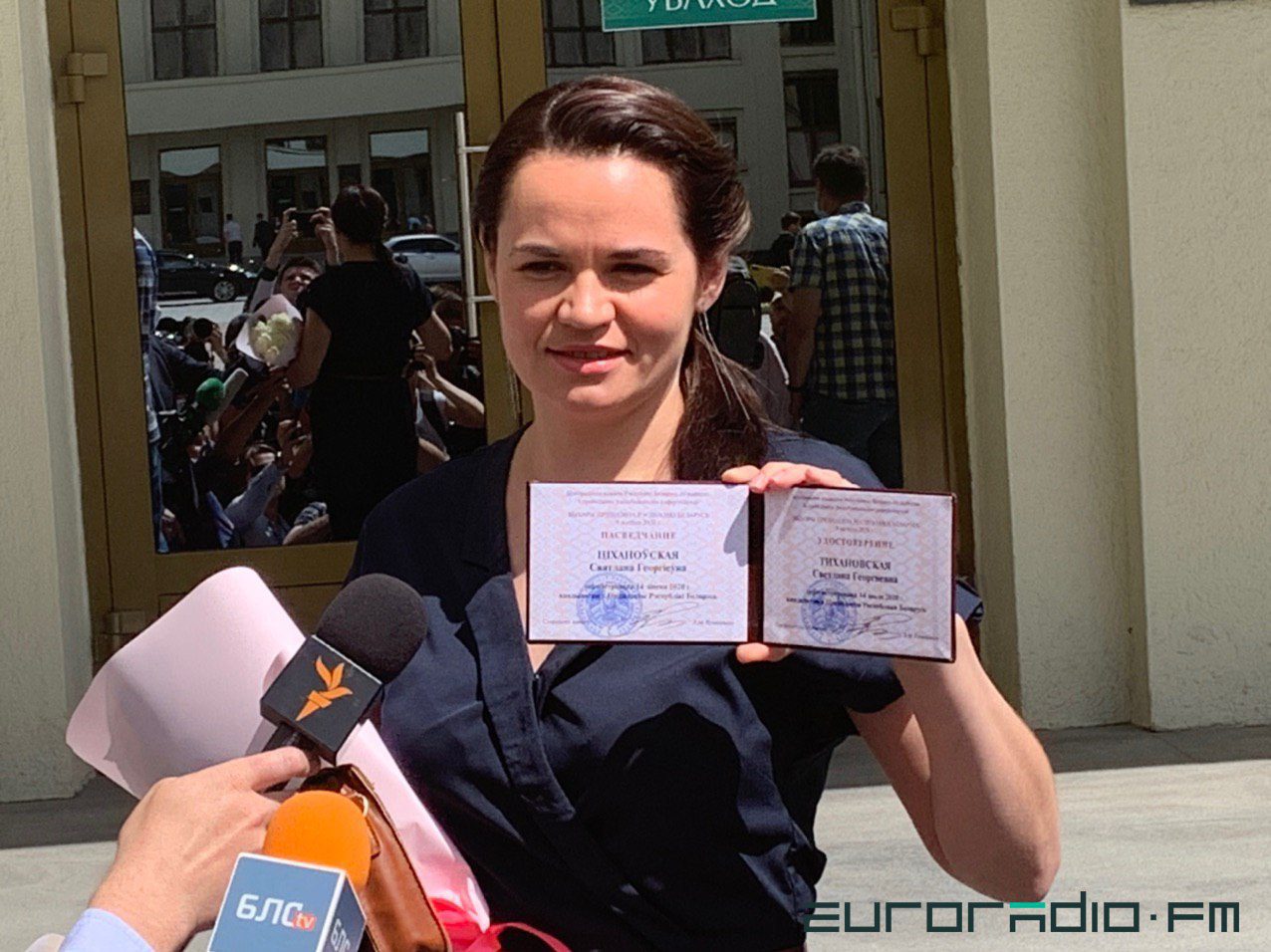
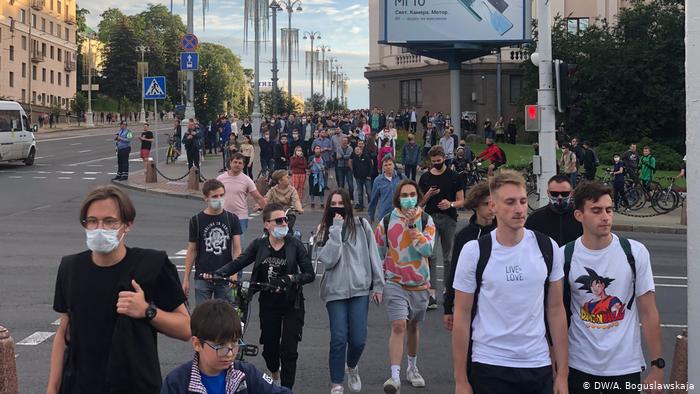
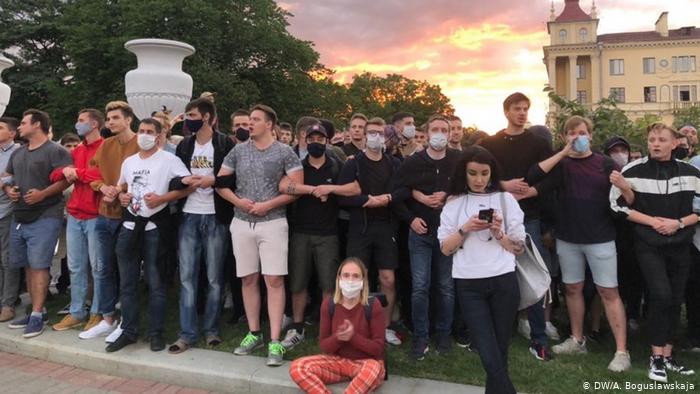
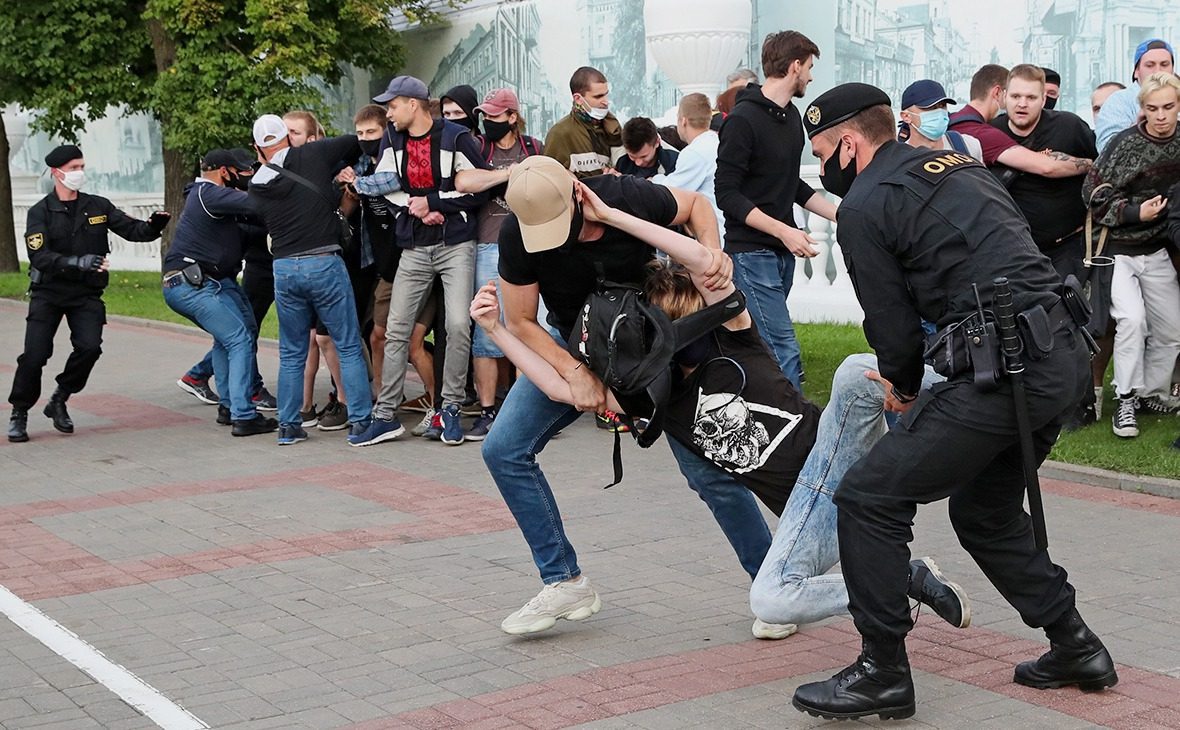
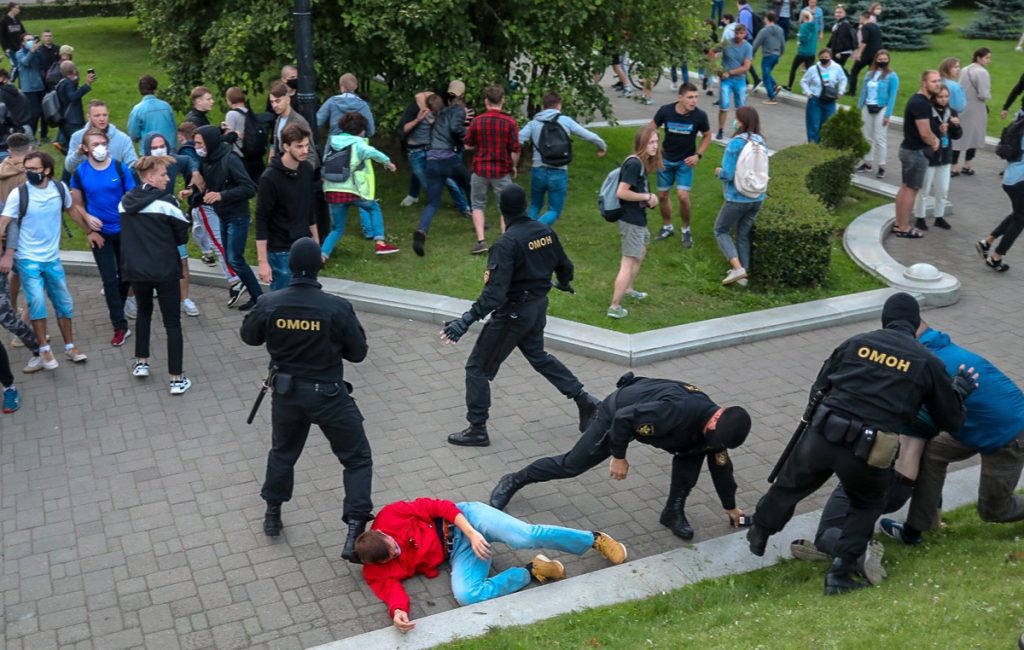
Sviatlana Cichanoŭskaja grouped with Maryja Kaliesnikava, Viktar Babaryka's team leader, and Vieranika Capkala, Valieryj's wife.
That day OSCE said that they would not be able to watch elections because the Ministry of Foreign Affairs hadn't sent them an official invitation at the right time.
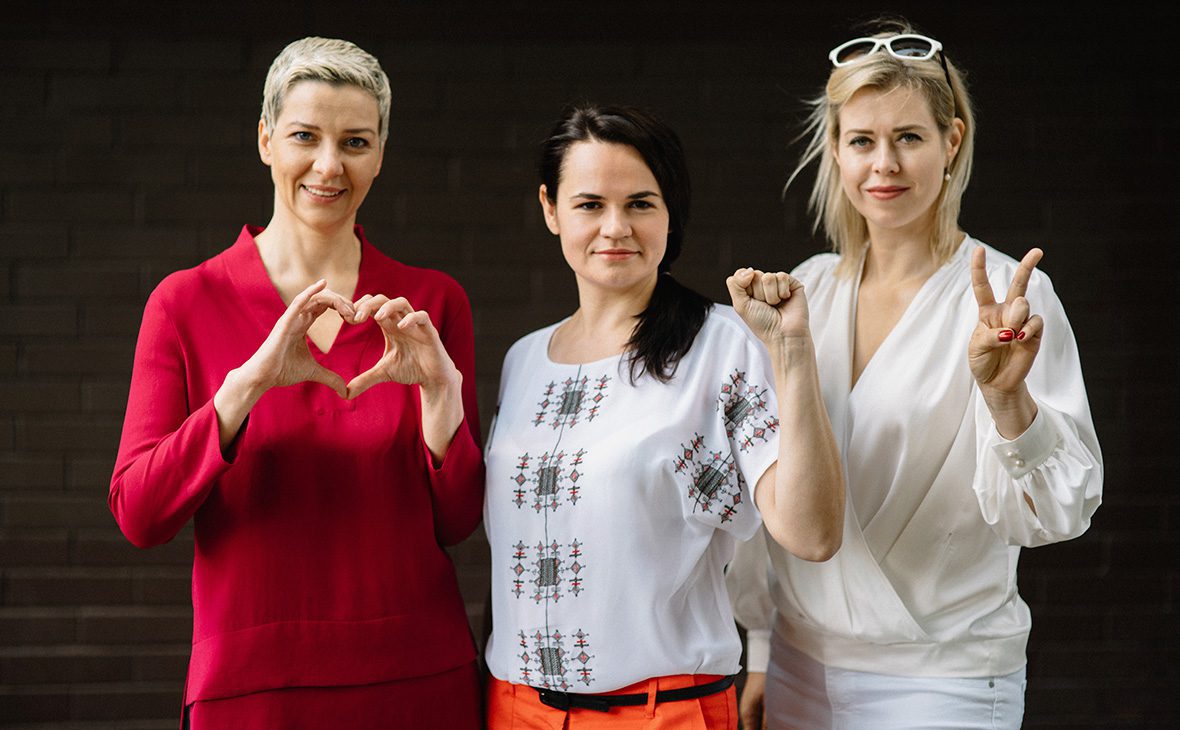
First meeting with the united opposition group in Minsk. There were around 7-10 thousand people.
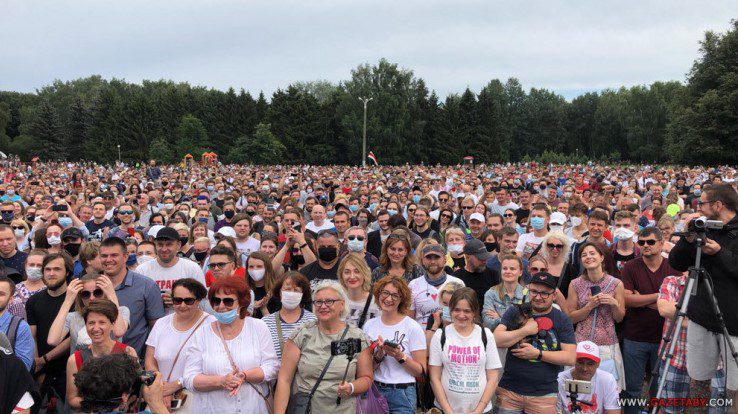

Around 70 thousand people gathered for another meeting with the united opposition group in Minsk.
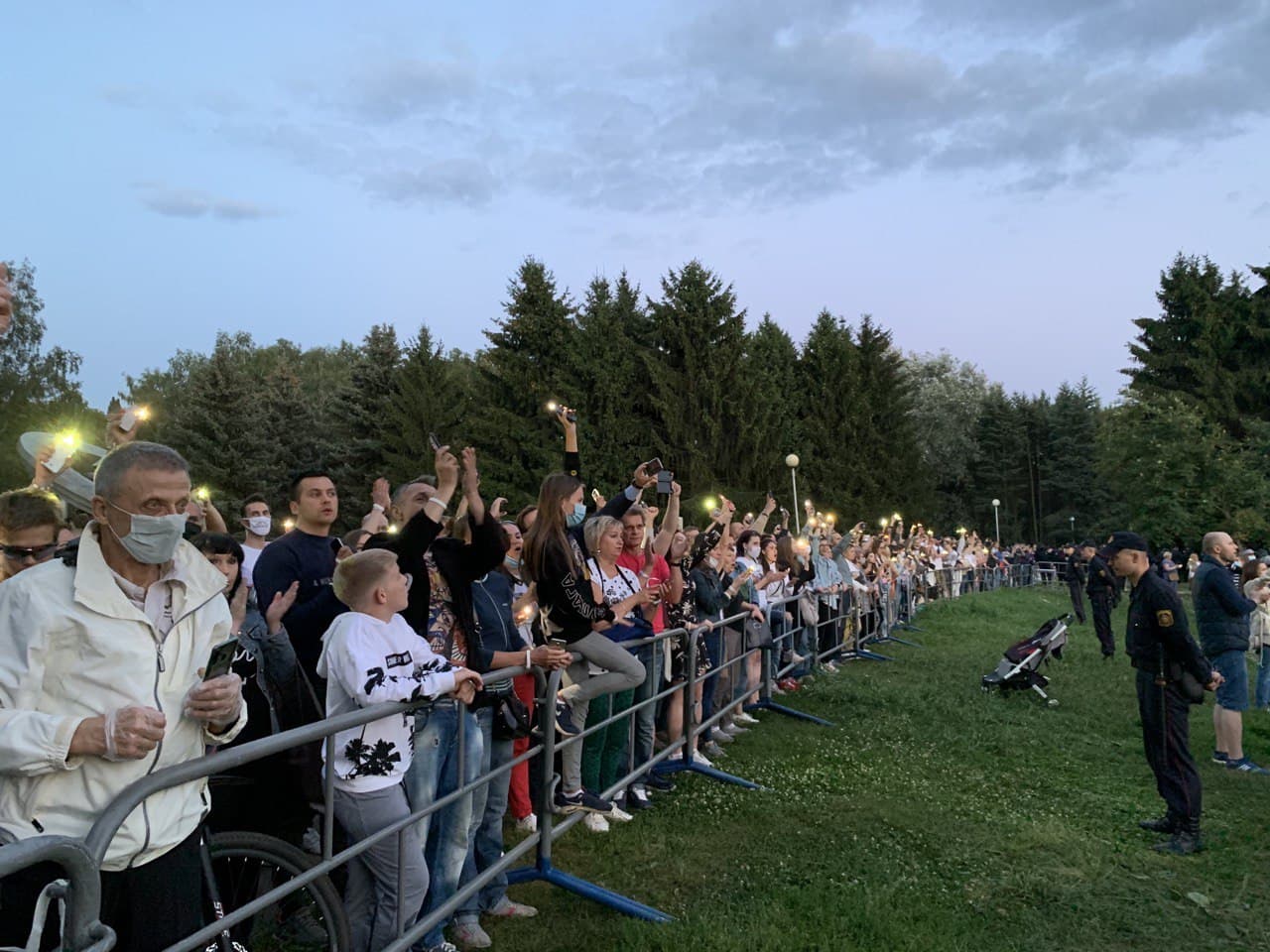
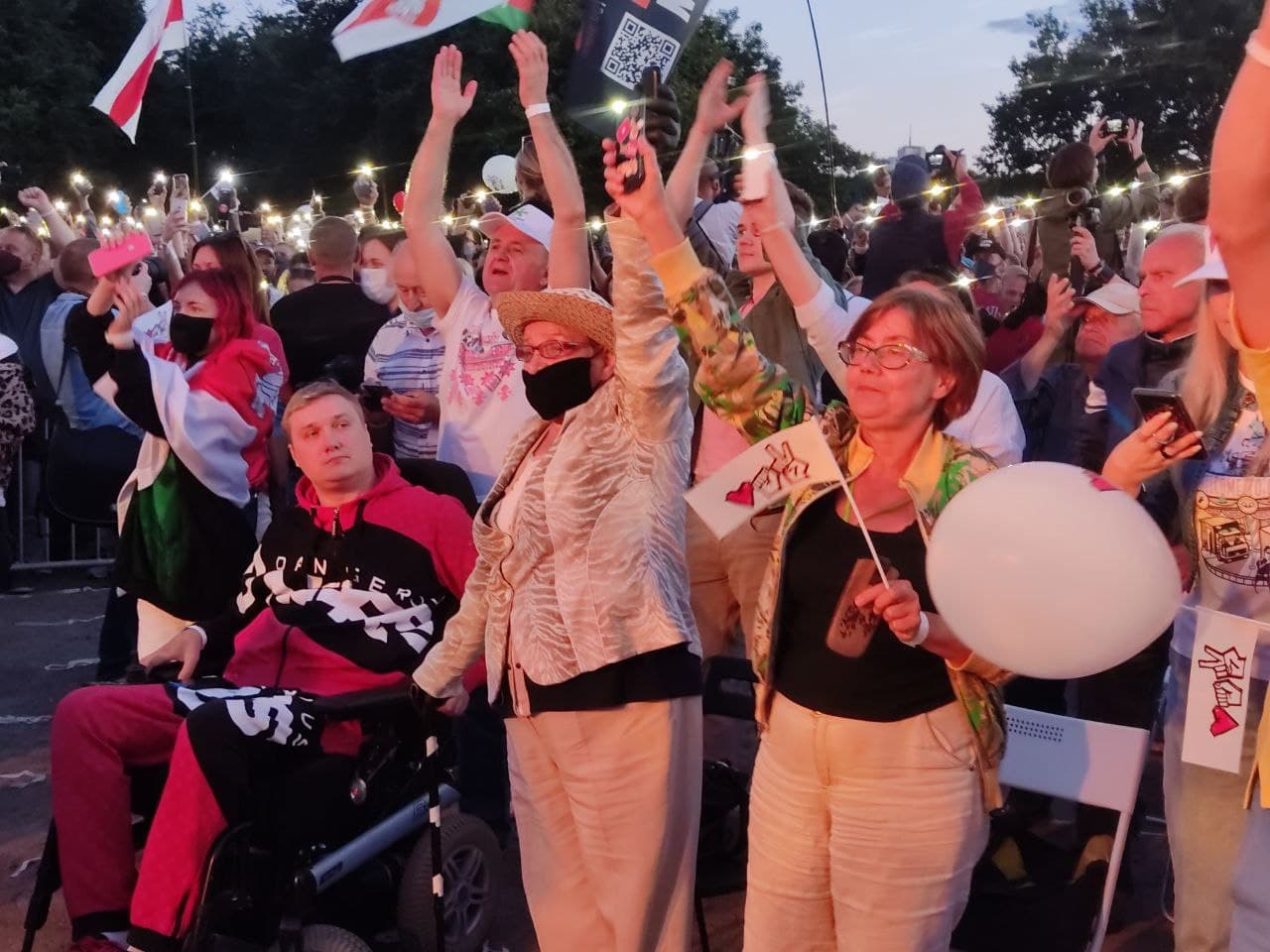
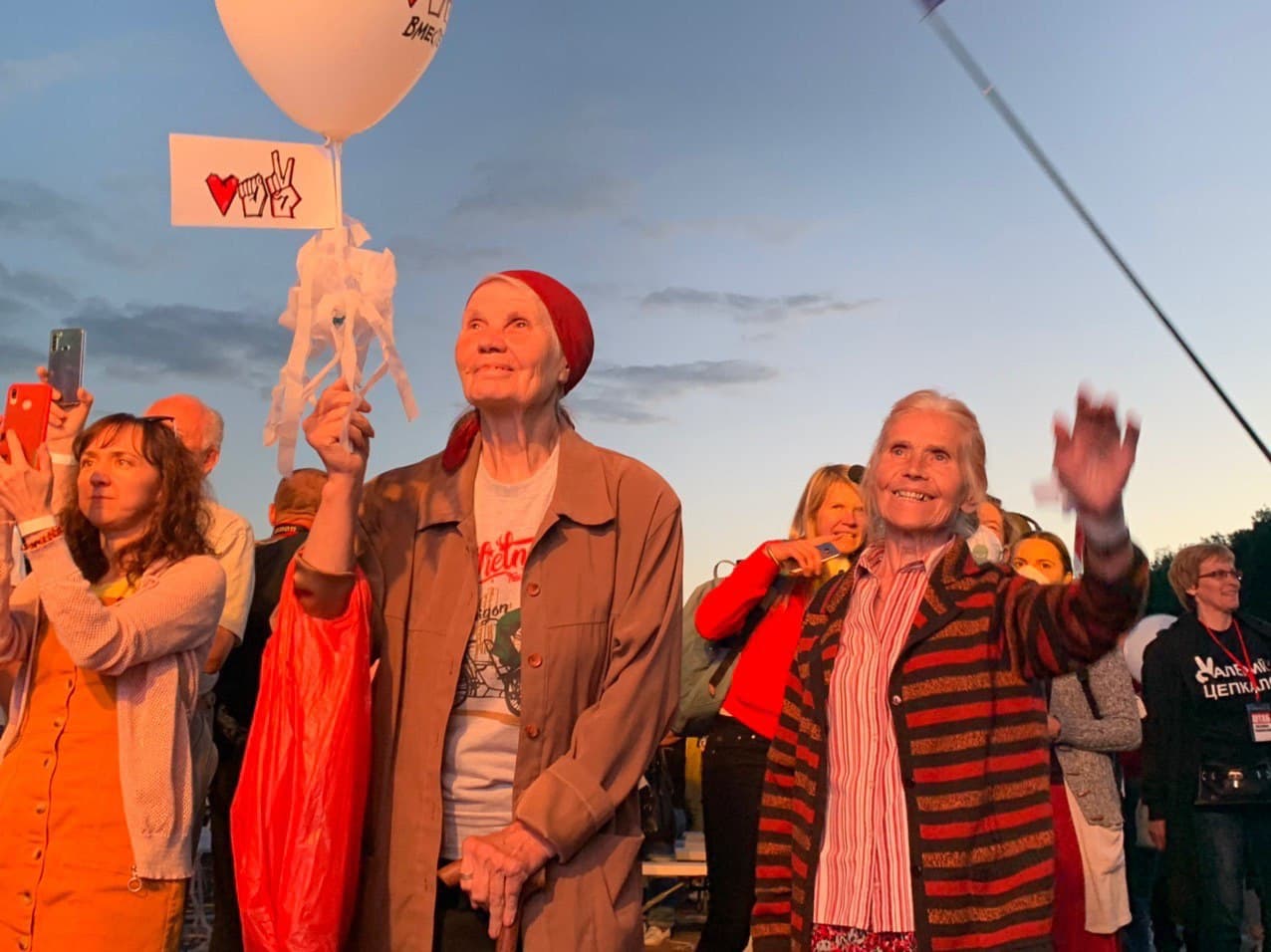
The Municipal Office of Minsk announced a concert for railway workers where Cichanoŭskaja's initiative group planned to organize the meeting. So opposition leaders told people to gather in the park nearby in the first place. At that time, the so-called open day of institutions of additional education was held in the park with performances by amateur and professional creative teams. The song "I want changes!" suddenly sounded from the steps of the Kieŭ cinema at about 19:01. Later, two sound technicians, Uladzislaŭ Sakaloŭski and Kiryl Galanaŭ, who turned on the recording of the song, were detained. After that accident, people called those guys "Djs of changes".
Central Election Committee announced that during four days of voting, the turnout was 32,24% (In Belarus, you can vote earlier during the week before the main election day). The head of Cichanoŭskaja election group Maryja Maroz was arrested.
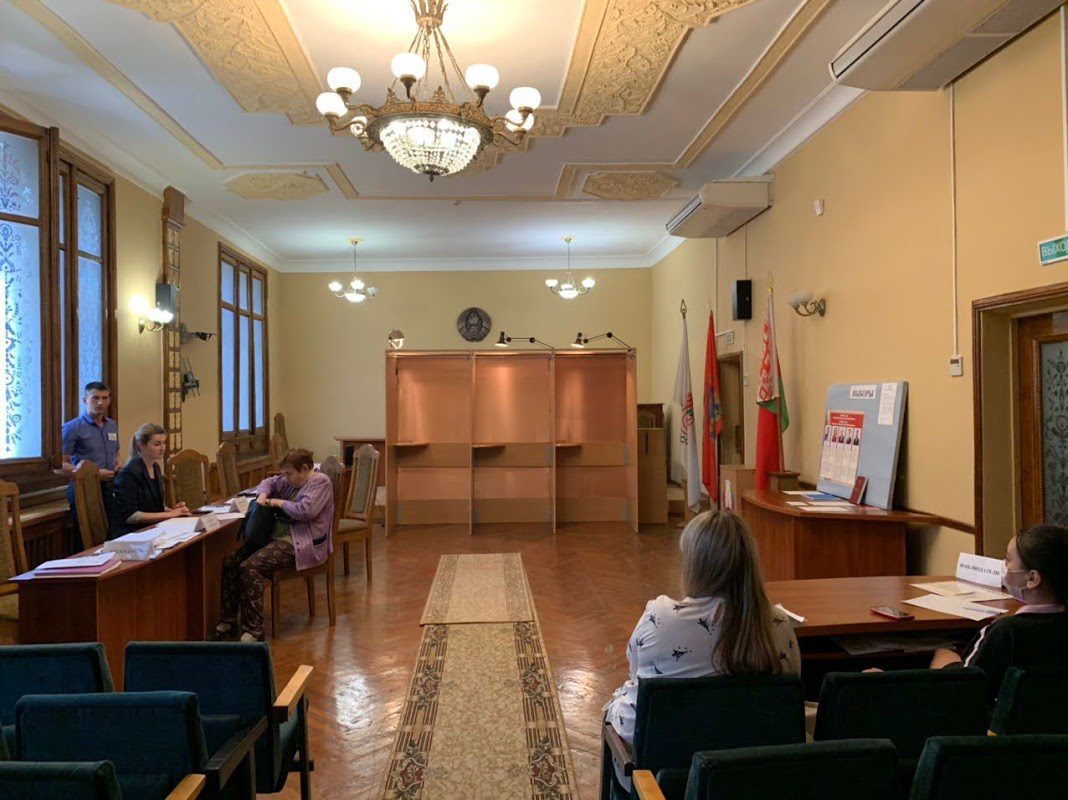
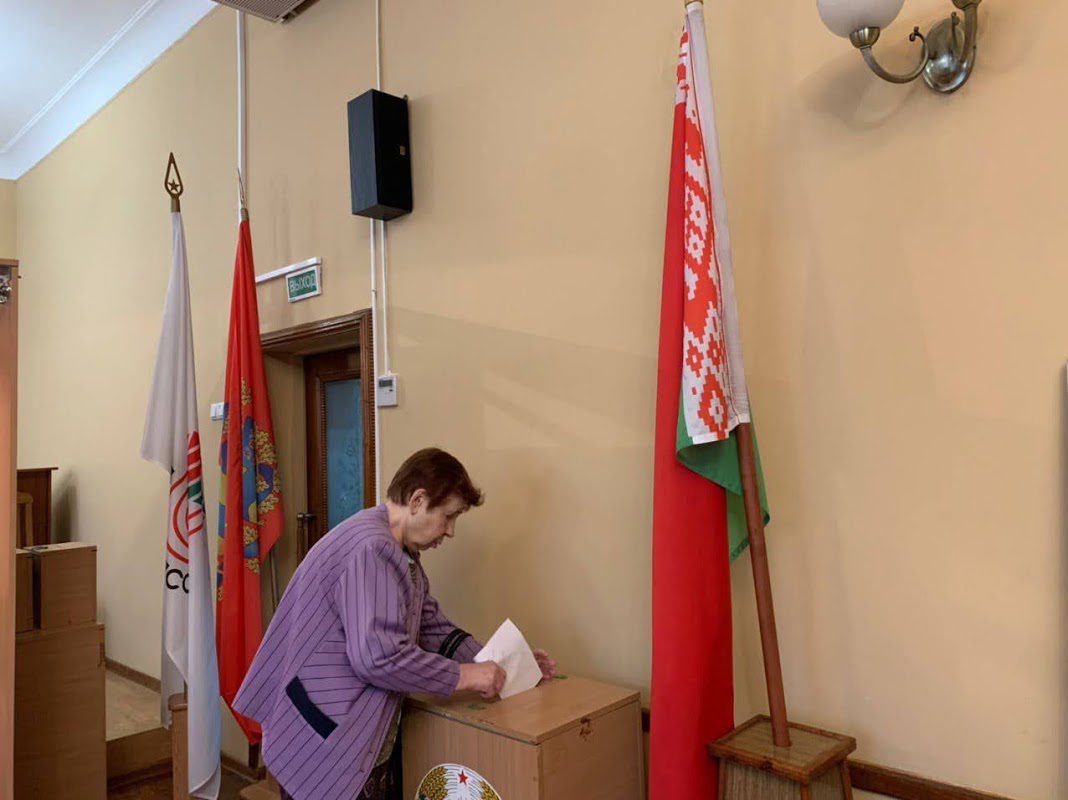

Vieranika Capkala left to Russia.
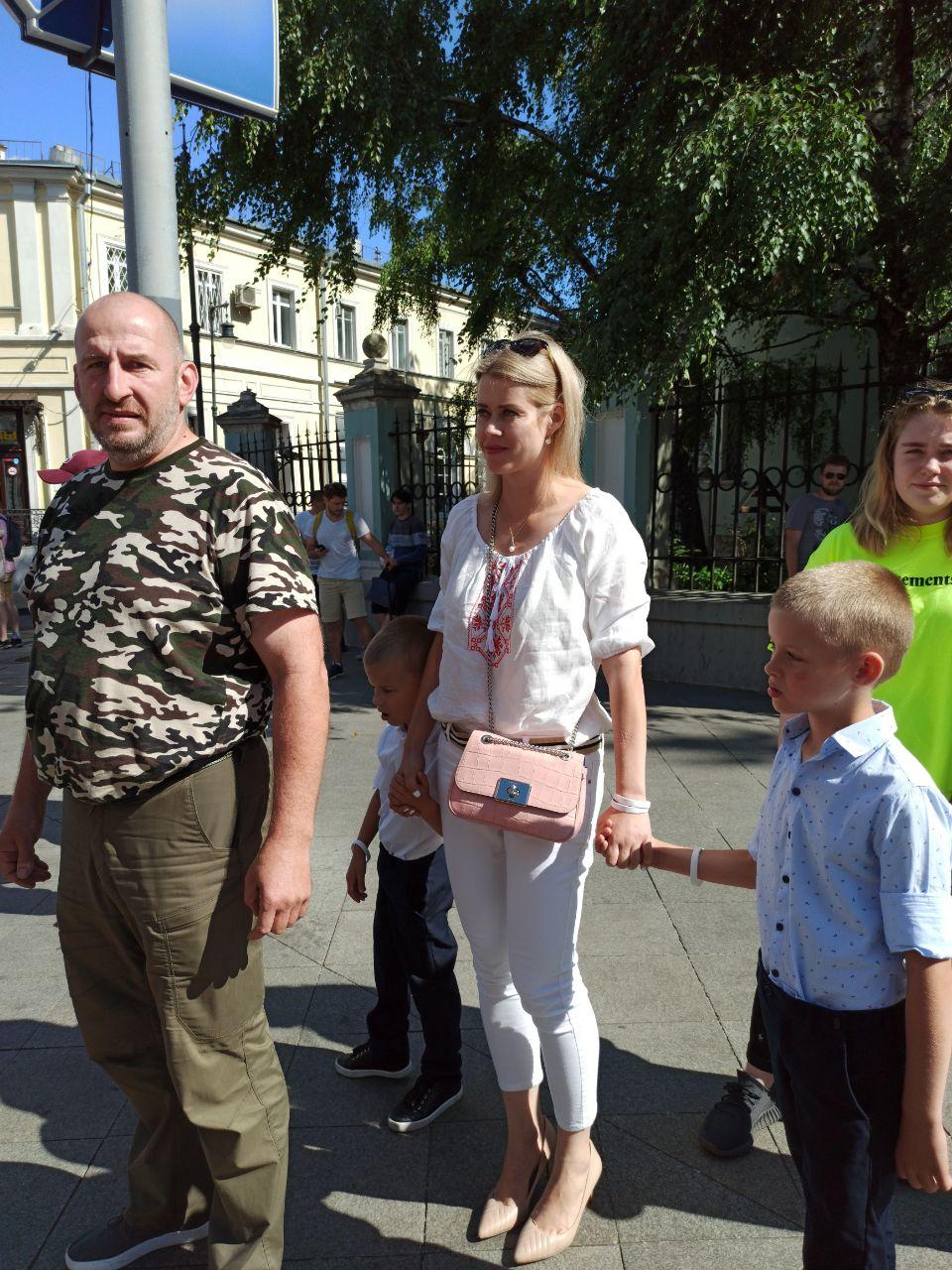
The primary election day. There were queues at many polling stations from the very morning, and in some of them, people stood for 9 hours to vote.
On the morning of election day, problems with Internet access started. Some stores stopped accepting payments for purchases with credit cards (according to the official version, due to DDoS attacks), Internet access interruptions continued throughout the day, and mobile communications were partially unavailable.
The head of the CEC, Lidzia Jarmošyna, confirmed a turnout of more than 50% in the presidential elections; the CEC announced that the presidential elections were recognized as valid.
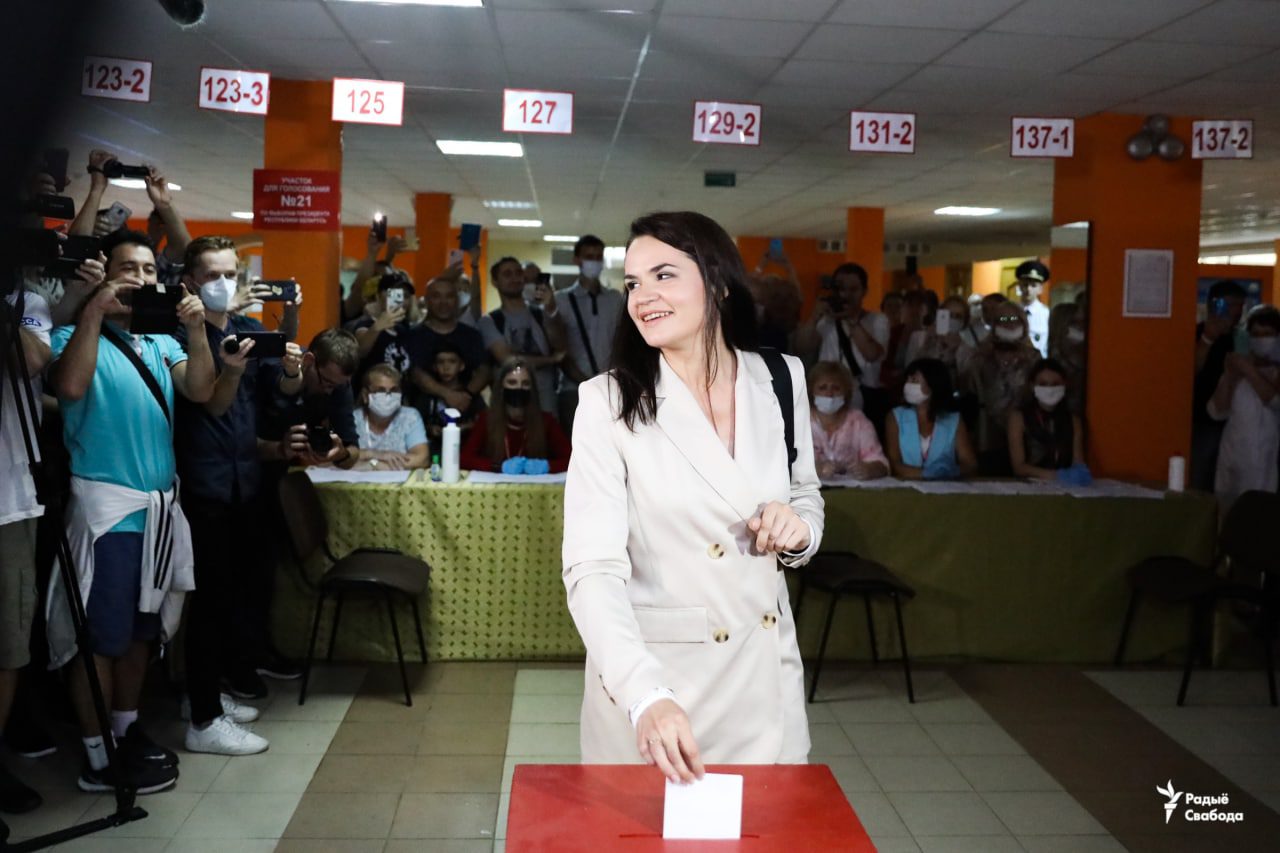

Late in the evening, exit polls were announced on the national TV channel Belarus 1. Lukašenka practically scored 80%.
Protesters began to take to the streets in many large cities (Baranavičy, Babrujsk, Brest, Viciebsk, Hrodna, Homieĺ, Žlobin, Žodzina, Kobryn, Minsk, Mahilioŭ, Pinsk). As a result, more than 35 thousand people came out across the country. In Minsk, people went to protest in different parts of the city.
Near the stele "Minsk - Hero City", there were massive clashes with the security forces, who tried to disperse the protesters with light and noise grenades and rubber bullets. On the day of the elections, about 3 thousand people were detained; in the entire history of Belarus, this day can be considered as one of the most brutal.
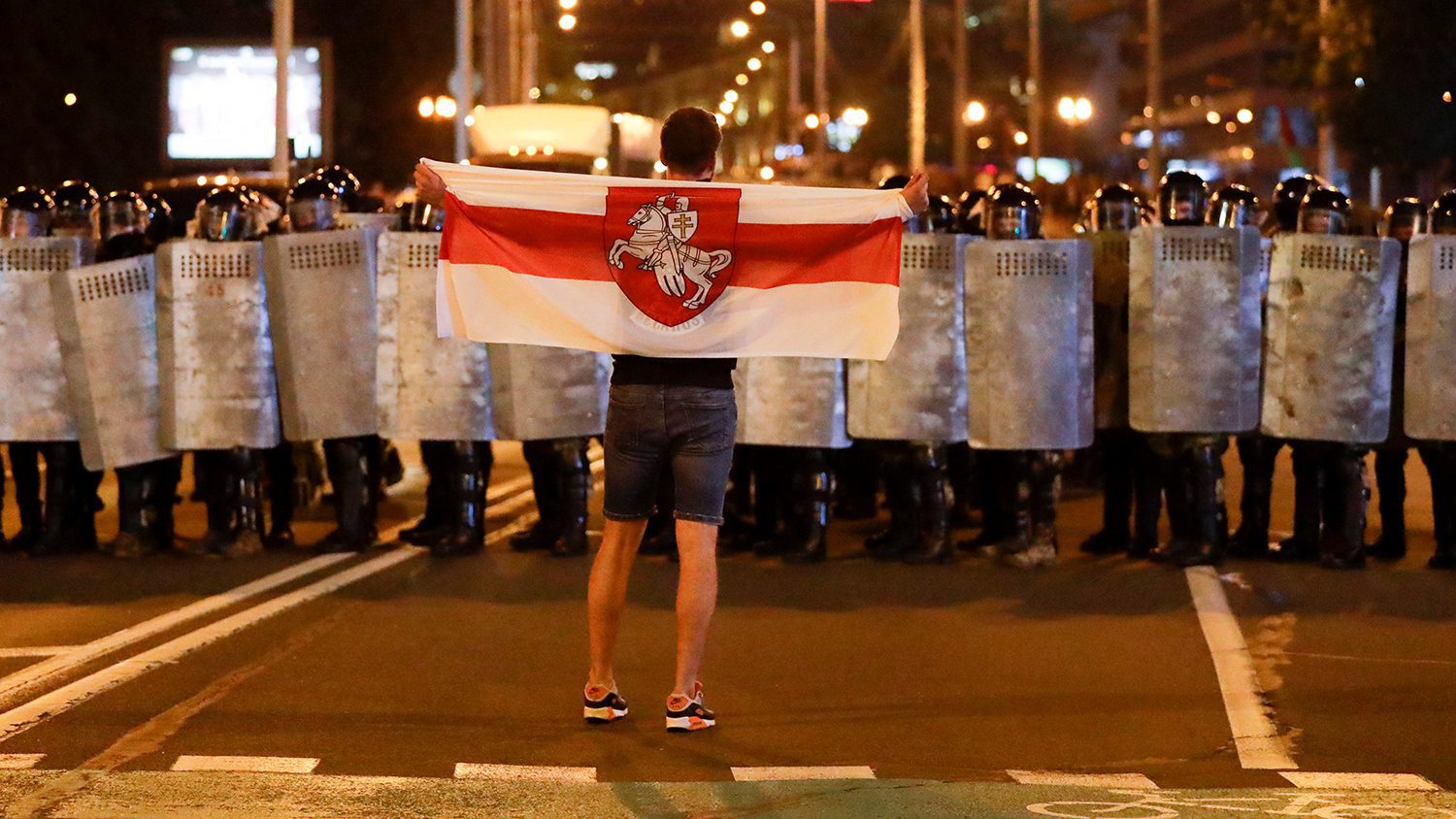
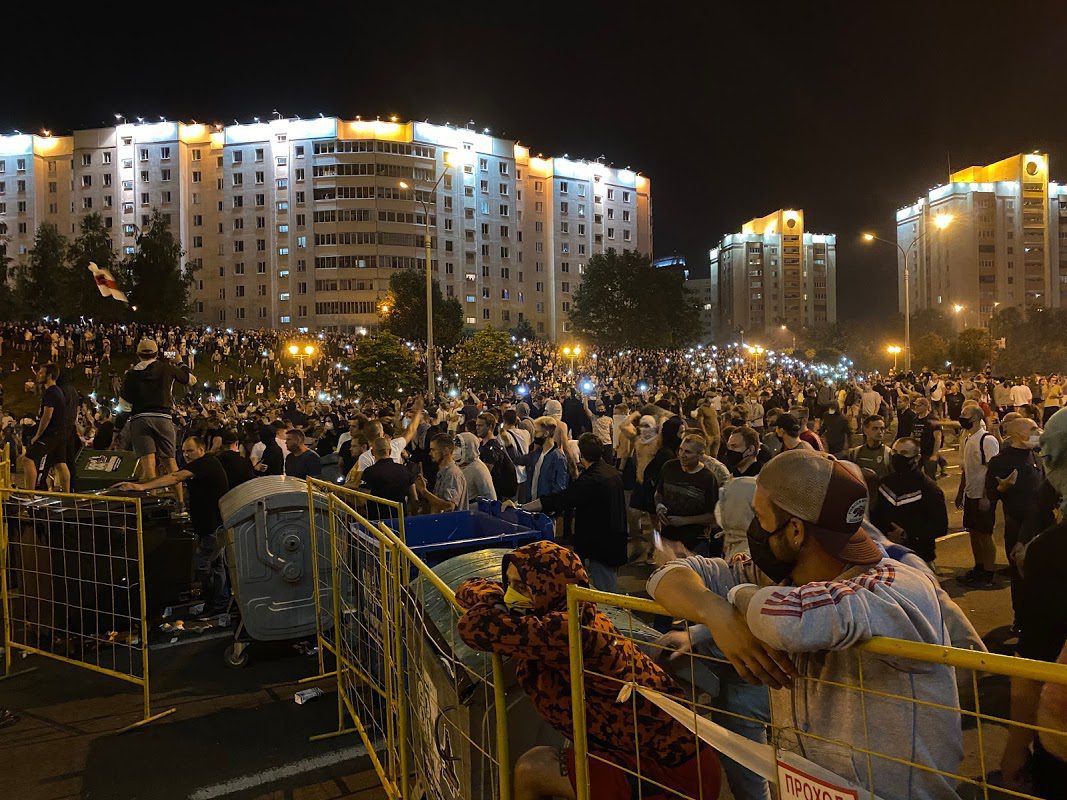

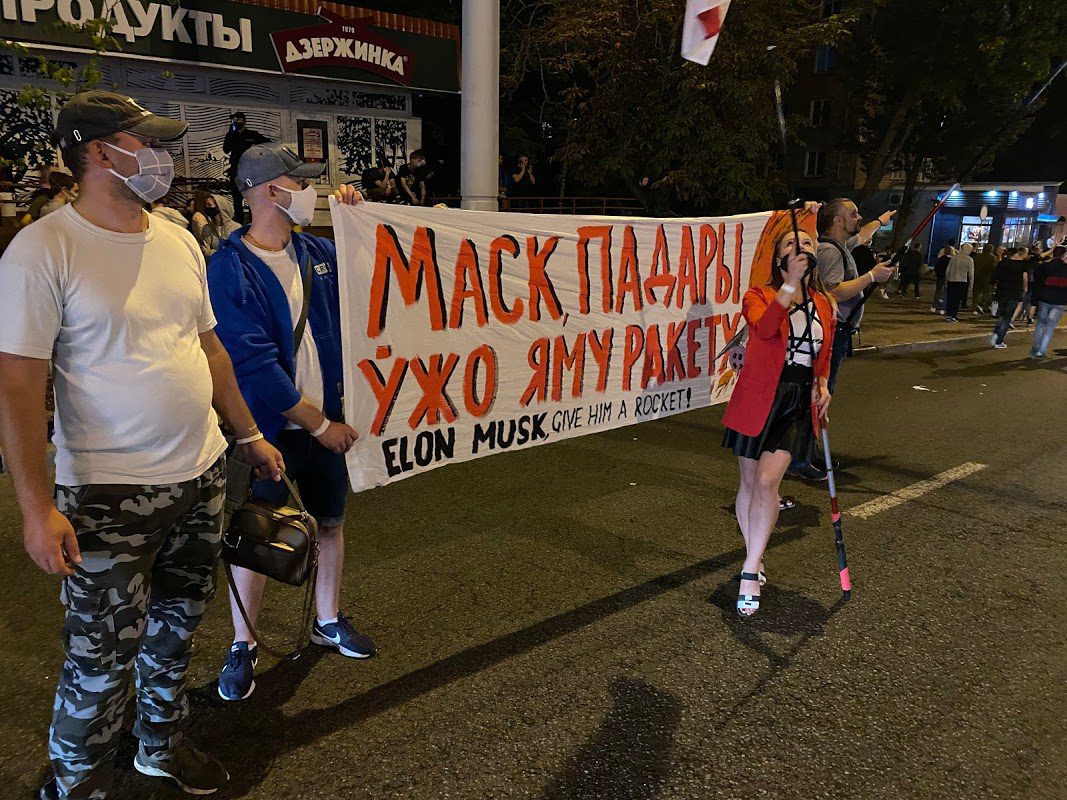
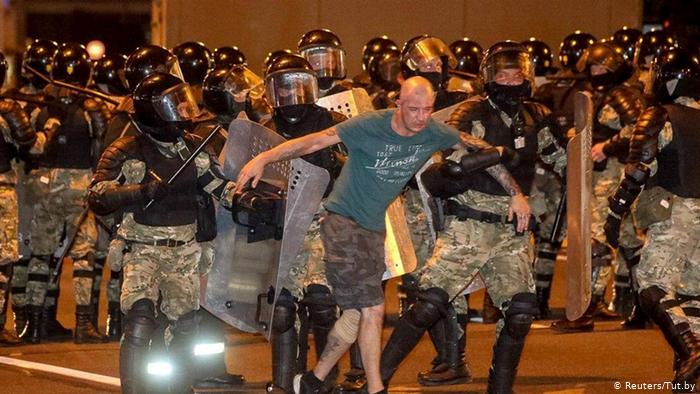
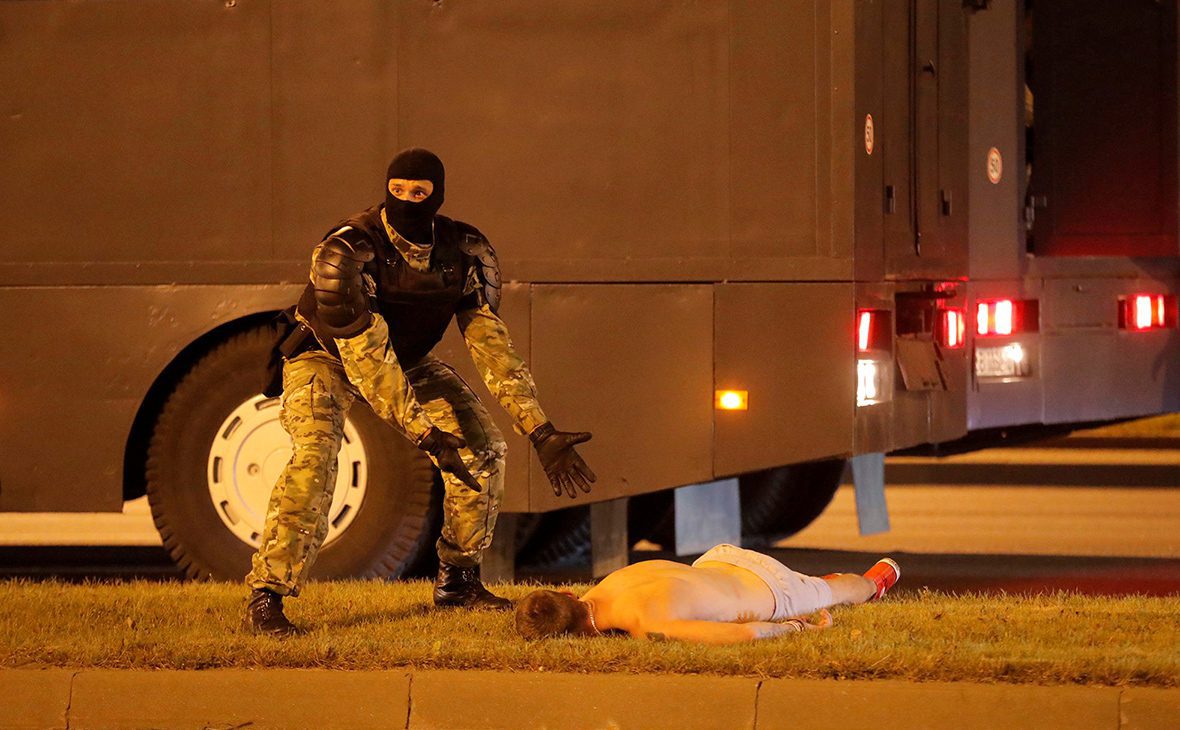
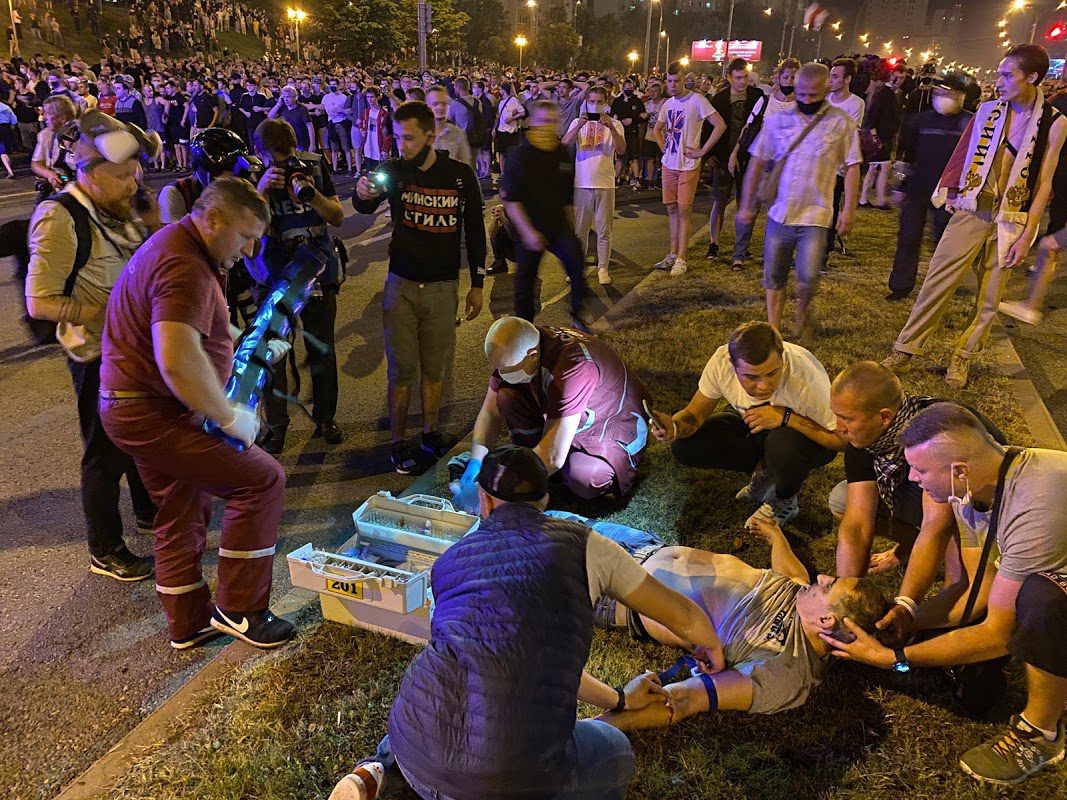
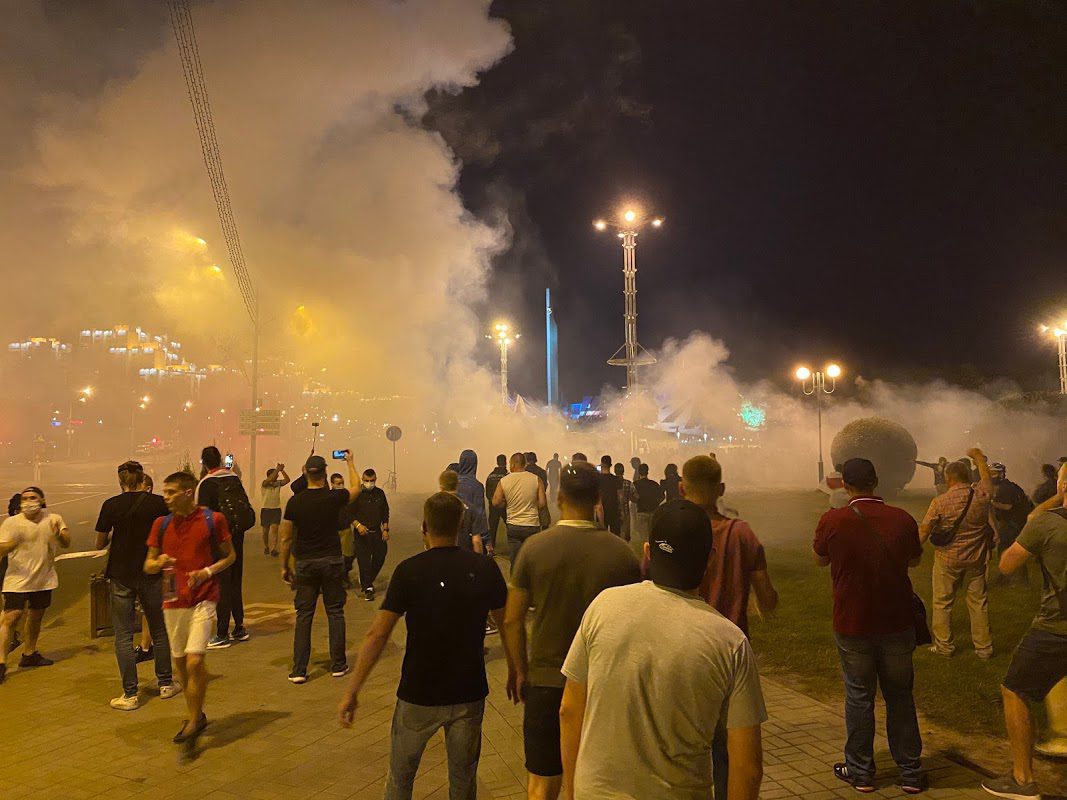
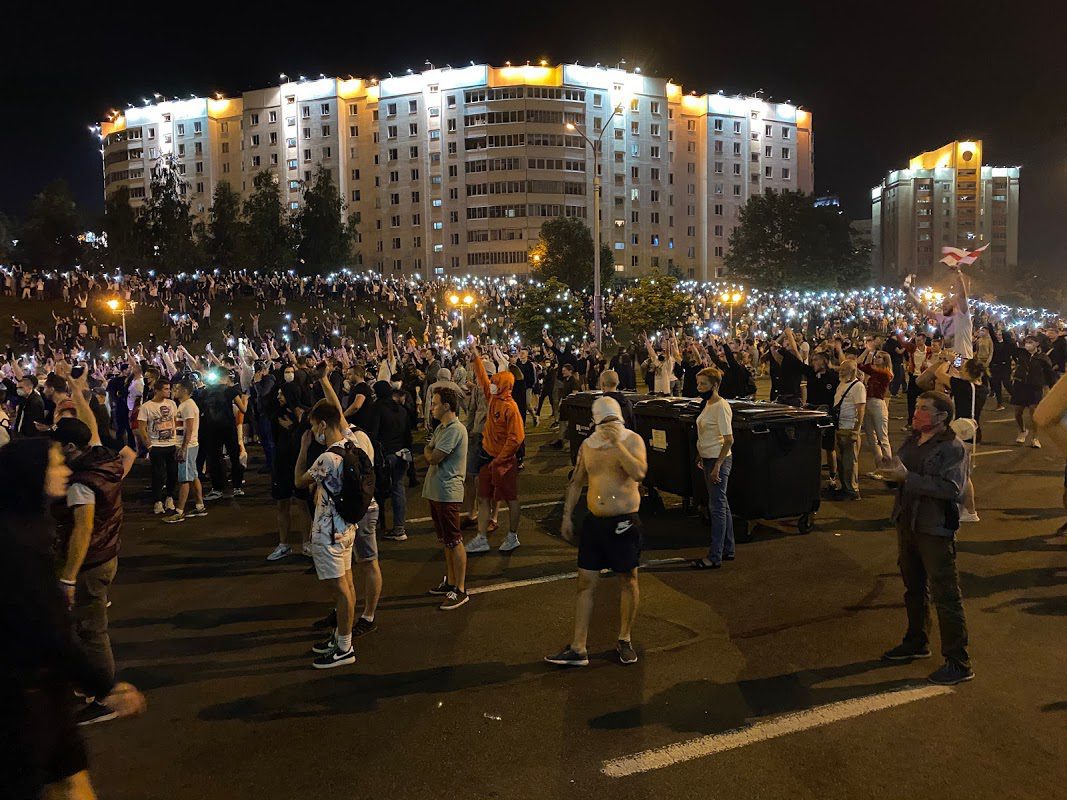
There was no stable Internet connection in the country.
The CEC reported preliminary results: Lukašenka — 80.23%, Cichanoŭskaja — 9.9%. There was no vote counting at night; the CEC was evacuated.
The Holas platform reported that more than 80% of users registered on the platform voted for Cihanoŭskaja.
Cichanoŭskaja filed a complaint with the CEC and demanded a vote recount.
Lukašenka called the protesters sheep, who “do not understand what they are doing, and who are already beginning to be controlled.”
The USA called the elections in Belarus unfree and unfair.
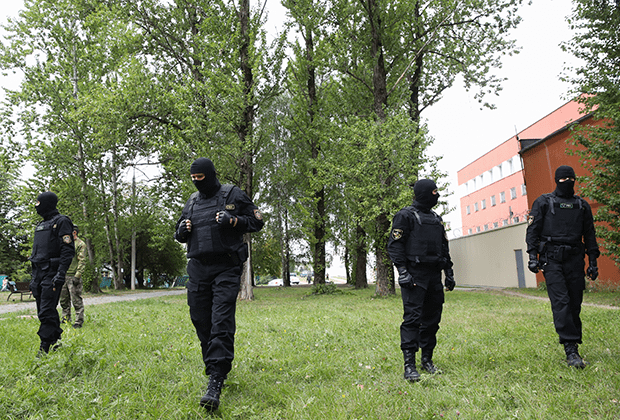
In the evening, protests resumed. The flash grenades were heard again. Near the Frunzienskaja metro station, security forces shot Natallia Lubnieŭskaja, a journalist from Nasha Niva, in the leg from a distance of 10 meters. On Puškin Avenue, near the Aurora cinema, a photojournalist of the Belsat TV channel Tacciana Kapitonava was concussed after a stun grenade exploded near her.
Tear gas, water cannons were used, explosions were heard at the Pushkinskaya metro station. It was there that Aliaksandr Tarajkoŭski died. According to the Ministry of Internal Affairs, it happened because of an exploding device he had in his hand. A few days later, a video appeared showing that he died from a shot in the chest.
Again there were many detainees not only in Minsk but also in other cities. The Investigative Committee opened 21 cases about riots and violence against police officers.
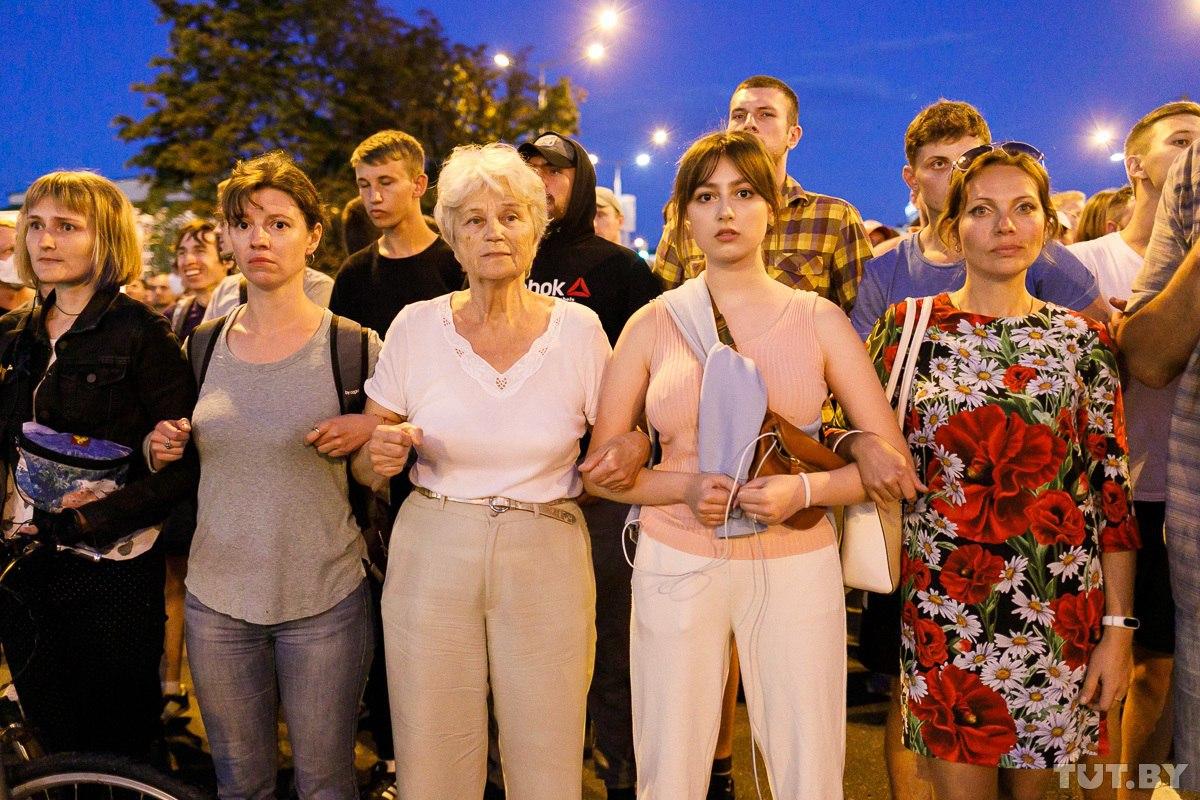
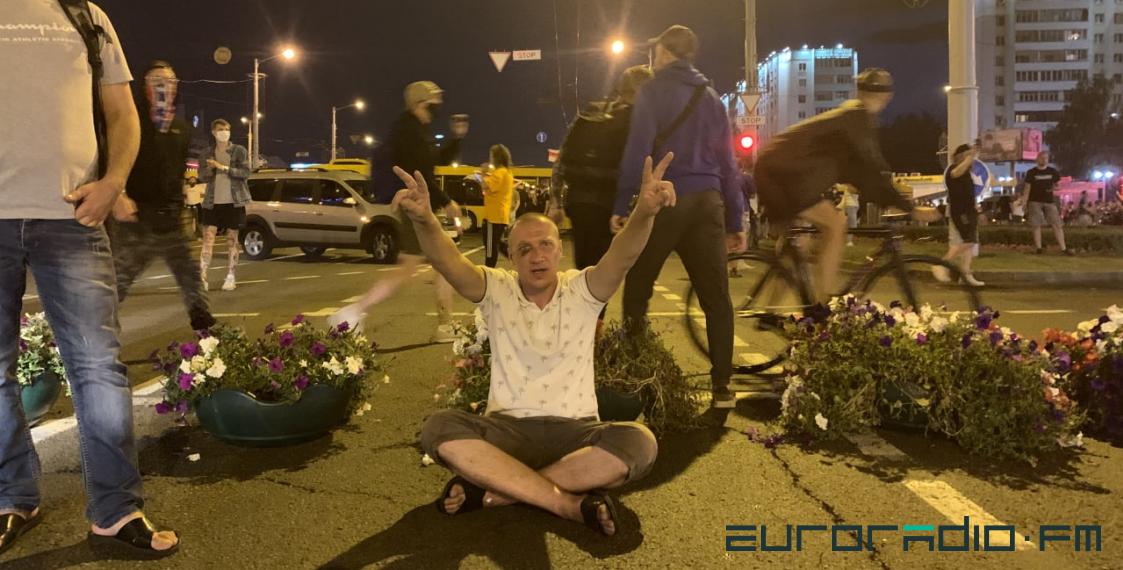
In Telegram channels, a video was published of Sviatlana Cichanoŭskaja in the office of Lidzia Jarmošyna reading out an appeal. The security forces took her straight from the office to Lithuania together with the previously detained Maryja Maroz.
Flowers were brought to Puškinskaja metro station, where a man died the day before. Passing cars honked. From time to time, riot police showed up; people ran away.
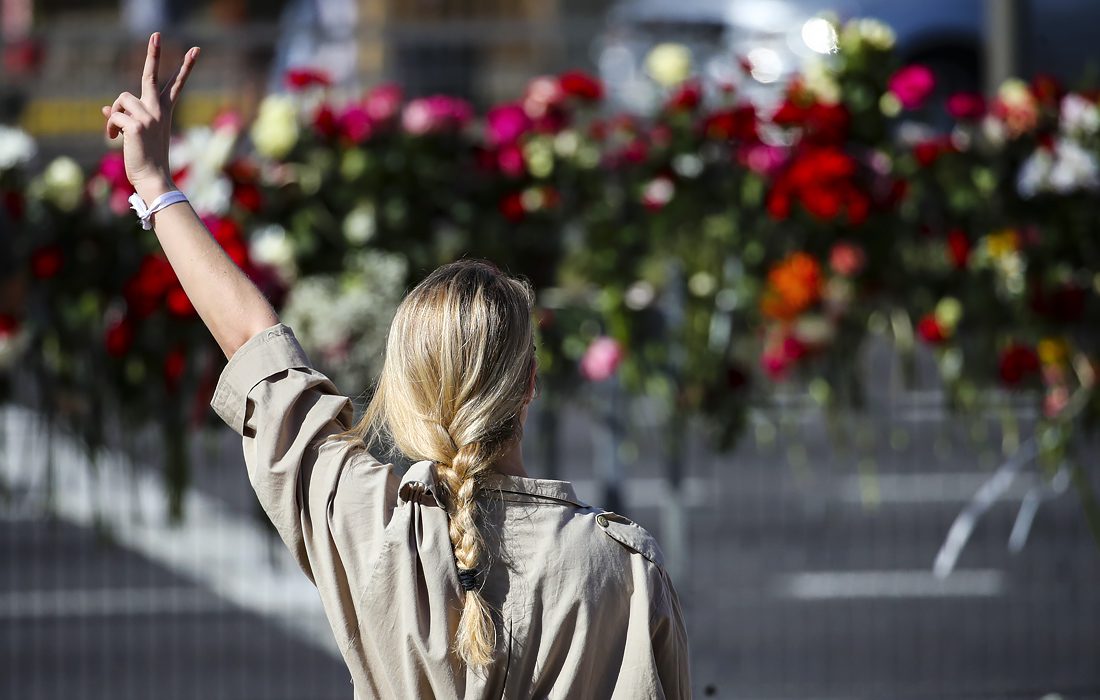
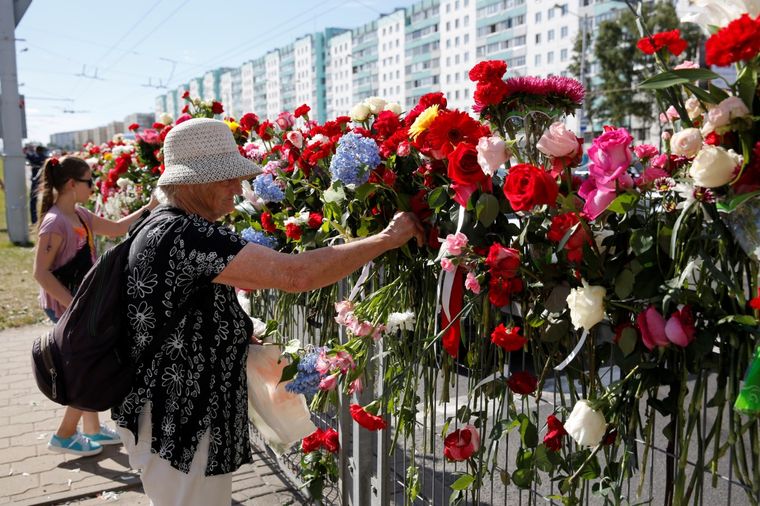
The Ministry of Health said that there were 200 injured people in hospitals.
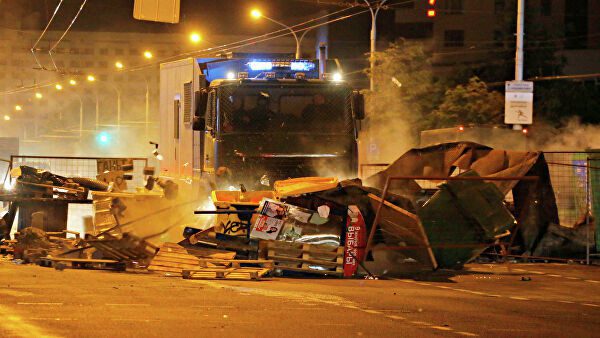
Women across Belarus took to the streets with flowers to protest against the brutality of the security forces.
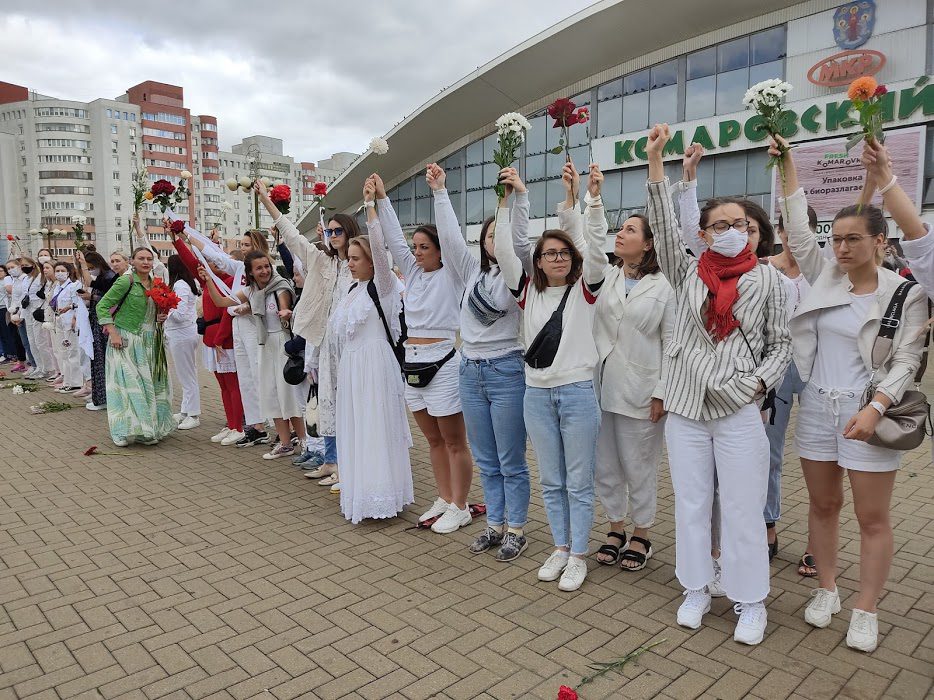
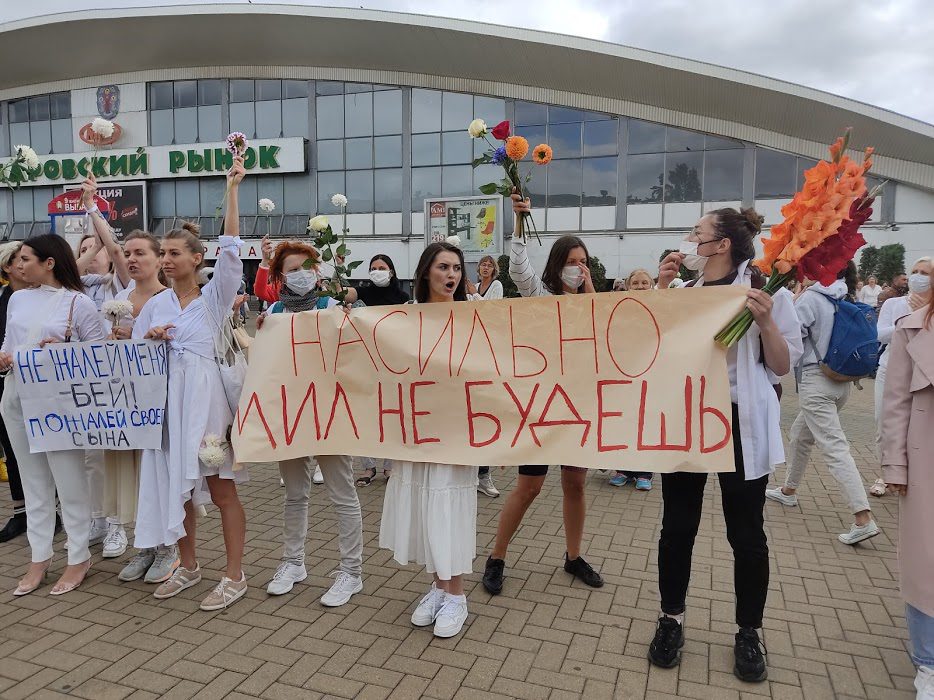
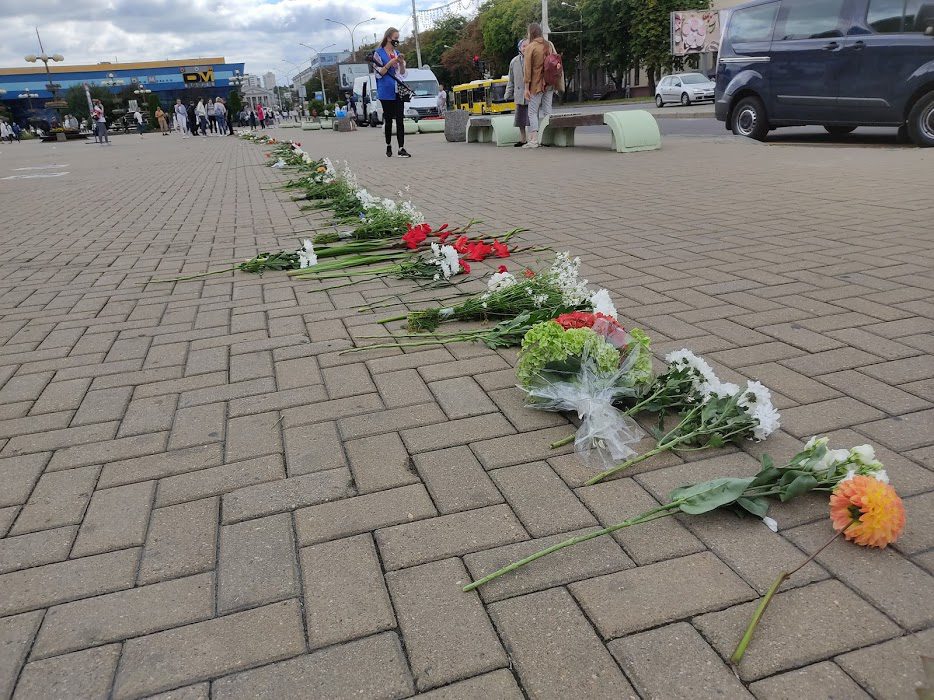
Doctors came out to protest against the violence.
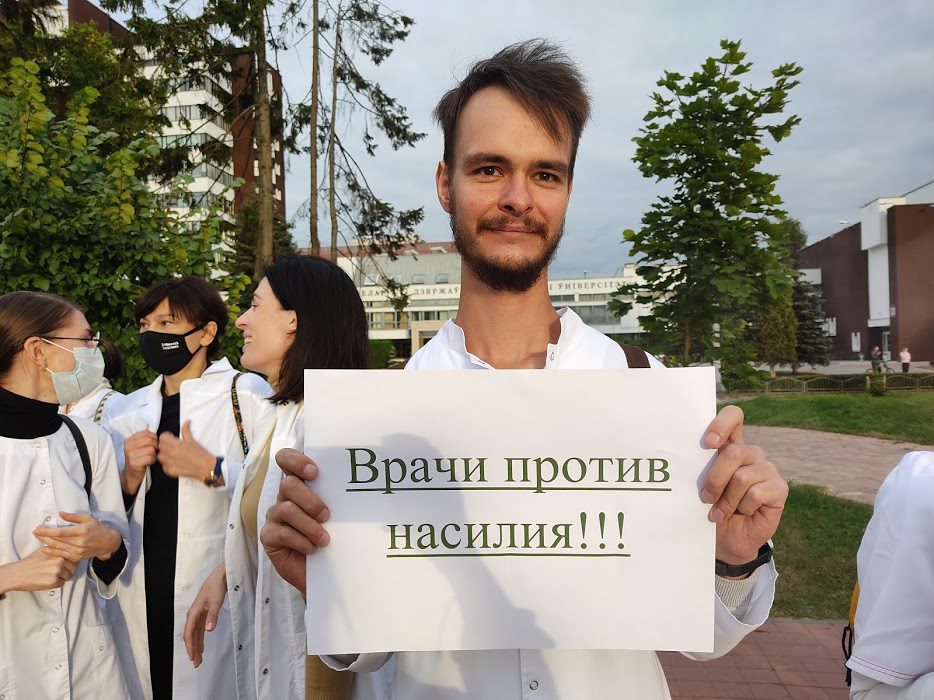
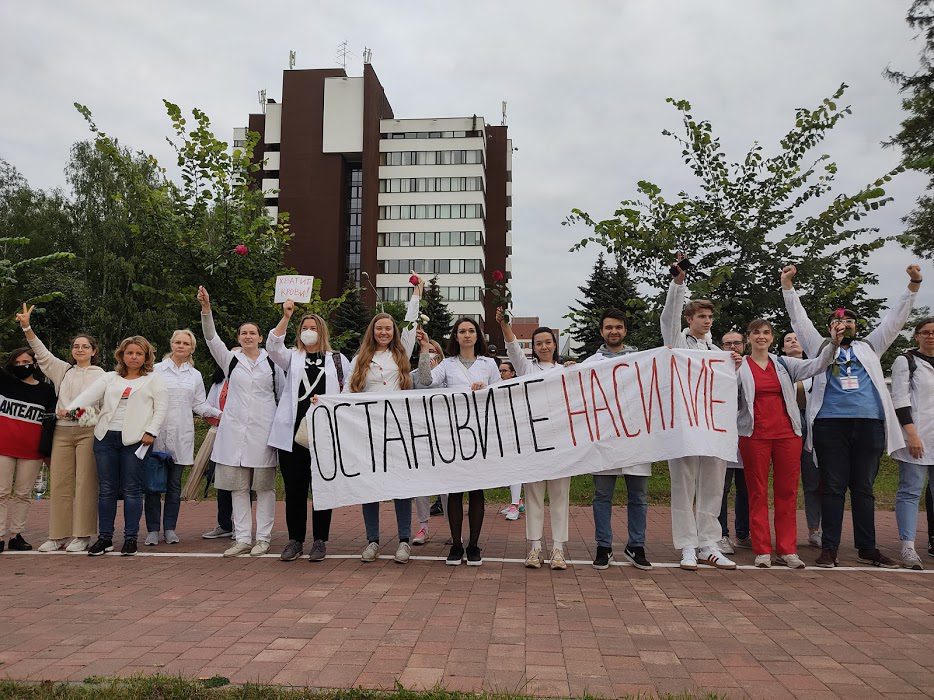
The CEC stated that “there is currently no legal mechanism for voters to familiarize themselves with the protocols.”
In Homiel, 25-year-old Aliaksandr Vichor, who was detained earlier at a rally, died.
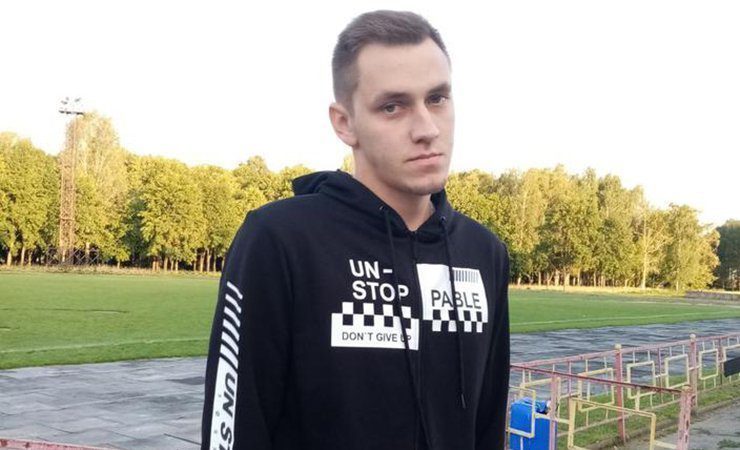
The first detainees were released from Akrescin Street: they tell how people are put in four-bed cells, their teeth knocked out, white bracelets put in their mouths and promised to “teach whom to love and whom to vote for.”
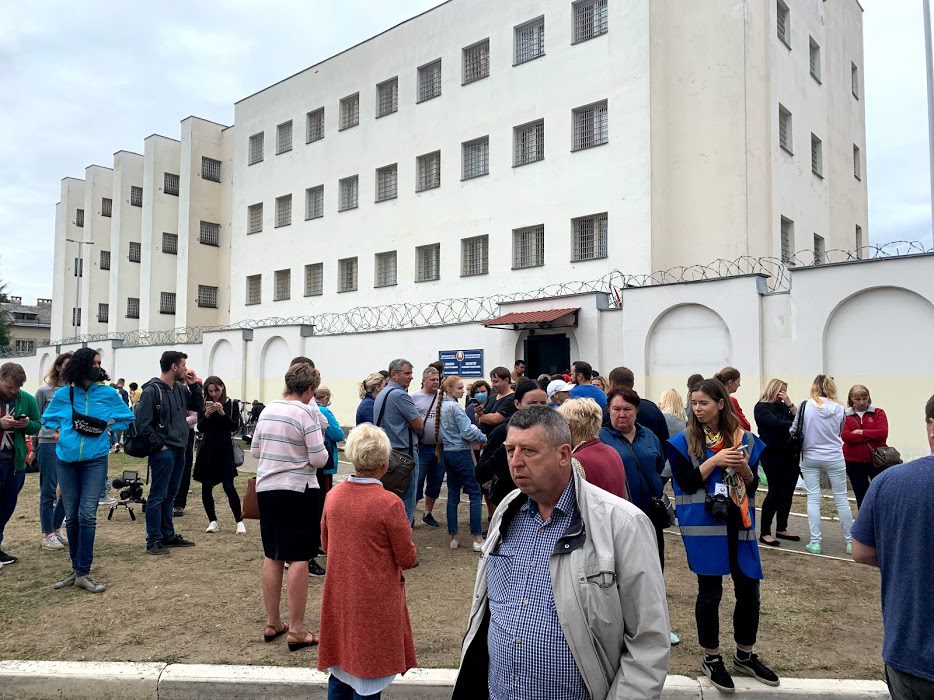
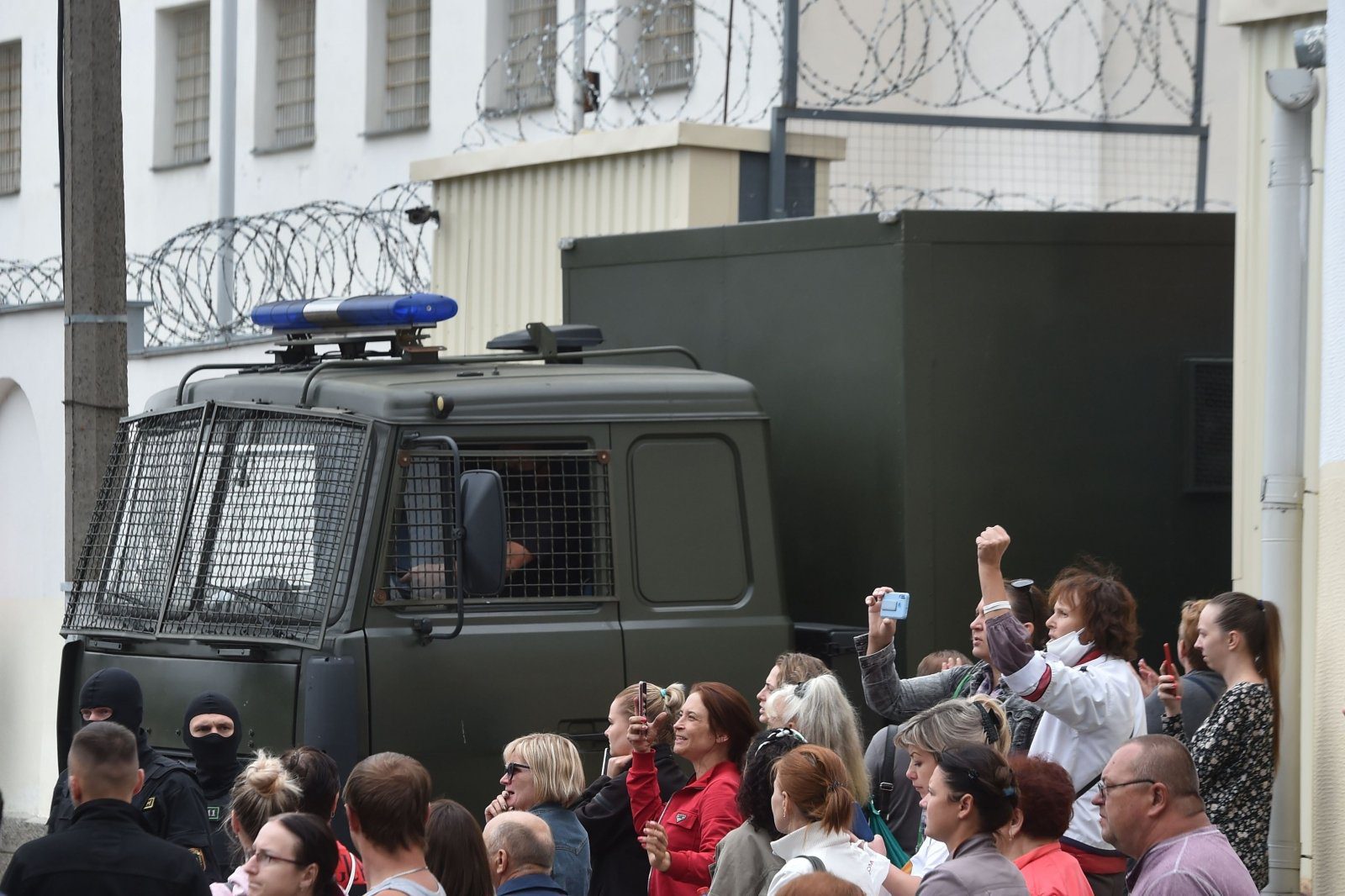
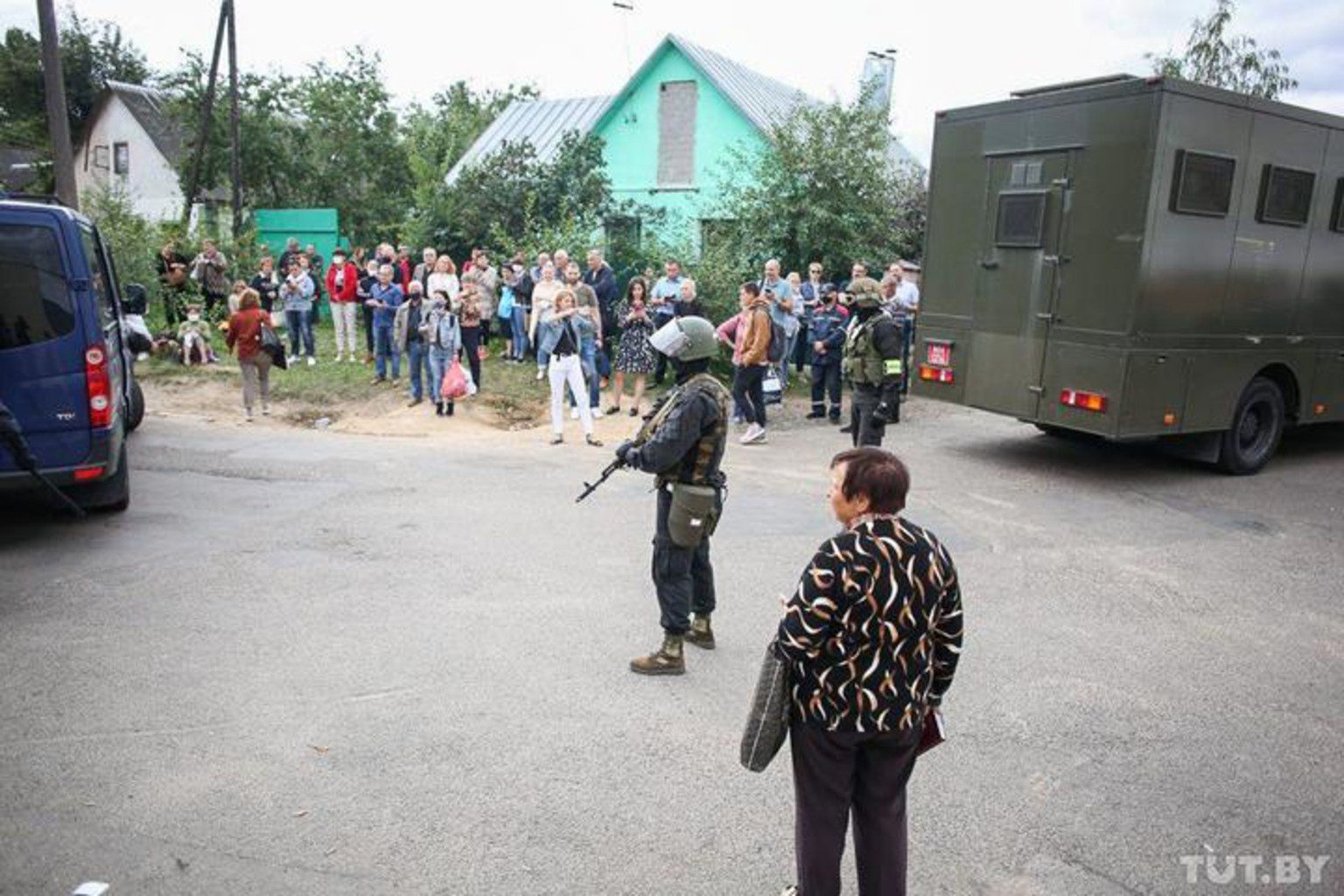
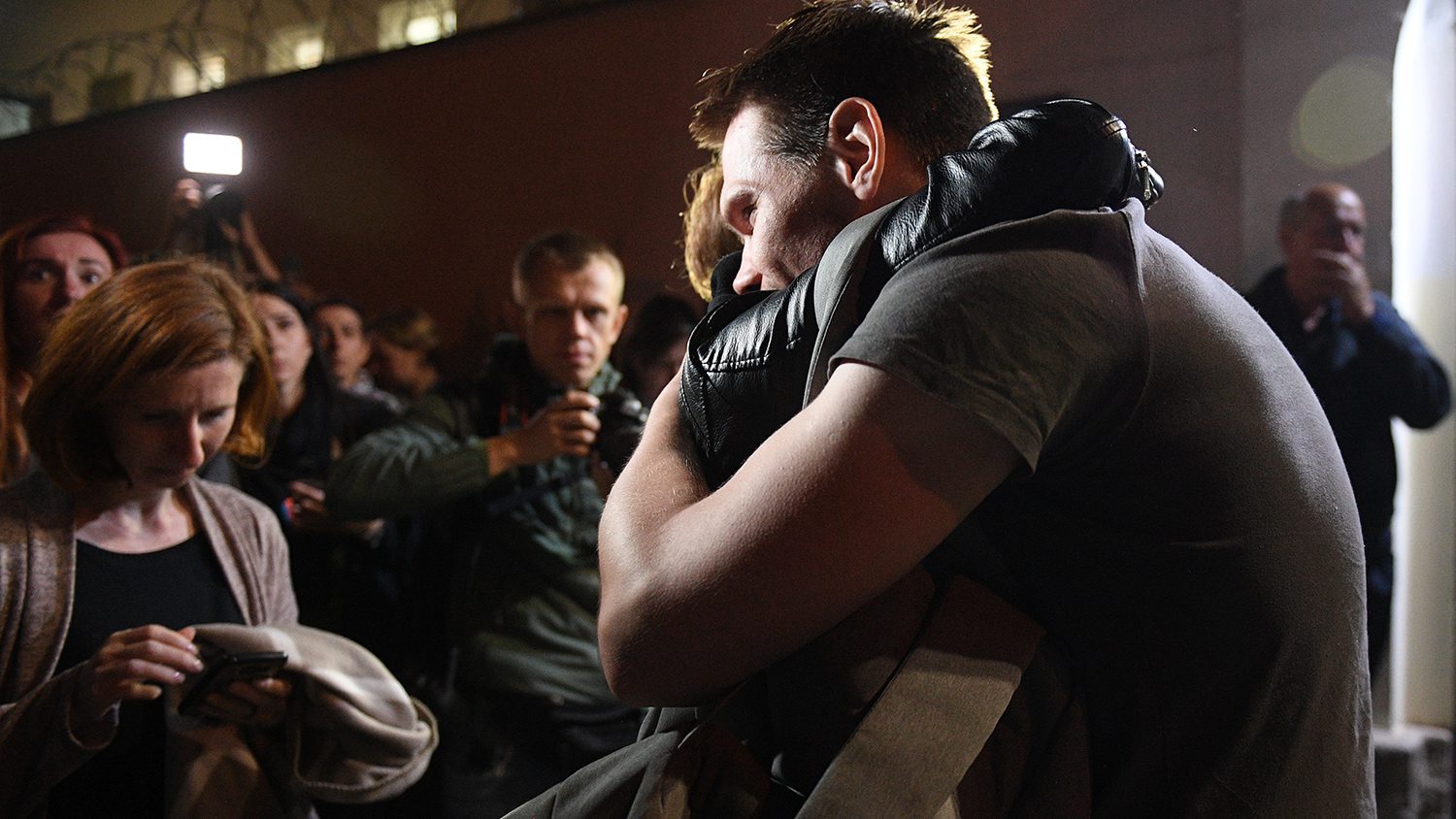
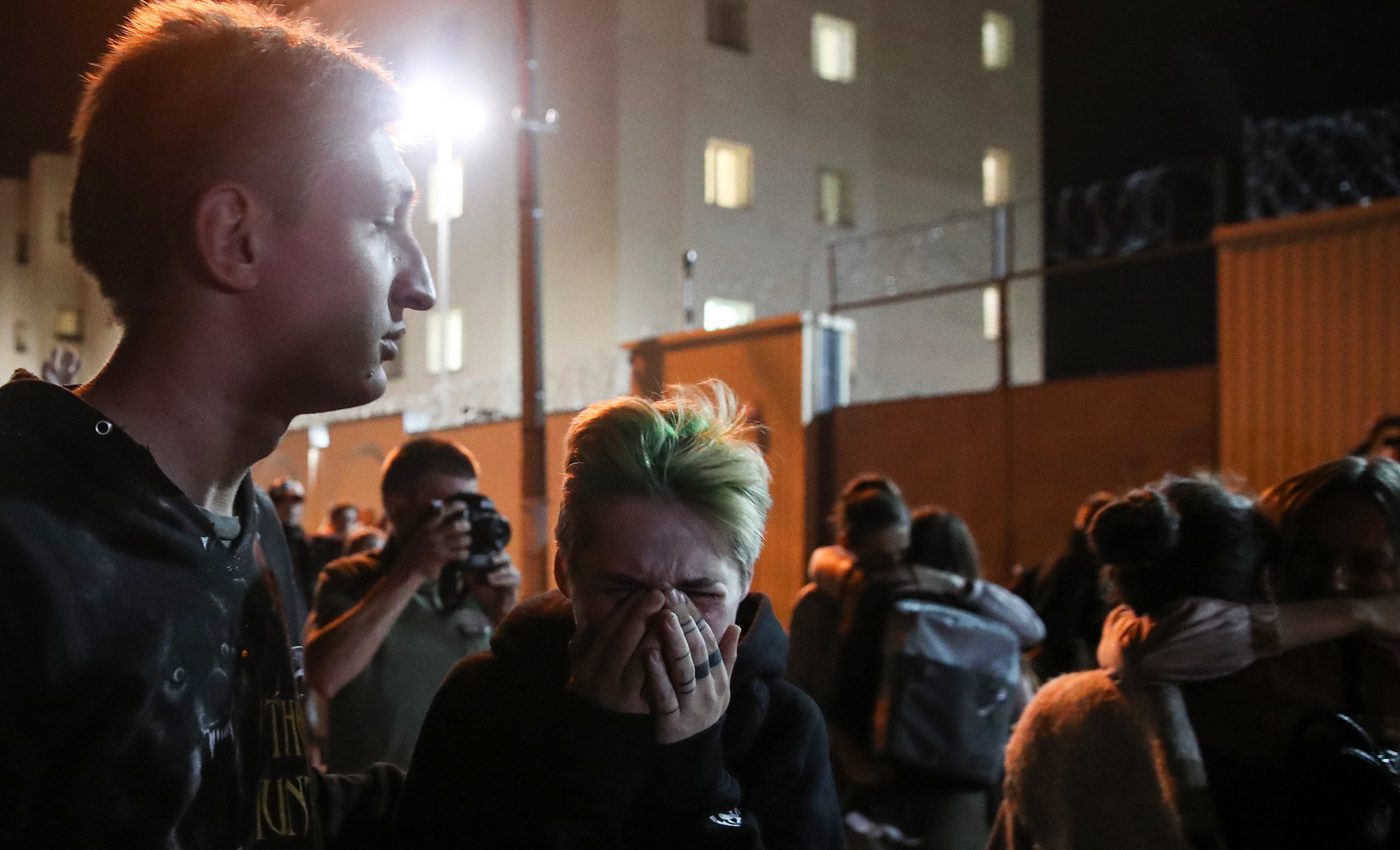
Chains of solidarity are emerging throughout the country.
Doctors, railway workers, workers of MAZ, BelAZ, Keramin, MTW and many others joined the women’s peaceful protest.
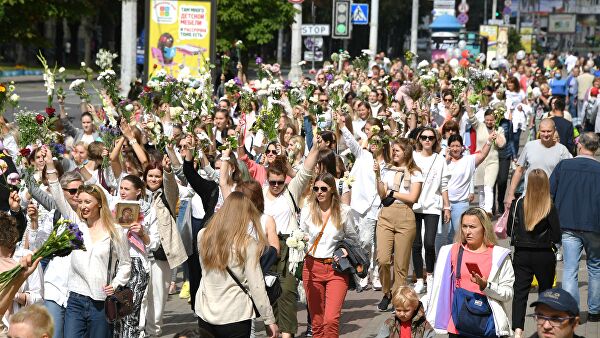

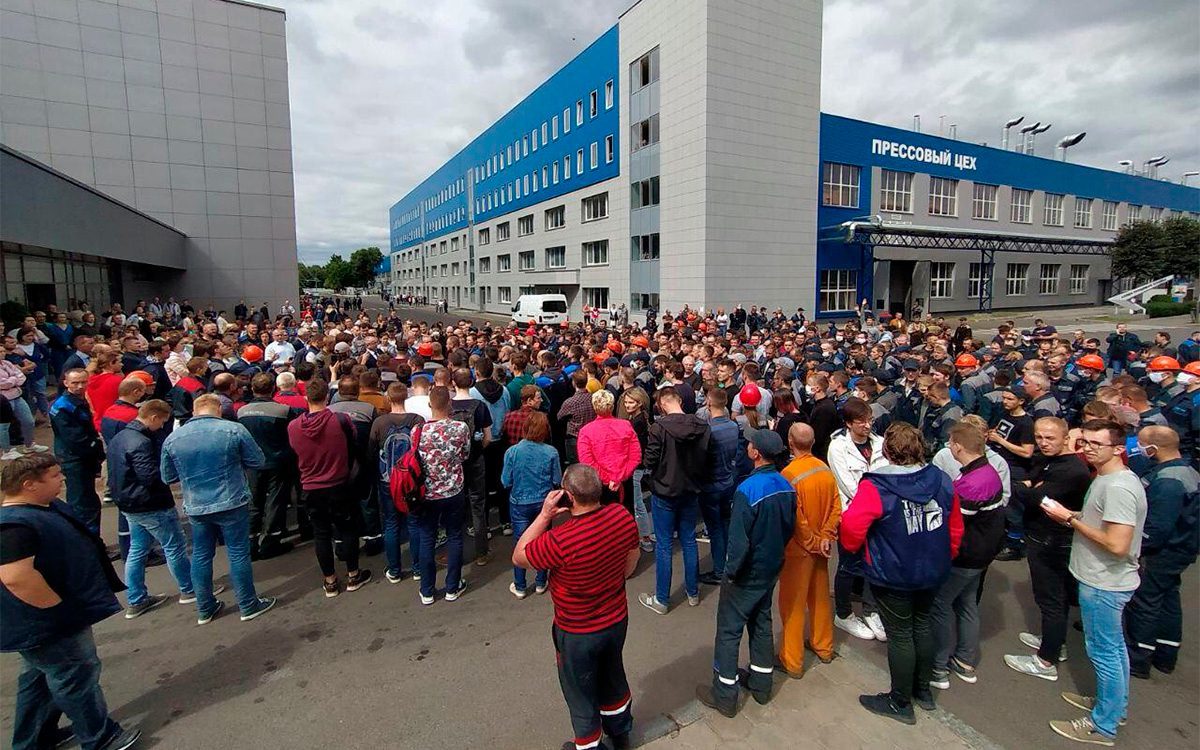
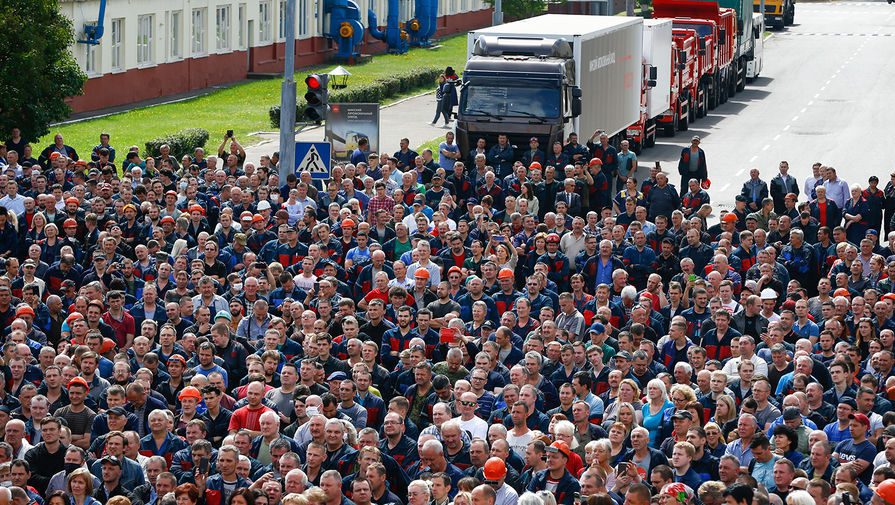
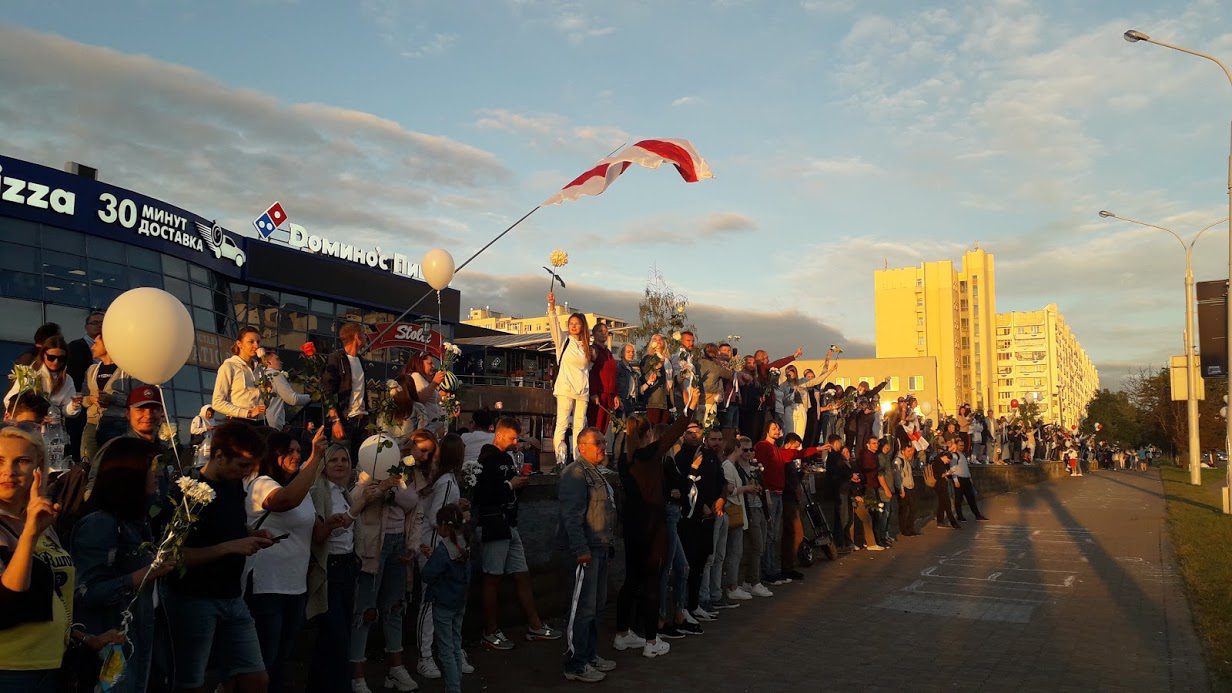
People detained on August 9-13 are being released. People were beaten. Those released have bluish-black bruises all over their bodies, with fractures of ribs, fingers, and concussions.
Belarusians collect money for medical aid for victims of peaceful demonstrations; lawyers say that they will help all those detained at the latest protests free of charge.
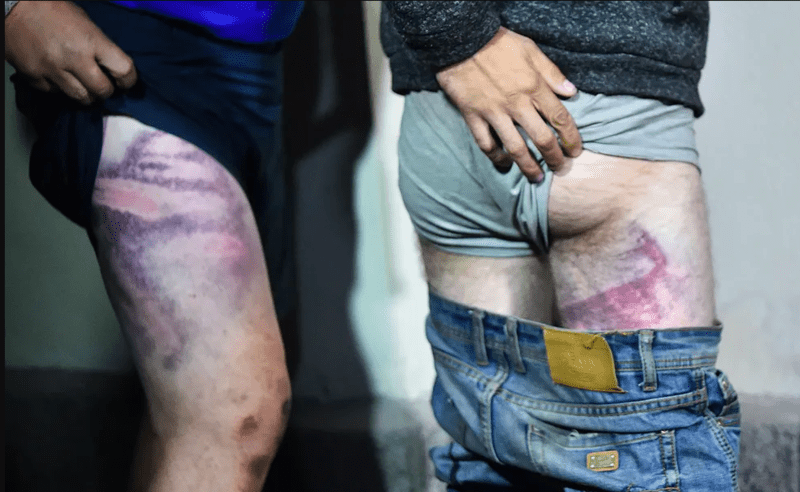
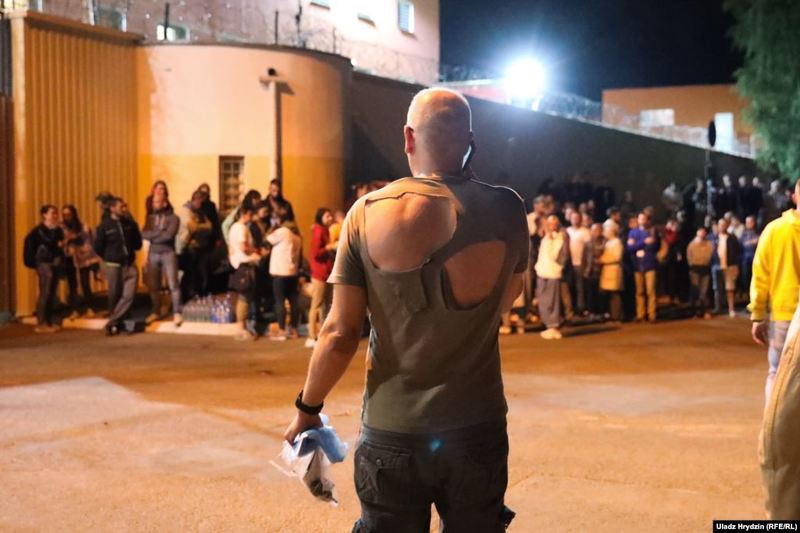
IT specialists were protesting in the Belarus High Technologies Park.
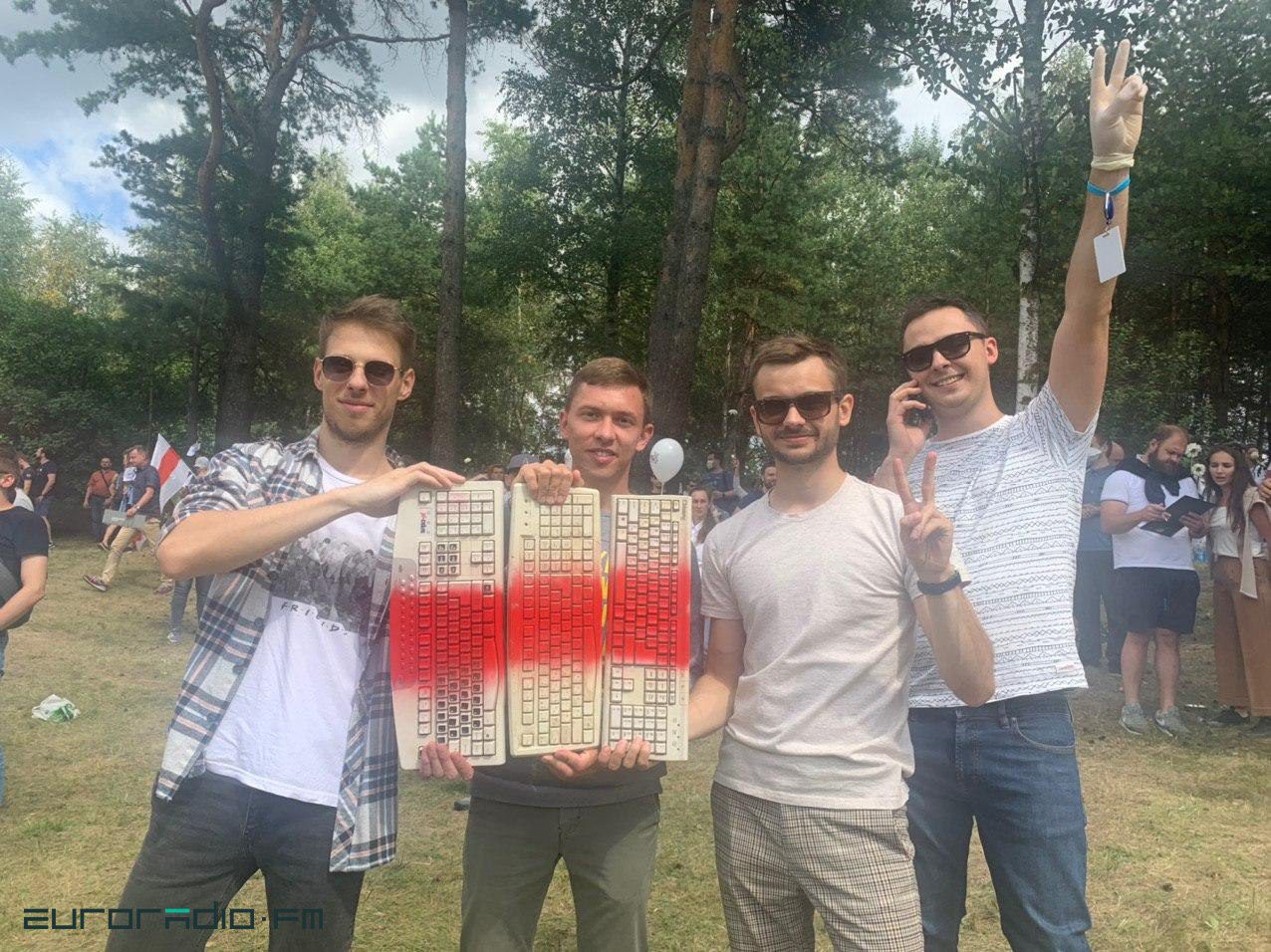
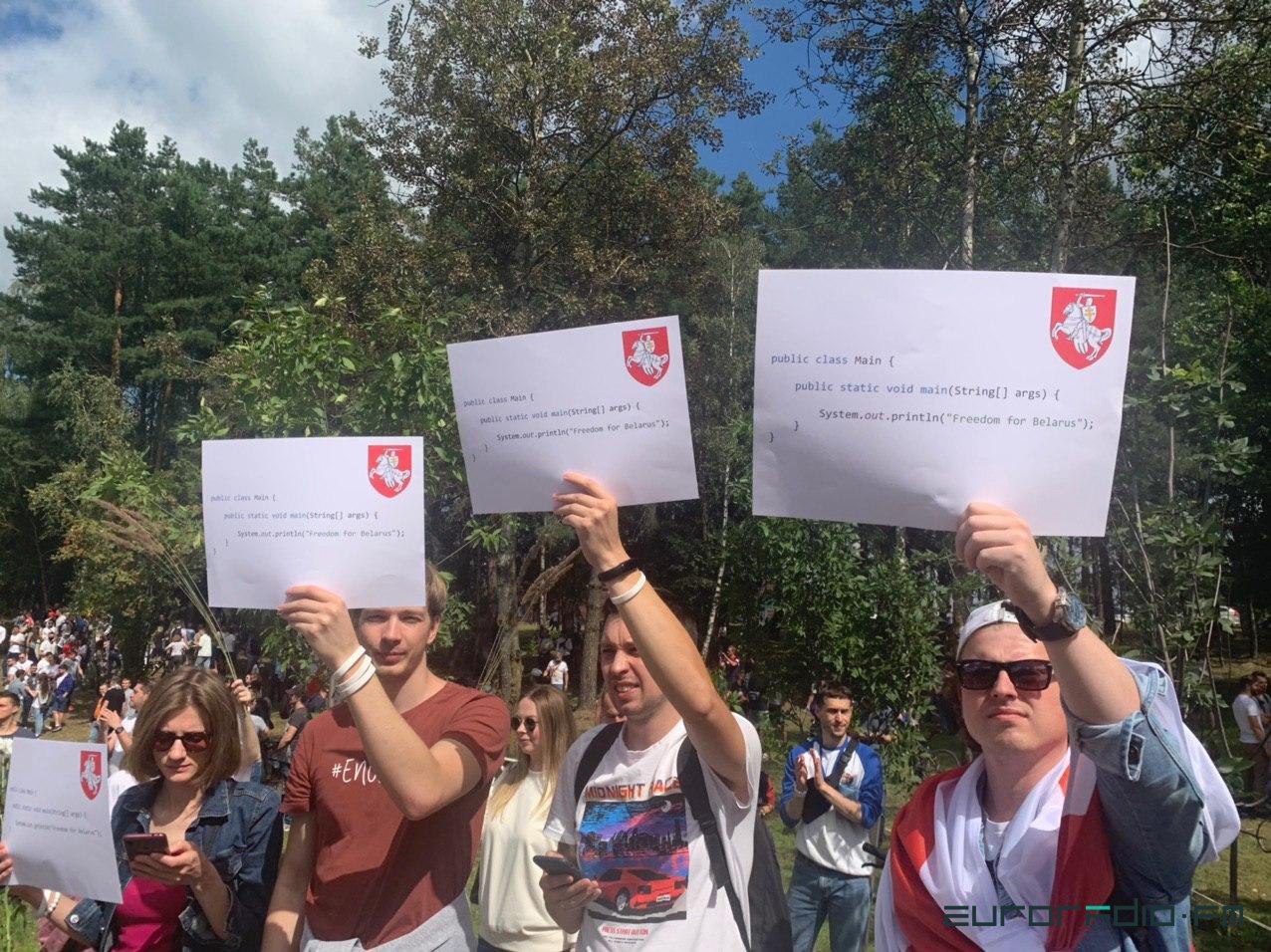
Cichanoŭskaja declares that she is launching a Coordination Council for the transfer of power in Belarus.
MTW workers start a strike; their organized column goes to the Government House.
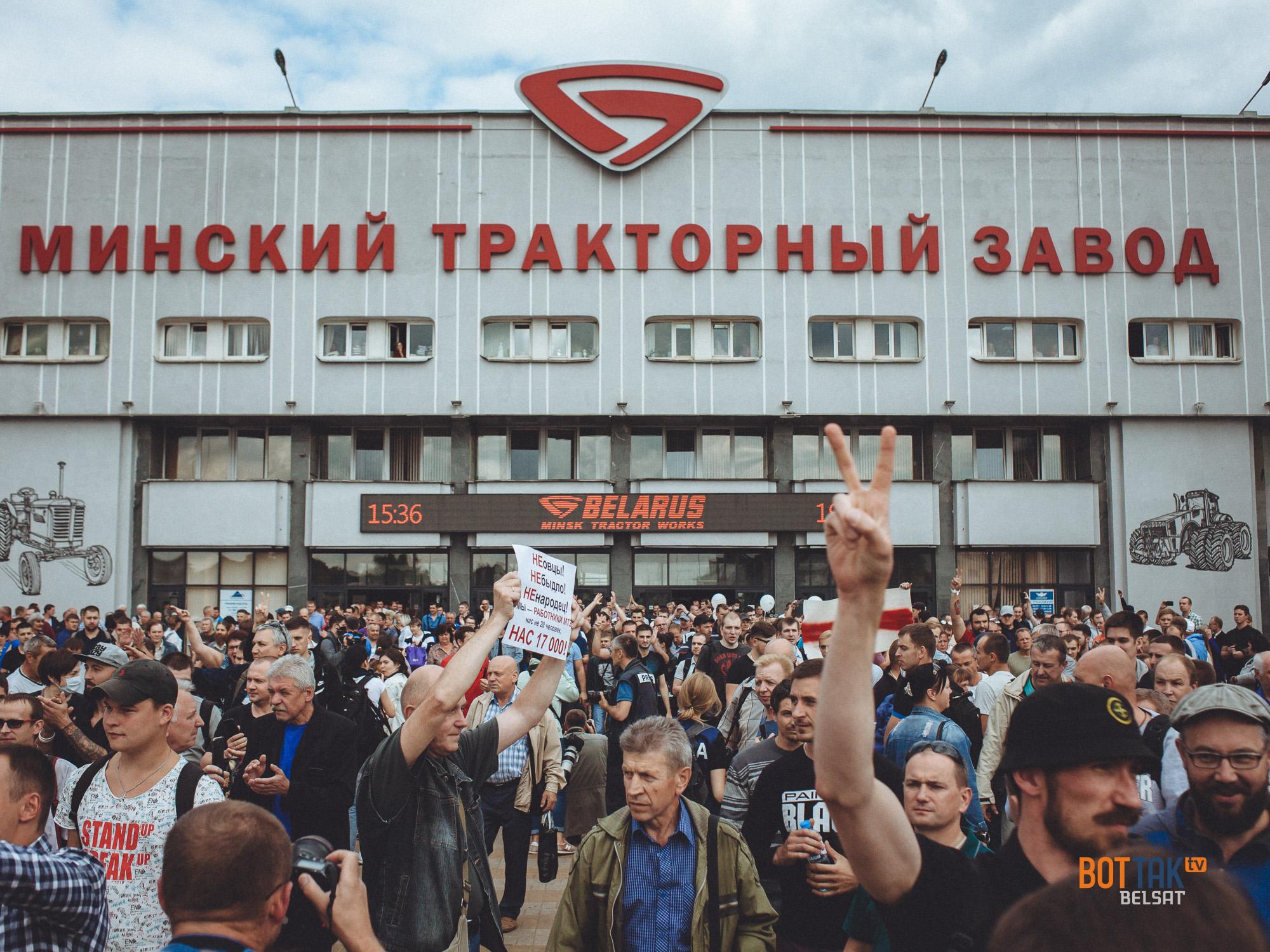
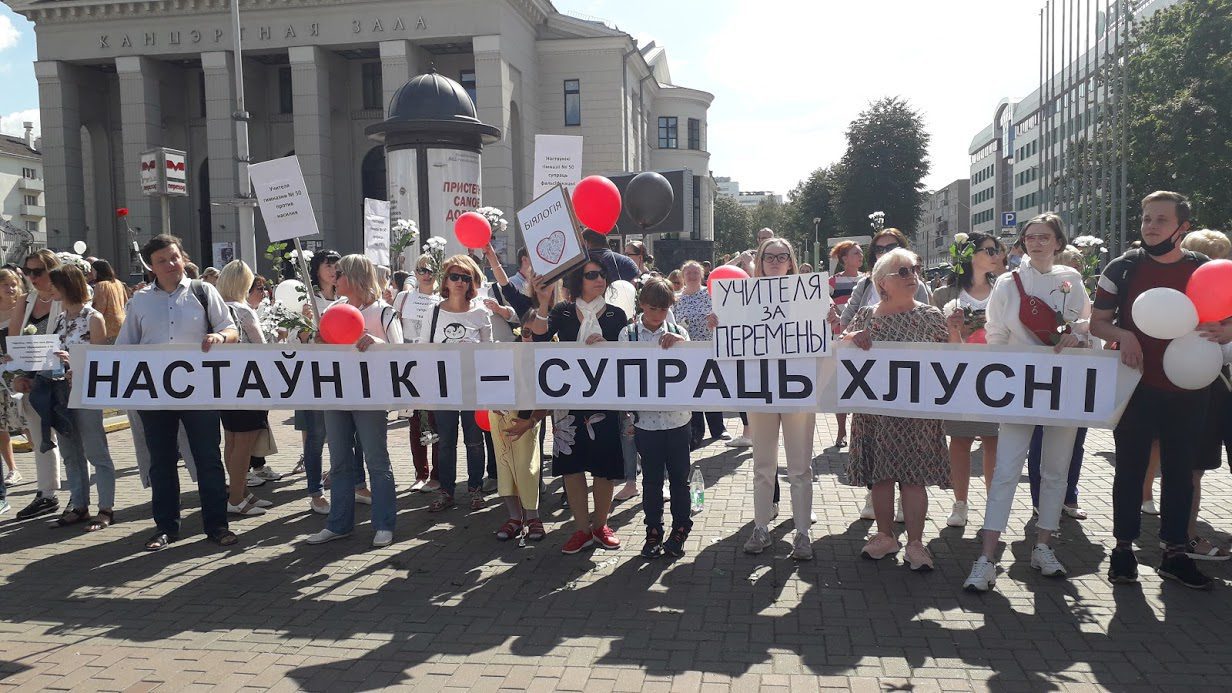
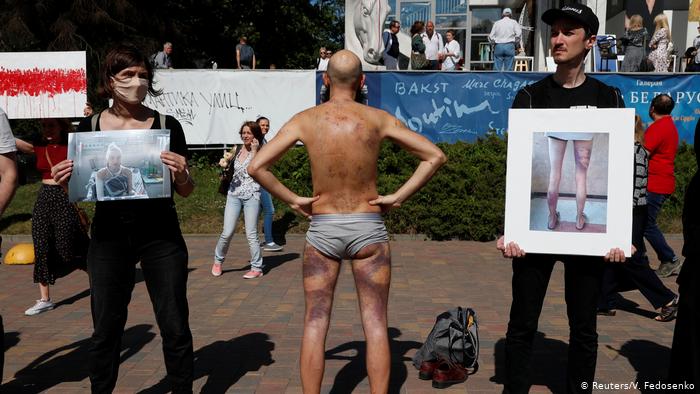
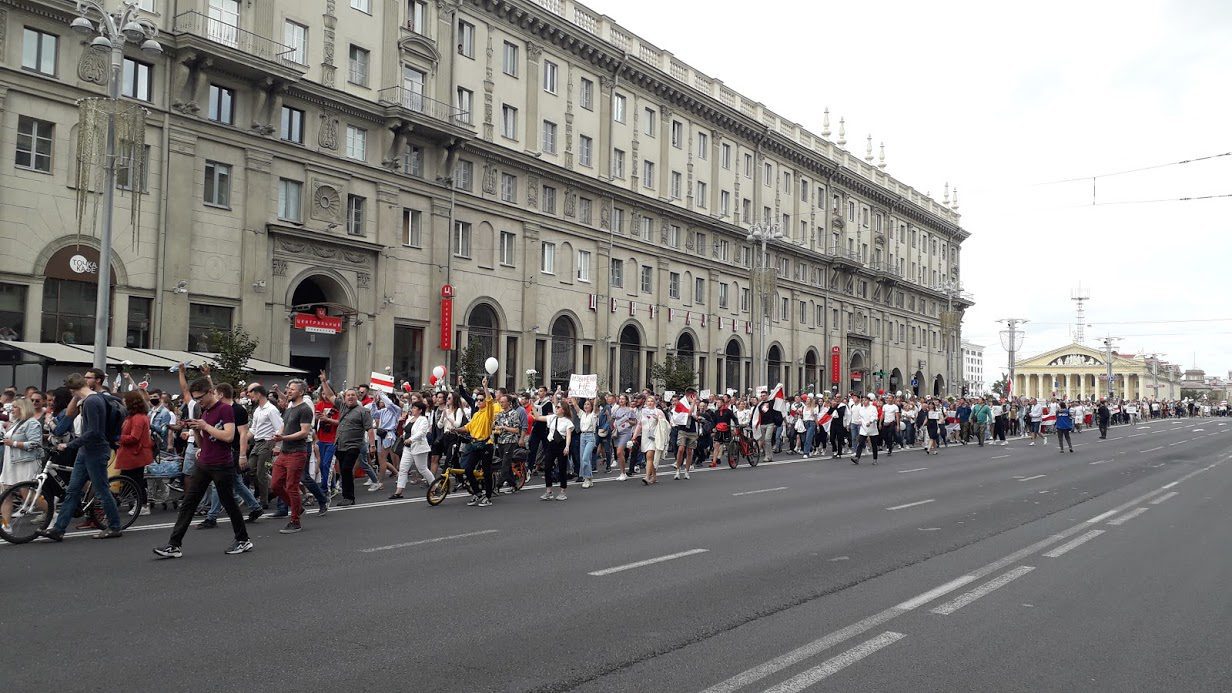
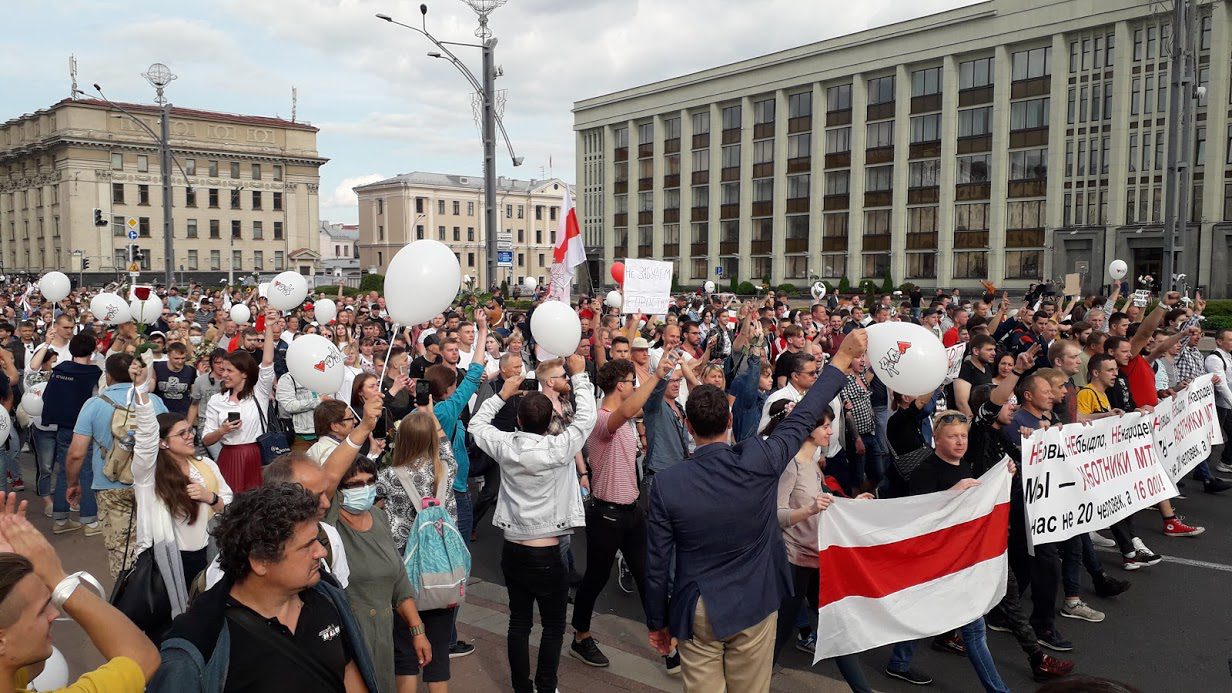
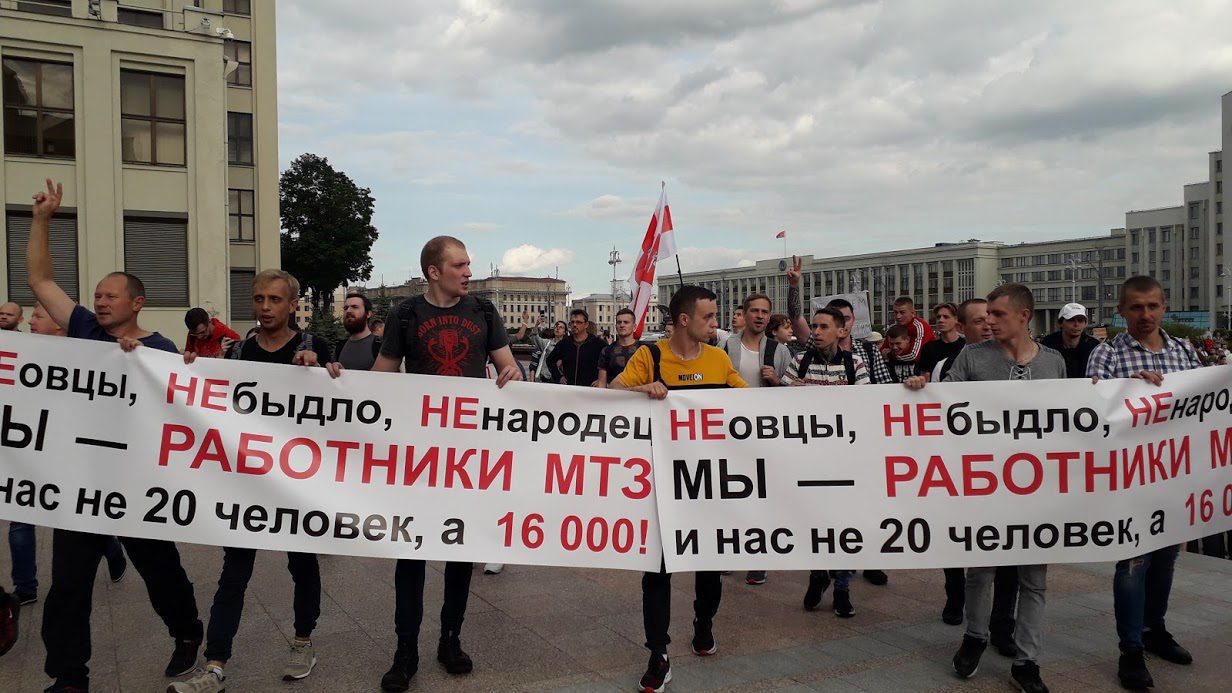
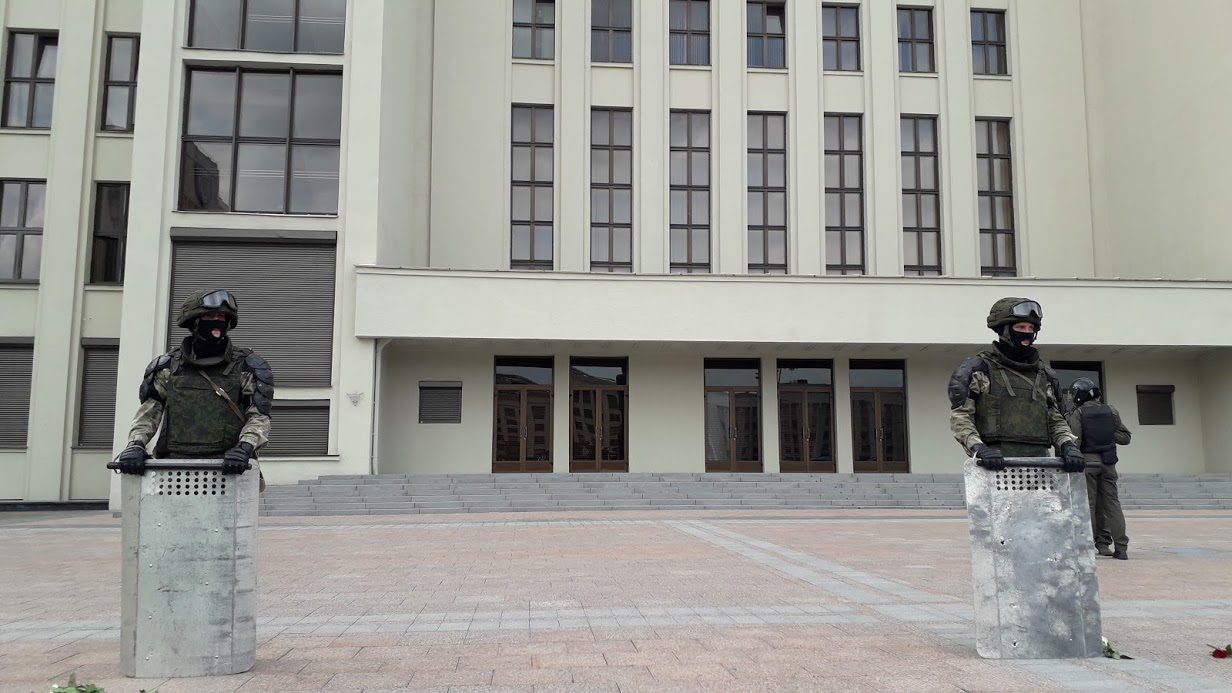
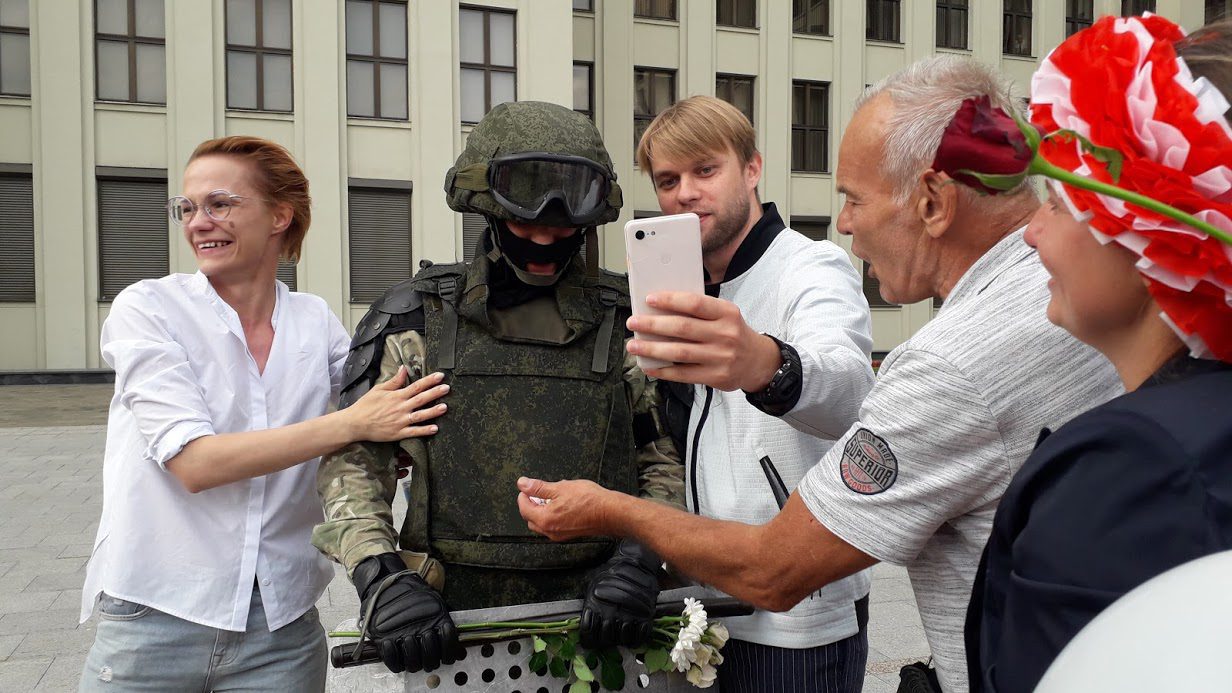
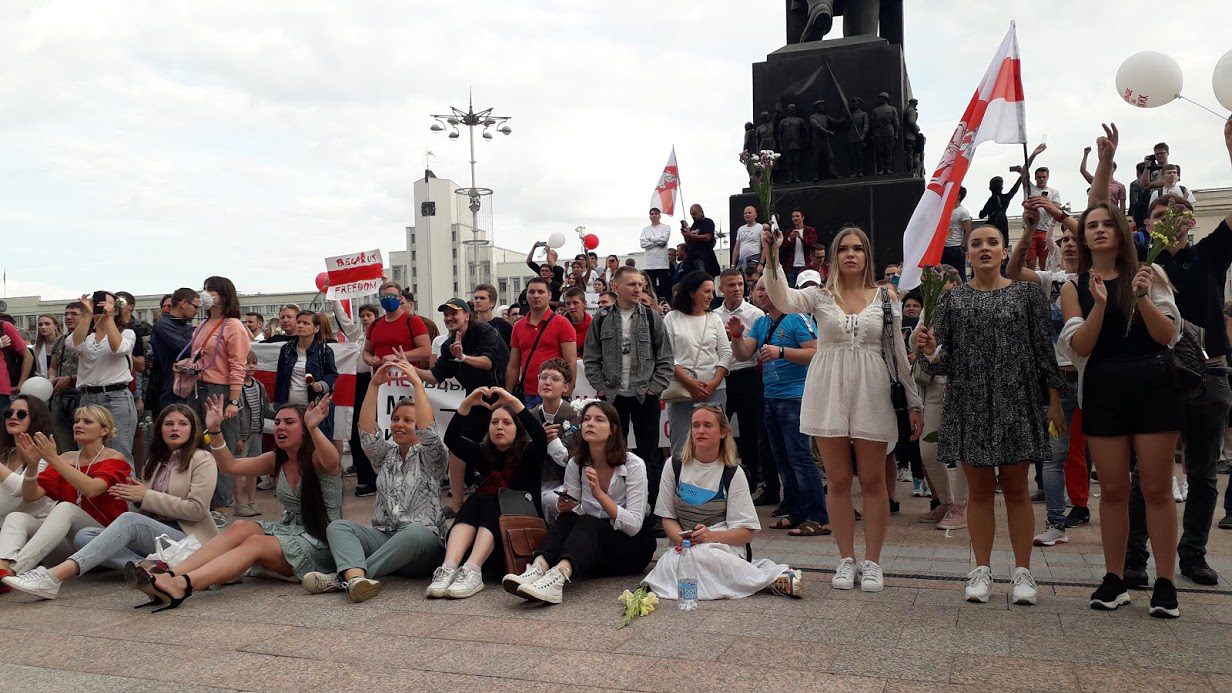
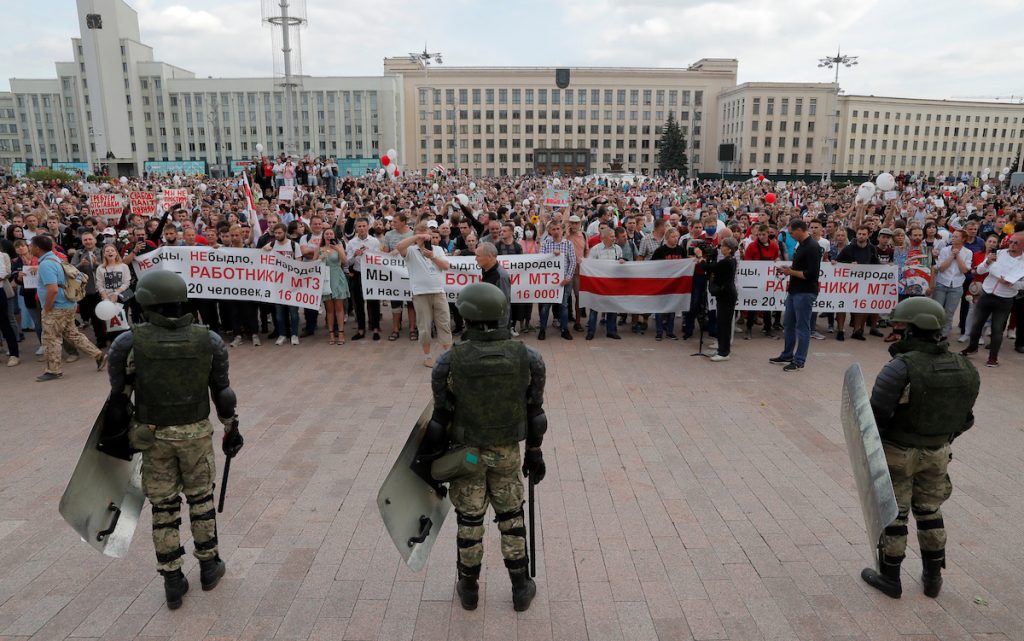
Thousands of people came to say goodbye to Aliaksandr Tarajkoŭski in Minsk.
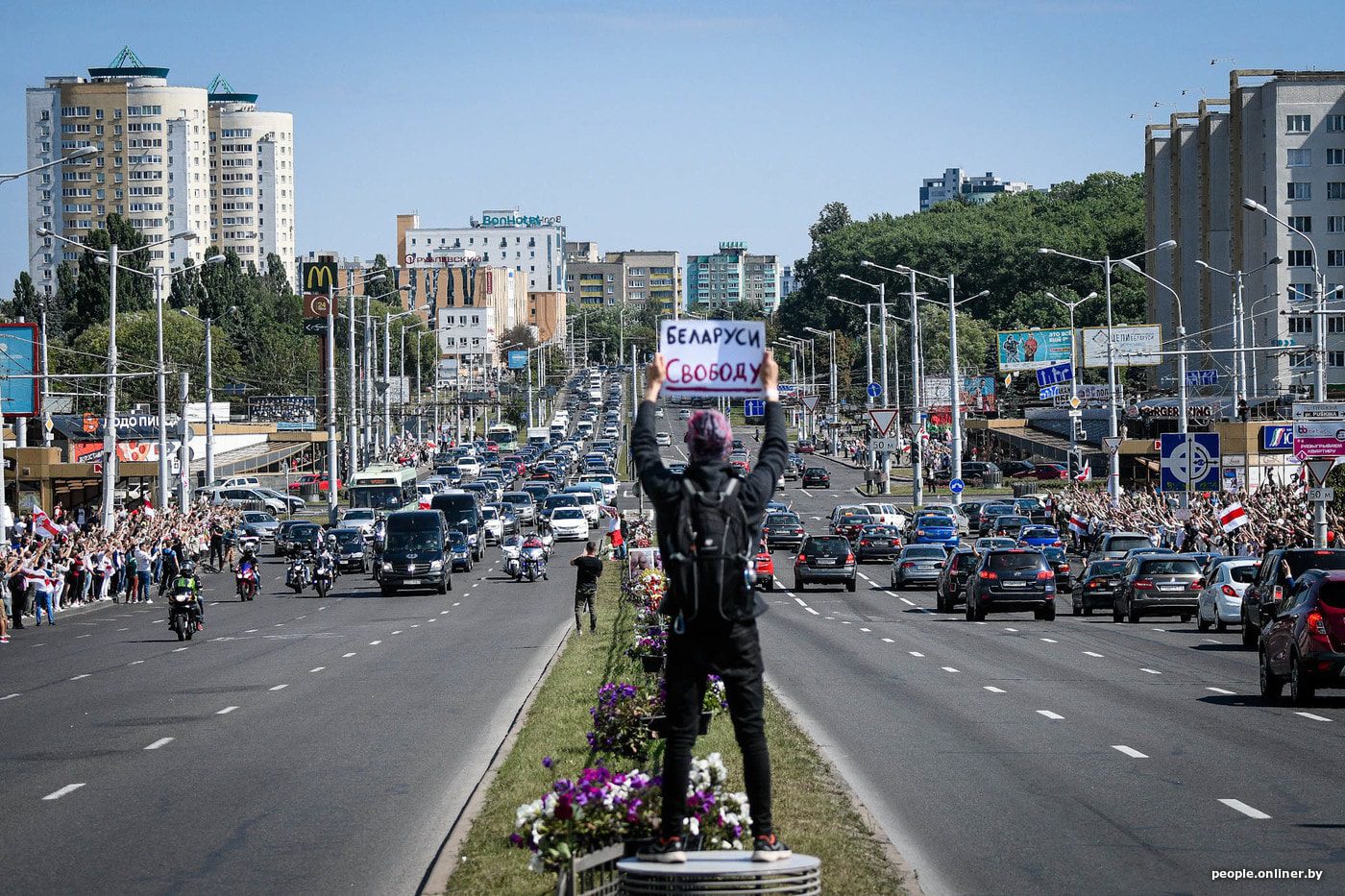
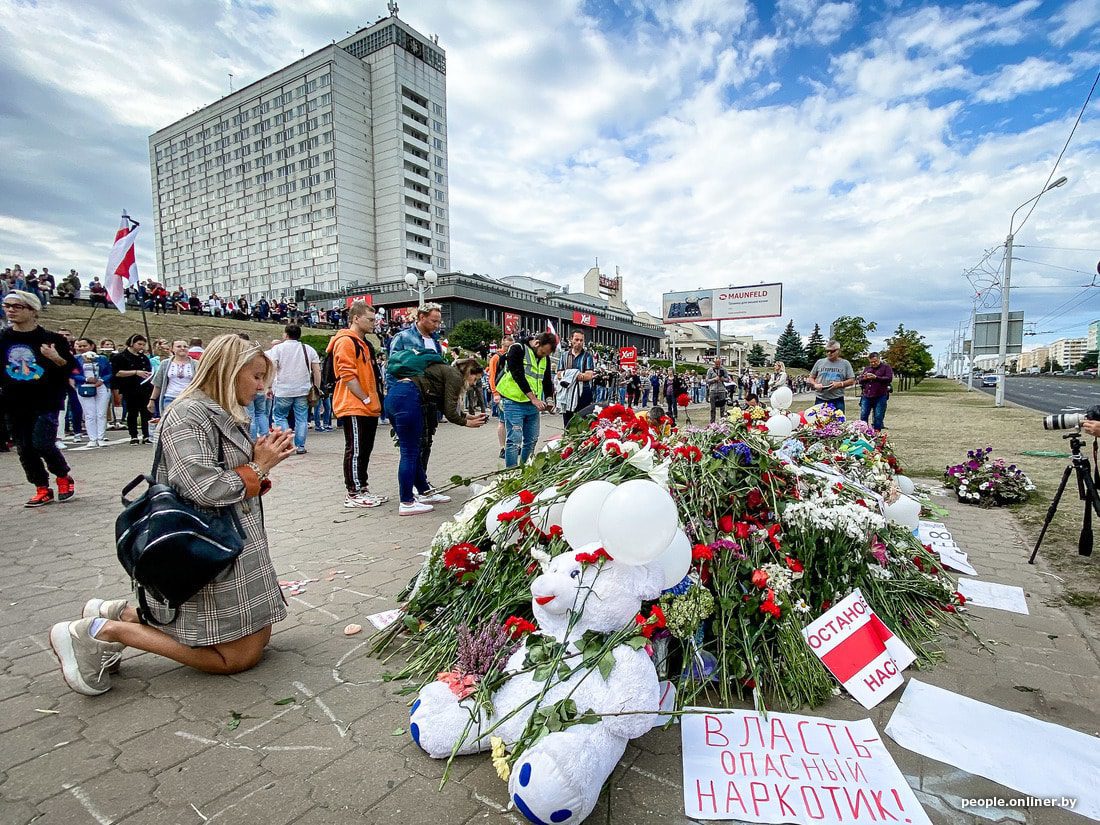
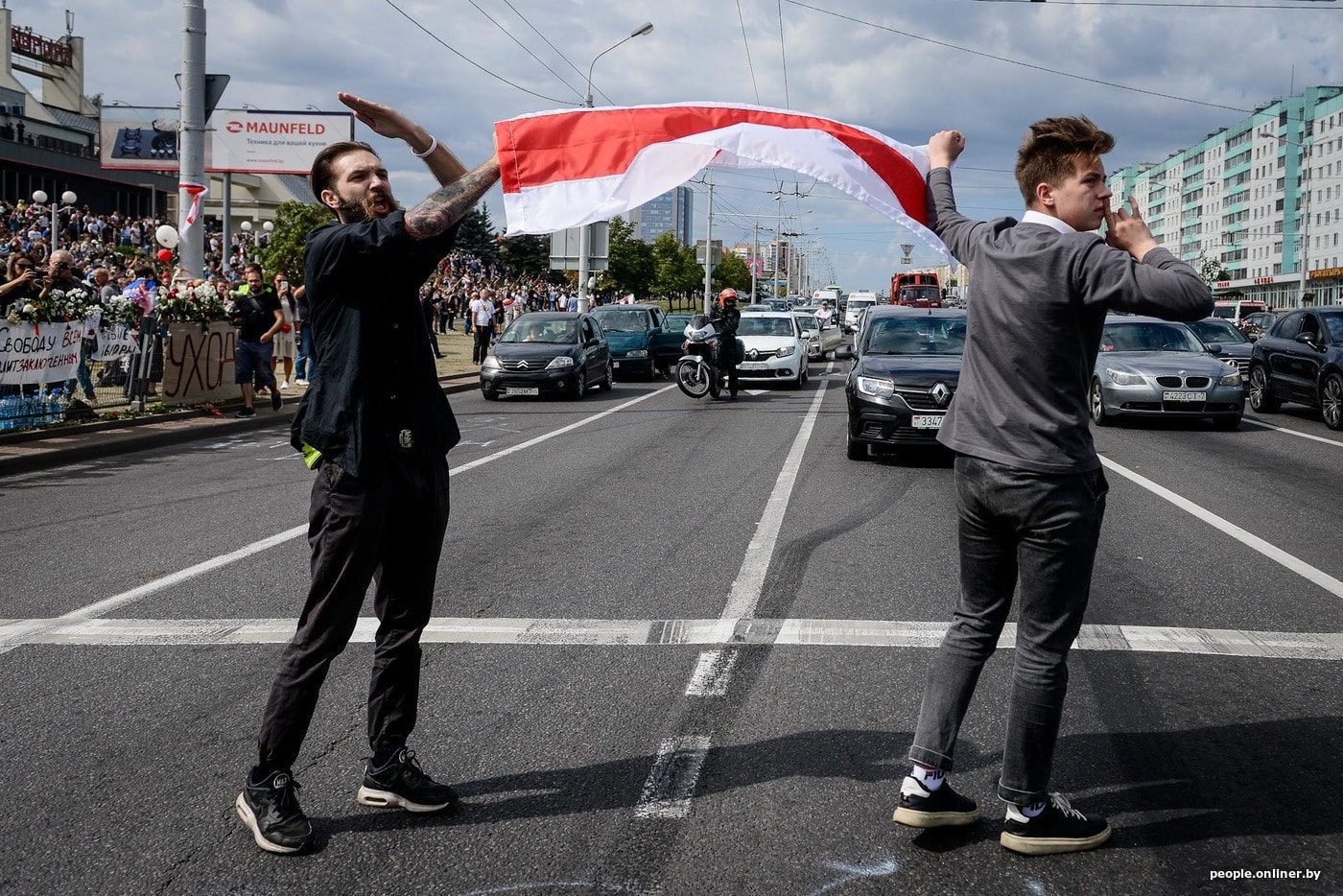
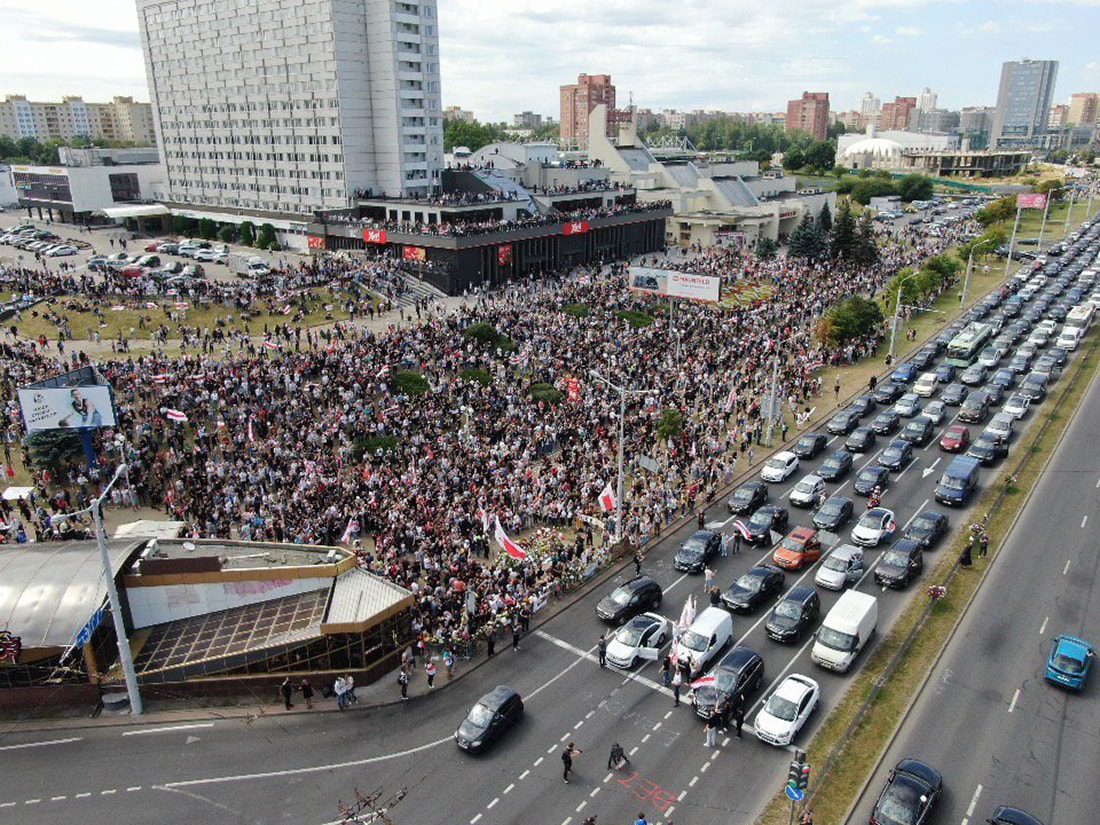
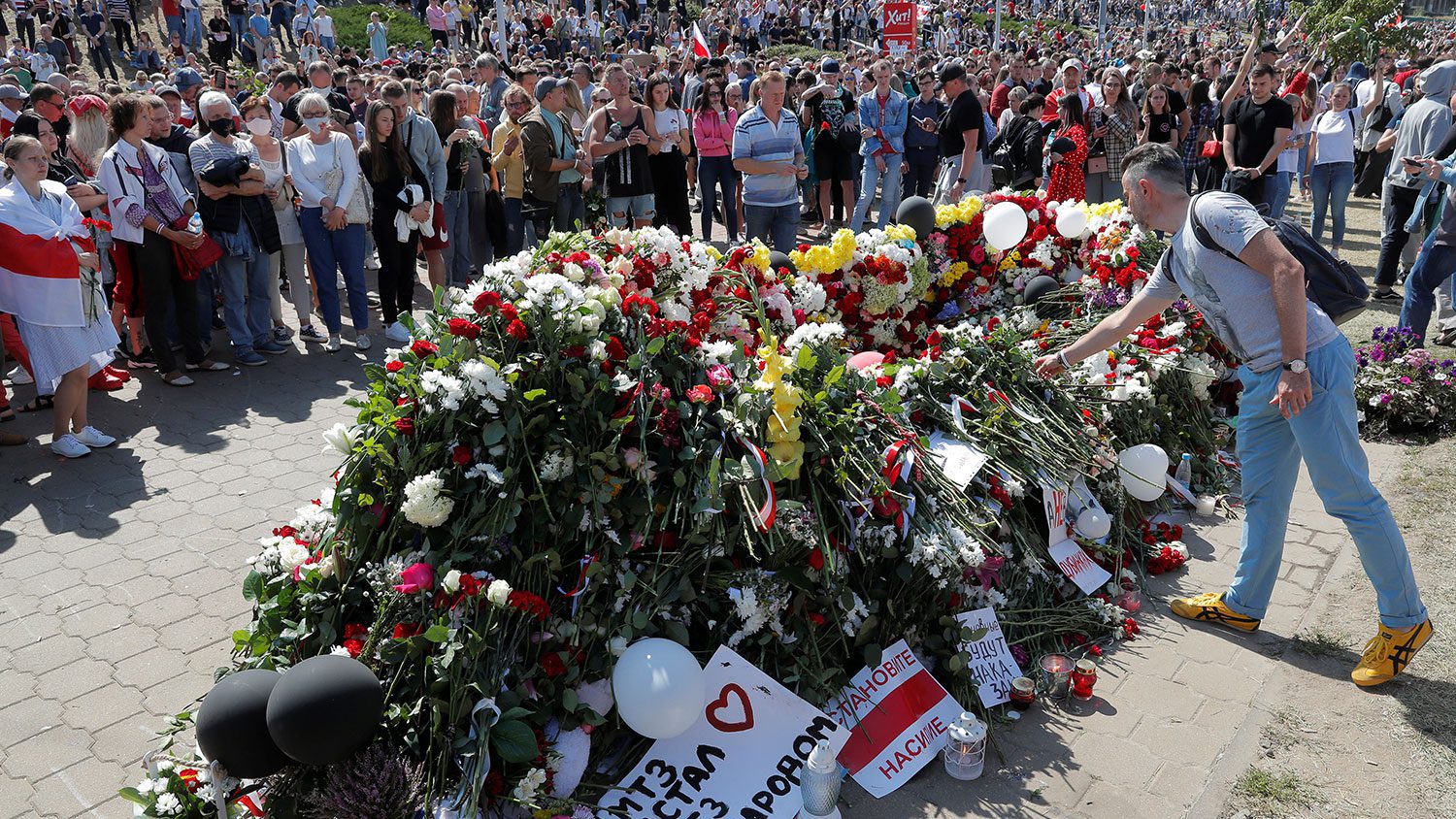
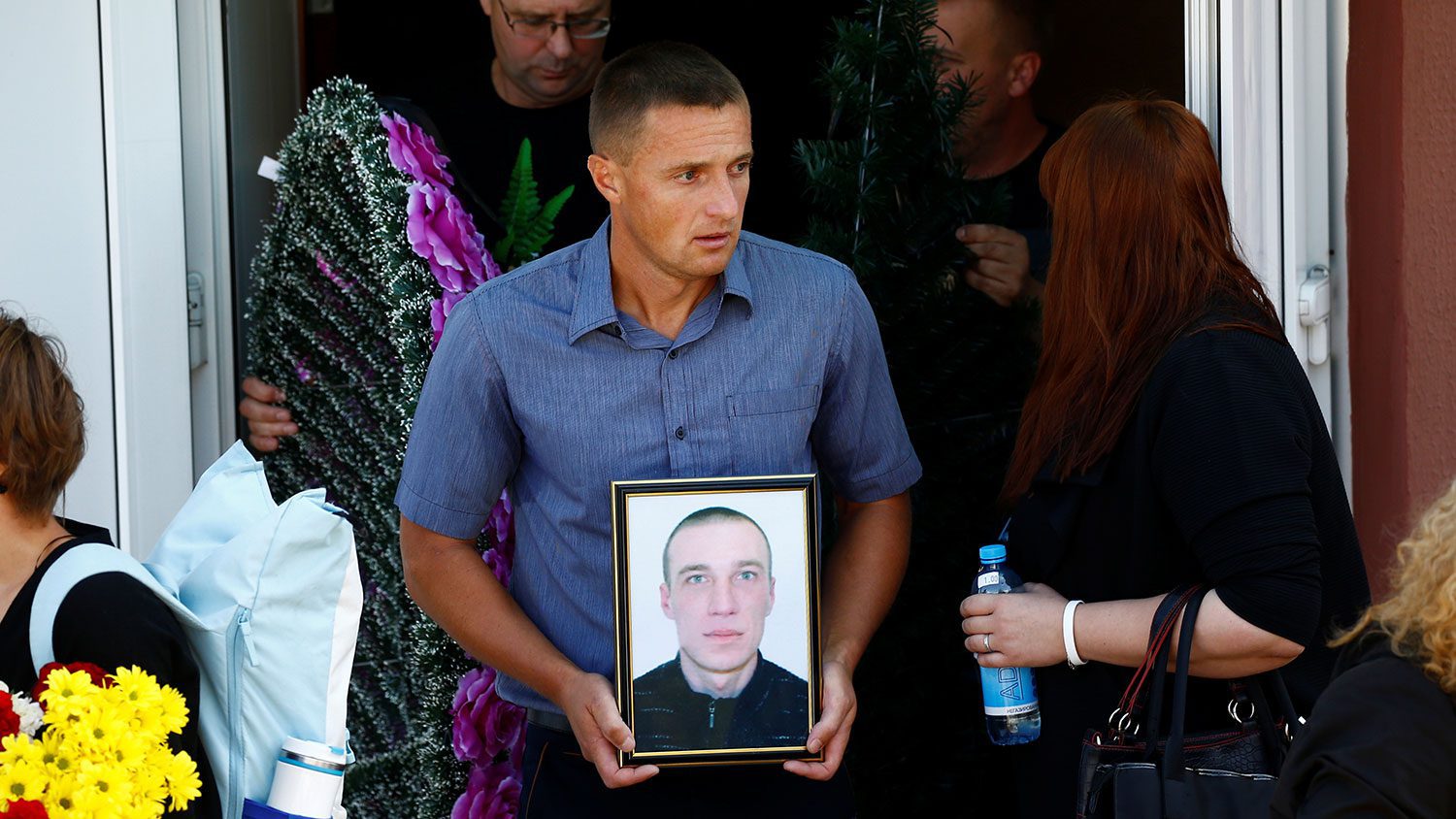
A spontaneous rally is held near the Belteleradiocompany building.
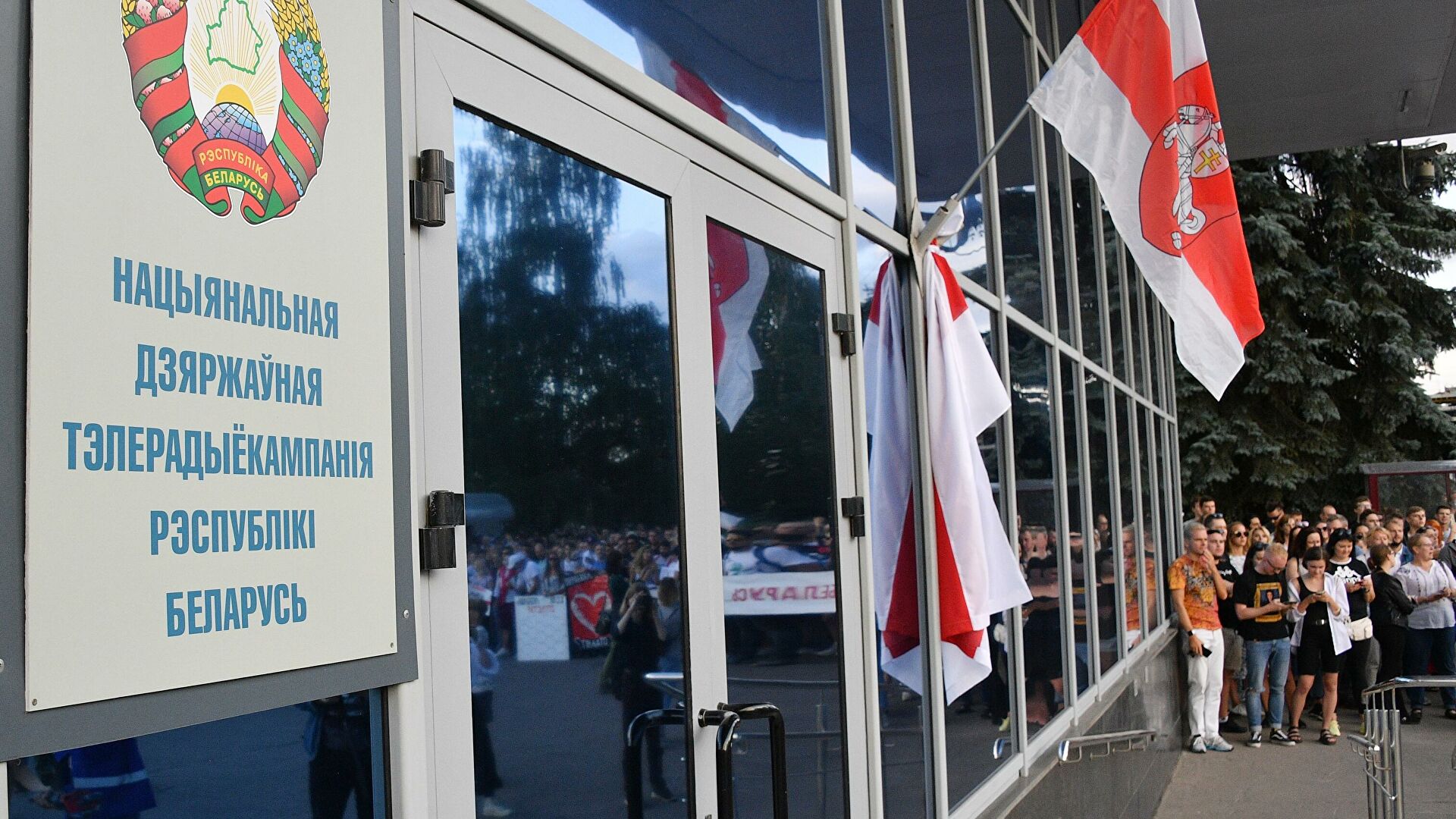
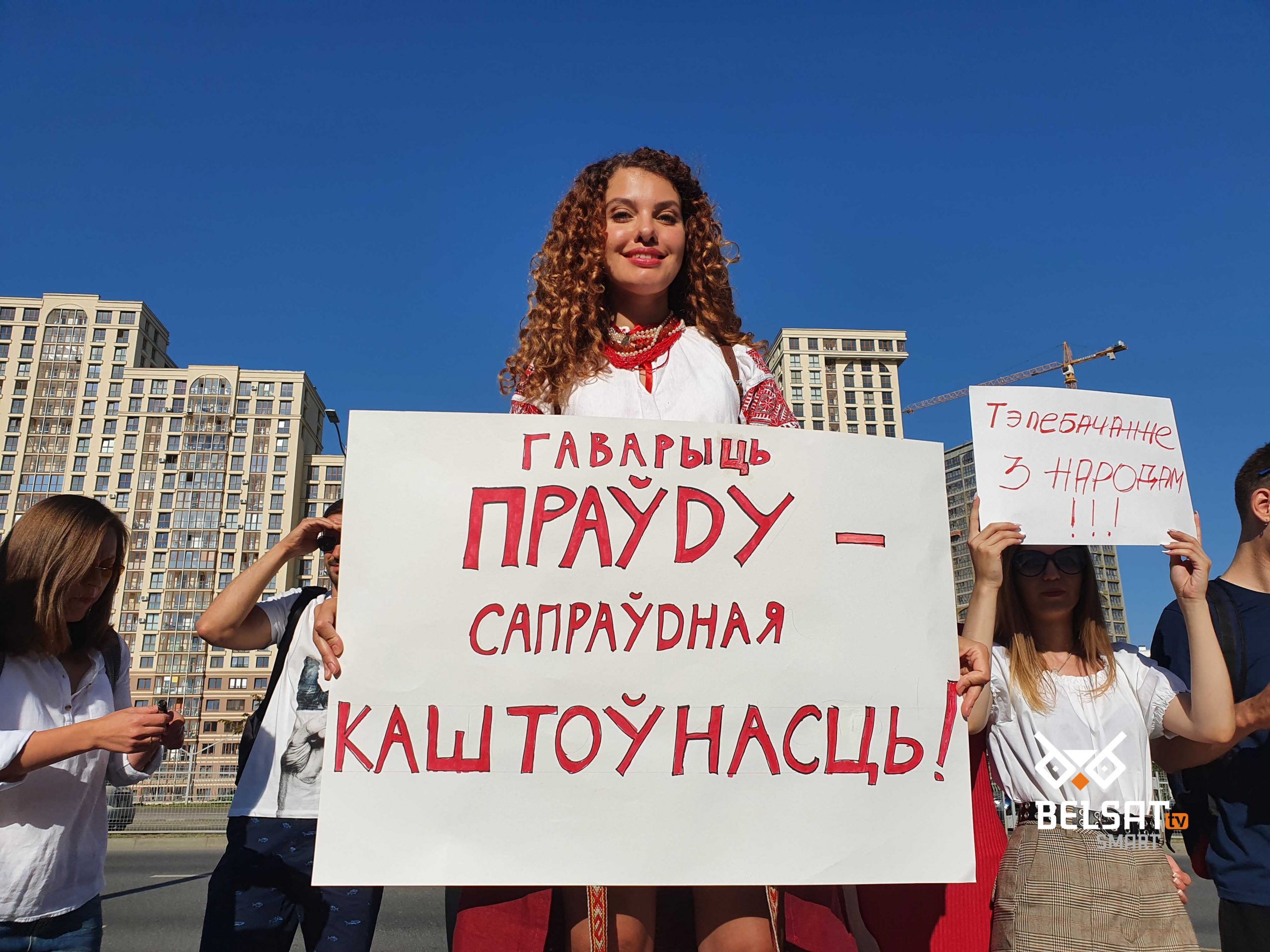
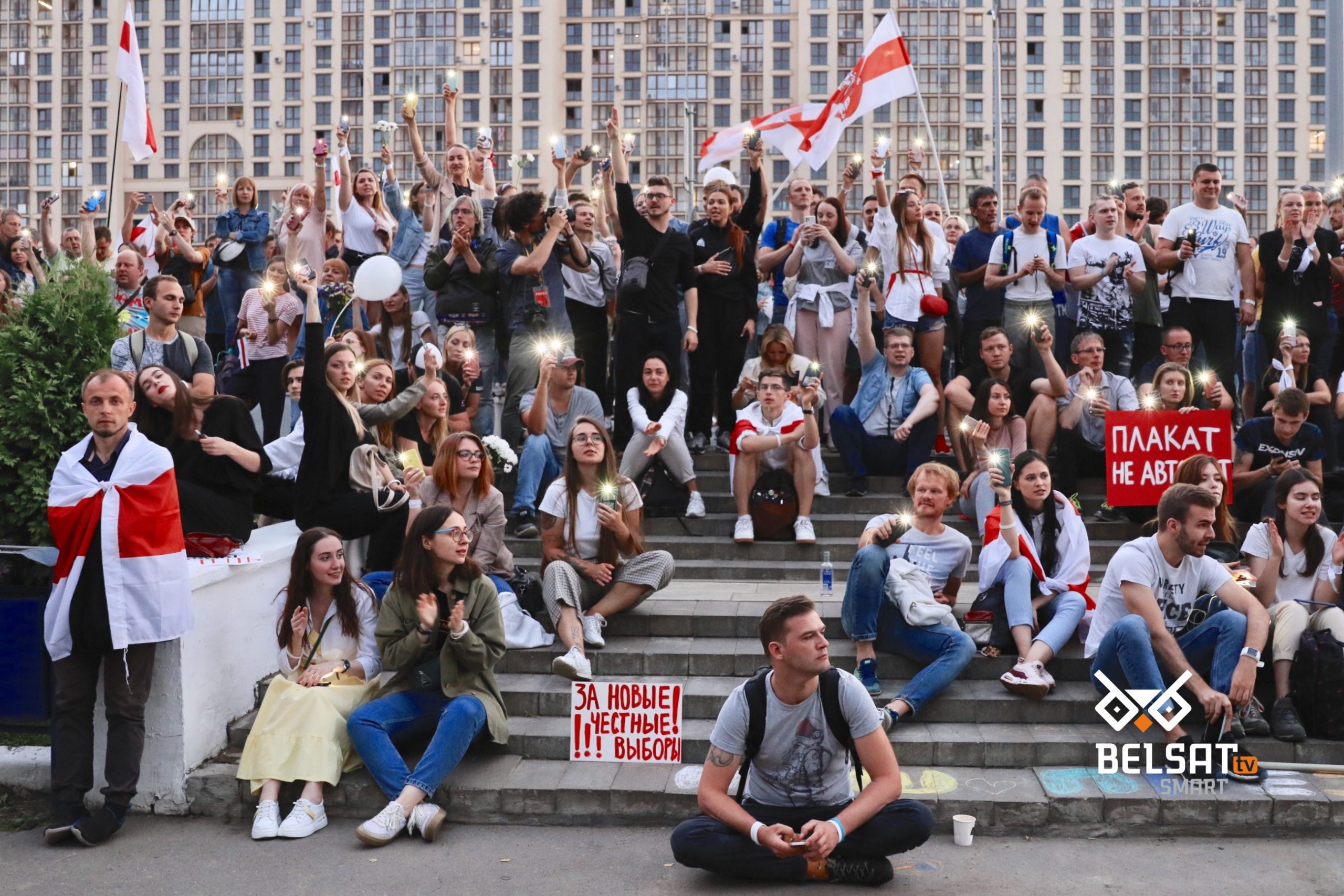
A criminal case is launched against the founder of the NEXTA channel Sciapan Pucila, the state accusing him of organizing riots and training people to participate in them.
A criminal case is launched against the former head of the HTP and unregistered presidential candidate Valieryj Capkala.
A memorial dedicated to the 2020 elections was also formed on the fence of one of the Belarusian schools. Ex-students left their diplomas and medals received during their studies here. According to them, the teachers who taught them for 11 years, on August 9 took part in falsifications.
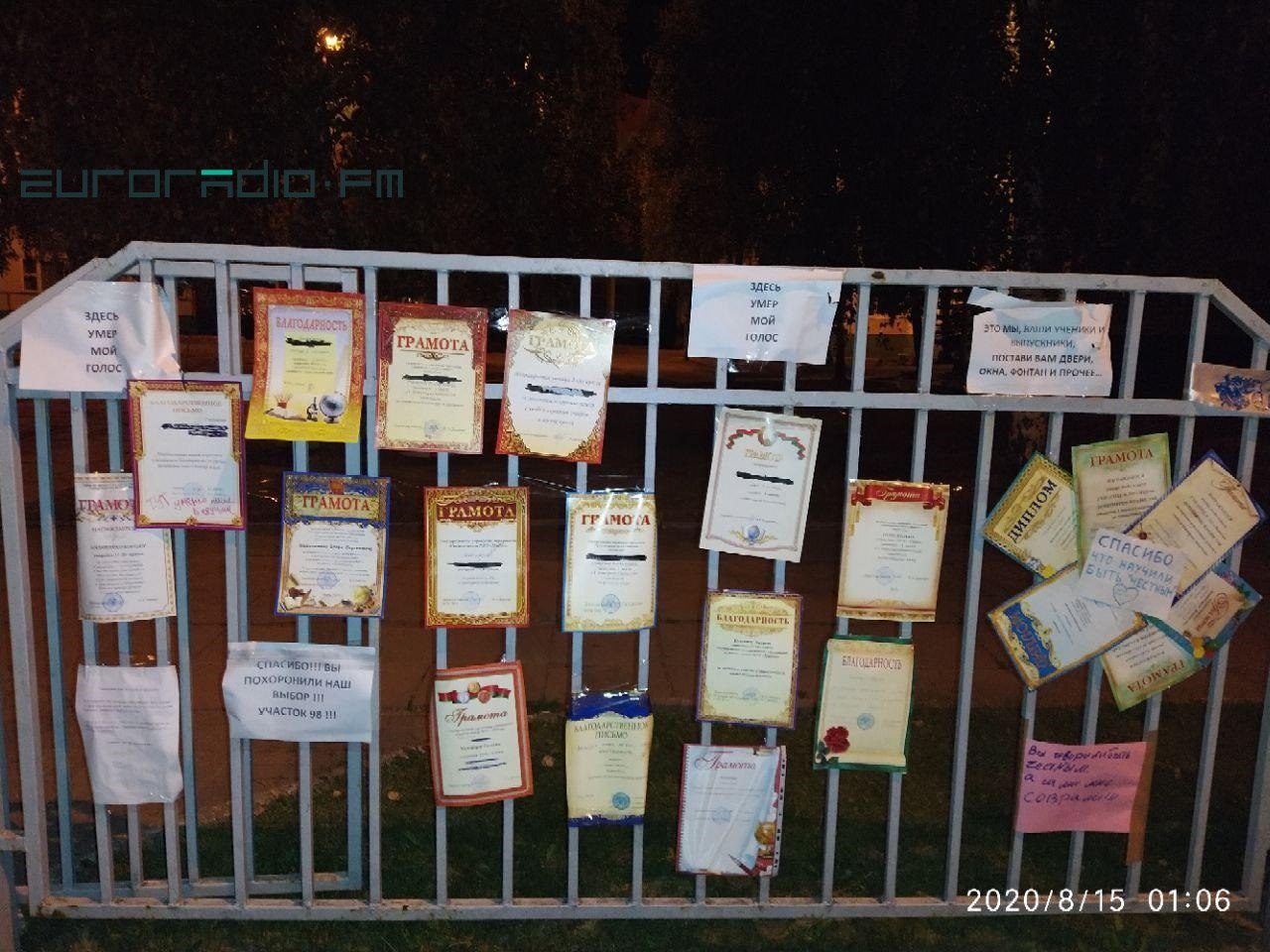
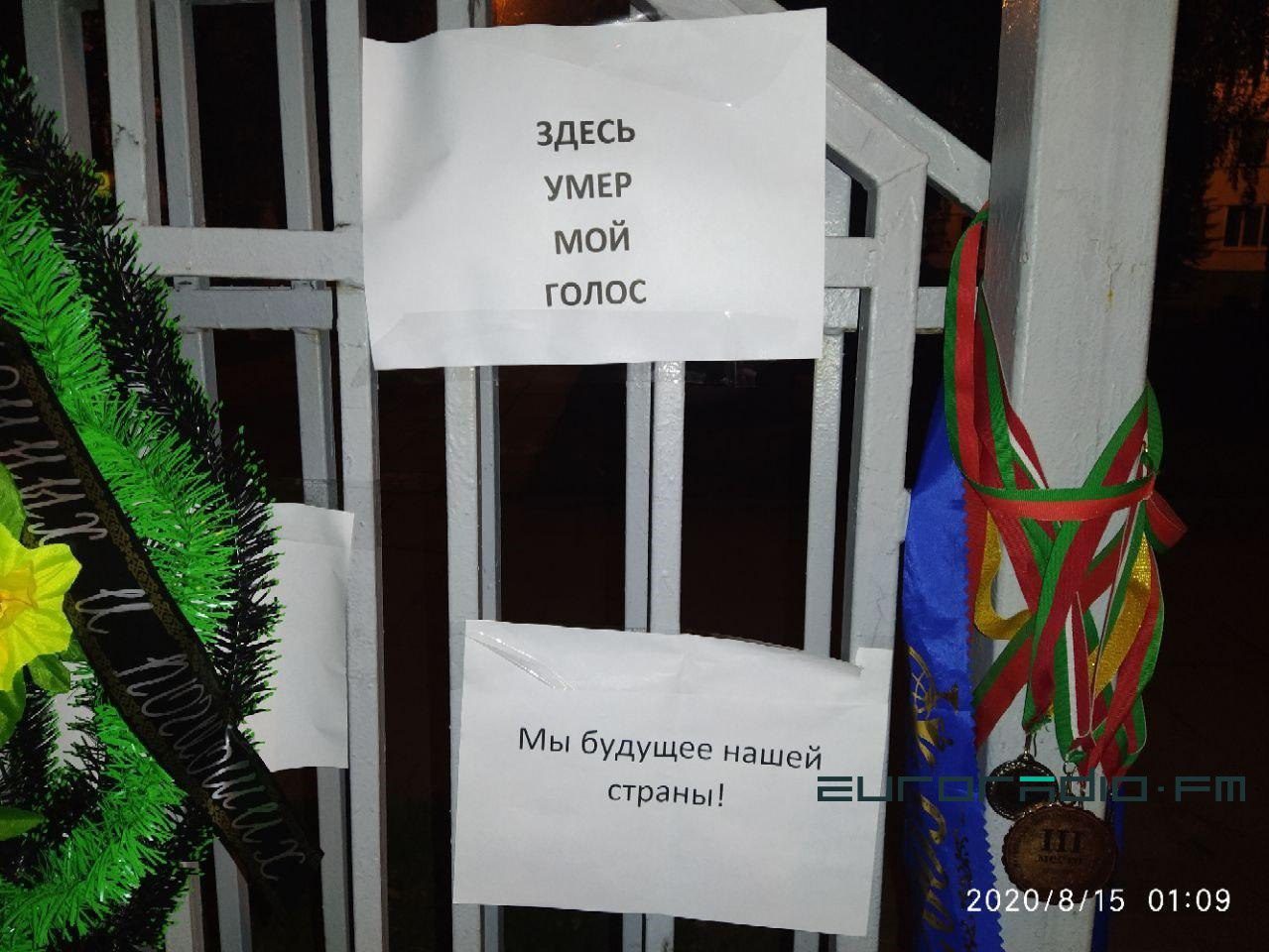
A rally in support of Lukašenka begins at noon at the Government House. The participants were brought by buses from all over the country. Lukašenka addresses the audience.
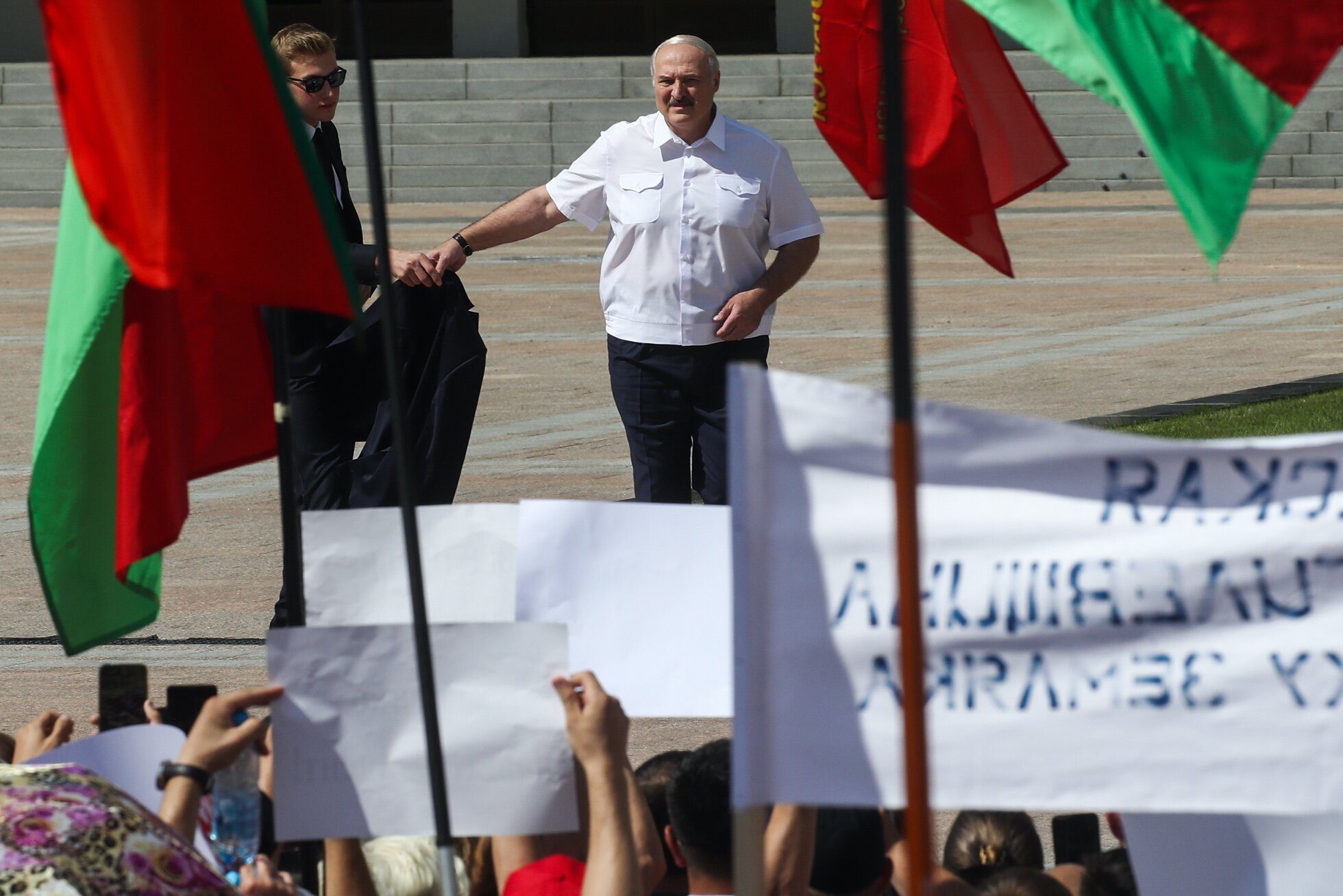
At 2 pm, the most massive protest in the history of Belarus begins. According to various estimates, 200 to 500 thousand people gathered there.
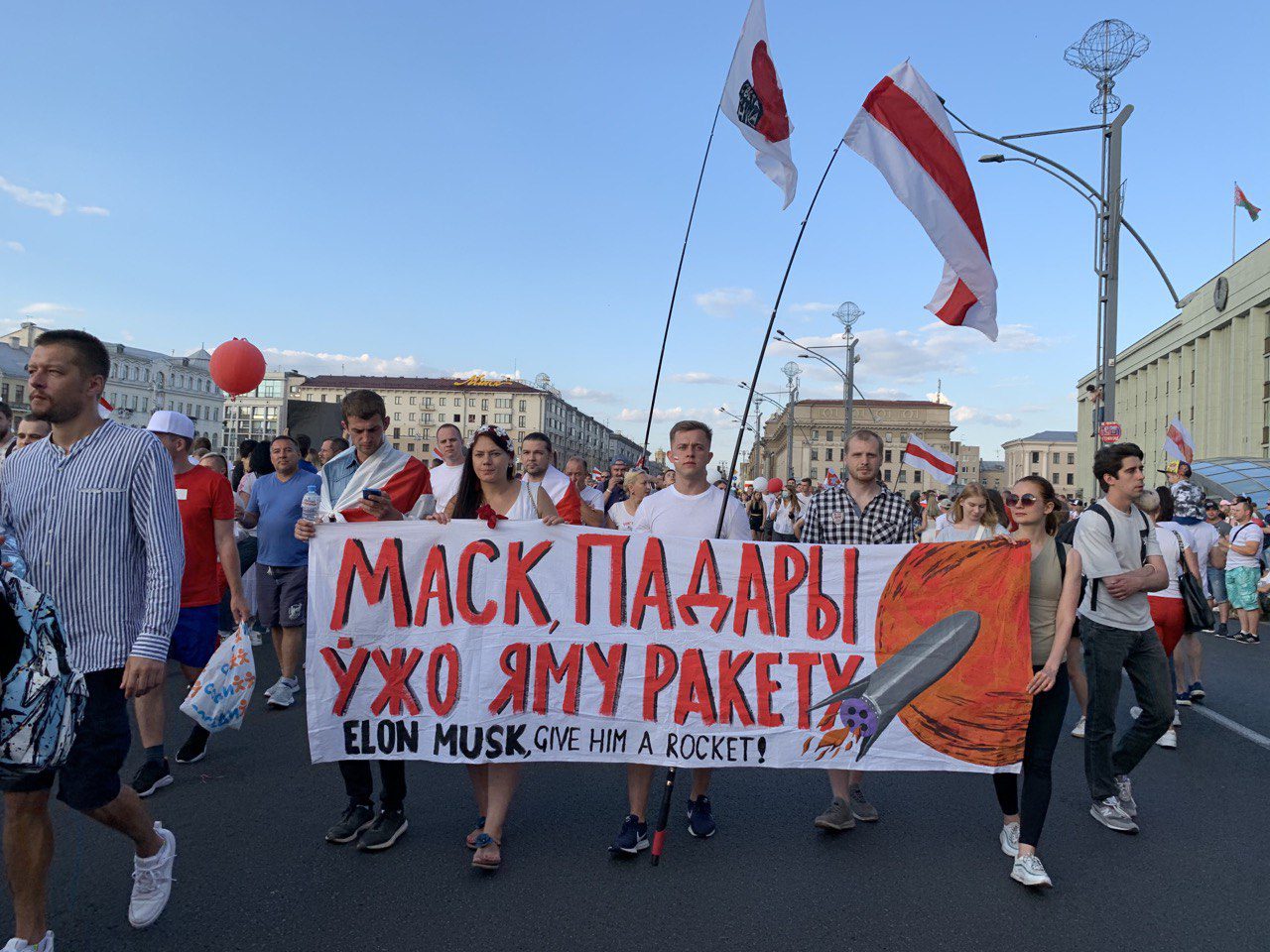
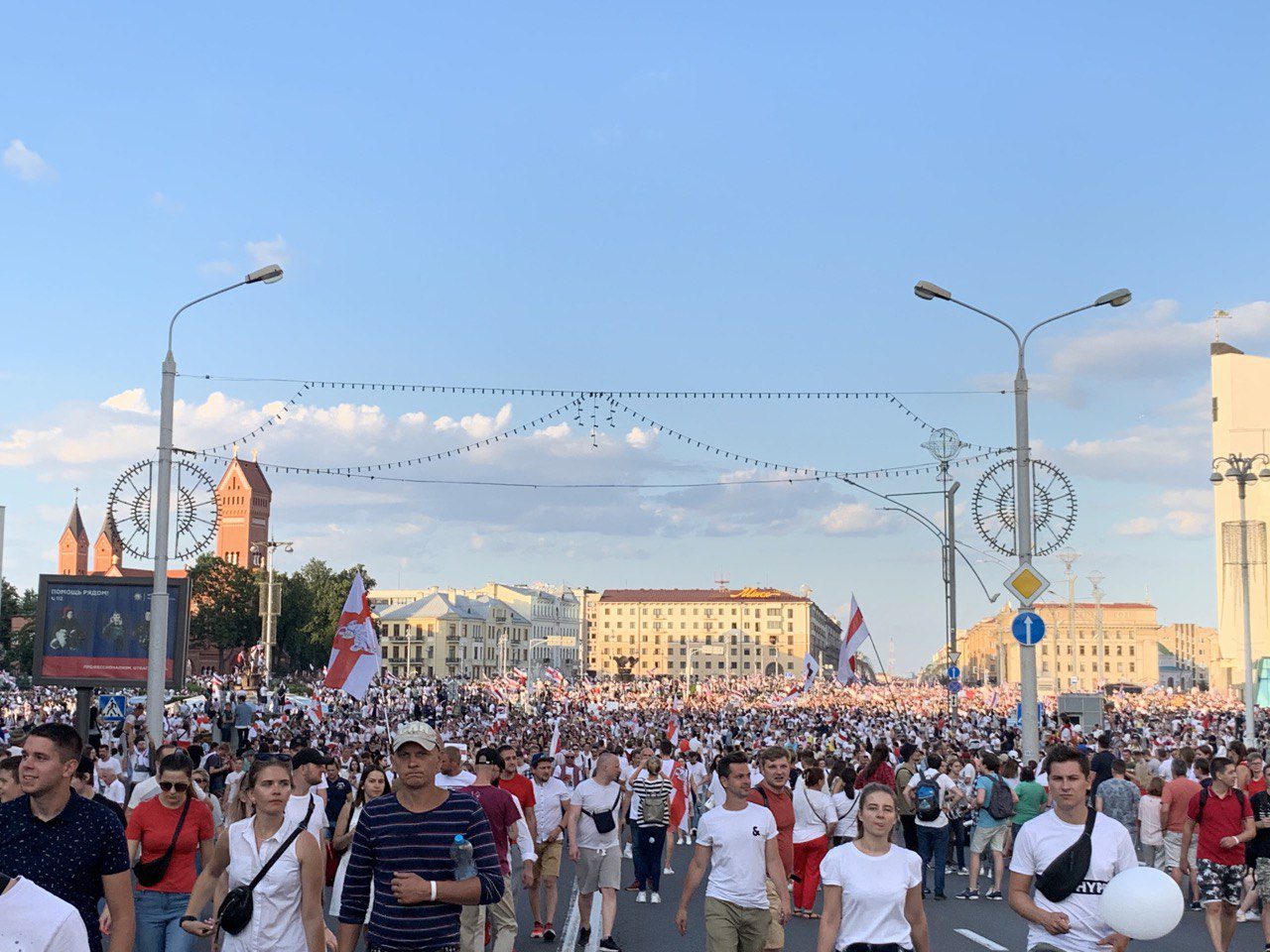
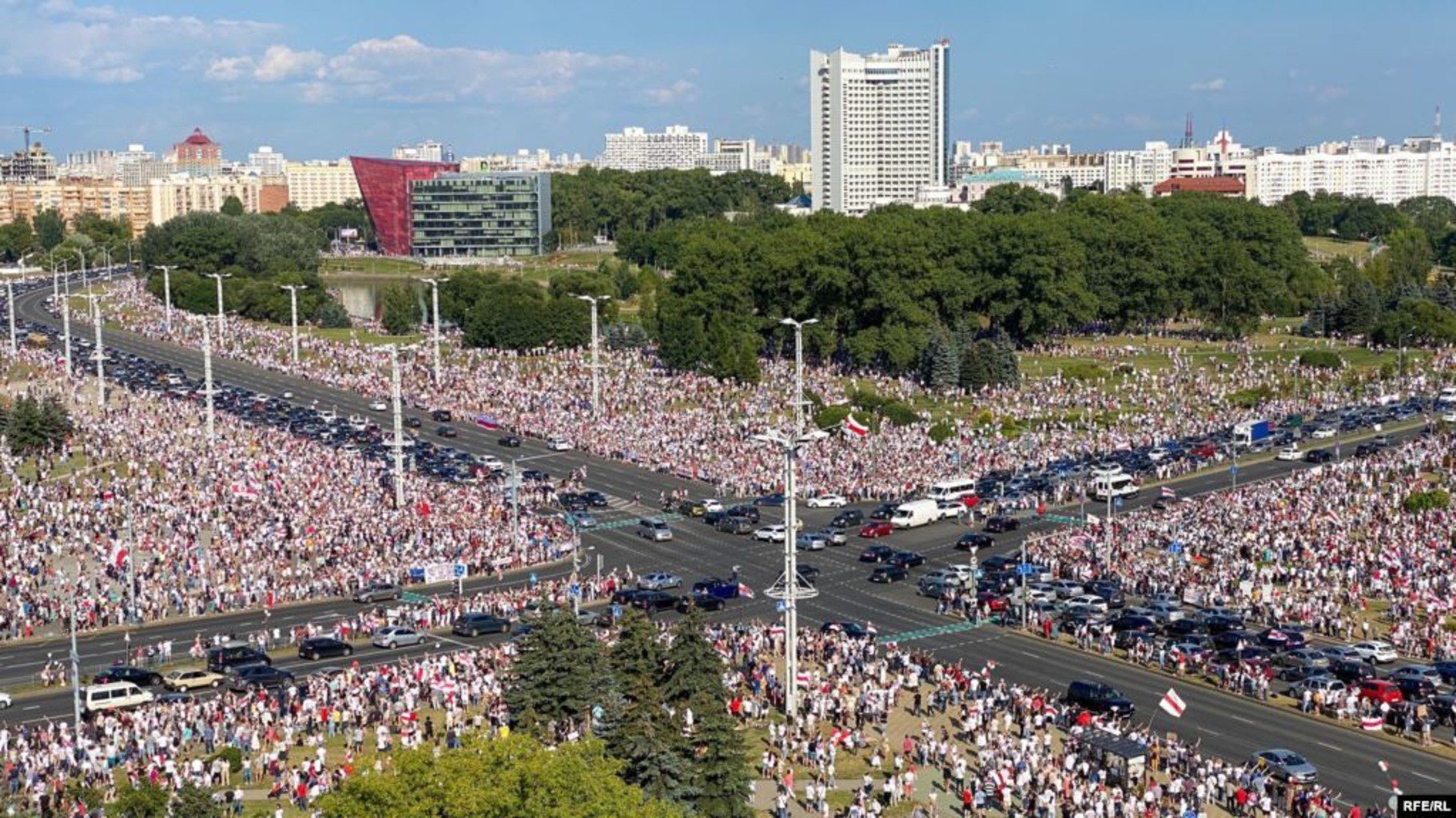
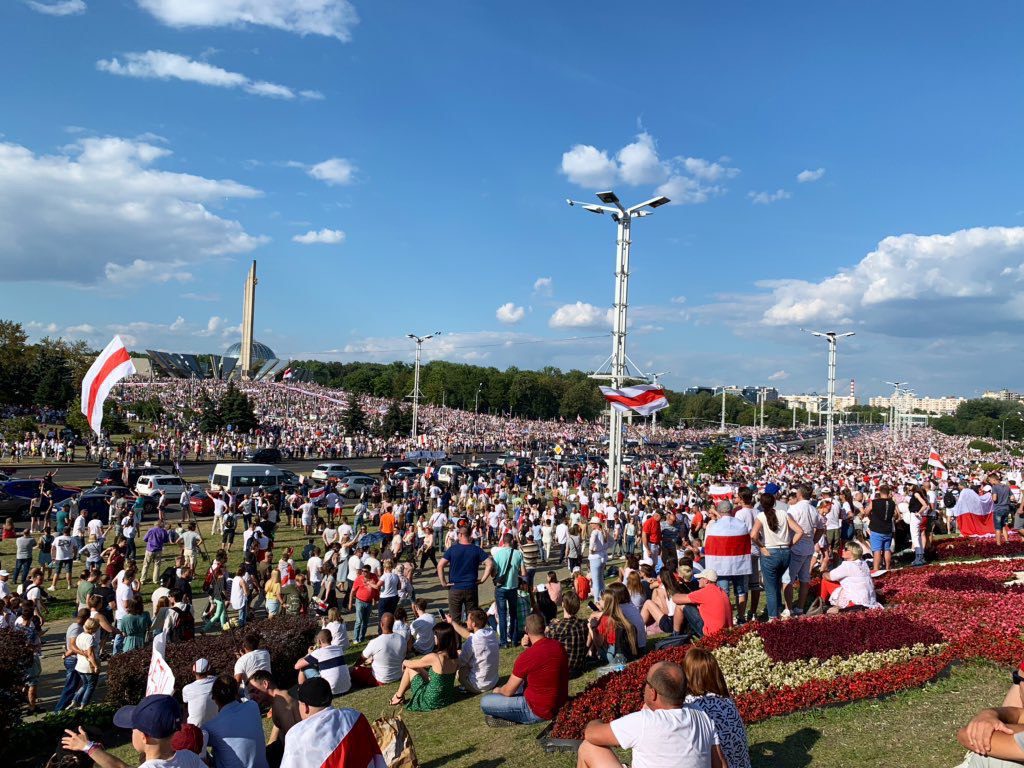
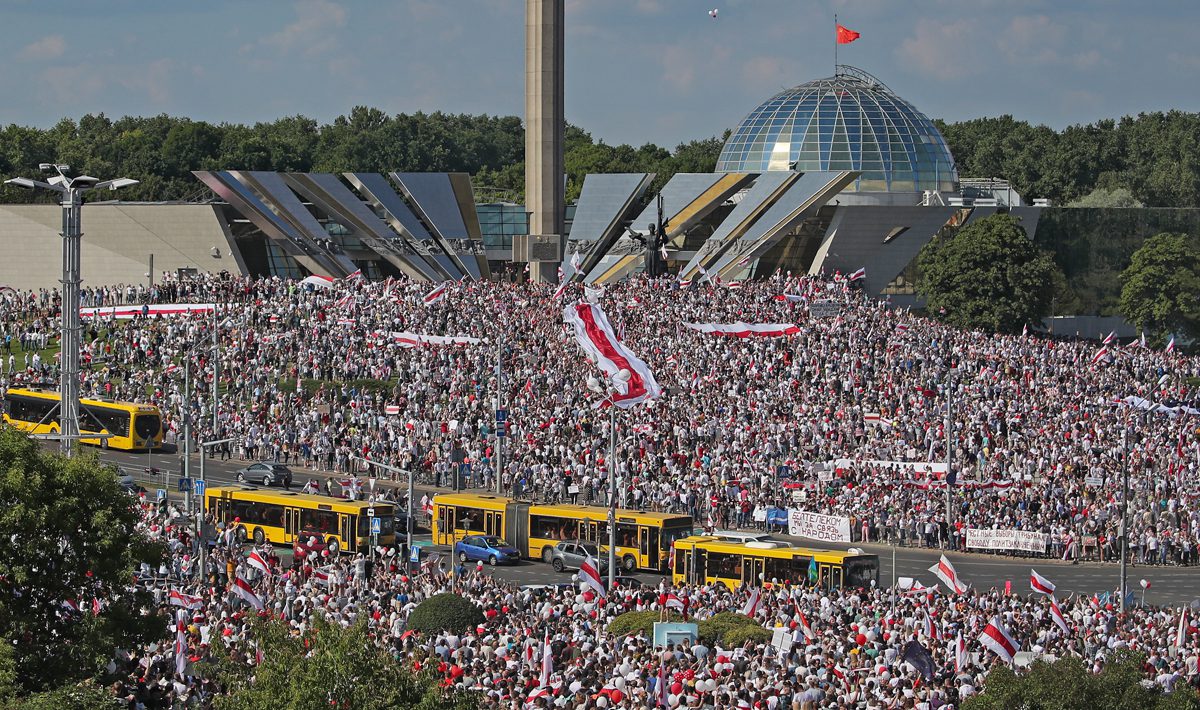
Next to the infamous isolation ward, a tent place was set up in Akrestin Lane. There were doctors, lawyers, tea, and the church - everything for the sake of helping people who were released, beaten and tired after several days behind bars.
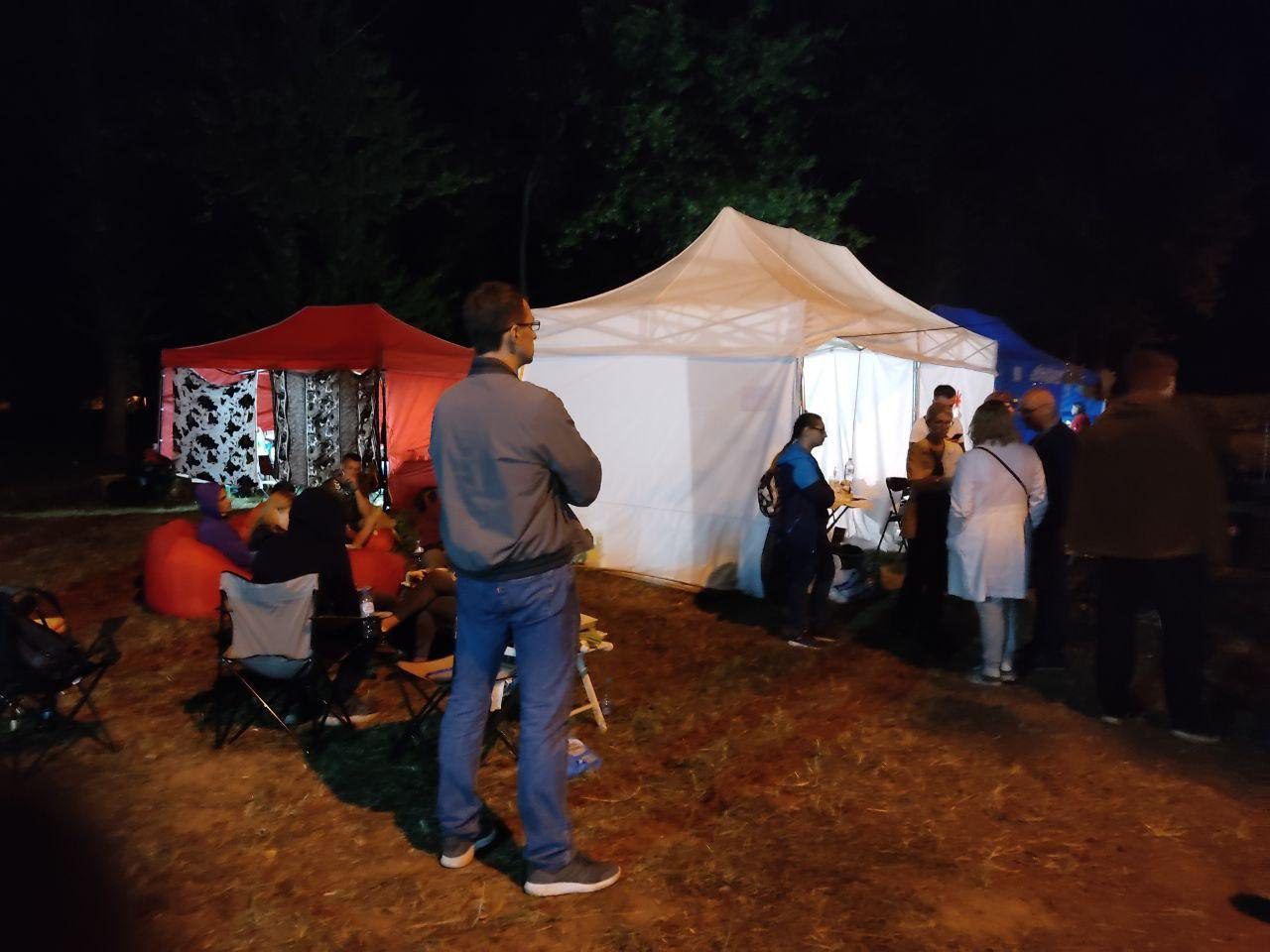
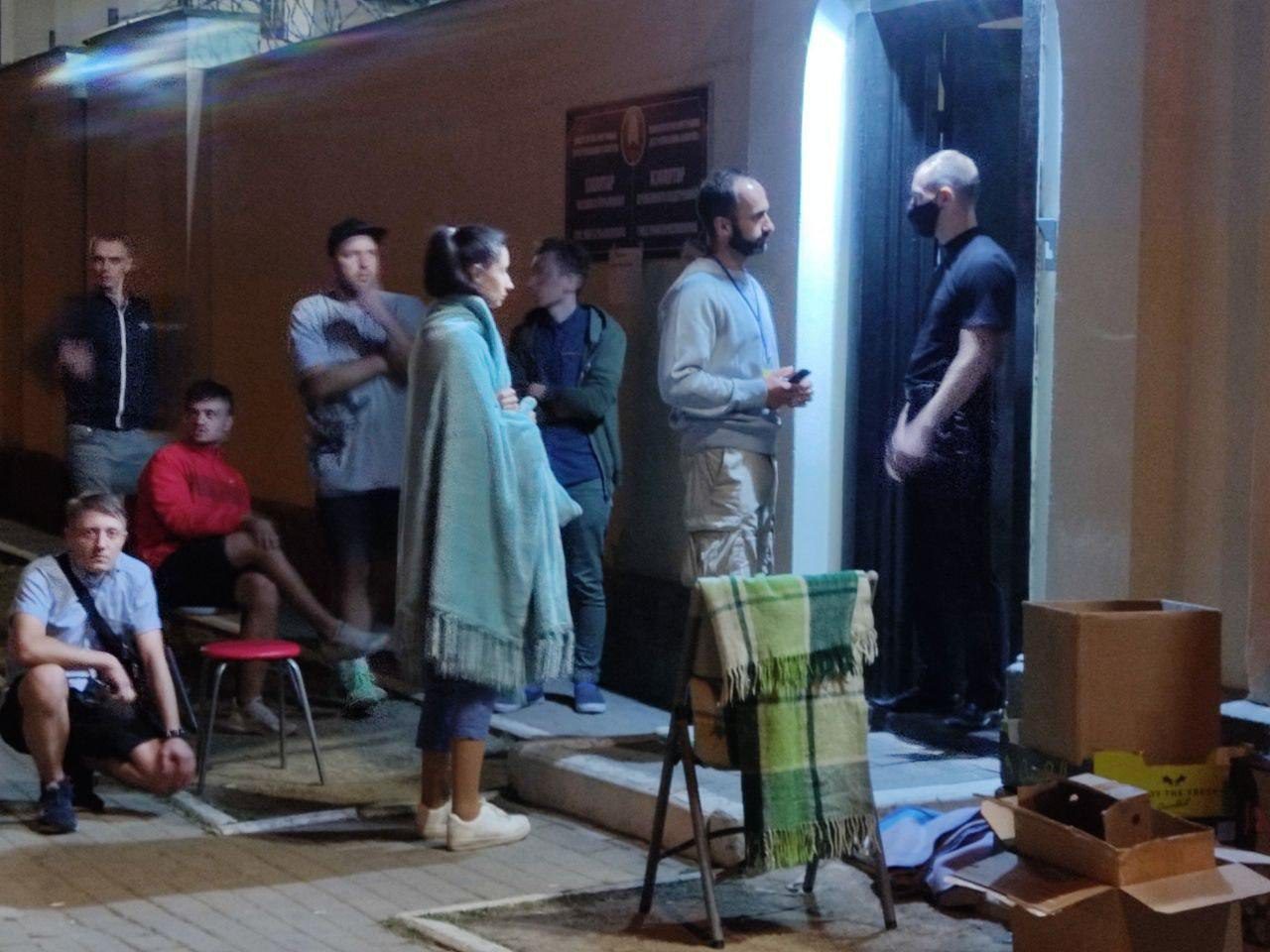
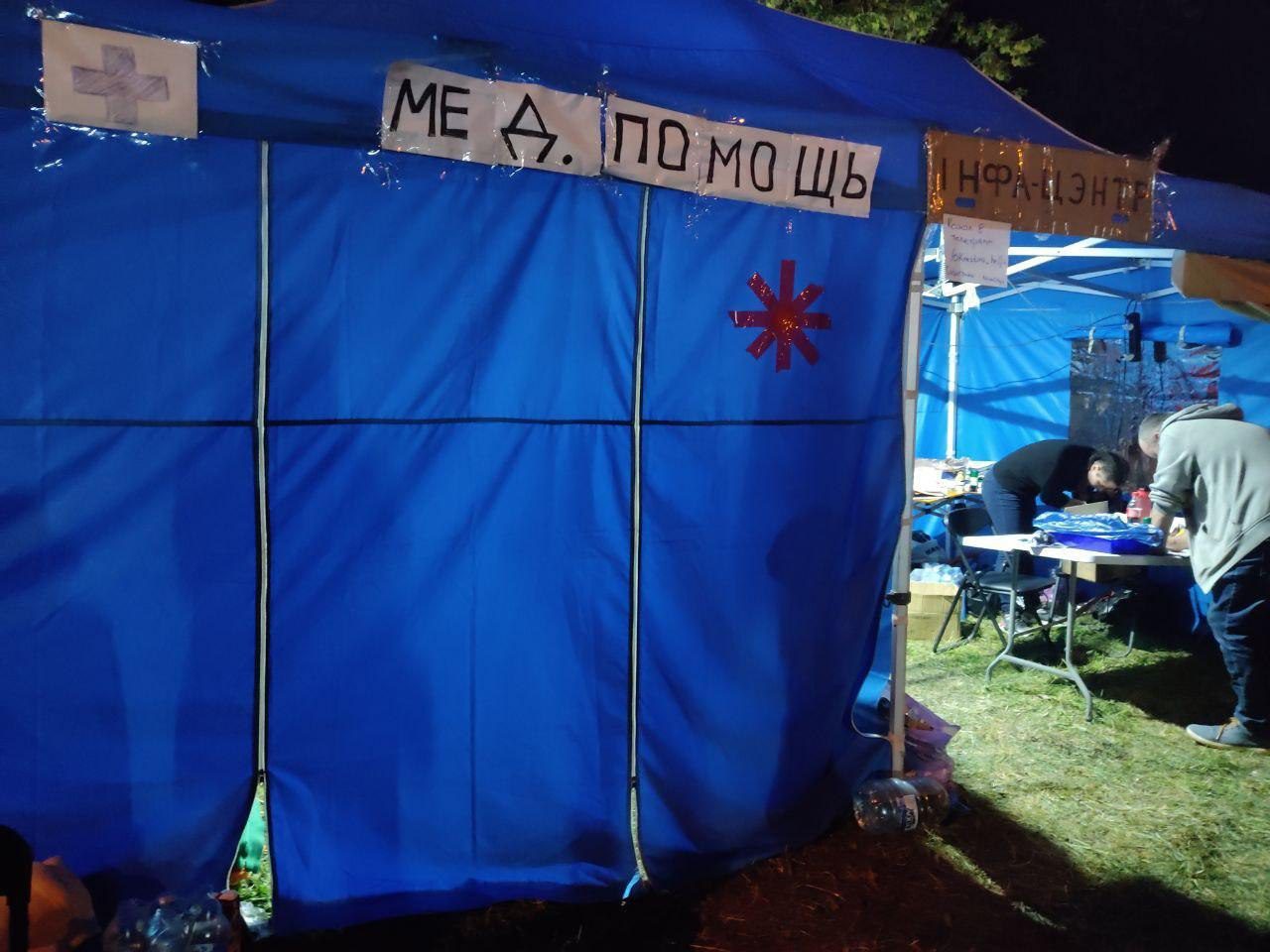
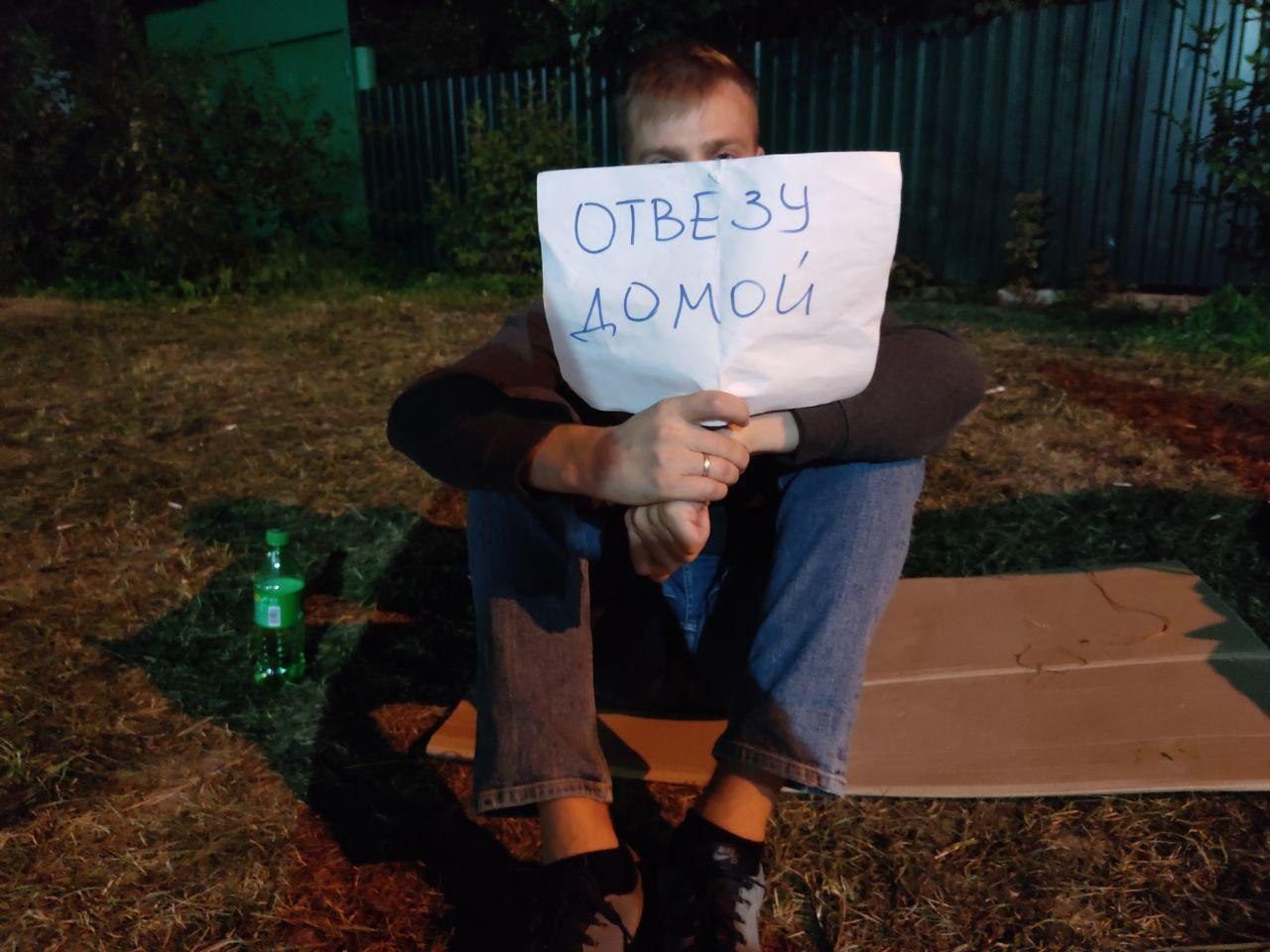
Lukašenka arrives by helicopter at the Minsk Wheeled Tractor Plant. The workers of the plant shout to him, "Go away!" Lukašenka promises to hold elections after the adoption of the new Constitution.
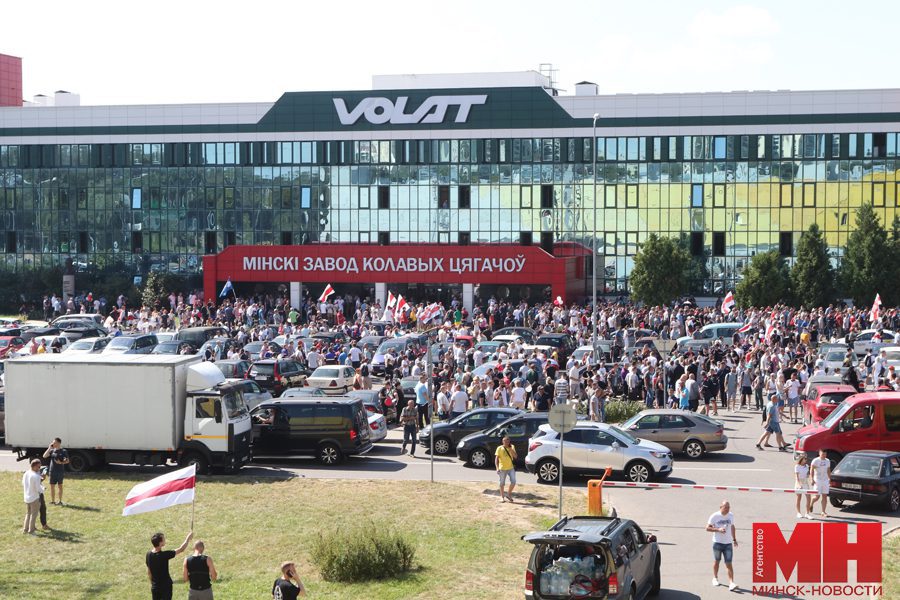
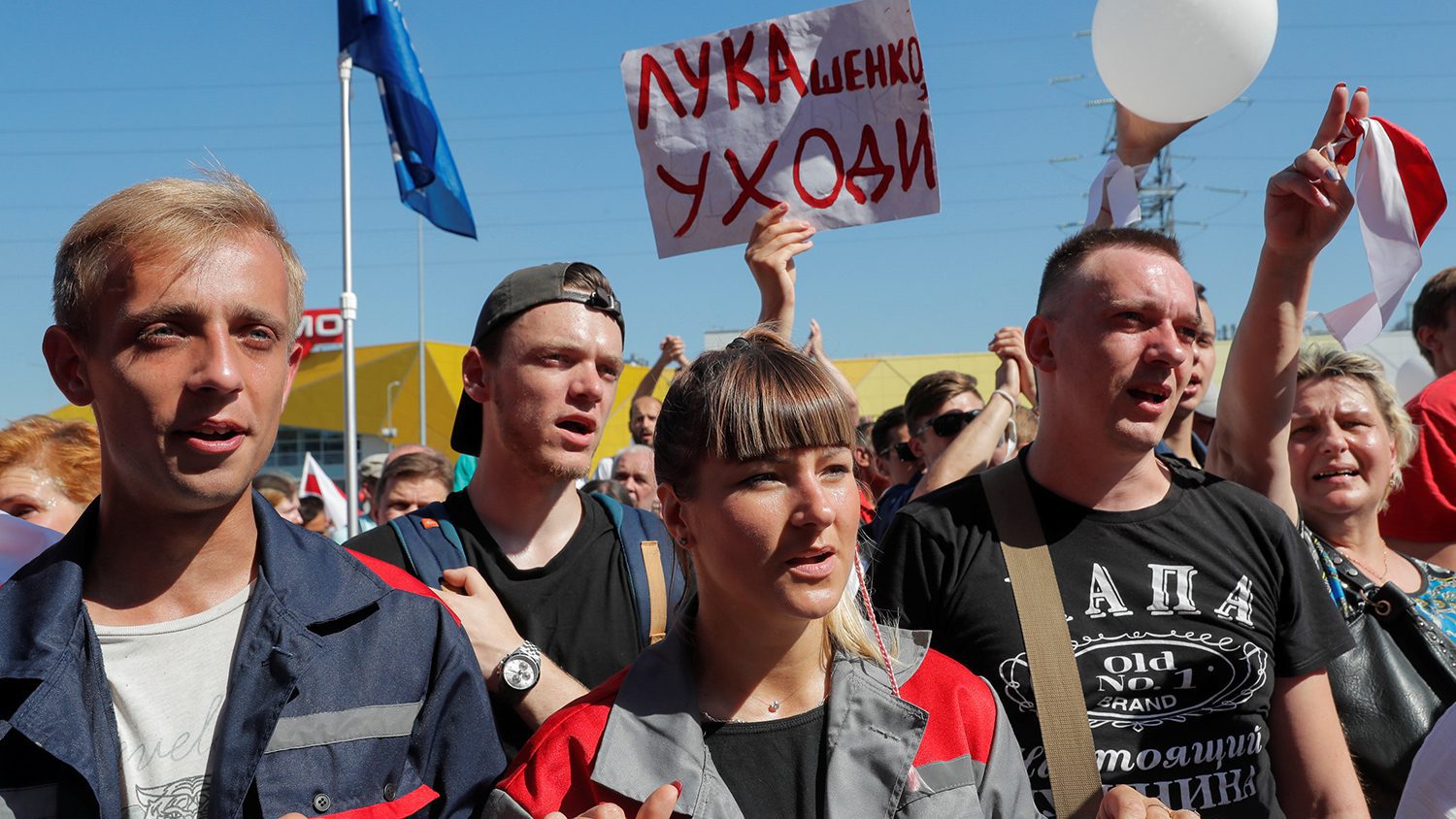
The ex-minister of culture, director of the Janka Kupala theatre Paviel Latuška is fired, the entire staff of the Kupala theatre resigns with him.
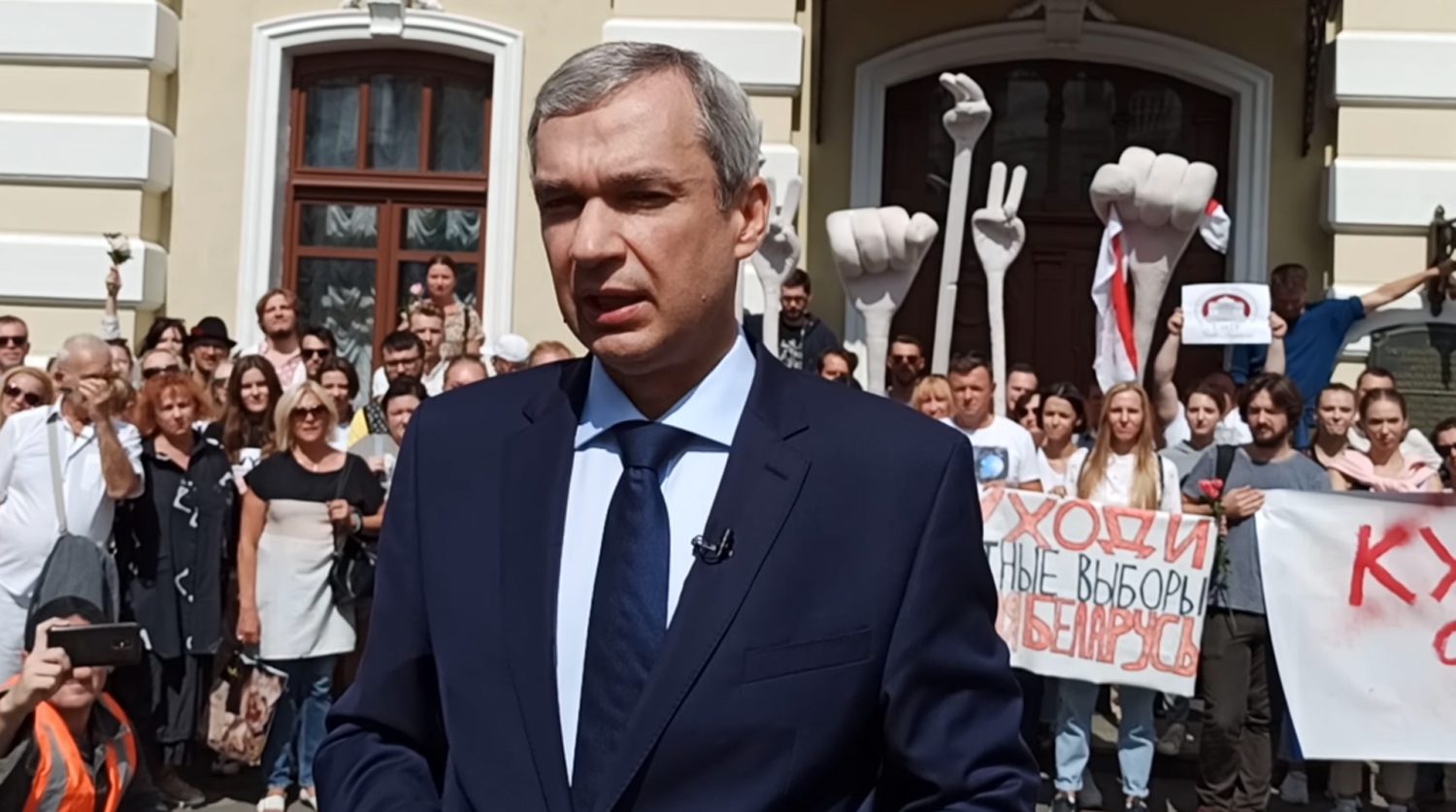
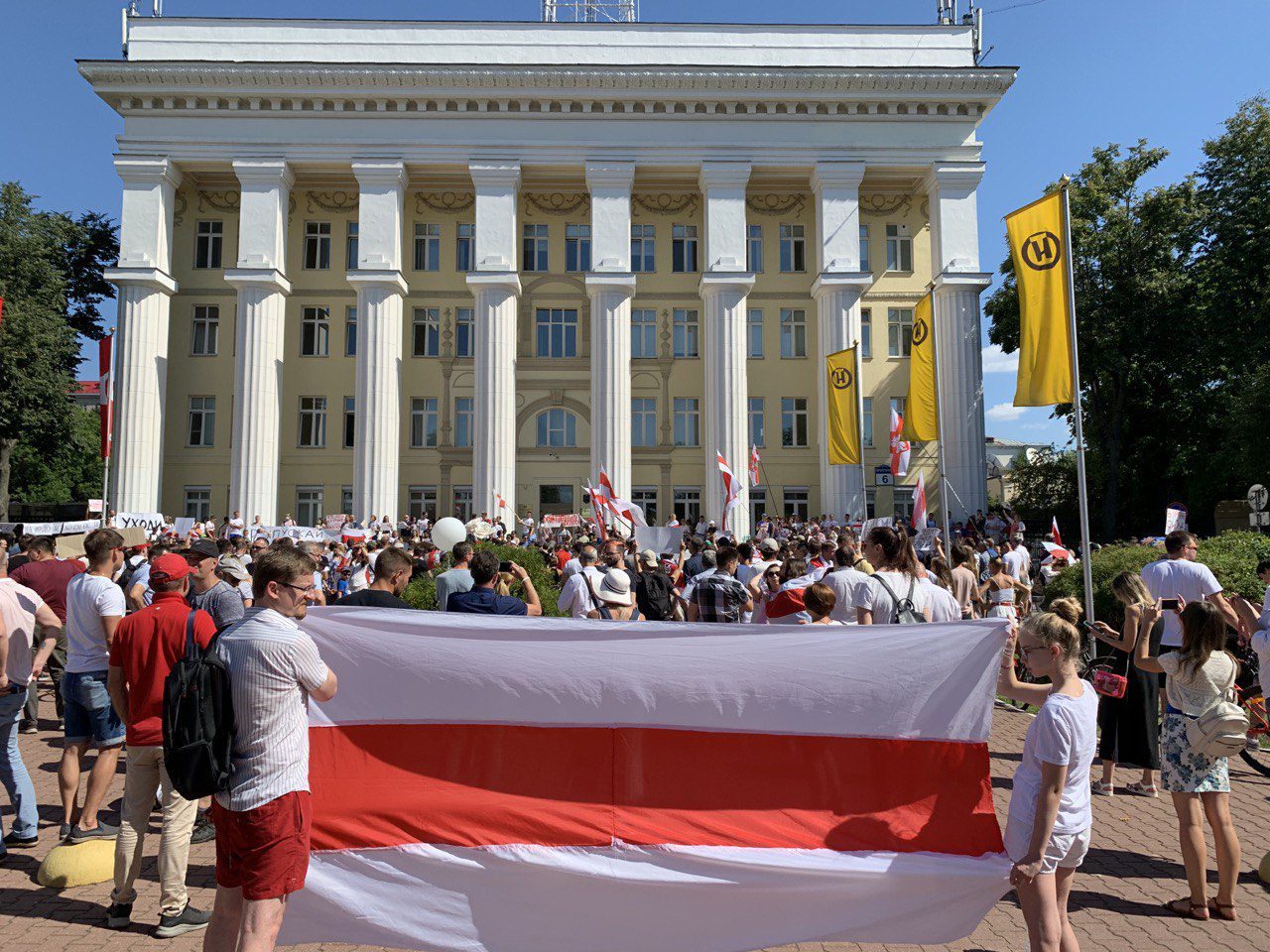
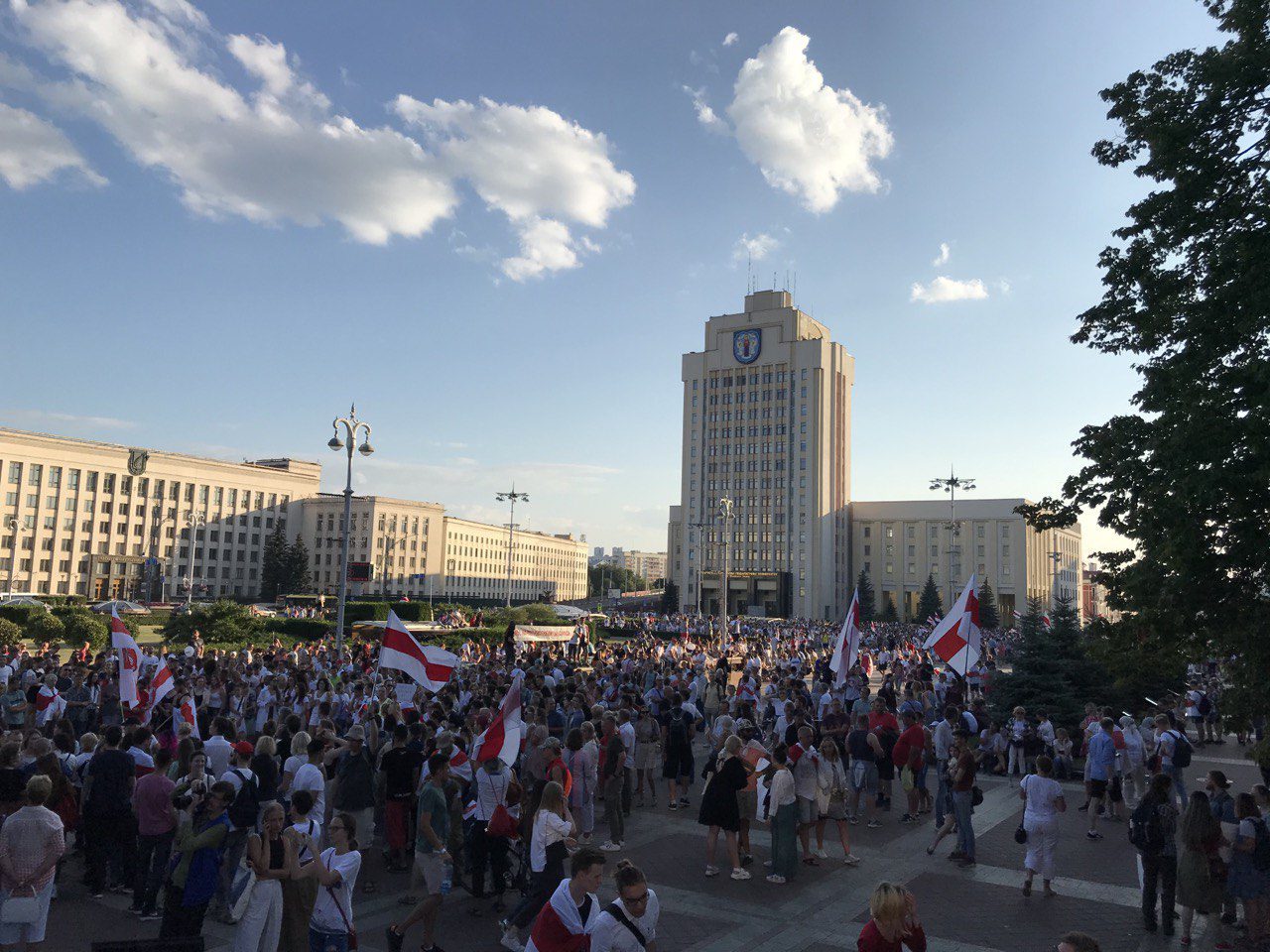
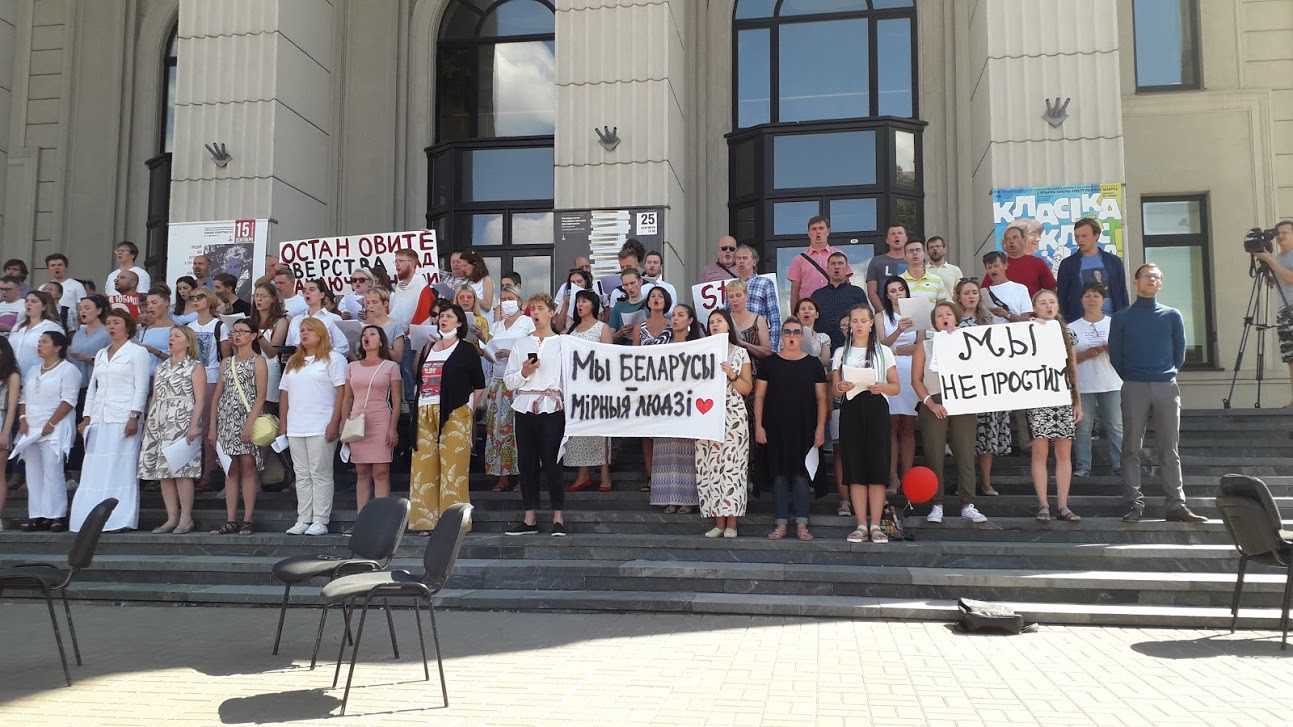
The European Council holds an emergency summit on the situation in Belarus, recognizes the elections as illegitimate.
Kanstancin Šyšmakoŭ, 29, director of the Vaŭkavysk Museum, who refused to sign the protocol of the election commission, is found dead in the Nioman River.
More than a million euros have already been collected by the fund for solidarity with the illegally dismissed.
The first press conference of the Coordinating Council takes place in Viktar Babaryka's office. Writer Sviatlana Alieksijevič, lawyer Lilija Ulasava, MTW worker Siarhiej Dylieŭski, lawyer Maksim Znak, politician Voĺha Kavaĺkova, musician and teacher Maryja Kaliesnikava, politician Paviel Latuška are in the praesidium.
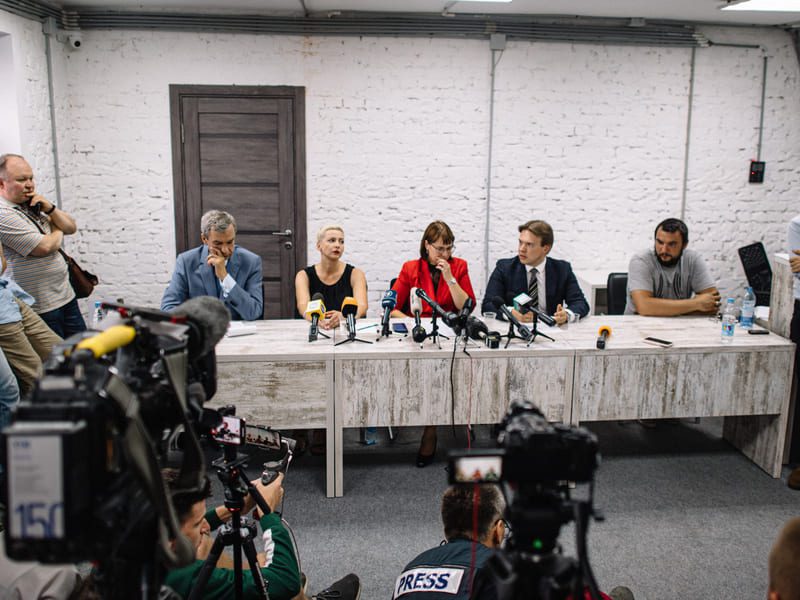
Siarhiej Cichanoŭski’s birthday. 200-250 people came to Valadarskaja detention center to congratulate him.
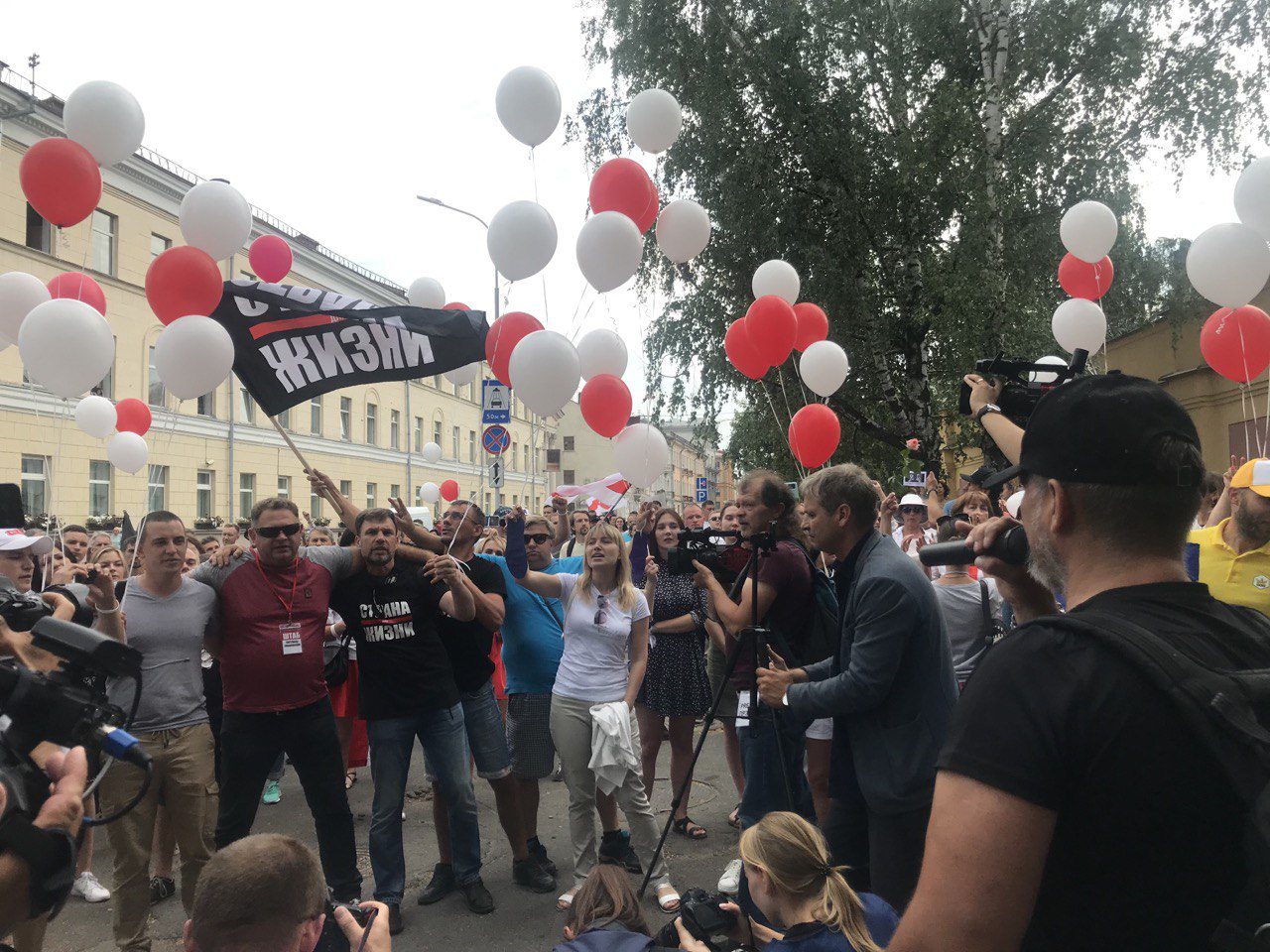
Maryja Kaliesnikava came to visit one of the strikes.
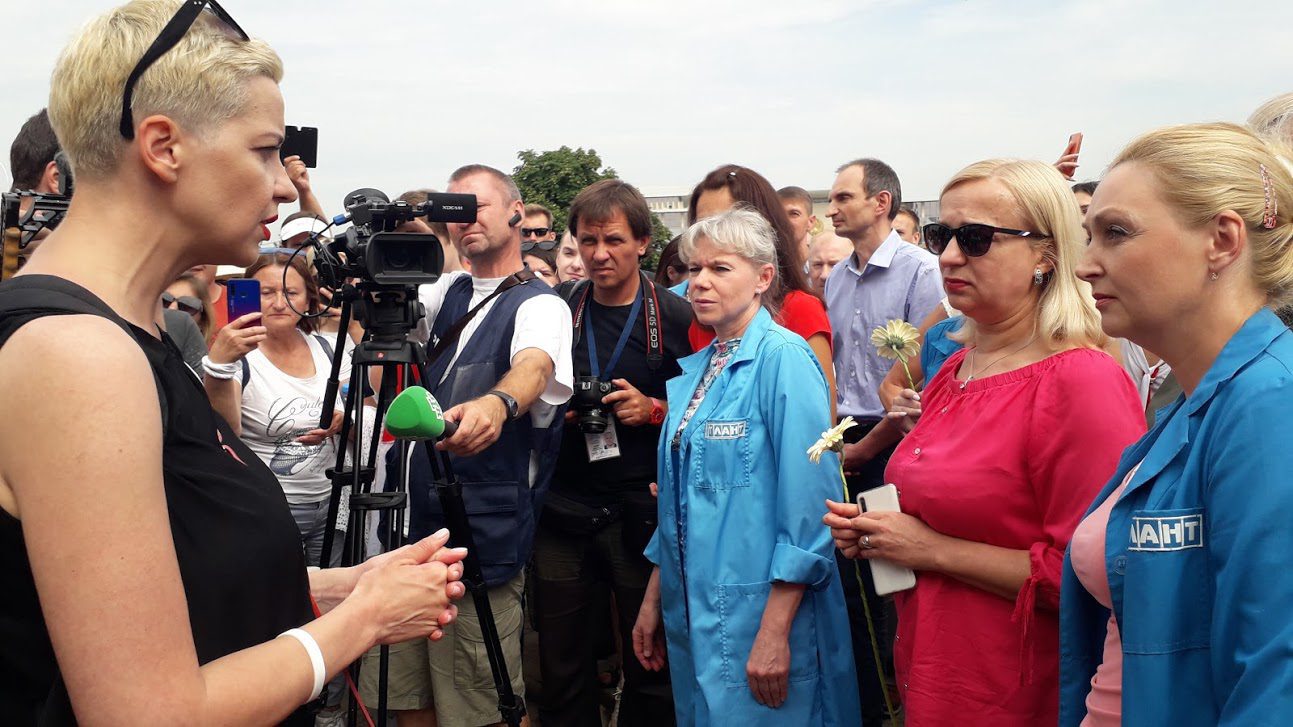
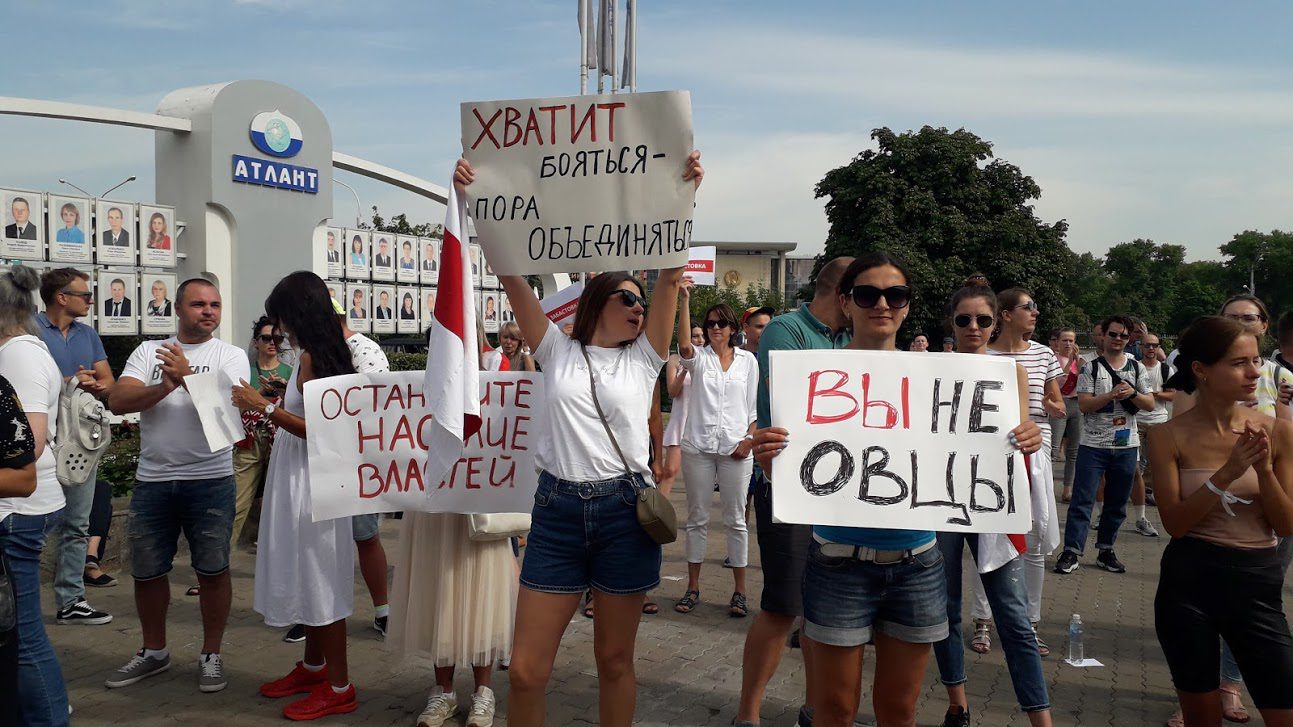
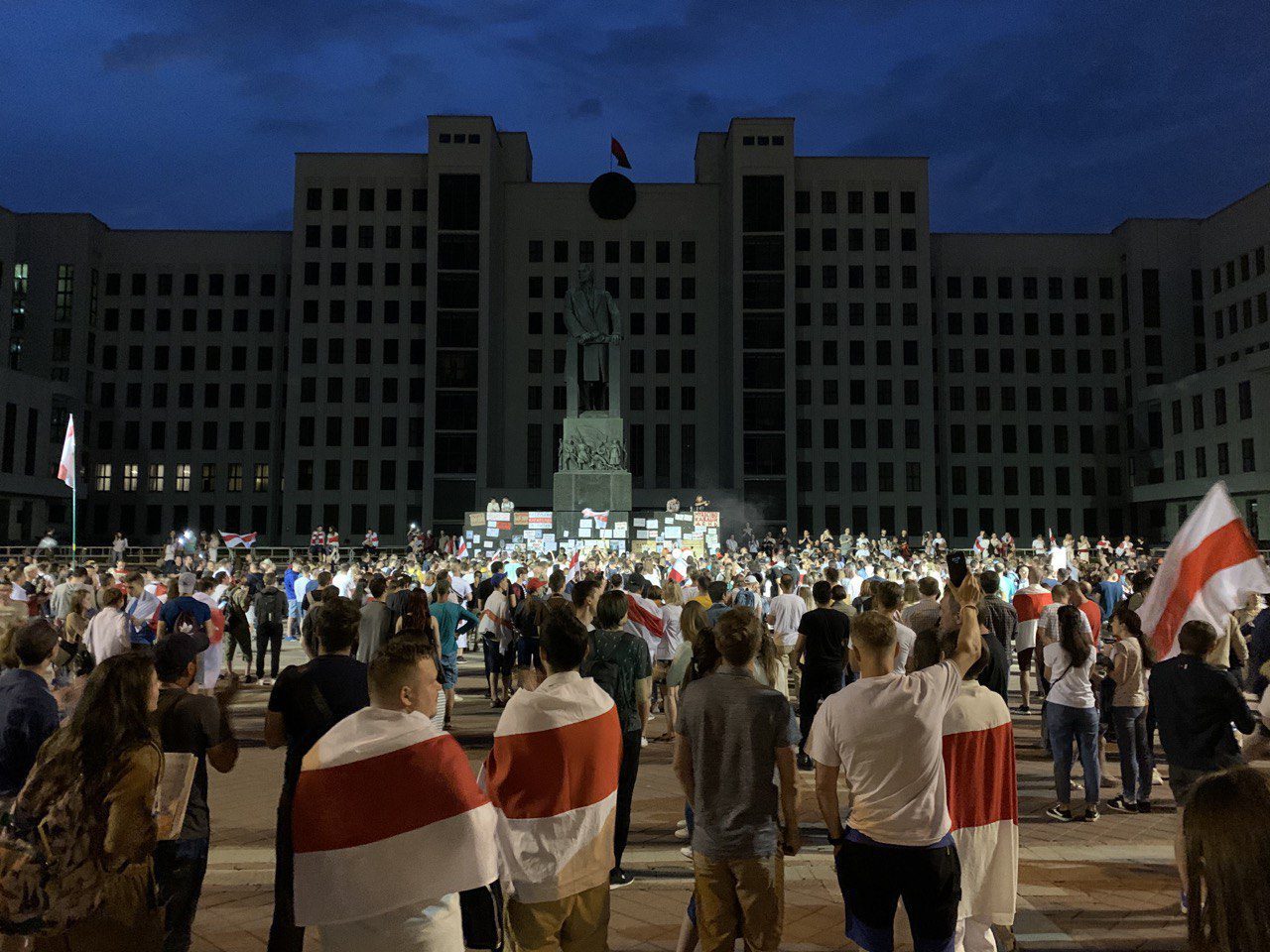
One of the protesters, Hiennadź Šutaŭ, found dead in the hospital after he was shot in the head on August 11.
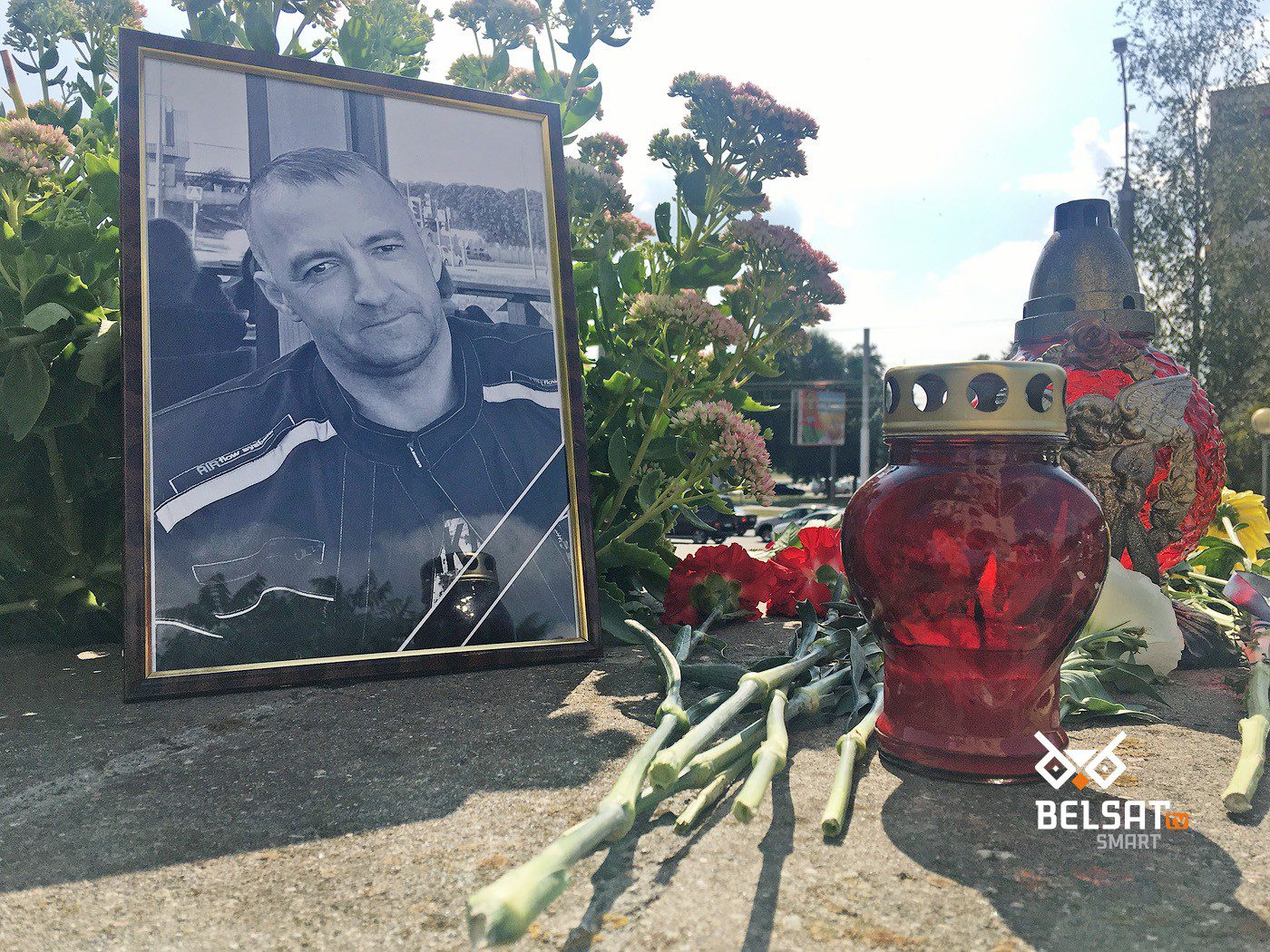
According to BT employees, specialists from Russia were hired to work on the TV channel.
More than 200 athletes signed an open letter to the authorities.
The Kupala Theater is closed for sanitation. Actors and staff are not allowed into the premises.
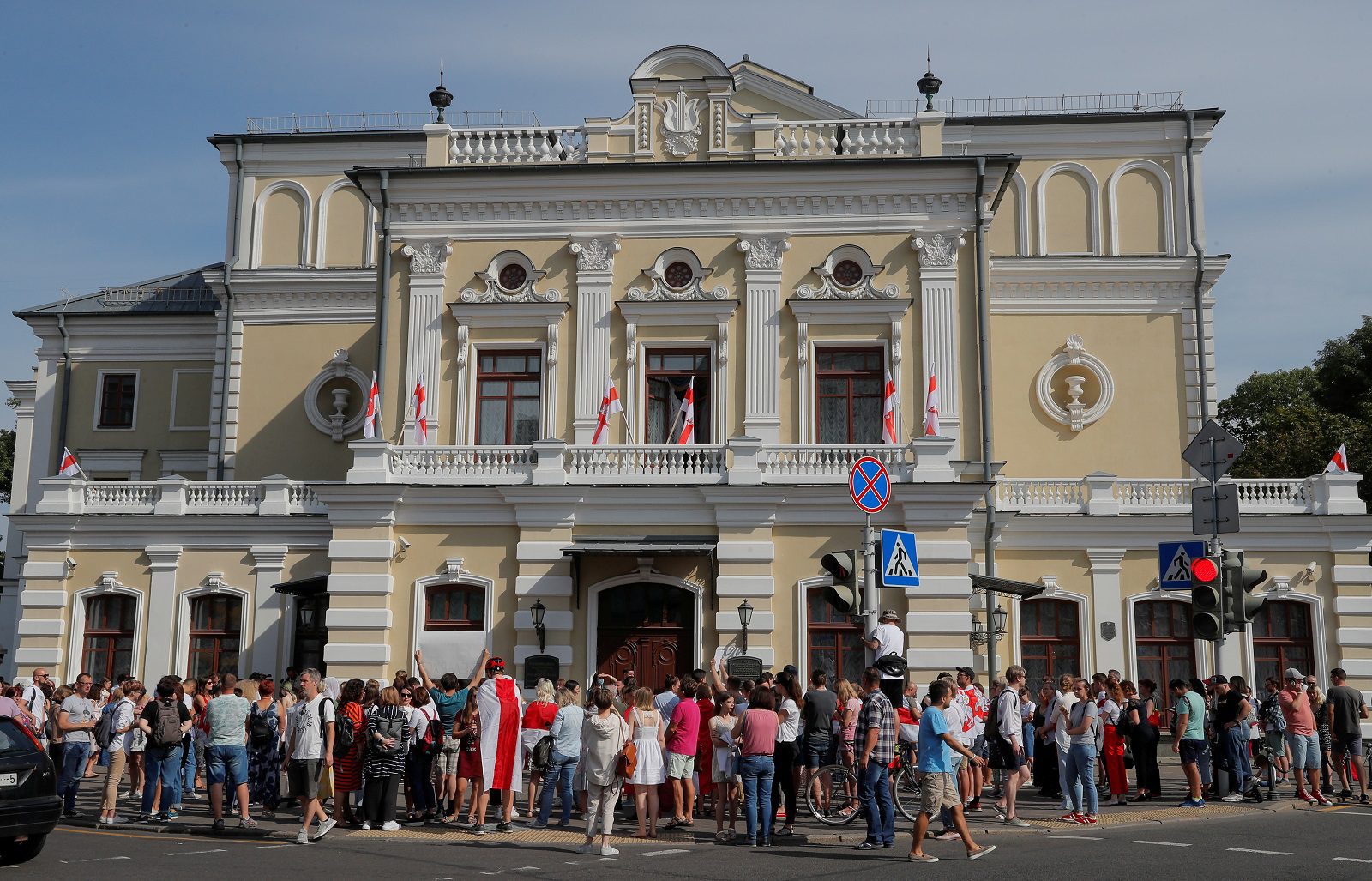
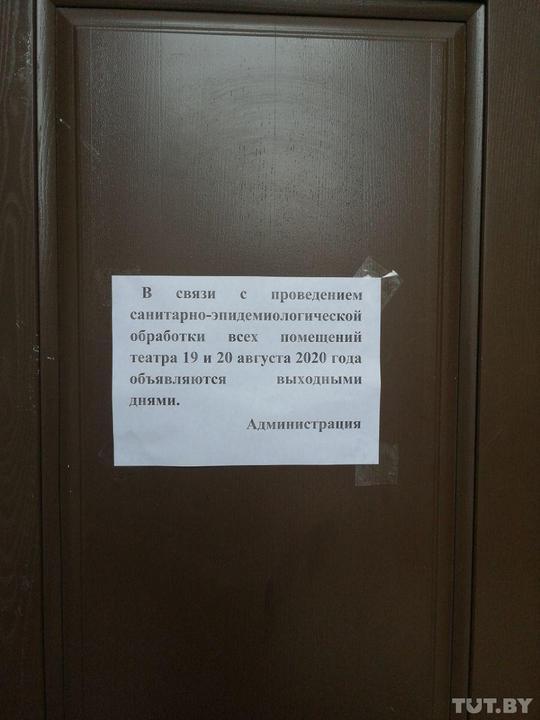
Workers of Hrodna Azot were on strike at the enterprise.
Riot police dispersed support groups for strikers near MTW and Atlant.
The workers of Belaruskali started a strike, with a strike committee created at the enterprise.
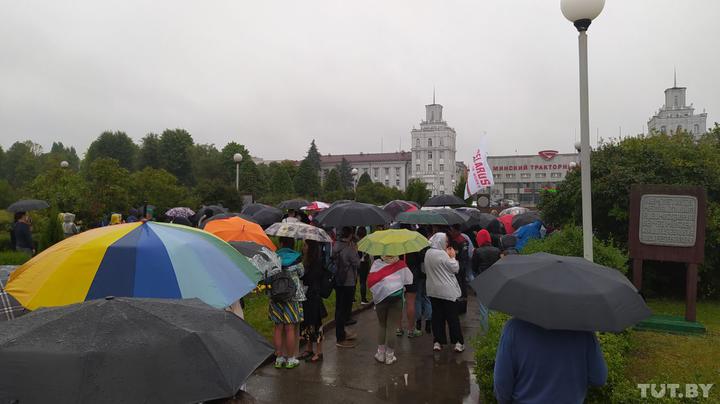
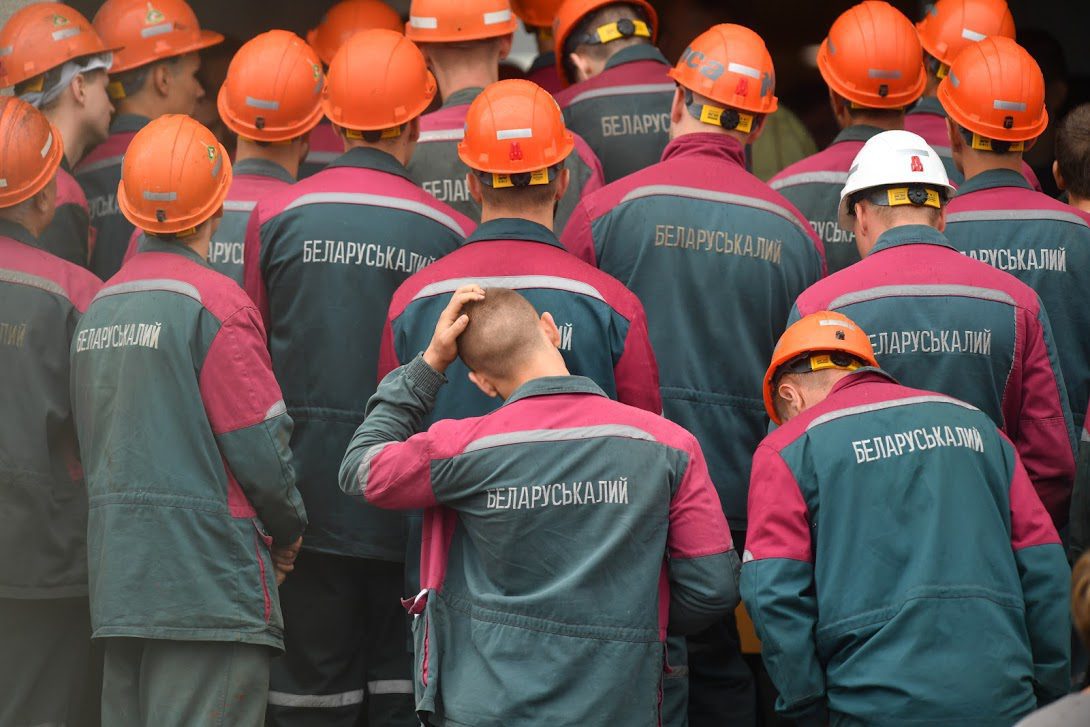
The Holas, Zubr, and Honest People initiatives asserted that the number of ballots for a particular candidate did not correspond to the number of votes for him in the final polling station commision protocol at every third polling station.
Poland, following Lithuania, announced plans to simplify the entrance for Belarusians.
At MTW, workers were forced to sign a paper addressed to the director, which said that the workers were non-politically involved and supported the plant's stable operation. The leader of the plant's strike committee, Siarhiej Dylieŭski, got summoned to the Investigative Committee.
The prosecutor's office launched a criminal case and claimed that the creation of the Coordination Council was aimed at seizing state power.
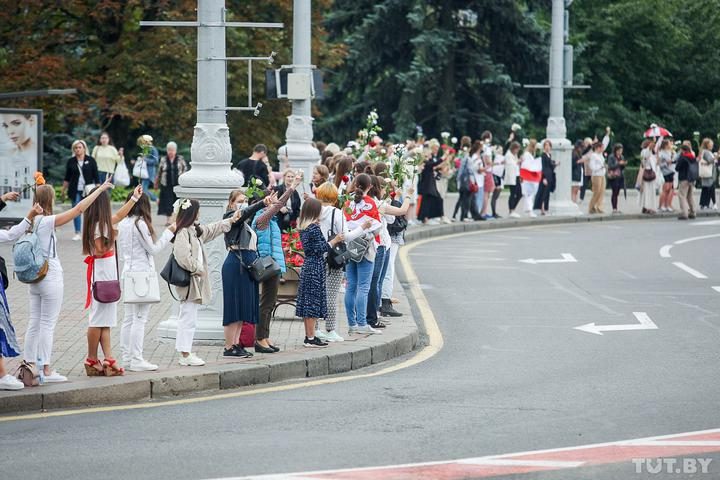
Lukašenka said that "in the coming days", he would solve the situation in the country.
The BYSOL solidarity fund, which collected money to help those left without work for political reasons, had more than $ 1.6 million donated by caring people. The first people who quit jobs started to receive payments.
Lawyer Maksim Znak submitted a complaint of Sviatlana Cichanoŭskaja to the Supreme Court. It was about the recognition of the August 9 elections as invalid. Twenty-five files with evidence of violations accompanied the complaint.
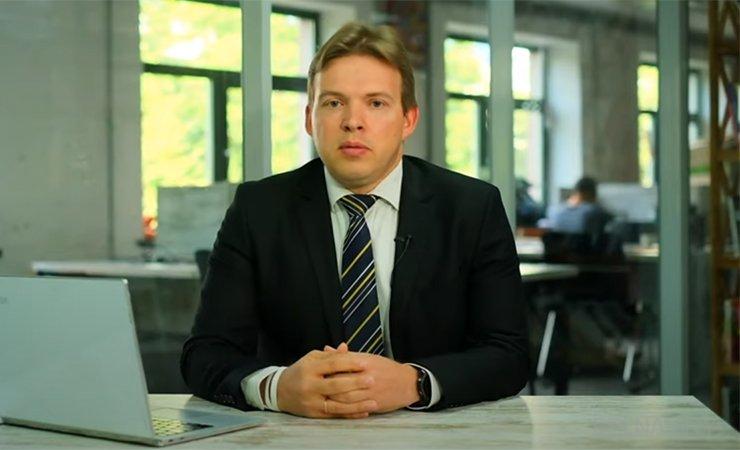
The Chain of Repentance action took place in Minsk. People stood from Kurapaty to the temporary detention centre on Akrescina Street across the entire city.
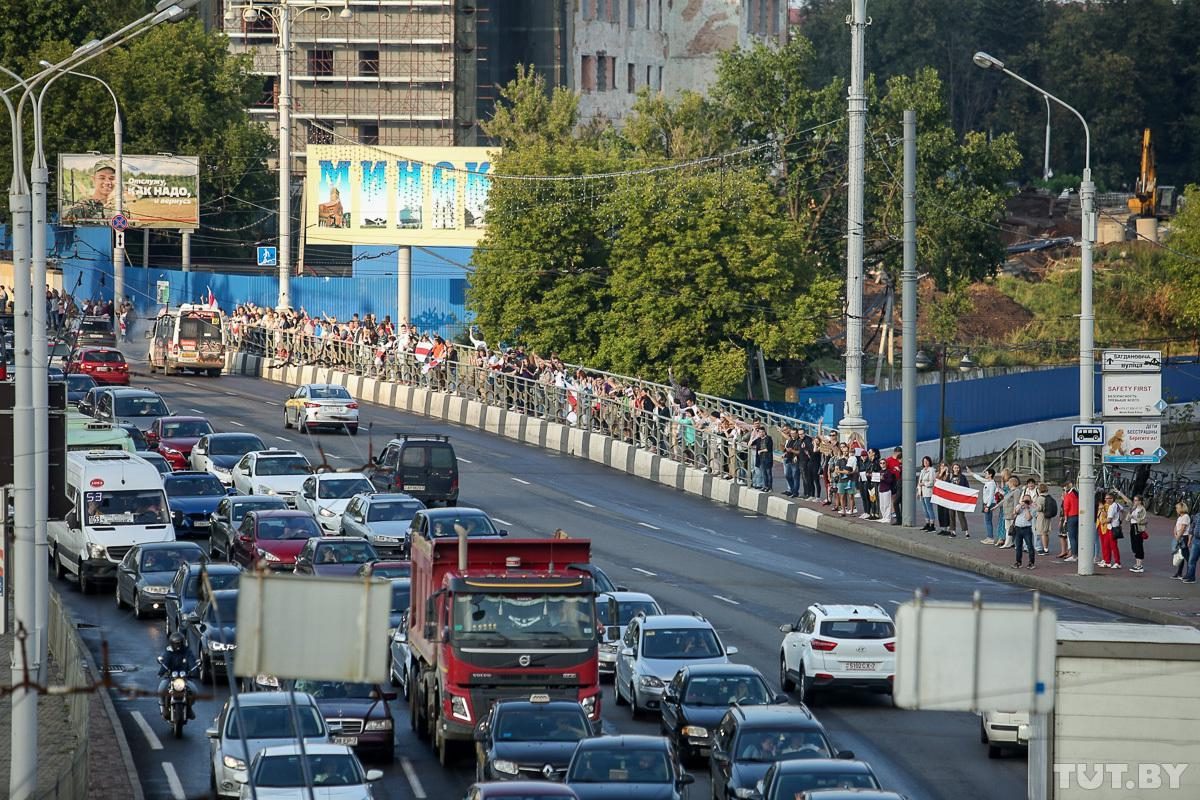
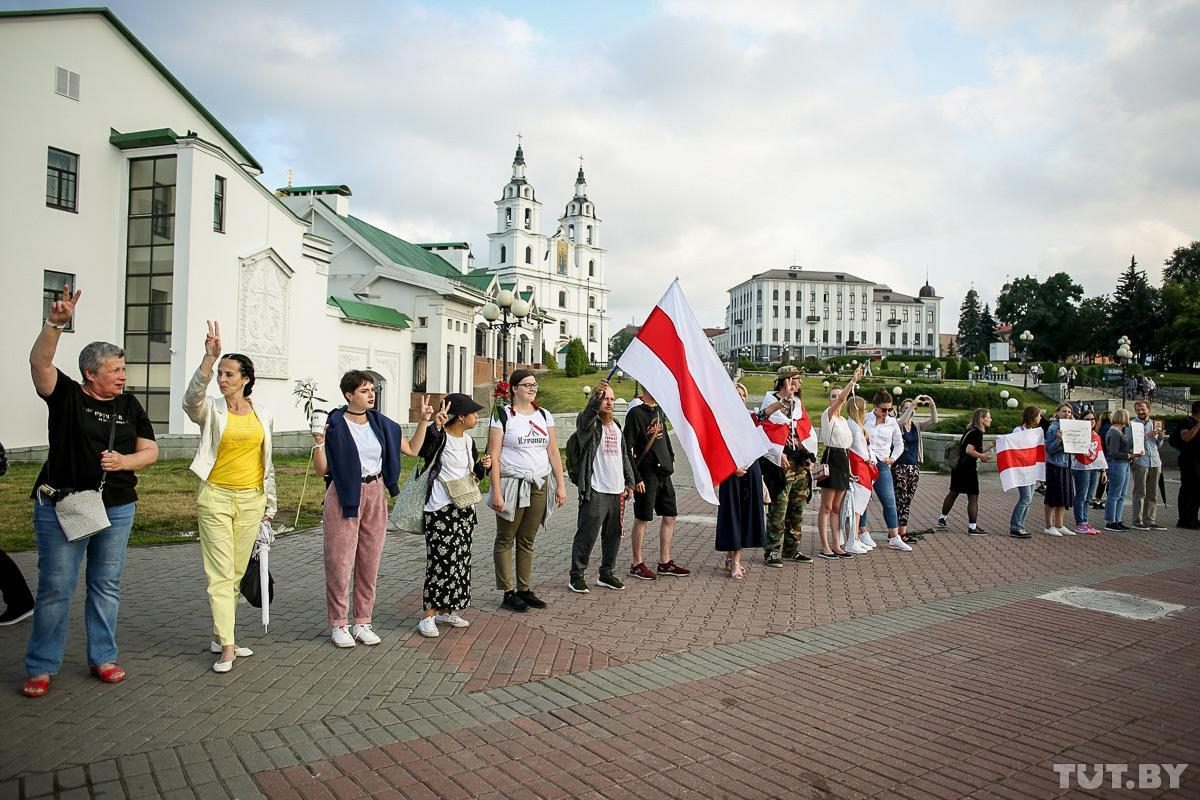
Mikita Kryŭcoŭ, 28, from Maladziečna, who disappeared after the August 12 protests, was found dead in a forest park on Parnikovaja Street in Minsk.
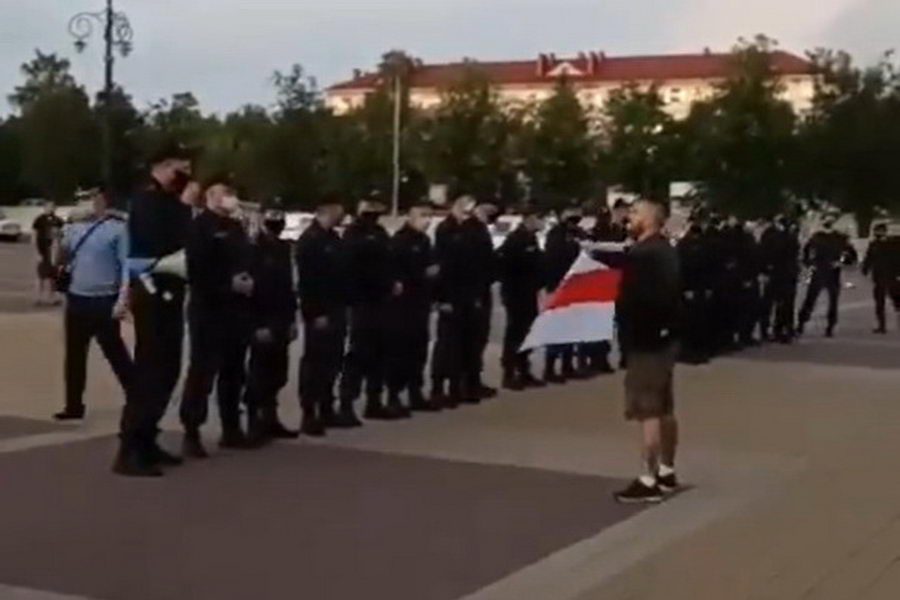
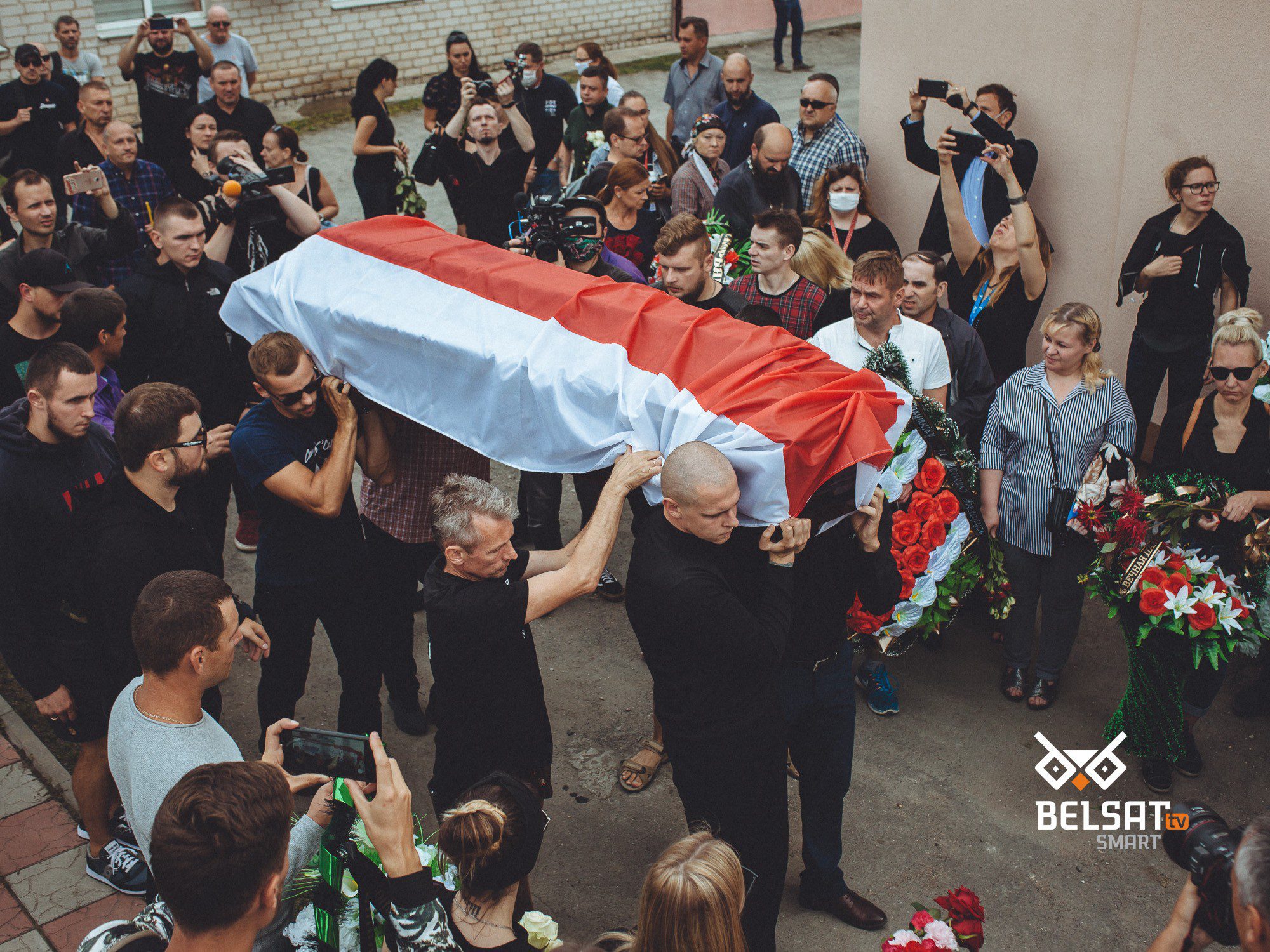
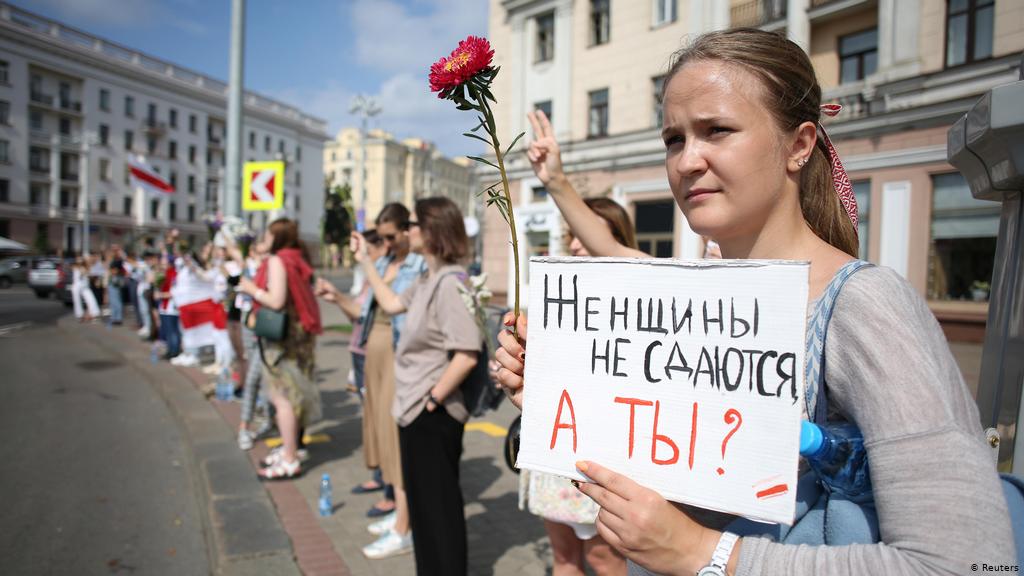

A 50,000-strong chain of solidarity with Belarusians was created in Lithuania – from Vilnius to Belarus.

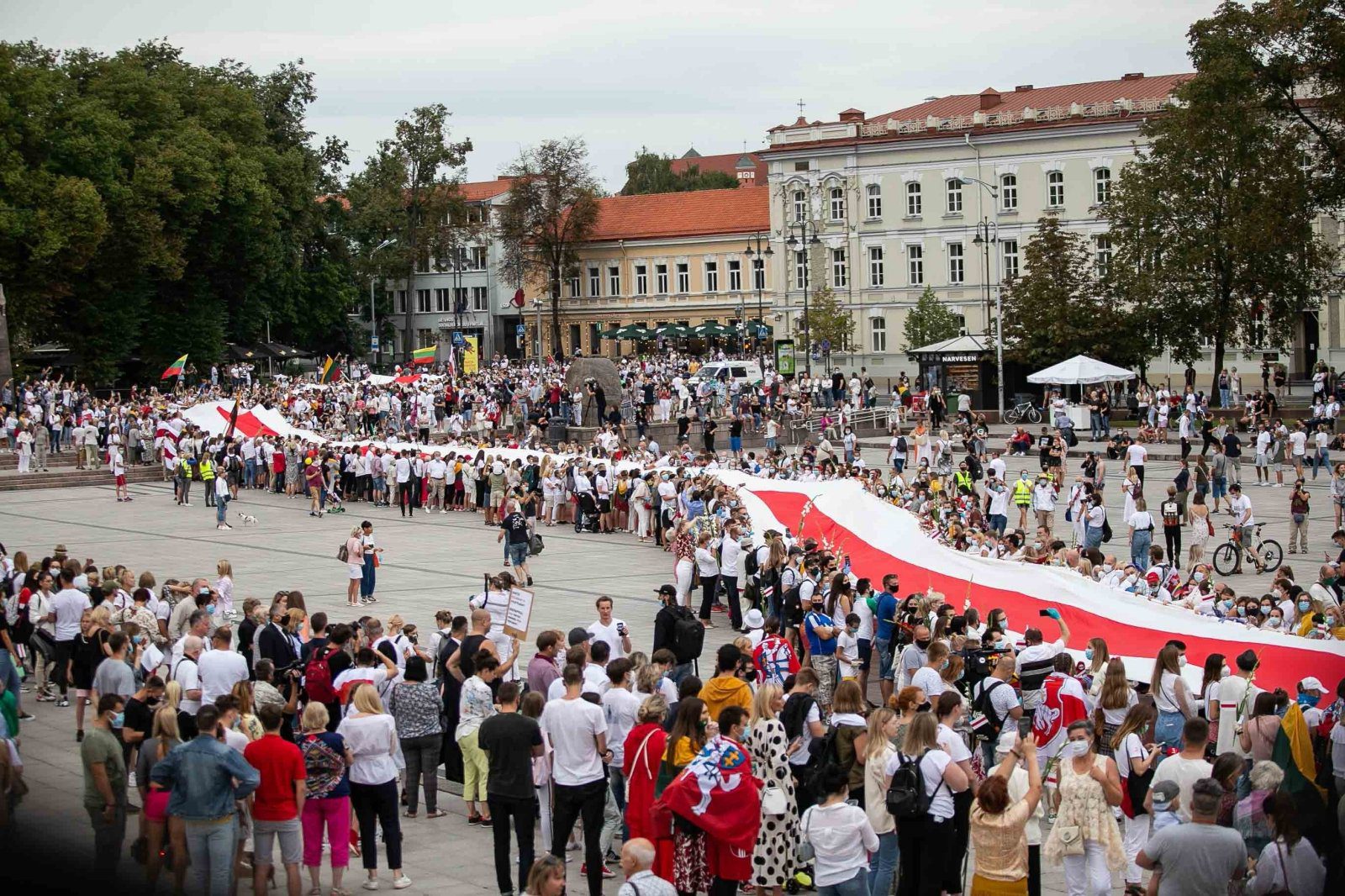
The Stela in Minsk was cordoned off by the military and surrounded with barbed wire; cordons were set up near the State Flag Square and the Palace of Independence. Columns of demonstrators came there, and Lukašenka flew in – he got out of the helicopter in a bulletproof vest, and next to him there was his 15-year-old son Mikalaj with a submachine gun, also wearing a bulletproof vest.
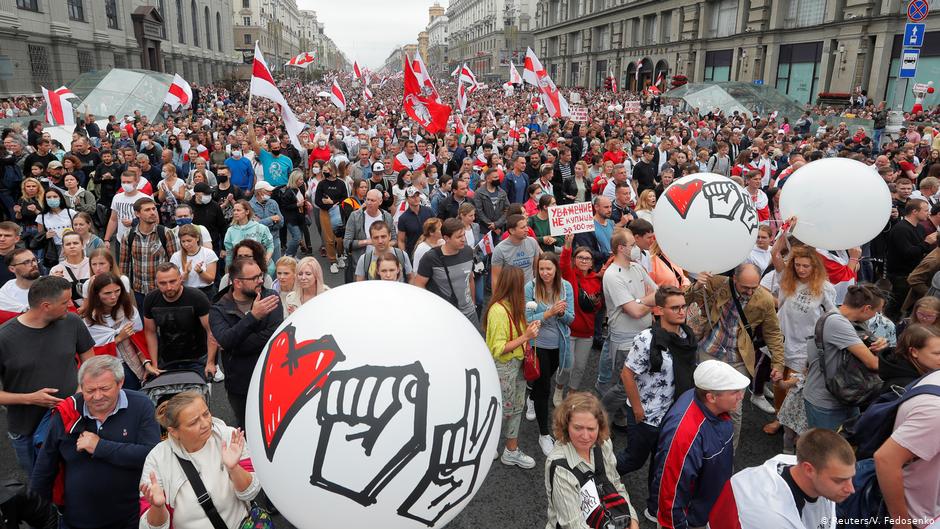
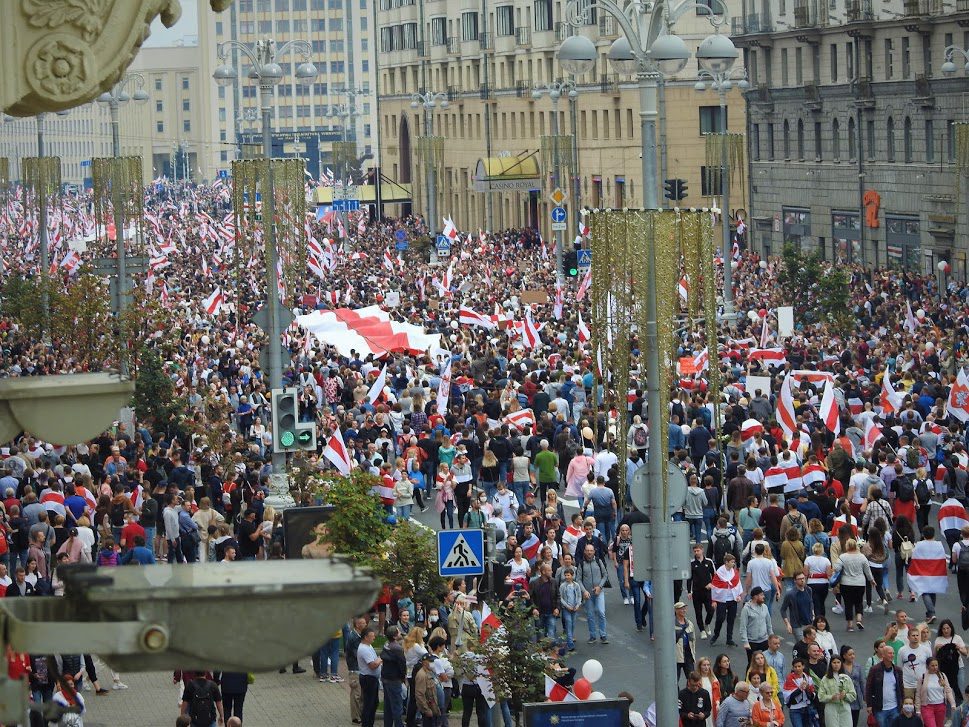
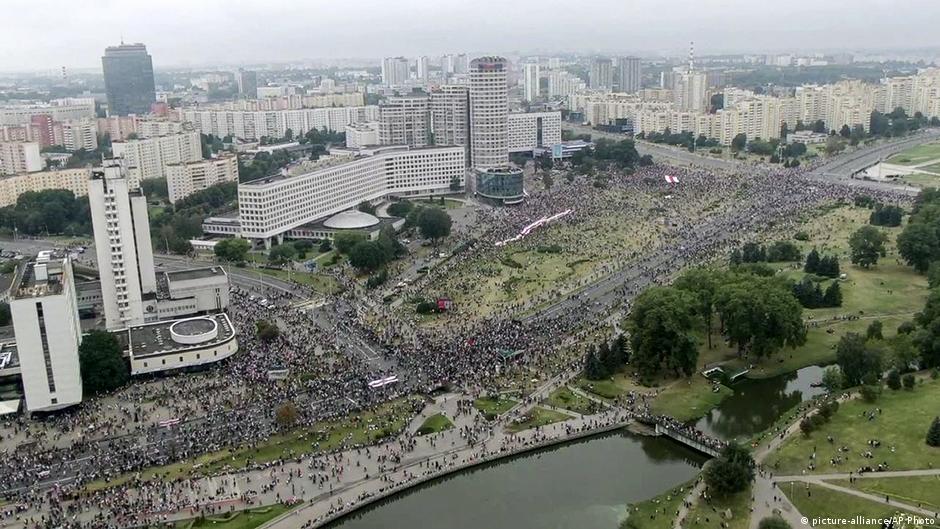
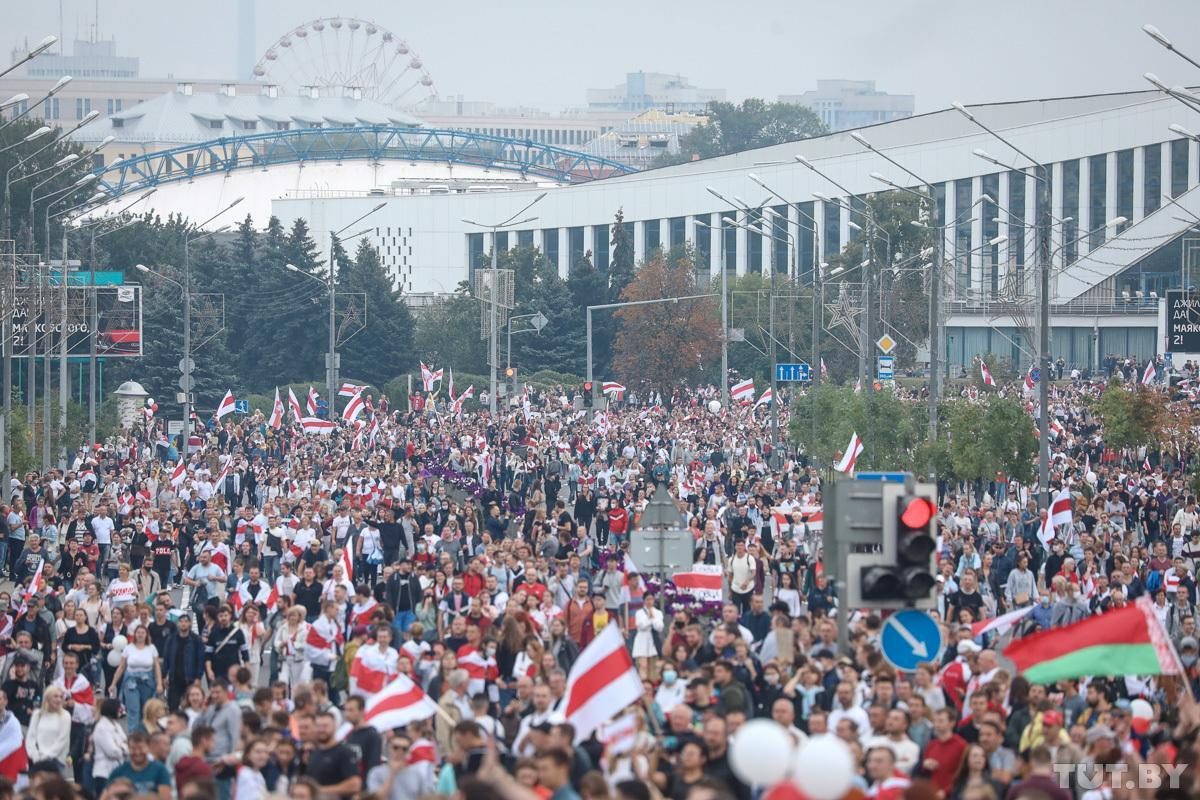
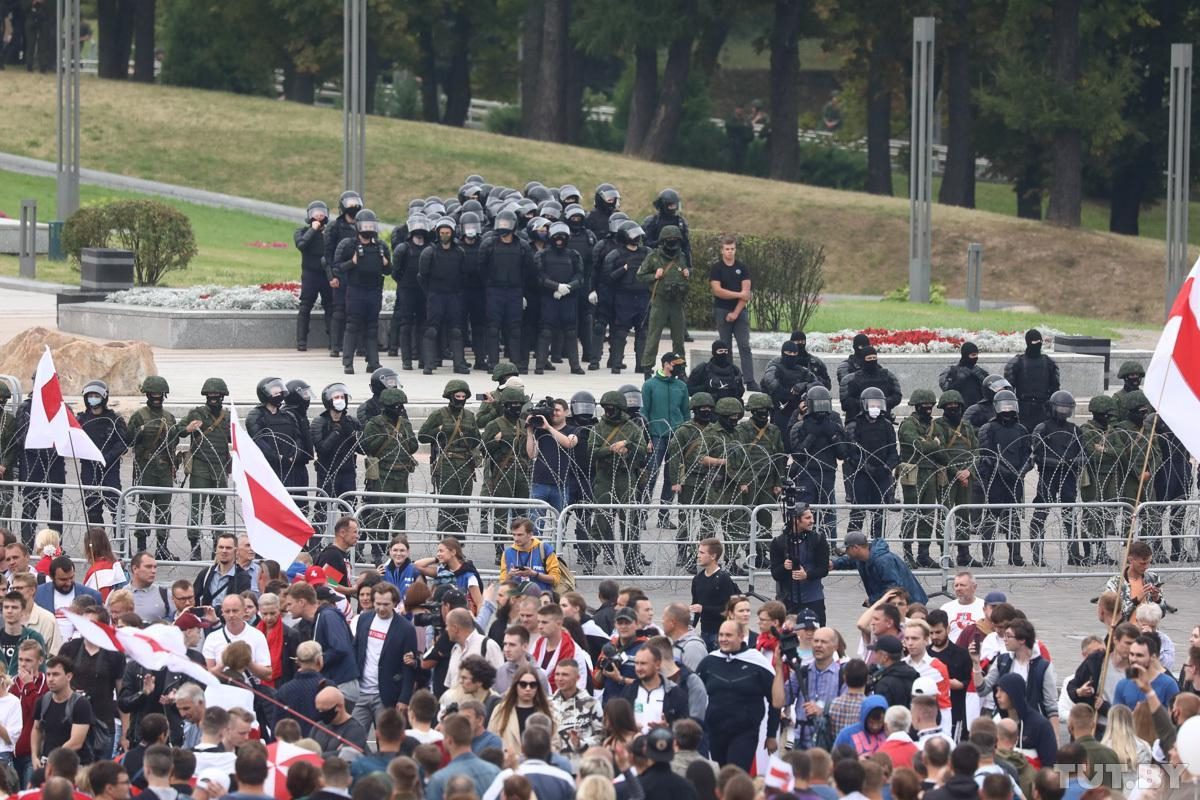
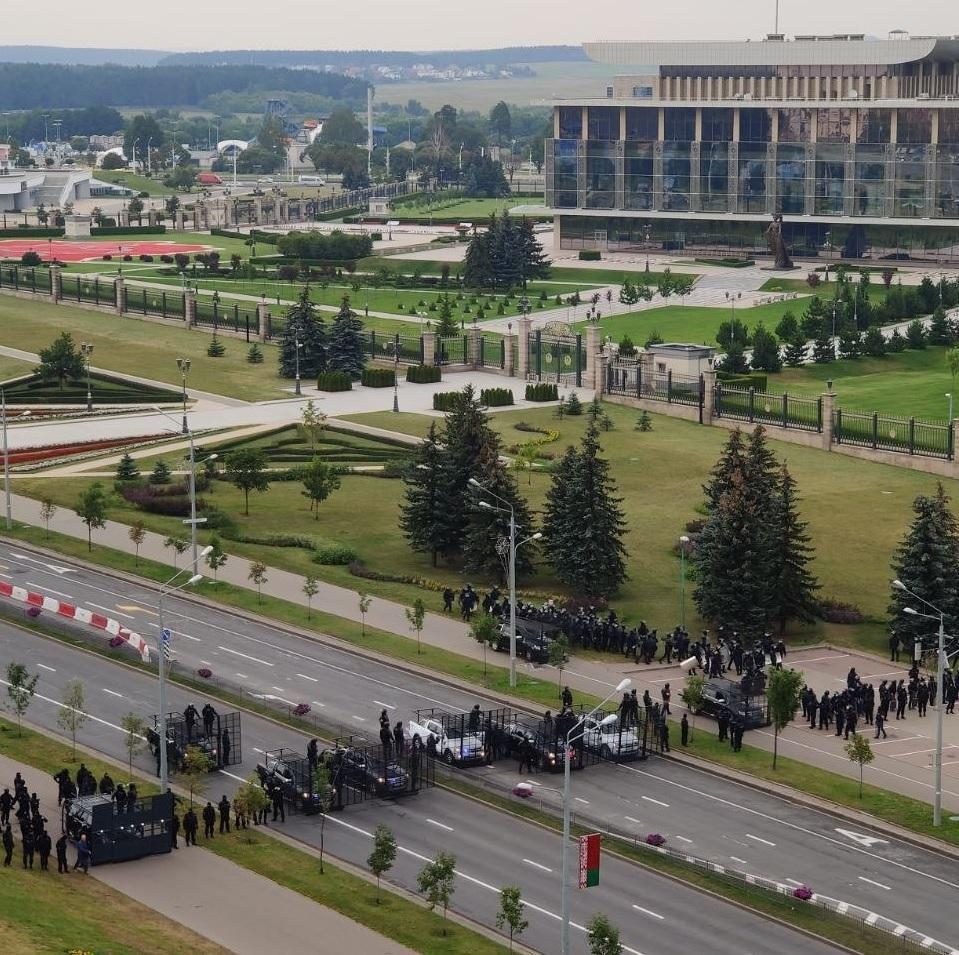
The Ministry of Defense reported on the Air Force and Air Defense destroying "a probe made of eight balloons with anti-state symbols that attempted to enter the airspace of the Republic of Belarus" on the border with Lithuania.
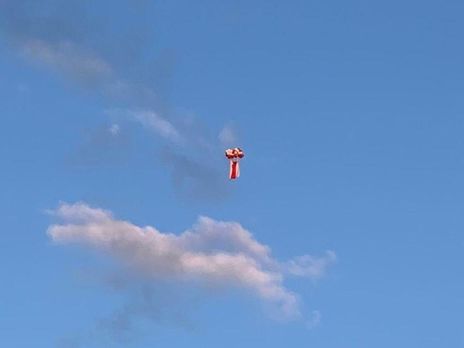
Lukašenka dismissed the Belarusian ambassador to Slovakia, who supported the protesters.
Sviatlana Cichanoŭskaja met with US Deputy Secretary of State Stephen Biegun in Vilnius.
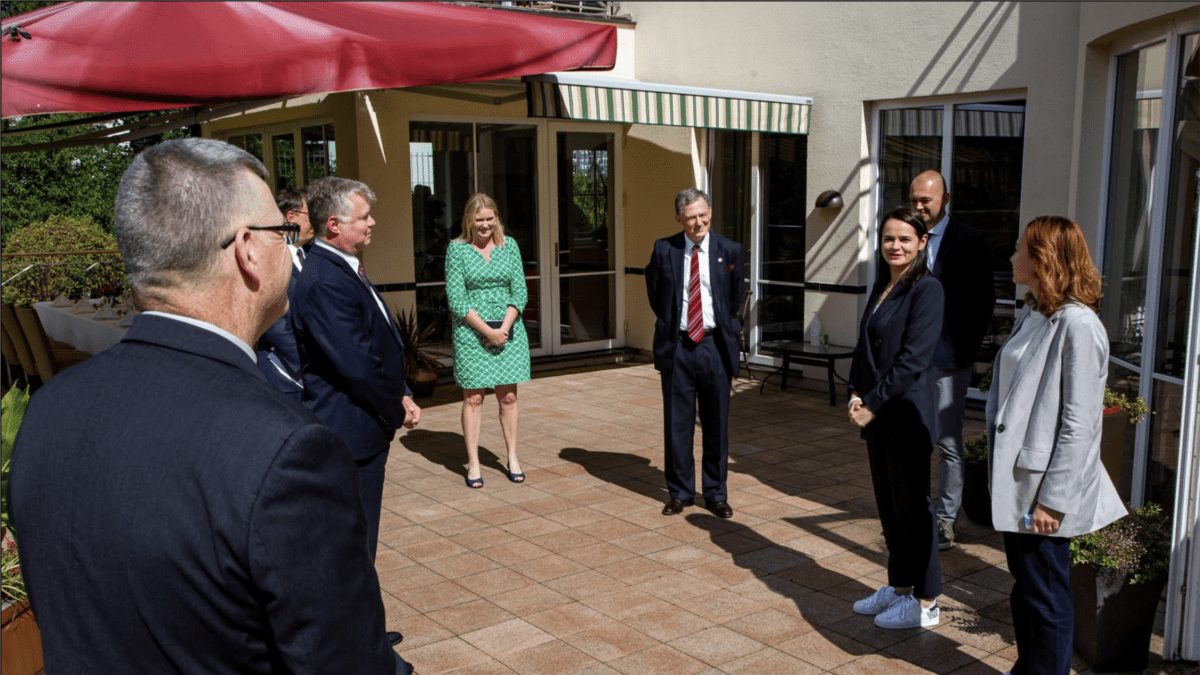
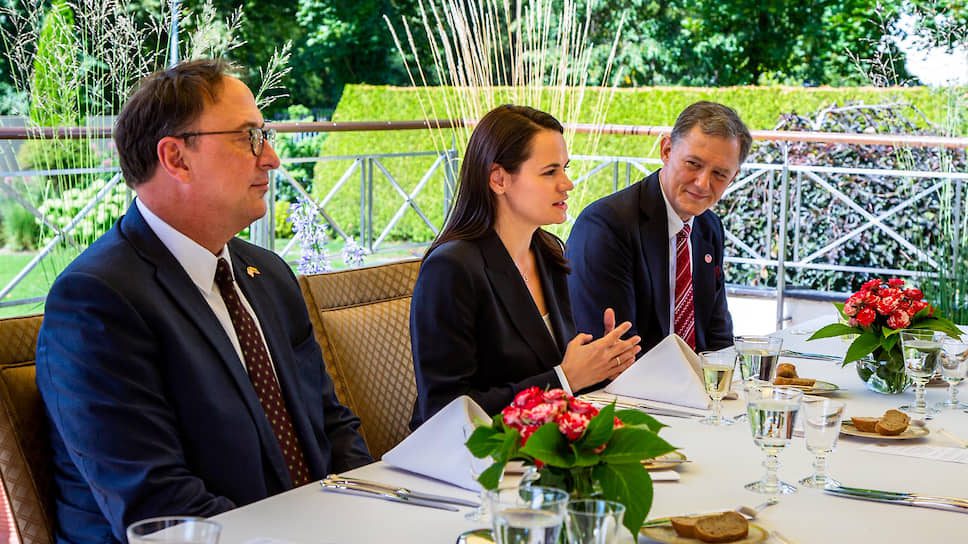
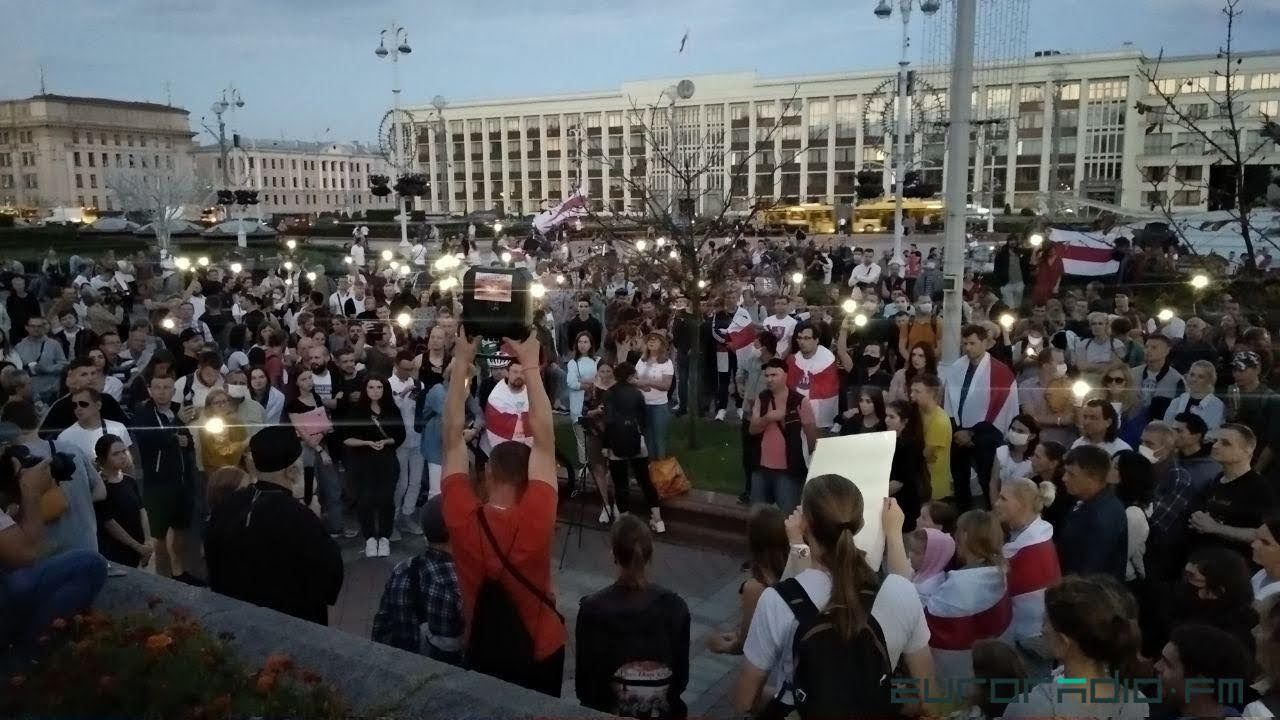
The Supreme Court denied all ex-presidential candidates opening a complaint case.
Siarhiej Dylieŭski, a representative of the MTW strike committee, was jailed for ten days, even though the plant's general director tried to protect him.
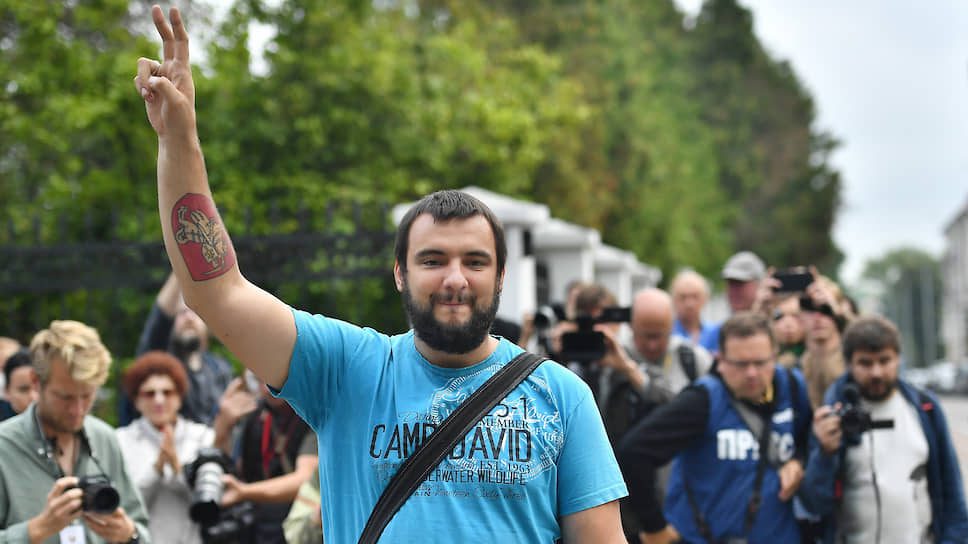
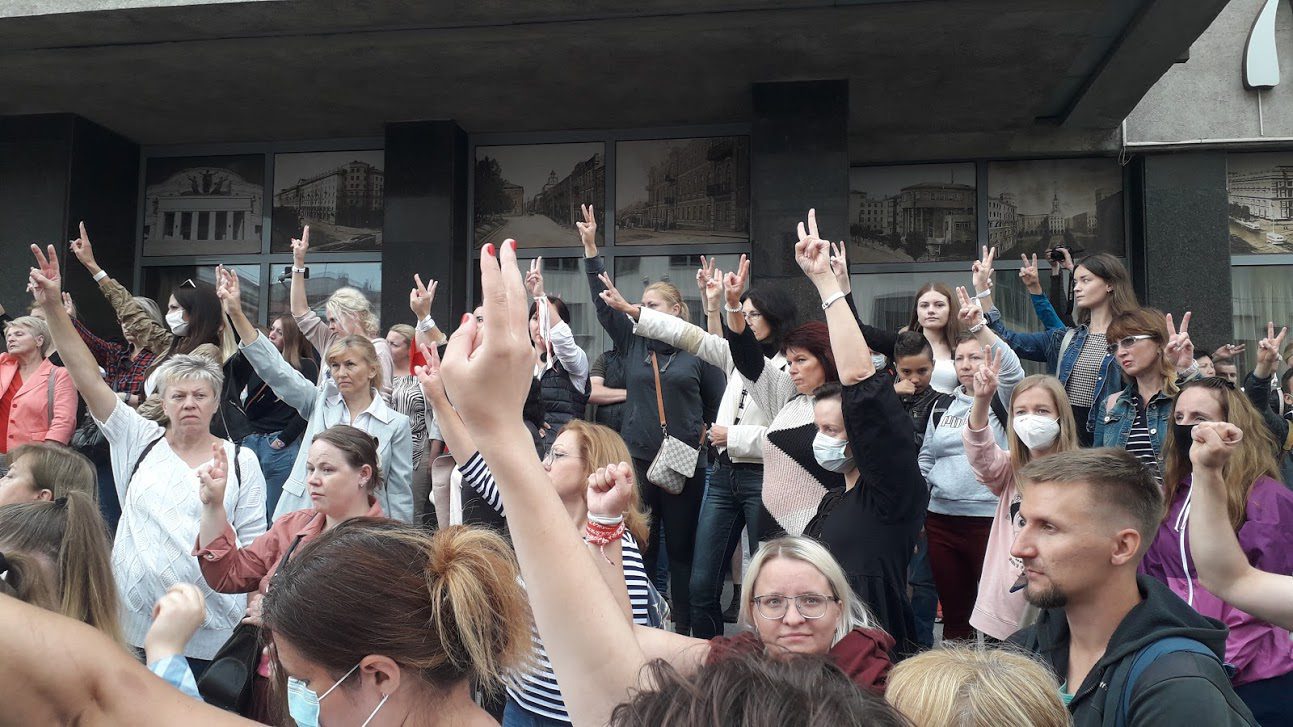
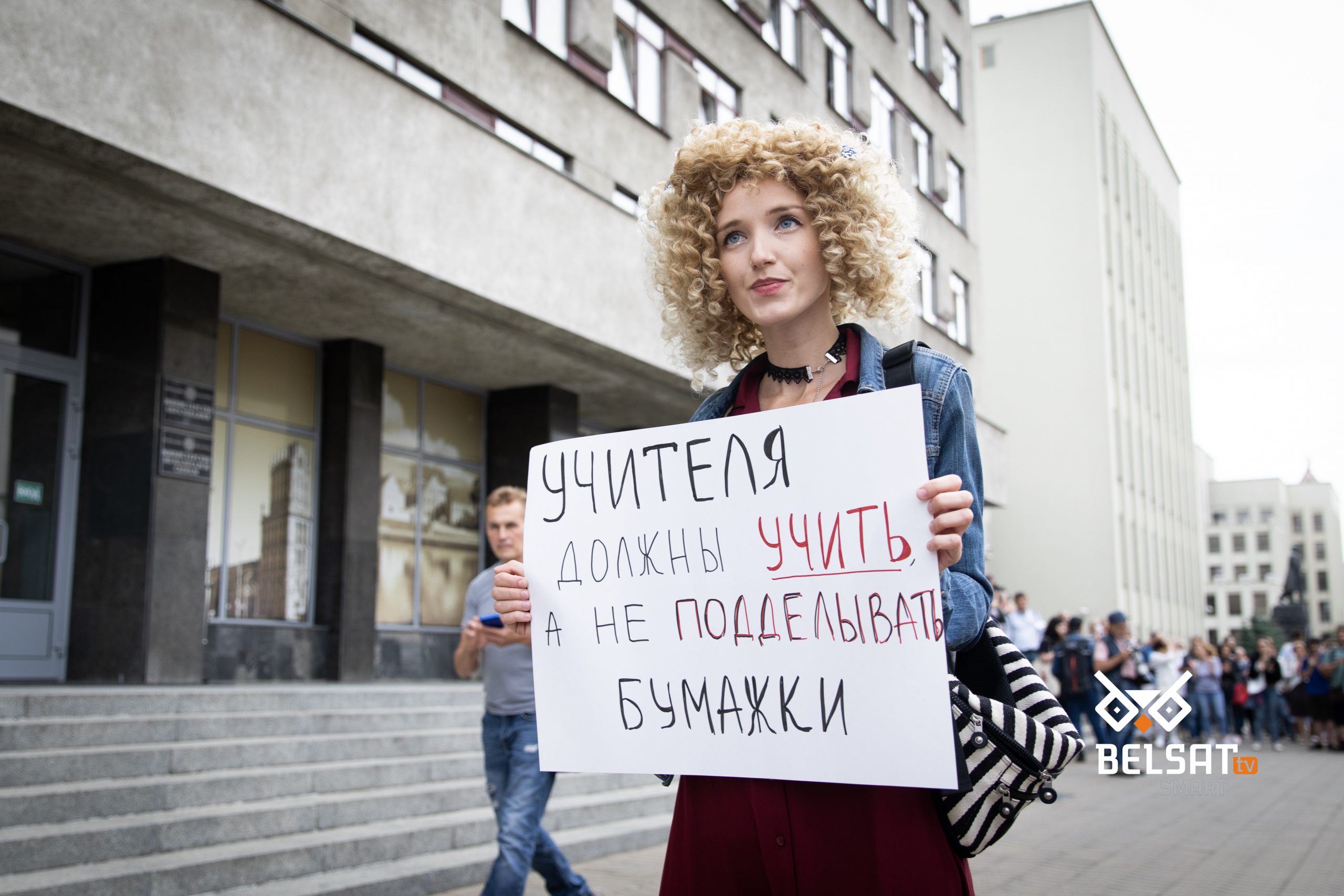
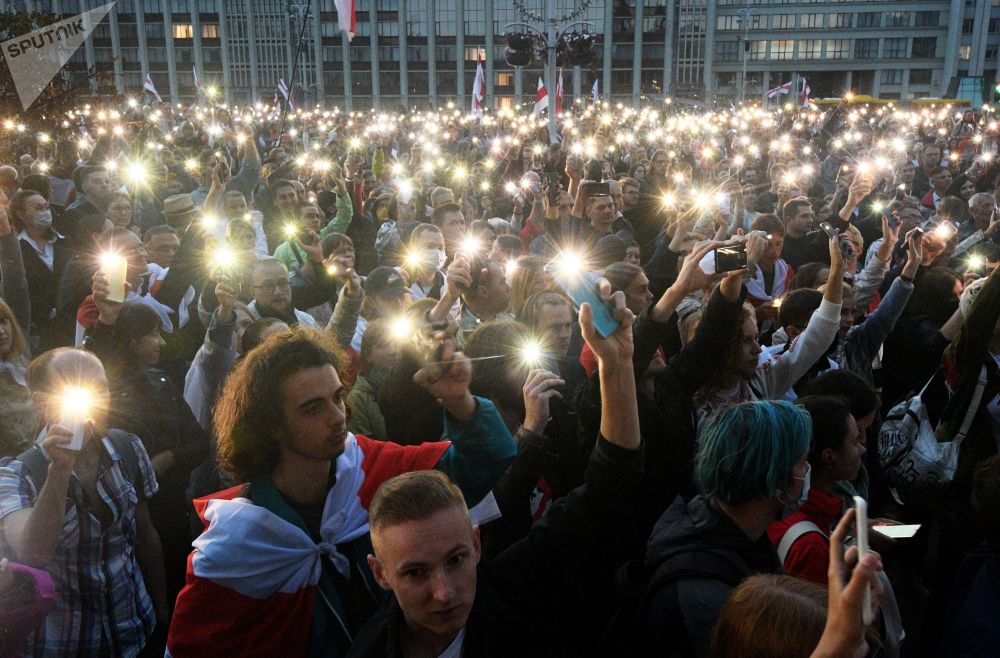
Fifty-eight actors and employees were dismissed from the Janka Kupala Theater.
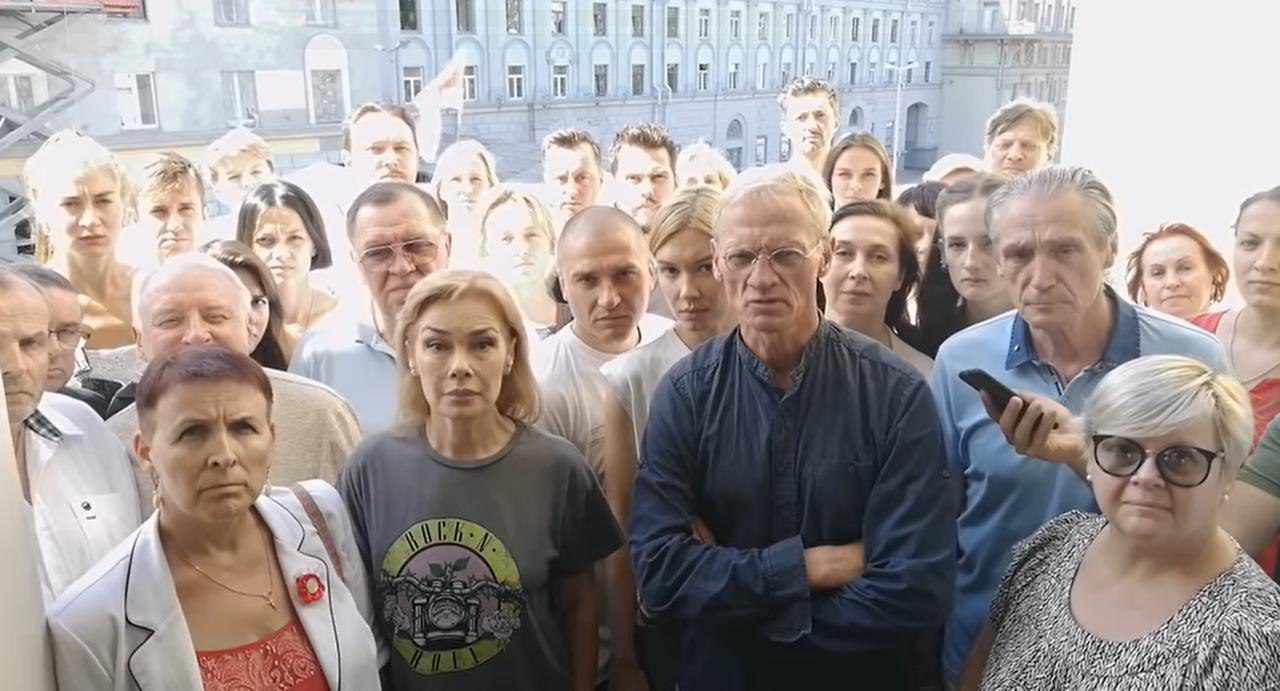
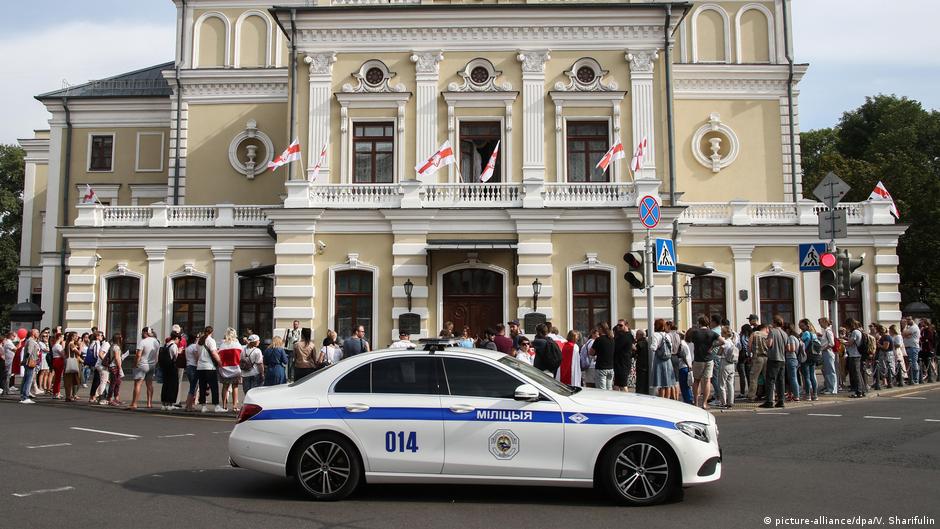
The Investigative Committee of Belarus questioned Sviatlana Alieksijevič and Paviel Latuška as members of the Coordinating Council on the case of protests in Belarus.
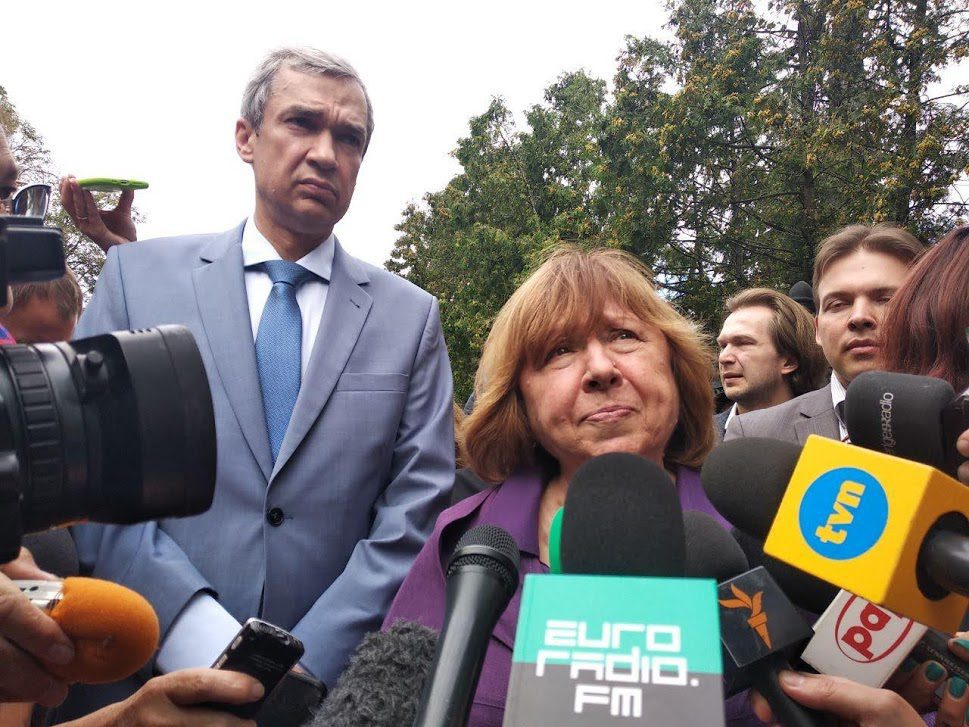
The traditional evening action on Independence Square in Minsk ended with detentions.
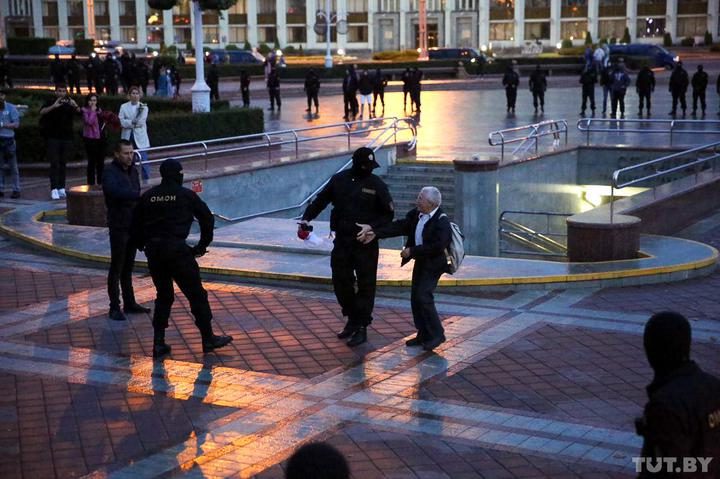
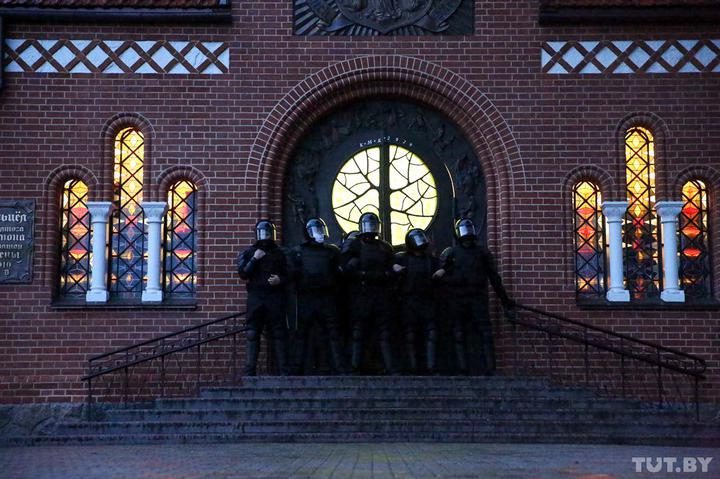
The Ministry of Health dismissed the director of the Republican Scientific and Practical Center "Cardiology" Aliaksandr Mročak, earlier the centre's doctors went on pickets.
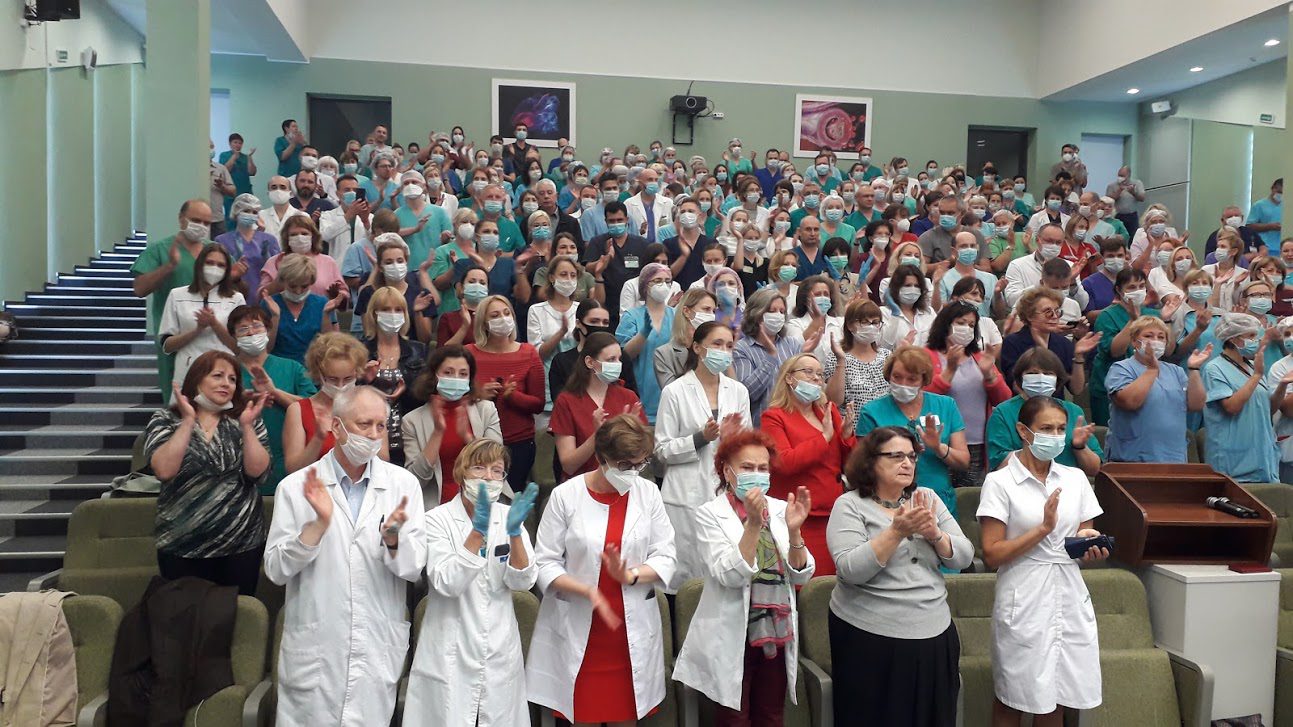
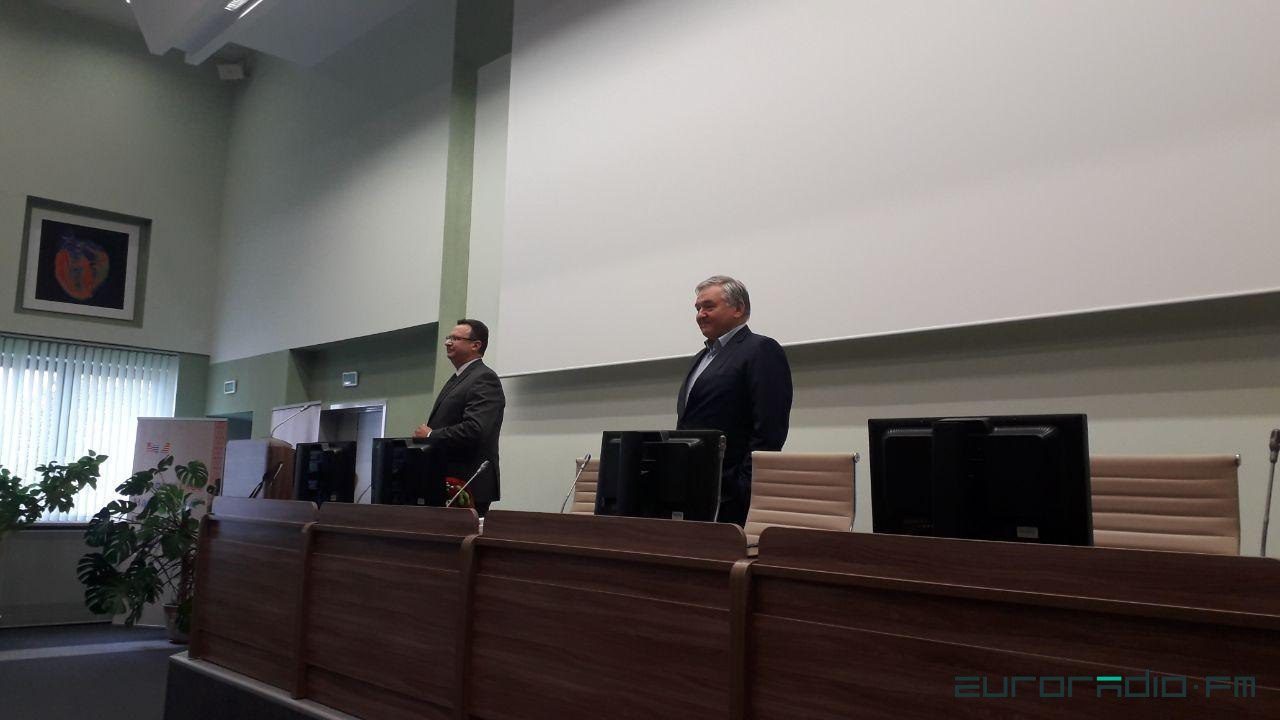
The Investigative Committee claimed that they had no complaints of rape from those who were beaten after the protests.
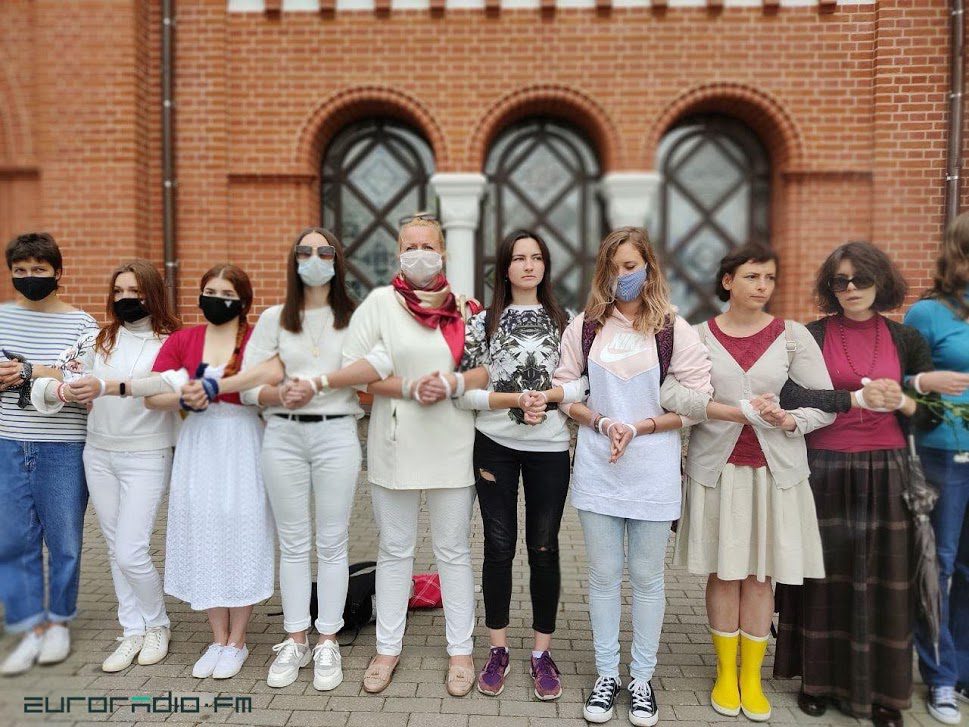
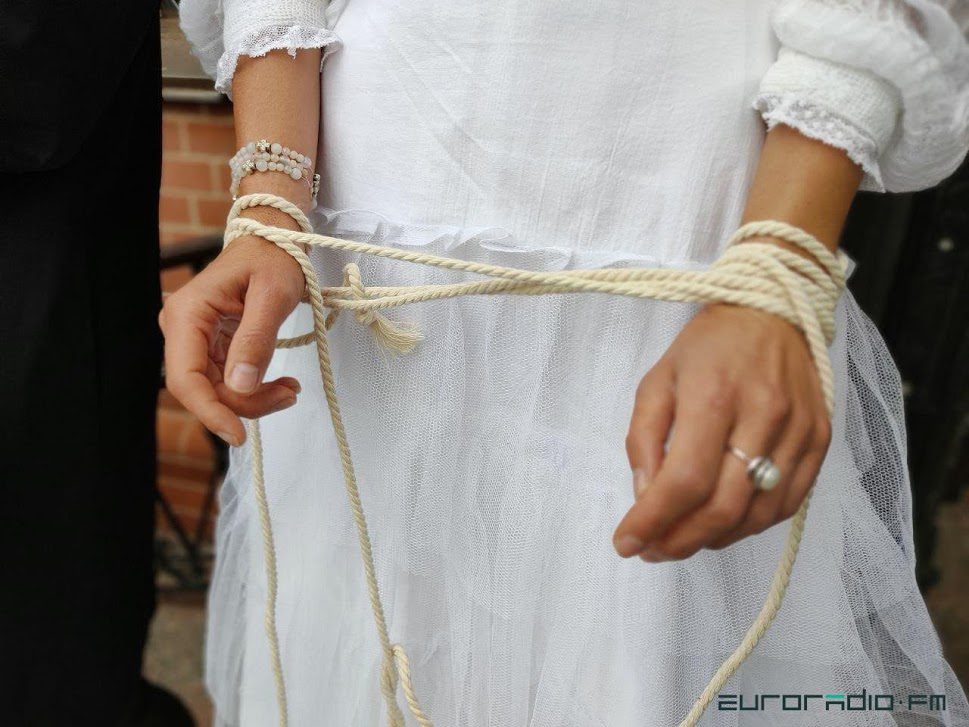
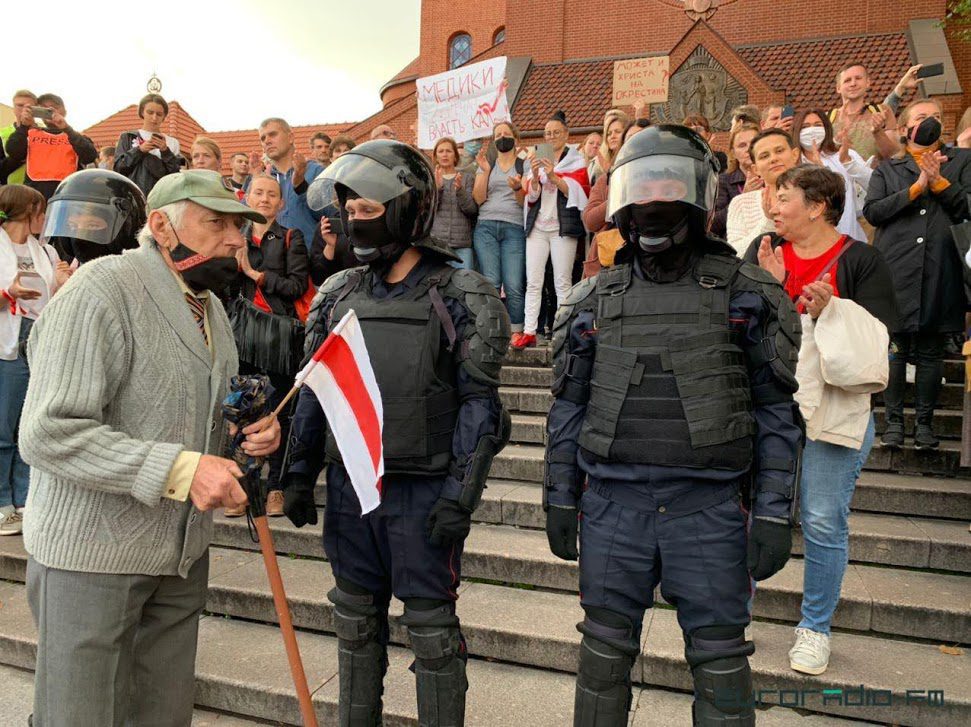
Vladimir Putin recognized the legitimacy of the elections in Belarus.
The Foreign Ministry massively deprived journalists of foreign media of accreditation.
The well-known businessman Aliaksandr Vasilievič was taken into custody. His home and the offices of businesses belonging to him were revisionsed.
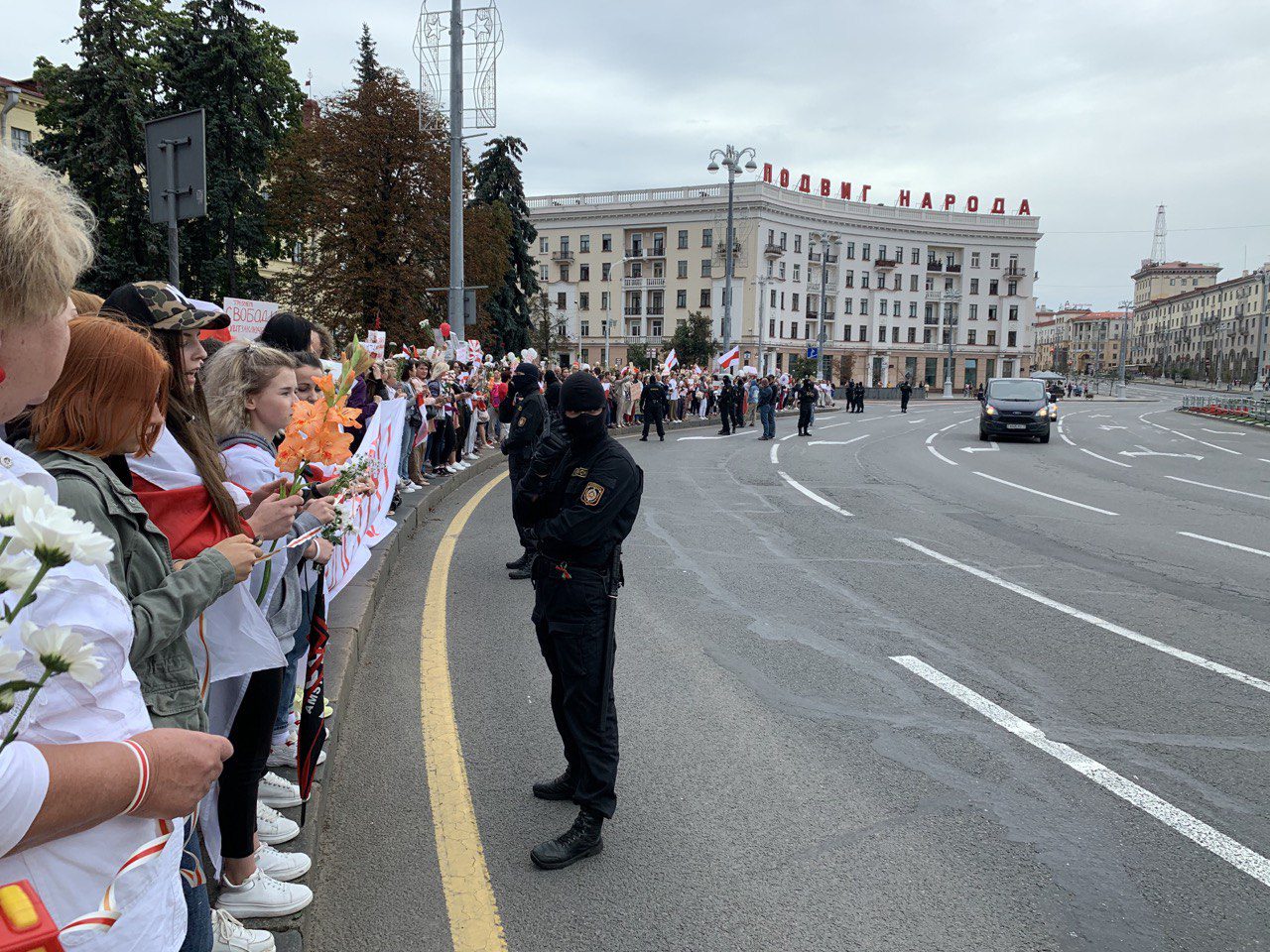
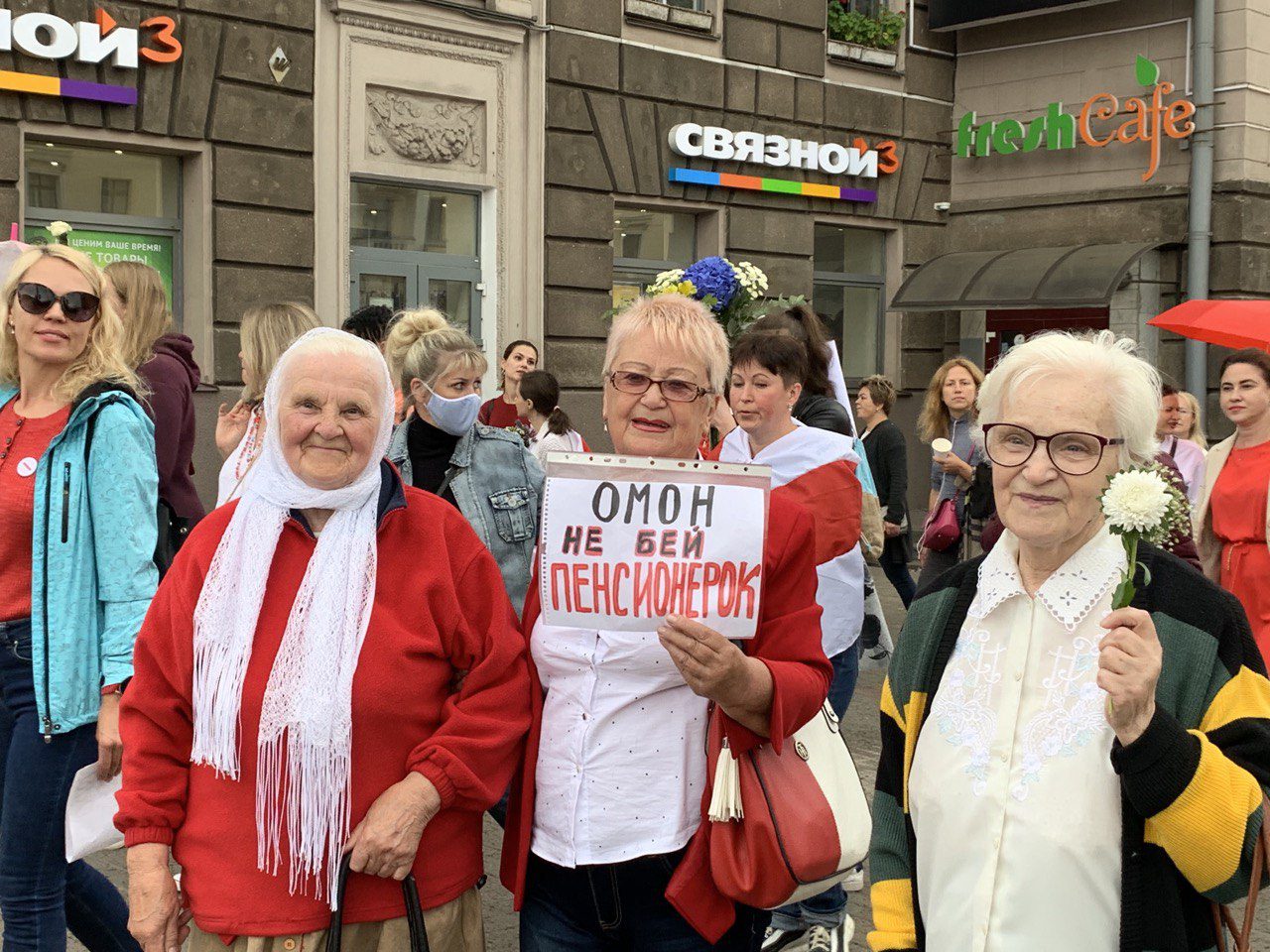
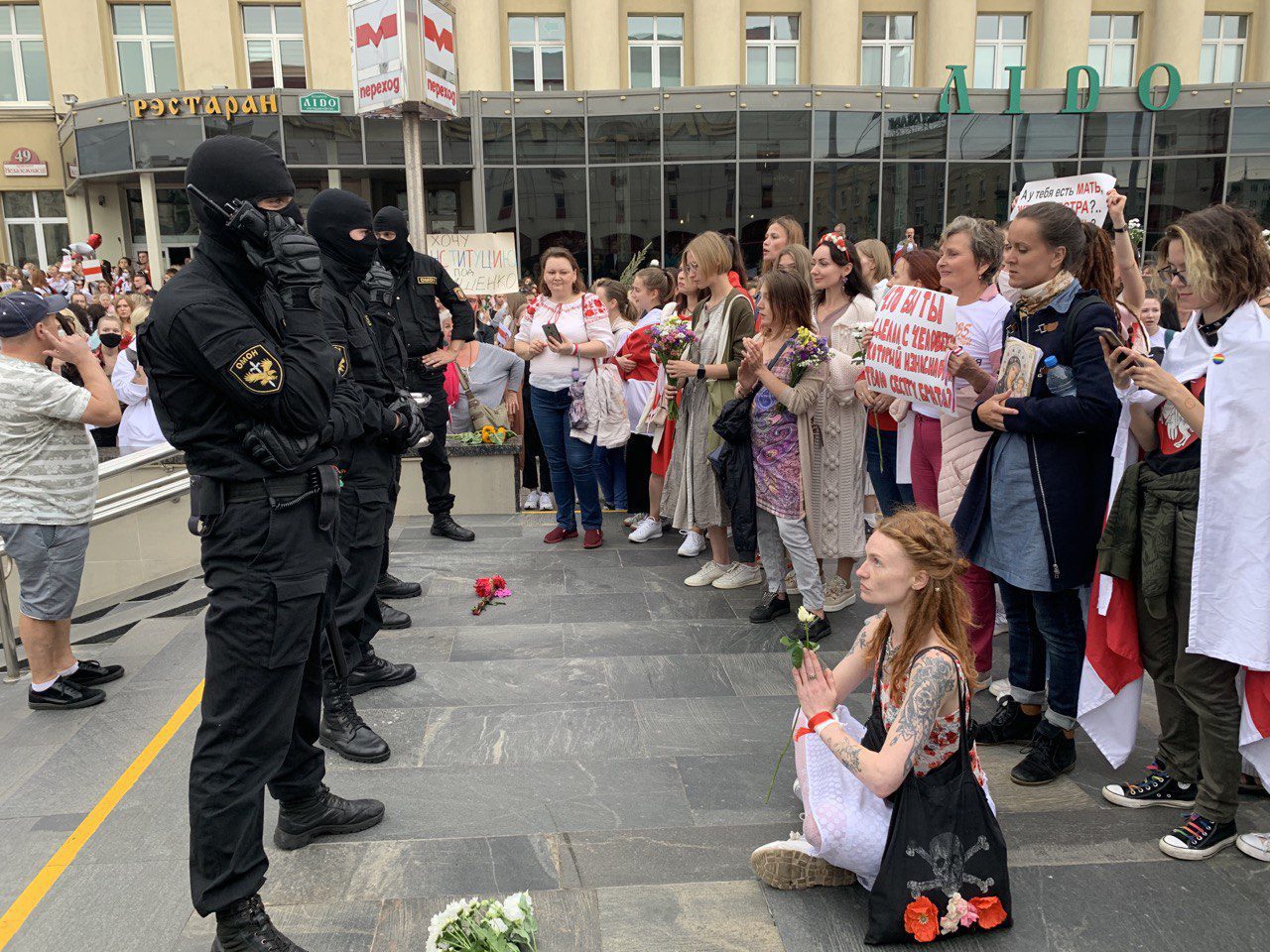
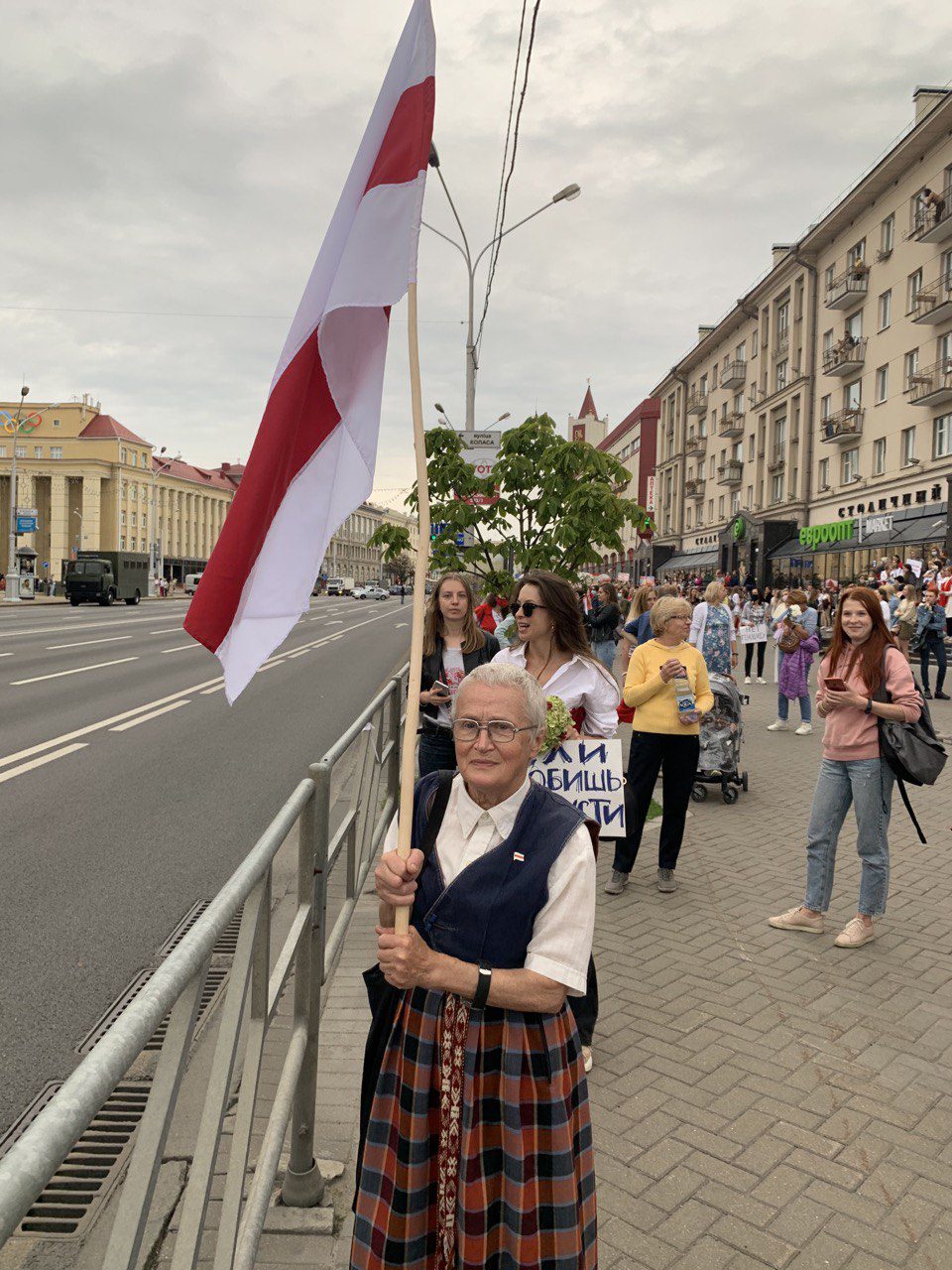
Editor-in-chief of the lifestyle project KYKY.org Anastasija Rahatko left Belarus together with part of the editorial staff. Earlier security forces detained the co-owner KYKY.org Aliaksandr Vasilievič.
Lukašenka turned 66. Mass protests took place in Minsk and other cities of Belarus. The number of those detained exceeded one hundred.
By 4:00 pm, people were able to come to the Palace of Independence, where they tried to set up negotiations with the authorities.
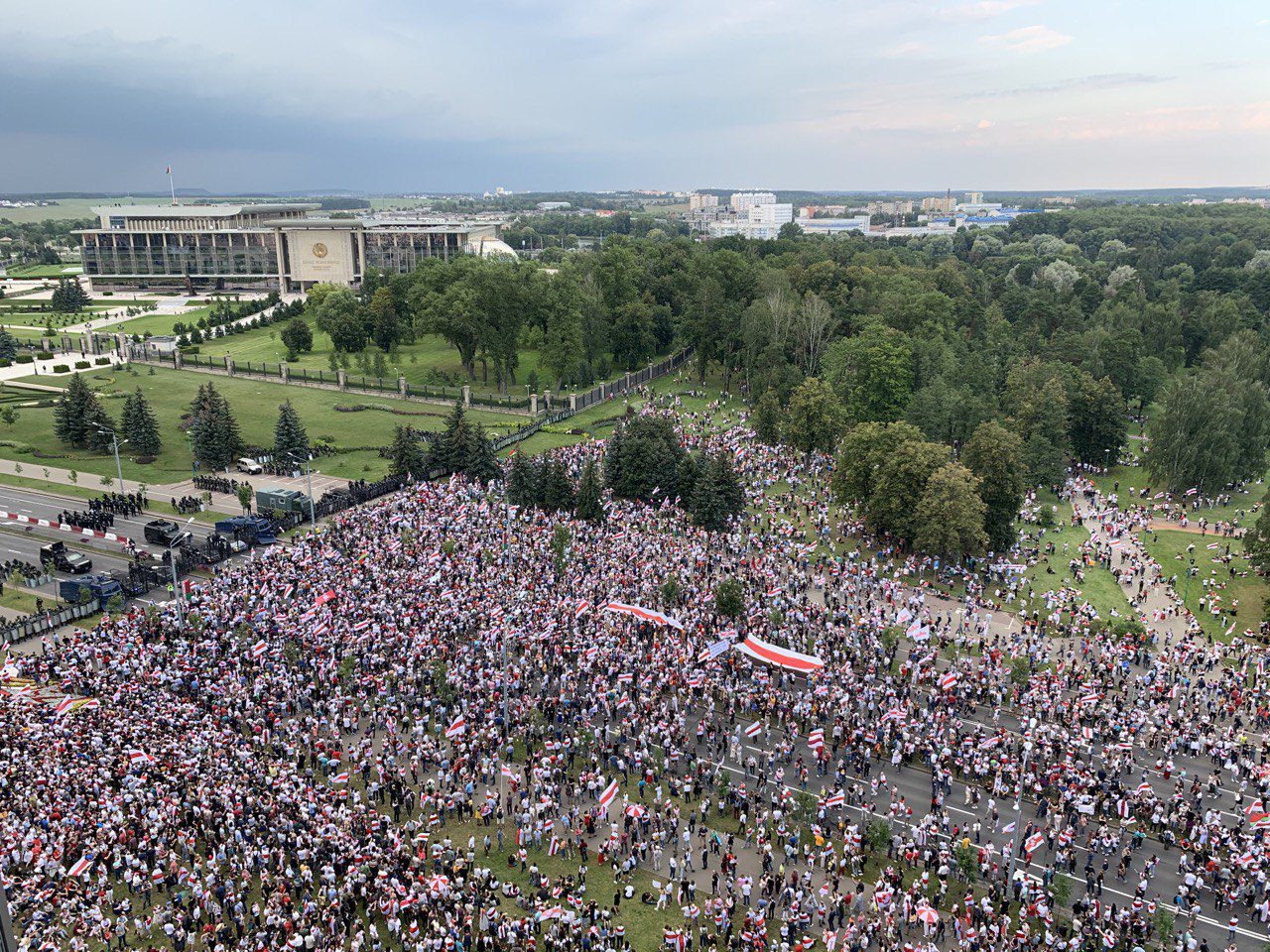
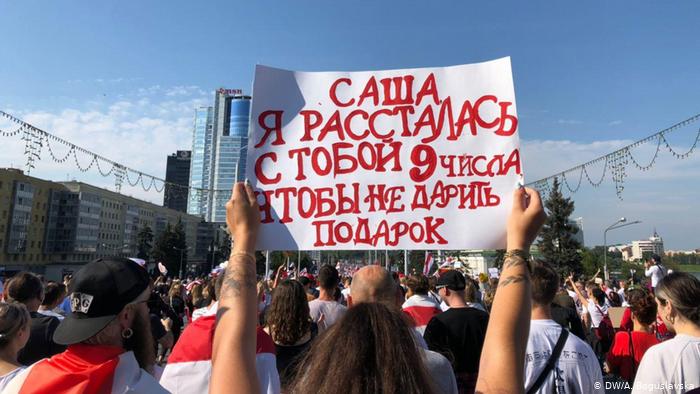
A group with a poster "Sportsmen with the People" came to the cordon at the Palace of Independence; swimmer Aliaksandra Hierasimienia and basketball player Aliena Lieŭčanka were standing behind it.
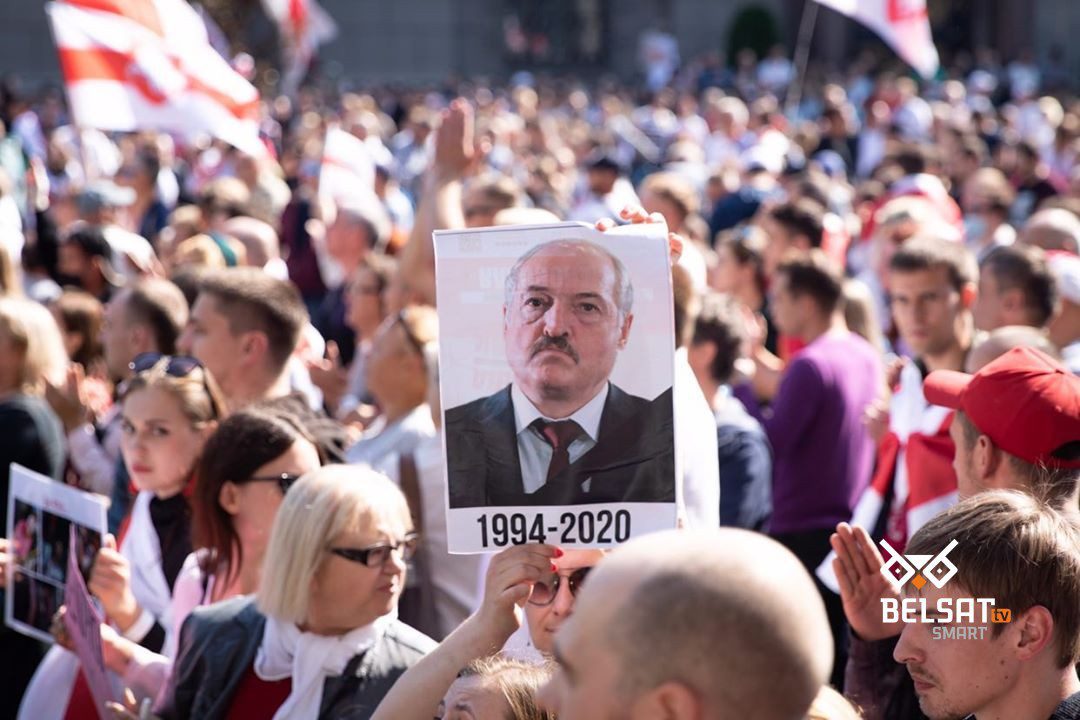
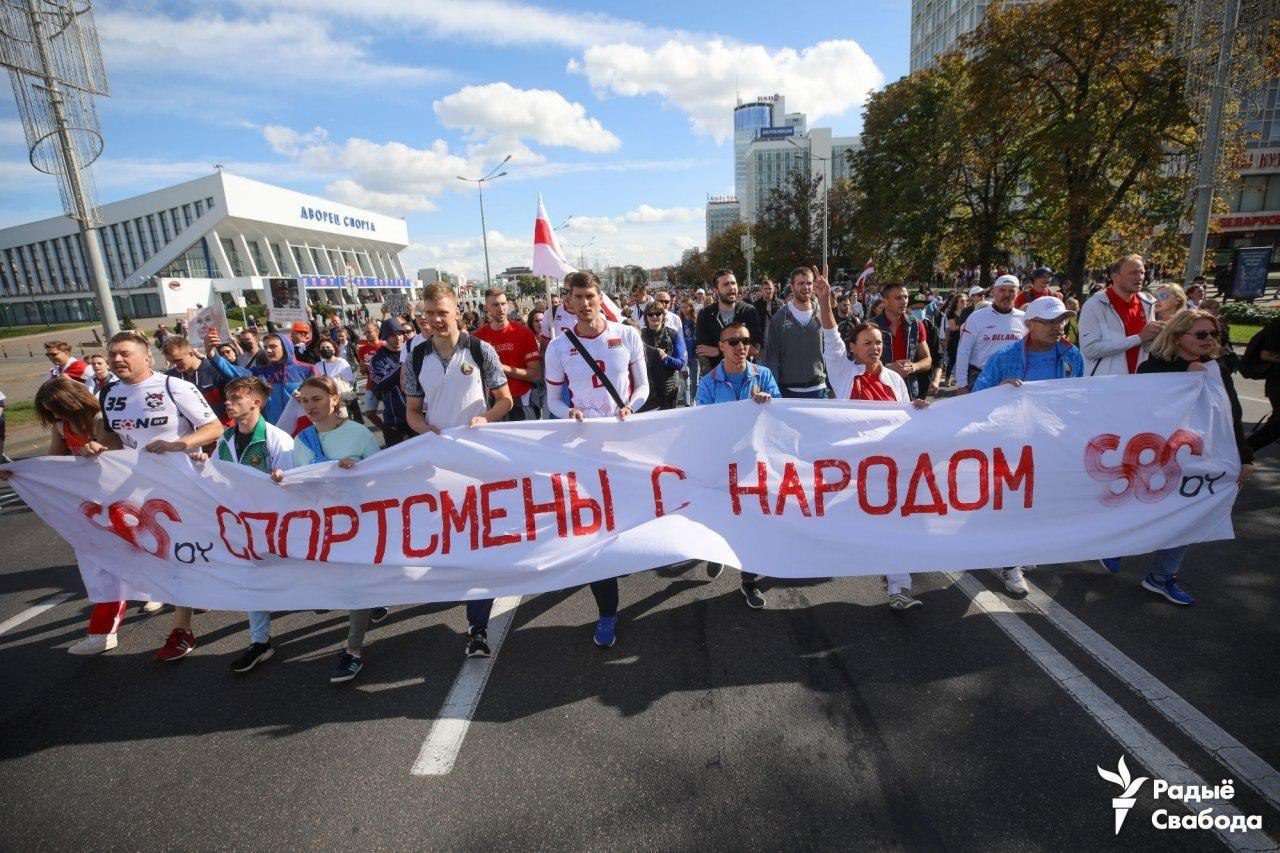
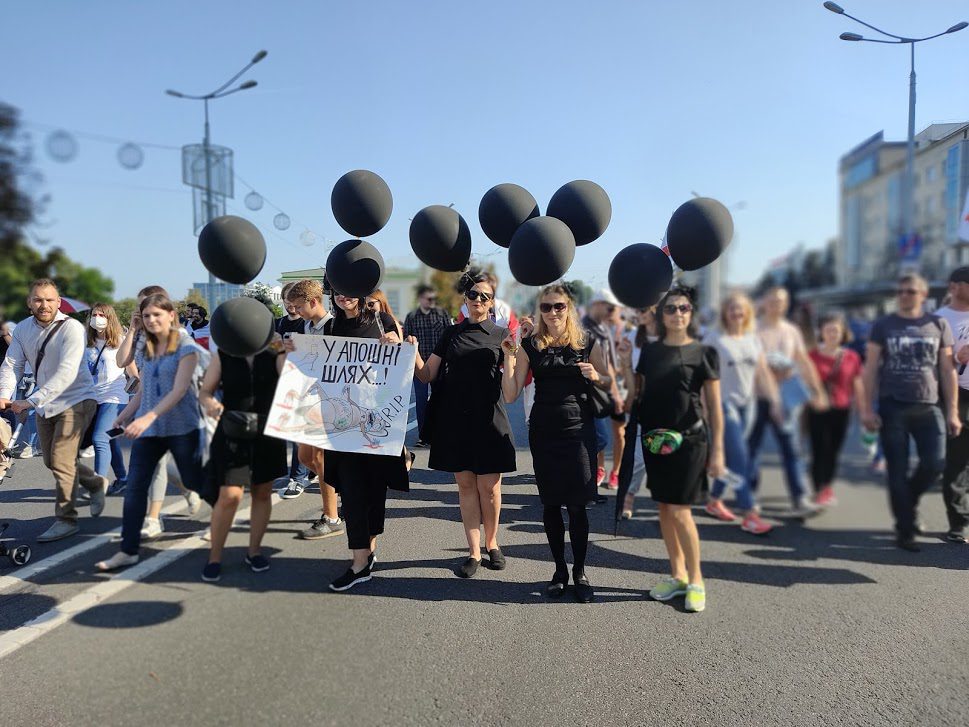
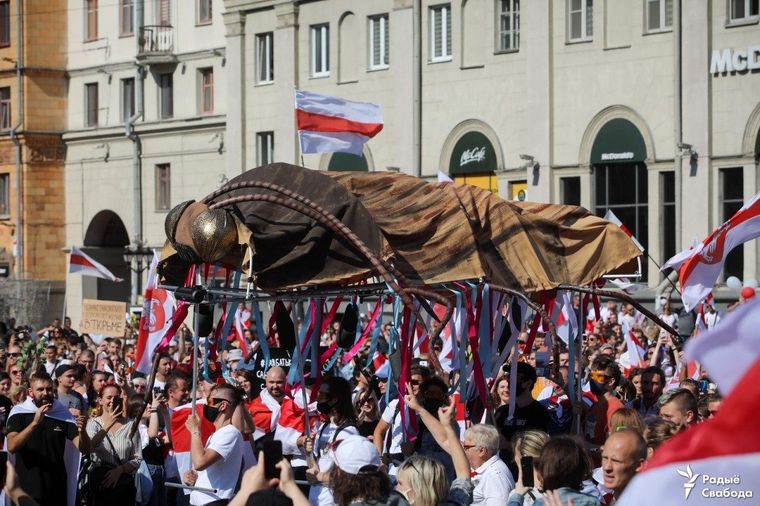
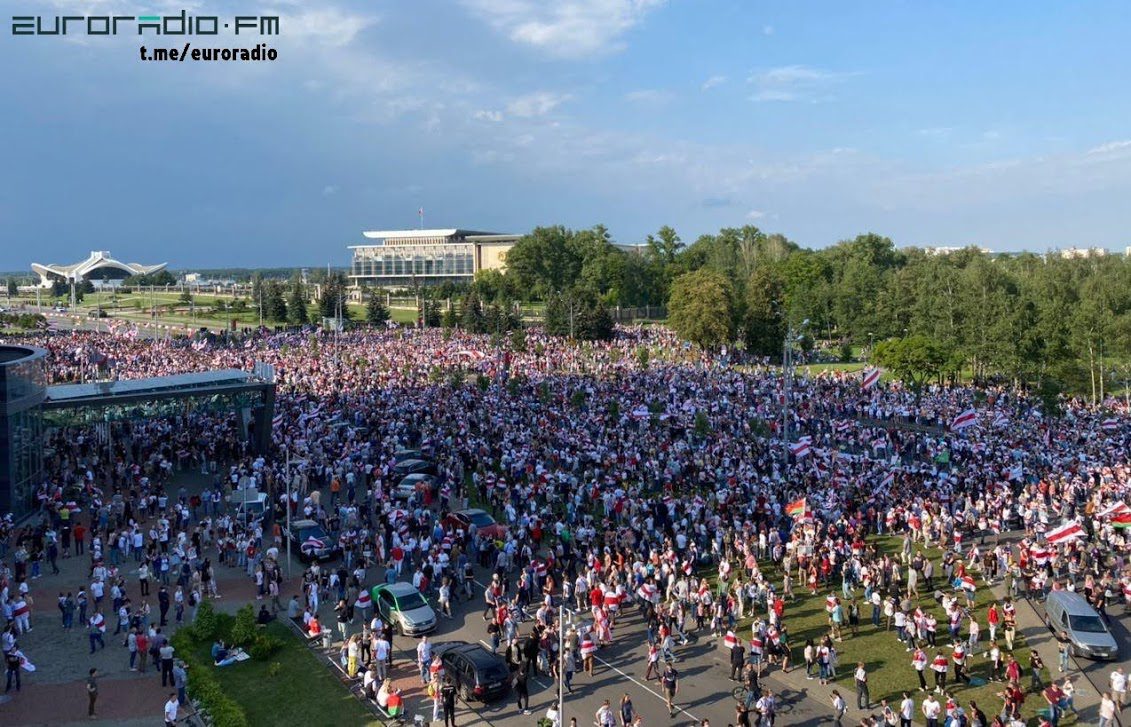
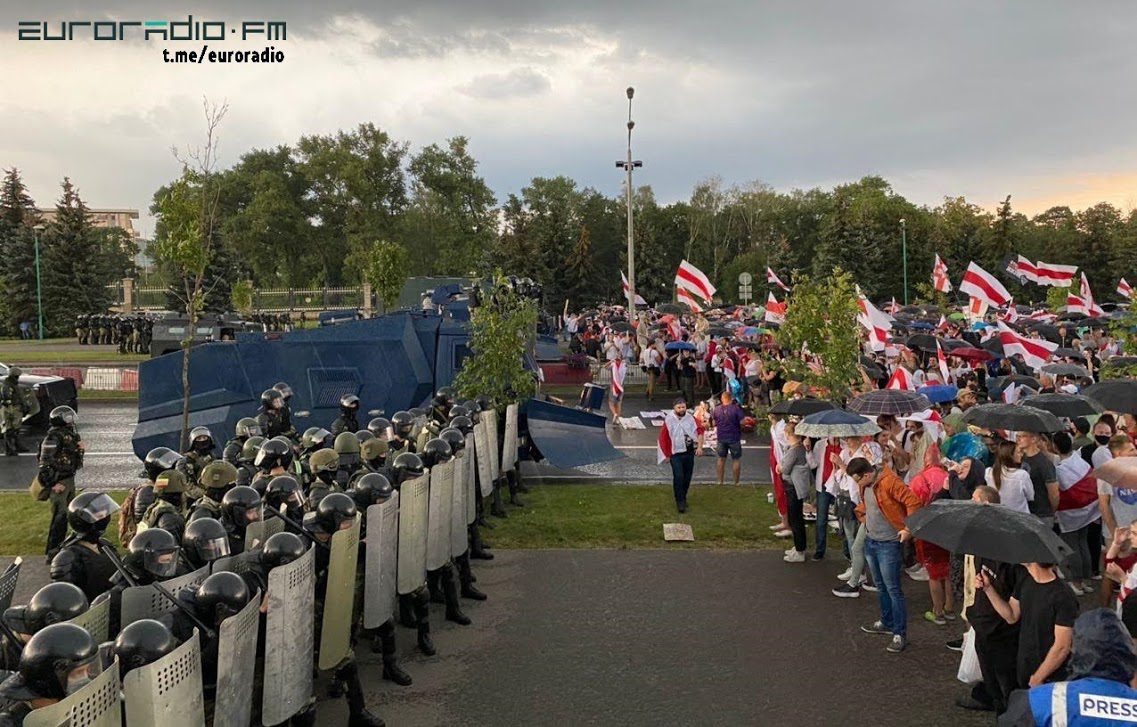
Lukašenka again turned up near the Palace of Independence with a submachine gun in his hands.
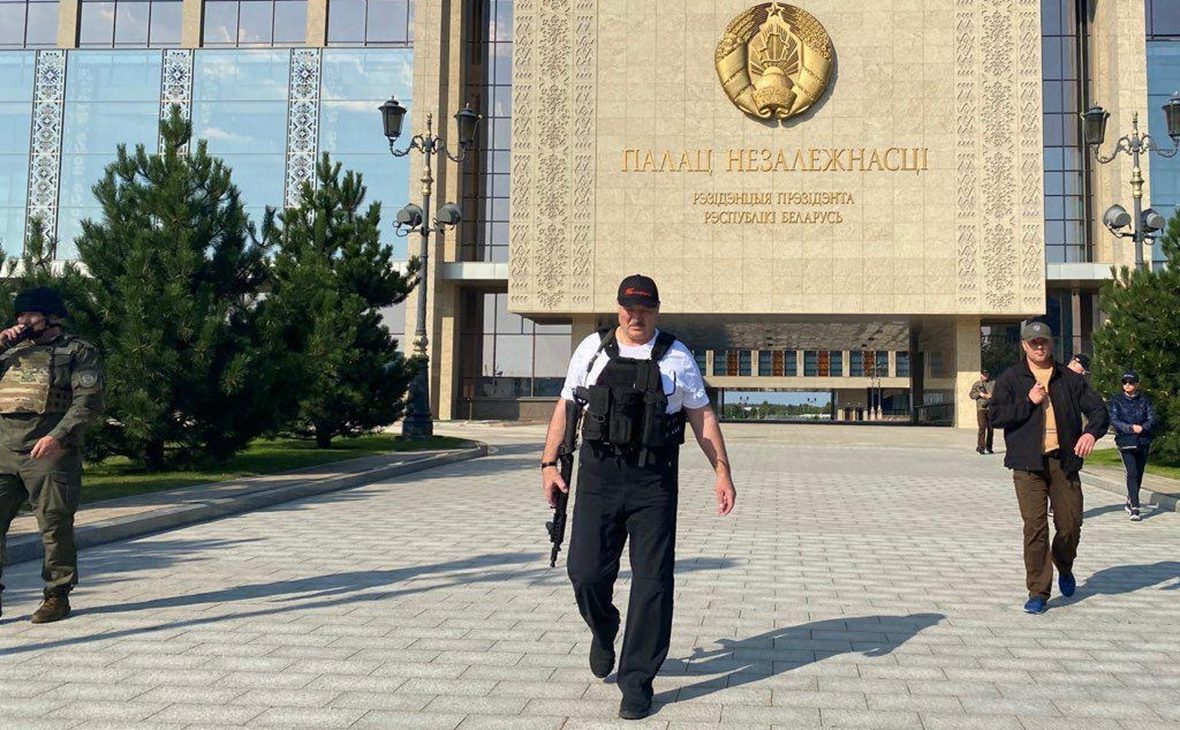
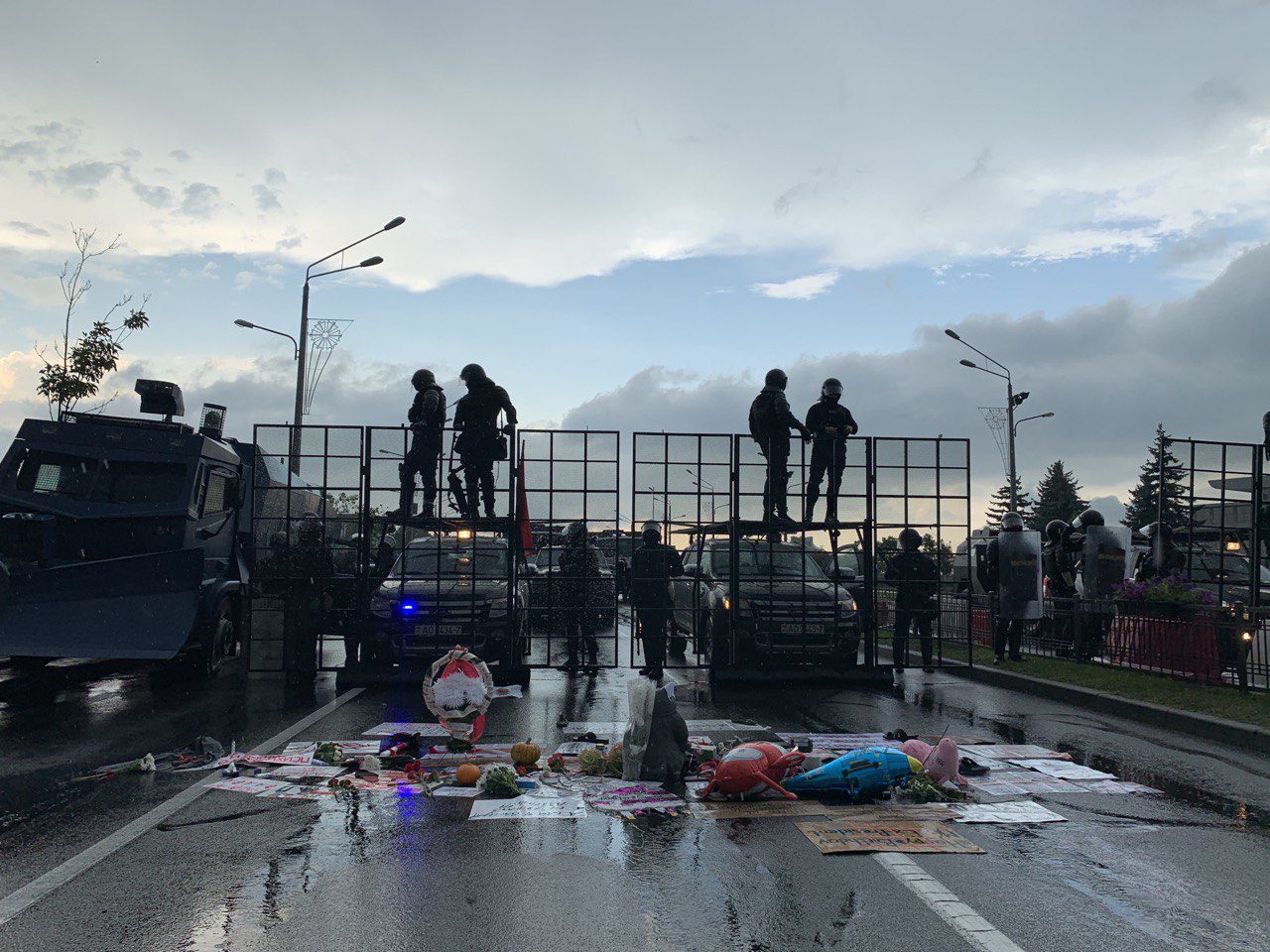
Archbishop Tadeusz Kondrusiewicz was not allowed to enter Belarus by border guards. In the Church of Saints Simon and Helena (Red Church), someone changed the locks in the auxiliary rooms. It was not precisely known who did it.
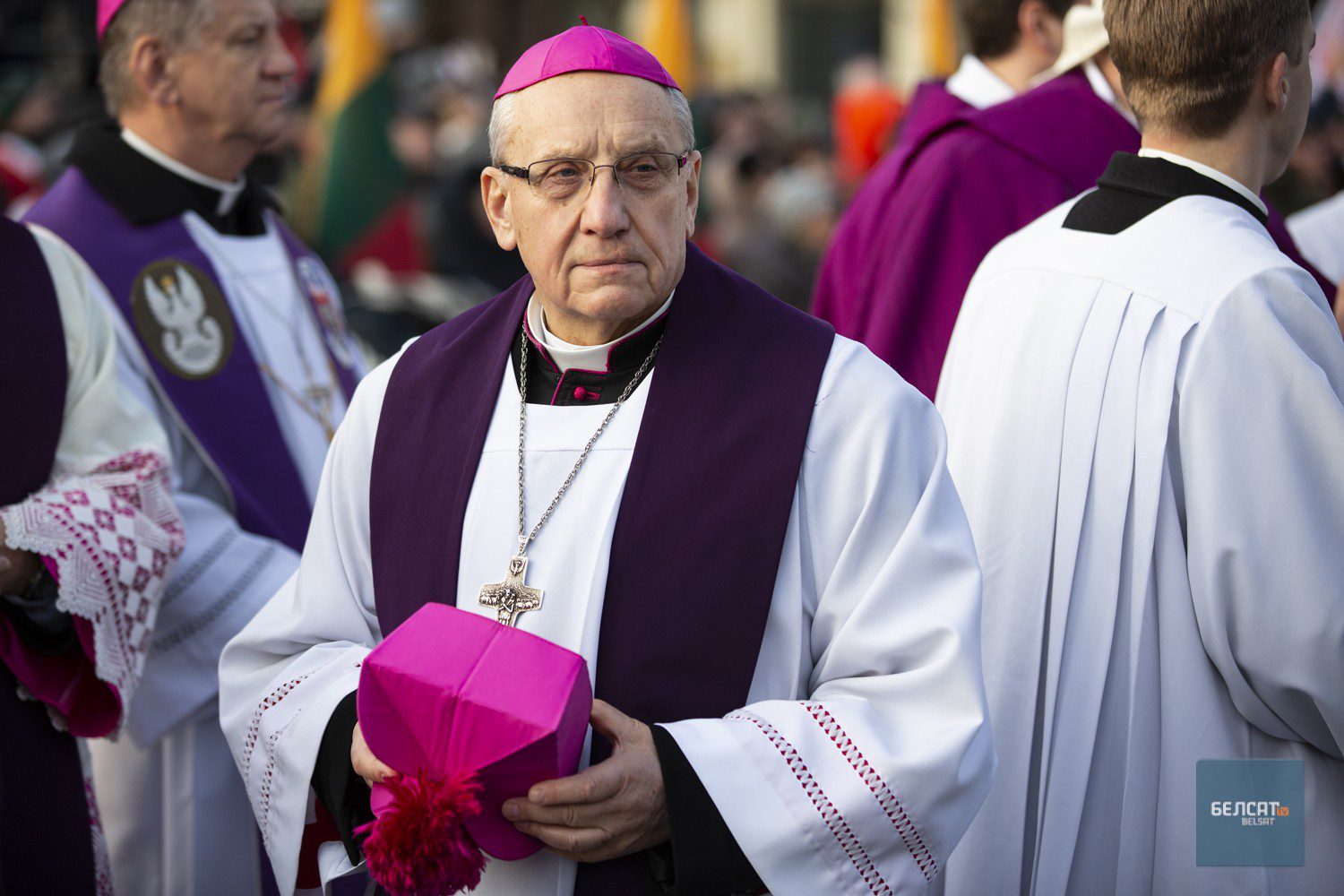
The Department of Financial Investigations of the State Control Committee (SCC) detained a member of the Presidium of the Coordination Council, Lilija Ulasava.
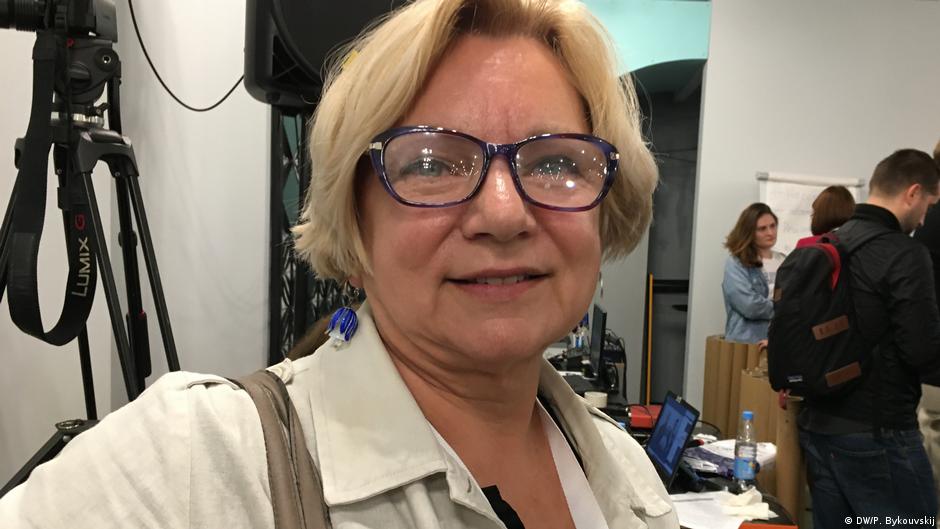
The UN reported 450 cases of torture and six missing persons in Belarus after the protest.
Students were protesting in Minsk. Some of them were detained.
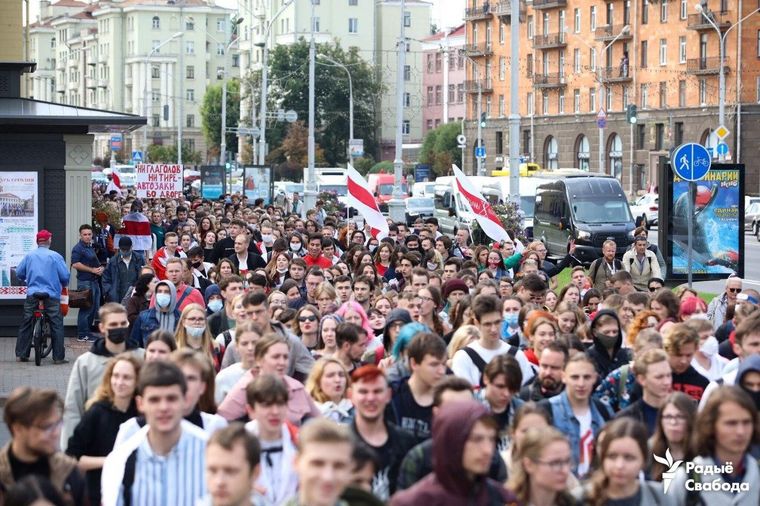
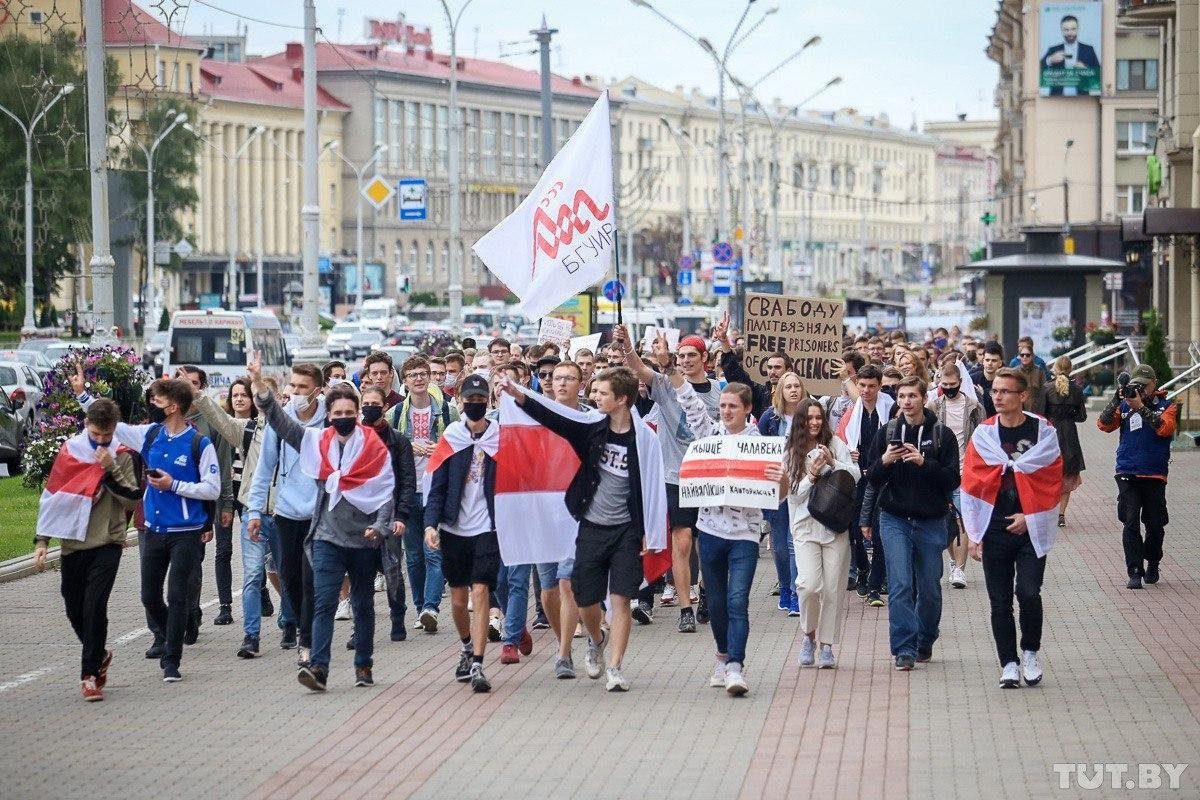
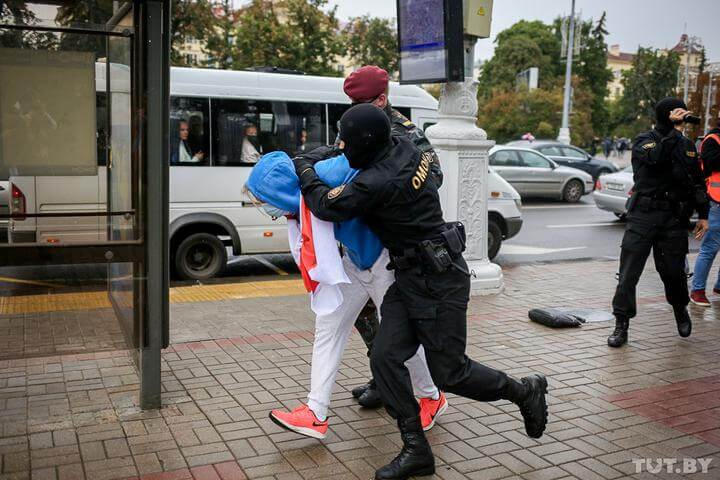
The trials of students detained on September 1 were underway. Some of them had already been sentenced to between 5 and 15 days of arrest.
Disagreeing with the election results and outraged by the brutality of the security forces, employees of Mazyr Oil Refinery wrote a collective letter to the plant's management, demanding to be heard and had an open discussion of the events of recent weeks. Nearly 1,200 people signed the letter.
Paviel Latuška left Belarus for Poland.
The IT company PandaDoc was searched, and a criminal case was opened against four employees. Earlier the co-founder of the company Mikita Mikado initiated financial support to the security officers, who refused to comply with the orders of the authorities.
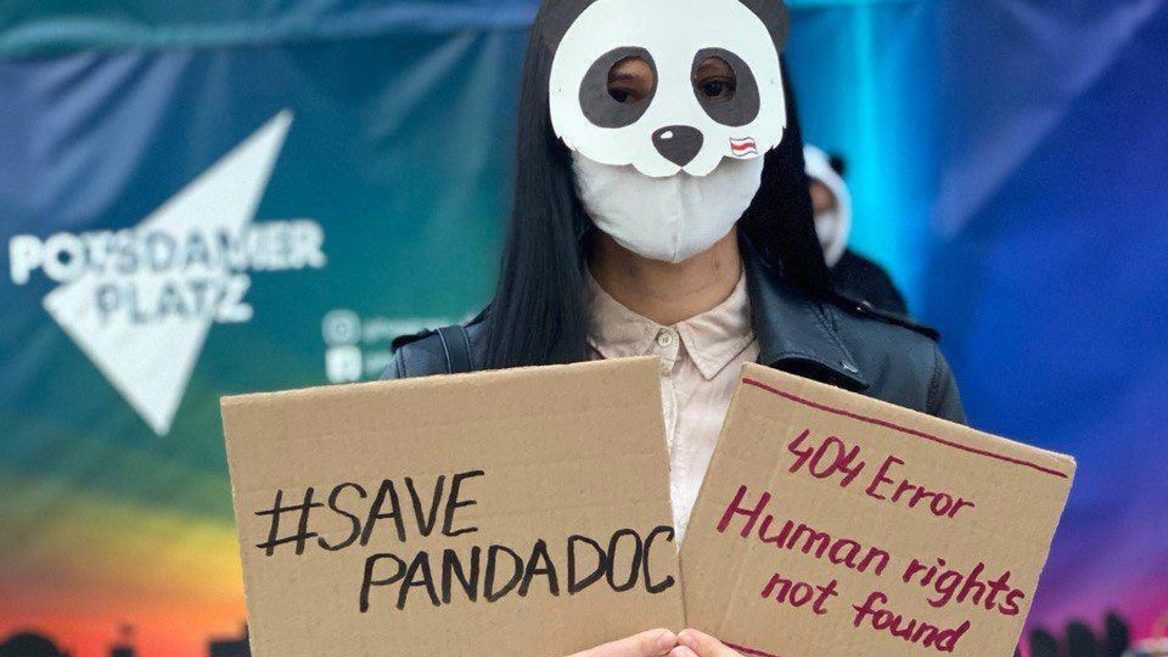
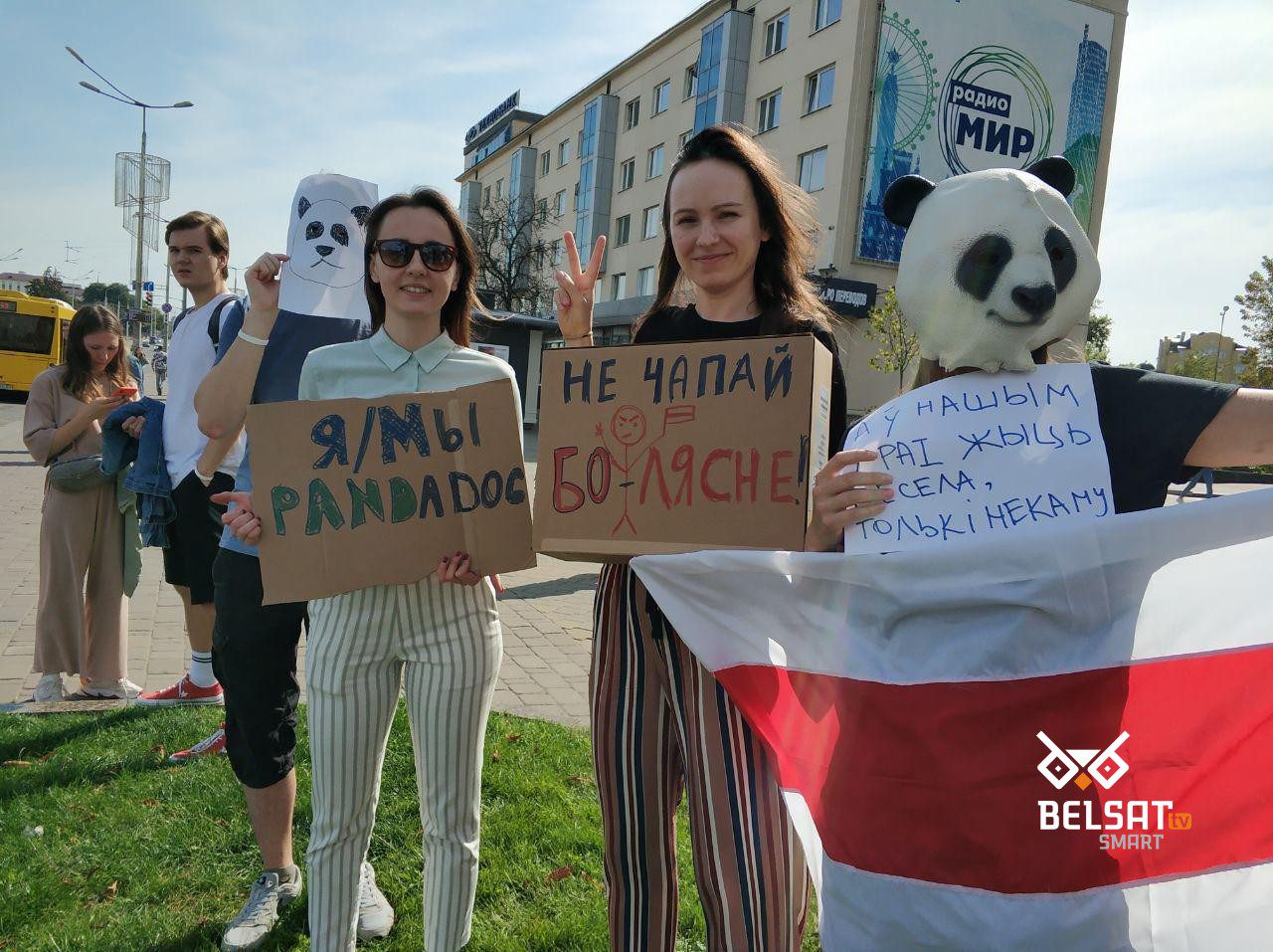
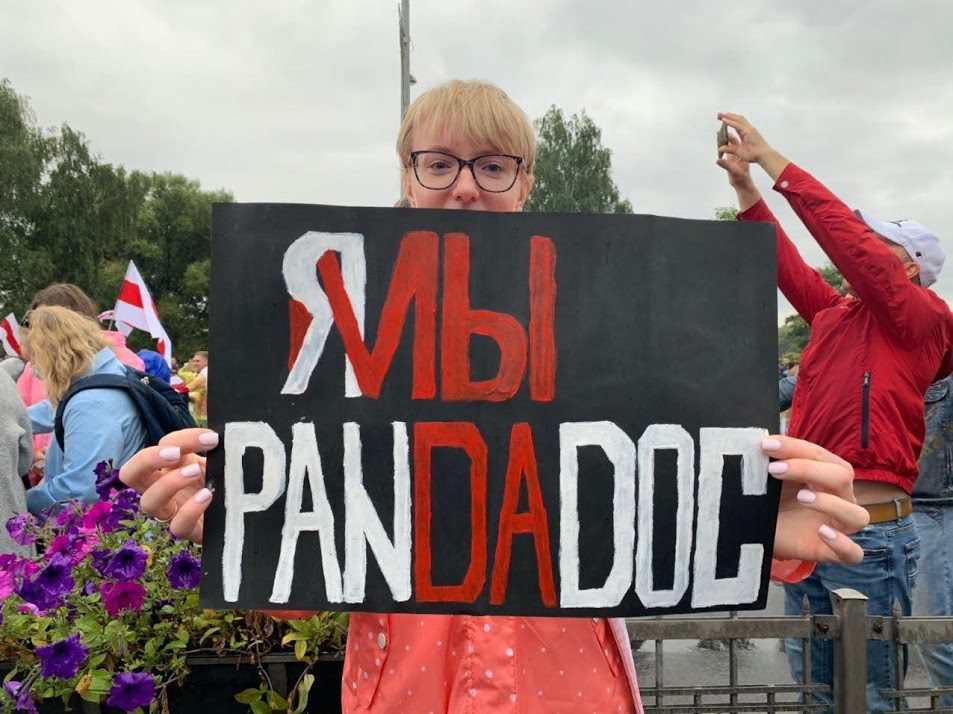
Russian Prime Minister Mikhail Mishustin arrived in Minsk; Lukašenka told him about the "intercepted conversation between Warsaw and Berlin" and accused Poland, the Czech Republic, Lithuania, and Ukraine of managing protests in Belarus.
About 30 journalists from Belarusian publications gathered near the main building of the Ministry of Internal Affairs and asked Interior Minister Juryj Karajeŭ for a meeting to answer questions about their detained colleagues. The minister did not come out to meet the journalists.
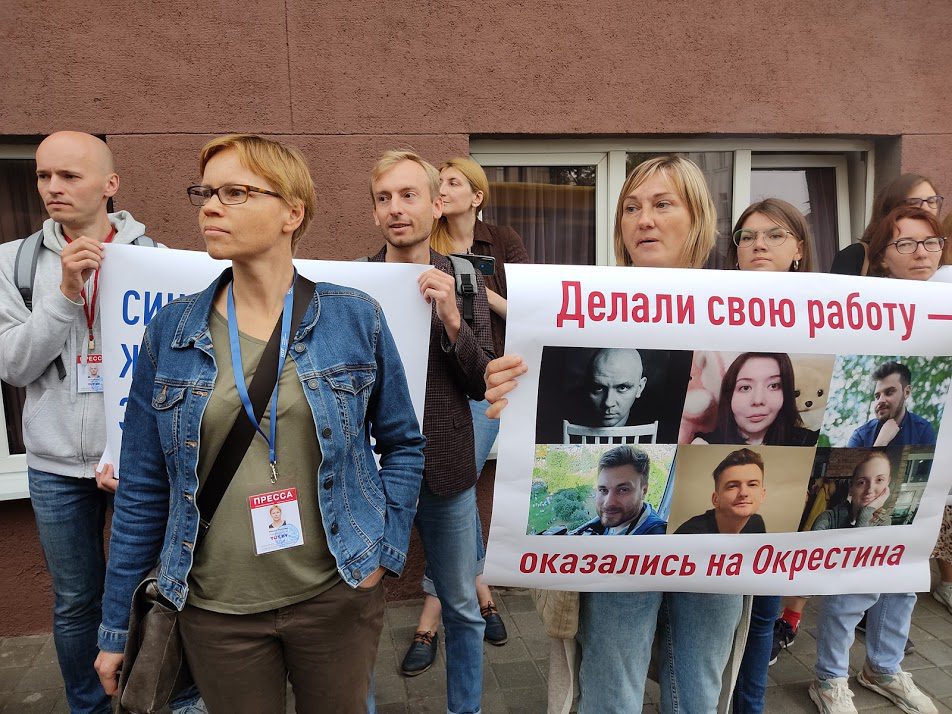
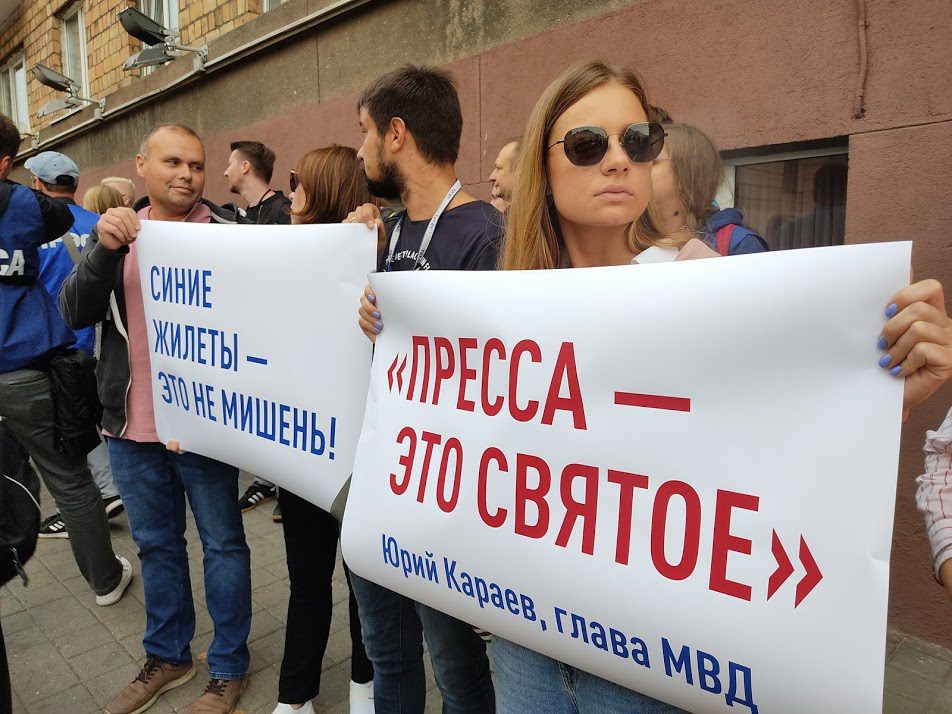
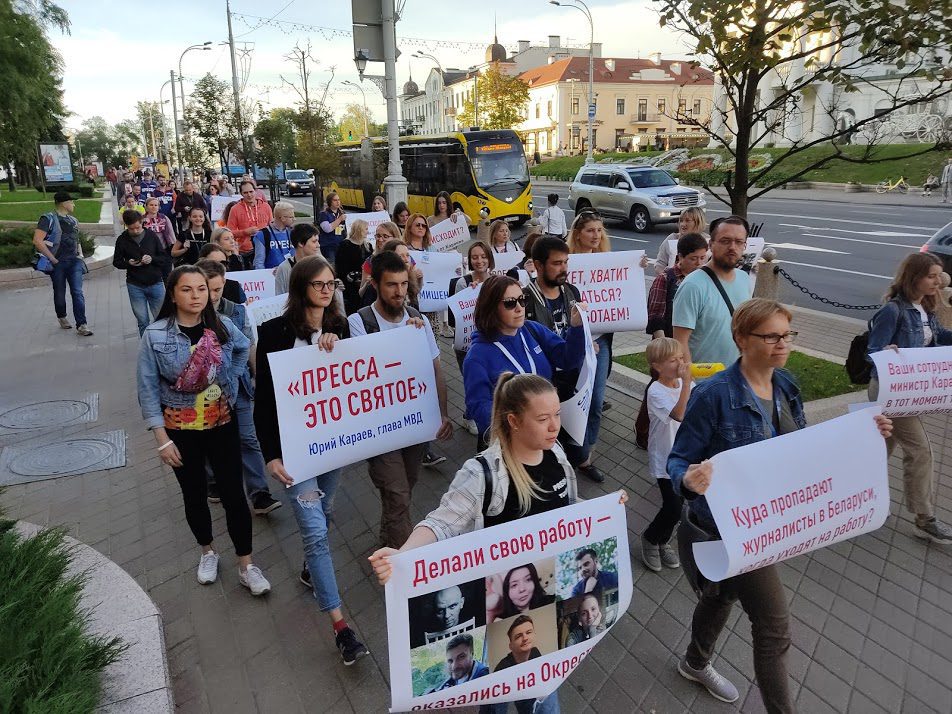
Sviatlana Cichanoŭskaja addressed the UN Security Council and asked the organization to help Belarus.
The authorities made public an intercepted conversation between Warsaw and Berlin. It was a conversation conducted by Nick from Berlin and Mike from Warsaw. Online users mocked it.
The court found the journalists working at the rally guilty and sentenced them to three days of arrest. The witnesses were wearing balaclavas and had their names hidden. The journalists left the temporary detention facility after serving the sentences.
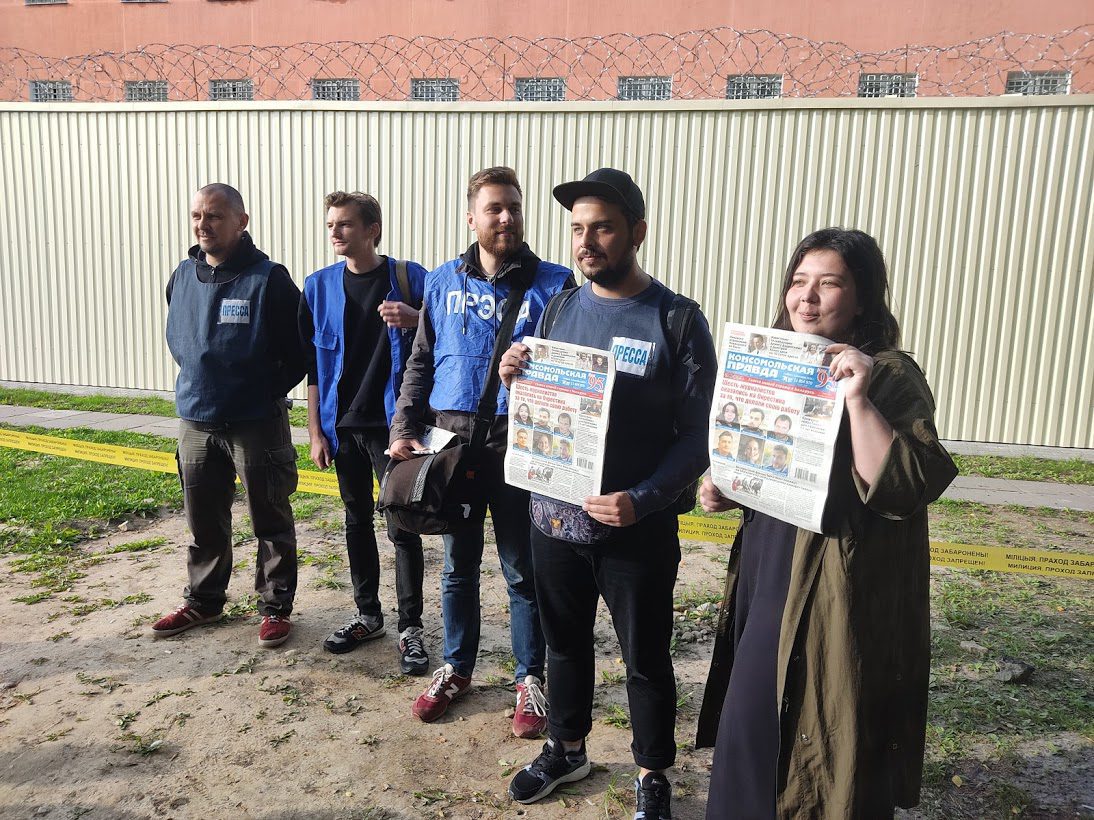
During a press conference in Poland, a member of the Presidium of the Coordination Council, Voĺha Kavaĺkova, said that she did not plan to leave Belarus. At night she was taken out of the temporary detention facility at Akrescina Street, where she was serving 15 days of arrest, and then she was taken to the Bruzgi border checkpoint.
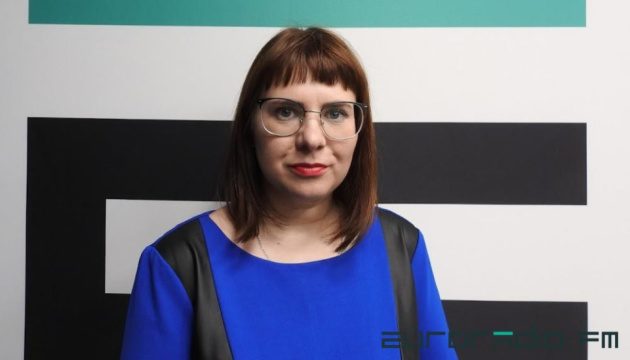
Women's march with international flags.
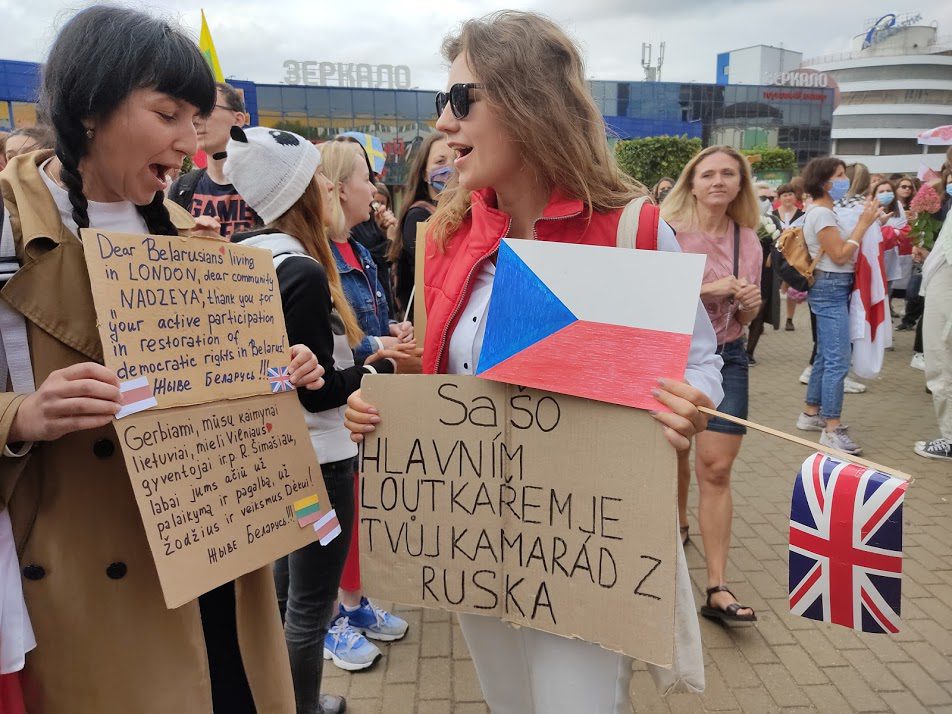
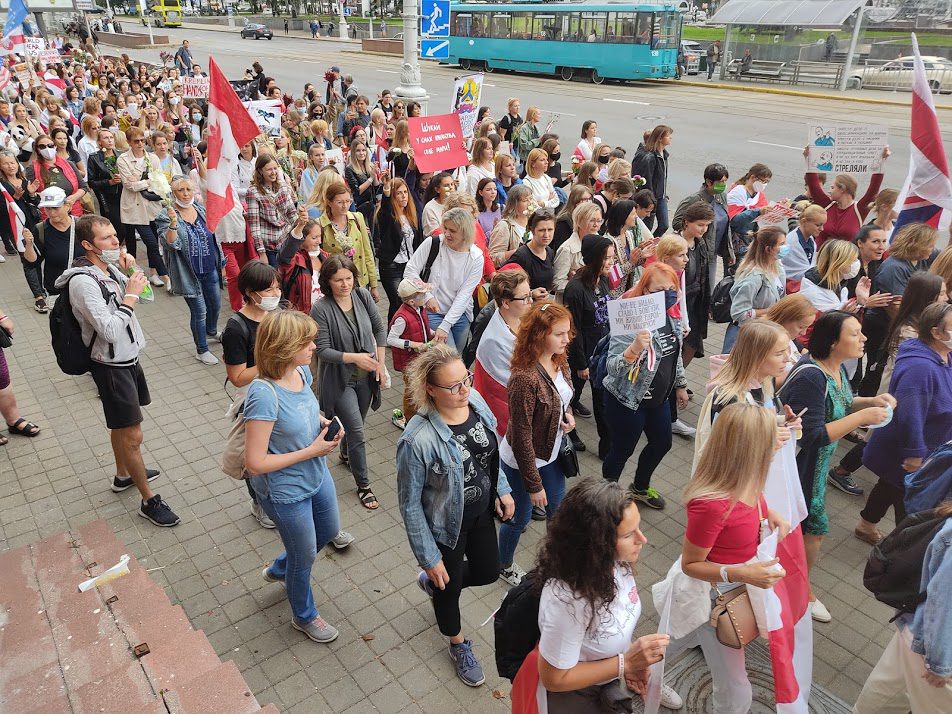
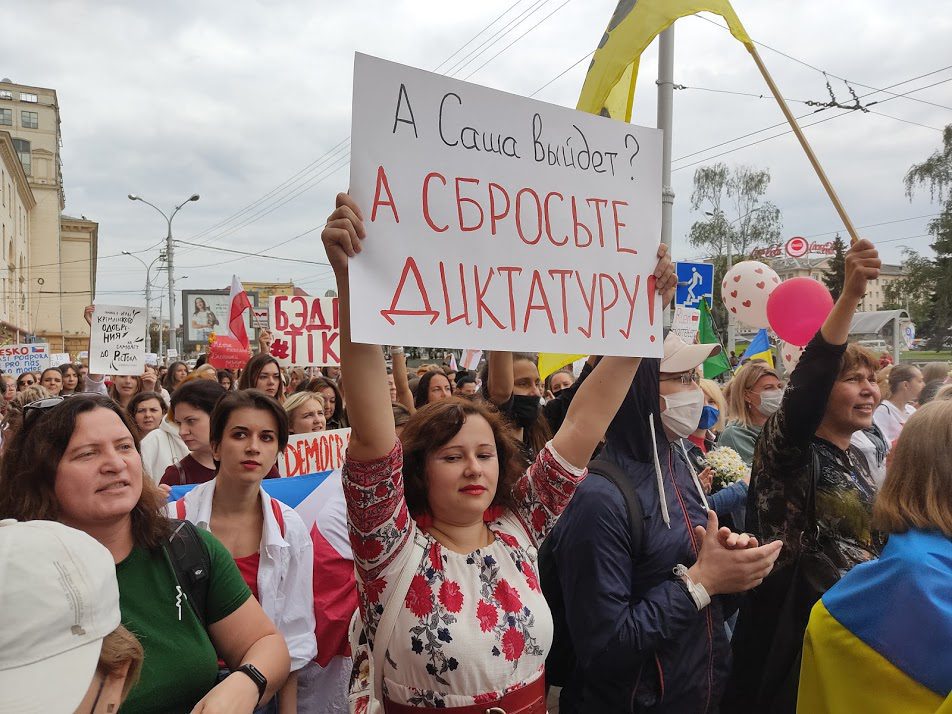
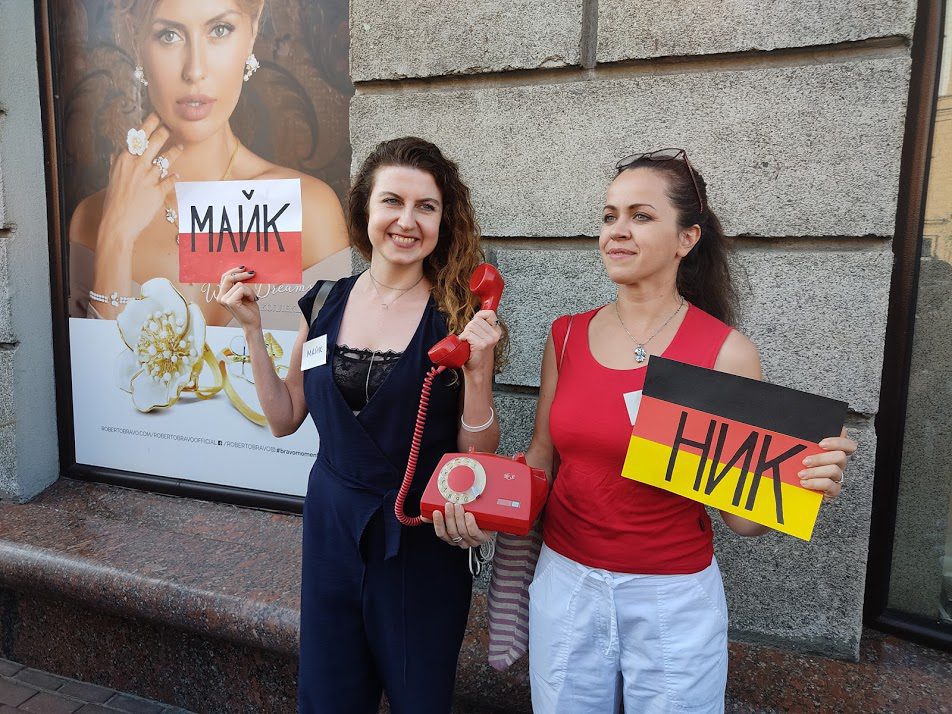
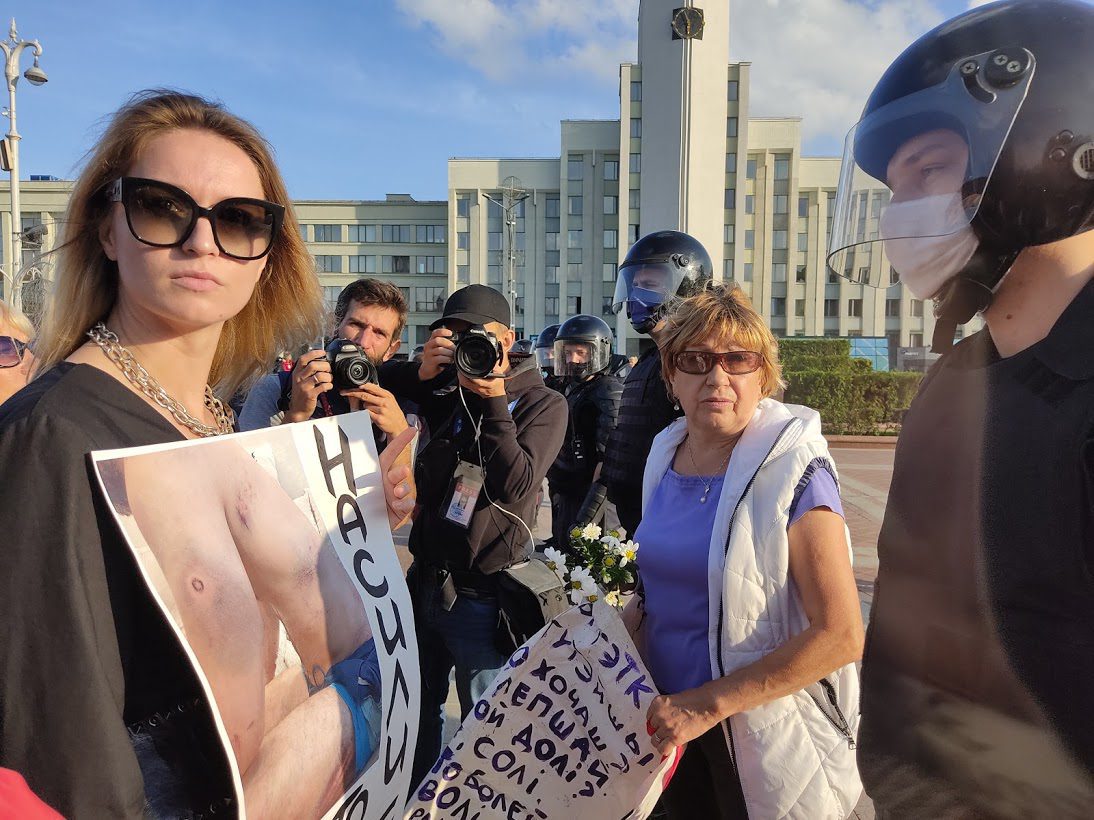
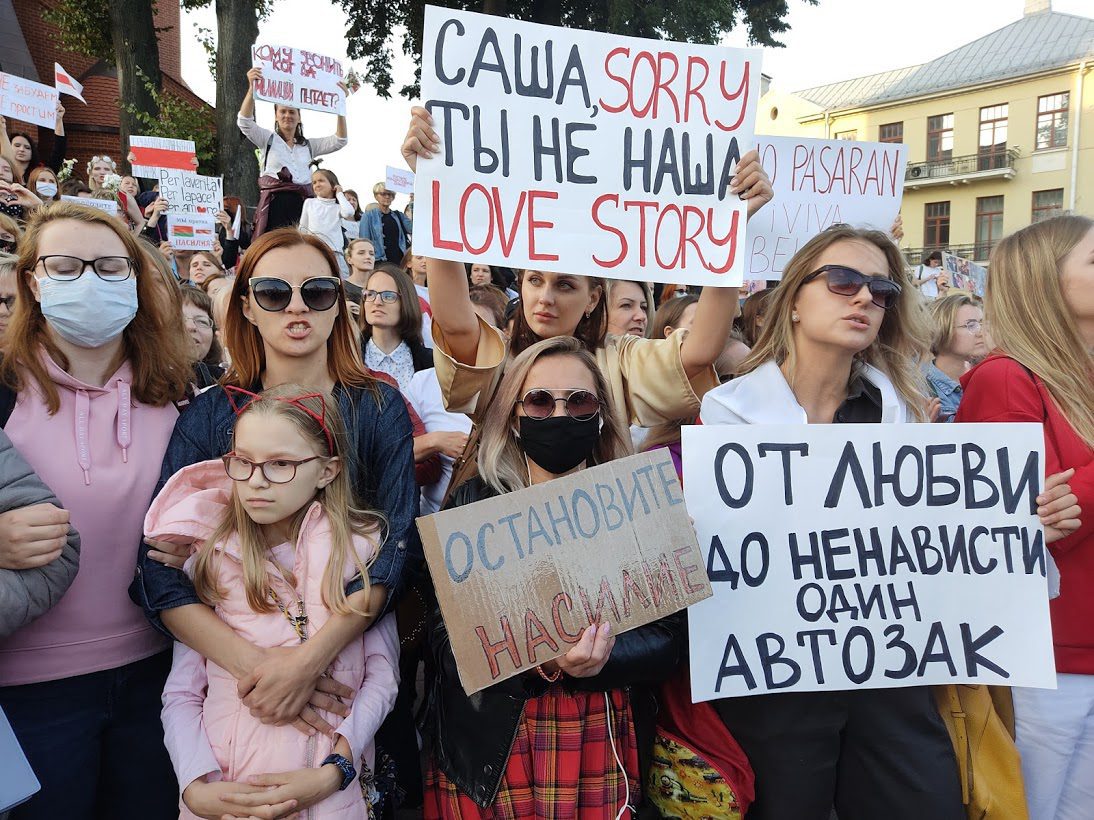
The March of Unity united more than 100 thousand people outside the Palace of Independence. The security forces used tear gas and detained more than 600 people.
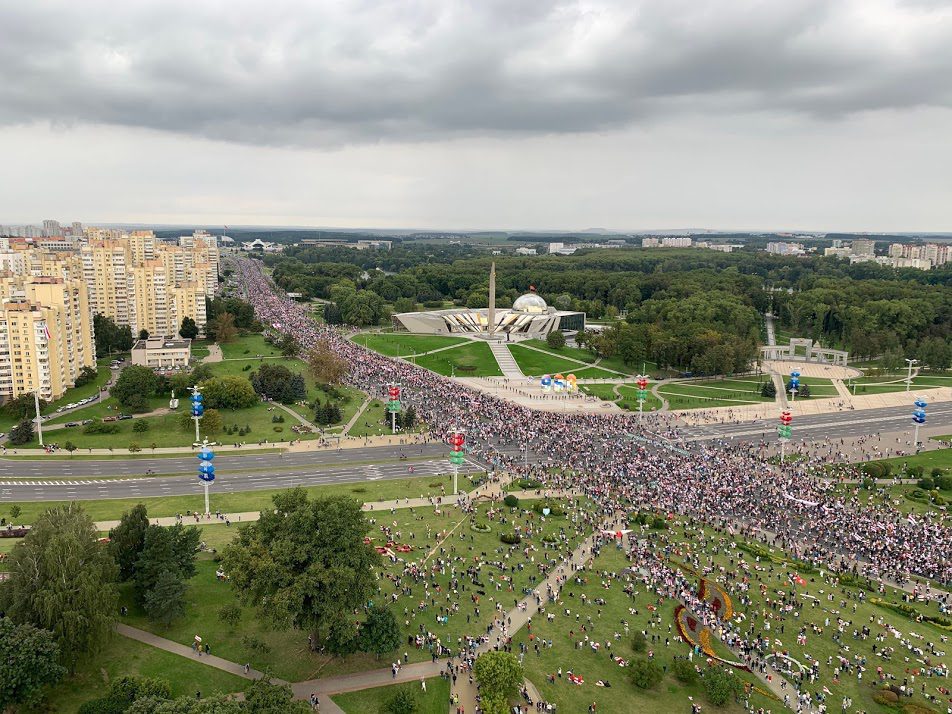
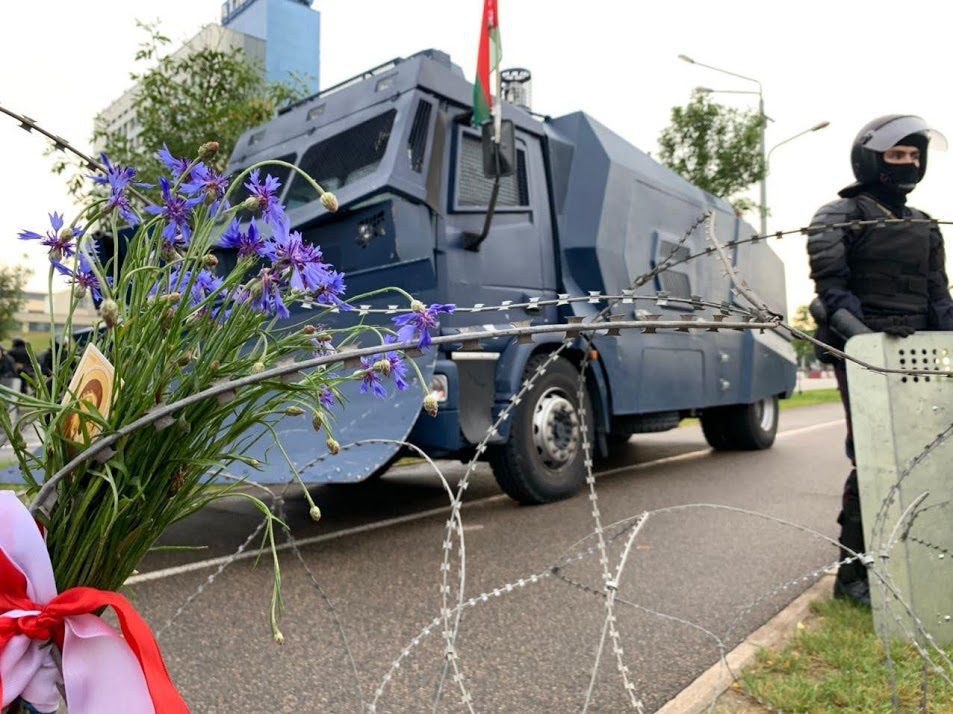
People jumped into the Svislač River to avoid detention; rescuers took them out of the river and to the other side of it. The entire shift of rescuers was taken to the detention centre at Akresсina Street. Interior Minister Juryj Karajeŭ said that Belarusian police were the most humane in the world.
The head of the department for combating organized crime and corruption of the Ministry of Internal Affairs, Mikalaj Karpienkaŭ, smashed the glass in the petite coffee shop on Niamiha with a truncheon to detain people who took refuge there.
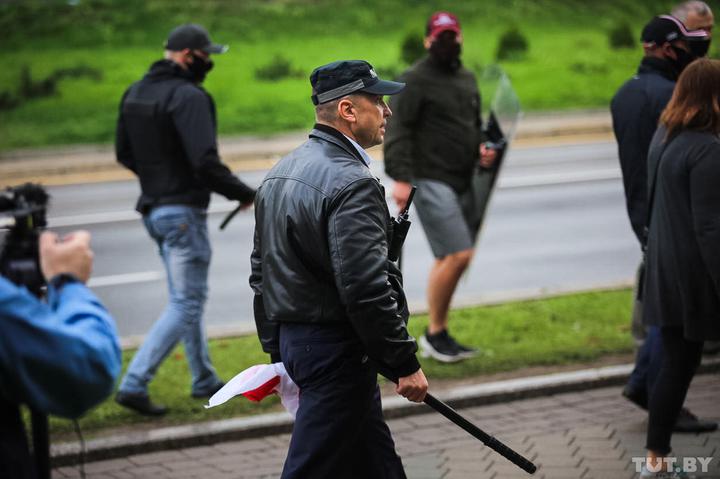
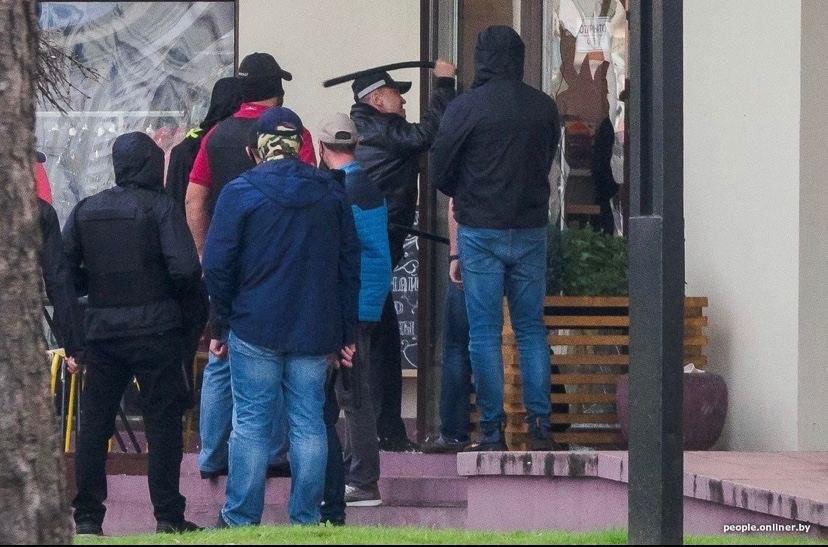
In front of the petite coffee shop, where the glass was broken the day before, people formed a long queue to buy coffee.
On the morning of September 7, in the centre of Minsk, the member of the Coordination Council, Maryja Kaliesnikava, was put into a minibus and taken in an unknown direction.
Members of the CC, Anton Radniankoŭ and Ivan Kraŭcoŭ, who were arrested the same day, were forced to go abroad. Maryja Kaliesnikava was with them, but she tore her passport and remained in Belarus.
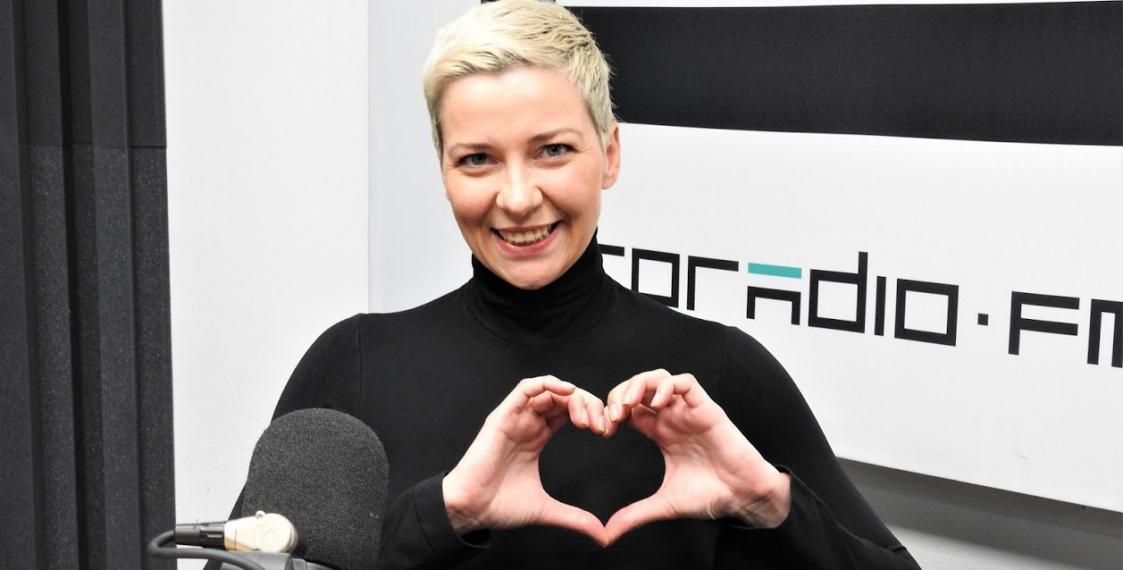
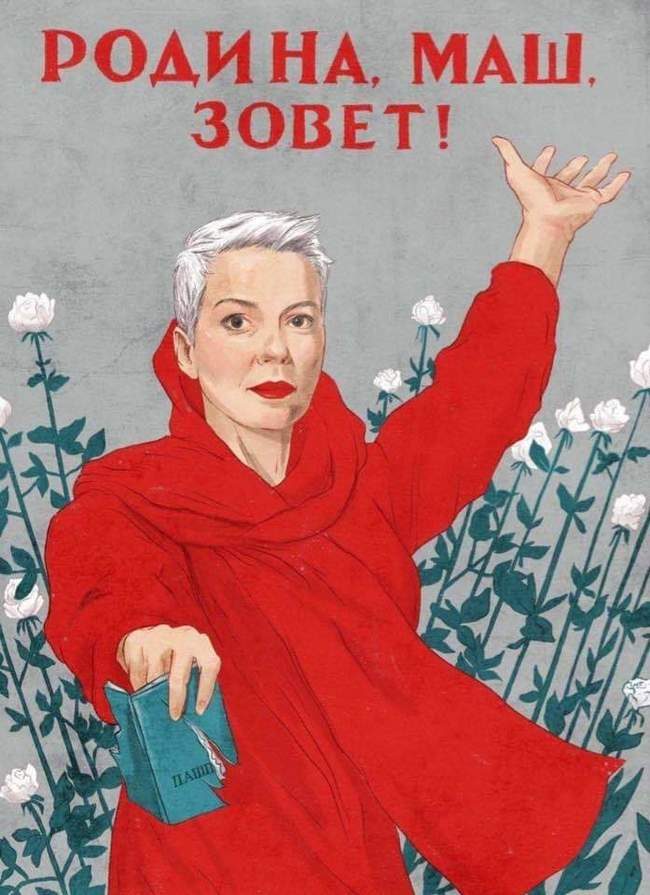
FC Krumkačy were fined 3,375 BYN after the match with FC Dinamo Minsk, where they came out wearing T-shirts against violence.
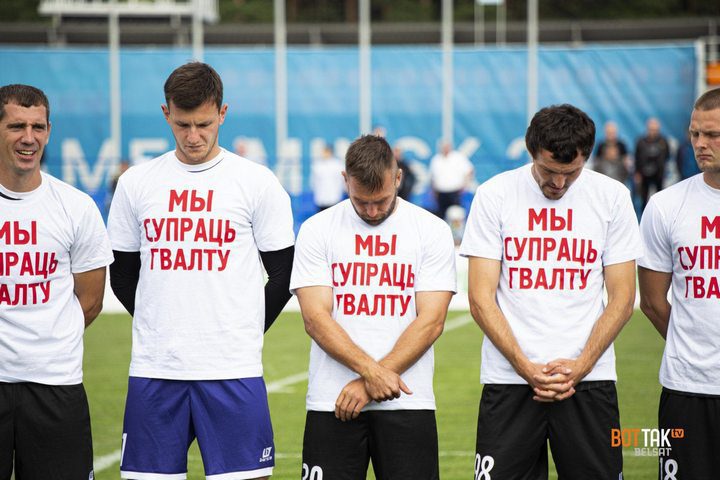
Minsk State Linguistic University (MSLU) students came out on the porch of the main building of the university for a traditional daytime protest.
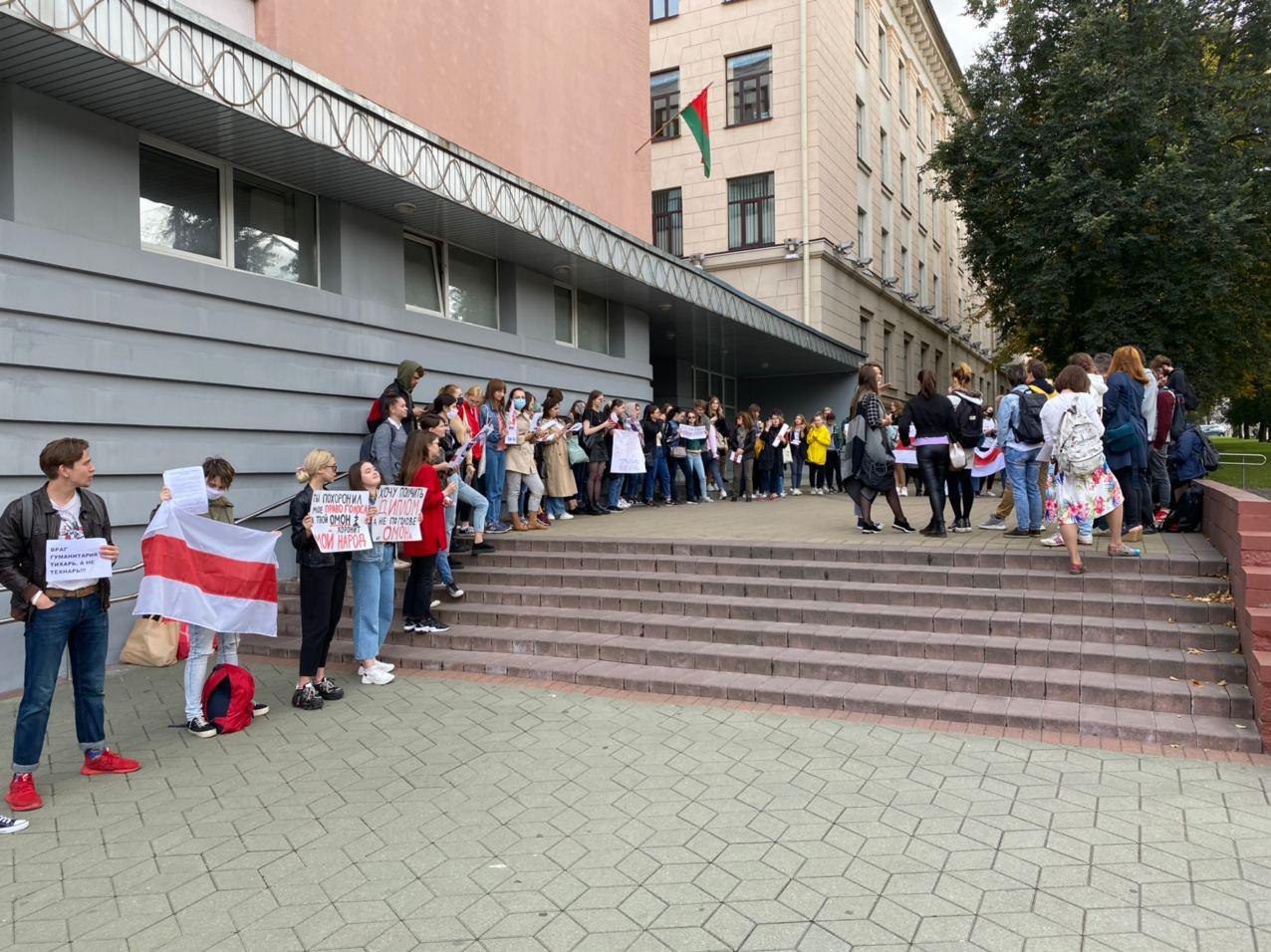
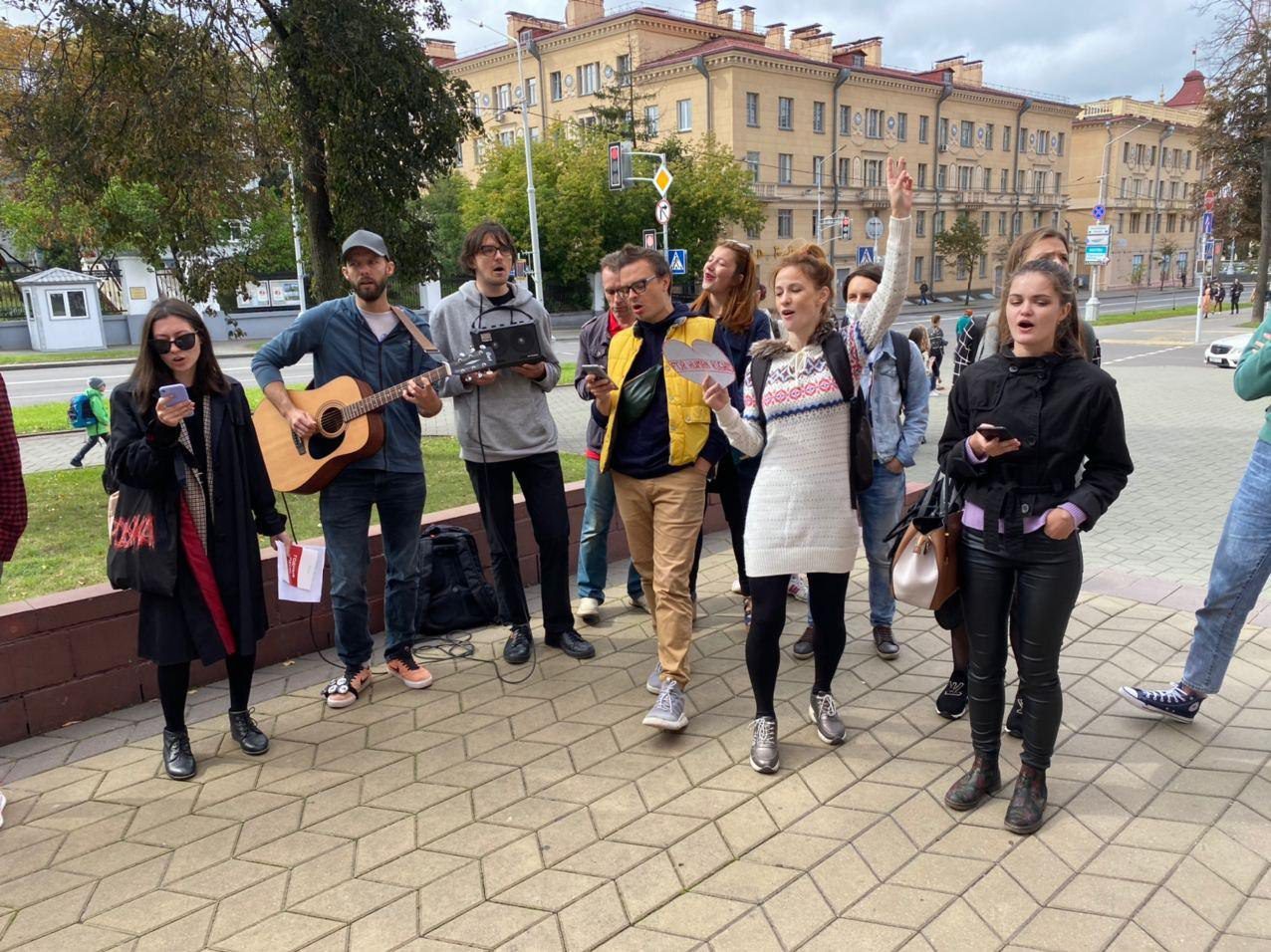
Maryja Kaliesnikava was in a pre-trial detention centre on Valadarskaha street. She was a suspect in a criminal case about "seizure of power".
Police came to Babaryka's office. A member of the Coordination Council, Maksim Znak and Kaliesnikava's lawyer Illia Saliej were detained.
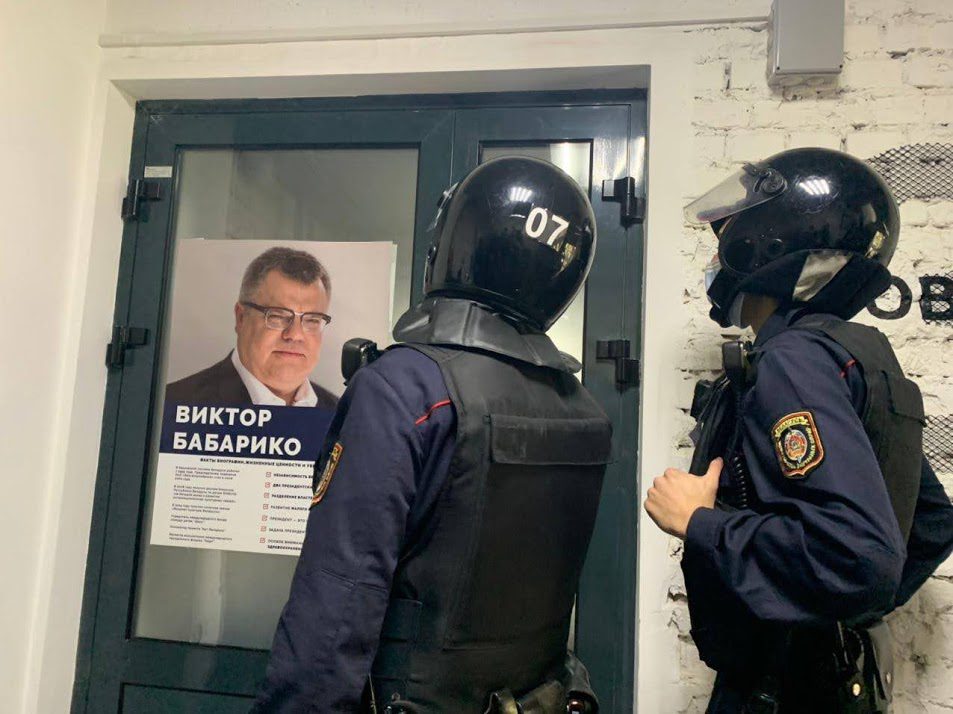
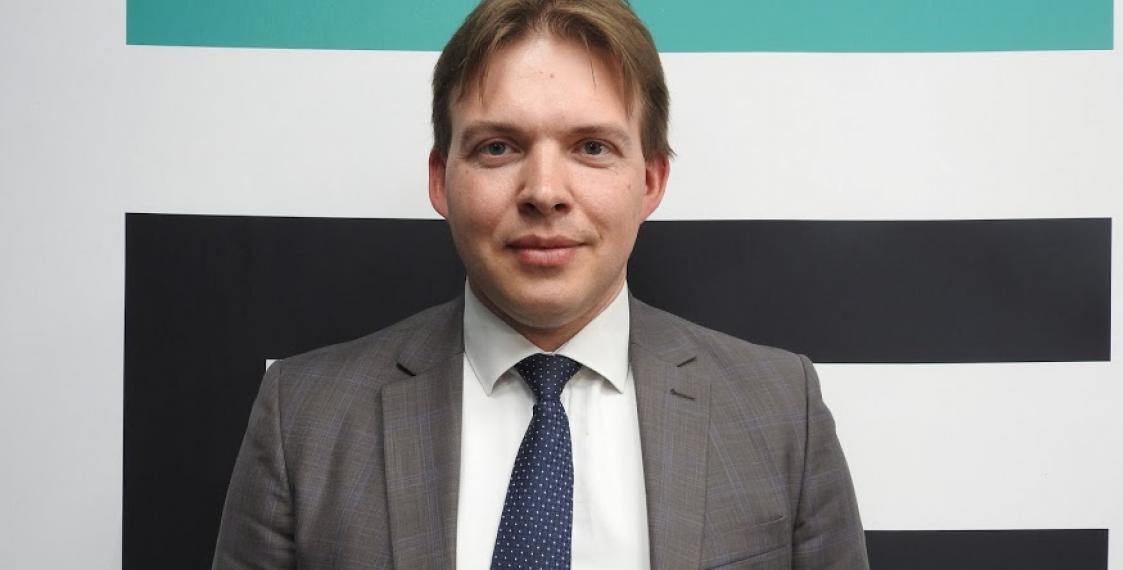
Unidentified persons knocked on Sviatlana Alieksijevič's door to bully her, so she invited journalists and EU diplomats home for security reasons.
Belaruskali miner Juryj Korzun handcuffed himself to the equipment and refused to go to the surface as a sign of protest.
Neighbours started to meet each other every evening, making white-red-white cake and listening to music. There were white-red-white flags between living buildings in some neighbourhoods. Police were trying to interrupt gatherings and take off flags.
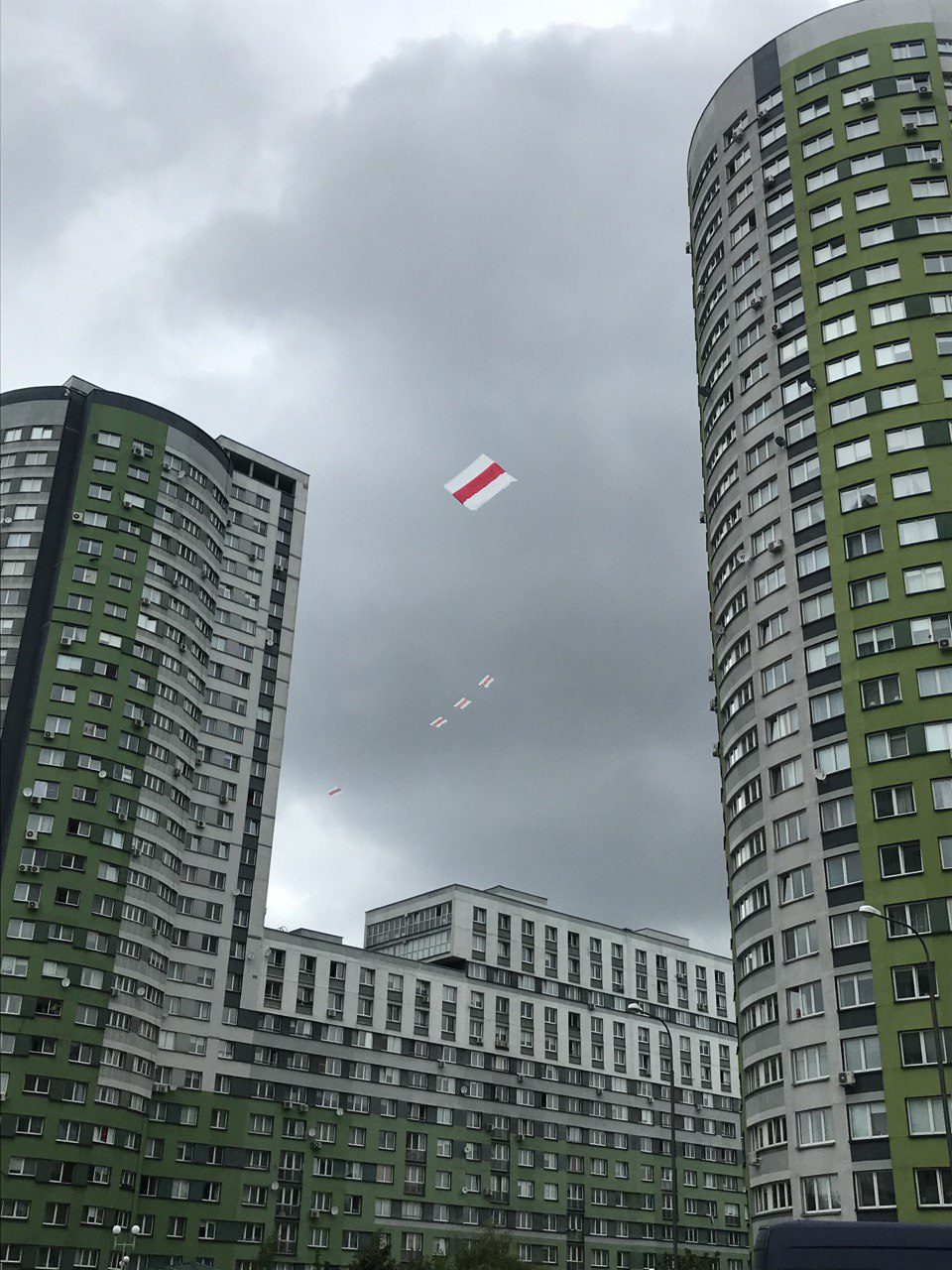
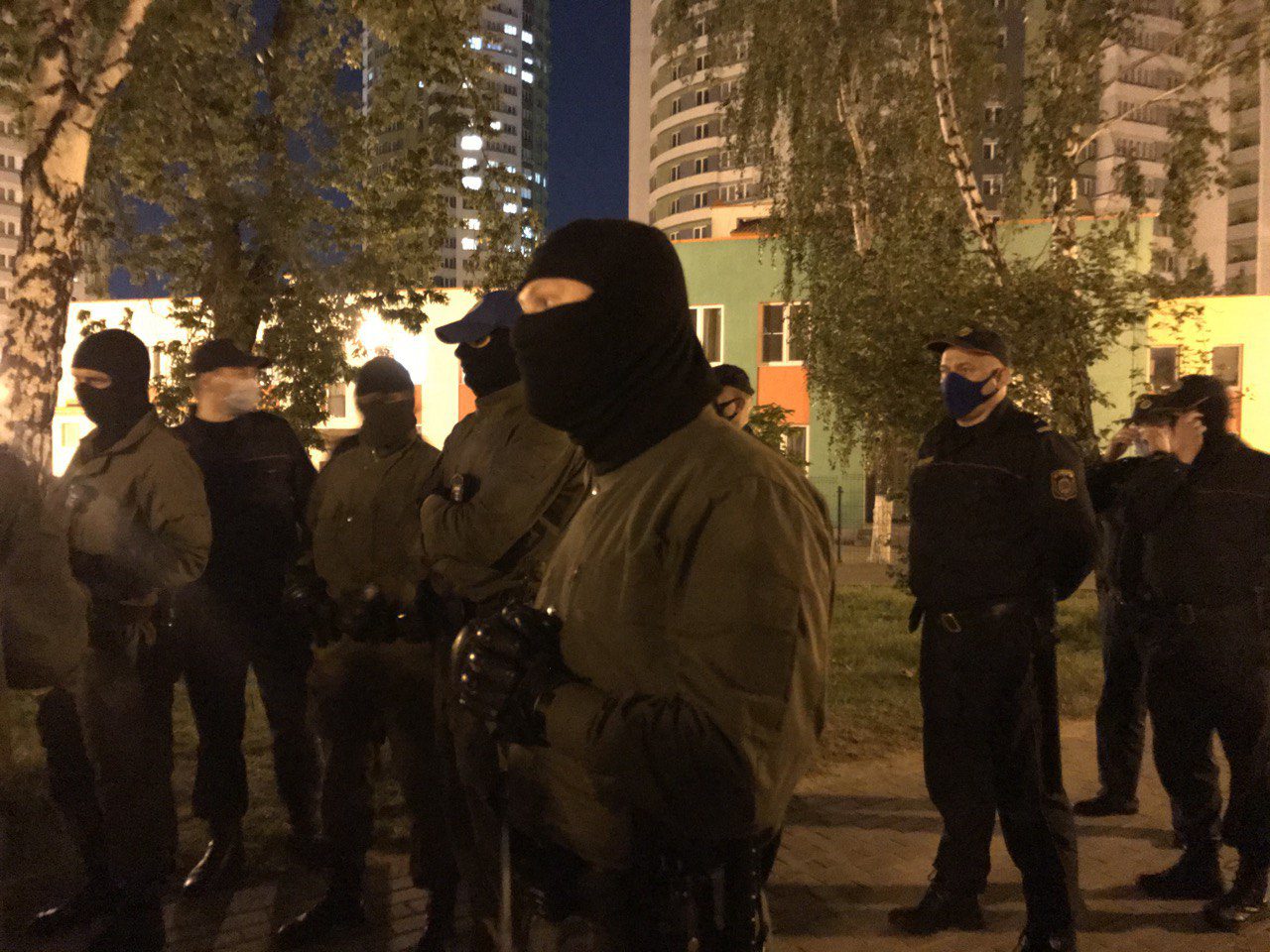
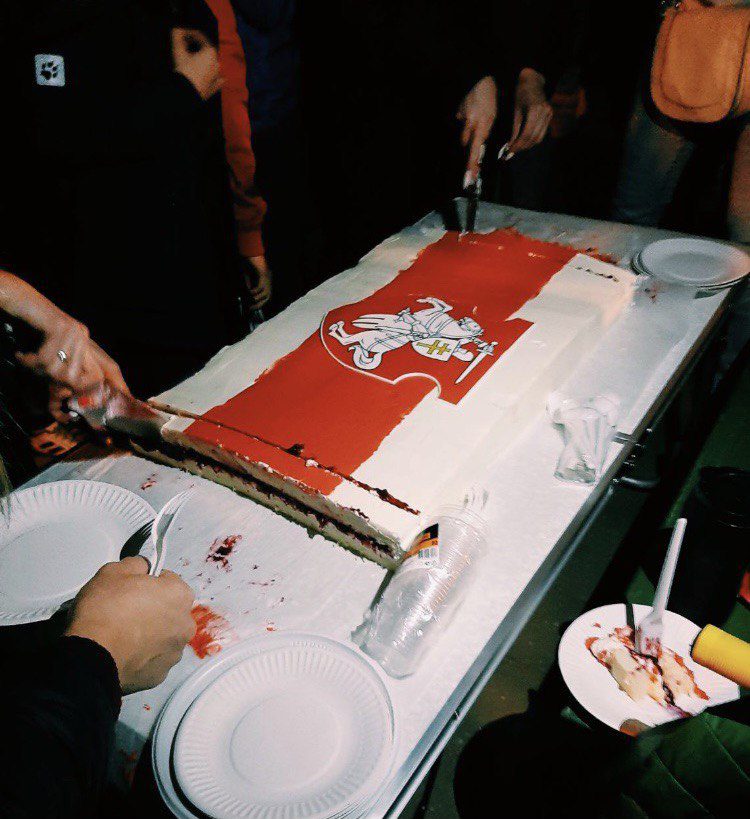
Sviatlana Cichanoŭskaja turned 38. Minsk residents congratulated her: they ate cakes made in national colours, sang and laid out hearts from candles.
People were detained near a building of a Catholic church. Police blocked the doors of the church.
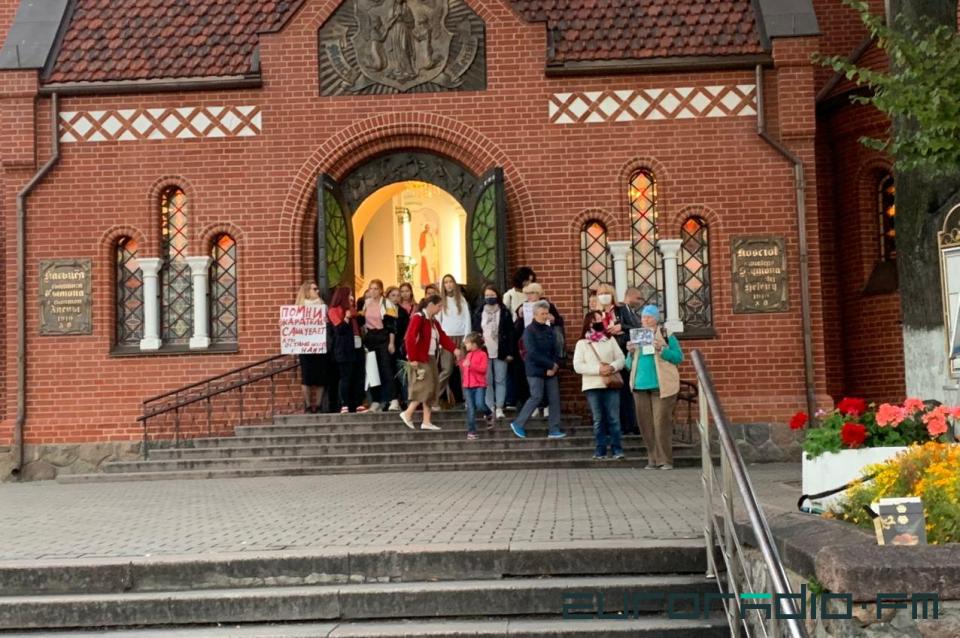
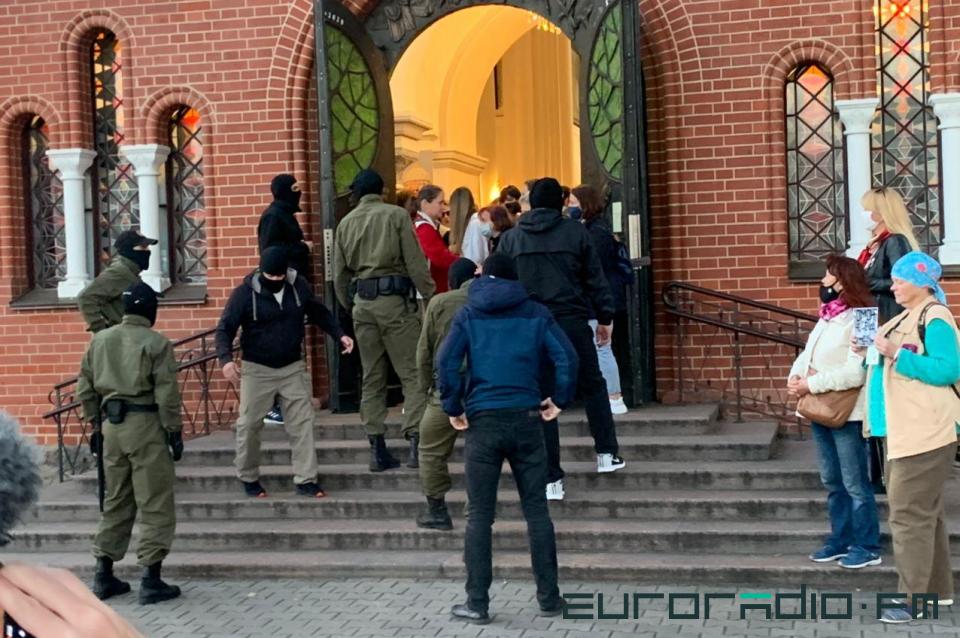
The women's march was on. A lot of women were violently detained.
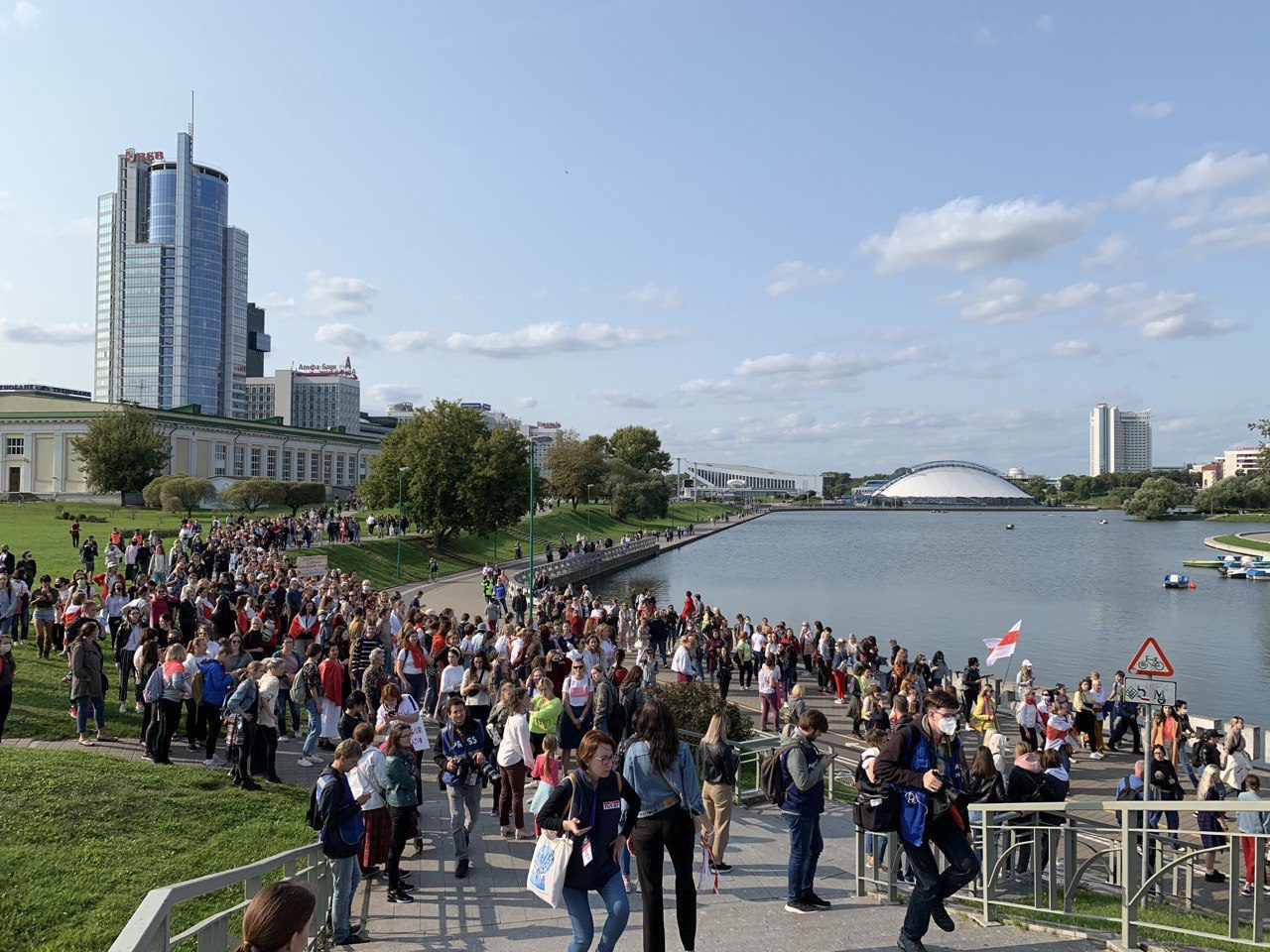
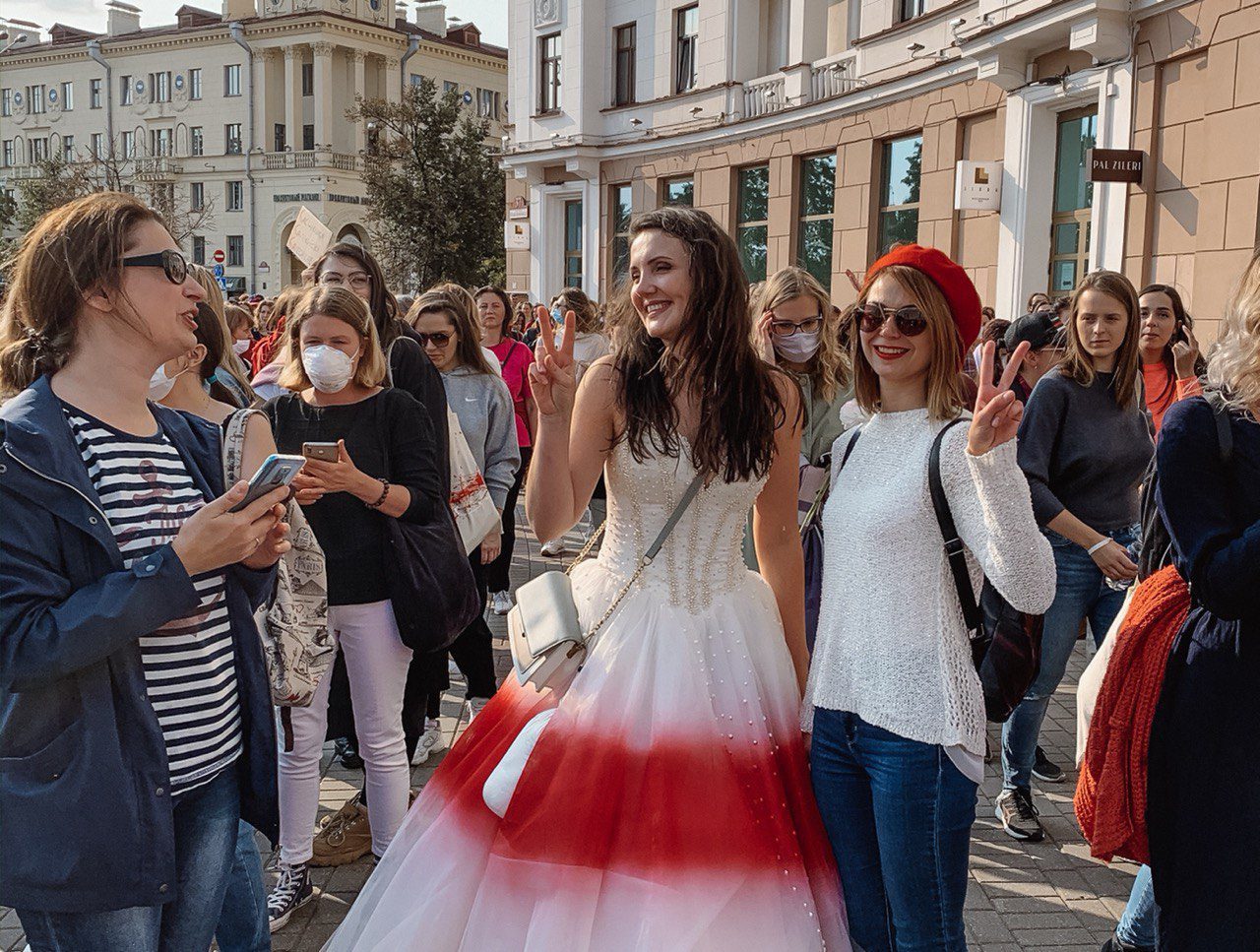
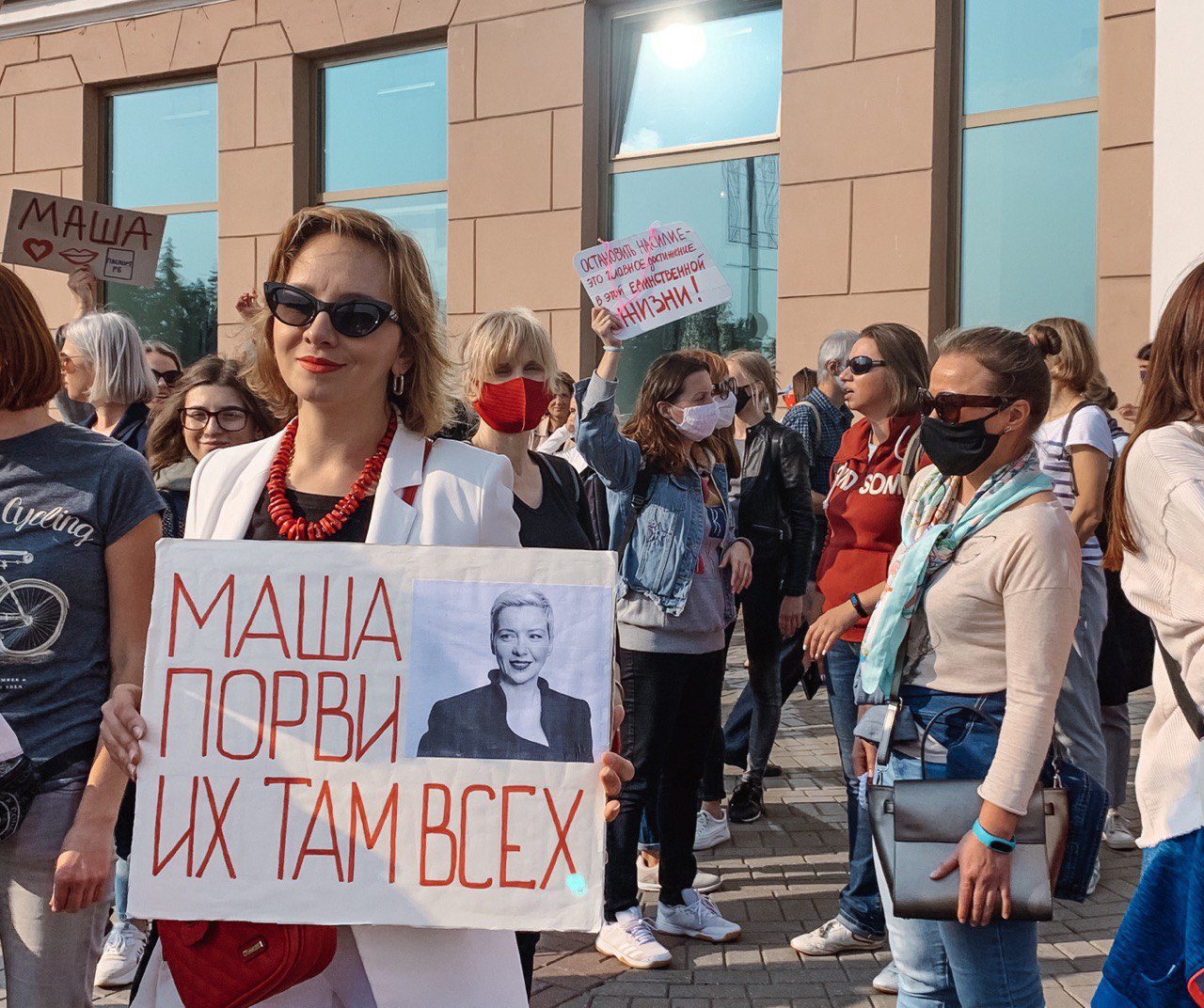
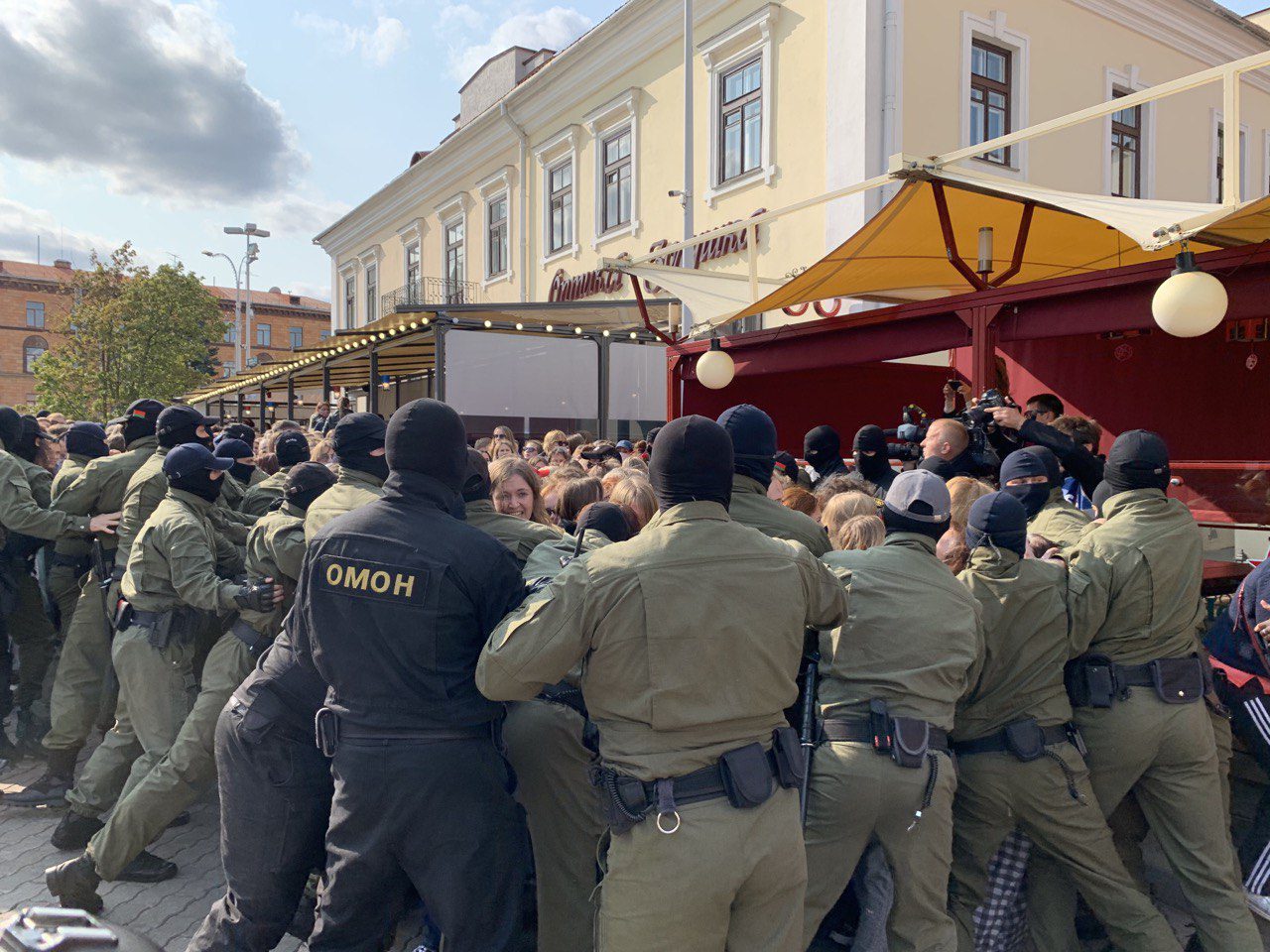
The March of Heroes took place in Minsk, with over 700 people detained.
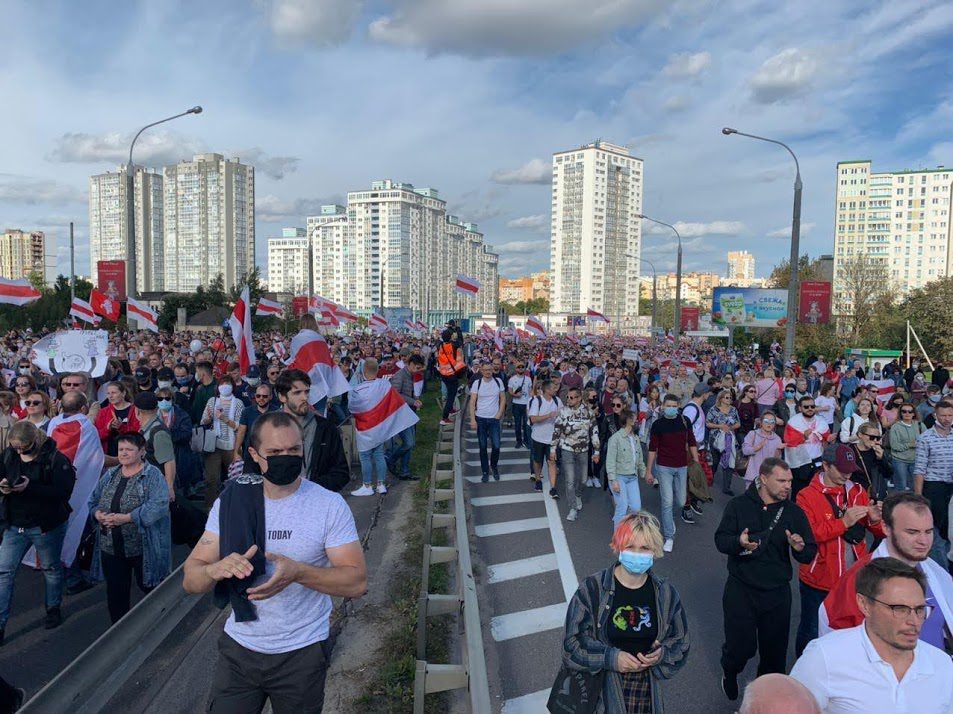
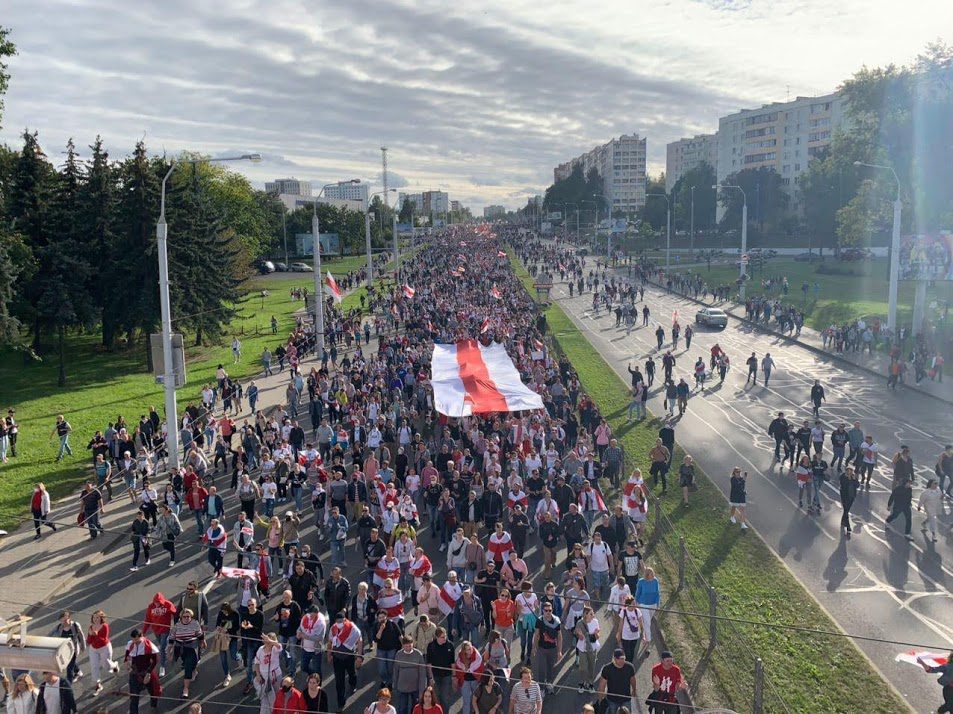
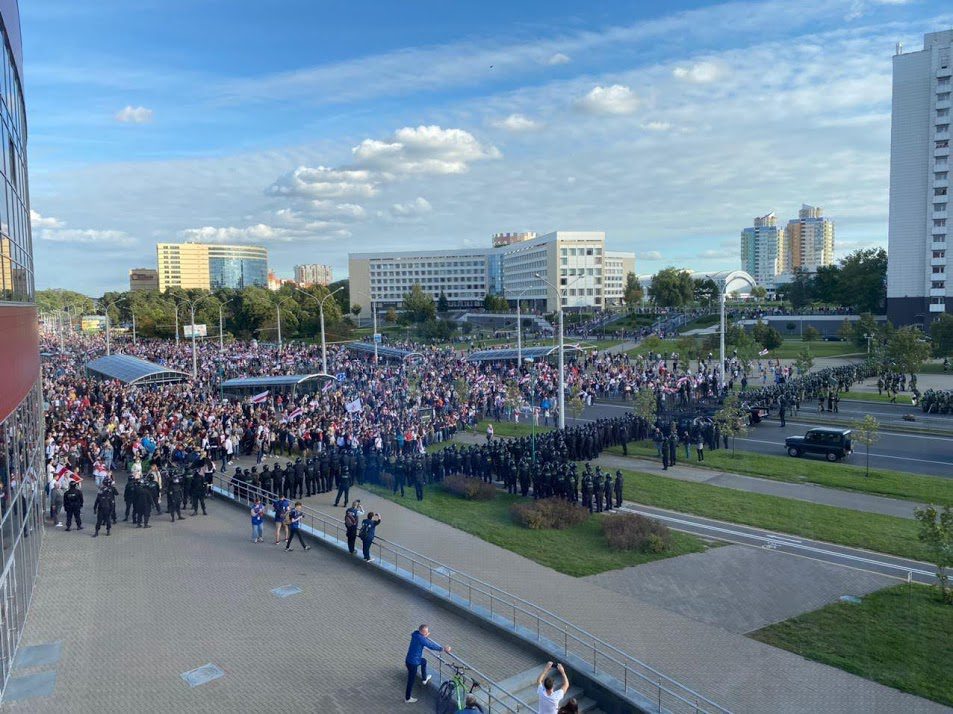
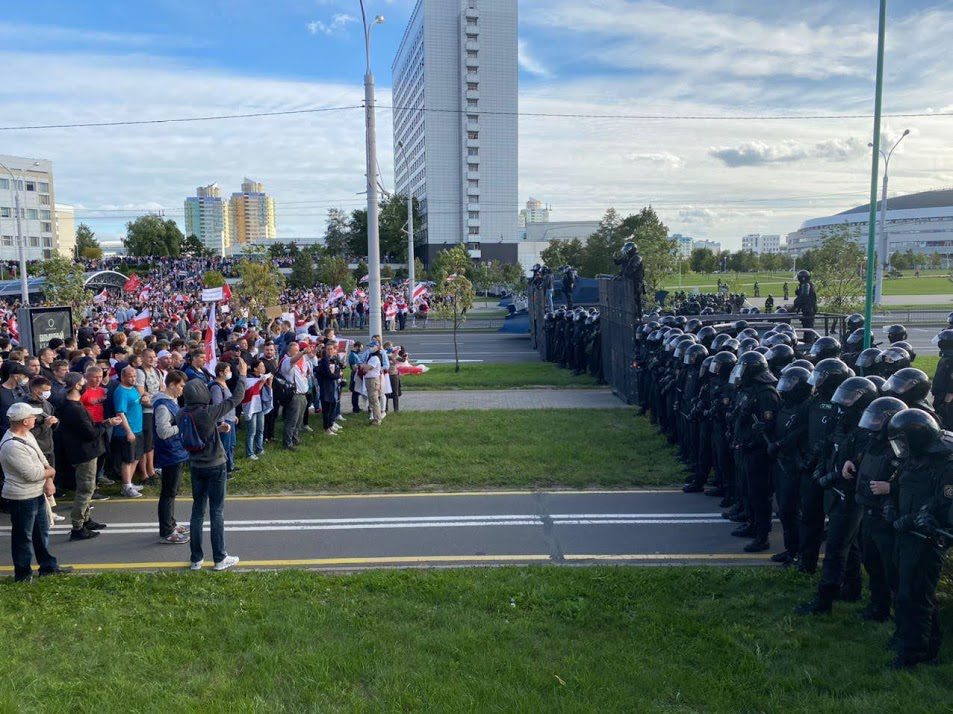
In Brest, security forces used a water cannon to disperse the protesters.
Photographers Aliaksandr Vasiukovič from Novy Čas and Uladź Hrydzin from TUT.BY were detained in a Minsk cafe; they were sentenced to 11 days each.
Lukašenka met with Putin in Sochi and negotiated a $ 1.5 billion loan.
Belarus's State Border Guard Committee said that preventing the leader of Belarusian Catholics, Archbishop Tadeusz Kondrusiewicz from entering the country was due to the fact that his passport had been annulled.
Ukraine did not recognise the Belarusian elections.
A resident of the Square of Changes Sciapan Latypaŭ was detained trying to protect the mural of DJs. A criminal case was launched against him.
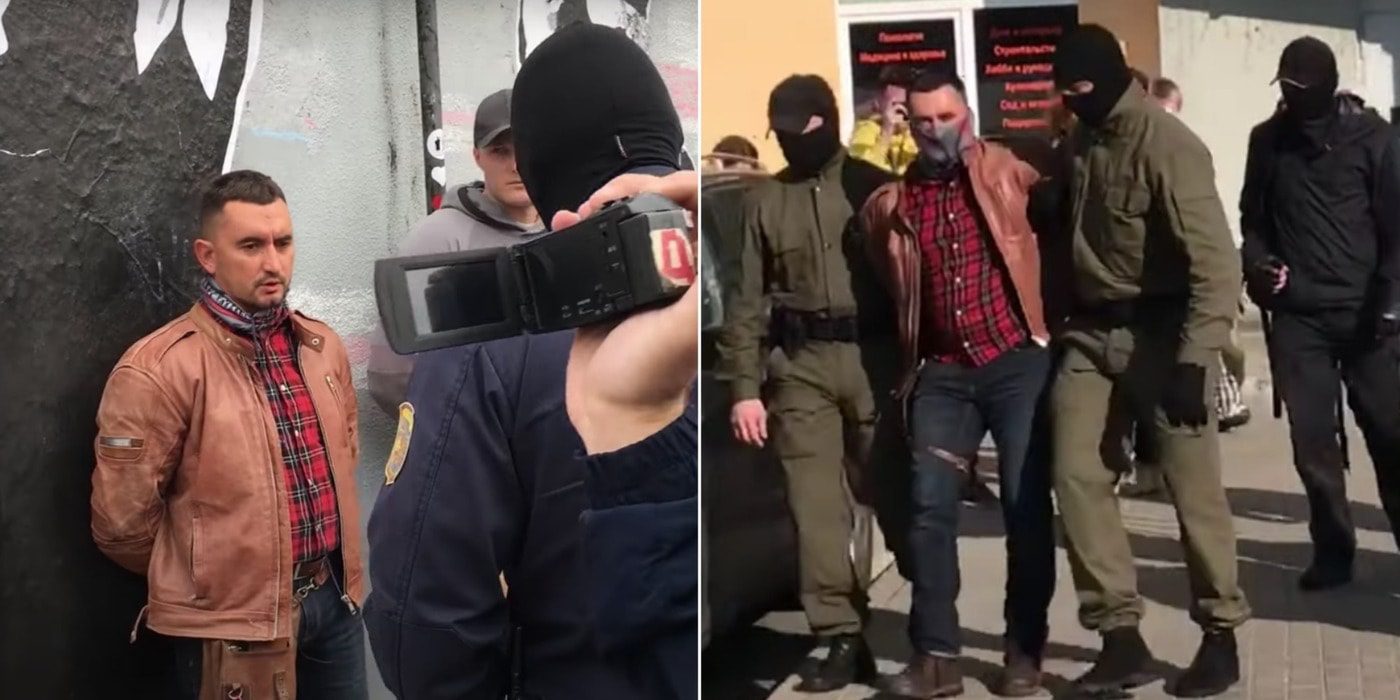
Head of the Institute of Sociology Hiennadź Koršunaŭ left the Academy of Sciences. He admitted that last spring the level of confidence in Lukašenka was 24% among the Minsk residents.
Independent Belarusian media were published without photos as a sign of solidarity with the detained photographers.
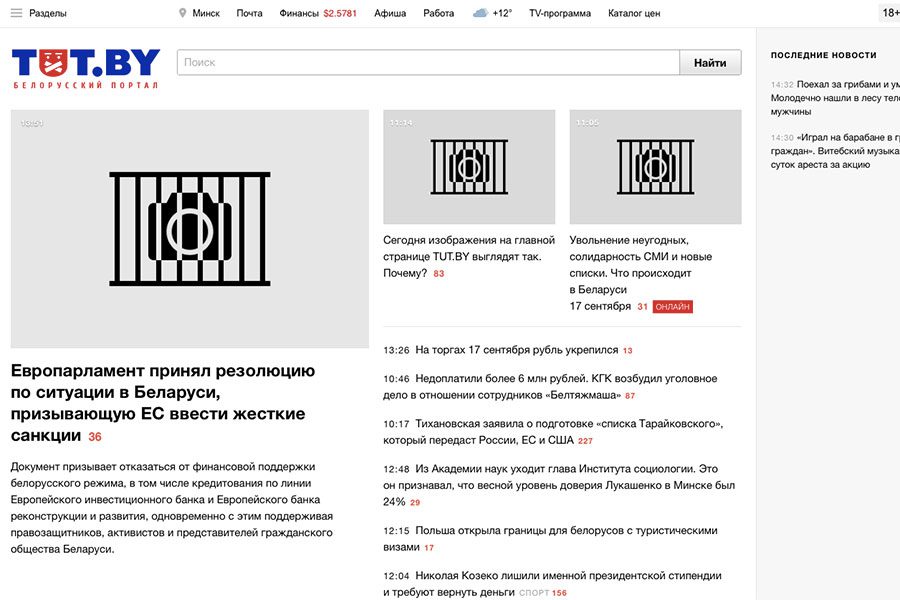
Women were protesting in Minsk. The police were trying to detain them all.
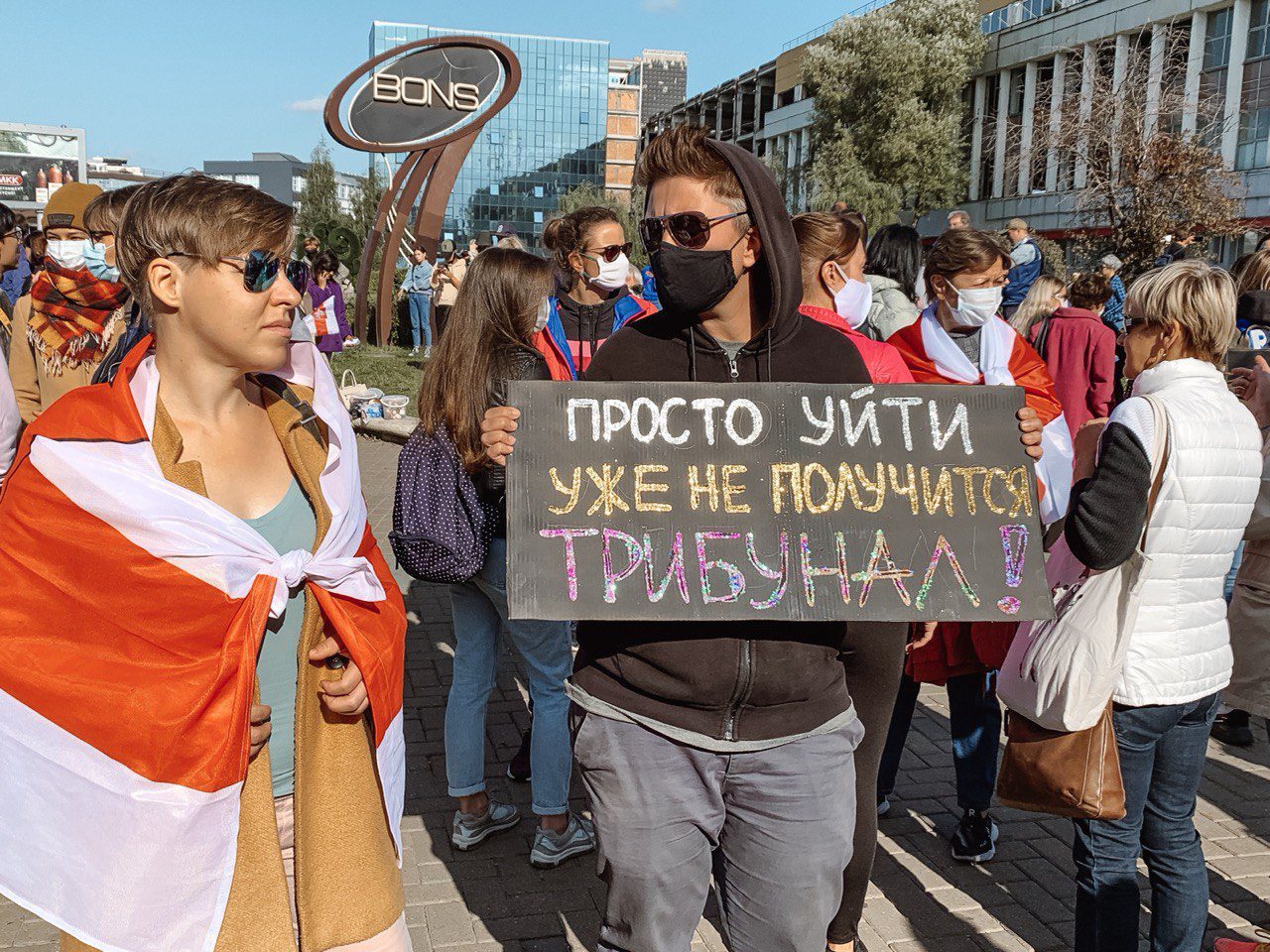
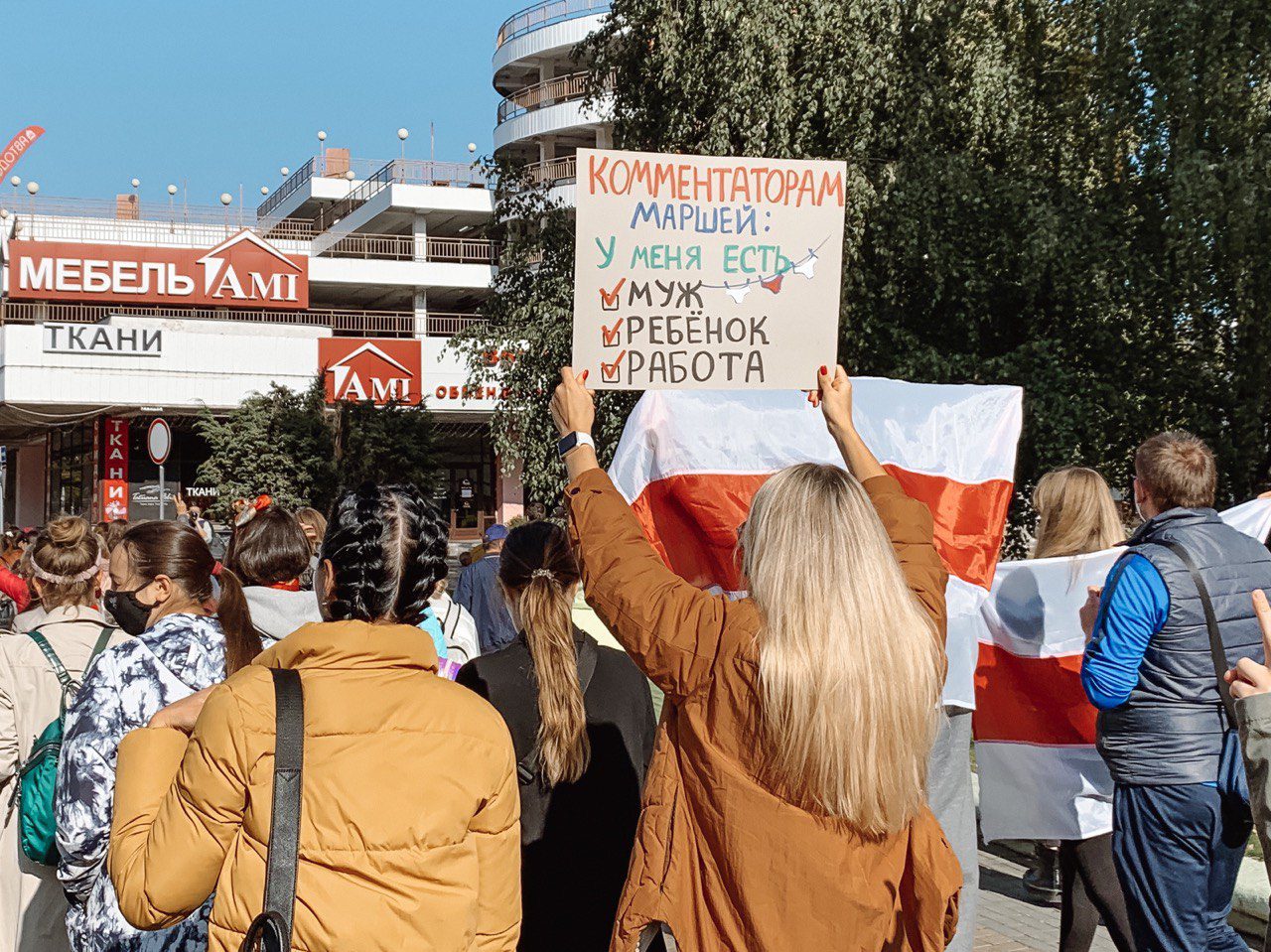
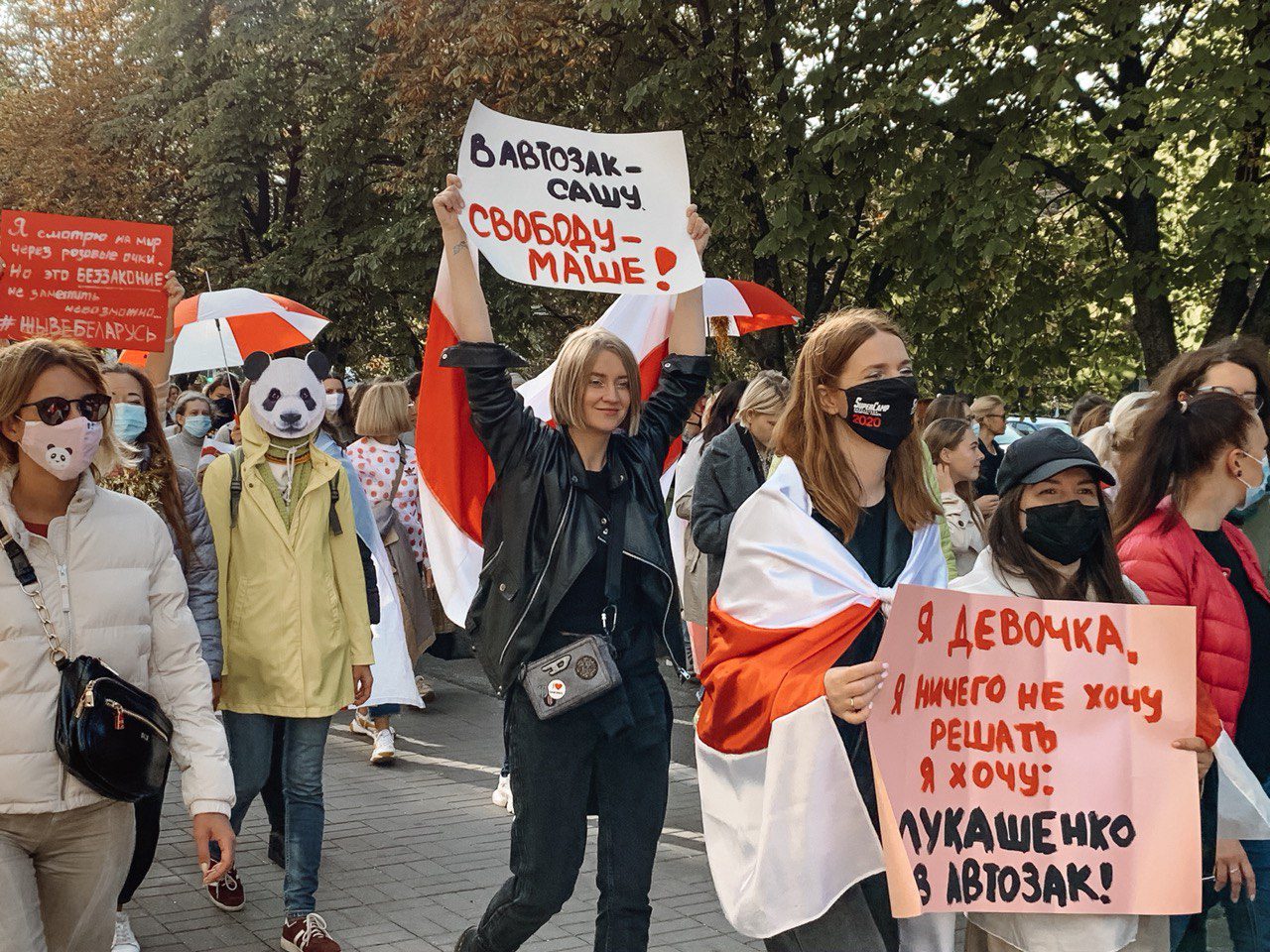
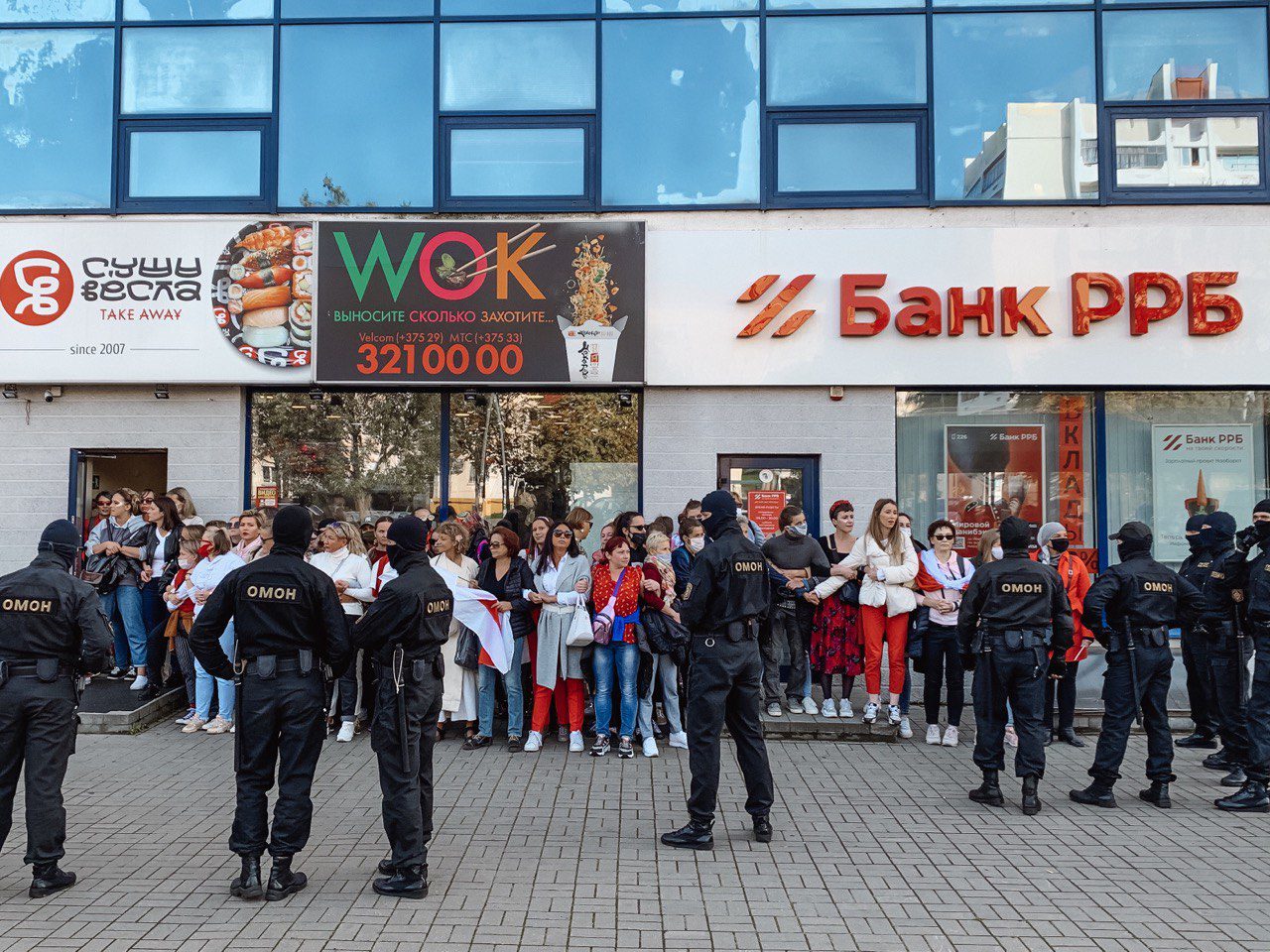
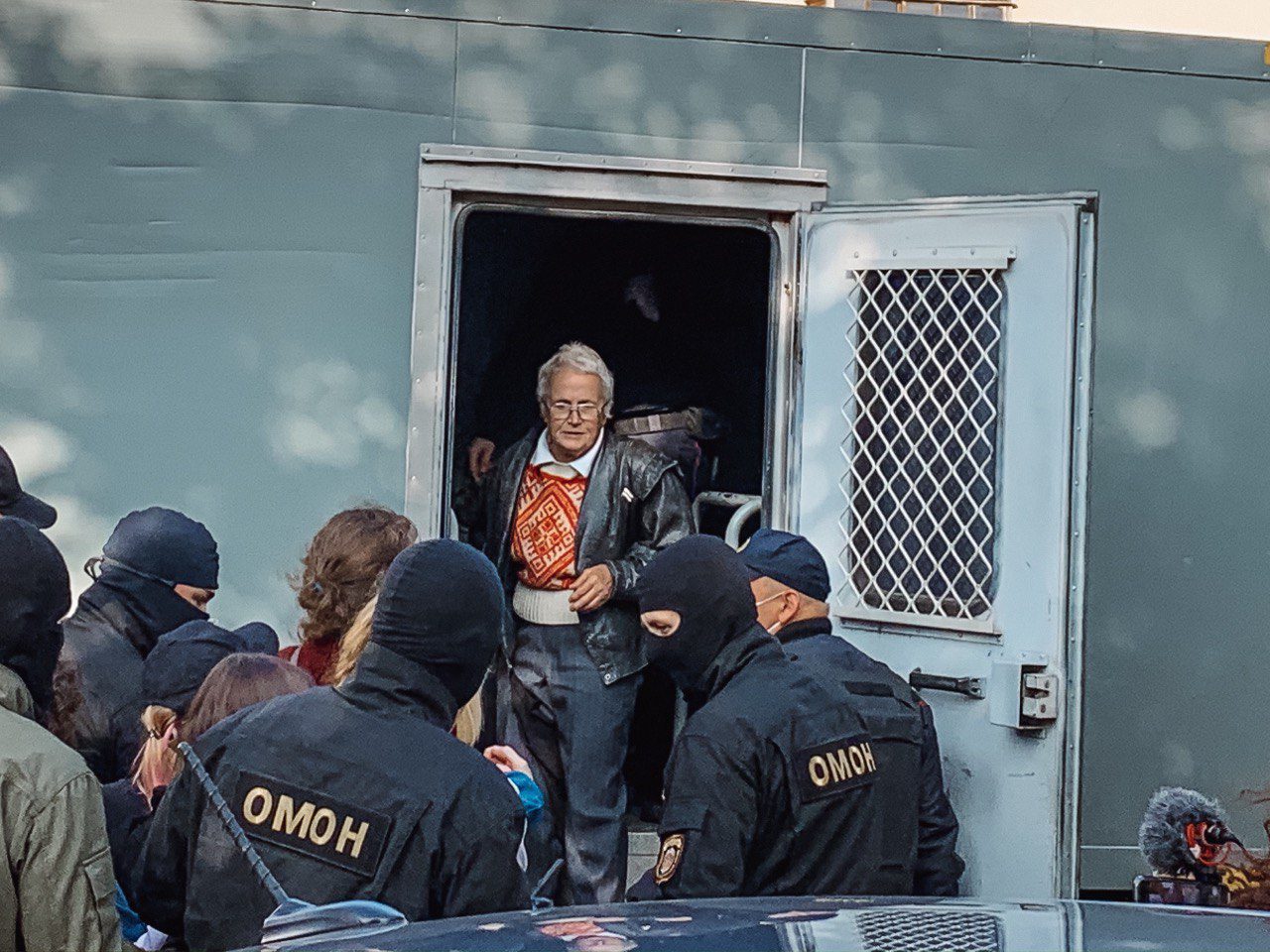
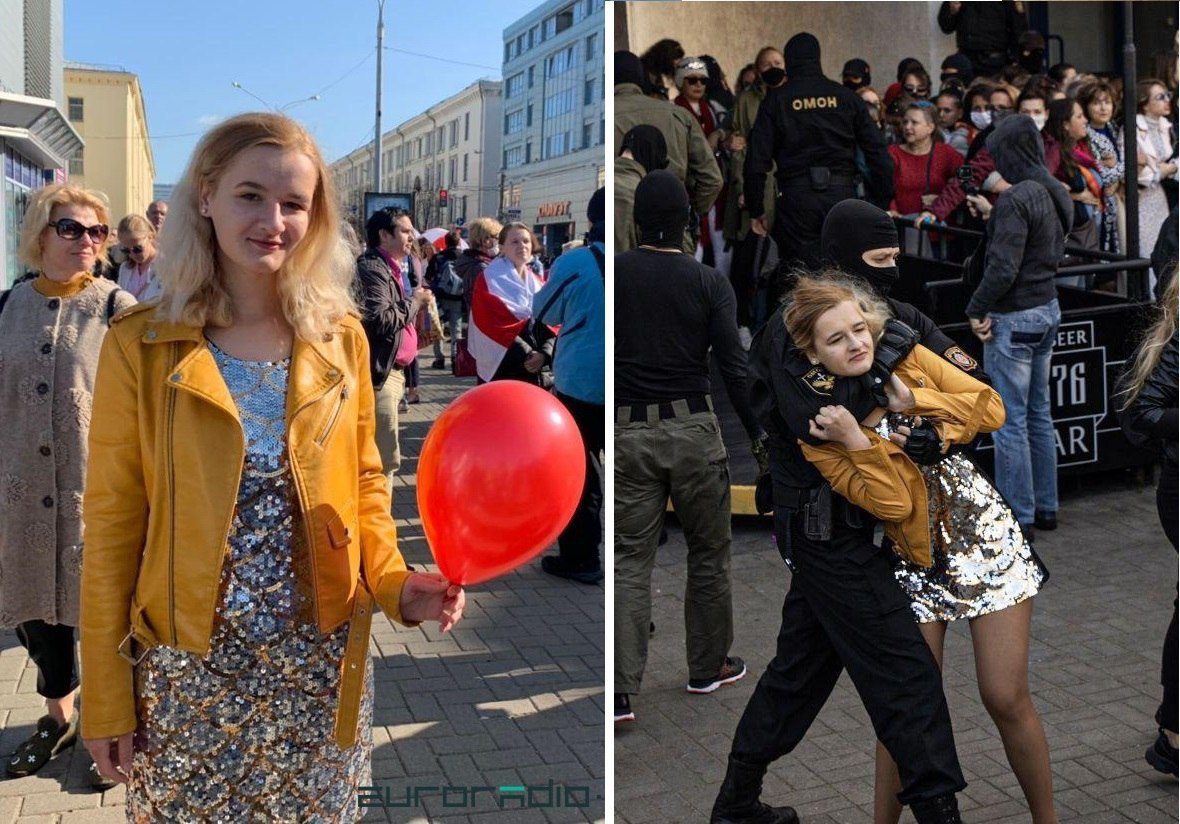
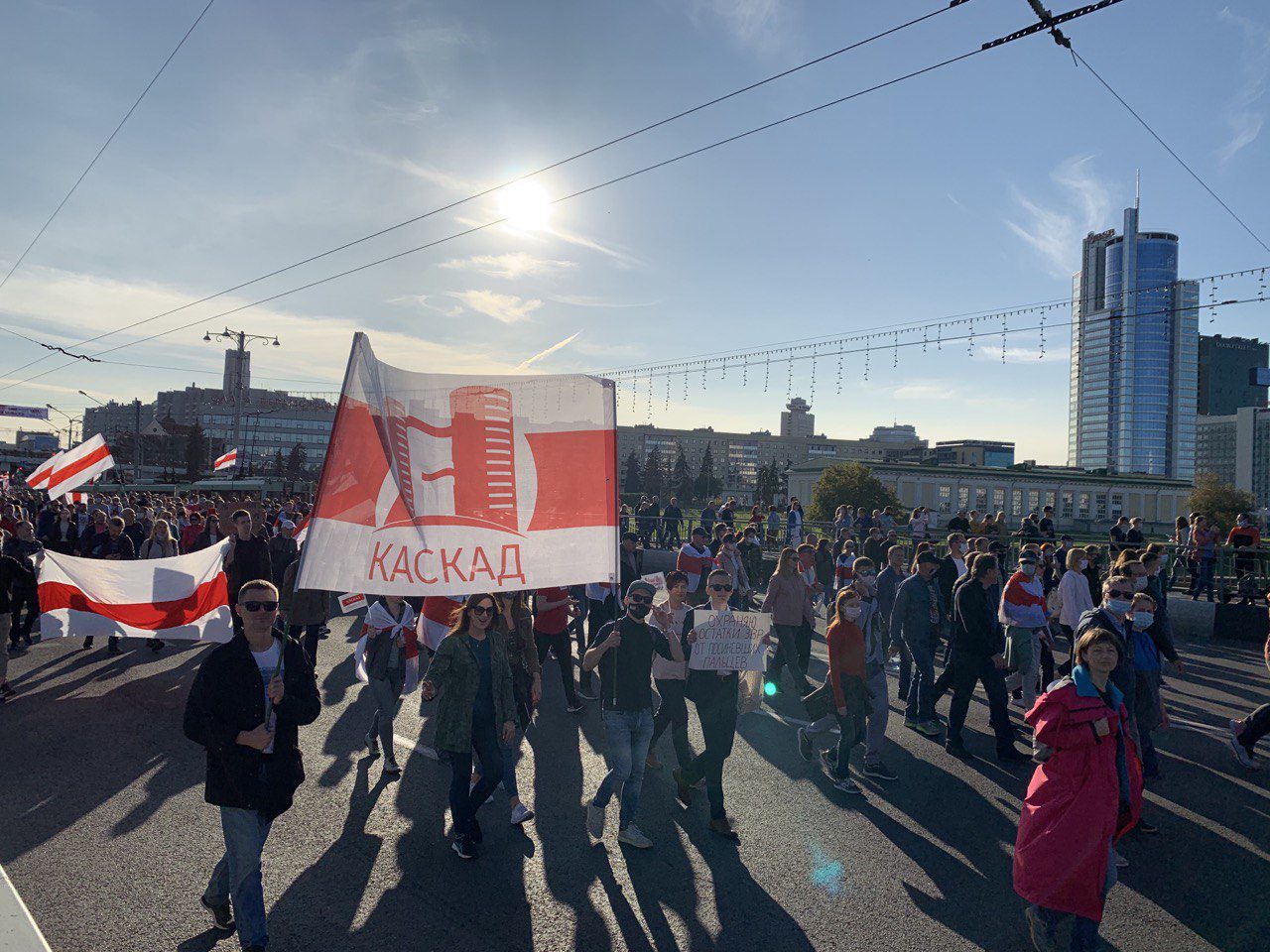
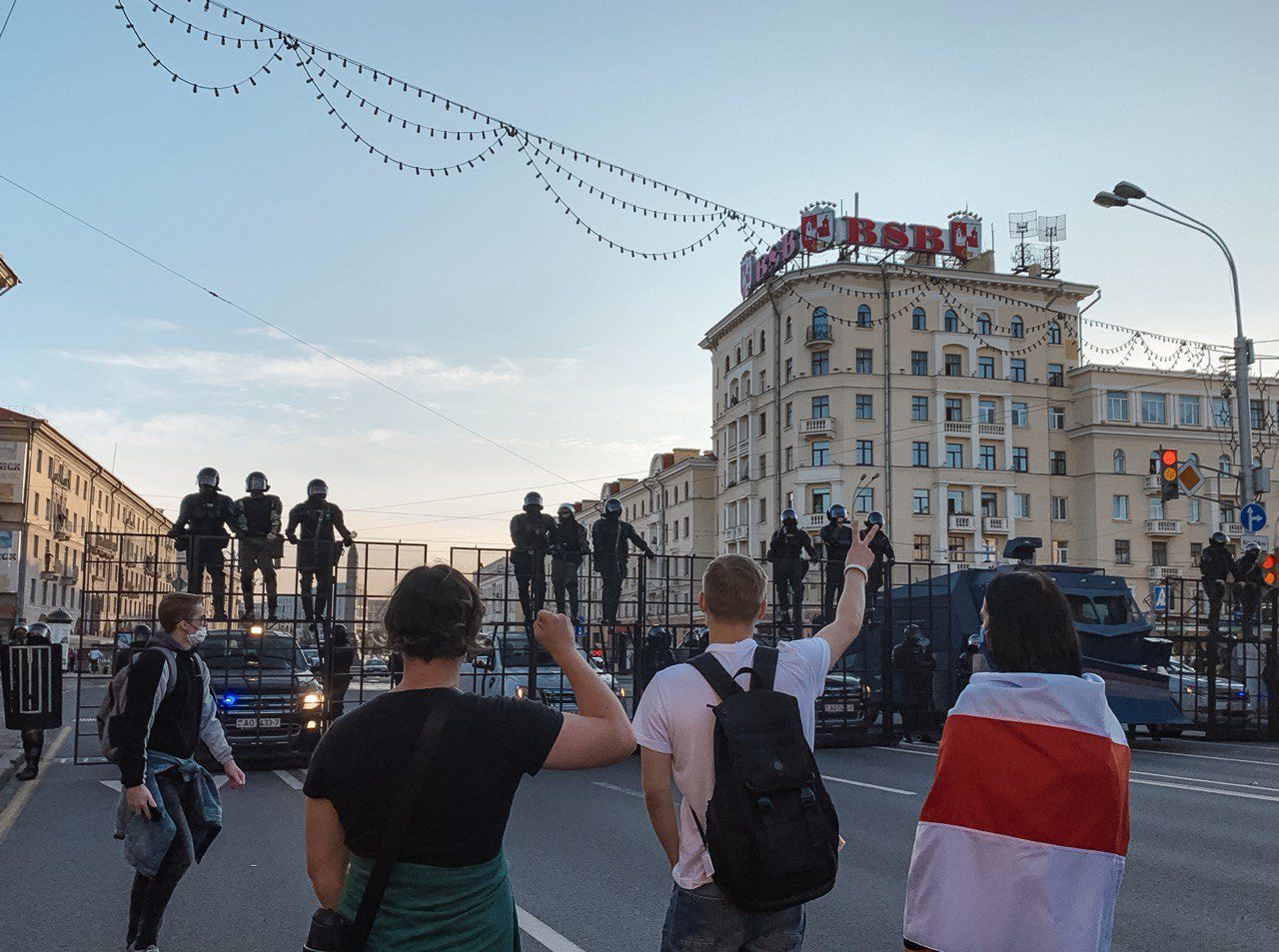
More than 100 thousand people joined the Sunday’s March of Justice across the country. At least 230 people were detained.
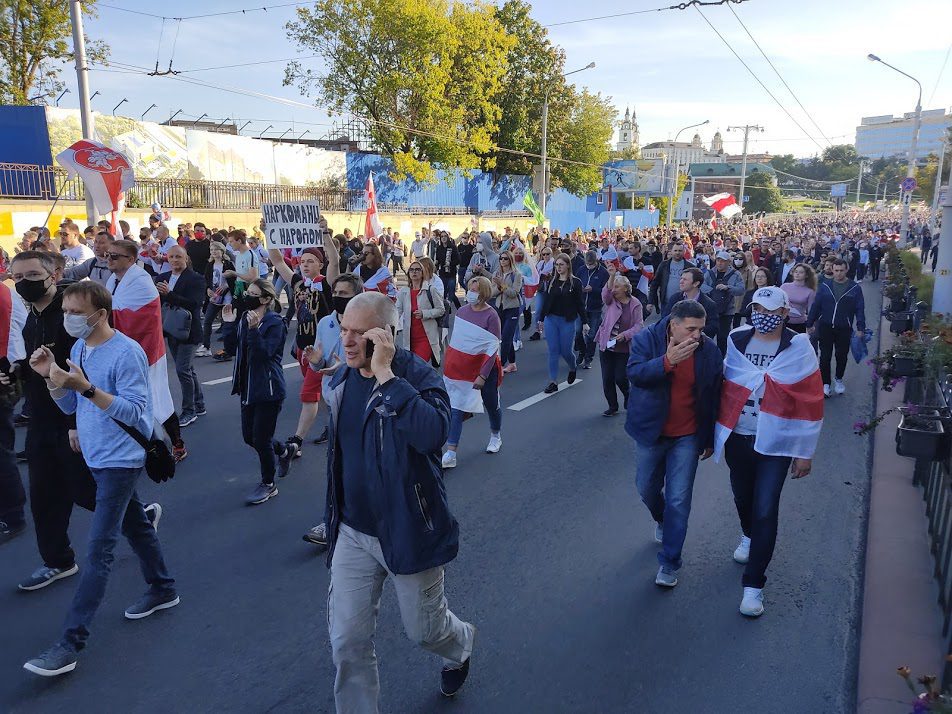
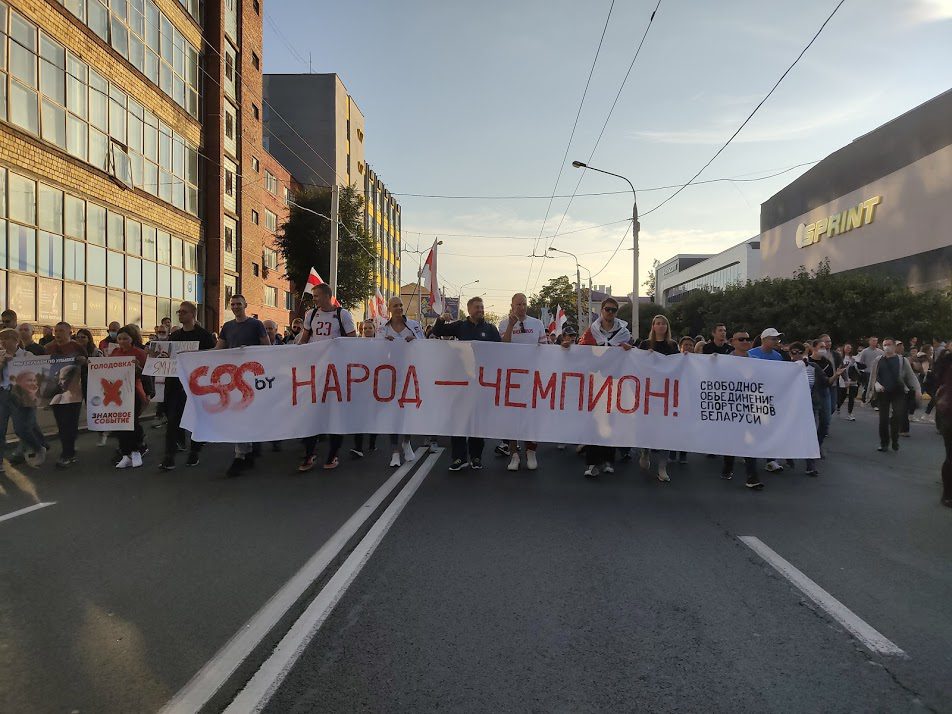
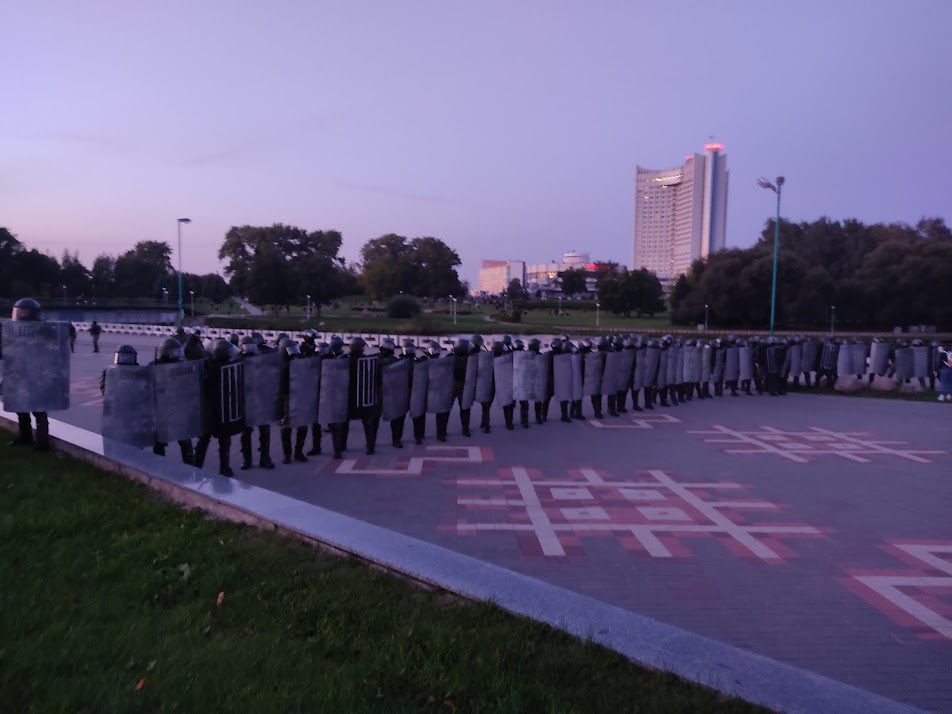
Police in Brest sprayed tear gas and then fired a warning shot into the air.
Alieh Kudzielka was another employee of Belaruskali who refused to leave the mine in protest against the situation in the country and at the enterprise.
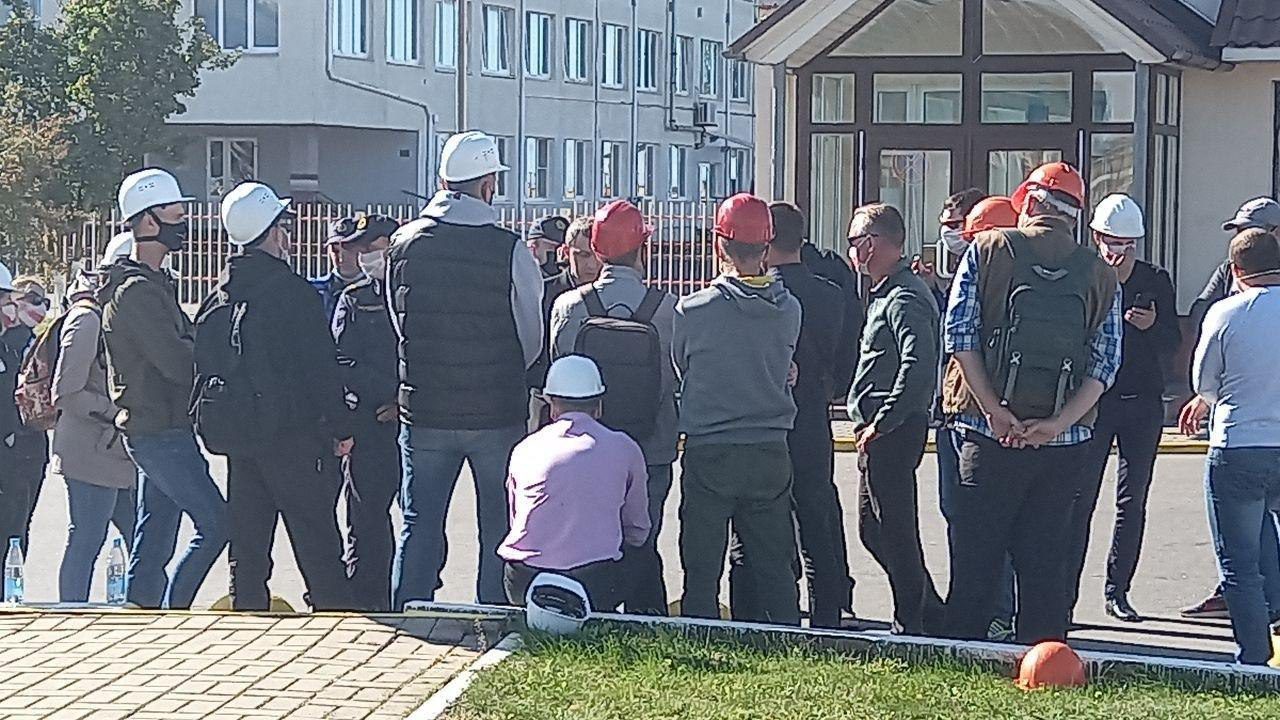
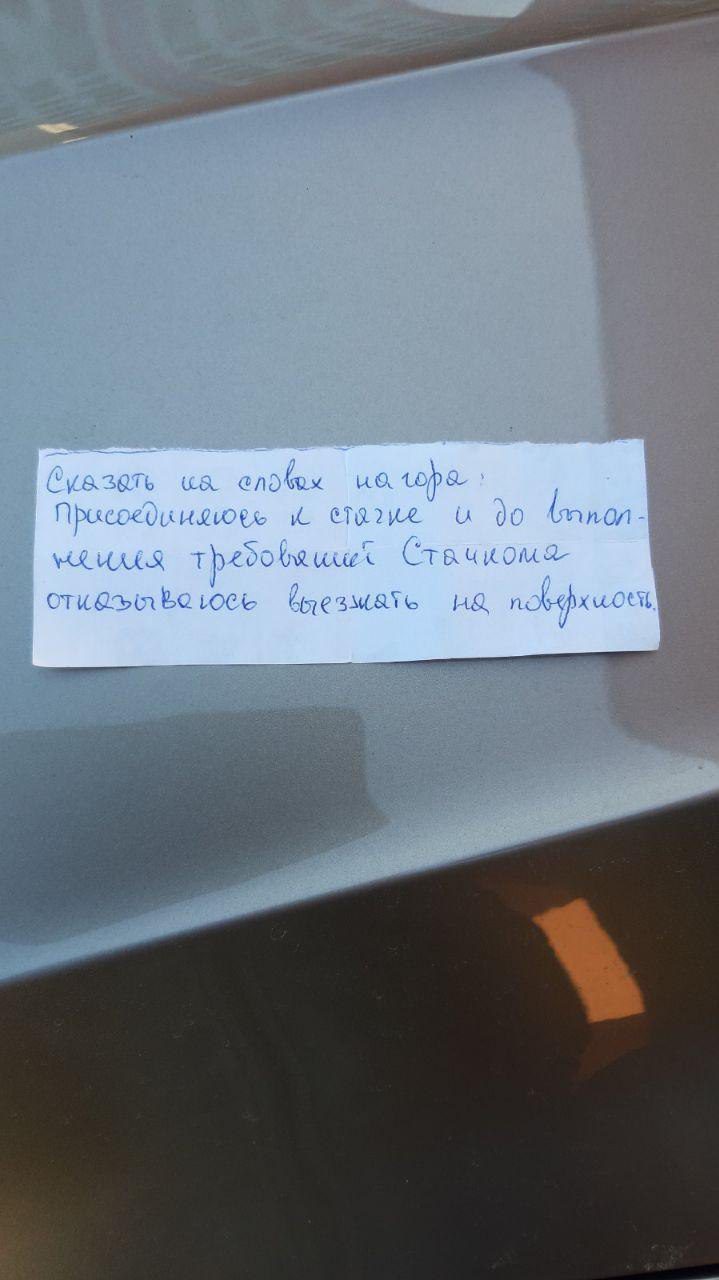
Lukašenka’s secret inauguration took place at the Palace of Independence. Immediately after it, a spontaneous protest began in Minsk, and 360 people were detained. One of the protesters was driven away from the security forces in a taxi, just like in a movie.
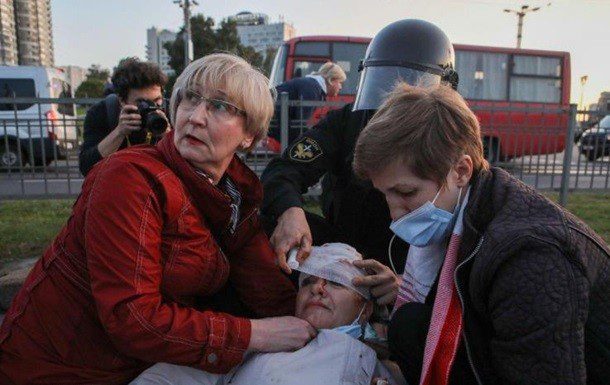
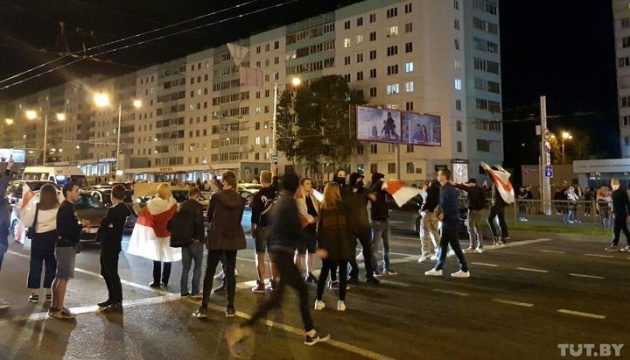
Maryja Kaliesnikava’s lawyer Liudmila Kazak was detained.
Women’s march. The police were trying to detain all of the protesters and journalists.
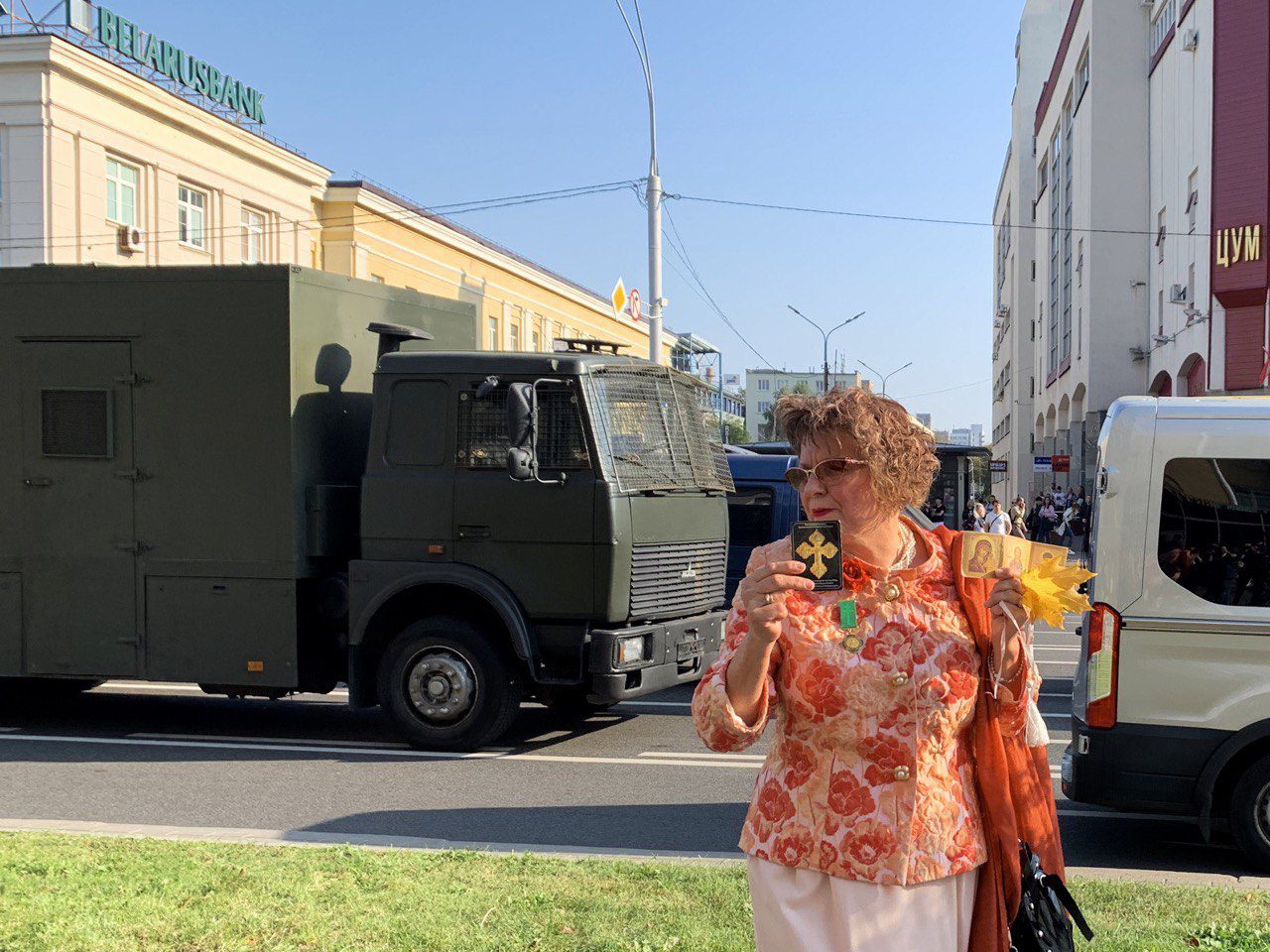
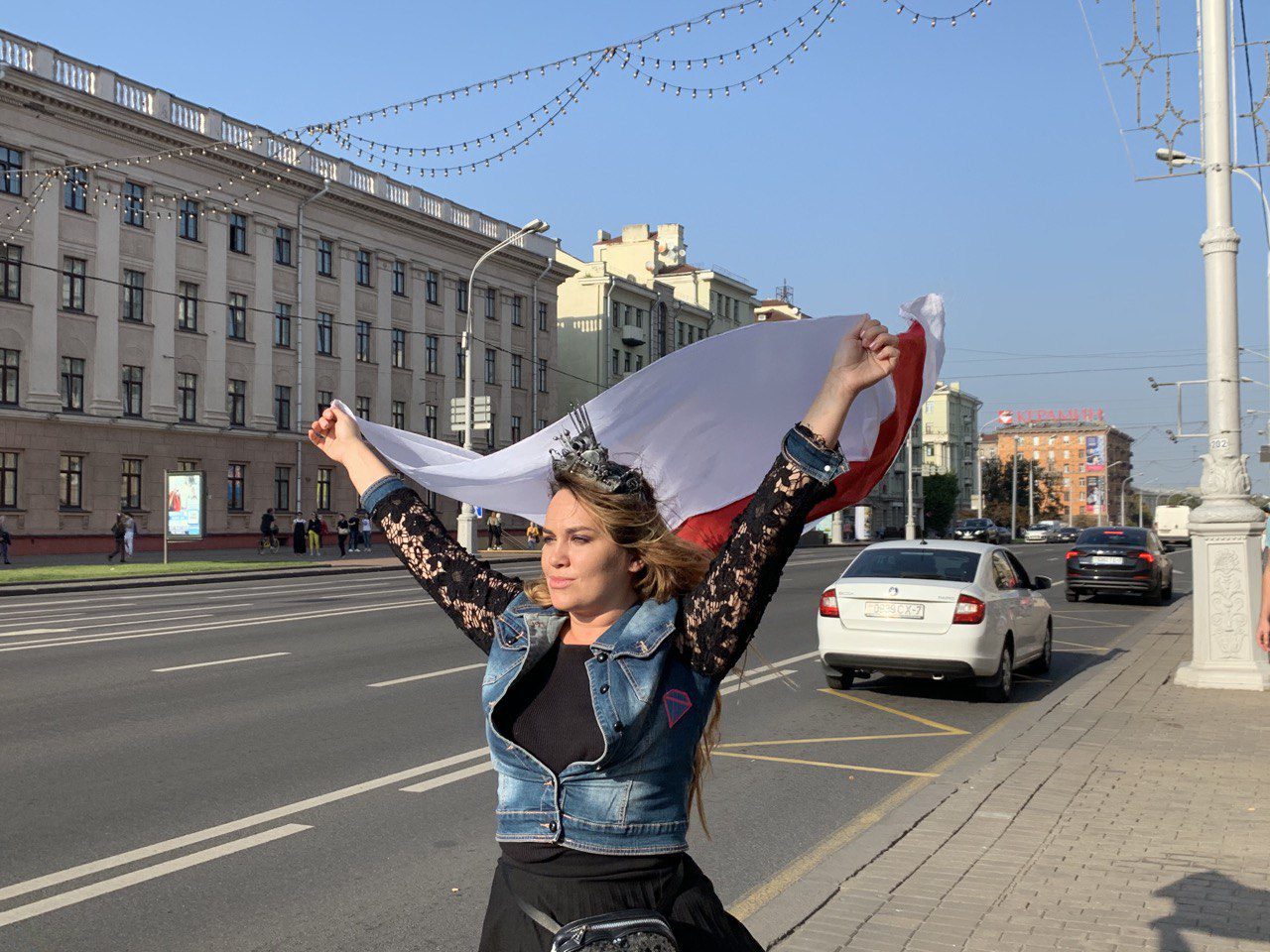
A protest march called “People’s Inauguration” was held in Minsk and other cities of Belarus. Demonstrators in the capital marched more than 10 kilometres.
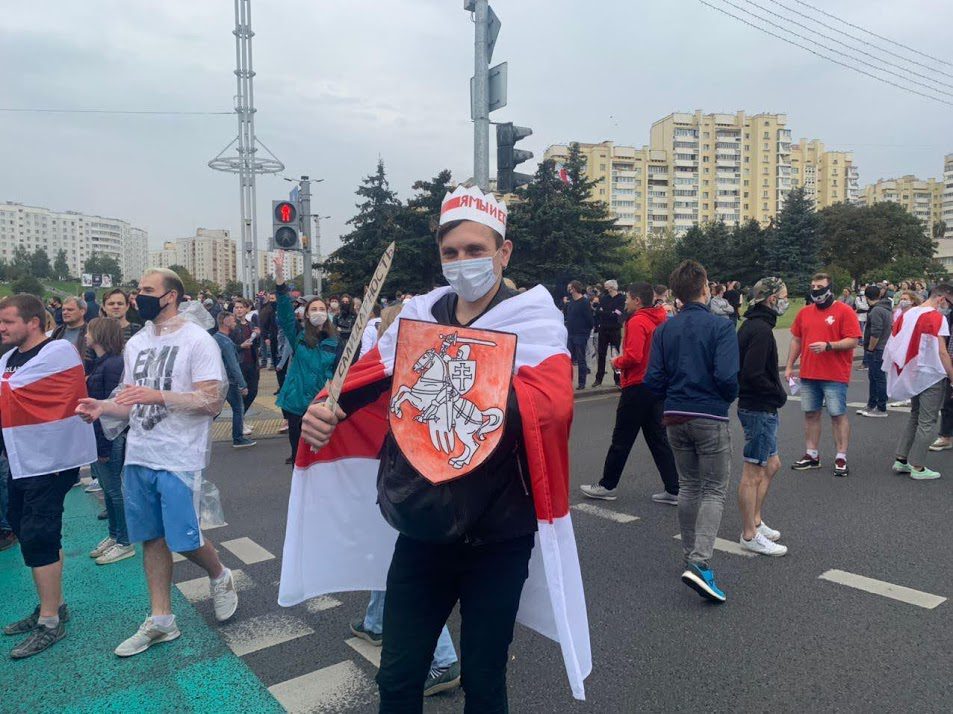
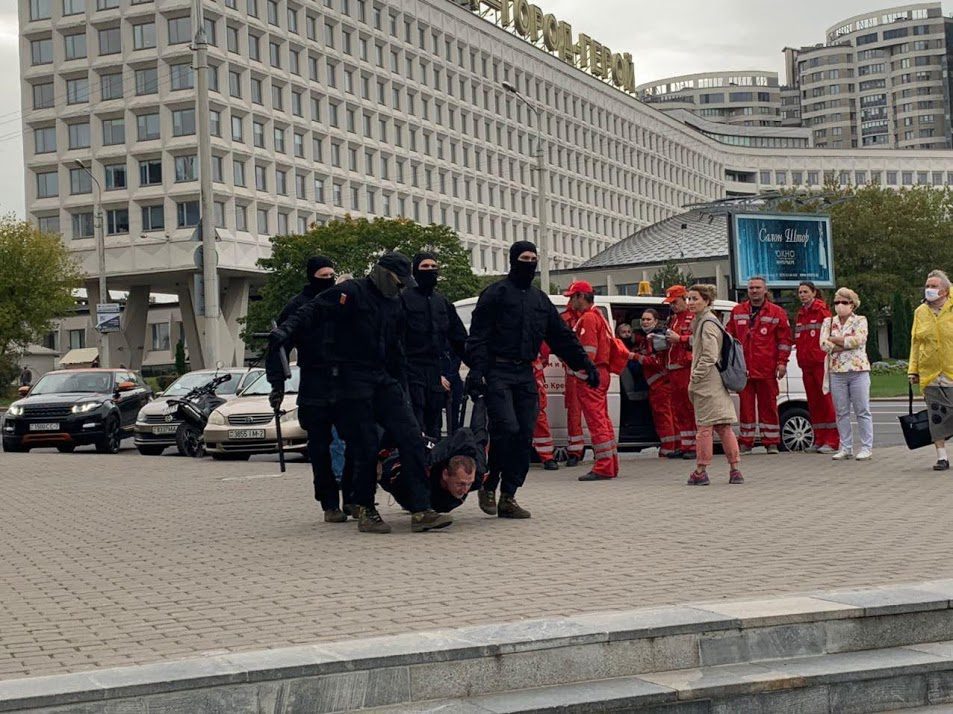
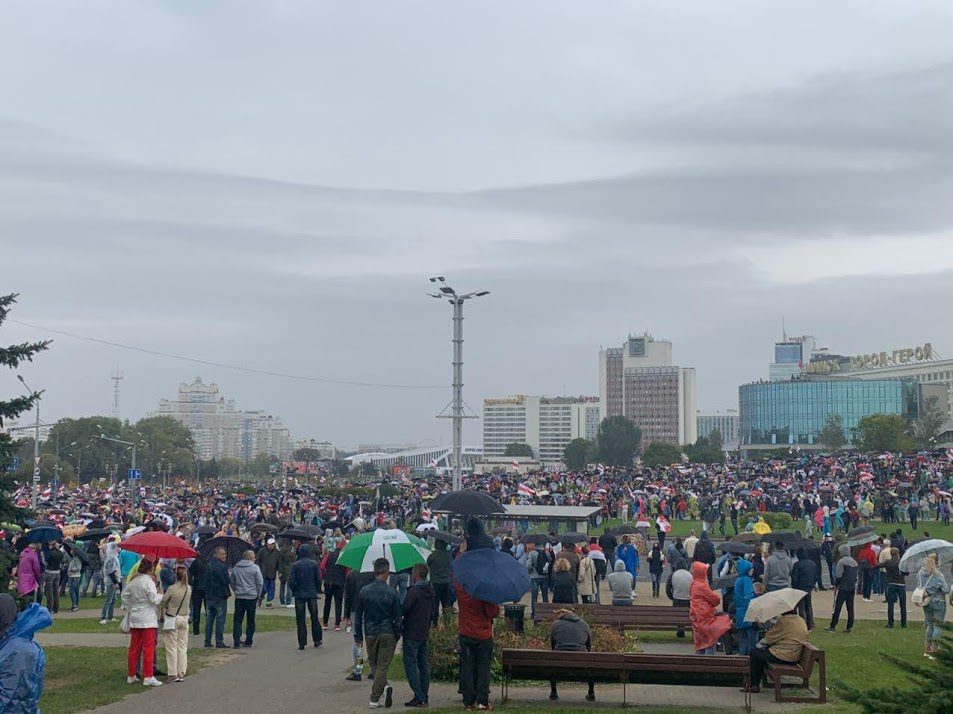
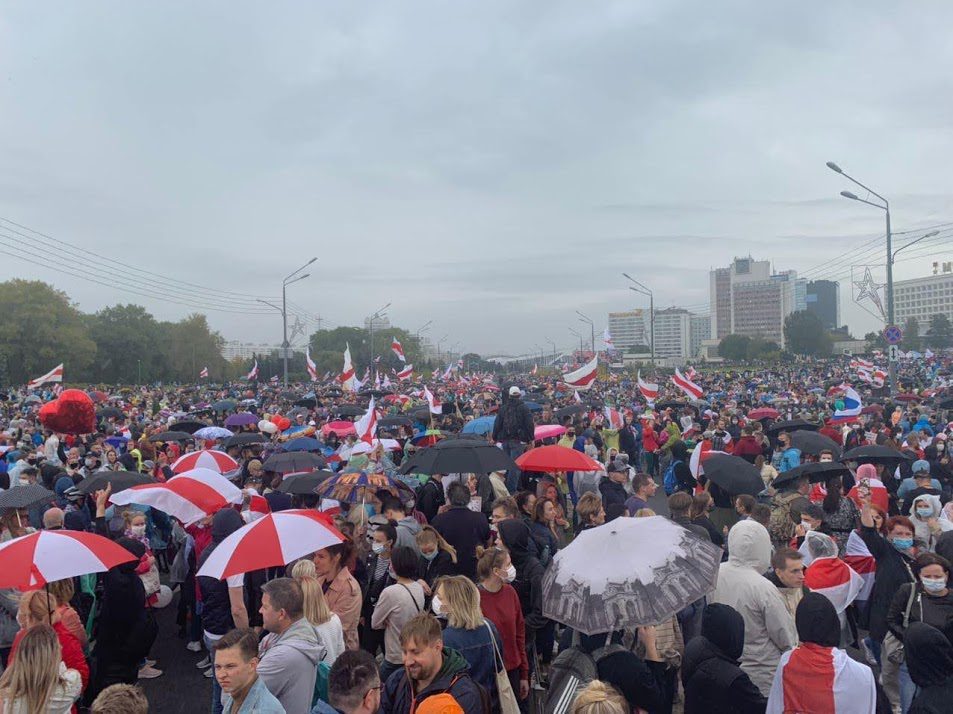
The court found Naša Niva’s editor-in-chief Jahor Marcinovič guilty and fined him 405 BYN.
Nobel laureate and member of the Presidium of the Coordination Council Sviatlana Alieksijevič flew to Germany.
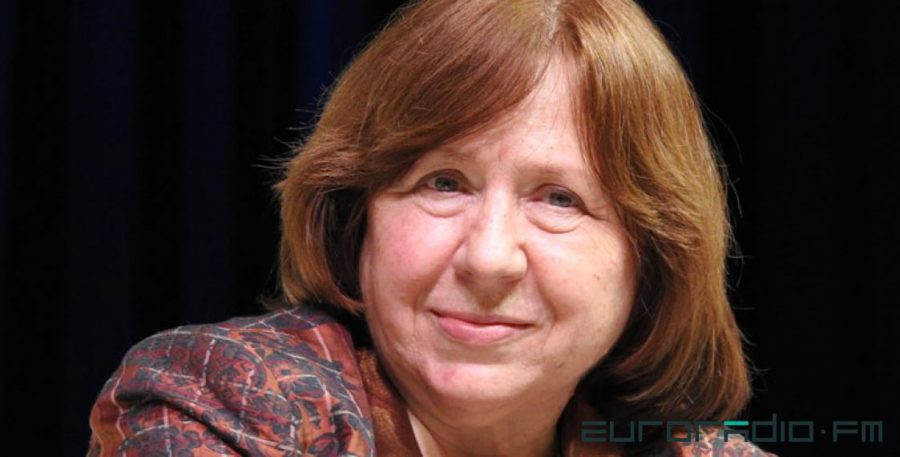
The Ministry of Information deprived TUT.BY of its media status for three months.
Great Britain and Canada imposed sanctions against Aliaksandr Lukašenka, his son Viktar and security officials.
Sviatlana Cichanoŭskaja met with French President Emmanuel Macron.
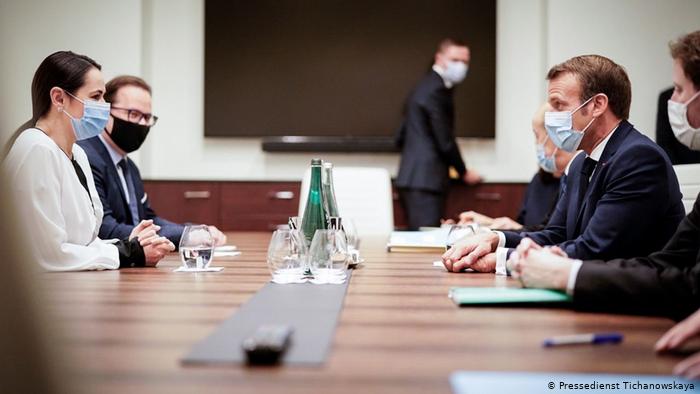
A "sit-in strike" was held in seven Minsk universities. Students of Belarusian State University, Belarus State Economic University, Belarusian State Academy of Arts, Belarusian State University of Culture and Arts, Minsk State Linguistic University and Belarusian State University of Physical Culture sat on the steps or next to them to show that there are many of them and they are still dissatisfied with the situation in Belarus.
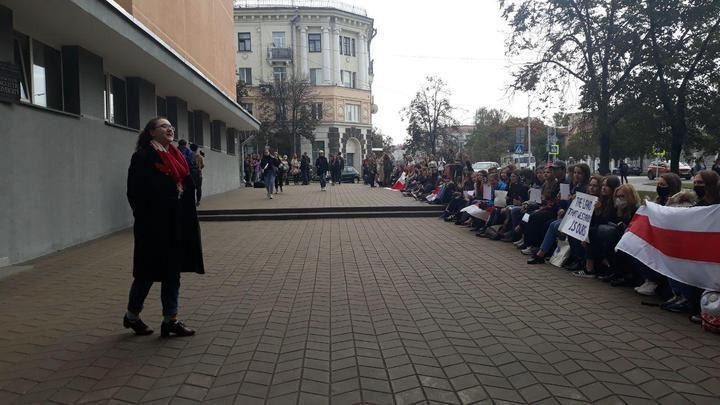
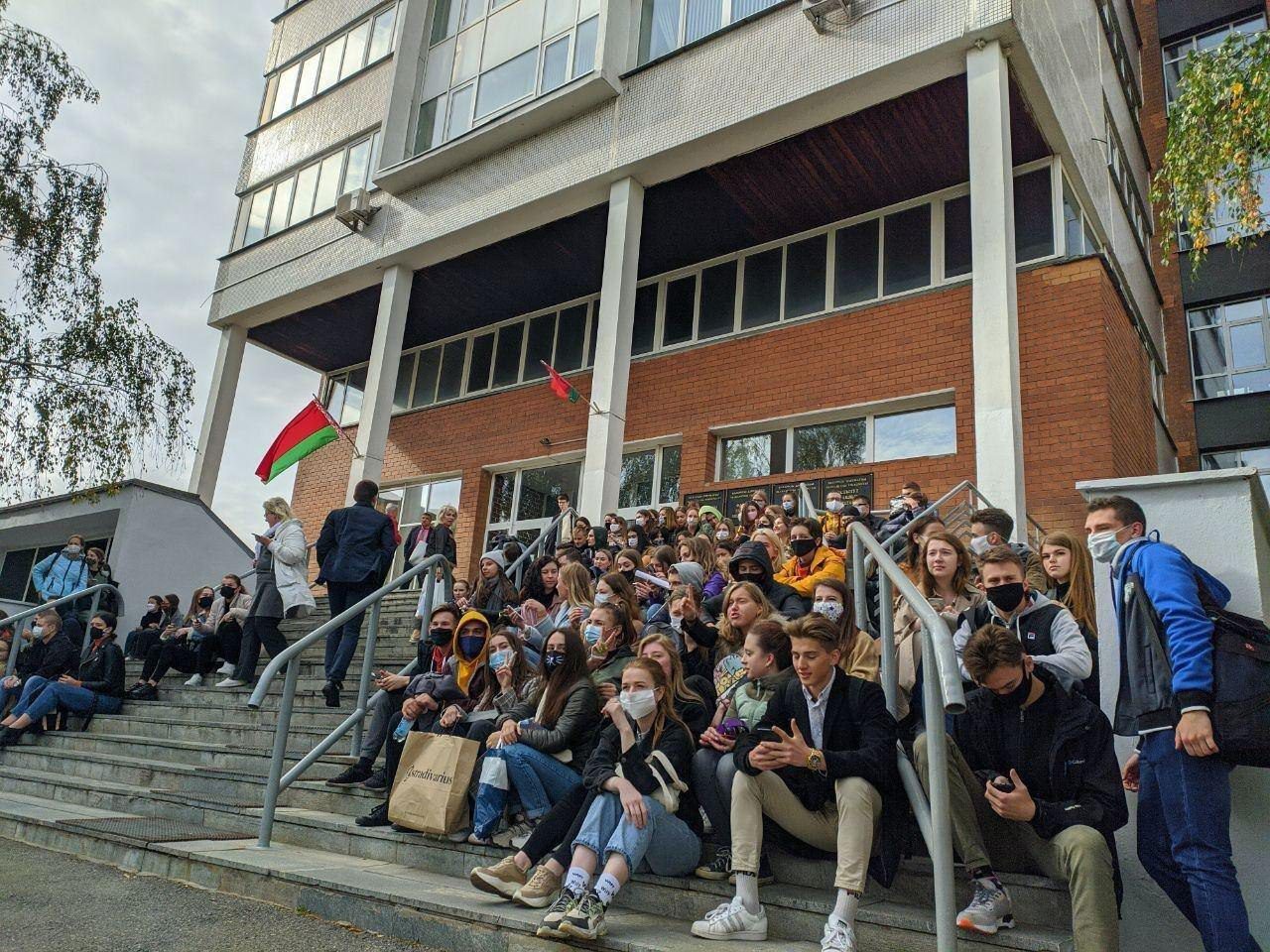
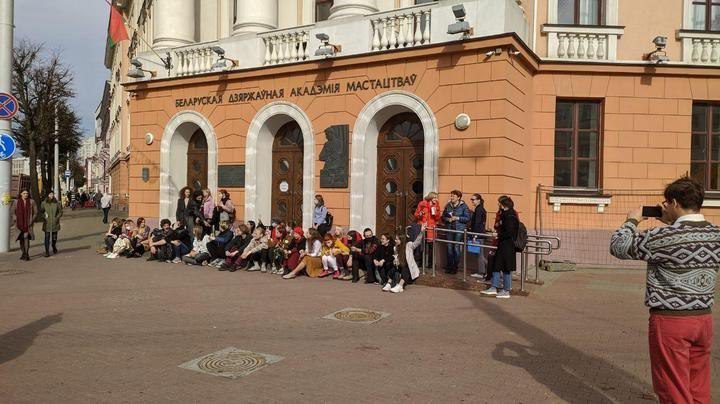
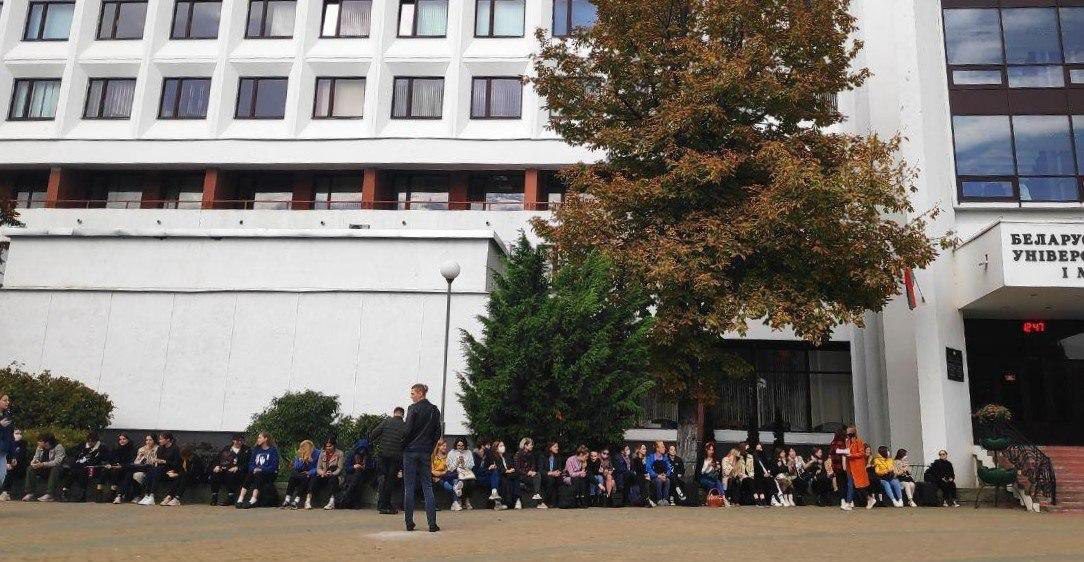
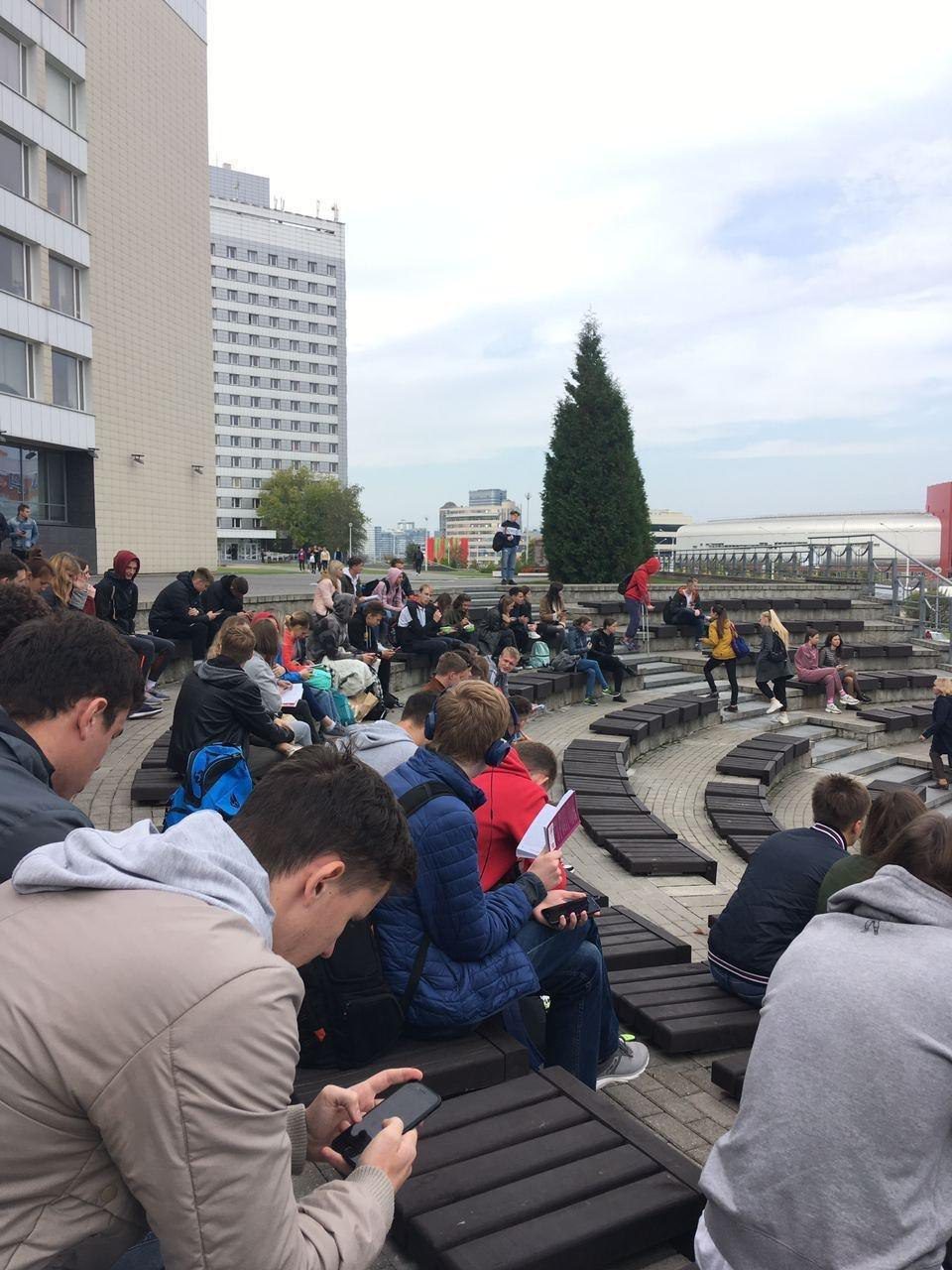
Basketball player Aliena Lieŭčanka was sentenced to 15 days in jail for taking part in protest marches.
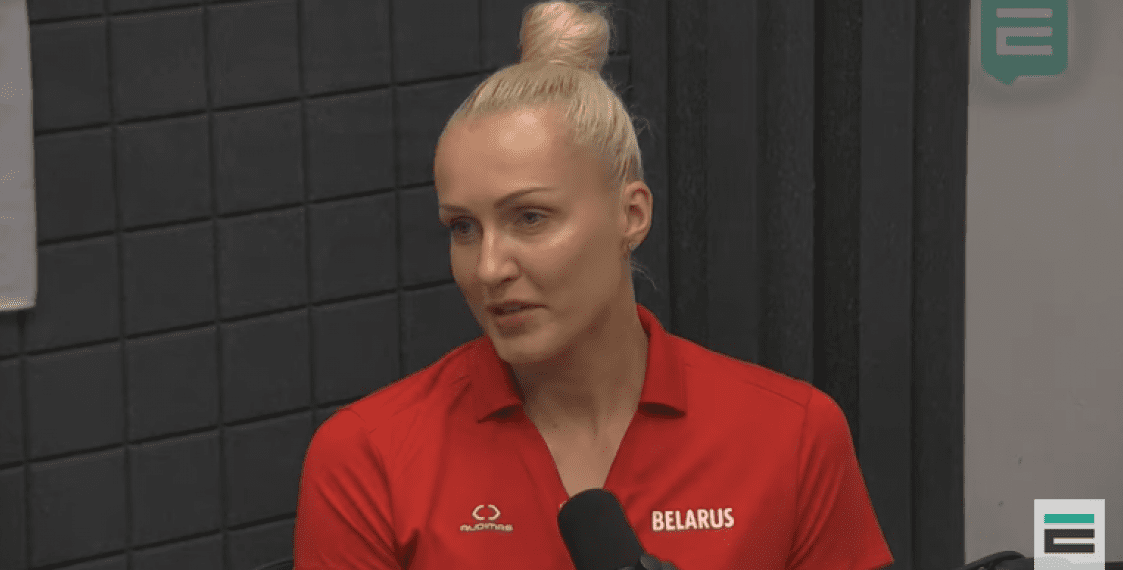
Blogger Eduard Paĺčys, who disappeared the day before, was found in Akresсina Street remand prison.
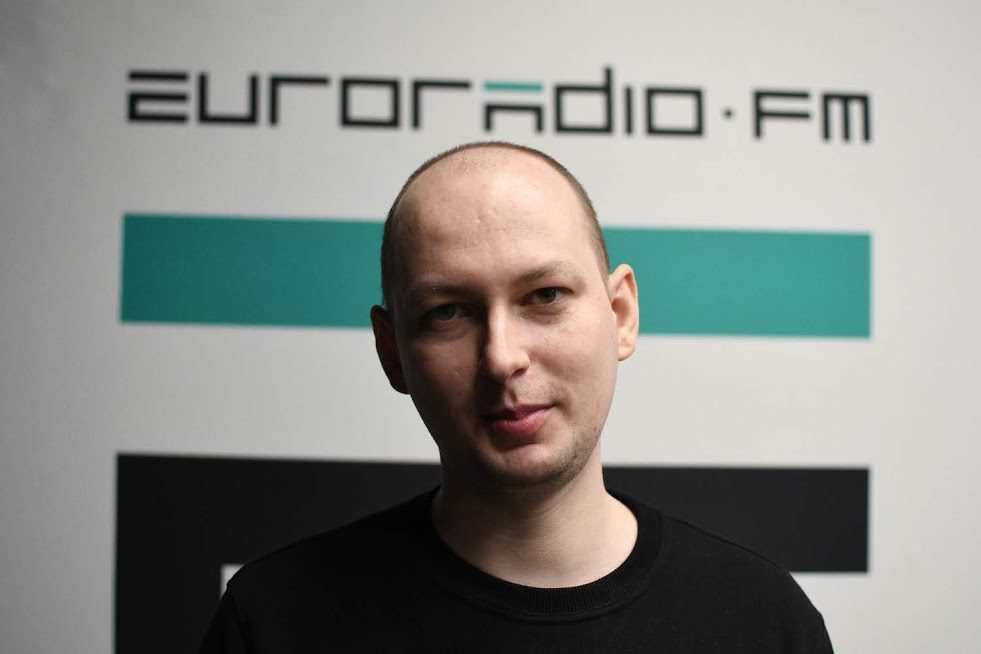
The Ministry of Internal Affairs sent a text message saying, “You have been identified violating the order of holding mass events.” The authors of the message asked people to “make no mistakes”.
The European Union imposed sanctions against 40 Belarusian officials. The Belarusian Foreign Ministry recalled ambassadors “for consultations” and demanded to reduce the number of diplomats working in Belarus from the embassies of Poland and Lithuania.
A new procedure for accrediting foreign journalists in Belarus was introduced by the Ministry of Foreign Affairs.
The Ministry of Internal Affairs threatened parents who come with children to protests with administrative responsibility.
Dzianis Kuzniacoŭ, 41, died in the hospital. He was brought from Akrescin Street with a fractured skull. According to security officials, he died because of “a fall from the second tier of bunks.”
An apartment in Homiel was searched, and the editor-in-chief of the Siĺnyje Novosti News portal, Hanna Jakštas and her husband, were detained.
The march for the release of political prisoners: tens of thousands of Belarusians took to the streets again. About 200 people were detained, and a water cannon was broken.
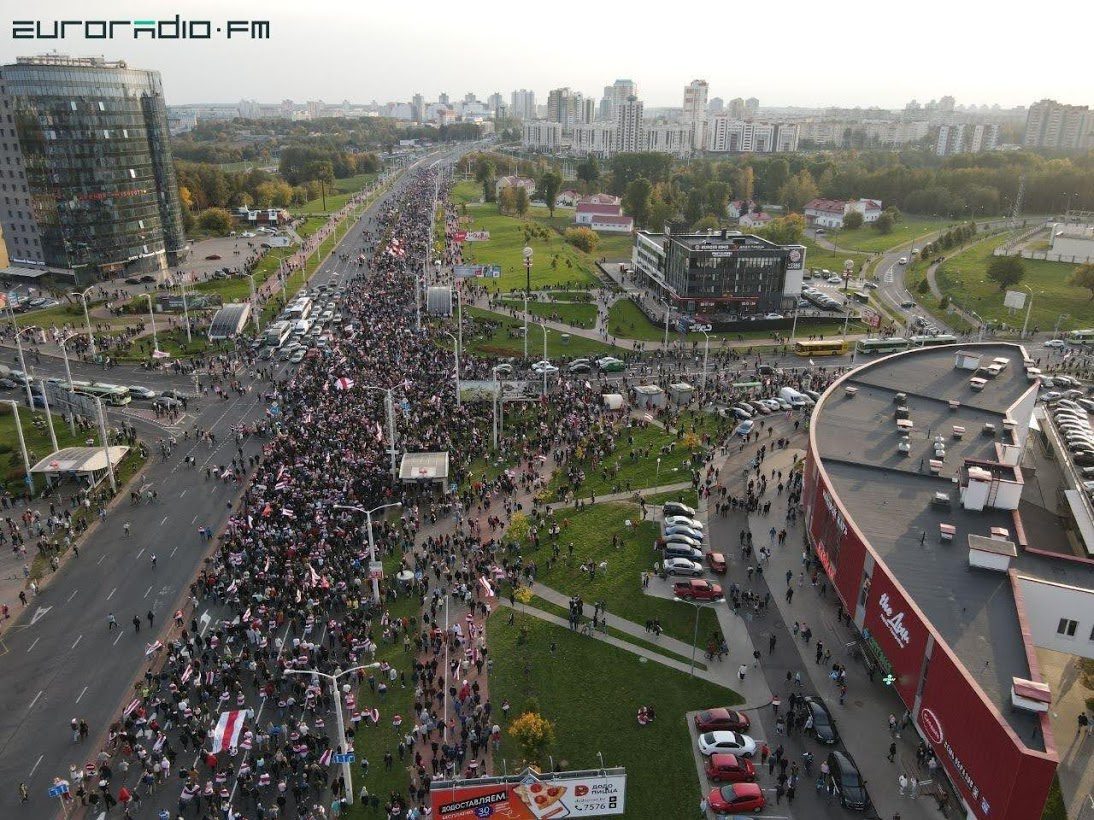
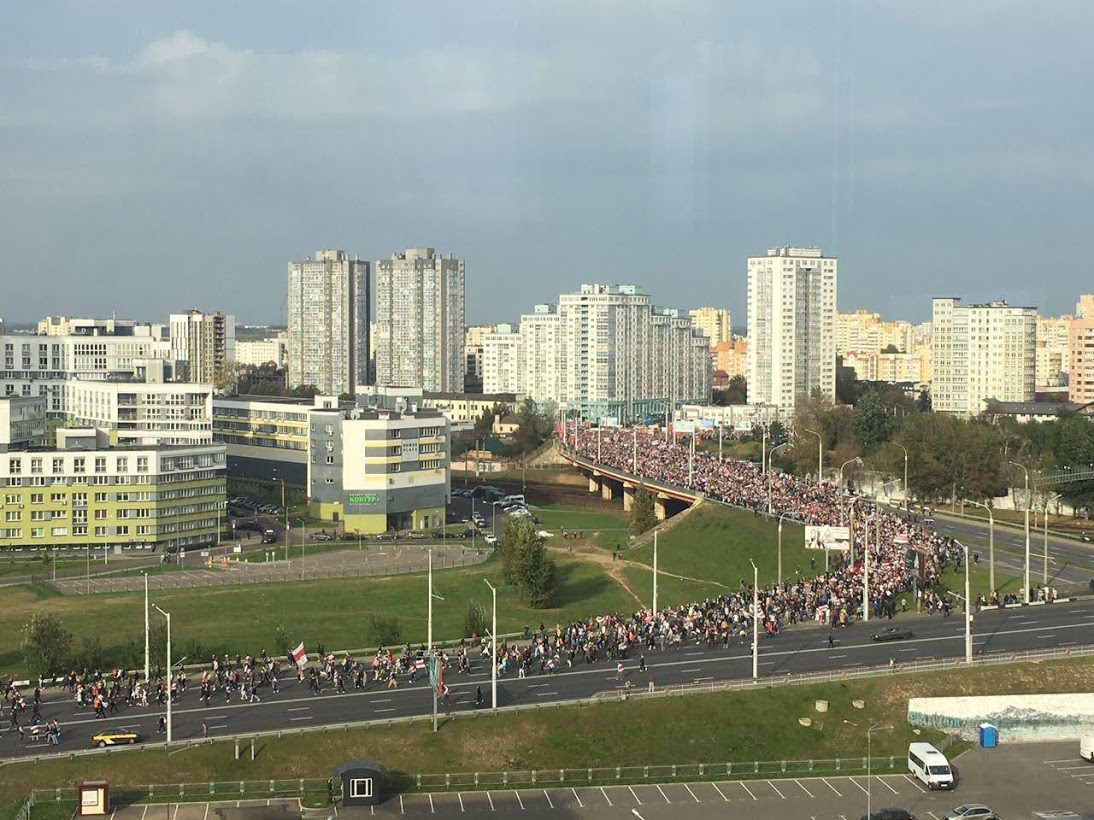
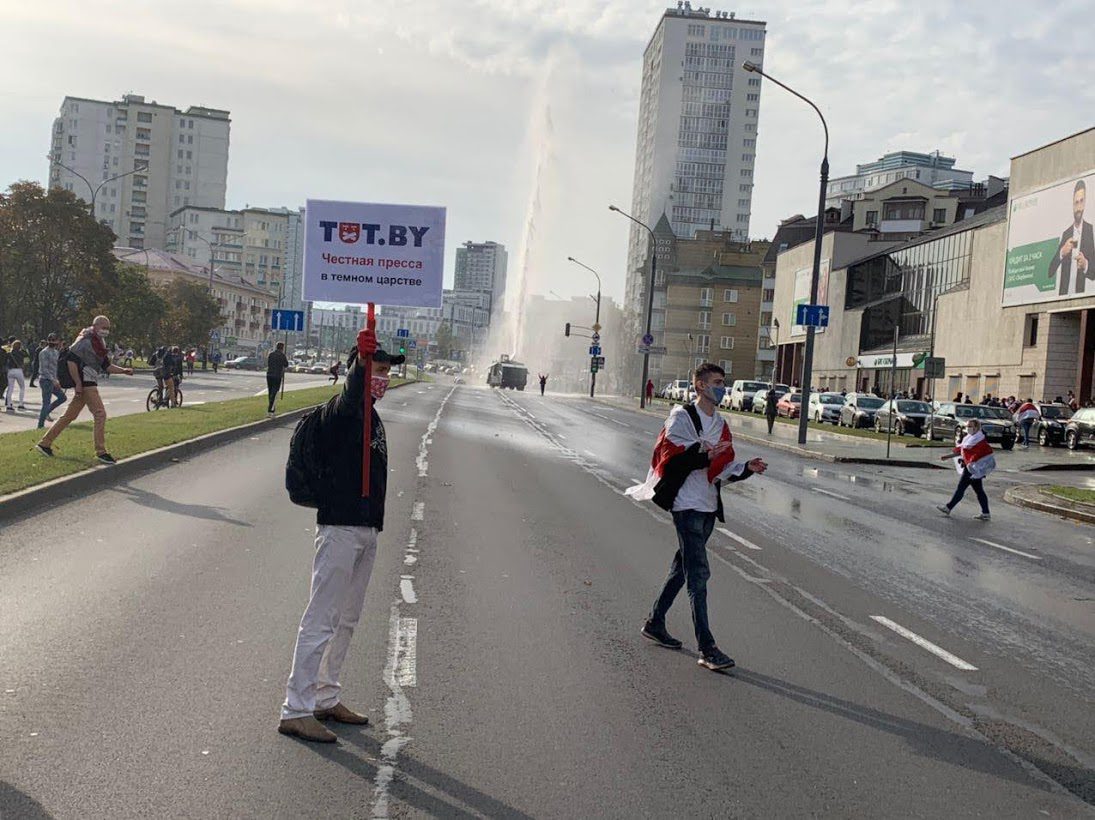
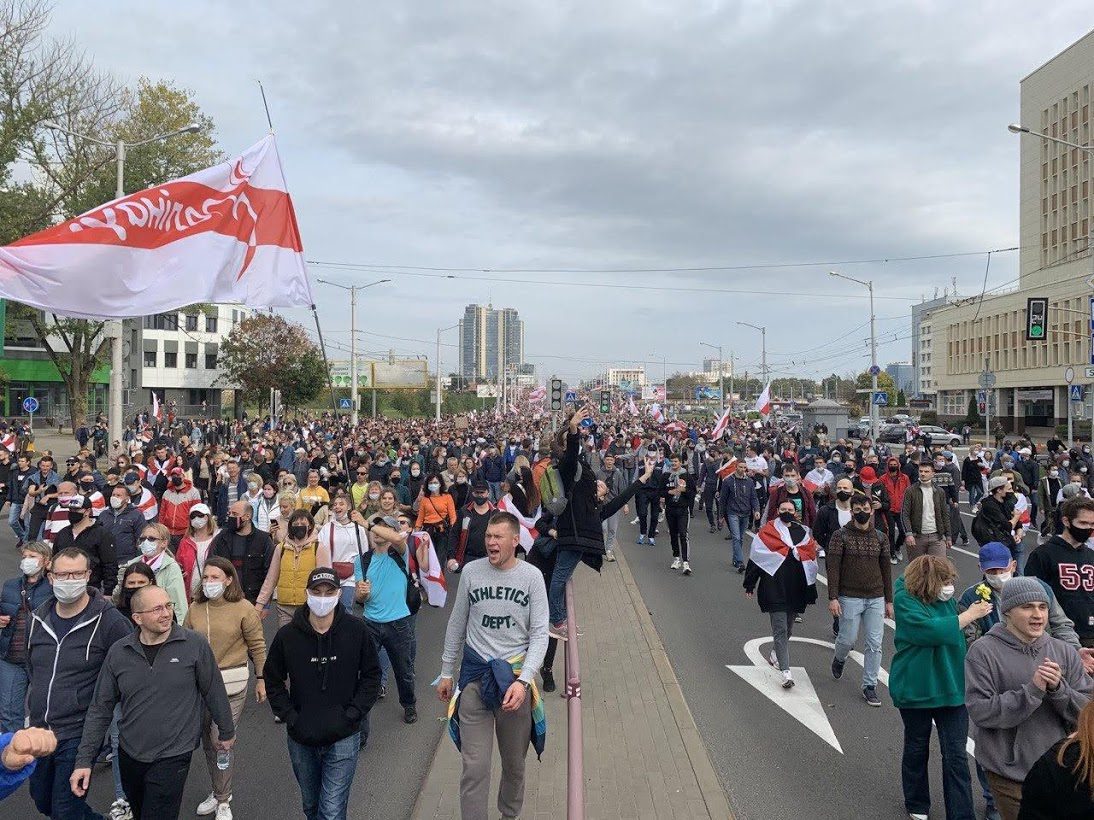
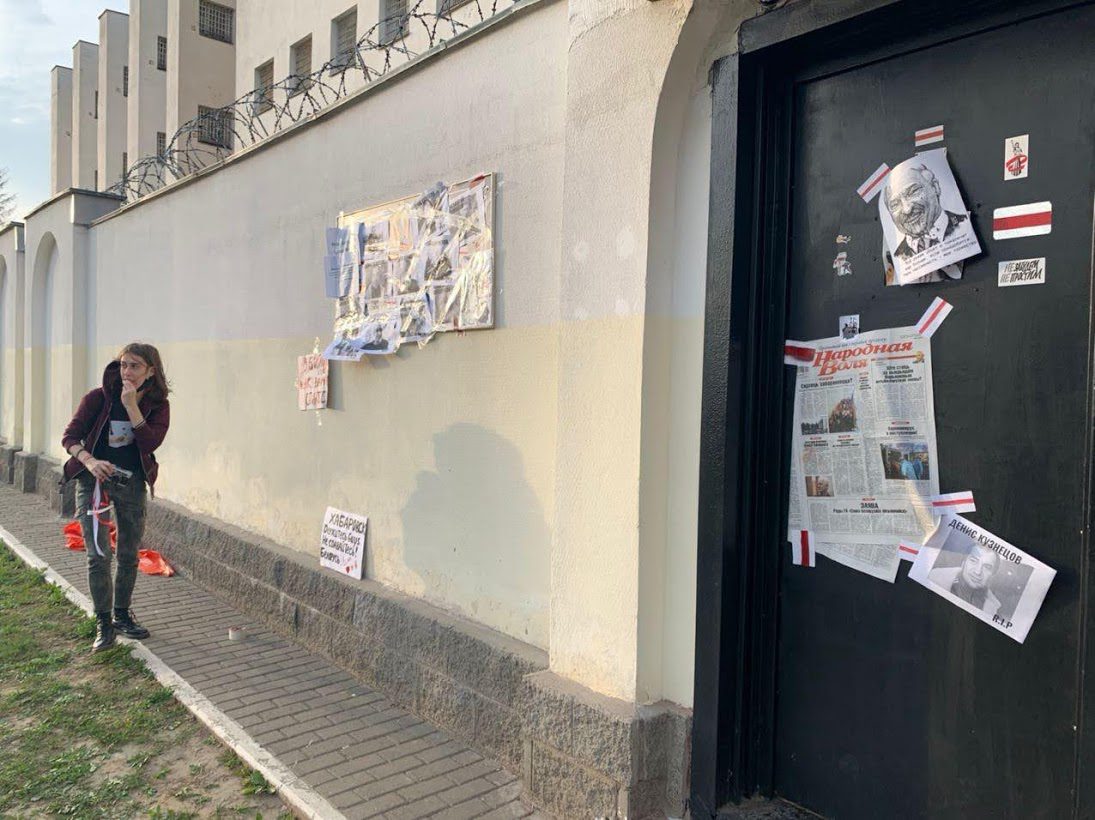
Criminal cases were opened against 19 people for disseminating data on police officers online. There was a female postman among the defendants.
Pensioners gathered for the march at the Red Church in Minsk: they walked along the avenue, and came to the Minsk State Linguistic University to support the protesting students.
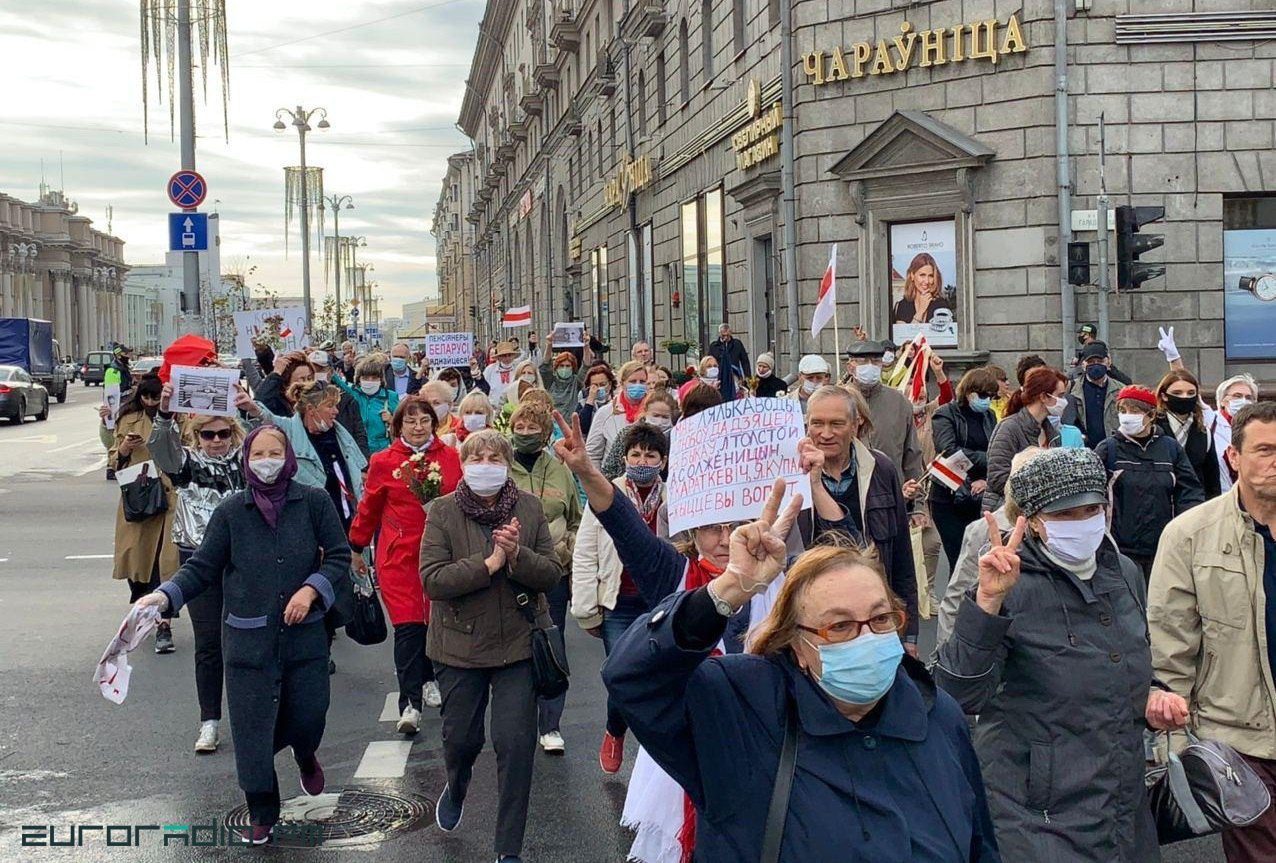
Sviatlana Cichanoŭskaja met Angela Merkel in Berlin and gave her a white-red-white umbrella and a book.
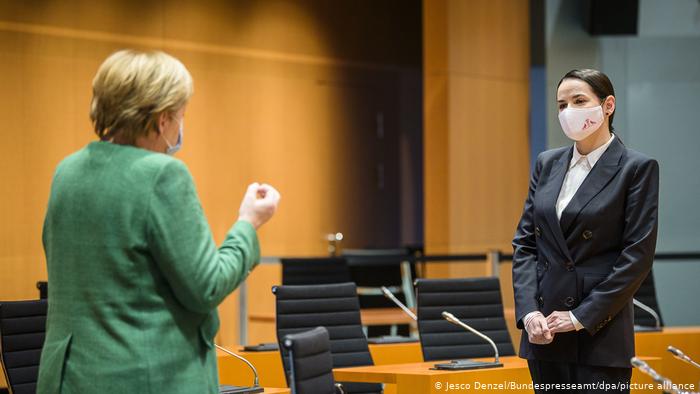
The athlete of 2019 year in Belarus, the world freestyle champion Aliaksandra Ramanoŭskaja was fired for absenteeism. She had previously openly criticised violence.
The rules were changed at Akrescin Street jail: parcels could be given to prisoners not every day, but only on Thursdays.
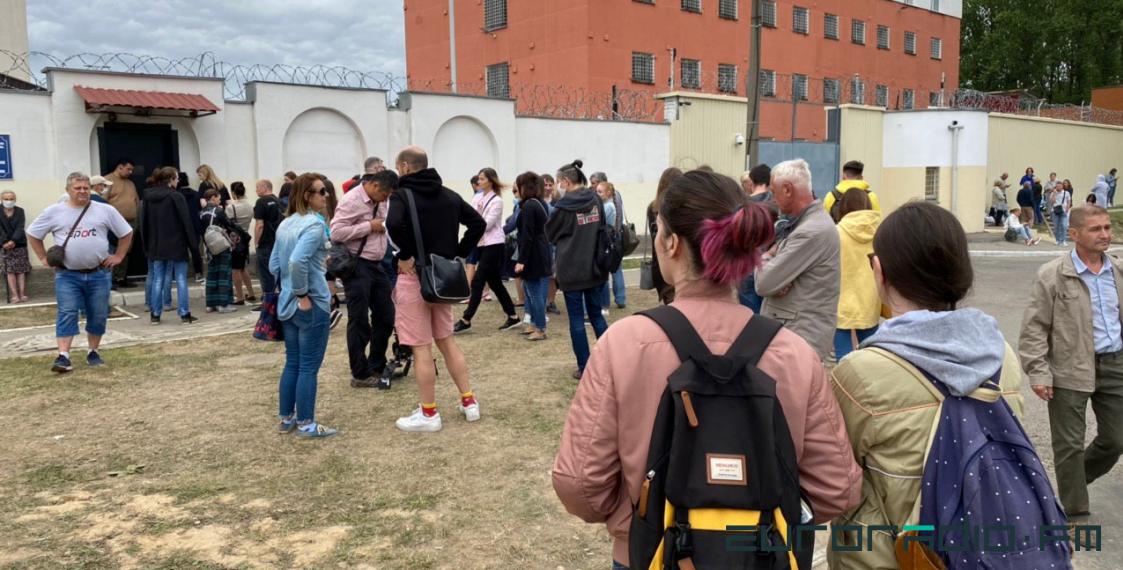
Lithuania blocked the allocation of funds to Belarus within the EU program.
The son of the Viciebsk Mayor spent 13 days in the Akresсin Street remand prison and the Žodzina jail.
A pro-government march with icons, a crucifix and carnations took place in Minsk.
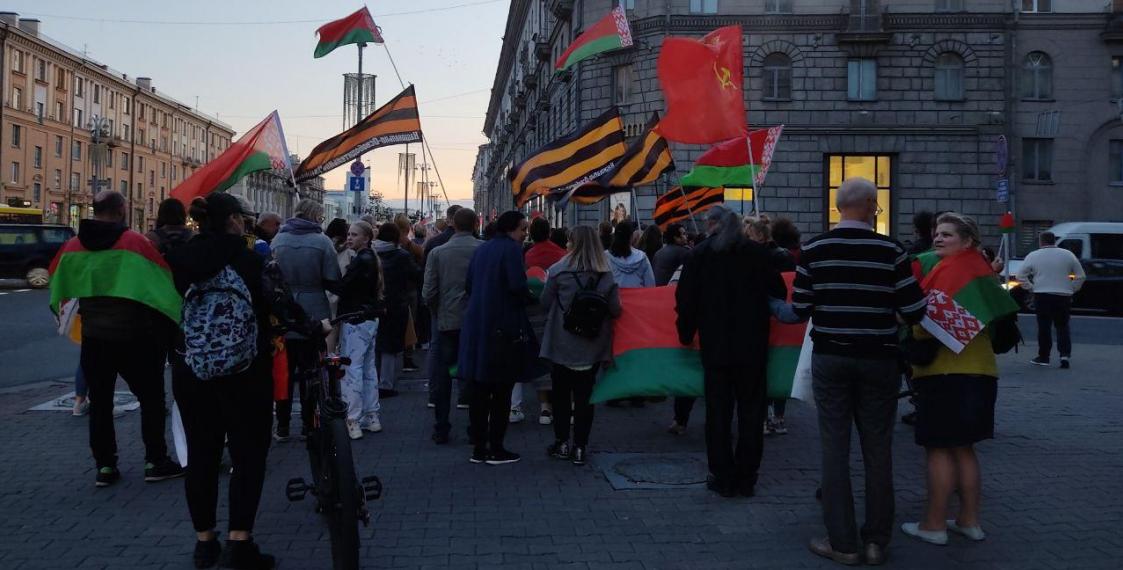
Politician Anatoĺ Liabiedźka was detained, he was sentenced to 15 days of arrest.
Visa centres of Lithuania and Poland in Belarus temporarily stopped accepting documents for visas.
Lukašenka arrived at the KGB pre-trial detention centre and held a round table with banker Viktar Babaryka, his son Eduard, blogger Siarhiej Cichanoŭski, Maksim Znak and other political prisoners.
Siarhiej Cichanoŭski called his wife for the first time in 134 days.
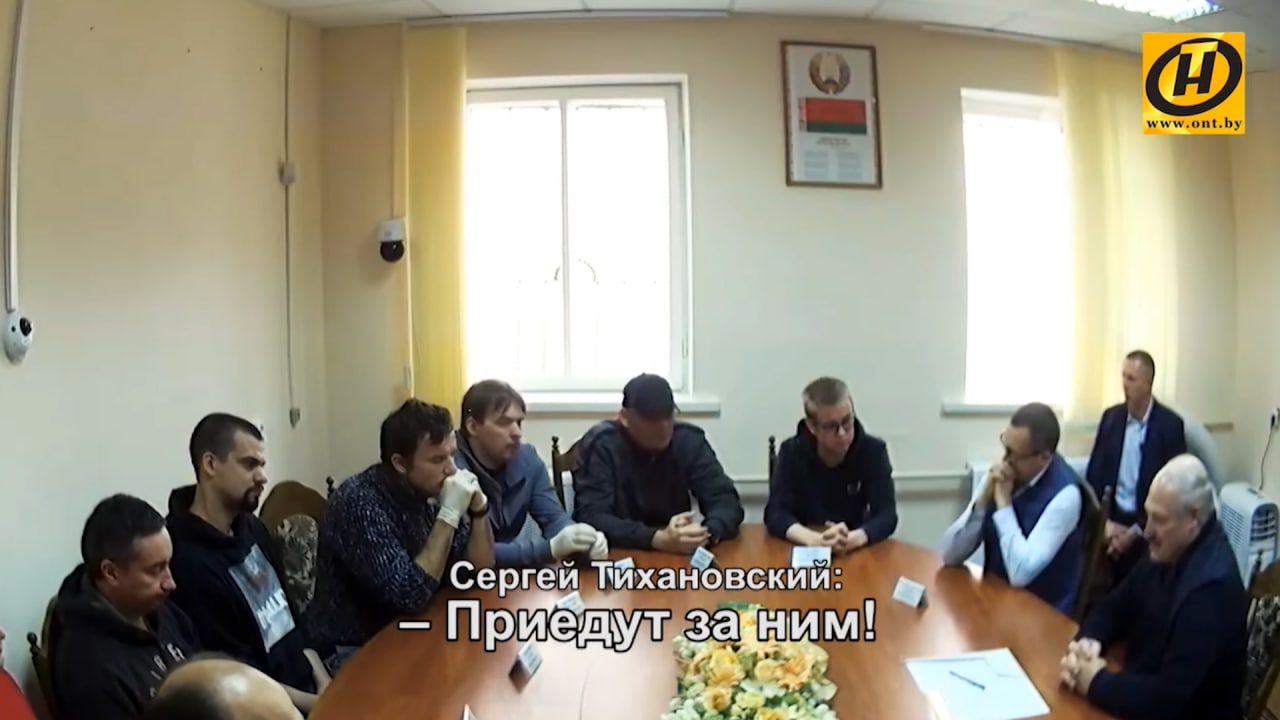
Ambassadors of only two EU countries – Austria and Italy – remained in Minsk.
The Global Women’s March took place in Minsk; its participants walked around the city with flowers. For the first time women were just walking around the city carrying flowers without coordination (because of previous violent actions against protesters).
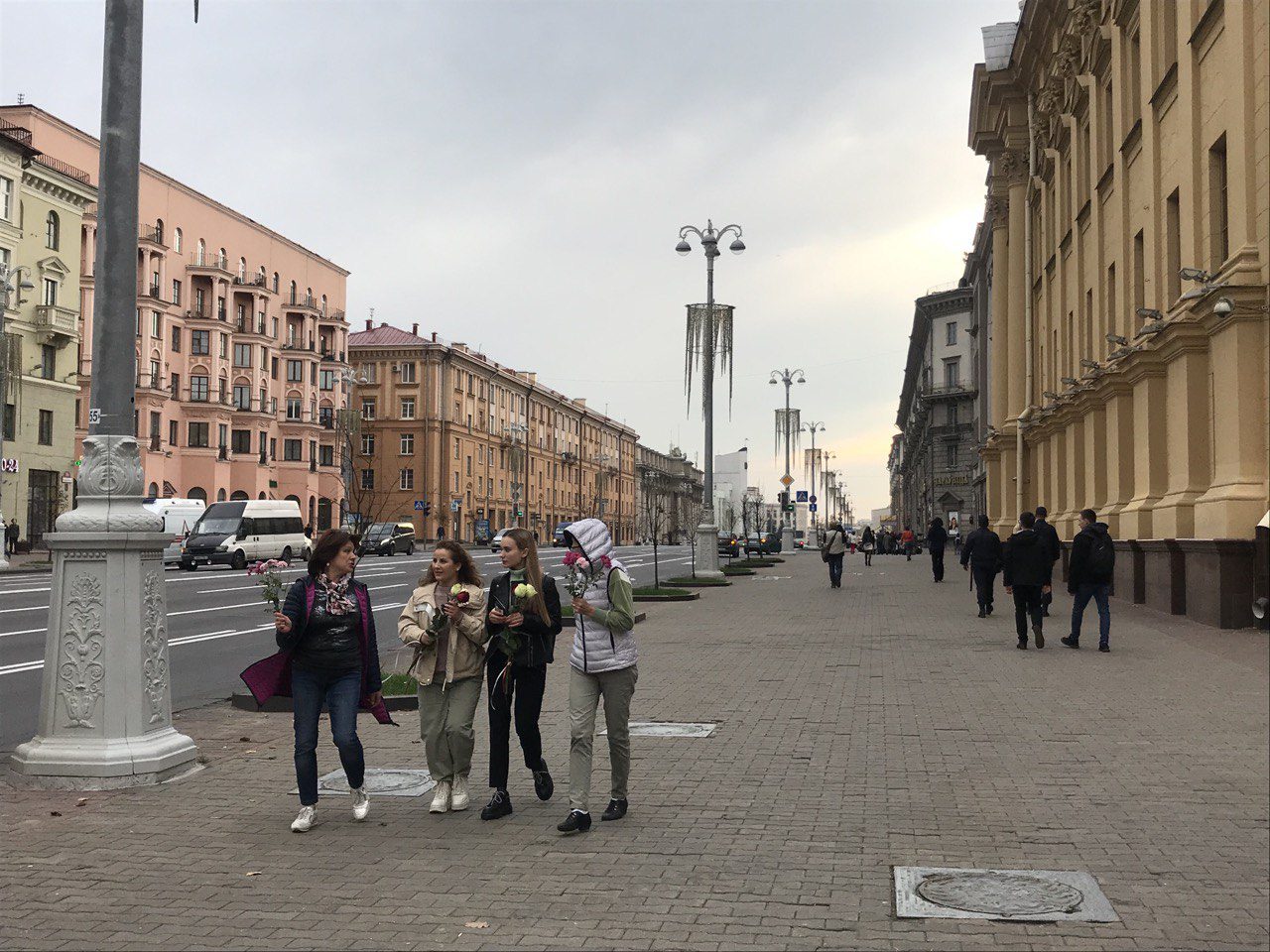
Businessman Juryj Vaskrasienski and director of the IT company PandaDoc Dzmitry Rabcievič were released. They were at a round table with Lukašenka.
The March of Pride was held in place, where more than 40 journalists and about 700 participants were detained.
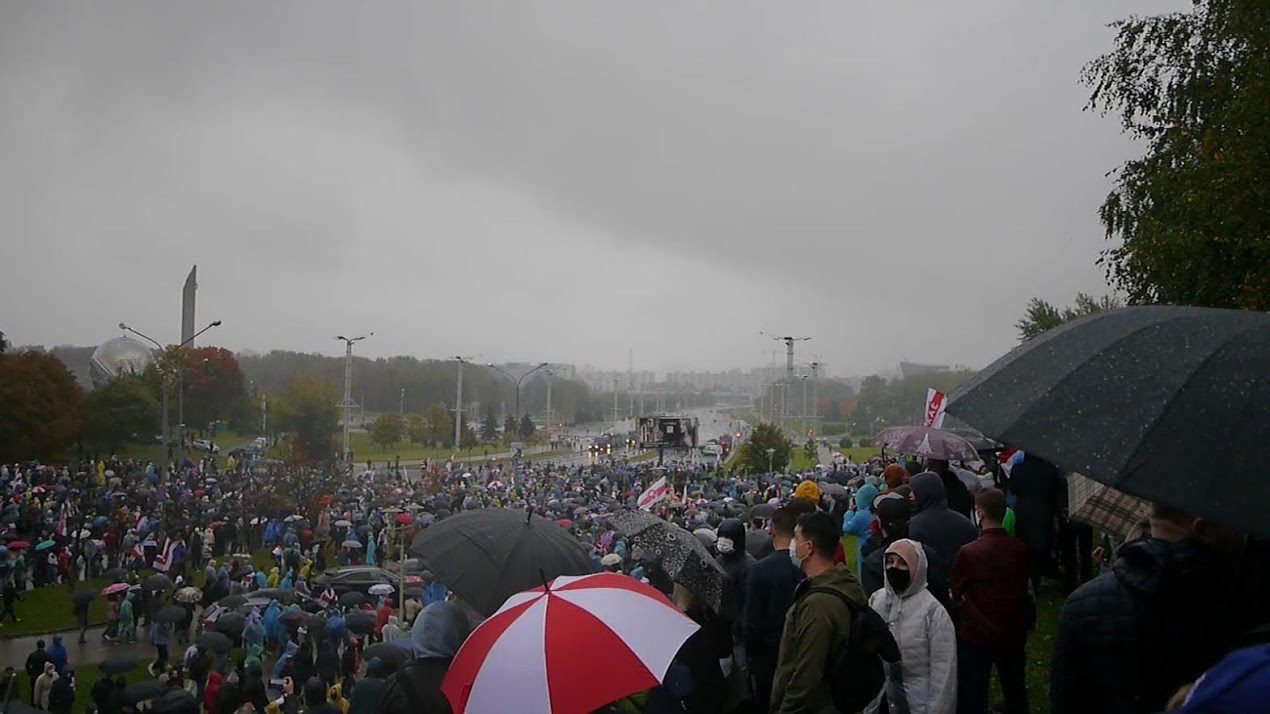
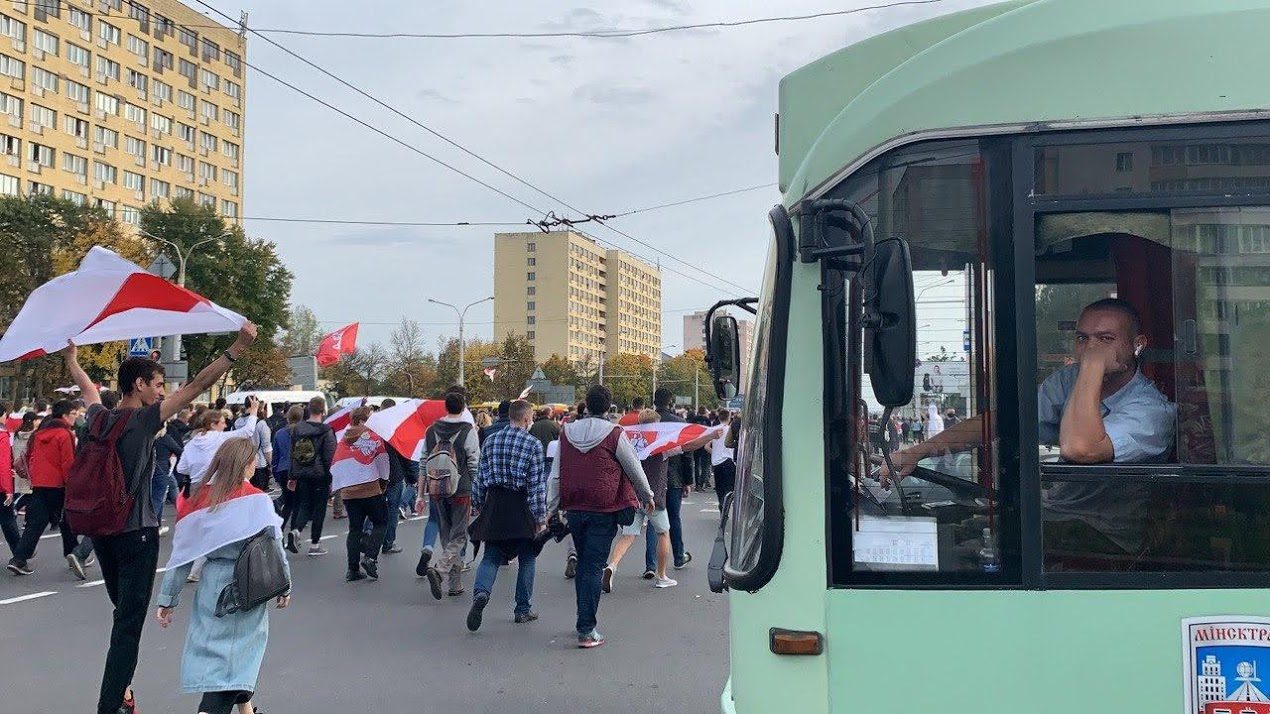
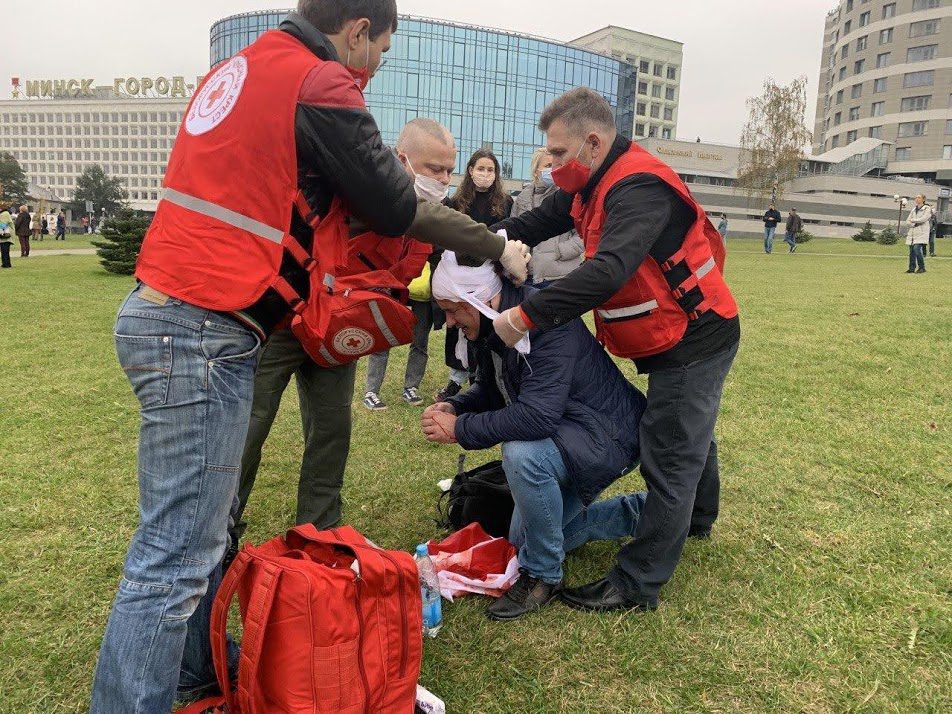
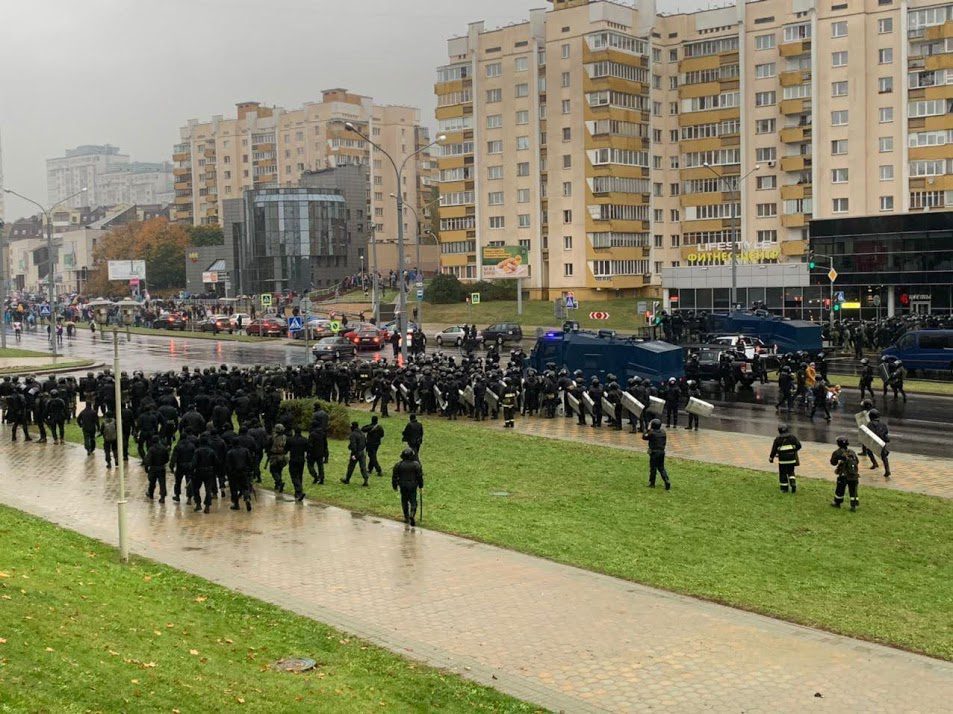
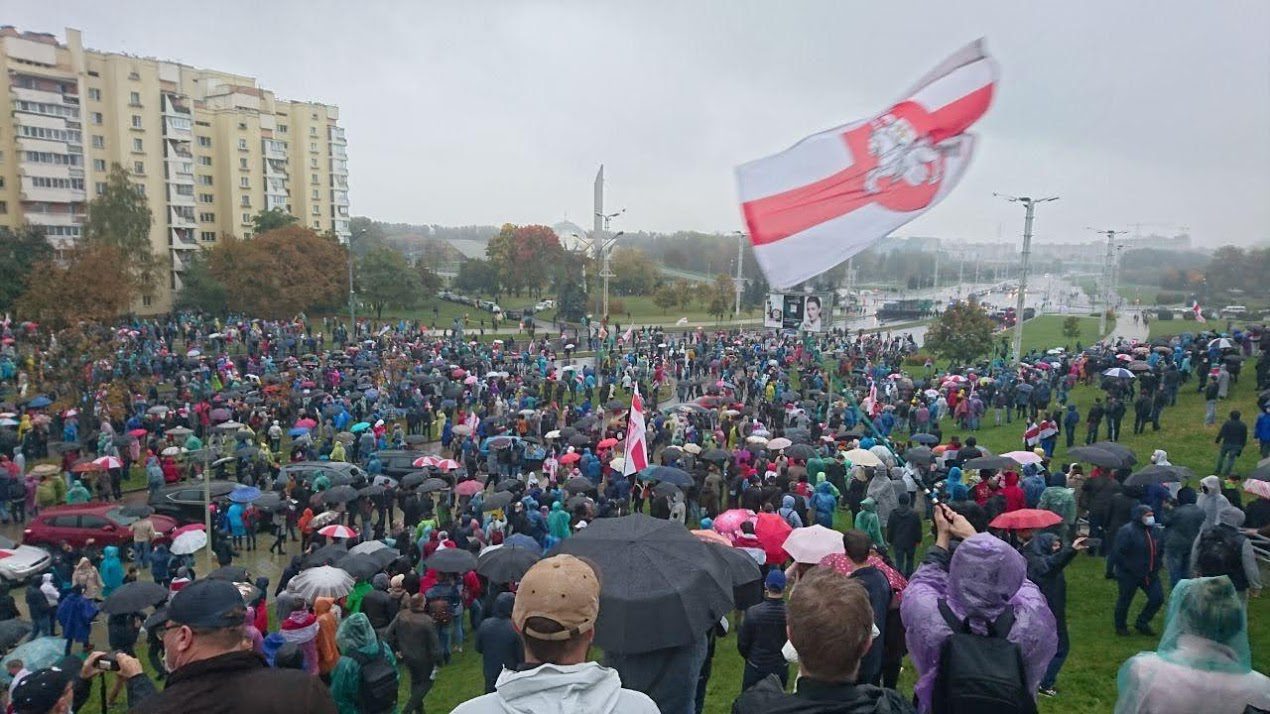
Marches of Pensioners were held in Minsk and other regions. The Ministry of Internal Affairs used flash cartridges and tear gas.
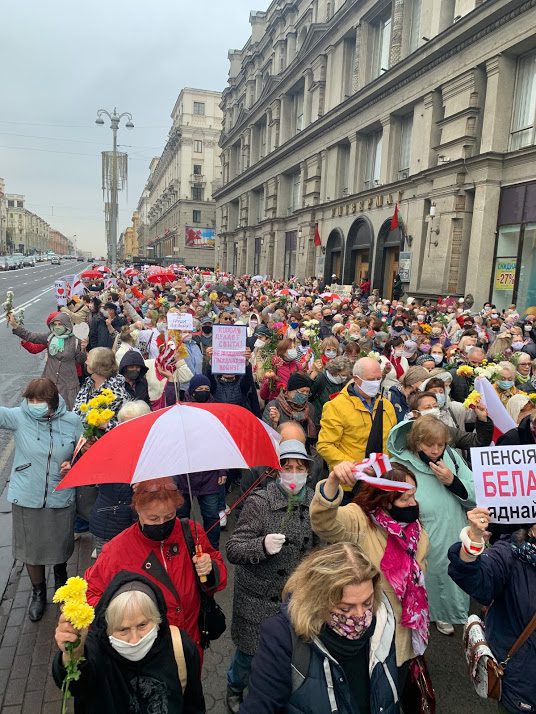
Sviatlana Cichanoŭskaja announced the deadline for the People's Ultimatum until October 25. "The regime has 13 days to fulfill three mandatory requirements:
- Lukašenka should announce his resignation.
- Violence on the streets must stop completely.
- All political prisoners must be released."
Two more defendants in the PandaDoc case were released.
The leader of the MTW strike committee, Siarhiej Dylieŭski, left for Warsaw.
One of the owners of the Piervyj Сvietnoj flower shop, Maksim Charošyn, was brutally detained. The man was severely beaten – an ambulance took him away from the police station.
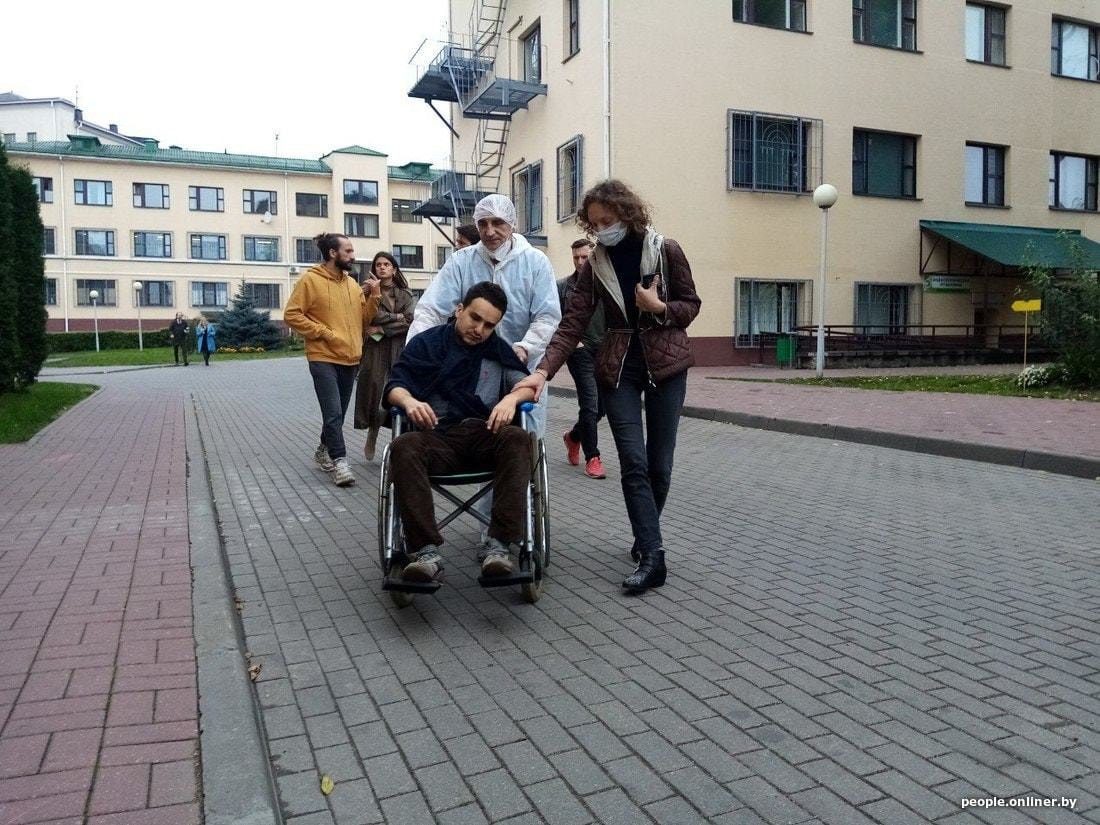
Two riot policemen wearing balaclavas and with changed voices declared on the STV TV channel that they would not leave the Belarusian streets.
Three-time Olympic medalist Aliaksandra Hierasimienia moved to Vilnius and headed the Belarusian Sports Solidarity Fund. The world champion in Thai boxing and kickboxing, Vitaĺ Hurkoŭ, left for Ukraine.
People stood in line at the Piervyj Сvietnoj shop all day long.
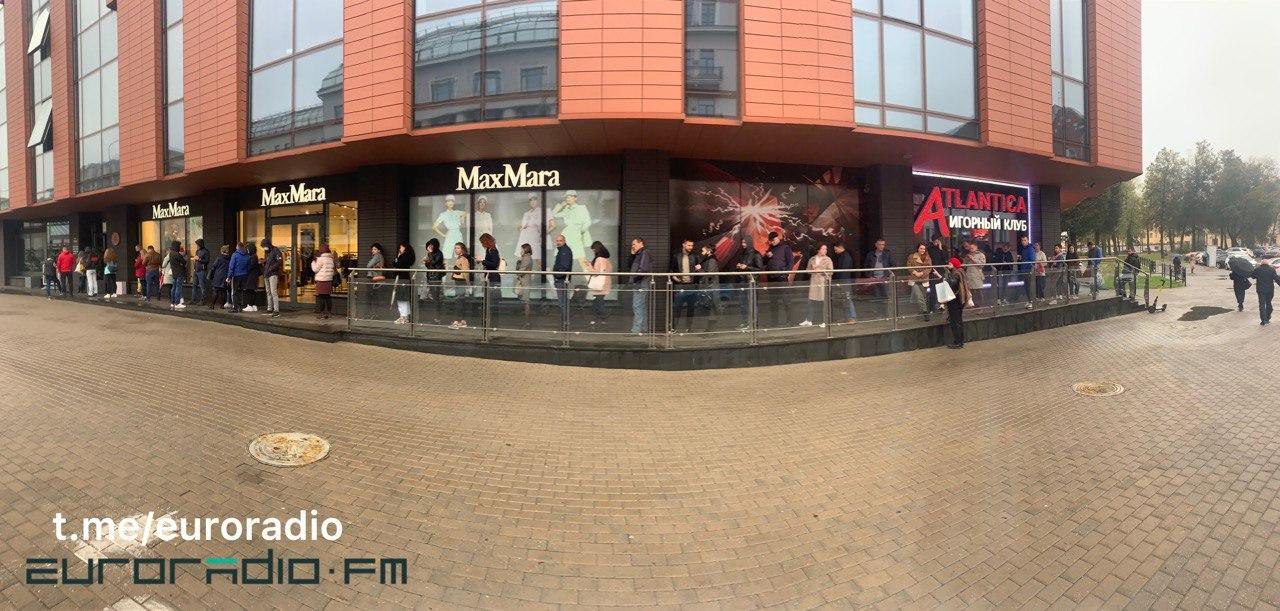
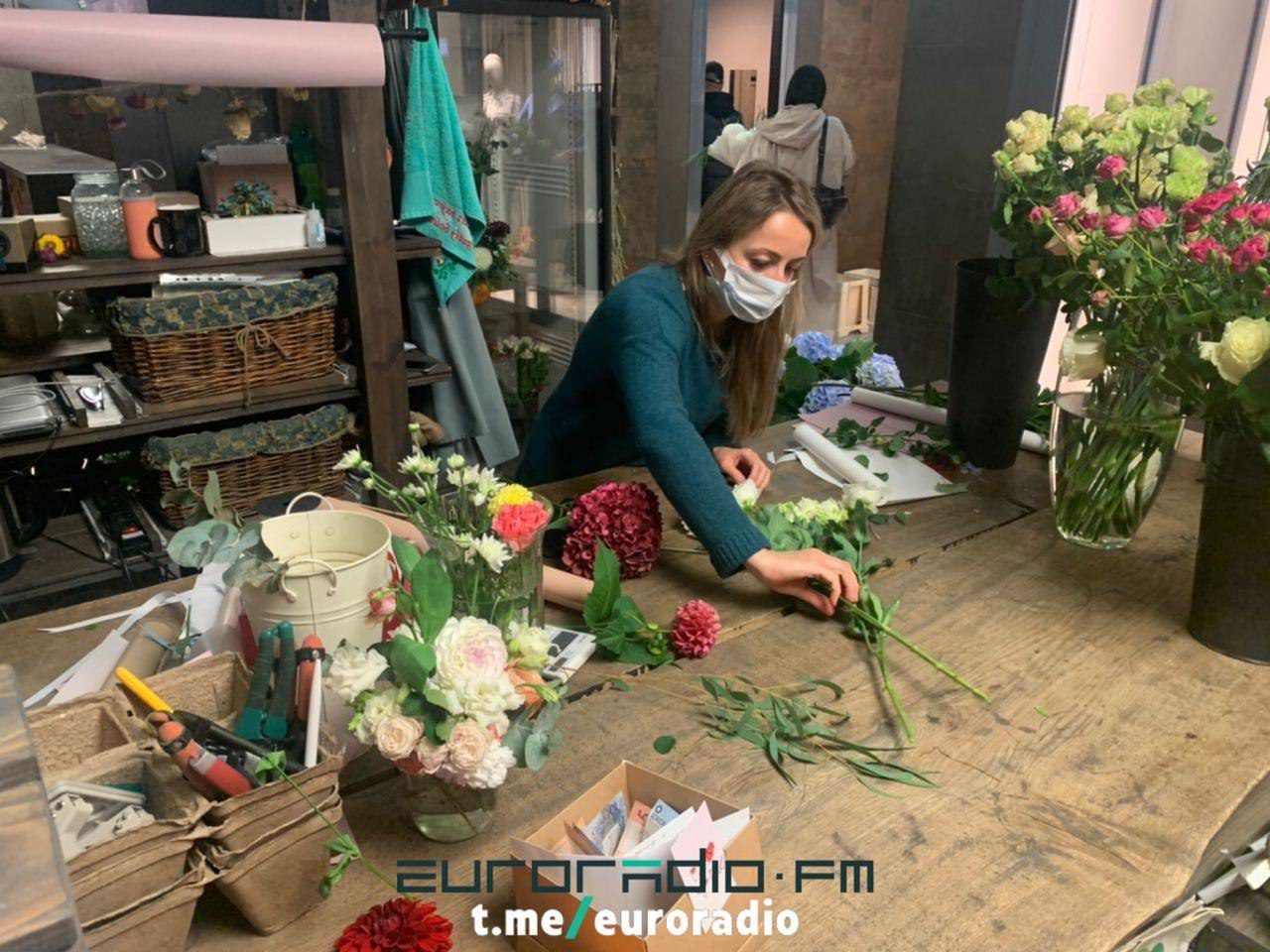
The licence of Aliaksandr Pyĺčanka, a lawyer of Viktar Babaryka and Maryja Kaliesnikava, was revoked.
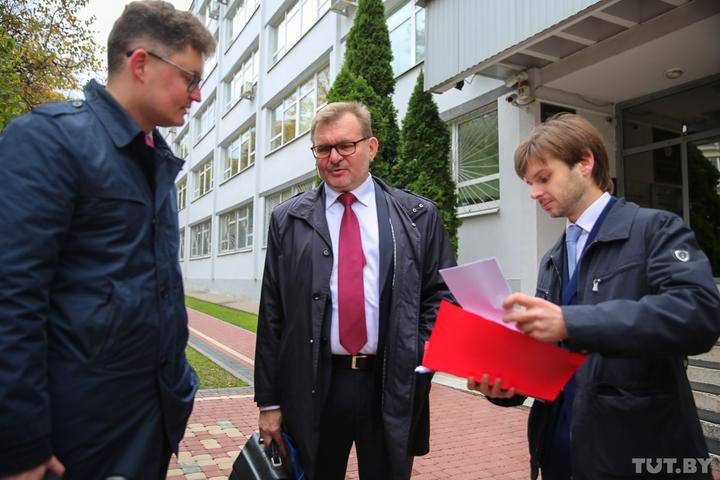
A march of people with disabilities took place in Minsk.
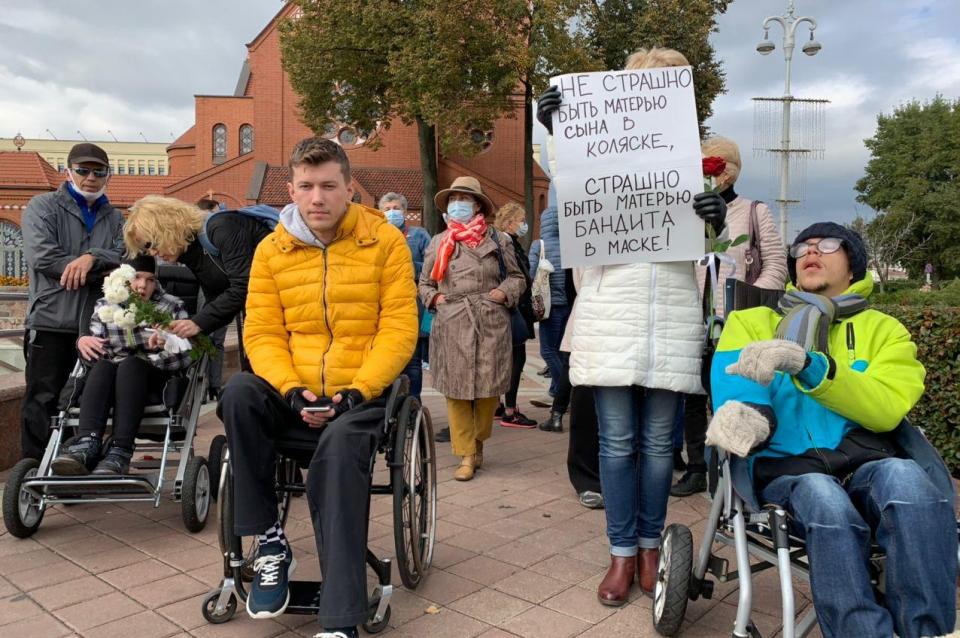
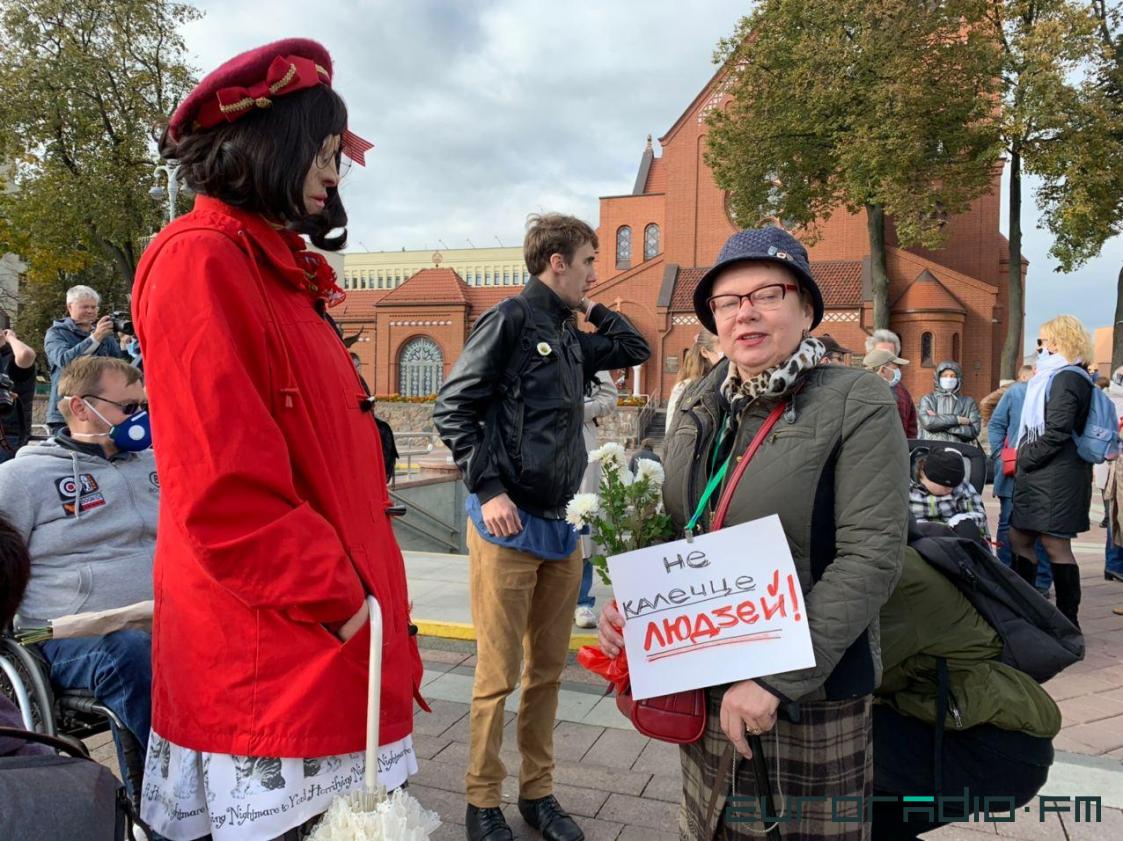
In Minsk, protesters blocked the ring road in the morning.
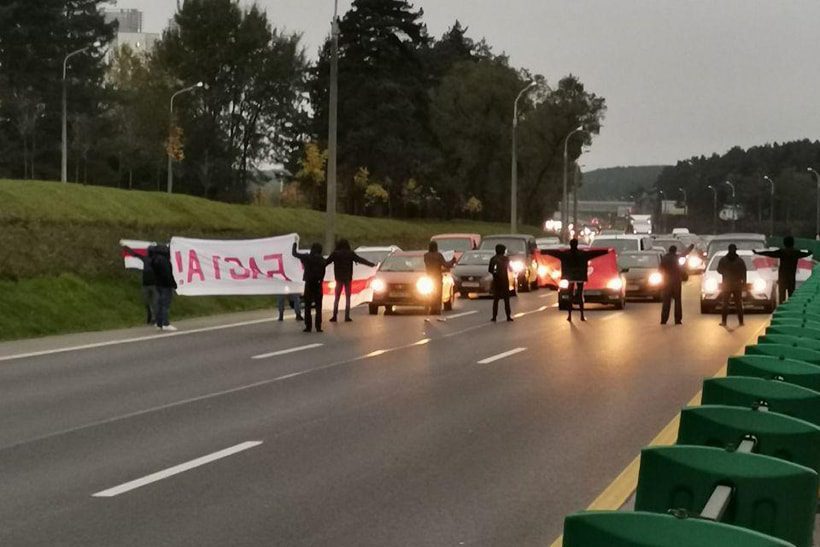
In Hrodna, the director of the children’s hospice, Voĺha Vialička, was sentenced. She was detained the day before at a charity meeting. A protocol was drawn up of the hospice for participating in the rally, which took place more than a month ago.
The head of GUBAZiK (the Main Directorate for combating organized crime), Mikalaj Karpiankoŭ, said that lethal weapons, including firearms, would be humanely used against the protesters.
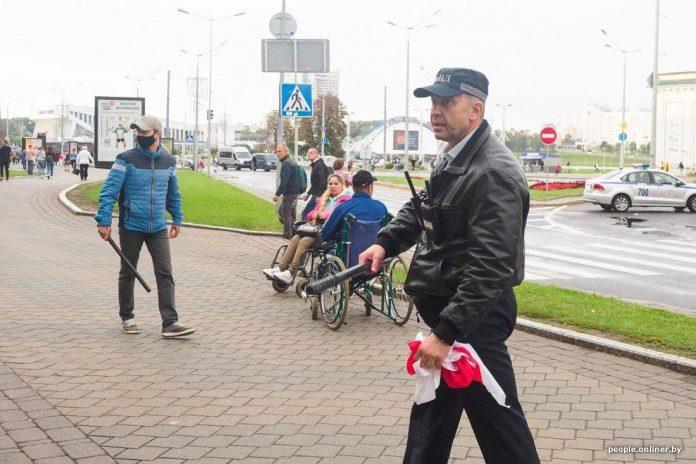
Lawyer of Illia Saliej was released home from the pre-trial detention centre.
Journalists were detained at the Women’s March and student rally: Darja Spiavak got sentenced to 13 days, Vadzim Zamiroŭski, Usievalad Zarubin and Arciom Majoraŭ got sentenced to 15 days in jail each.
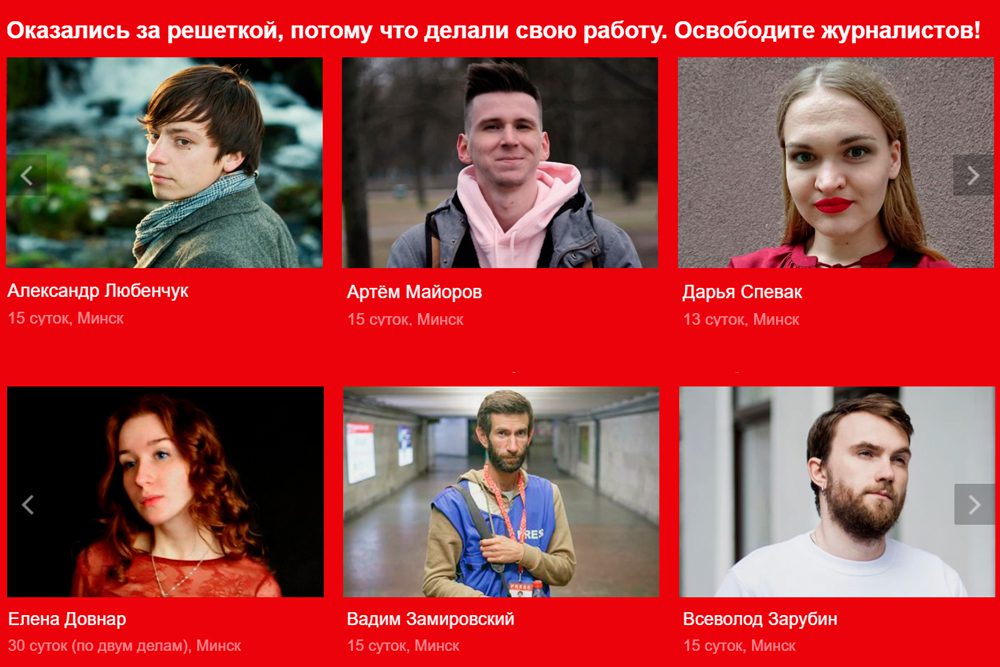
A Norwegian MP nominated Cichanoŭskaja, Kaliesnikava and Capkala for the Nobel Peace Prize.
The owner of a flower shop Maksim Charošyn left Belarus for rehabilitation.
A large-scale Partisan March was held with 280 people detained. Shots were fired in Minsk (the police said they were fired in the air, but it looked different on the video).
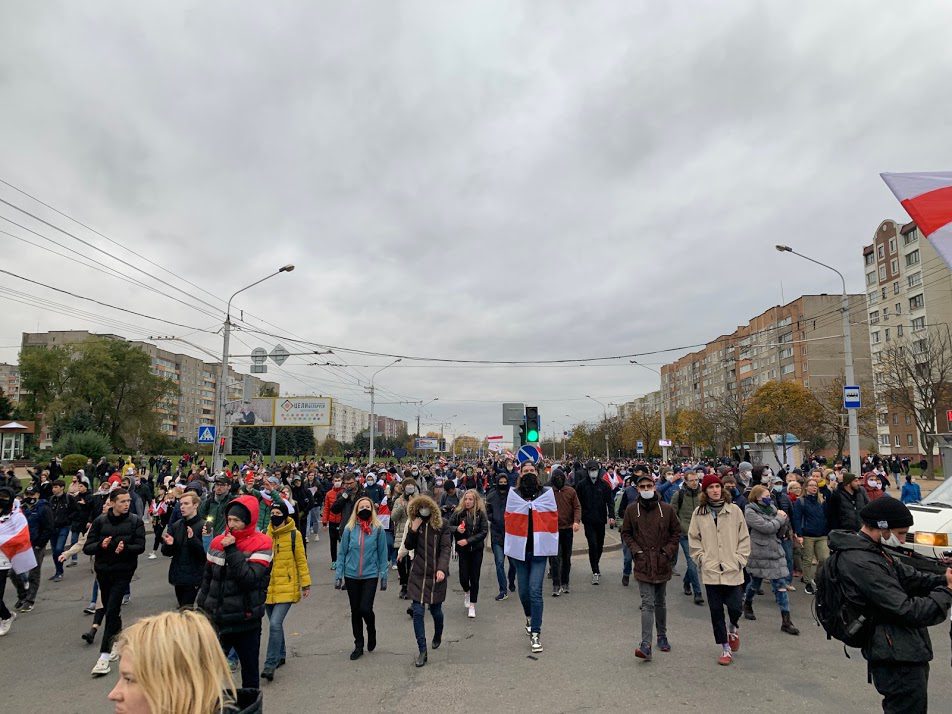
The political strategist Vitalij Škliaraŭ and the member of the Constitutional Court praesidium Lilija Ulasava were released. They were among the participants in the meeting with Lukašenka in the KGB pre-trial detention centre.
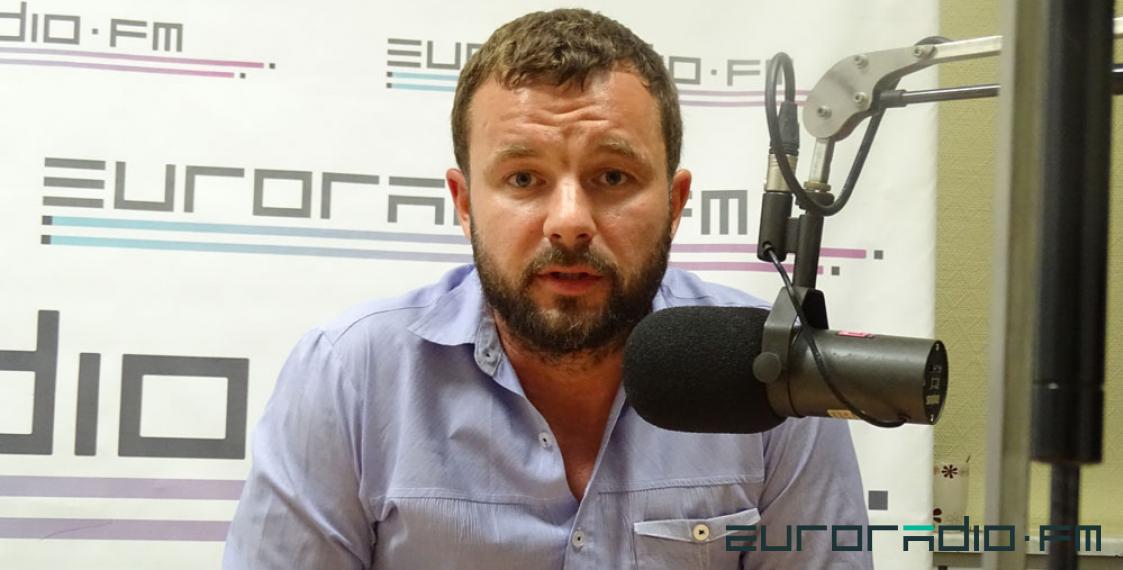
Minsk hosted two marches of pensioners – one pro-government and the second under white-red-white flags.
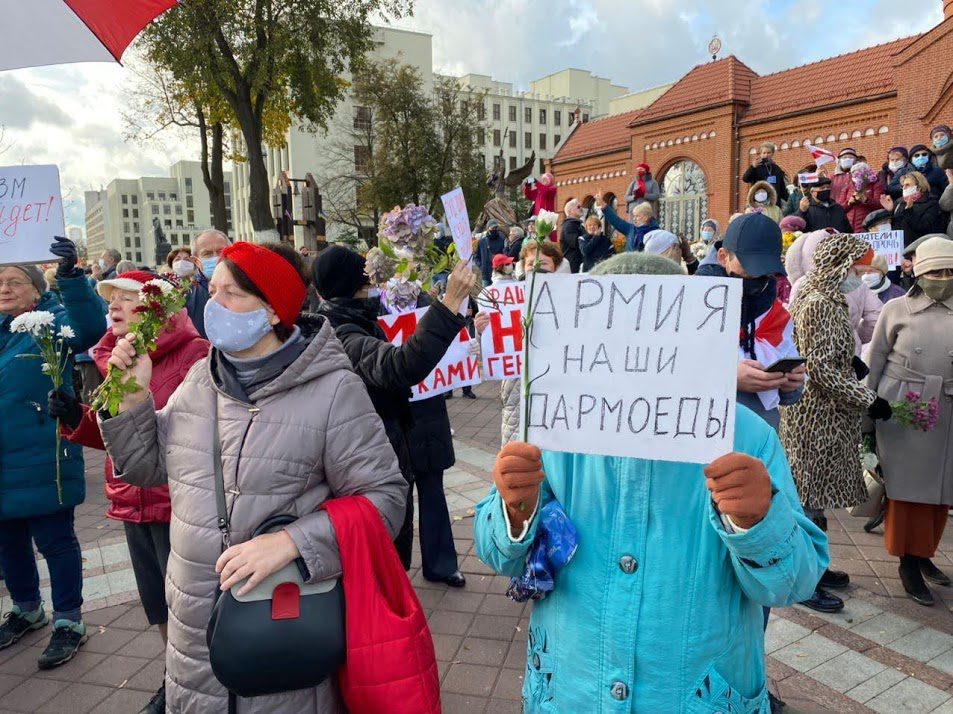
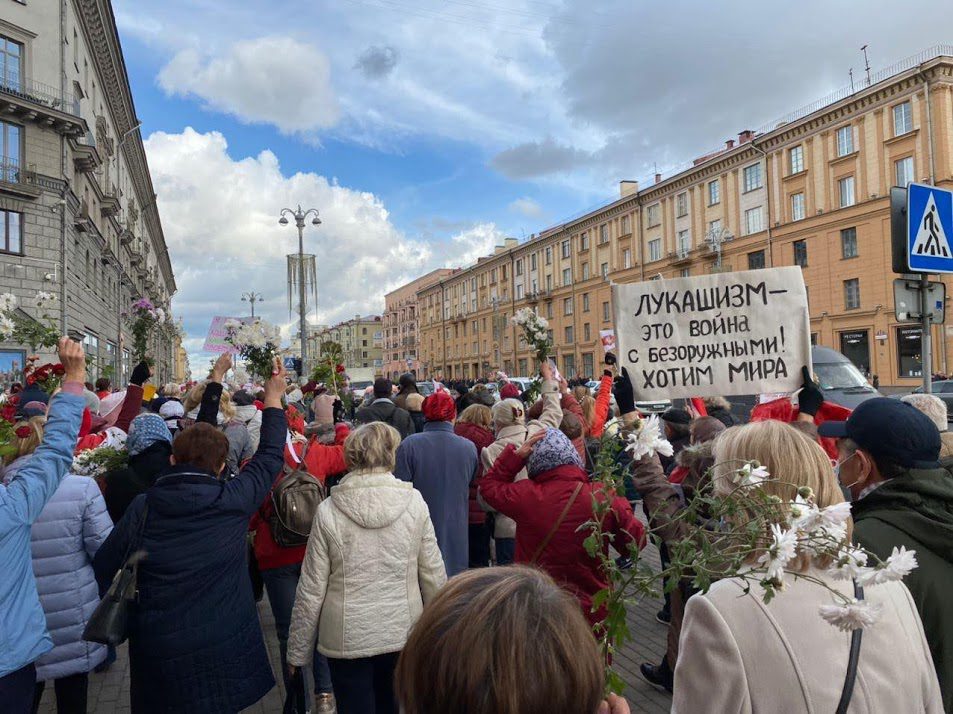
The logo and publications of the Telegram channel NEXTA and NEXTA-Live were recognised as extremist.
The list of political prisoners in Belarus increased to 102 people.
The Sakharov Prize for 2020 in the field of human rights was awarded to the Belarusian opposition.
The People's Ultimatum March took place. By the evening, peaceful protesters were dispersed with flash grenades. Security officials were running around the neighbourhood near Arloŭskaja street. The riot police forced their way into a private apartment to arrest the people hiding there. More than 500 people were detained at the march.
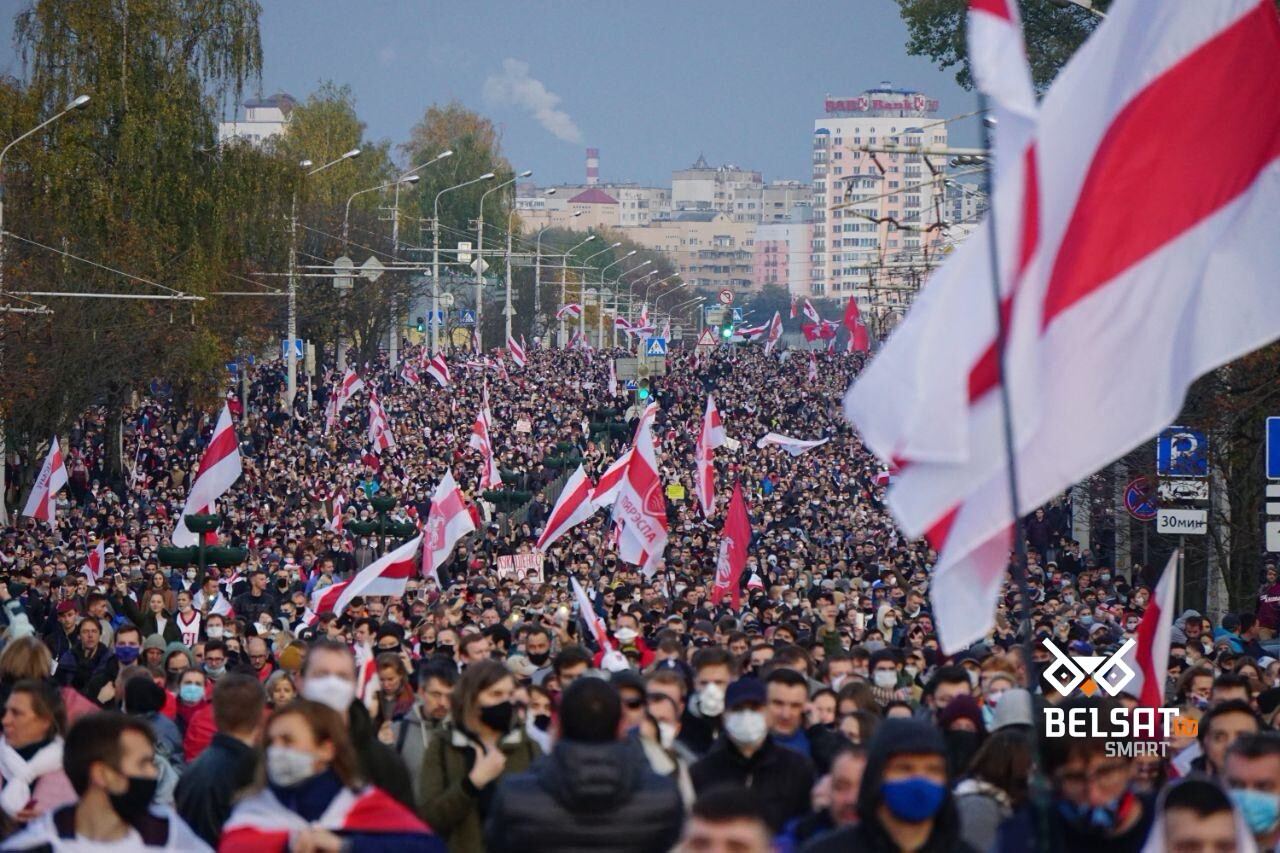
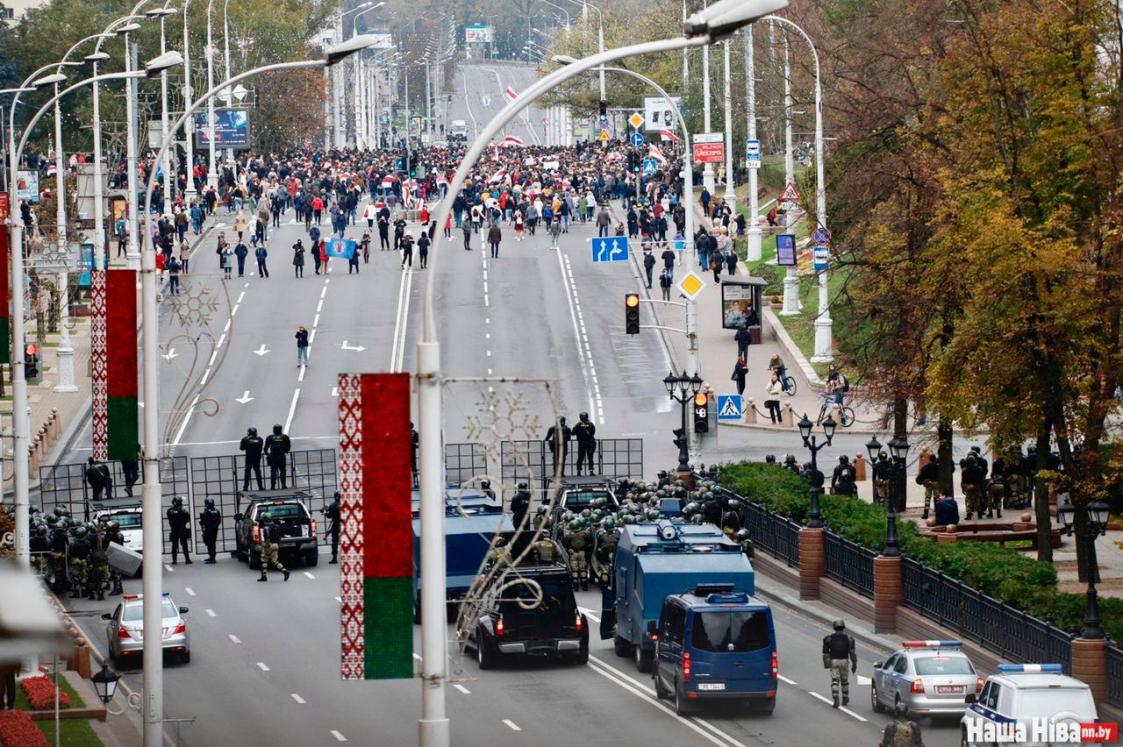
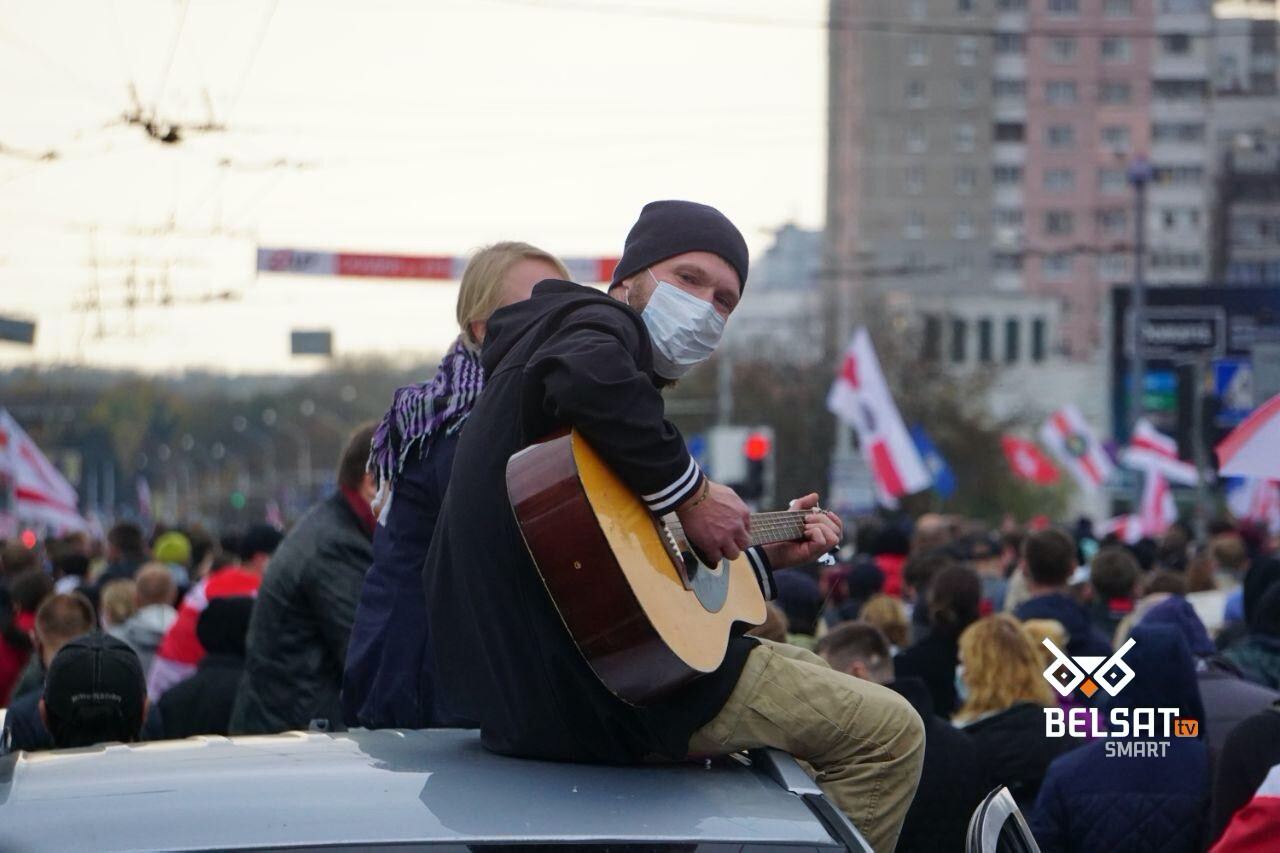
BY_help spent over $1.1 million in post-election relief.
A nationwide strike began – Hrodna Azot, Belaruskali, MTW, Atlant joined it. The workers of Bielarusnieft who went on strike were fired.
A joint march of students and pensioners took place in Minsk.
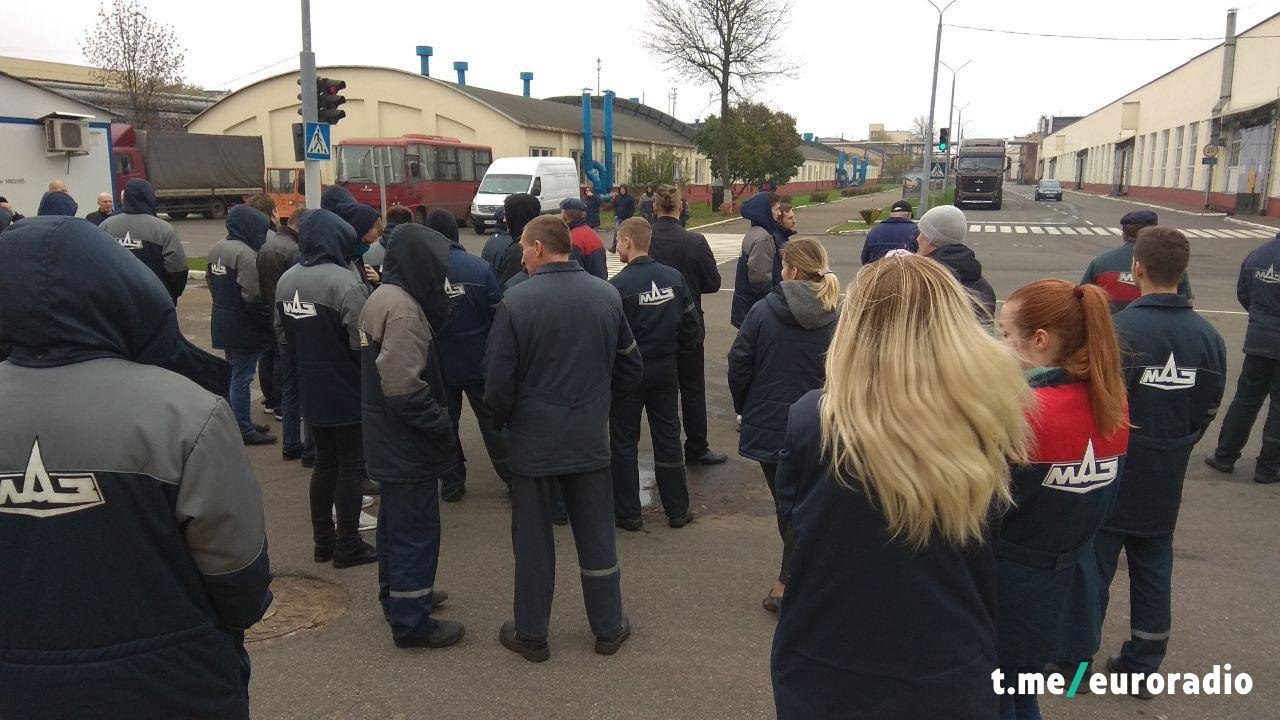
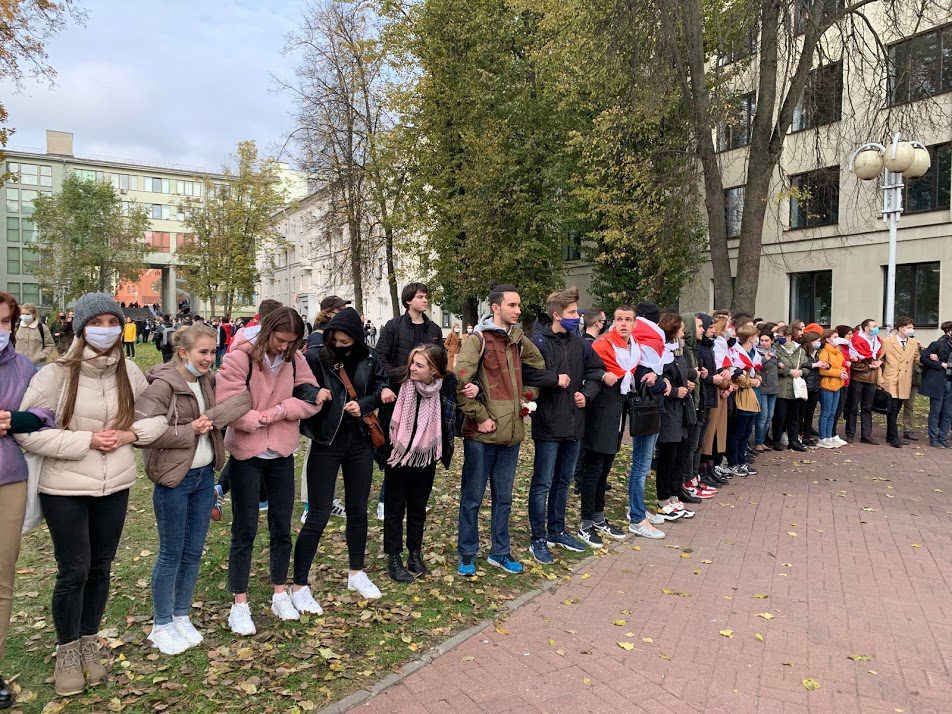
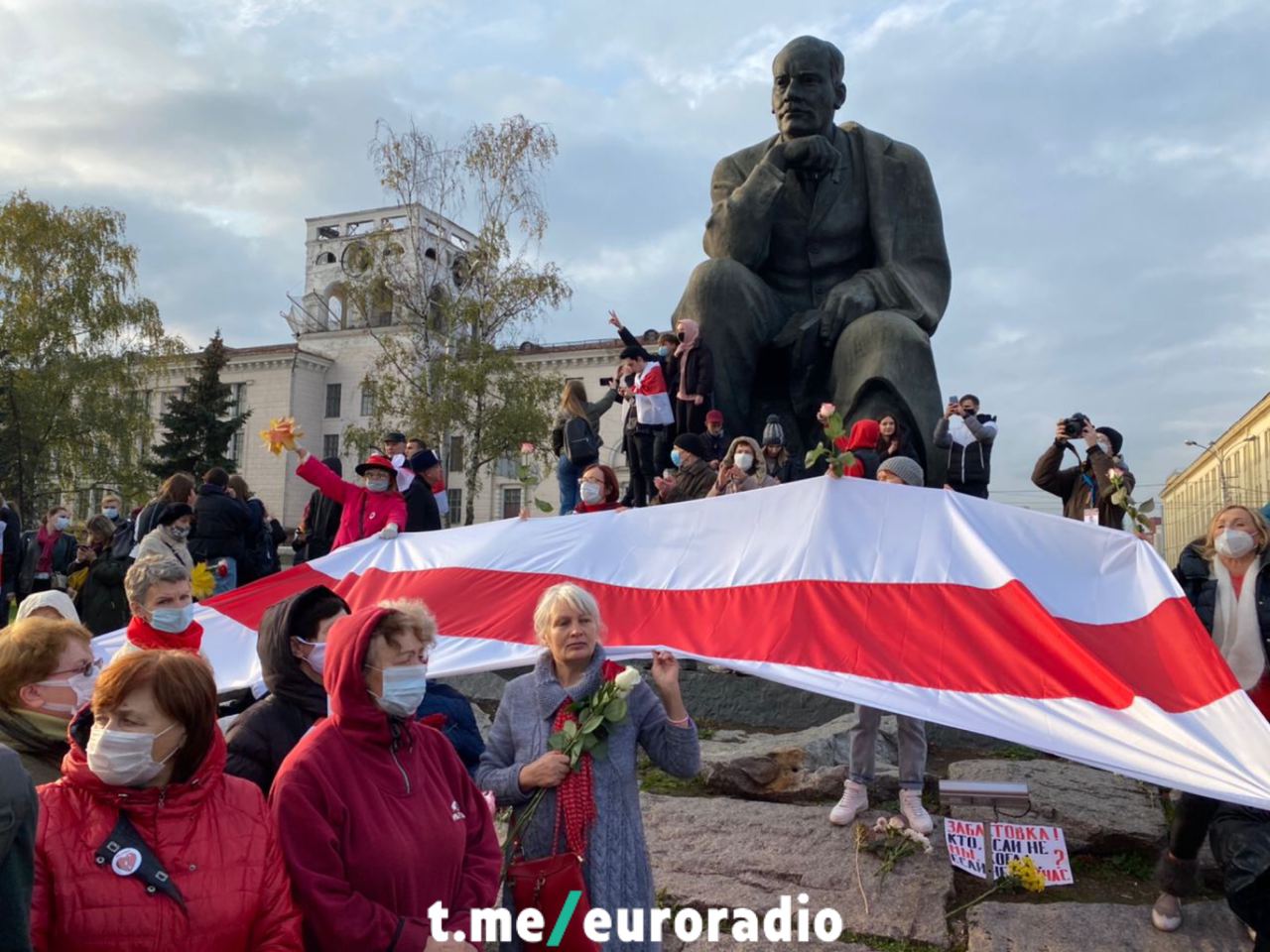
As many as 500 criminal cases were initiated under articles on mass events disorders. As to the statements of those beaten by the police, not a single one was initiated.
Lukašenka talked about the crackdown on Arloŭskaja street: "It was my order; I had to get these drug addicts out of the apartments."
Thirty-five employees of BSUIR, teachers and students of the linguistic university went on strike, Lukašenka called on repressing them.
The factories were starting to lay off workers who took part in the strike.
Natallia Dulina, an associate professor of the Department of the Italian Language, an active participant in the strike movement, was dismissed from MSLU.
Ivan Kubrakoŭ became the next Minister of the Interior. Ex-head of the KGB Valieryj Vakuĺčyk was made assistant to the president in the Brest region, ex-minister of Interior Juryj Karajeŭ took a similar post in the Hrodna region.
Lukašenka proposed to involve former service members in the people's militias and gave them lethal weapons.
Lukašenka demanded to take measures on the non-recognition of diplomas received abroad.
Cafes and restaurants that took part in the strike were closing. College teachers were being dismissed en masse, and students were being expelled.
Belarus closed its borders with Lithuania, Latvia, Poland and Ukraine.
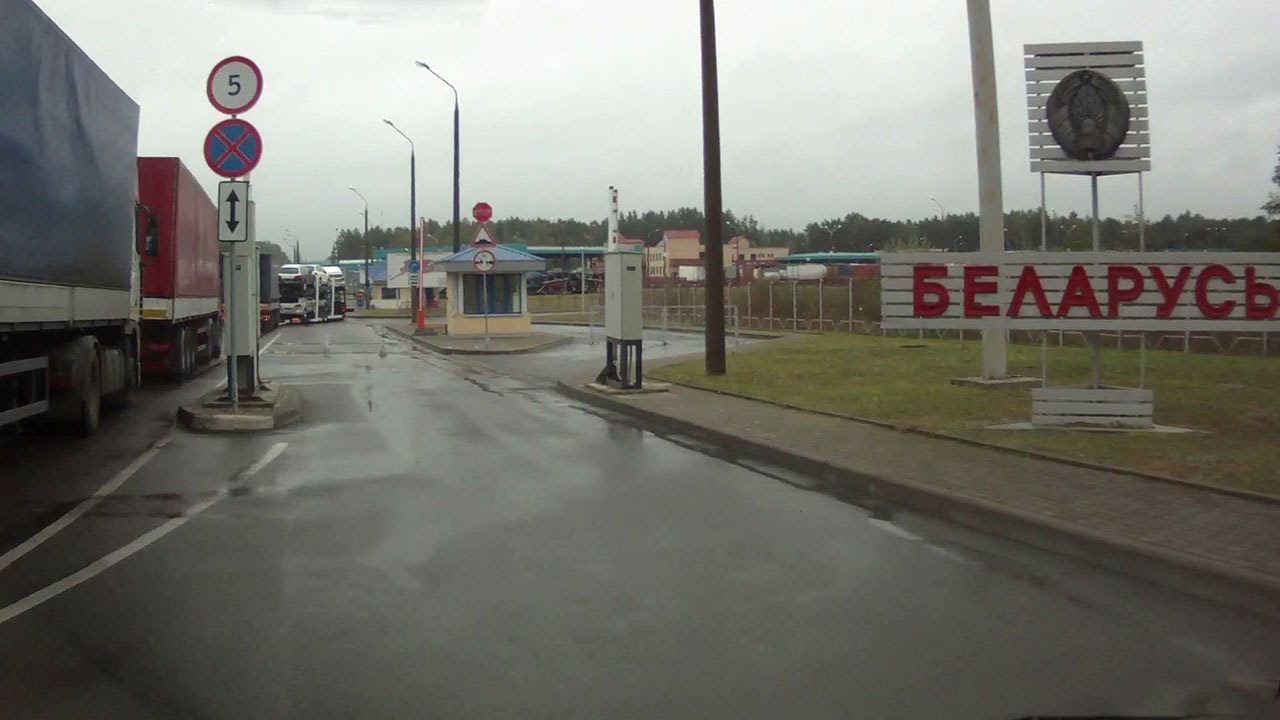
Twenty students of the medical university were expelled; classmates, teachers and doctors supported them.
Near the MSLU graduates and parents of students also came to support them.
There were plans to toughen punishment for participation in protests and "illegal use of flags": A fine of up to 5,400 BYN and arrest for up to 30 days.
In Žodzina, a 75-year-old woman was tried for a photo with a white and red pastille – "she was protesting with a marshmallow," said a policeman.
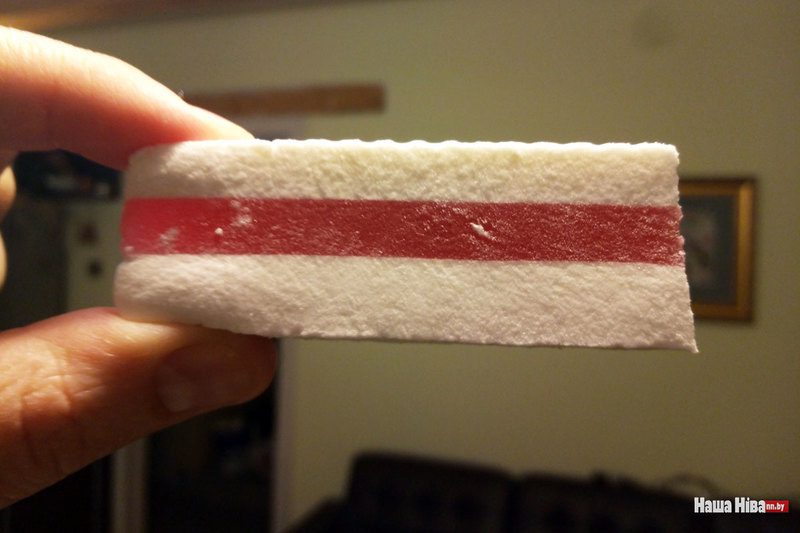
Another Sunday protest march was held. The protesters were dispersed in a particularly harsh way. Stun grenades were used against. People were ambushed in the backyards. In the field near the Kurapaty forest, the security forces chased the demonstrators in cars. More than 310 people were detained.
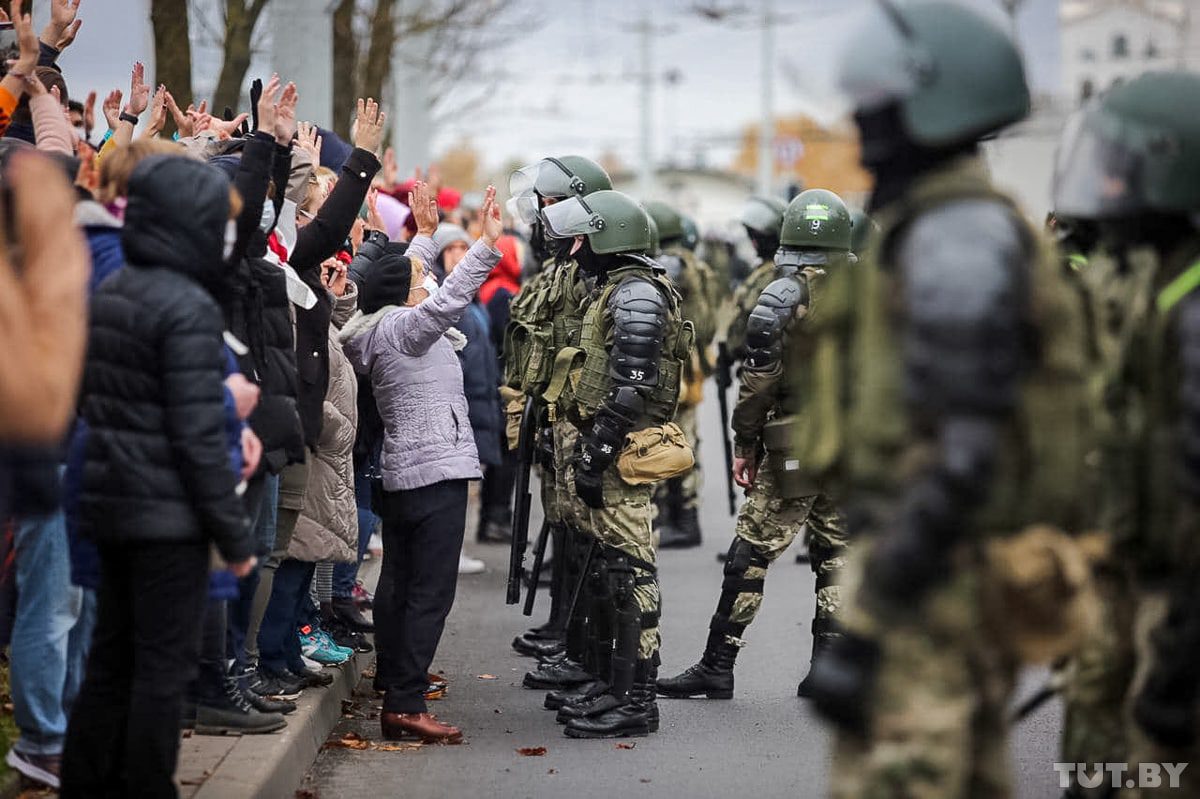
After the Sunday march, investigators opened a criminal case under Article 342 of the Criminal Code (Organization and preparation of actions that grossly violate public order). The suspect’s list included 231 people detained the day before.
Medical University professors collected signatures in support of expelled students.
March of pensioners.
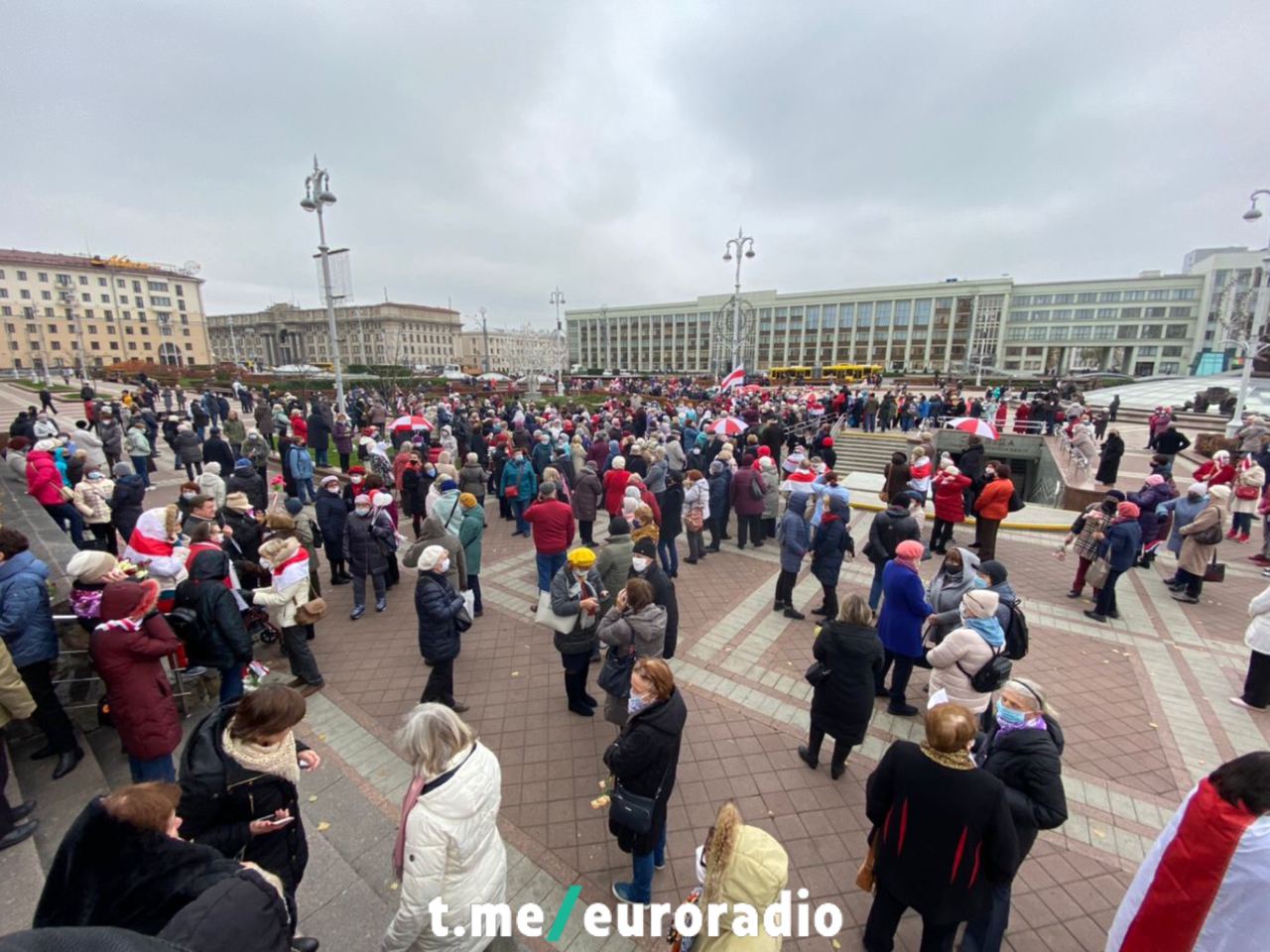
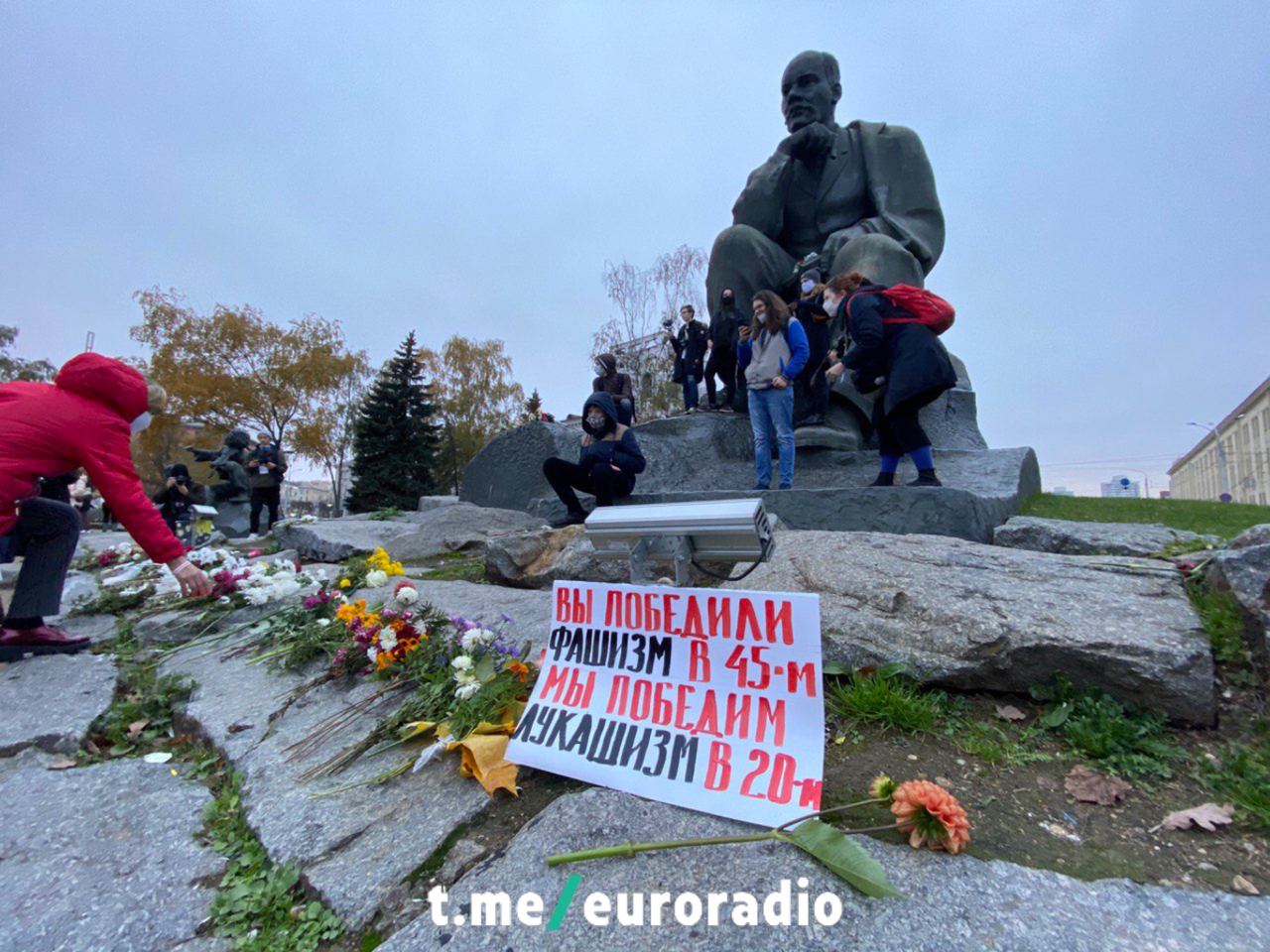
Parents of BSUIR students prepared an appeal to the rector with a demand to stop the persecution of students for political dissidence and stopped the dismissal of teachers. Otherwise, they threatened to refuse paying for studies.
MSLU teachers signed an open letter to the university's rector with a request to reinstate the expelled students and return the dismissed colleagues to work.
An action of solidarity was held in Minsk next to the Scientific and Research Center of Surgery, Transplantology and Hematology – people were holding the posters "Free our doctors" and "Why are doctors held on Akresсina Street?"
Doctors detained during the action of solidarity with expelled students of the medical university were sent to jail.
Lukašenka said that he ordered the border troops commander not to let into the country people with foreign passports and those "smart" Belarusians who left the country at this difficult time.
The apartment where Nina Bahinskaja lived was searched.
March of people with disabilities in Minsk.
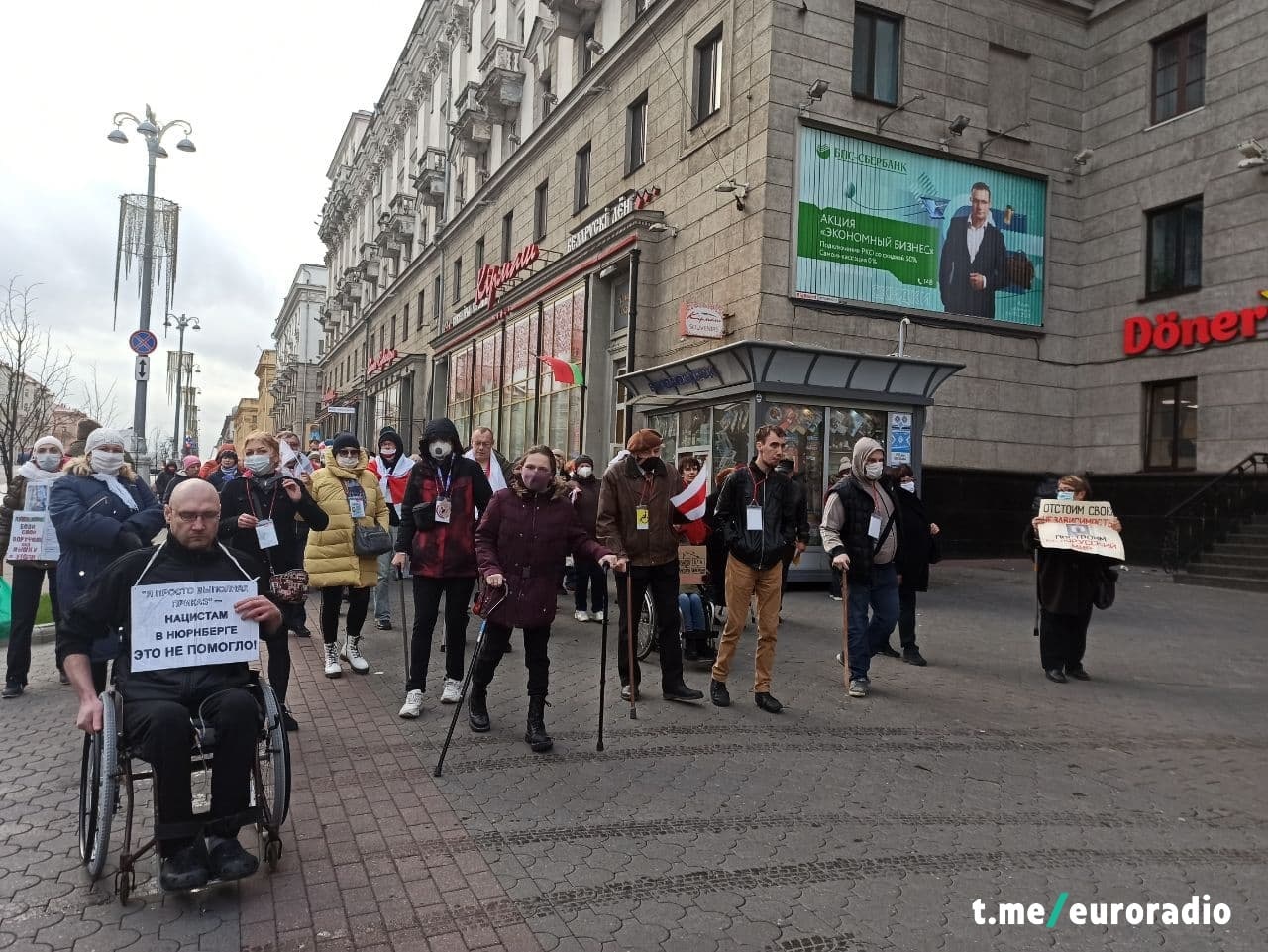
The European Union imposed sanctions against Lukašenka and 14 other officials.
A criminal case was brought up against BSW workers because of the strike, and they were invoiced for stopping the blast furnaces.
The medical university began to restore the "expelled" students.
A third underground line was opened in Minsk, Lukašenka promised to hold new elections.
OSCE called on the Belarusian authorities to hold new presidential elections. The Belarusian Foreign Ministry disagreed.
Lukašenka launched the Nuclear Power Plant in Astraviec.
After the backyard concerts, the group "Reha" and the musician Paviel Arakielian were detained.
Almost 60 people were detained at the protest of doctors near the 1–ST Municipal Clinical Hospital in Minsk.
In Minsk, people were not allowed to gather in a large column for the weekly march. Participants walked around the city in small groups. The number of detainees exceeded 1,000 people. The police brutalized many.
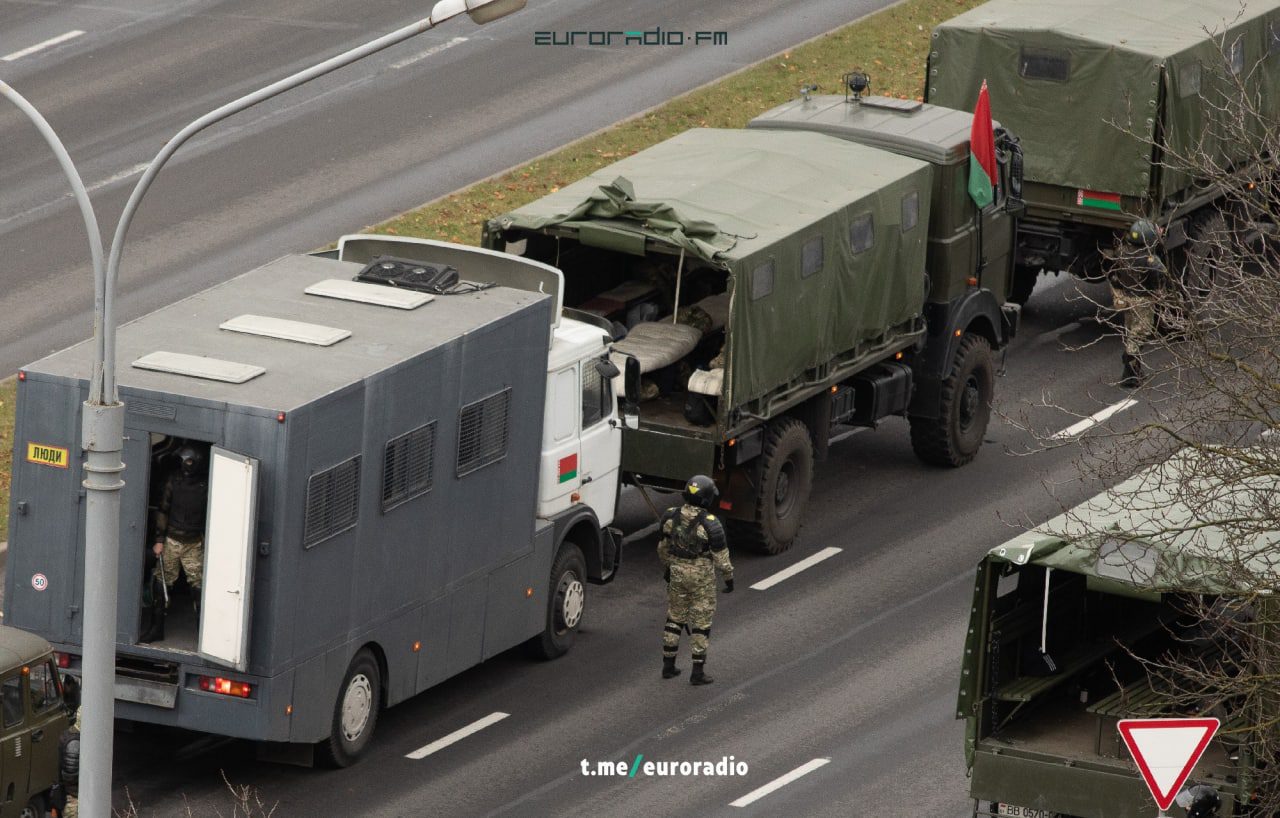
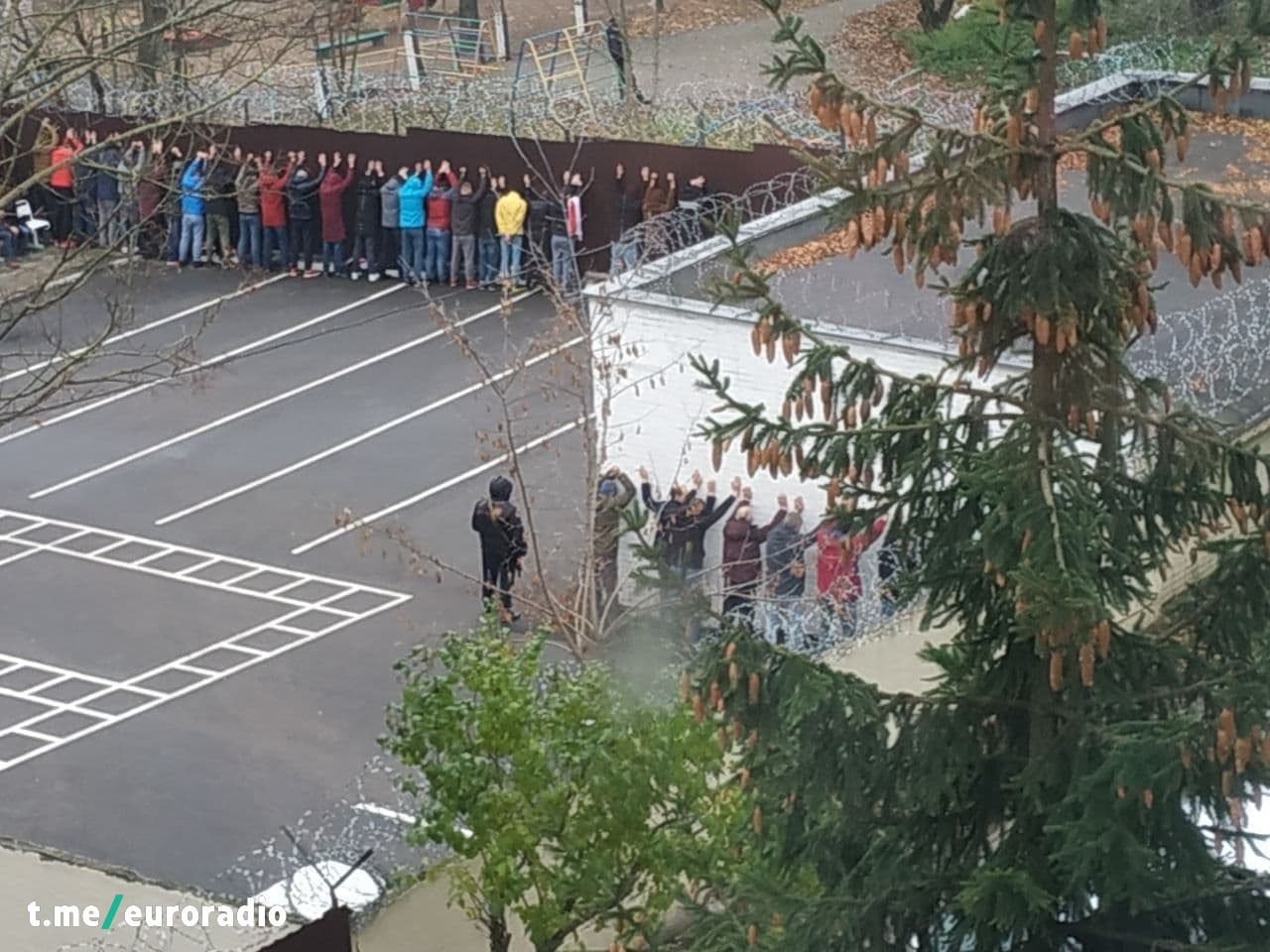
Zmicier Daškievič was released after 15 days of arrest and reported torture at Akrescin Street.
The first unit of the Belarusian NPP stopped generating power – voltage transformers were out of order.
Law enforcement agencies blocked the accounts of Belarusians who received compensation from the BY_help initiative.
Lukašenka threatened to liquidate those private companies where trade unions would not be formed by the end of the year.
A new troupe was being recruited at the Janka Kupala Theater – students were called to auditions.
Human rights activists reported that 900 criminal cases had already been brought up against supporters of changes in Belarus.
Voĺha Chižynkova, Miss Belarus 2008 and former press secretary of Brest Dynama, got 12 days of arrest.

In the evening, unidentified people wearing masks came to take off the white-red-white ribbons on the Square of Changes, and a scuffle began. The last message that 31-year-old Raman Bandarenka wrote in the local chat was "I'm going out!" He was beaten, taken into a minibus and to the Central District Department of Internal Affairs. An hour and a half later, the man was taken to the hospital with cerebral oedema.
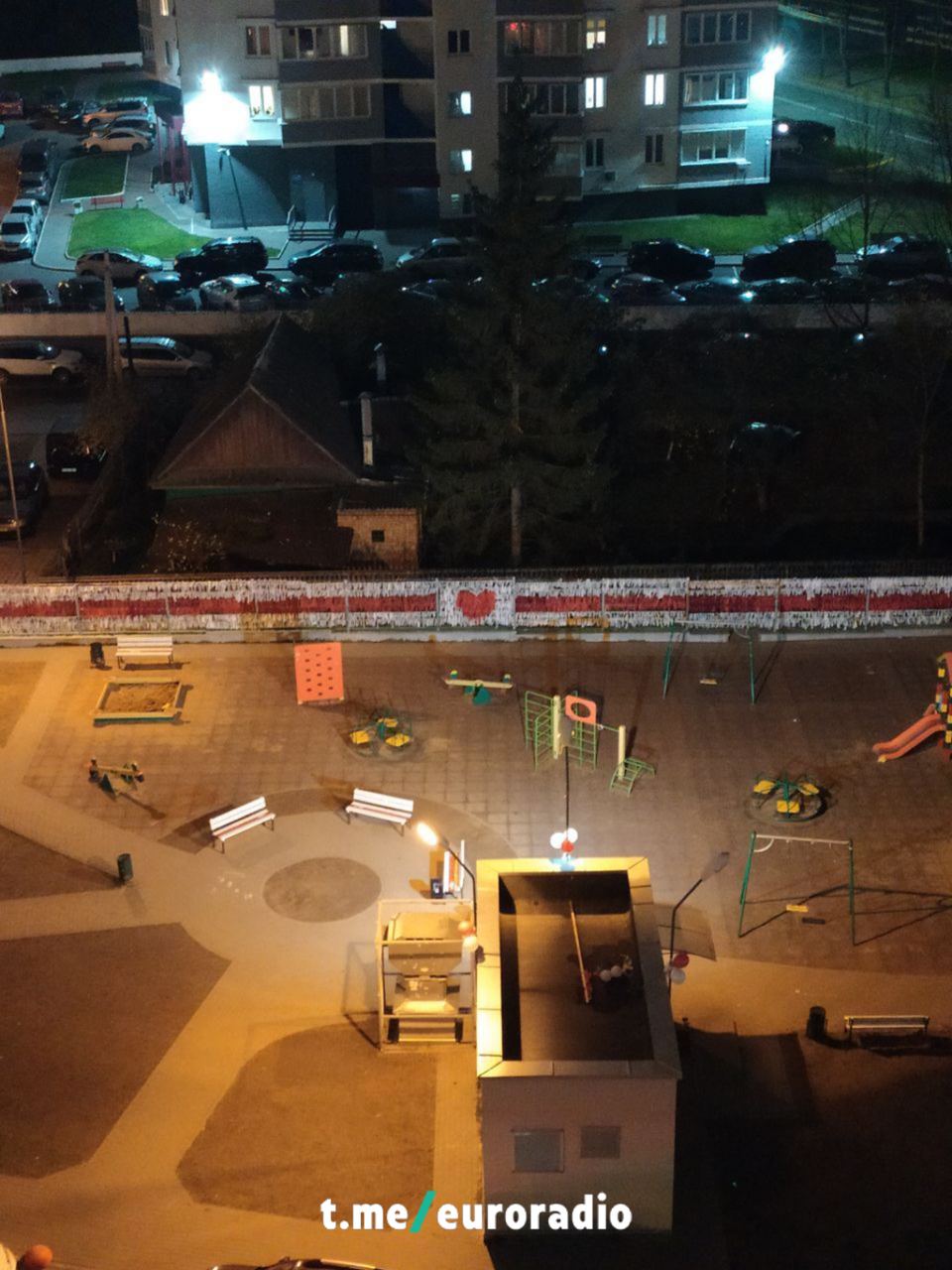
Alana Hiebremaryjam, representative of Cichanoŭskaja on the field of work with youth and students, had her flat searched. Security officials visited several more activists.
Raman Bandarenka died.
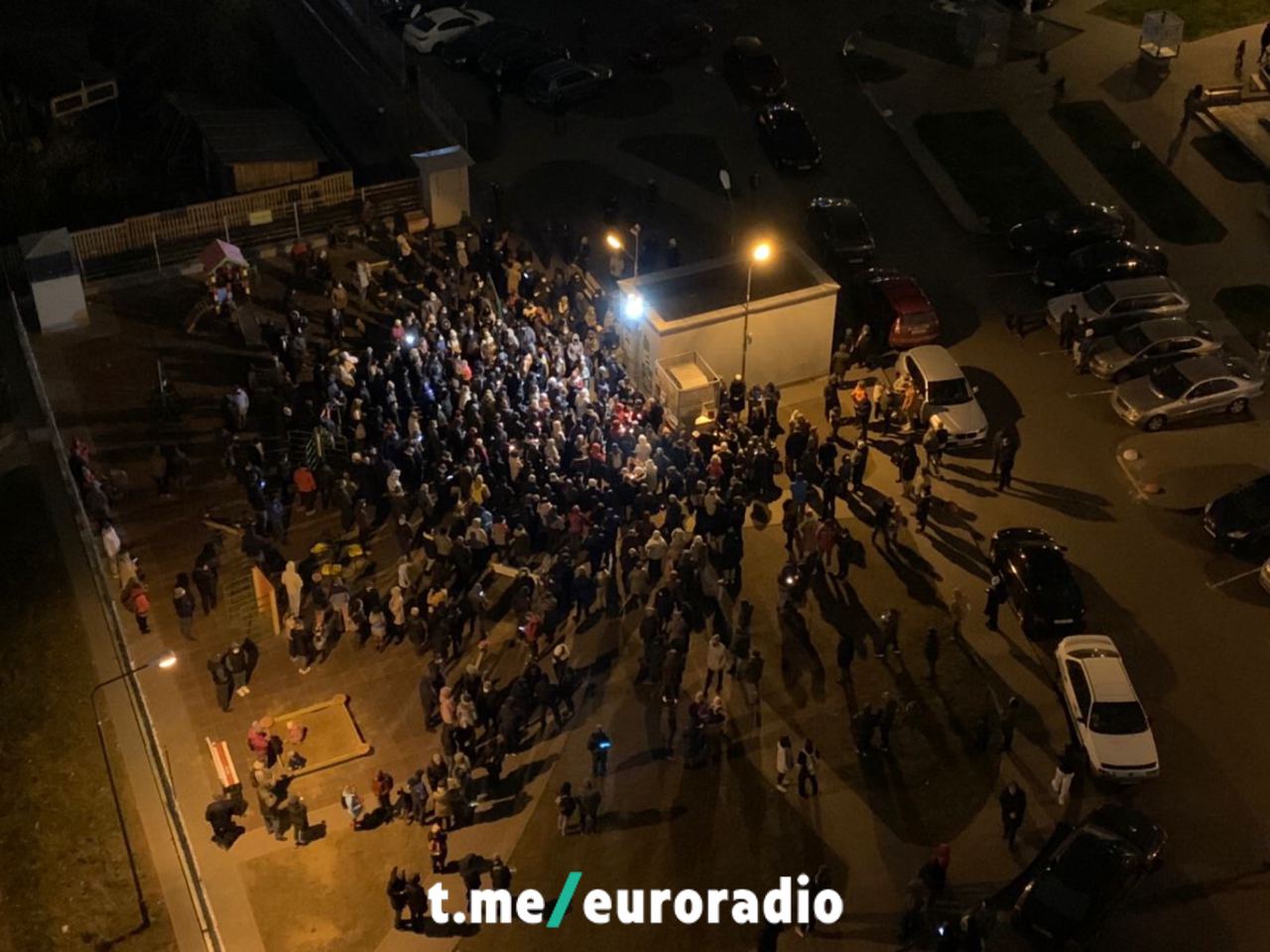
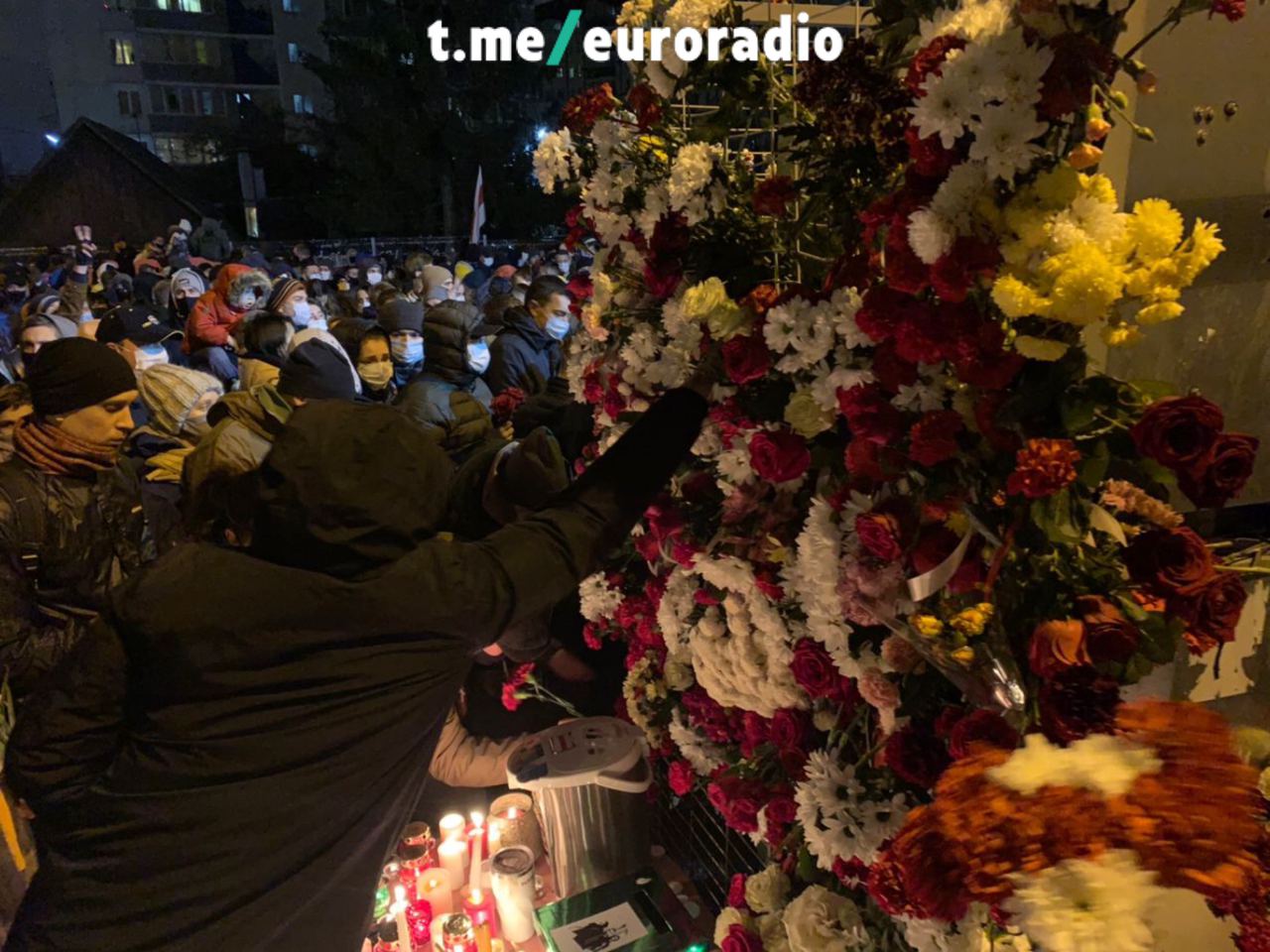
Riot police came to the editorial office of Narodnaja Volia. They confiscated the circulation of the latest issue of the newspaper.
The Investigative Committee suspended the investigation of Aliaksandr Tarajkoŭski's case. A criminal case had not yet been initiated, although there was a witness to his death.
People formed a chain of solidarity, arranged memorials in memory of Raman Bandarenka.
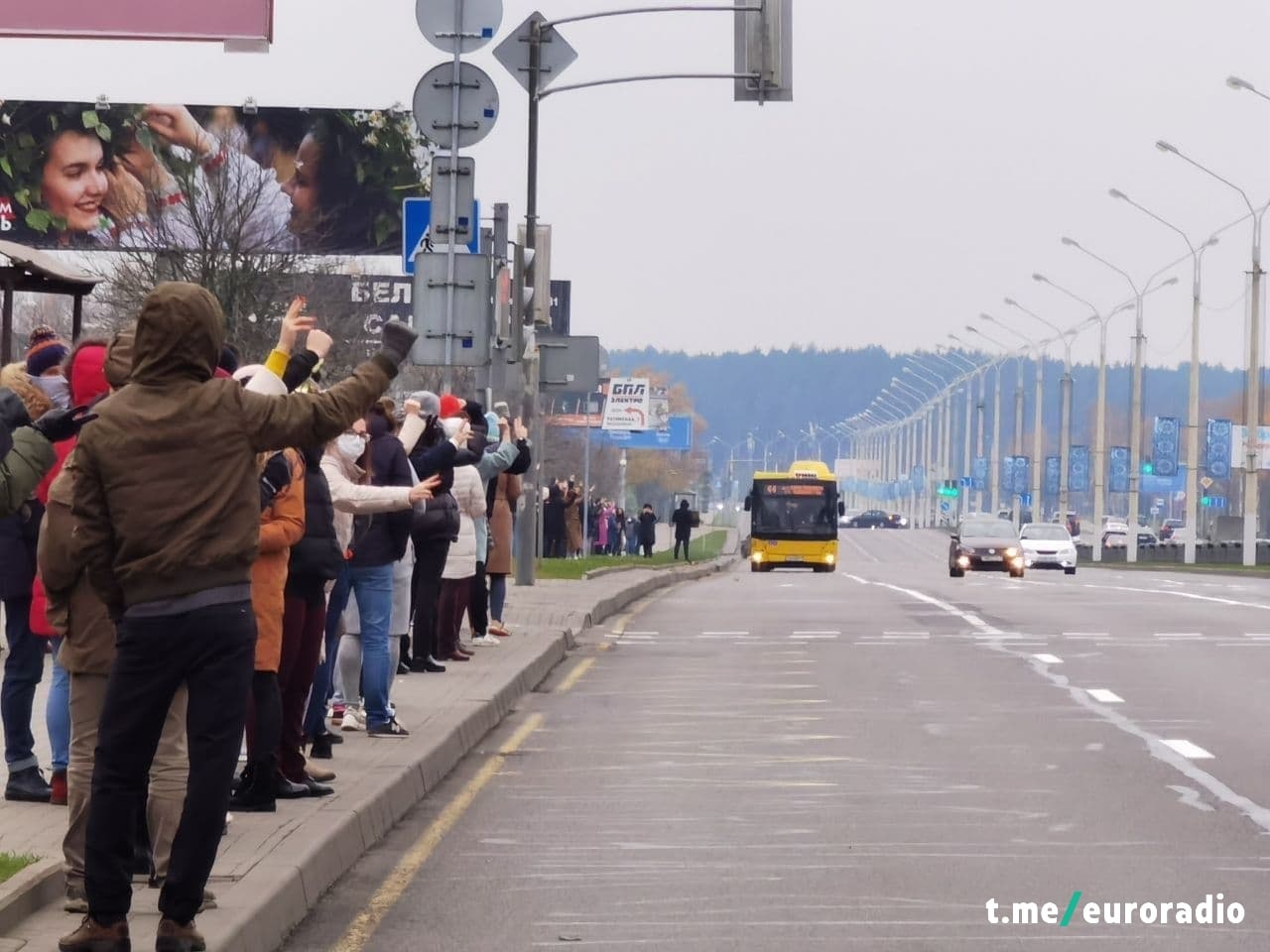
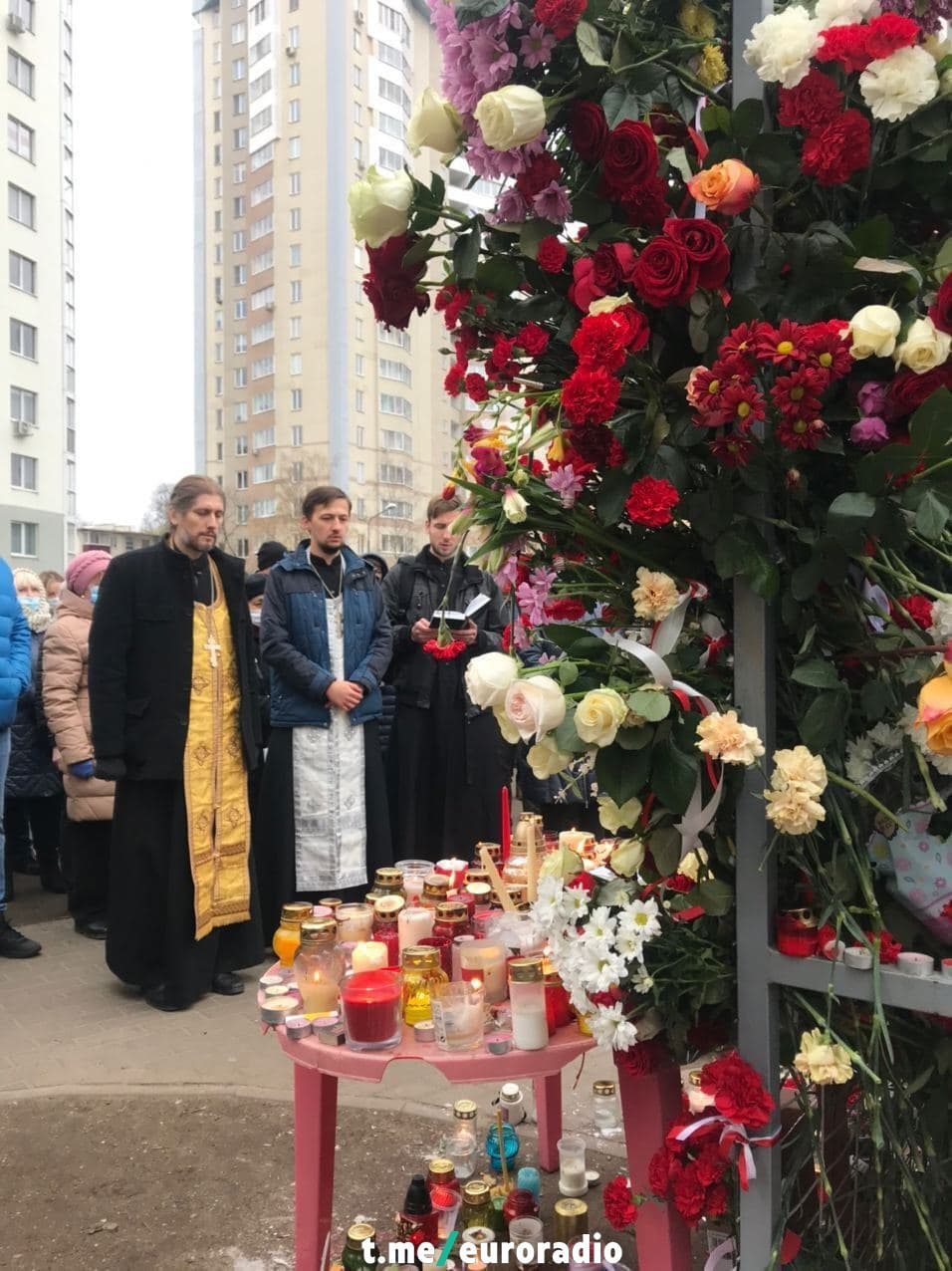
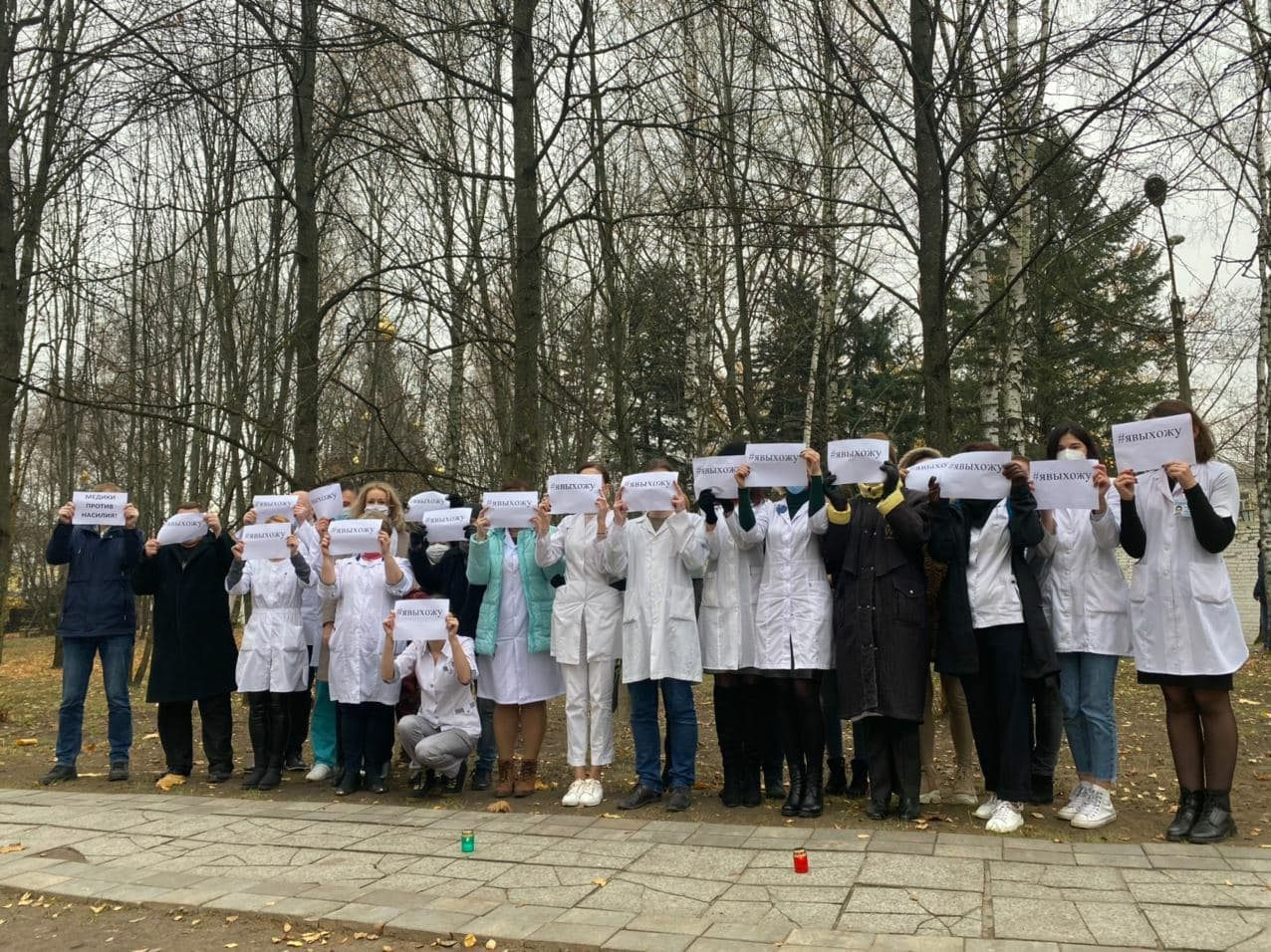
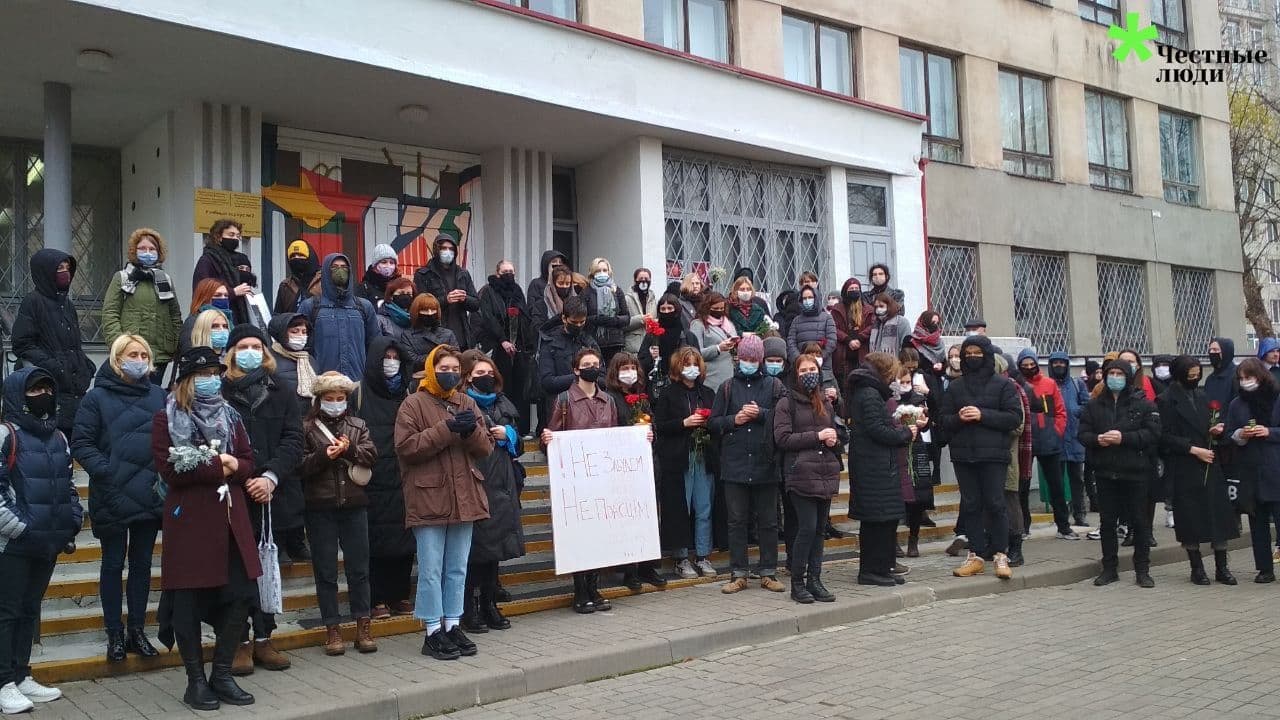
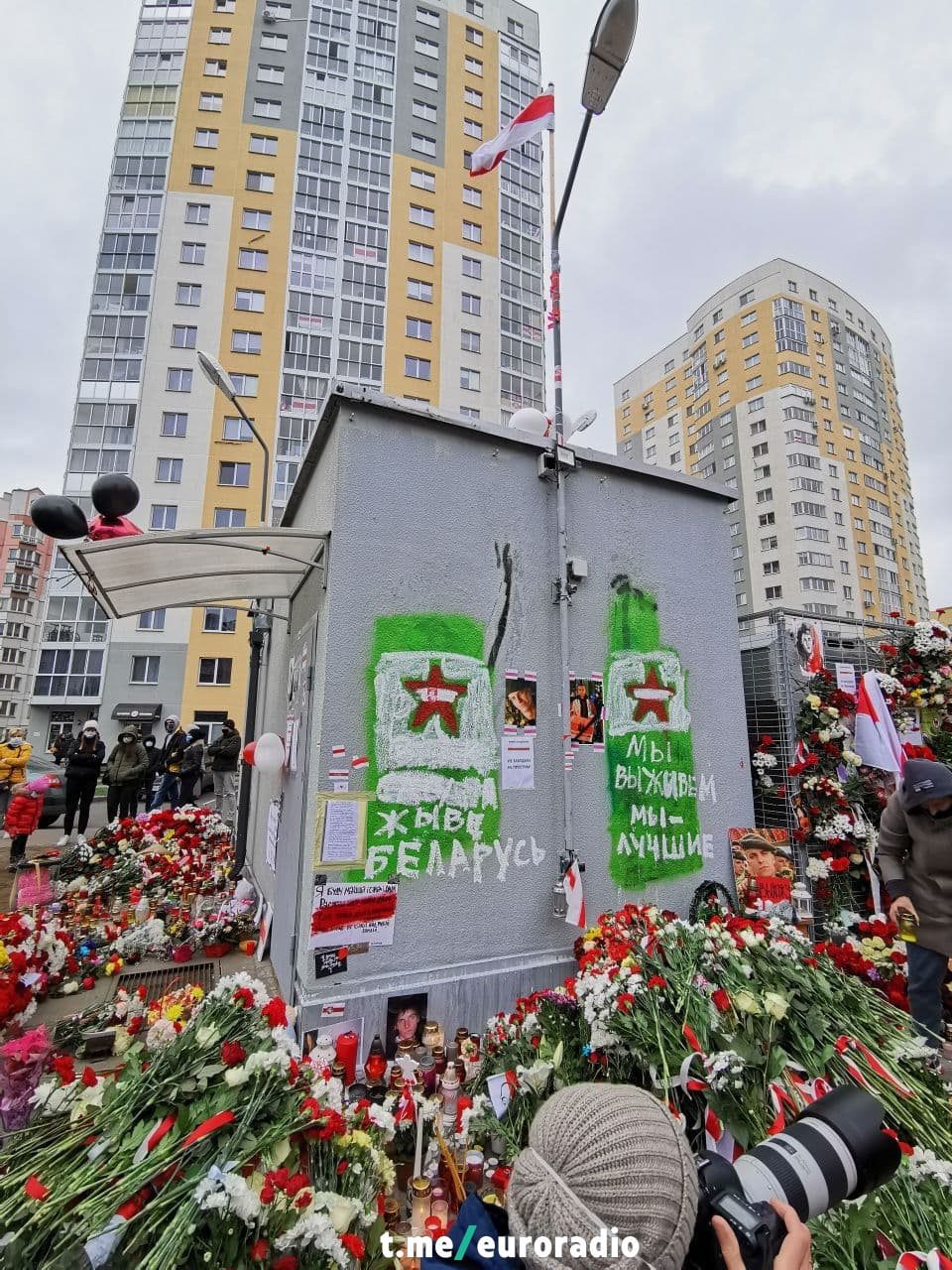
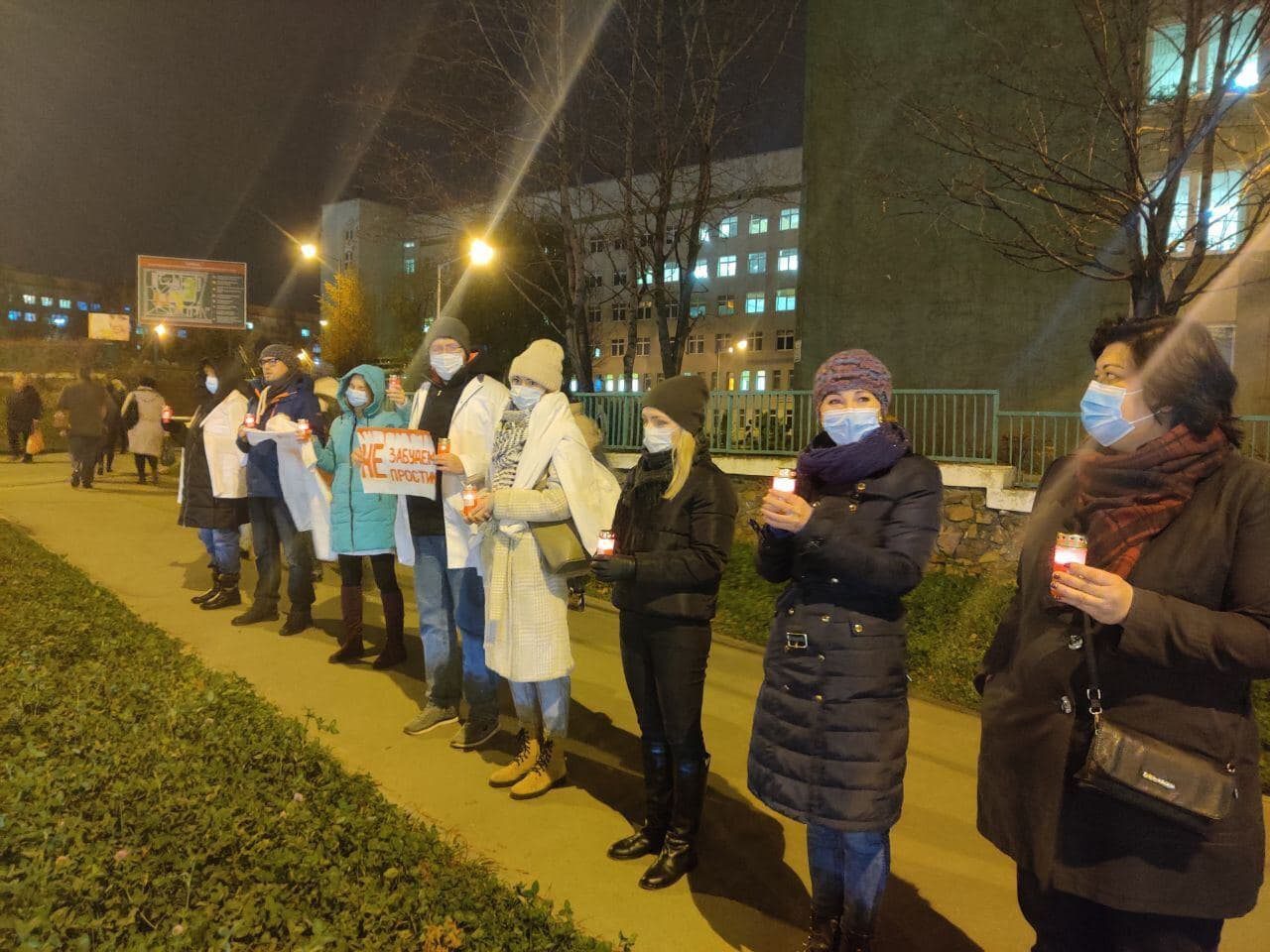
The BYSOL Solidarity Fund launched another project after its accounts were blocked.
The National Anti-Crisis Management claimed to copy the Interior Ministry's internal report. According to the document, from August 9 to November 3, 25,800 people were detained in the country for "violation of the legislation on mass events and committing other violations during their conduct.” More than 24 thousand administrative protocols were drawn up. There were 4,000 complaints about violence on the part of law-enforcement agencies.
A funeral watch in the Square of Changes was held – people were coming to the yard on Čarviakova street all day with lamps and flowers.
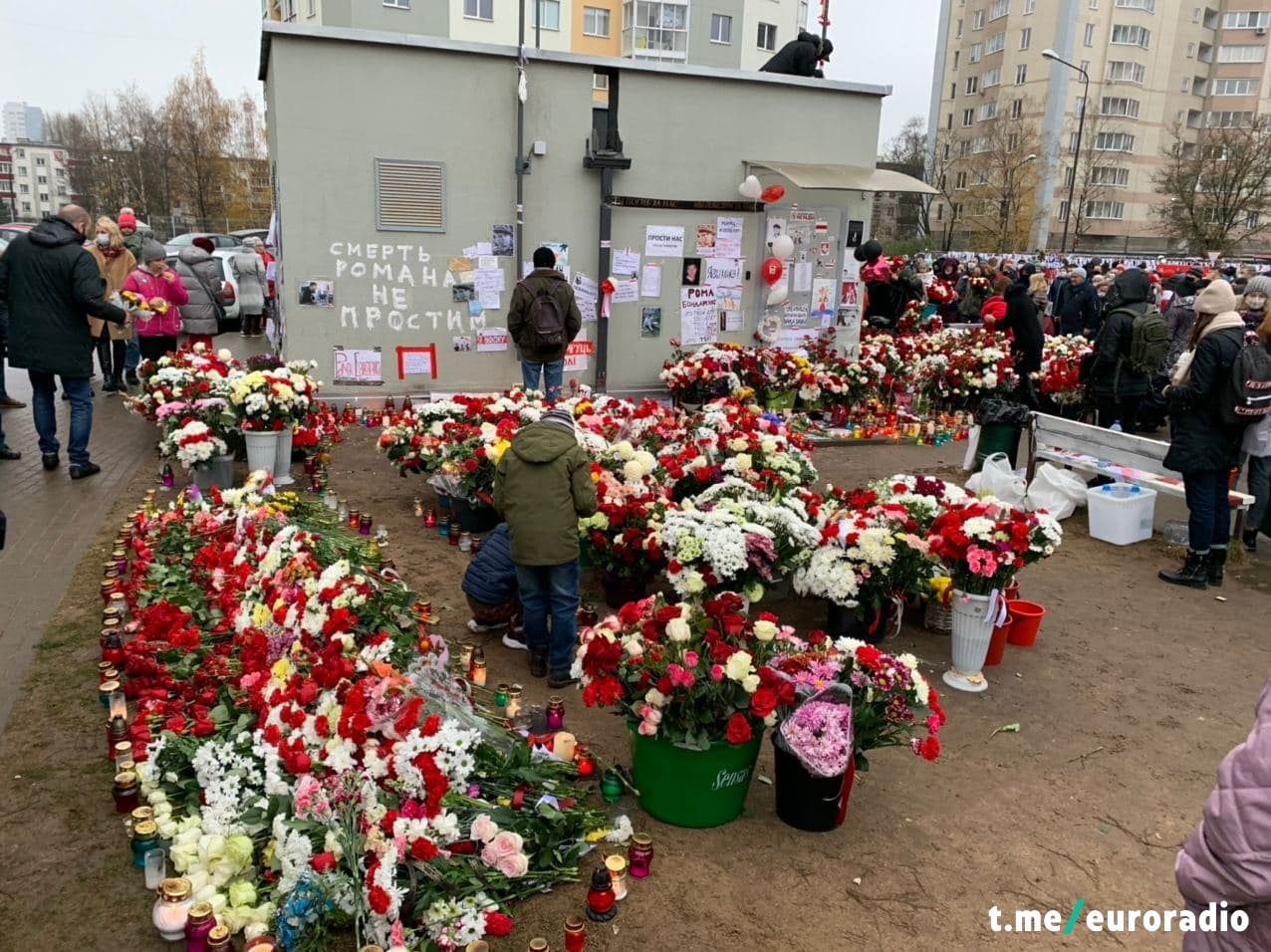
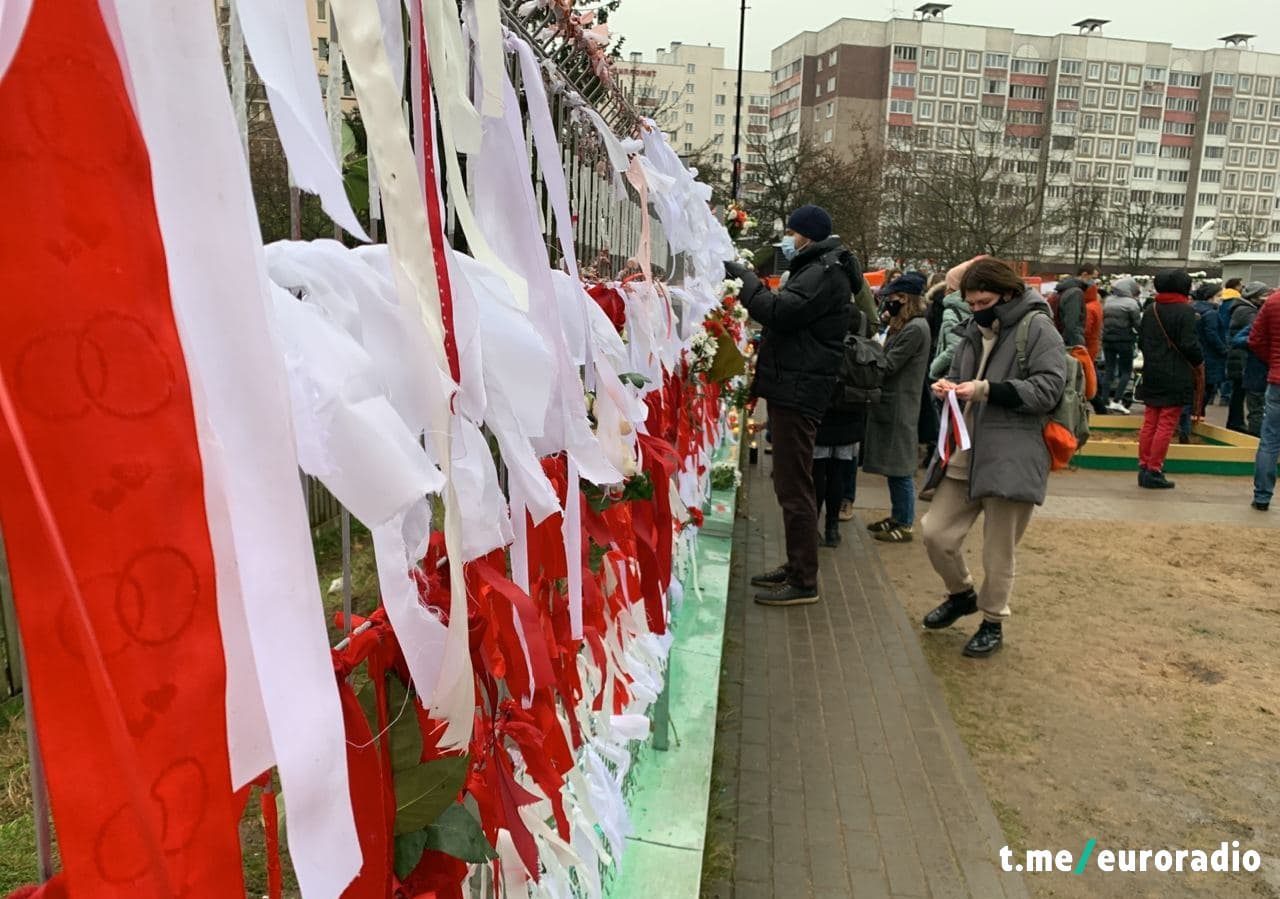
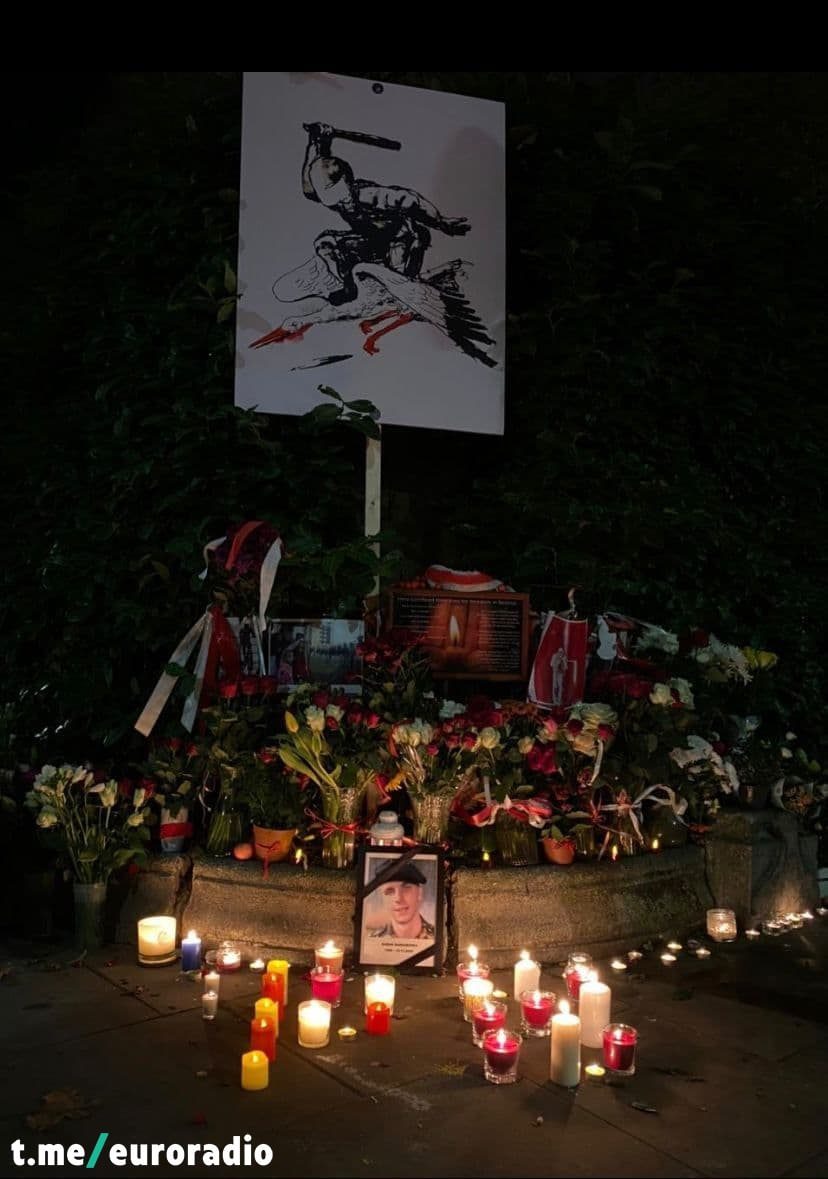
The march in memory of Raman Bandarenka "I'm going out" took place. The law enforcers carried out a sweep on the Square of Changes. Over 1,100 people were detained all over the country.
Belsat TV journalist Kaciaryna Andrejeva and camerawoman Darja Čuĺcova were detained.
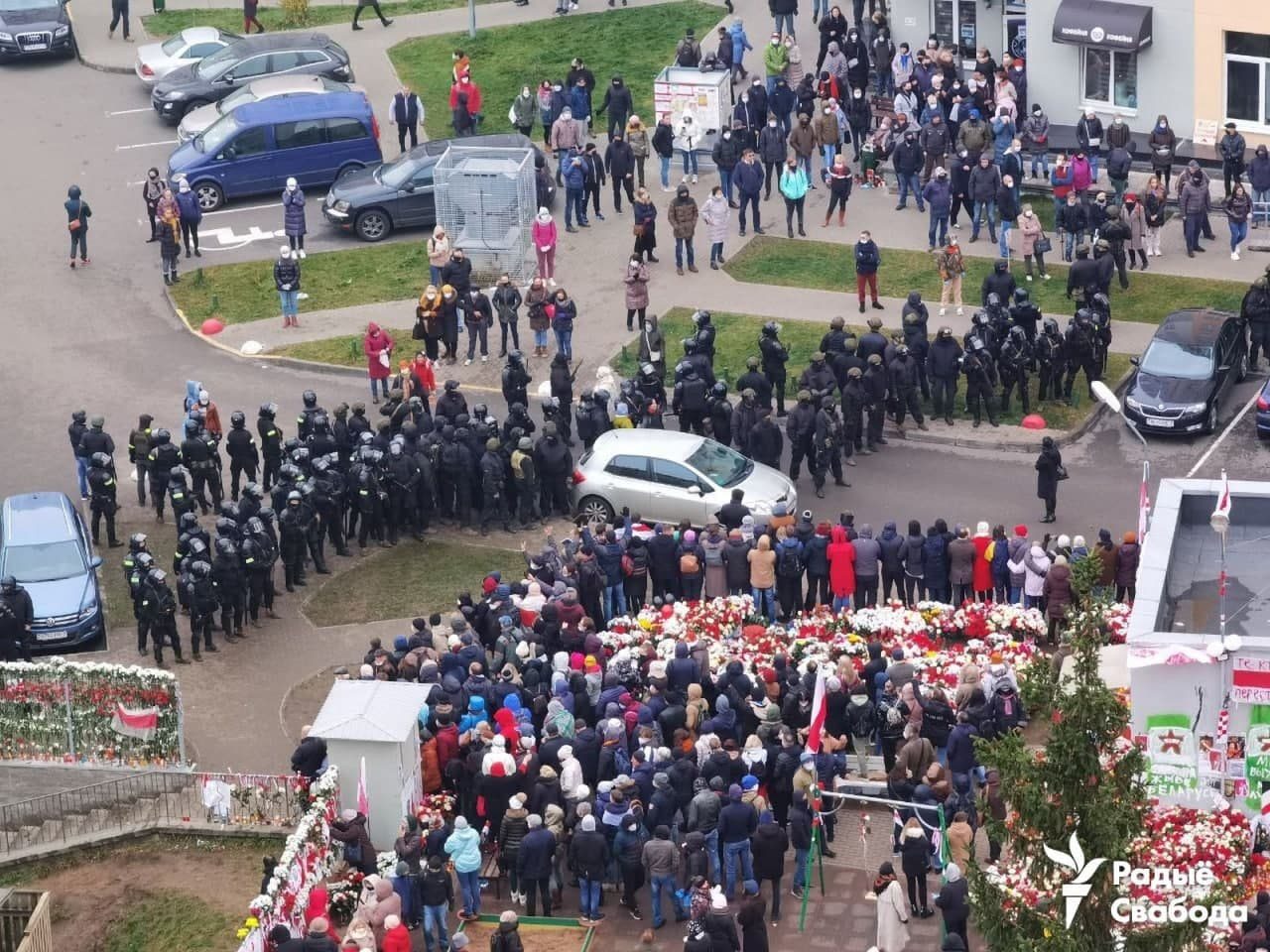
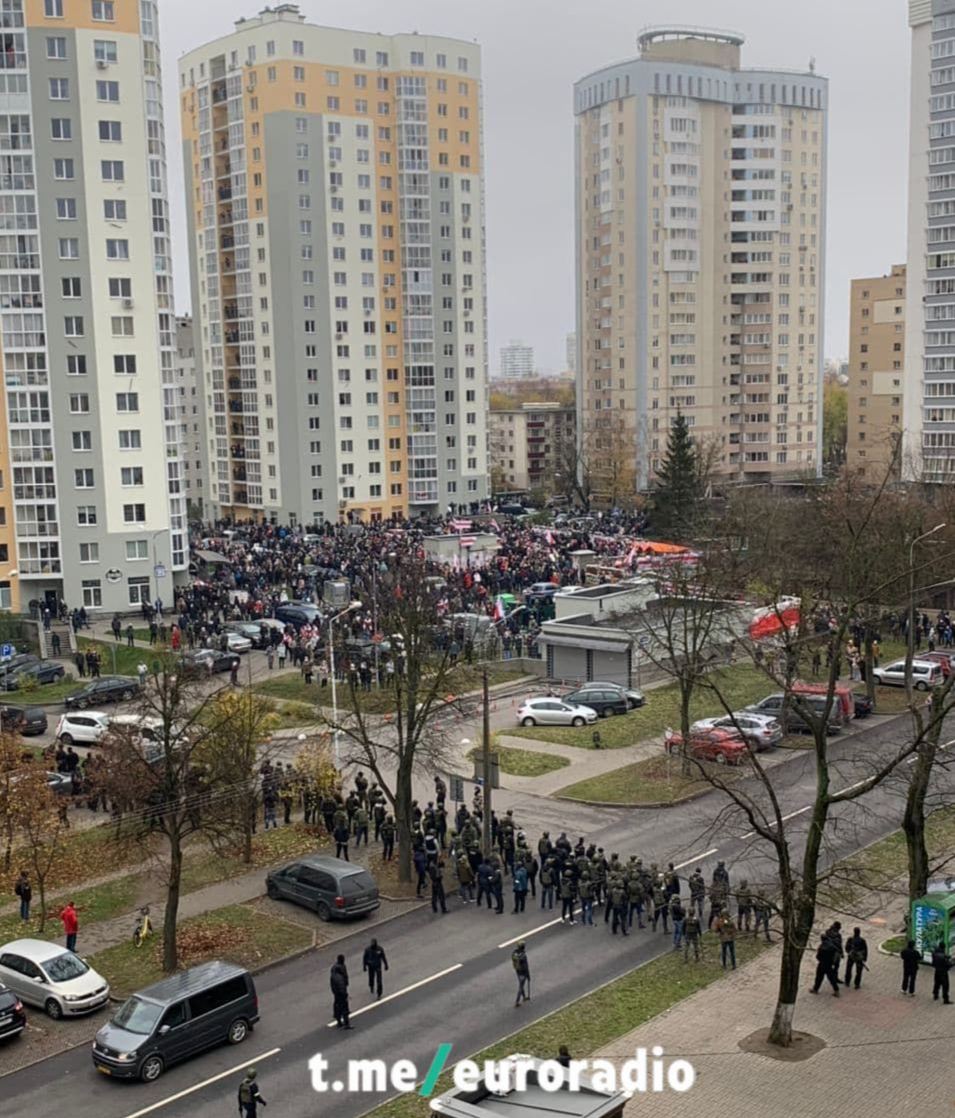
Famous athlete suspected of attacking Bondarenka in Changes square. This person in a grey tracksuit and sleeveless jacket looked similar to the world champion in Muay Thai and kickboxing Dzmitryj Šakuta. People familiar with him said that the voice in the footage, the eyes above the mask and the part of the face that was not hidden were very similar to Šakuta's.
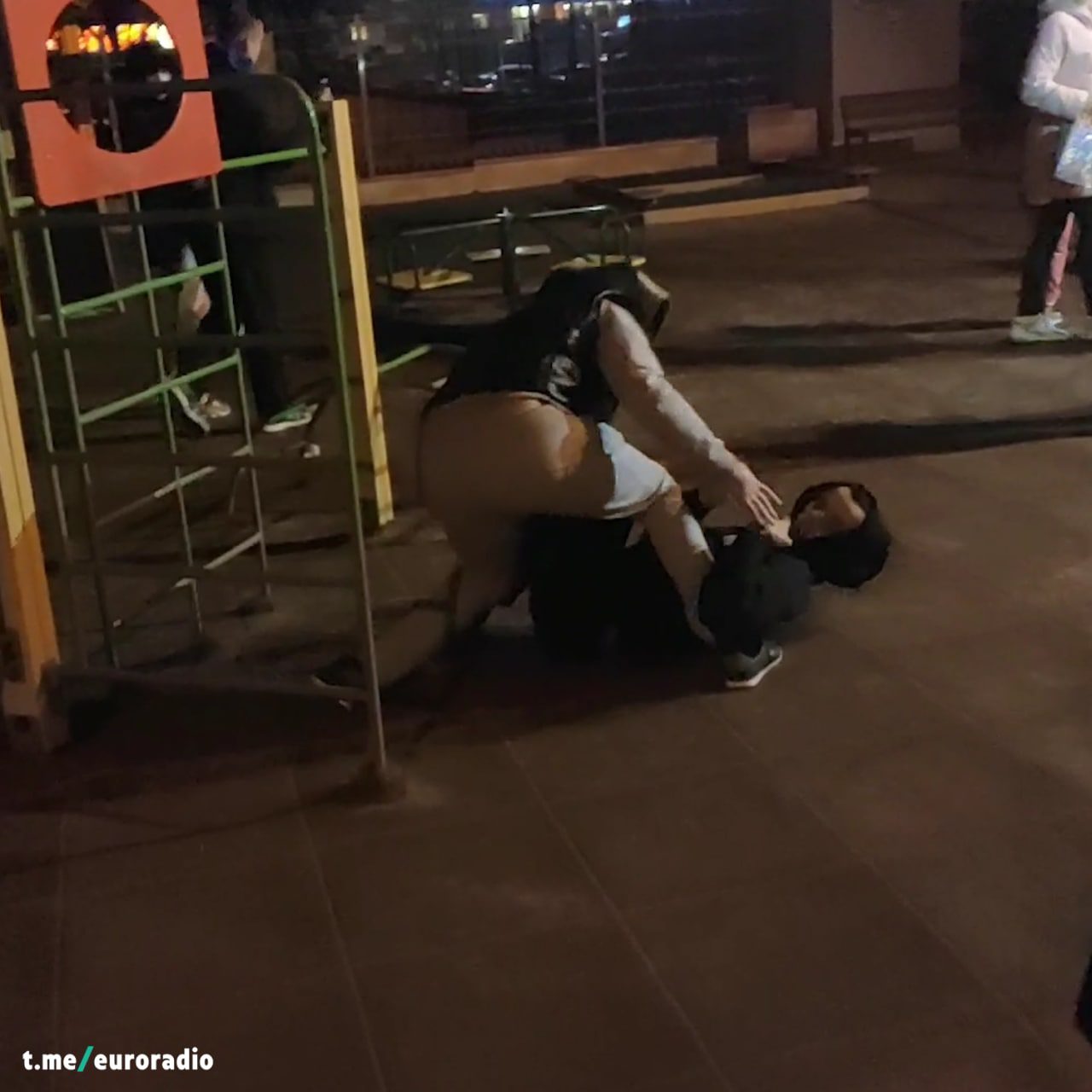
TUT.BY journalist Kaciaryna Barysievič, who covered Roman Bondarenka's death, wasn't answering her phone. Her daughter said she went to the store. Soon Katerina, accompanied by security officials, returned home. Less than an hour later, the journalist was taken away by plainclothesmen in masks. Kaciaryna Barysievič's daughter said that their apartment was searched, and a laptop was taken away. Later it became known that the journalist was taken to the KGB pre-trial detention centre.
Sciapan Pucila and Raman Pratasievič, a founder and ex-editor-in-chief of Telegram channel NETXA, were included in the list of persons involved in terrorist activities.
Roman Bondarenko funeral.
The traditional Sunday march of the changes was taking place in the capital and regions. The protesters demanded the resignation of Lukašenka.
The rally on that day was unique due to its decentralization; the march participants in local chats determined the collection points. After several weeks in a row, police officers prevented people from getting together and forming one large column for the march.
Journalists from TUT.BY and employees of the Minsk emergency hospital stood against the wall with their hands raised to express their solidarity with their arrested colleagues Kaciaryna Barysievič and Arciom Sarokin. They were holding cards marked "0%," which meant the level of ethanol in the blood of the late Raman Bandarenka.
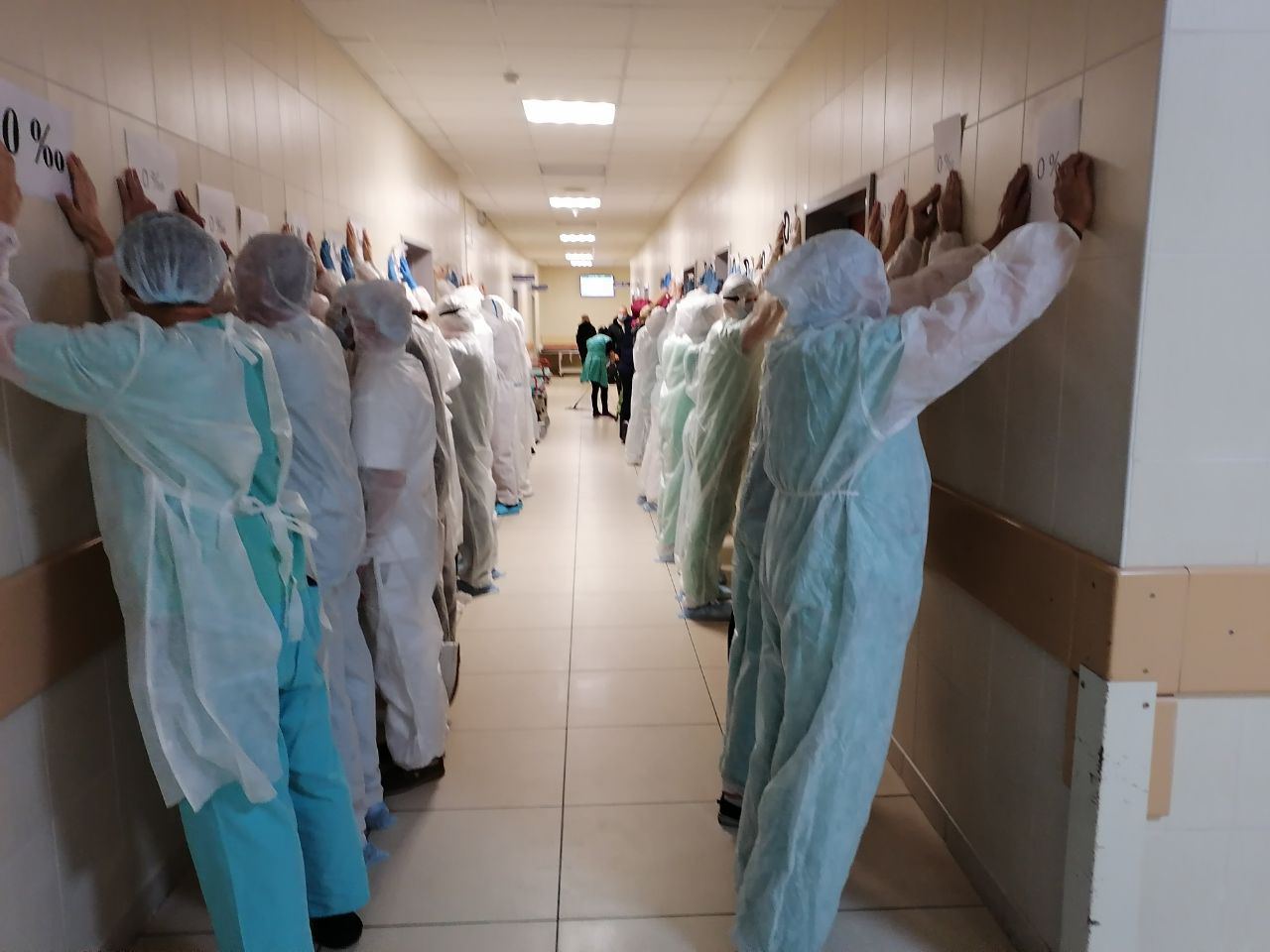
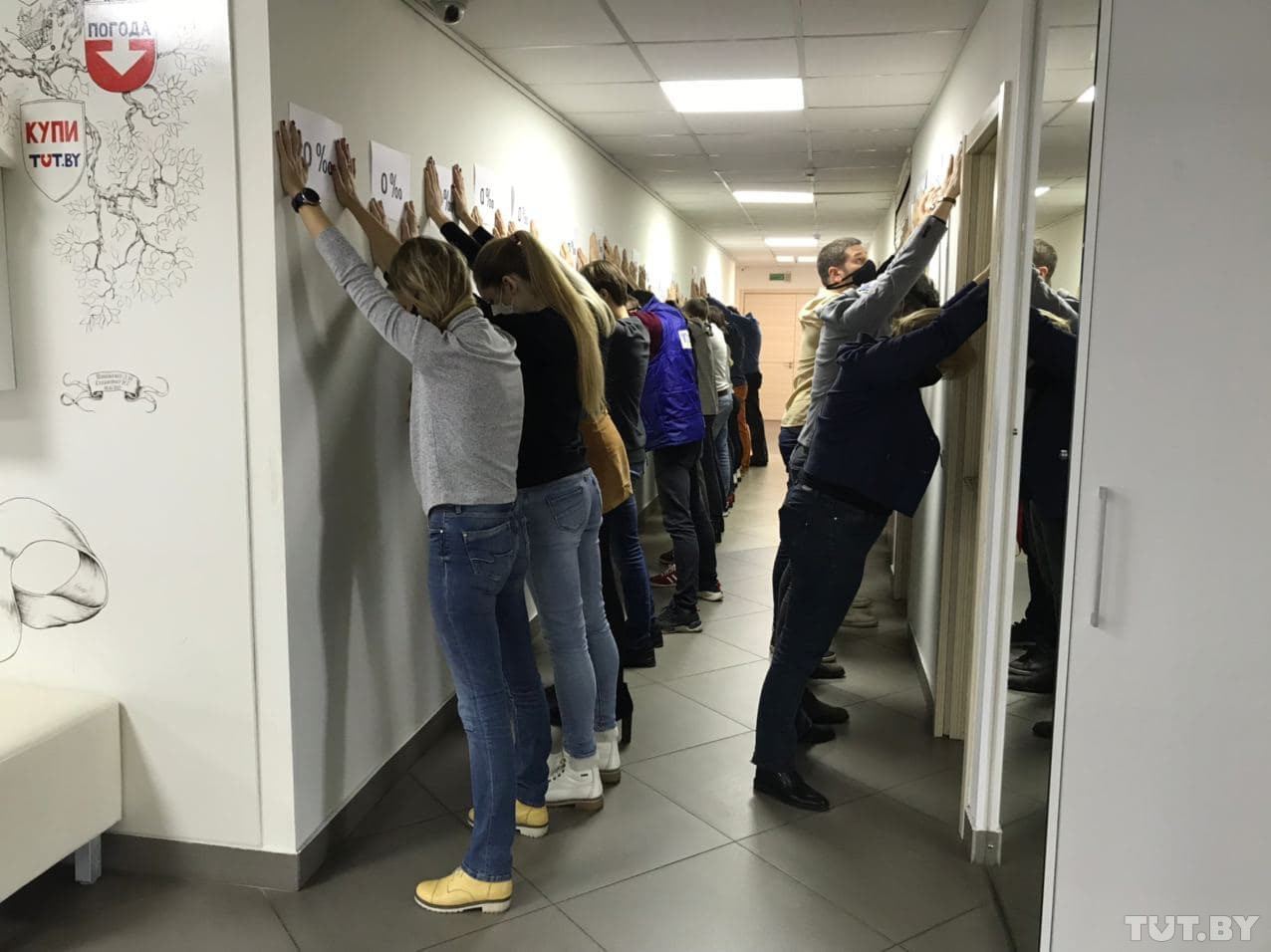
Sviatlana Cichanoŭskaja announced the launch of the Unified Crime Record Book. The platform will collect evidence of arrests, torture and beatings, as well as the names of those who committed them.
The Economic Court of Minsk deprived TUT.BY of its media outlet status. The Information Ministry filed a lawsuit against the company because it found 'false information' in TUT.BY articles.
Viačaslaŭ Barok, a Catholic priest from Rasony, was sentenced to 10 days of arrest. The authorities considered that the collage "Stop Lukashism" in the colours of the official flag and with the image of the official coat of arms of the Republic of Belarus was Nazi symbols, and the priest was thus guilty under administrative article 17.10 (propaganda of Nazi symbols).
Belarus-born Swiss national Natallia Hersche got 2.6 years in jail for tearing a balaclava off a policeman. Sha was accused of resisting a law enforcement officer at the Women's March on September 19.
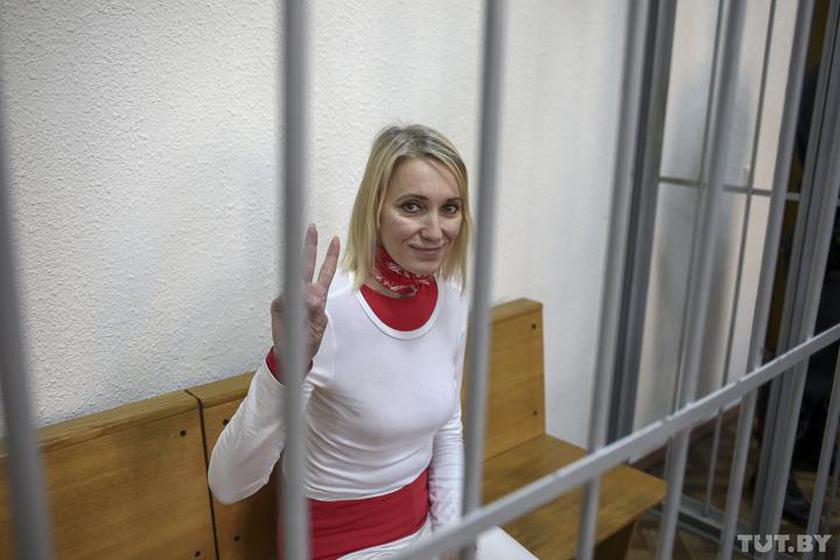
Four people in Minsk were sentenced to imprisonment for the inscription "We will not forget" near an improvised memorial to Aliaksandr Tarajkoŭski at the Puškinskaja metro station. Maryja Babovič, 25, was sentenced to two years of home confinement for the same offence. Maksim Paŭliuščyk, 26, was sentenced to two years in a penal colony. Dzianis Hrachanaŭ, 42, and Ihar Samusienka, 25, were sentenced to one and a half years in an open-type correctional institution. Uladzislaŭ Hulis, 25, was sentenced to two years of imprisonment in a strict regime colony.
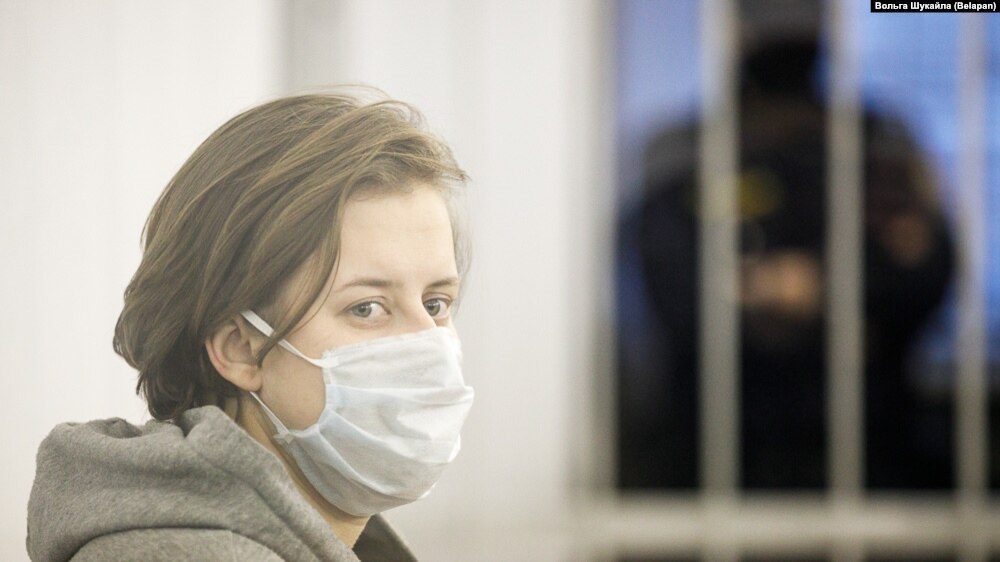
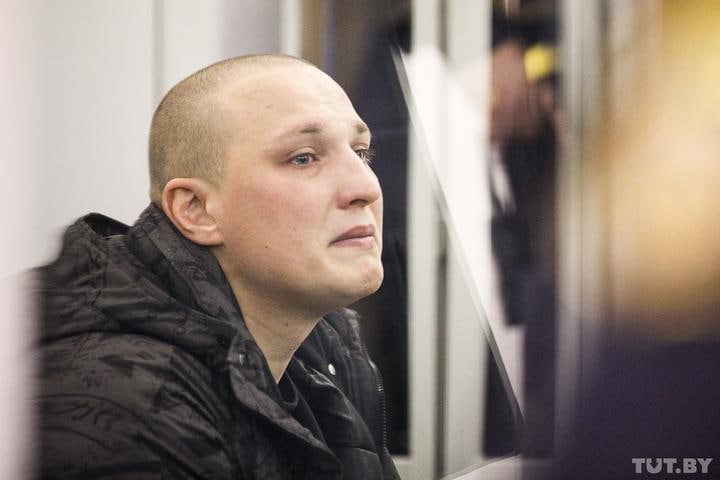
Belarusian authorities temporarily banned leaving the country through land border checkpoints. According to official information, the measure was being taken to prevent the spread of COVID-19 in the country.
Reporters Without Borders: "Belarus was Europe's most dangerous country for journalists".
Ihar Losik, who was in the Žodzina prison then, went on a hunger strike. He became a defendant in a new criminal case. Daria Losik, Ihar's wife, wrote on her Instagram account that she was also going on a hunger strike in solidarity with her husband.
A judge of the Kastryčnicki district of Minsk found 87-year-old Lizavieta Bursava guilty under Article 23.34 of the Administrative Code. According to the protocol, on December 13, the woman held a mass event in her apartment by placing the white-red-white flag on the balcony.
The Council of the European Union approved the third package of sanctions against the political regime of Aliaksandr Lukašenka. Another 29 individuals and seven legal entities fell under the restrictions.
Belarus' democratic opposition was awarded the 2020 Sakharov Prize in Brussels.
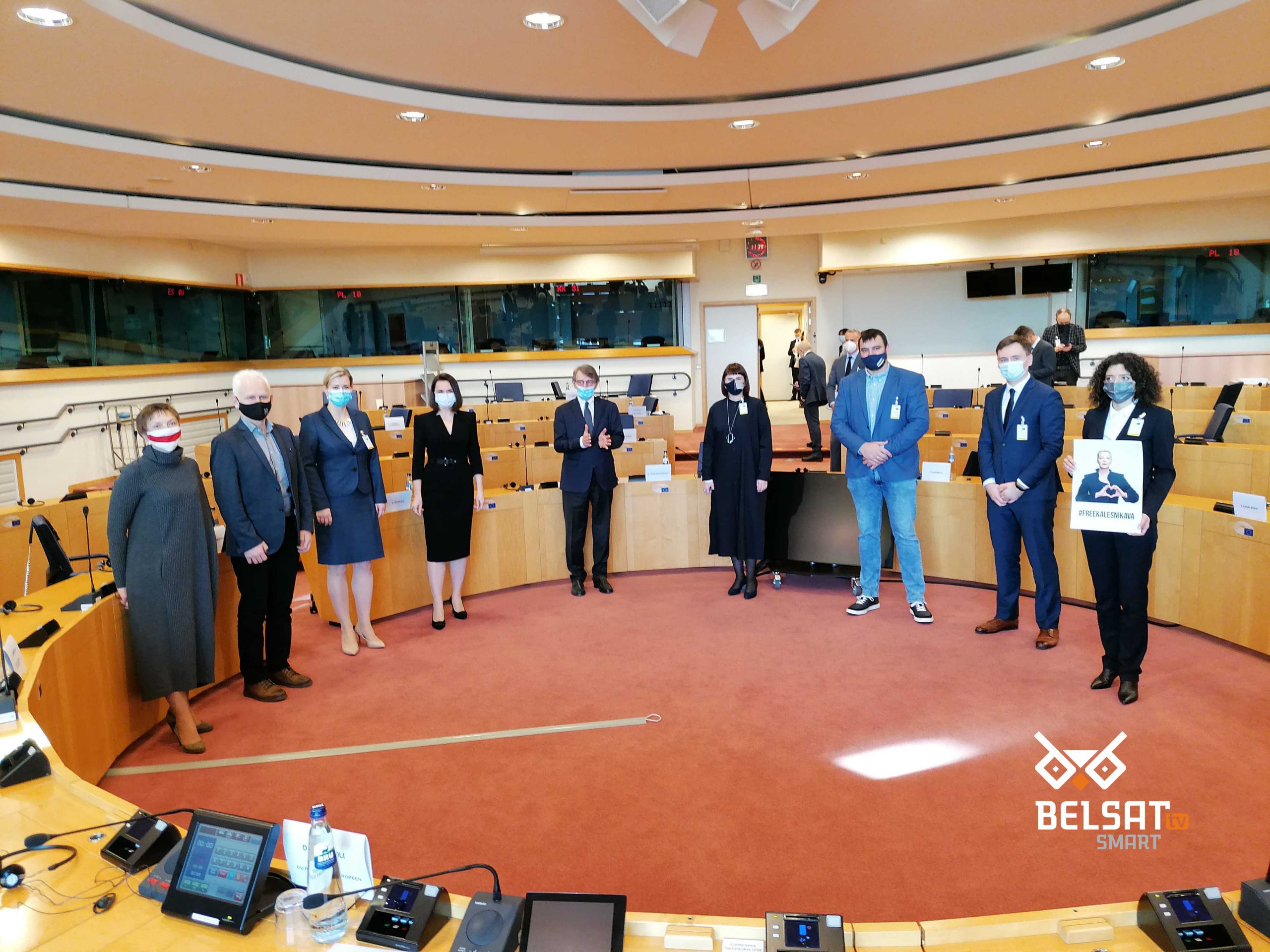
Valieryj i Vieranika Capkala moved to Riga, where they worked on creating a fund to help Belarusian women who suffered from the authorities' actions. They also helped refugees from Belarus who received political asylum in Latvia.
Belarus and Russia signed an agreement on security forces' cooperation.
BYPOL, a telegram channel of former investigators and law enforcers, published a new video on YouTube, which reportedly showed what was happening in Minsk's Frunzienski district police department on 12 August.
Miss Belarus 2008 and former press secretary of Brest Dinamo Voĺha Chižynkova was released. She served 42 days of arrest for participating in several unauthorized protest rallies.
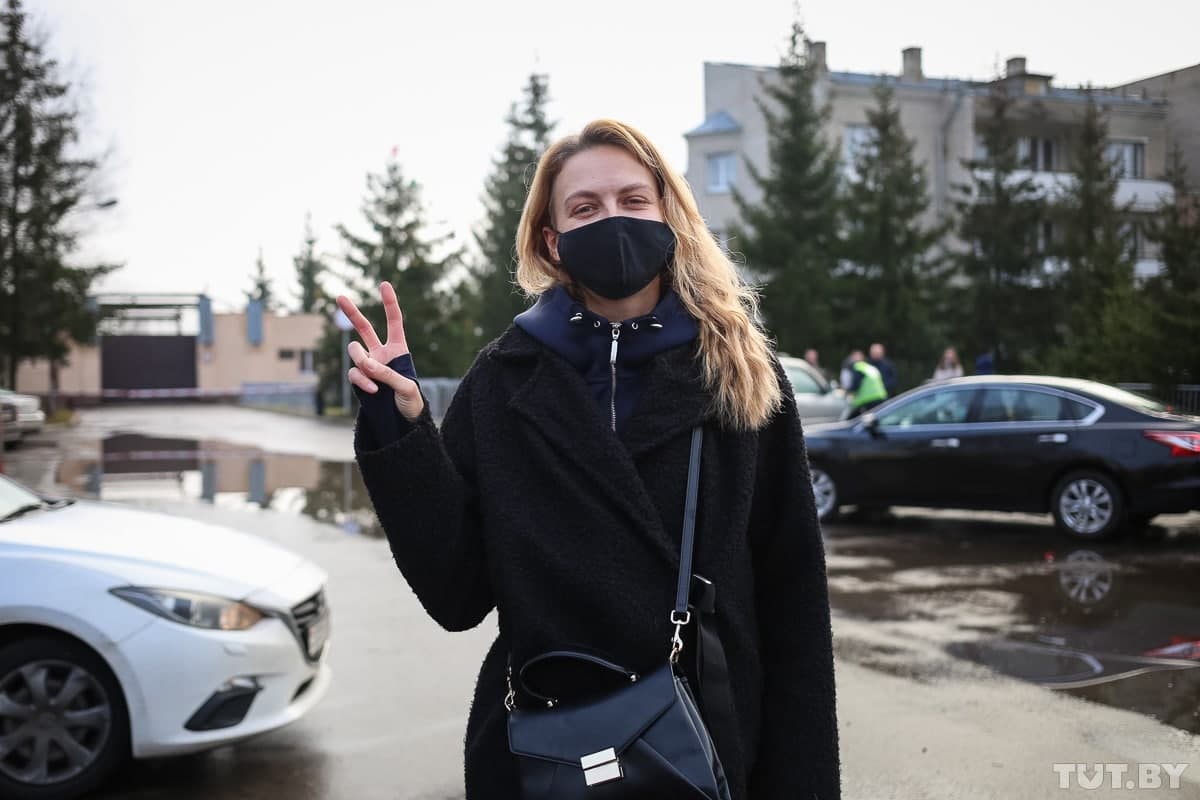
Julija Sluckaja, the Press Club Belarus media organization founder, was detained at the airport upon her arrival in Minsk and taken to the Department of Financial Investigations. The police were searching the apartments of Press Club programming director Ala Šarko and director Siarhiej Aĺšeŭski. The officers were also raiding the home of Press Club Academy director Siarhiej Jakupaŭ, and Sluckaja's apartment in Minsk.
The government of the Russian Federation approved a draft agreement to provide Belarus with a $1 billion loan in 2020-2021, which was stated in the order signed by Russian Prime Minister Mikhail Mishustin.
Archibuskup Tadeusz Kondrusiewicz returned to Minsk. He held the first mass in 4 months in the Arch-Cathedral church.
Donald Trump signed the US Federal Budget Act – H.R.8438, which included signing the "Belarus Democracy, Human Rights and Sovereignty Act". So the powers of the US President were expanded until the introduction of new sanctions in connection with the 2020 presidential elections in Belarus.
Belarusians celebrated the New Year.
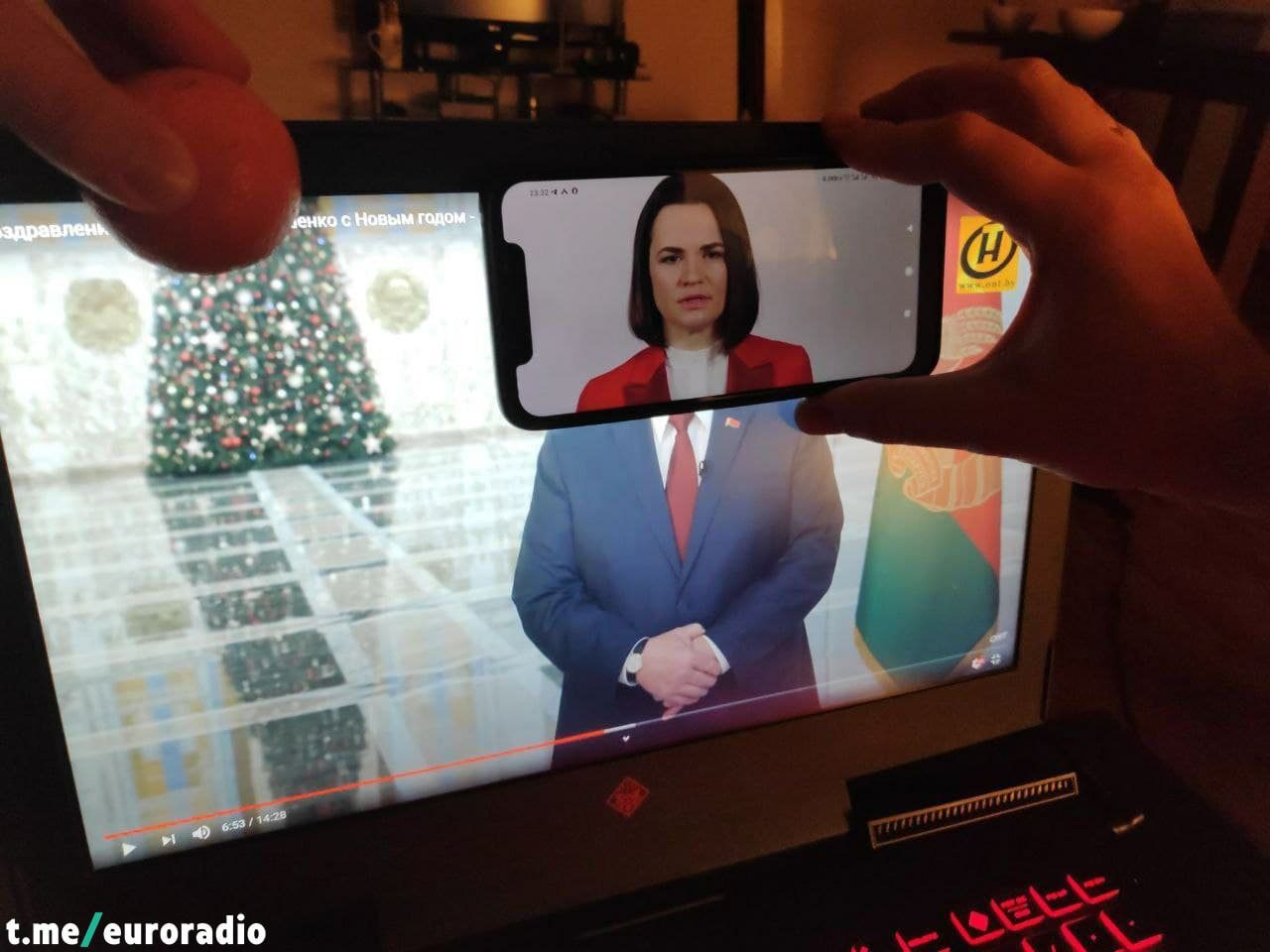
Dozens of inhabitants of Minsk districts came out for protest marches.
Lukašenkа met the president of the International Ice Hockey Federation Rene Fasel, who specially flew to Minsk to discuss the prospects of the World Cup. The competitions were to be held in Belarus and Latvia. However, the Belarusian community, the opposition, the Latvian side, as well as a number of other participants of the championship have repeatedly spoken out against holding this event in Belarus because of the brutal suppression of peaceful actions against the falsification of the presidential elections on August 9, 2020.
The journalist and media manager Andrej Aliaksandraŭ and his girlfriend Iryna were detained over the criminal case.
The security forces left the office of the BelaPAN news agency, taking computer hard drives with them.
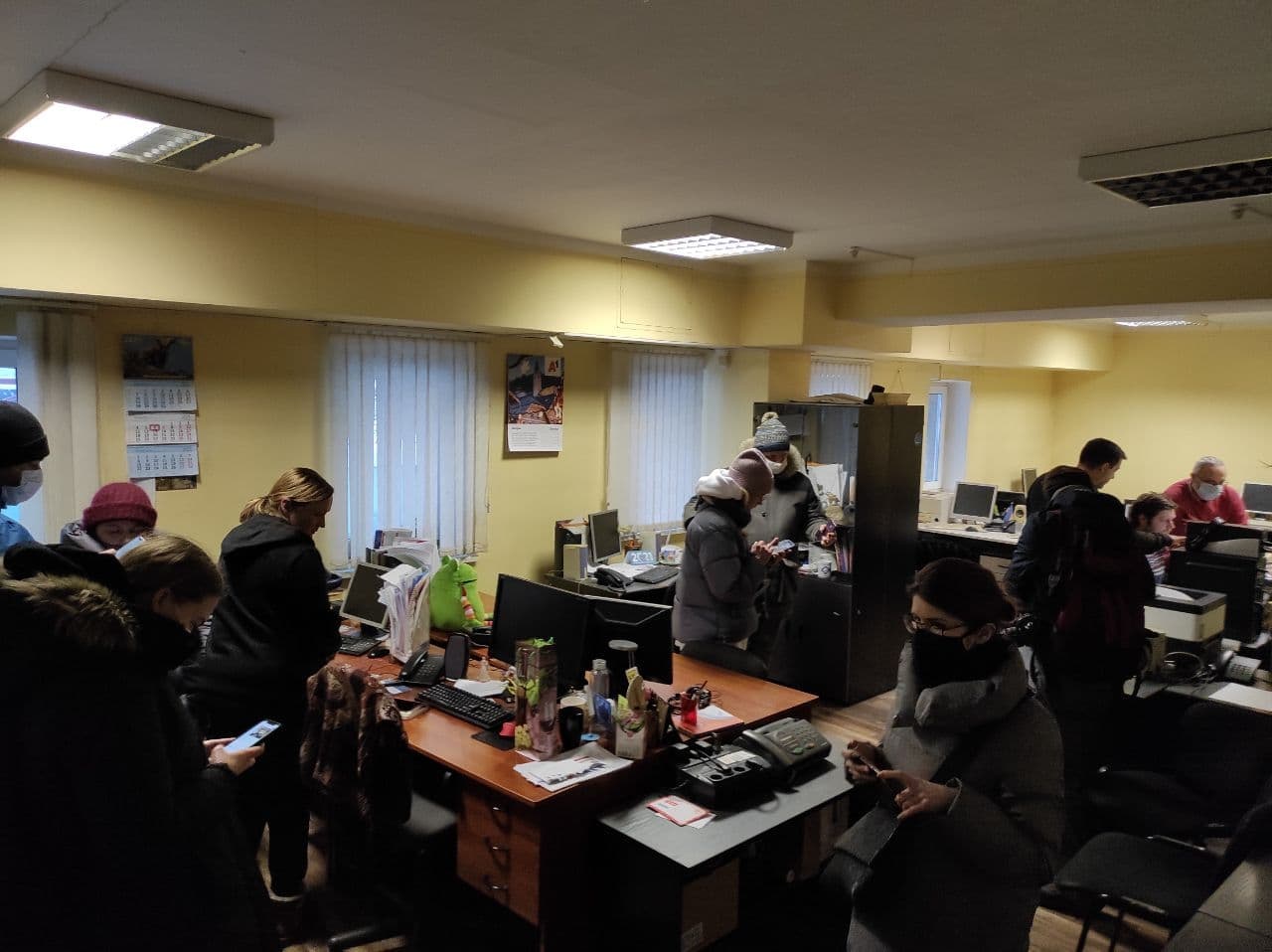
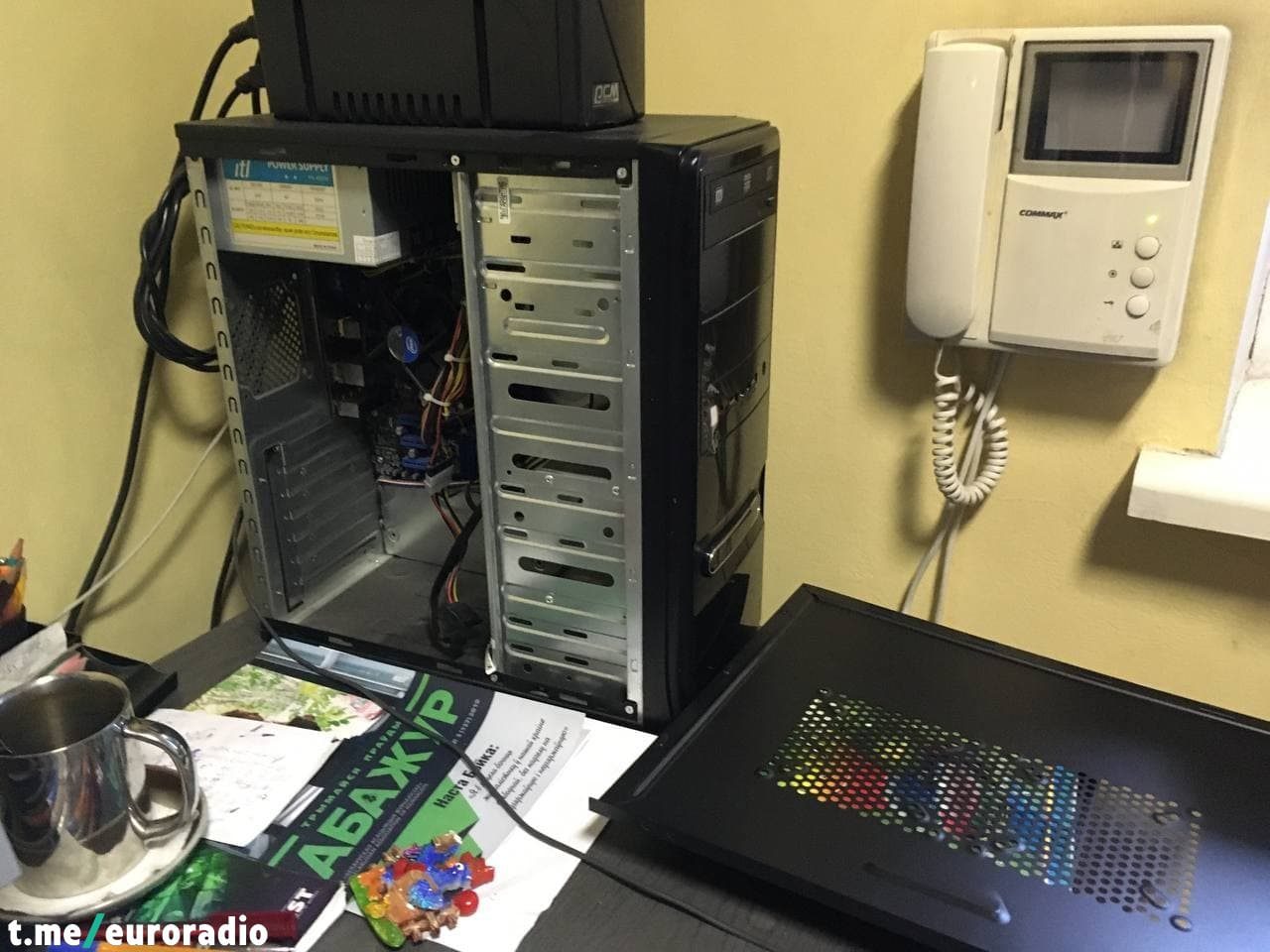
BYPOL, a telegram channel of former investigators and law enforcers, published an audio recording in which a man with a voice that sounded like the ex-head of the GUBAZiK, and then the Deputy Minister of Internal Affairs – Commander of the Internal Troops Mikalaj Karpiankoŭ, explained why Aliaksandr Tarajkoŭski had died, and shared the details of the meeting with Lukašenkа, when law enforcement officers were instructed on how to treat protesters.
The Nivea brand decided to stop sponsoring the 2021 Ice Hockey World Championship if Minsk turned to be one of its venues.
"We've been a proud partner of the IIHF Hockey World Championship for 28 years. But we also respect & promote all human rights. Therefore, Skoda will withdraw from sponsoring the 2021 IIHF Ice Hockey World Championship if #Belarus is confirmed to be co-hosting the event," Skoda announced on Twitter.
The Ministry of Internal Affairs of Belarus commented on the detention of journalist Andrej Aliaksandraŭ and his girlfriend, Iryna Zlobina. They were accused of financing the protests.
Courtyard marches and flash mobs continued despite freezing weather.
Liqui Moly decided not to sponsor the Hockey World Cup if it took place in Belarus.
Belarusian political prisoner Natallia Hersche, who was also a Swiss citizen, started a hunger strike. The reason was that she did not receive letters that people had sent to her as far back as 2020. Natallia suggested the prison authorities were holding them back.
Lieanid Sudalienka, one of the most famous Belarusian human rights defenders, has been detained in Homiel.
Law enforcers made an unexpected visit to the office of the Rights of Persons with Disabilities in Minsk. The Department of Financial Investigations of the State Control Committee was checking the office staff over allegedly illegally receiving funds in charitable donations and foreign aid.
MMA fighter Kudzin was detained in Moscow. World kickboxing and Thai boxing champion Aliaksiej Kudzin took part in the August protests in Maladziečna, where he lived. After his arrest, Alyaksei spent several weeks in custody in Žodzina jail, and on August 21, he was placed under house arrest. On September 19, the trial was to begin in Maladziečna. Kudzin was charged under Part 2 of Article 363 of the Criminal Code – "Resistance to an officer of internal affairs or other person guarding public order". Aliaksiej did not appear at the hearing; it was reported that he had left Belarus.
Two 18-year-old protesters Safija Malaševič and Cichan Kliukač, got prison terms for drawing on Rubež defensive system shields during the People's Unity March held in the Belarusian capital city on September 6.
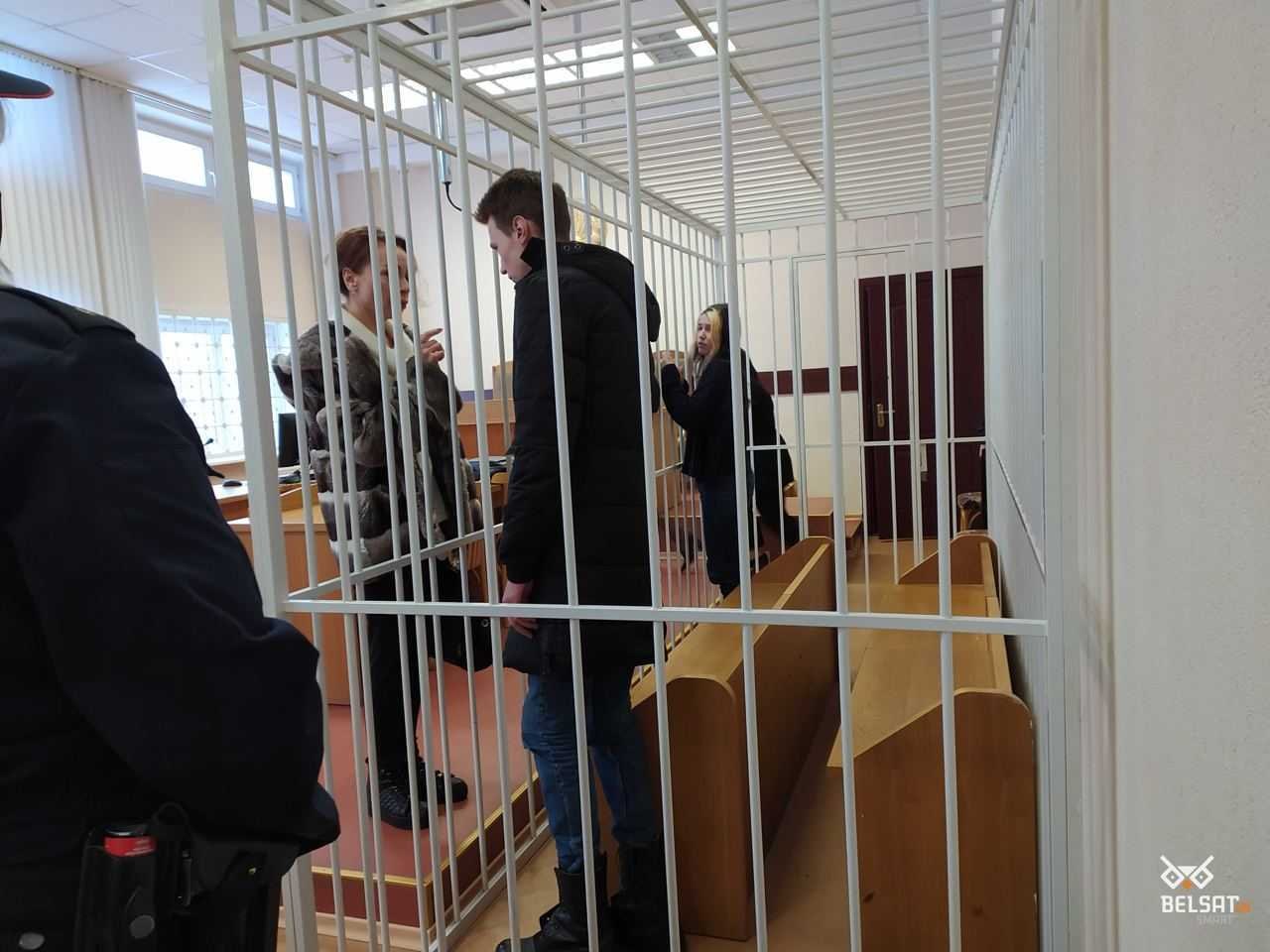
Belarusian State University of Informatics and Radioelectronics expels 21-year-old student Jan Salanovič serving 115 days for taking part in protests.
Political prisoner Ihar Losik stopped the hunger strike. Belarusian blogger decided to end it on the 42nd day of the strike. The letter in which Ihar Losik announced his decision was handed over by his defence lawyer.
"I have not eaten anything for more than forty days, but I still feel the strength and ability to continue [hunger-striking]. But I was deeply moved by the incredible wave of solidarity as well as by the fact that hundreds and thousands of Belarusians urged me to stop it so that I could stay healthy and live to our common victory. And I know that many people also embarked on [solidarity] hunger strikes while I was fasting. I cannot take on such a great burden of responsibility; I do not want others to suffer due to my conscious choice. After reading all these appeals in your letters, I realized that I could not be the reason for your distress, I could not make my family and all of you worry about me. I never sought prominence; I never sought publicity. I just wanted to live a quiet life and raise my daughter. But I was pushed into resorting to such an extreme measure," Ihar Losik wrote in his letter.
RFE/RL published photos of a camp near Sluck. It was allegedly set up for keeping two thousand protesters. Many people detained in the first days of the post-election protests were reported to be taken to the premises of the occupational therapy detox centre near the Belarusian town of Sluсk (Minsk region).
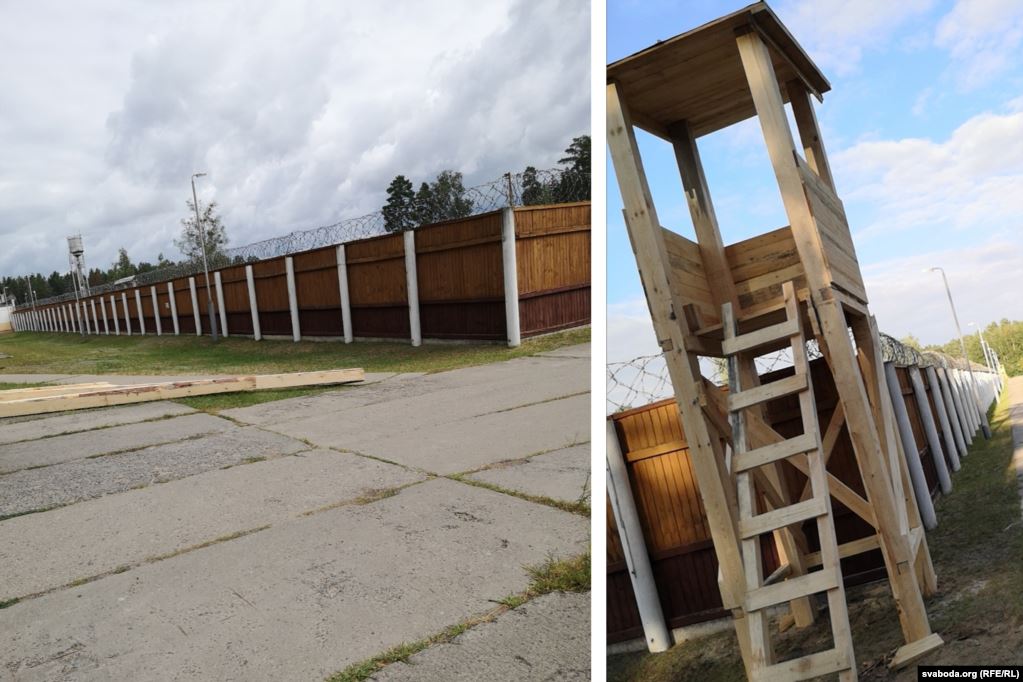
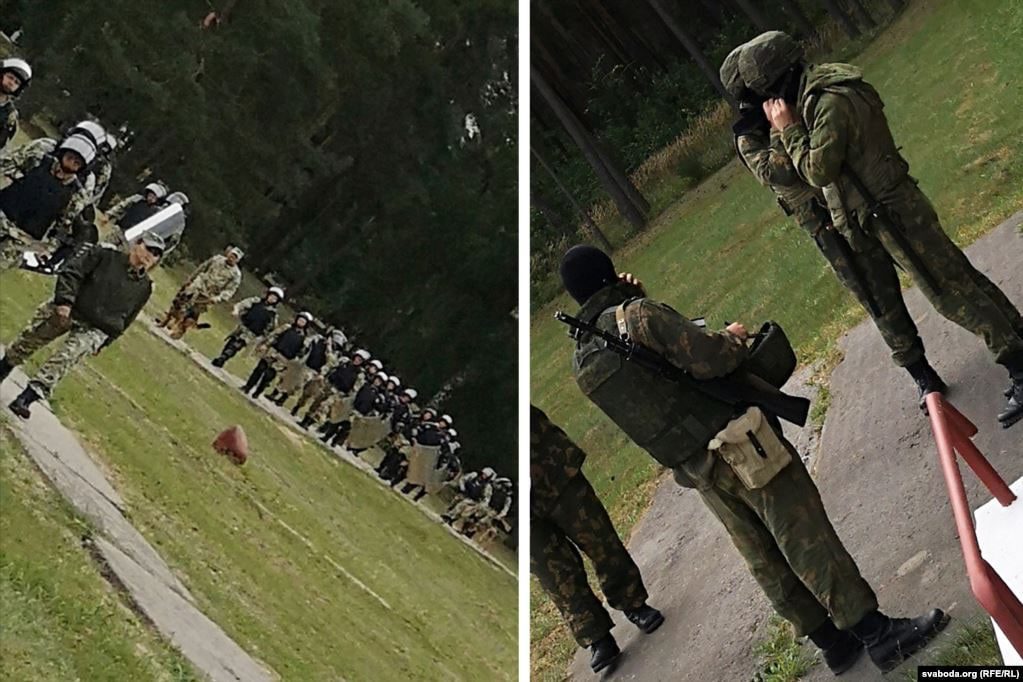
Sviatlana Cichanoŭskaja, Paviel Latuška, Voĺha Kavaĺkova, Valieryj and Vieranika Capkala held a joint meeting where they discussed the Victory Plan-2021.
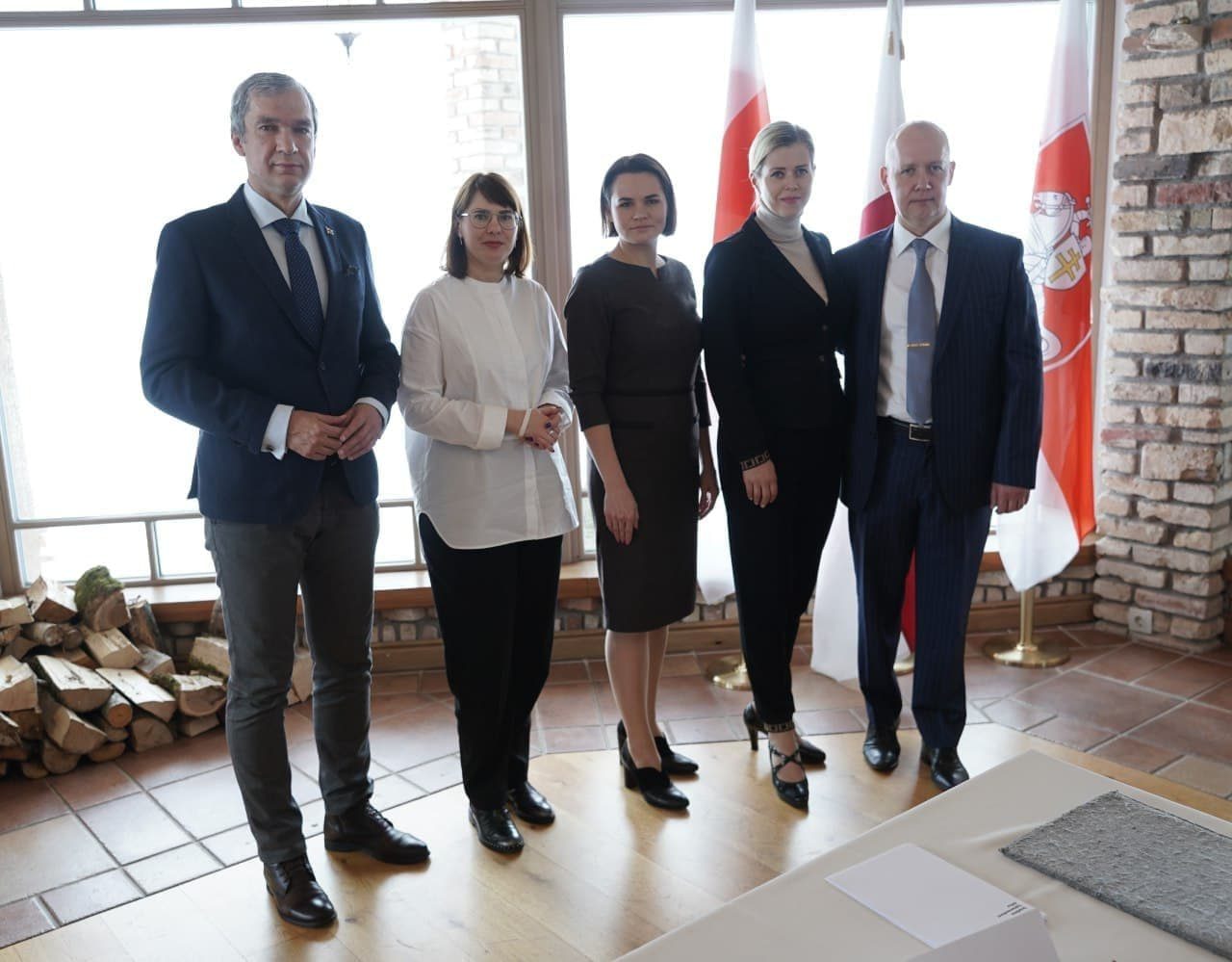
Police detained several professors linked to Belarusian State University. On the day of Lukašenkа's visit to the country's leading higher education institution, several current and former lecturers of the Belarusian State University (BSU) were taken away by the Minsk police. They detained Sviatlana Voŭčak, the head of the strike committee, a former BSU teacher, her husband Miсhail Voŭčak, and Paviel Piatroŭ, a senior lecturer at the BSU Department of Physical Electronics and Nanotechnologies (Faculty of Radiophysics and Computer Technologies). A day earlier, Voĺha Kavalieŭskaja, a senior lecturer at Geography Faculty, was detained.
The Belarusian Prosecutor General's Office was preparing necessary documents intending to recognize the white-red-white flag as 'extremist'.
A search was conducted at the Symbal.by office. Four employees of the souvenir shop were first taken to a police station and then to the detention centre on Akrescin Street.
Sviatlana Cichanoŭskaja proclaimed 7 February as the Day of Solidarity with Belarus to support those who protest daily in the face of adversity and thank them for their bravery and strong will.
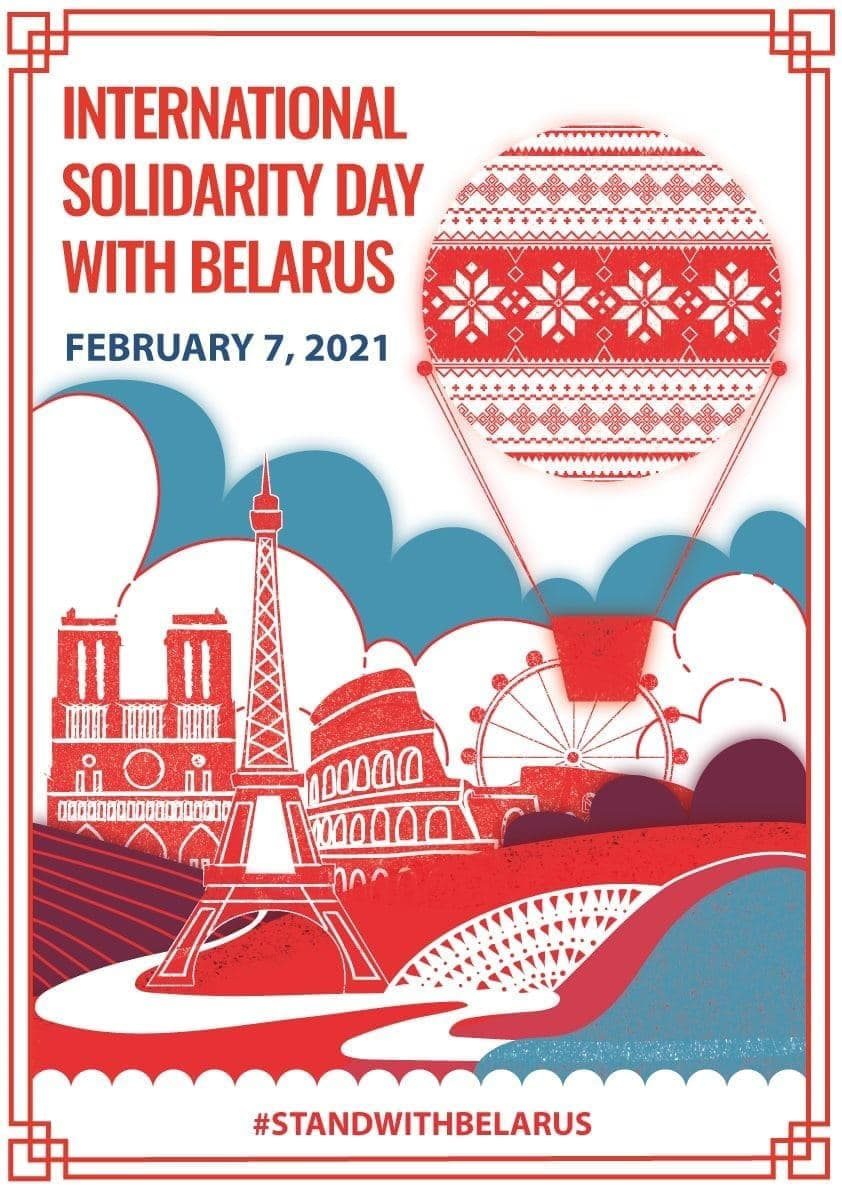
European Parliament mulled sanctions against Belarusian judges.
The head of the international legal department of the Investigative Committee, Michail Vavula, recently said that the Investigative Committee had sent the documents through the Prosecutor General for the extradition of Sciapan Pucila and Raman Pratasievič to Poland.
The trial of Belsat TV journalist Kaciaryna Andrejeva and a camerawoman Darja Čuĺcova kicked off in Frunzenski district court of Minsk.
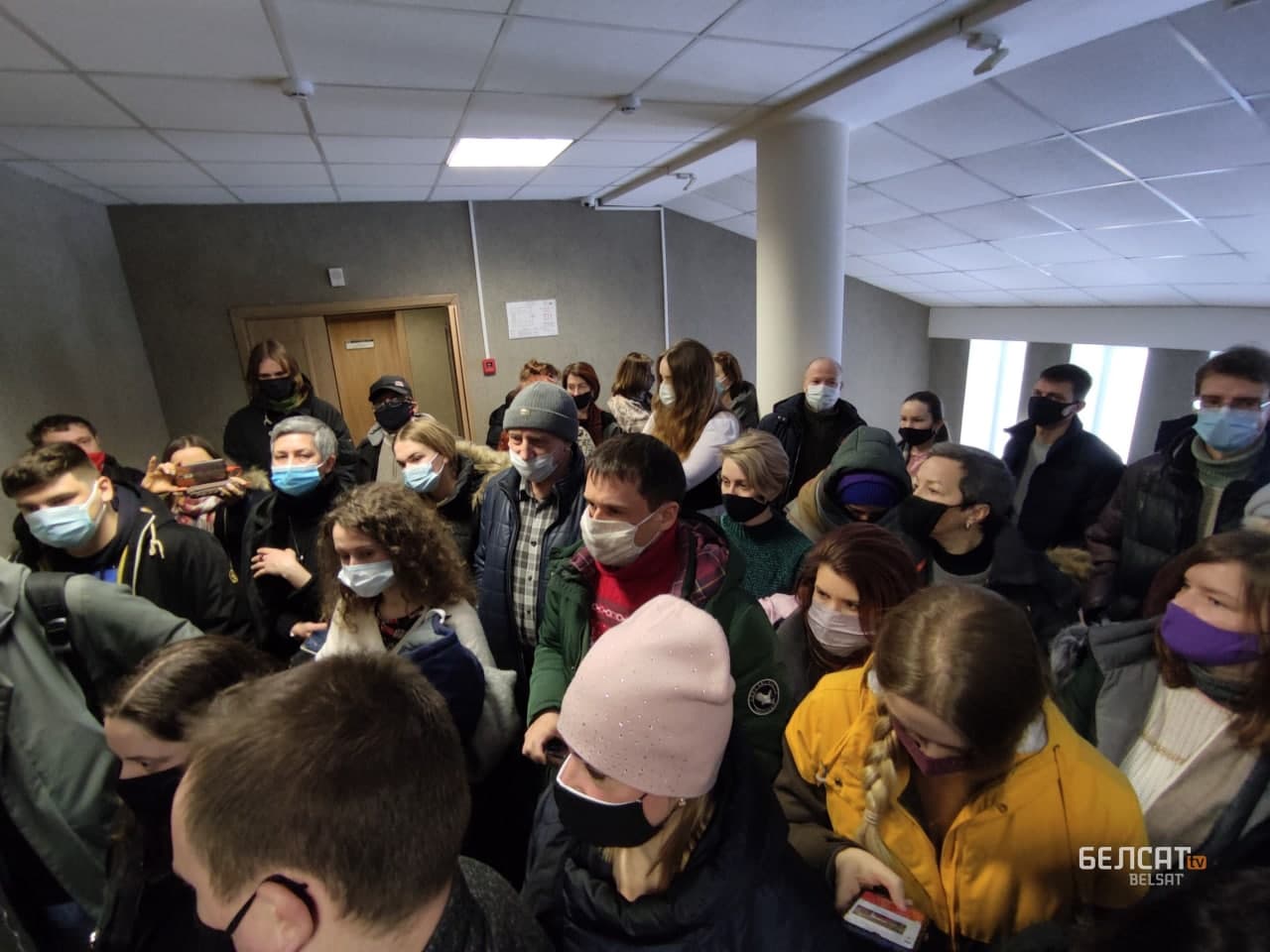
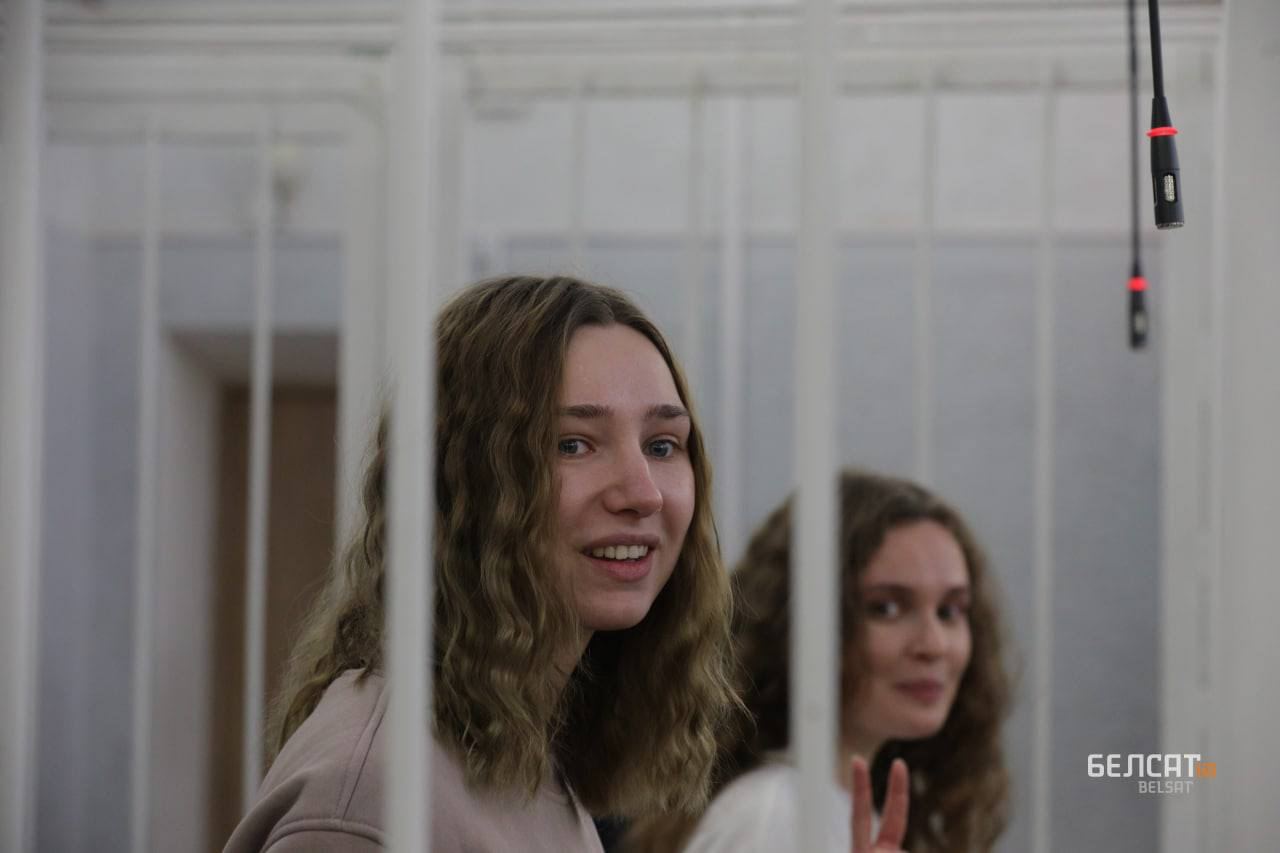
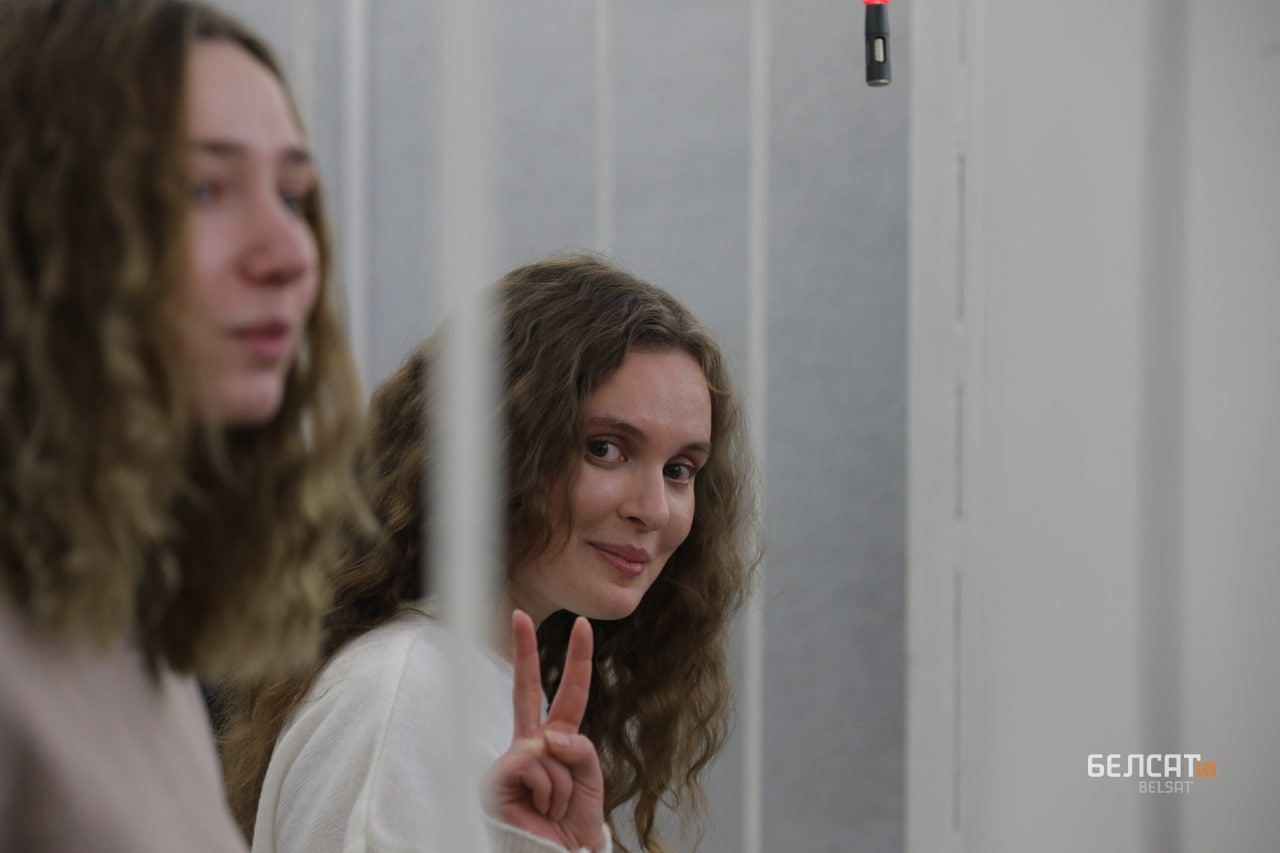
Latvian Foreign Minister Edgars Rinkevics was set to reject the Belarusian authorities' request for the extradition of former presidential wannabe Valieryj Capkala.
The Belarusian Prosecutor General's Office submitted a request to Russia's Prosecutor General for the extradition of athlete Aliaksiej Kudzin.
The police detained skiers in Maladziečna. There were more than 20 people in total. With their skiing equipment, they left the town, surrounded by law enforcers and taken to the Maladziečna police department.
The hearing of Viktar Babaryka's and Belgazprombank's case started in the Maskoŭski district court of Minsk.
Security forces made an unexpected visit to the New Life Protestant church, located in the Sucharava residential area of Minsk.
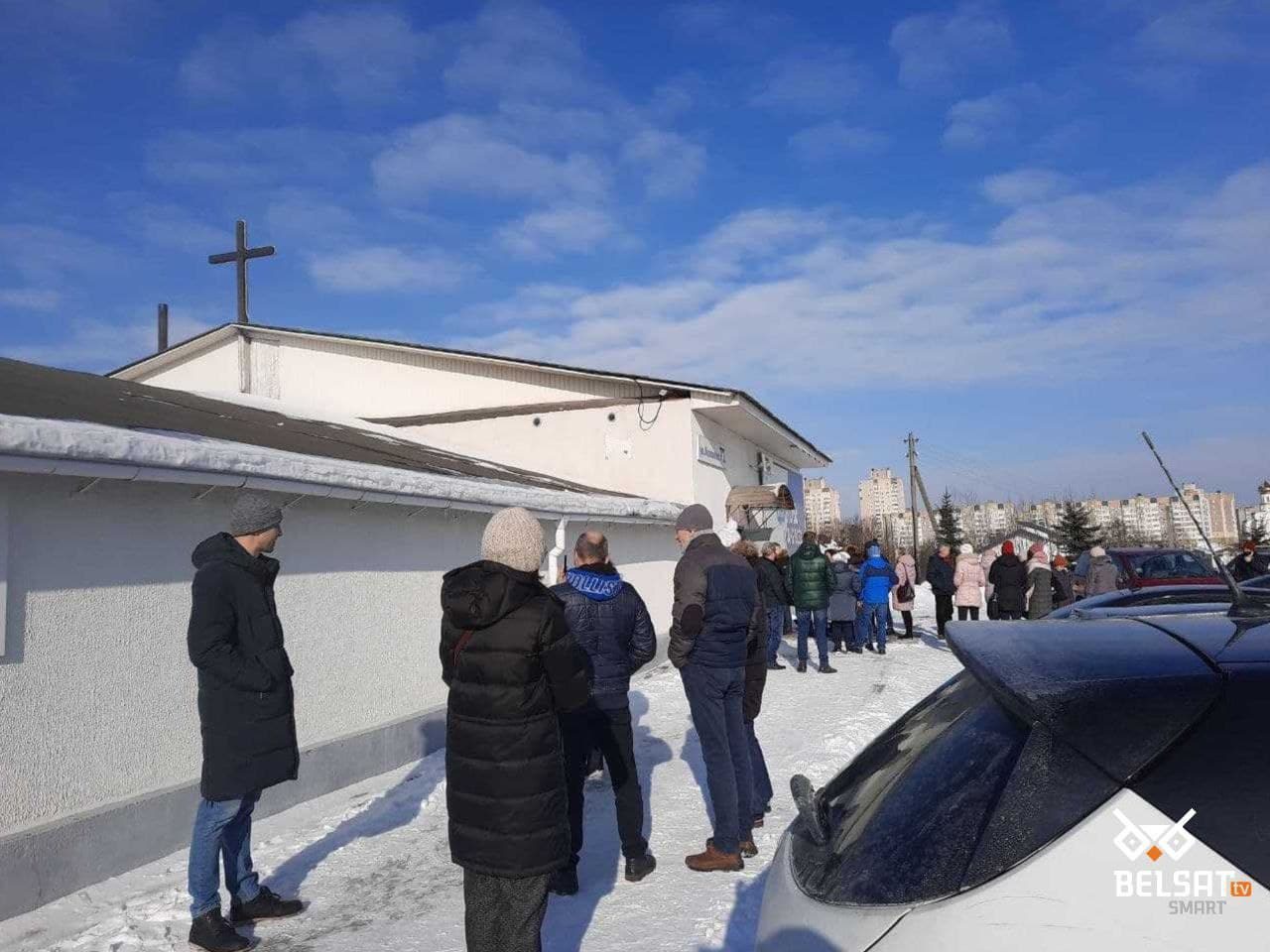
Judge Natallia Buhuk has passed a guilty verdict and sentenced Belsat TV journalist Kaciaryna Andrejeva and a camerawoman Darja Čuĺcova to two years of imprisonment in a minimum-security penal colony.
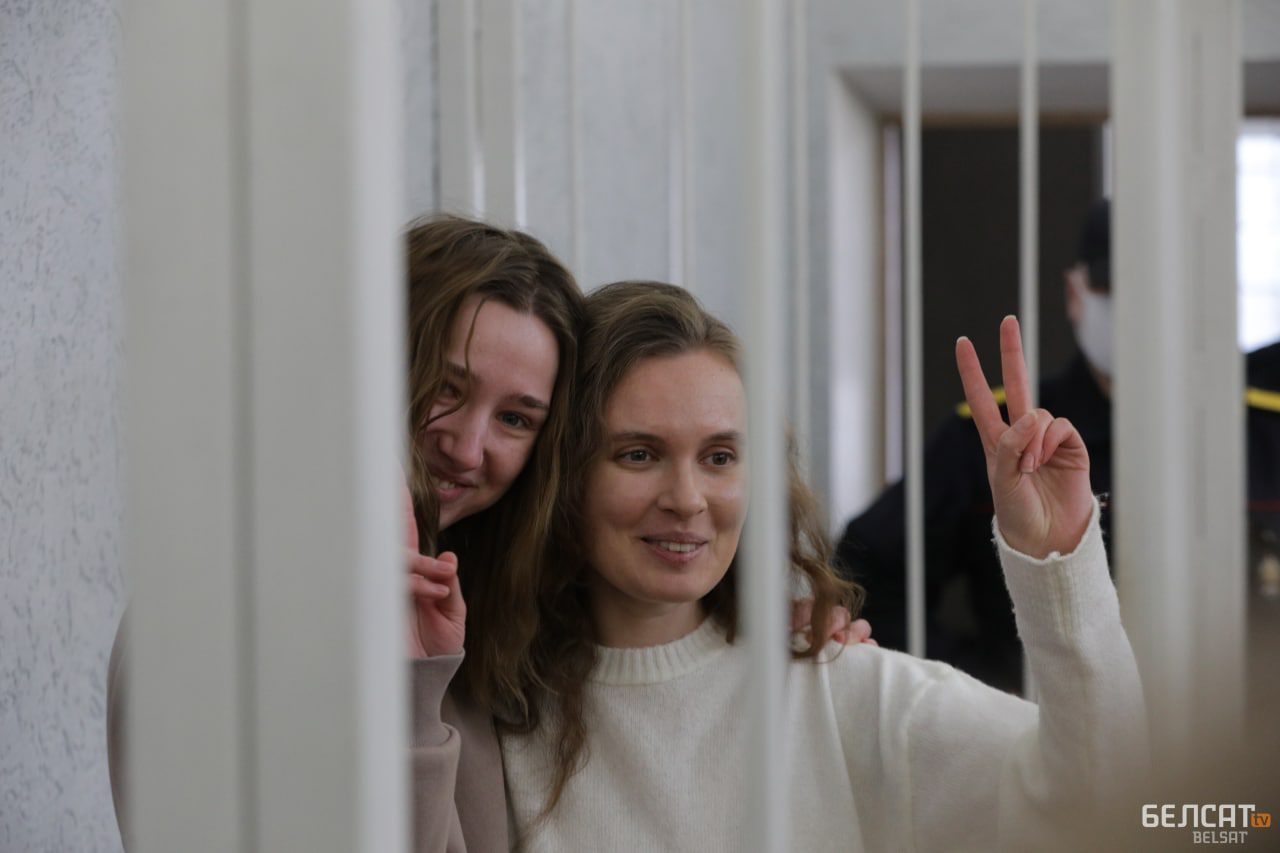
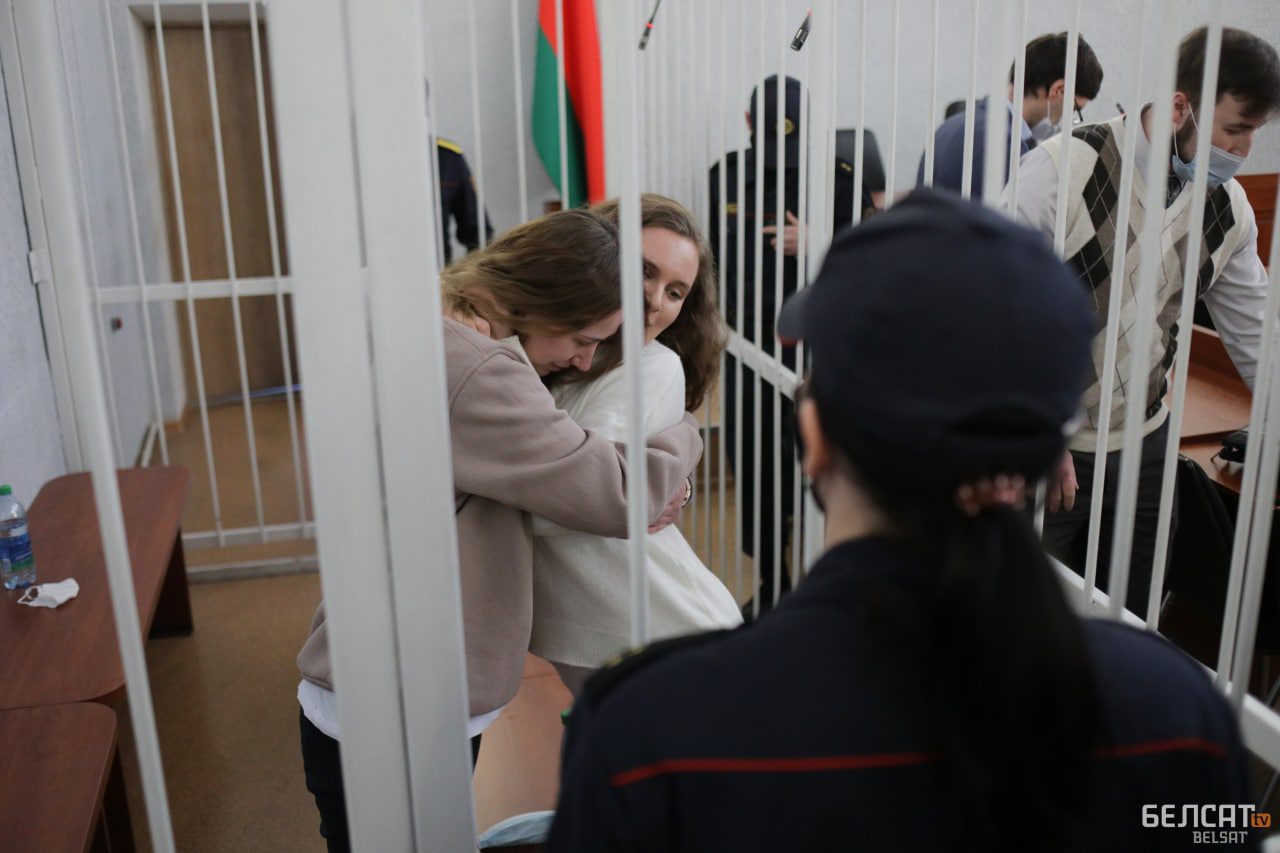
The General Prosecutor's Office opened a criminal case on the death of Raman Bandarenka and stressed that "there was found no involvement of the police officers in the infliction of bodily harm to Bandarenka".
Journalist Kaciaryna Barysievič and doctor Arciom Sarokin were to be tried for disclosing information about the condition of Raman Bandarenka. The trial was about to take place in the Maskoŭski District Court of Minsk. However, independent journalists of TUT.BY, Onliner, "Komsomolskaja Pravda v Belarusi ", BelaPAN and Office.life were not allowed into the hearing.
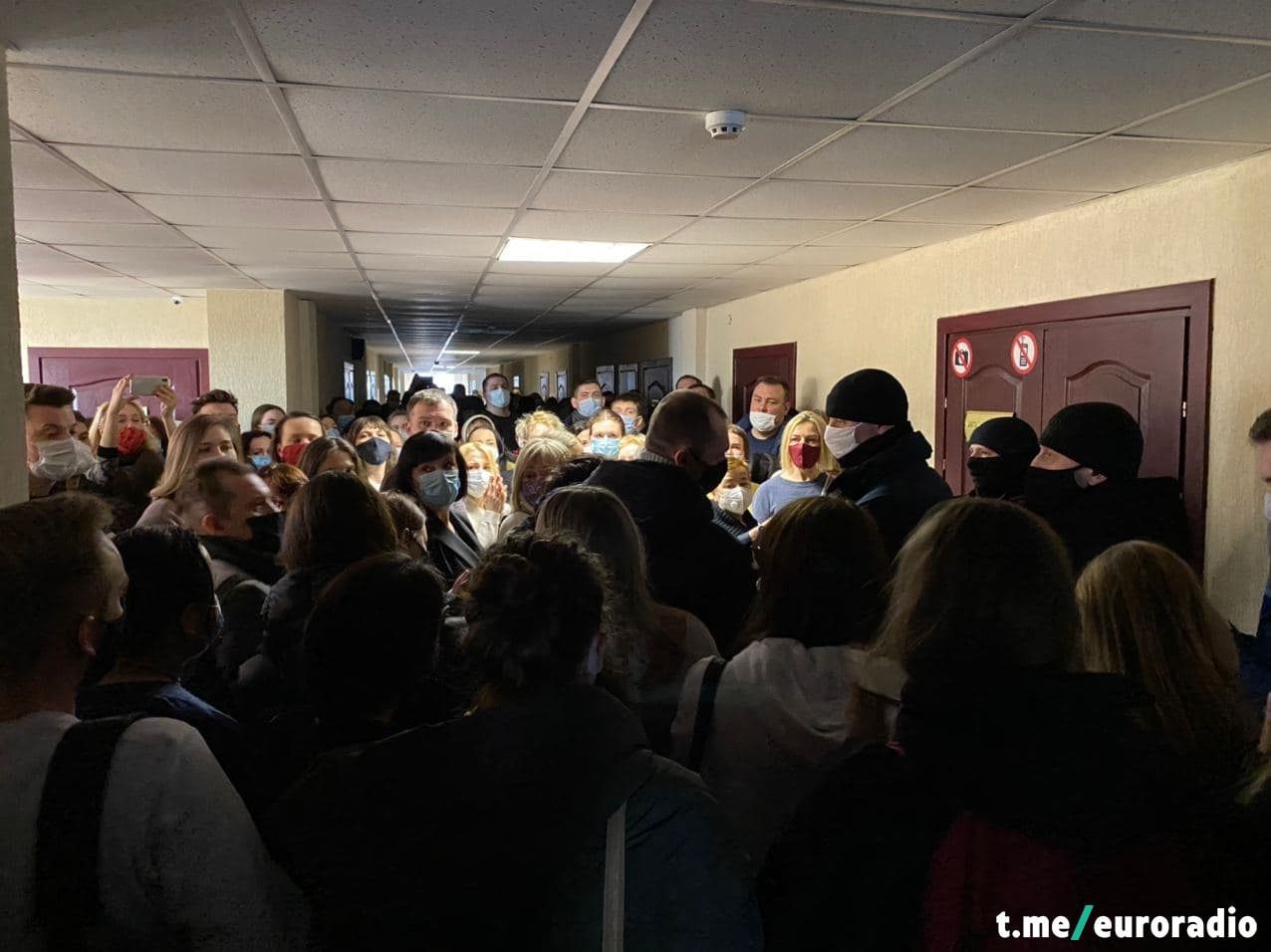
The Investigative Committee decided against launching criminal proceedings over the death of Aliaksandr Tarajkoŭski.
Liavon Chalatran, a volunteer at imprisoned politician Viktar Babaryka's campaign office and director of Ruin Bar OK16, was sentenced to two years of restriction of liberty in an open-type correction facility.
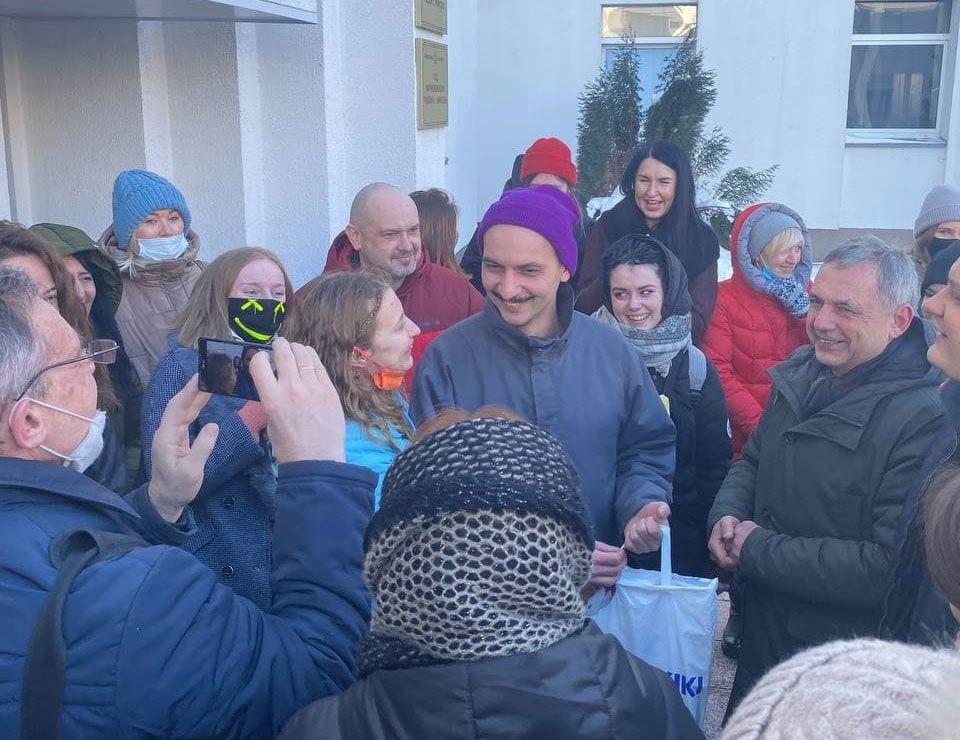
The Qualification Commission at the Ministry of Justice terminated the licenses of lawyers Kanstancin Michieĺ, Michail Kiryliuk, Maksim Konan and Liudmila Kazak.
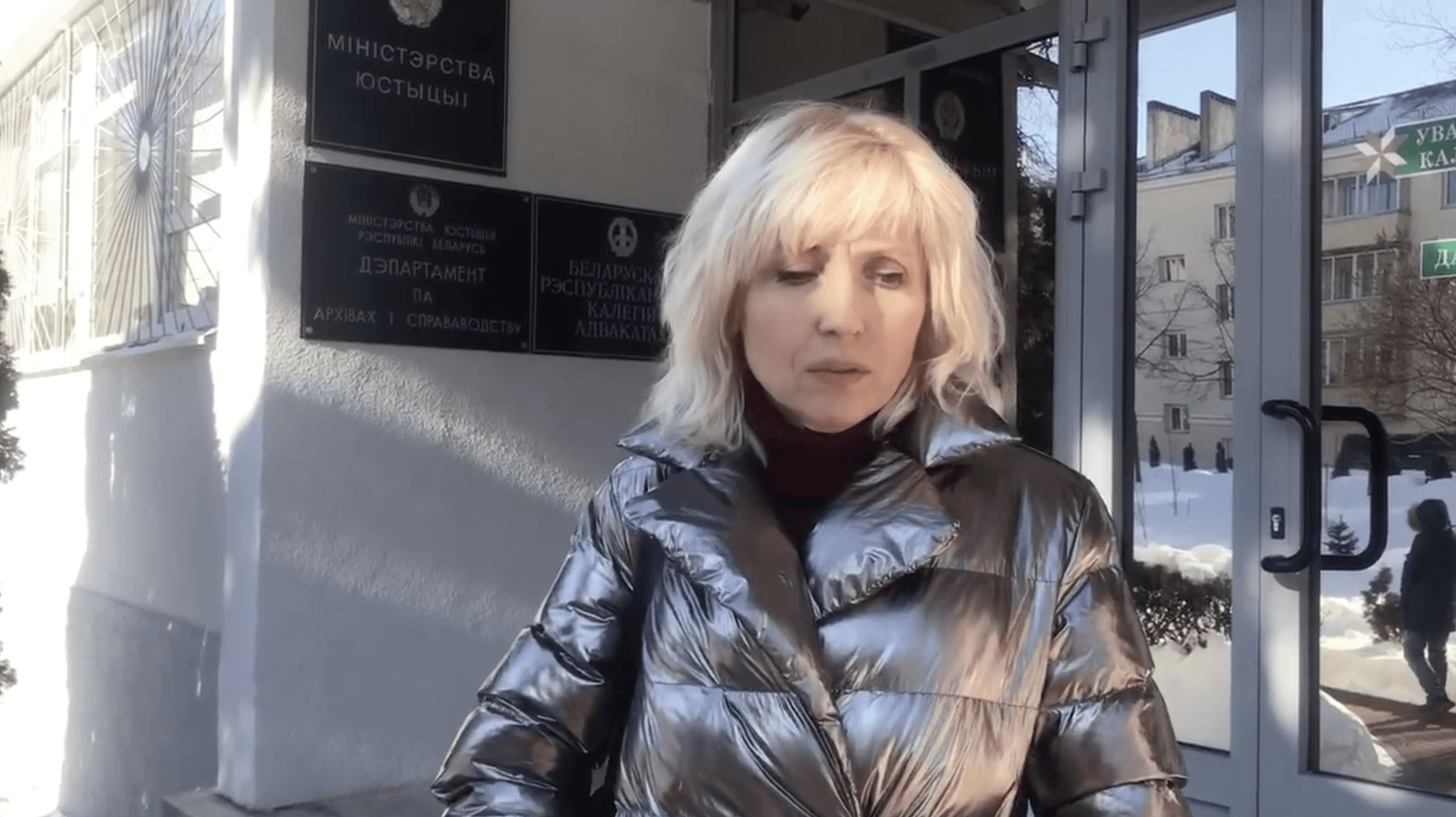
The Ministry of Justice confirmed that it was preparing amendments to the Criminal Code. Among other things, they suggested introducing Article 342-1 ("Violation of the order of organizing or holding mass events"). It would apply to people who were sentenced twice within a year under administrative code Article 23.34. They would be punished by arrest, restriction or imprisonment of up to three years.
Article 198-1 ("Violation of legislation on mass media") might also be introduced. Suppose the site owner, not registered as a network publication, disseminated prohibited information within a year after the administrative penalty for this violation. In that case, they could be punished by community service, a fine, restriction or imprisonment up to two years.
The draft proposed to toughen the responsibility for the dissemination of personal data. As for the attempt on the life of a security officer (Article 362), in the case of changes to the Criminal Code, this crime would be punished by imprisonment from 15 to 25 years or life in prison.
But the Ministry of Justice stressed that the draft version could not yet be called final. Authorities might make their changes, and then it would be sent to the parliament.
Believers gathered to pray outside the New Life Church building they had been evicted from earlier.
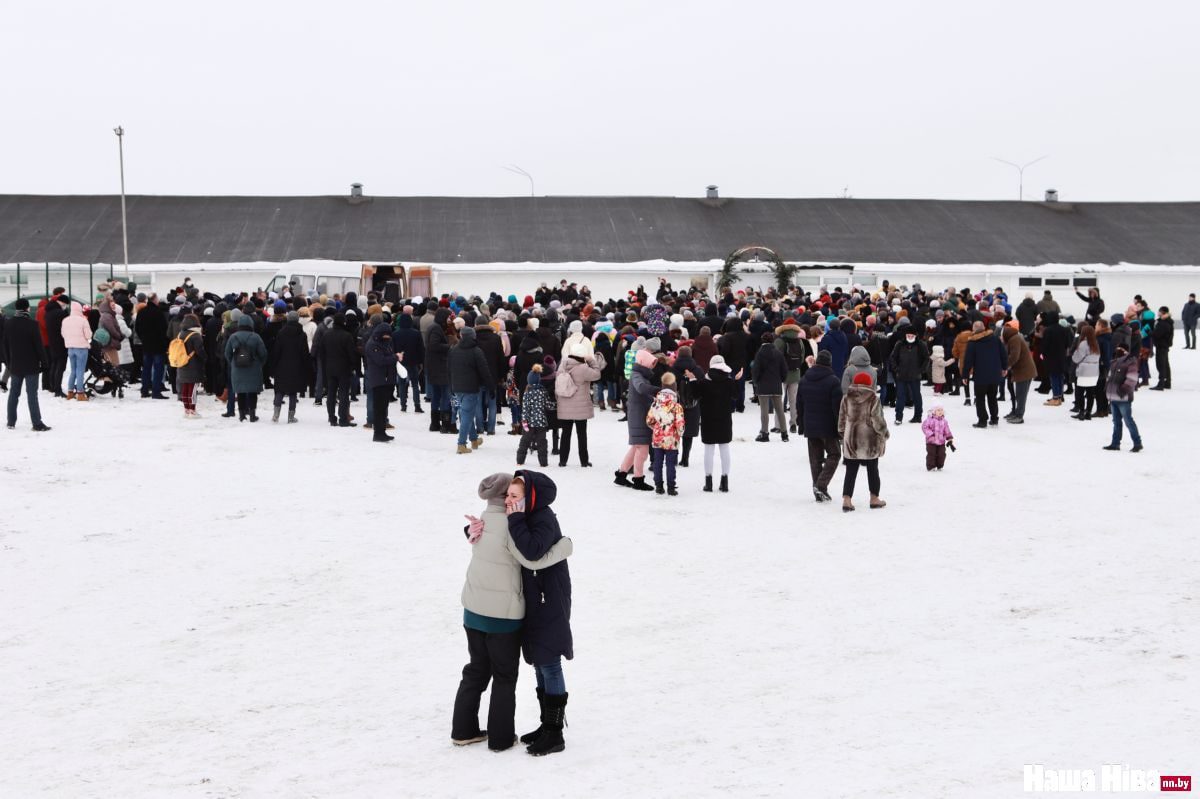
17-year-old Belarusian Mikita Zalataroŭ was sentenced to five years of imprisonment. He and two of his friends were tried in Homel for participating in protests. And at the time of his arrest, Mikita Zalataroŭ was only 16 at all. According to investigators, one of the guys threw a Molotov cocktail in the direction of the policemen, after which they disappeared. 16-year-old Mikita was detained at home on the morning of August 11. Shortly after that, he was taken to the intensive care unit of the hospital, and the next day he was taken from the intensive care unit to the prison cell. Mikita repeatedly told his father that he was being beaten.
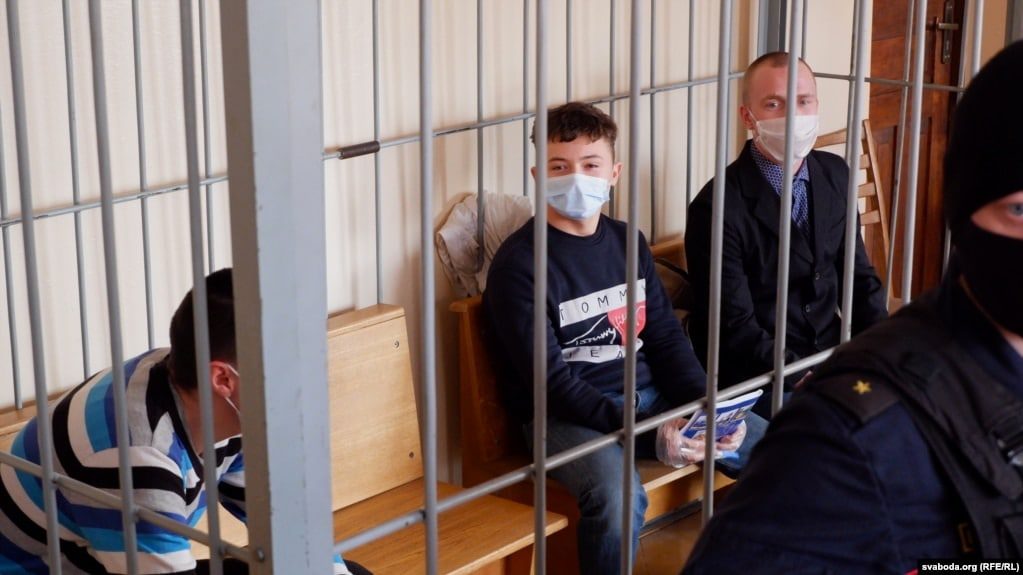
Brest activist Andrej Šarenda was released from the local pre-trial detention centre after spending 12 days of arrest there. On Wednesday, he informed that his wife Palina Šarenda-Panasiuk was taken to the Republican Scientific and Practical Centre for Mental Health (so-called Navinki) from the local detention facility on February 23. According to him, his wife was forced to undergo a forensic psychiatric examination.
A meeting between Aliaksandr Lukašenka and Russian President Vladimir Putin took place in Sochi. Lukašenka thanked Putin for his help in the case of the Belarusian economy. According to him, the money has not been thrown away. But whether help would continue was unknown. According to Putin, it was not the main thing. They discussed the gas issue and the roadmaps for integration, which were not signed in 2019 because they could not find consensus on oil, gas, tax policy and common currency. But they were being worked on.
A verdict was announced in the case of Aliaksandr Kardziukoŭ, an eyewitness to the murder of 43-year-old Brest resident Hiennadź Šutaŭ. Sviatlana Kramianieŭskaja, a judge of Brest regional court, sentenced him to 10 years in prison.
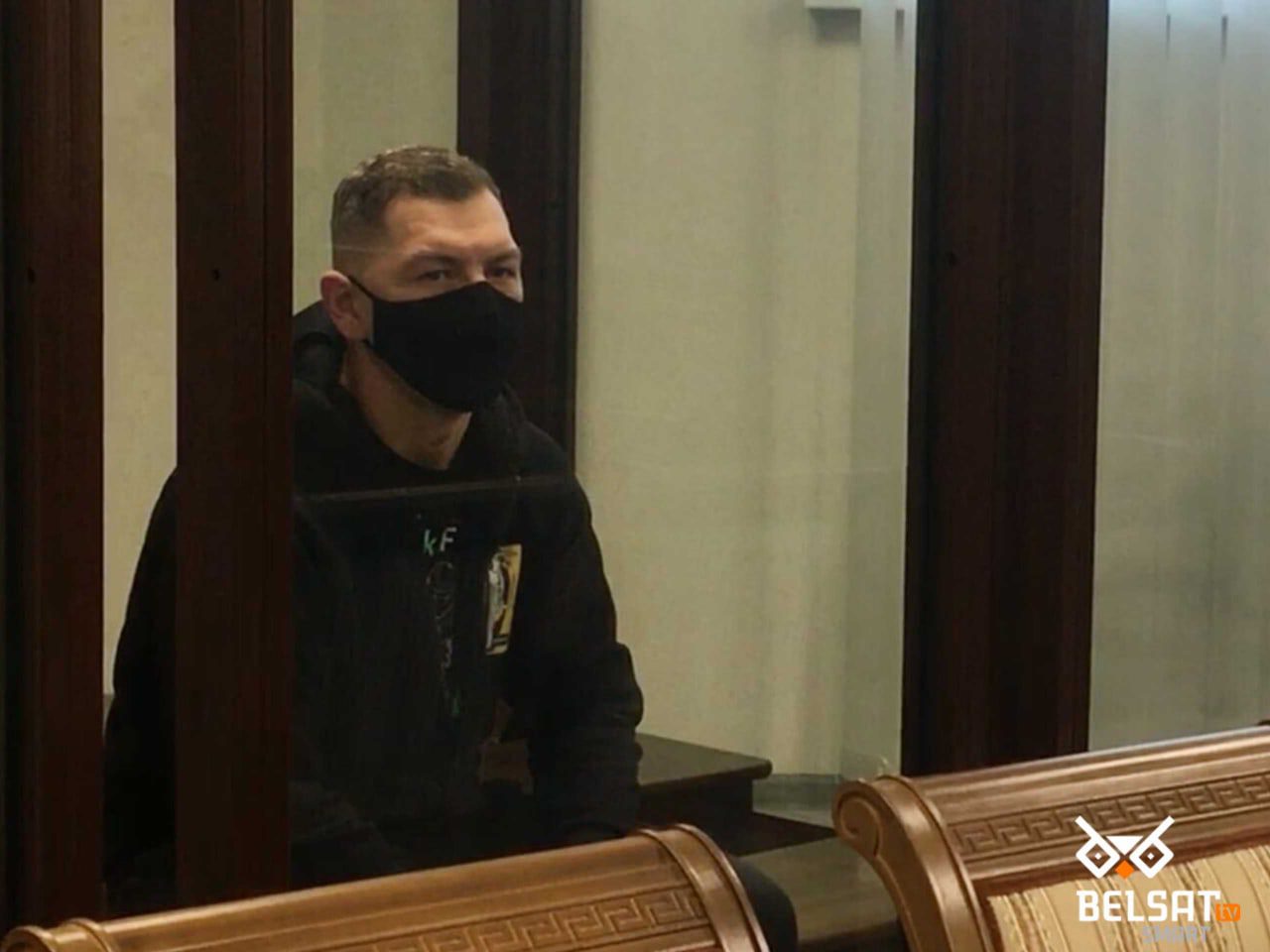
Almost 35 000 people signed a petition to the Norwegian company Yara International to stop cooperation with Belaruskali.
Białoruskie władze wystąpiły o ekstradycję Swiatłany Cichanouskiej i wytoczyły proces sądowy przeciw jej współpracownikom.
Sąd Rejonowy Maskouski w Mińsku wydał wyrok skazujący w sprawie dziennikarki Tut.by Kaciaryny Barysiewicz i doktora Arcioma Sarokina. Białoruskie władze oskarżyły ich o ujawnienie tajemnic medycznych. Sędzia Swiatłana Bandarenka skazała Kaciarynę Barysewicz na sześć miesięcy więzienia w kolonii karnej i zasądziła 2900 rubli białoruskich grzywny; Arciom Sarokin został skazany na dwa lata więzienia z dwunastomiesięcznym odroczeniem wykonania kary i grzywnę w wysokości 1450 rubli białoruskich. Z sądu wyszedł do domu.
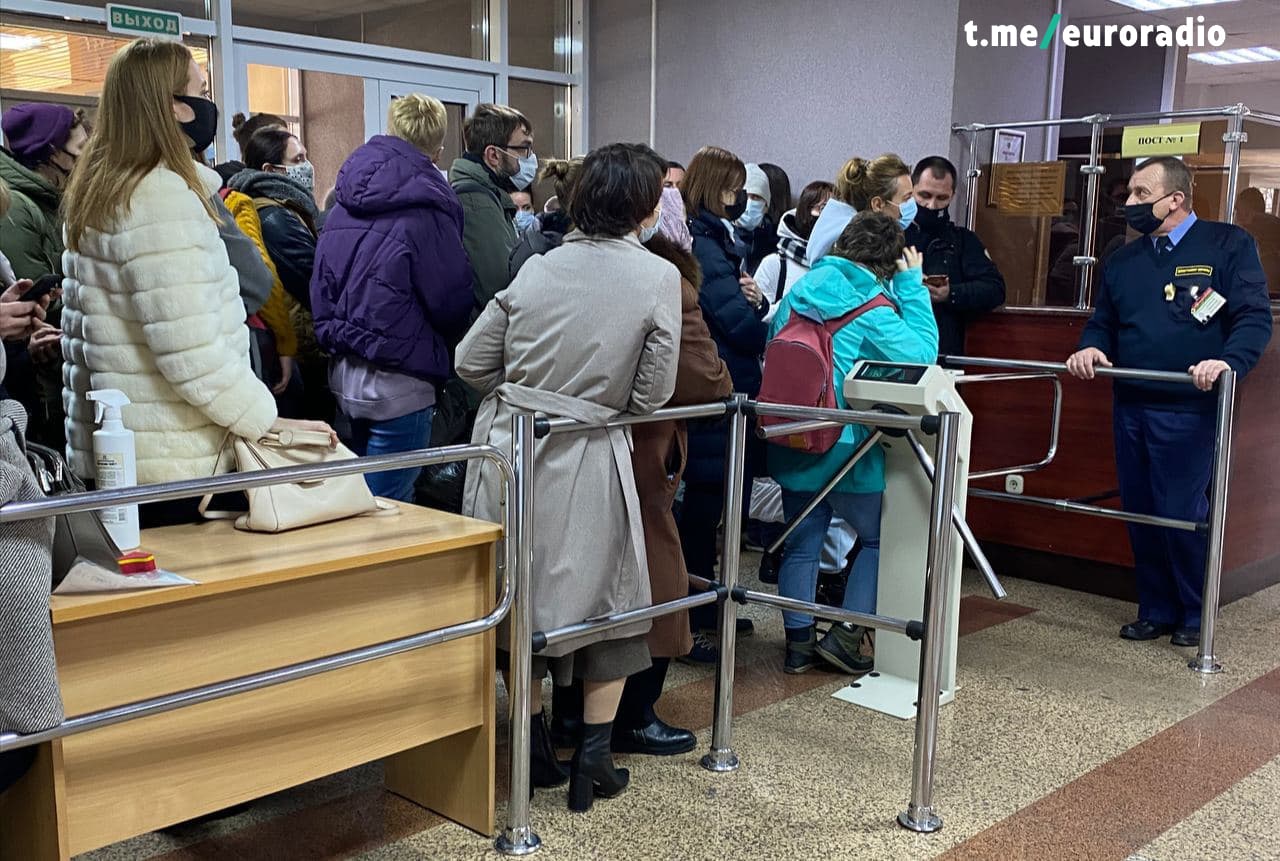
The Vitebsk City Clinical Emergency Hospital would not renew a contract with the Head of the Department of Anesthesiology and Intensive Care, Uladzimir Martaŭ. He was one of the first healthcare workers in Belarus who, back in April 2020, when the authorities denied the danger of COVID-19, was not afraid to report honestly on how severe this disease was.
Ihar Bancar, a Hrodna-based musician and activist, started a hunger strike, refusing food and water. On October 20, Ihar Bancar was detained and taken into custody. The reason was one of the street performances he staged: on the night of September 5, Ihar took off his underwear and danced in front of a police car. A criminal case was opened against him under Article 339 of the Criminal Code (‘hooliganism’). If found guilty, Ihar might have been sentenced to up to three years in prison. A bit later, he was taken to the Republican Scientific and Practical Centre for Mental Health in Minsk and forced to undergo a psychiatric examination. Upon returning to the prison, he served two weeks in solitary confinement. The Hrodna resident was deprived of any contact with his relatives and friends.
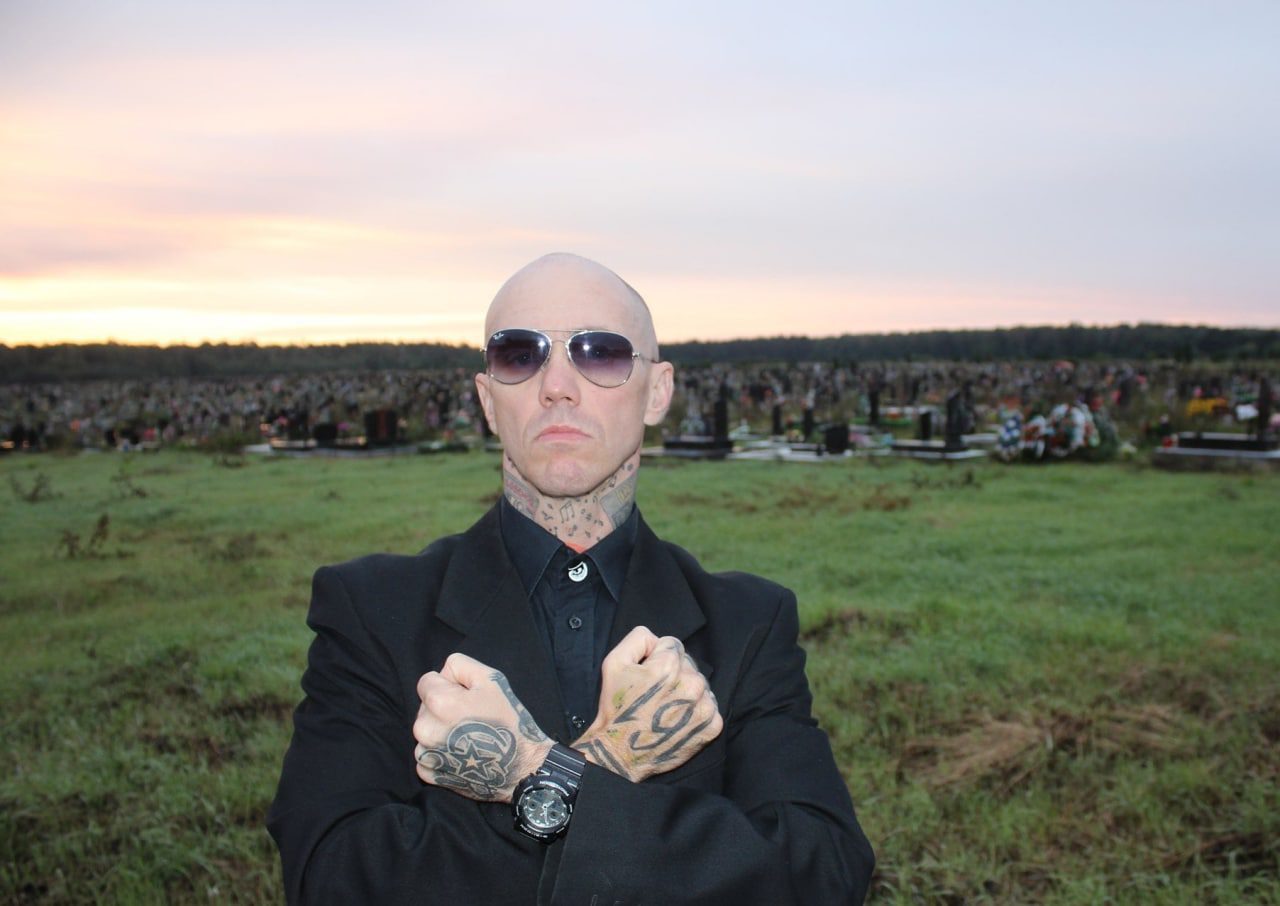
The Prosecutor General’s Office of Belarus initiated a criminal case against representatives of BYPOL — the initiative involving former members of the Belarusian security forces. They were suspected of inciting social hatred.
Belarus decided to send the pro-Lukašenka band to Eurovision 2021. Last year, Halasy ZMiesta became famous after singing songs, which made fun of the Belarusian protesters and opposition politicians.
Belarus authorities announced putting an activist Anton Matoĺka on a wanted list.
Pro-Lukašenka band’s song barred from competing at Eurovision 2021.
Four students who shaved their heads to support political prisoners were summoned to the prosecutor’s office. The young people were told that their actions might entail the responsibility for violating the Code of Administrative Offences.
Political prisoner Siarhiej Piatruchin resorted to wrist cutting.
Hrodna political prisoner Dzmitryj Furmanaŭ started a hunger strike.
The Investigative Committee completed the criminal case investigation against Siarhiej Cichanoŭski, politician Mikalai Statkevič, blogger Ihar Losik and their associates. Cichanoŭski was to be tried under four articles of the Criminal Code. The latter involved the maximum penalty; if found guilty, the blogger might have been sentenced to 15 years of imprisonment.
Jailed blogger Ihar Losik attempted to slash wrists in protest against the new charge. He also went on a ‘dry’ hunger strike, refusing food and water.
The KGB detained prominent investigative reporter Dzianis Ivašyn in Hrodna.
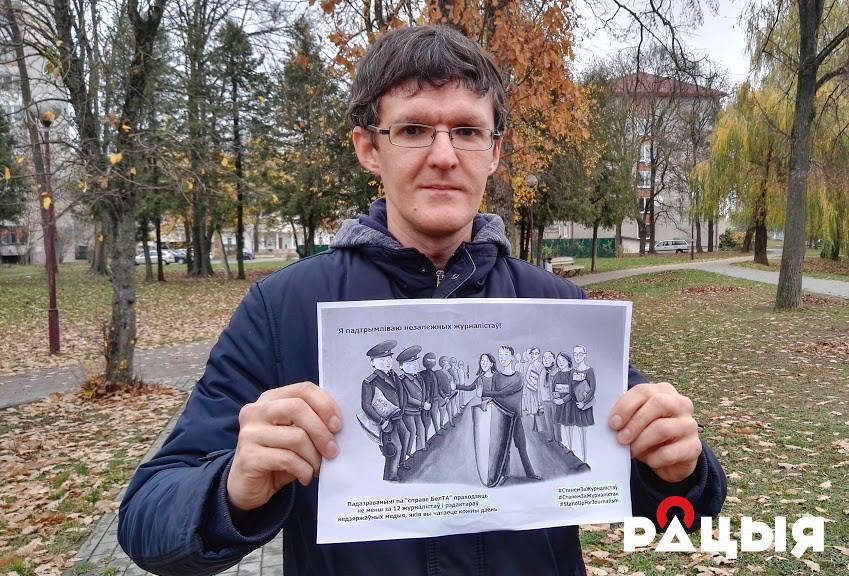
Ihar Losik stopped the hunger strike.
In Smarhoń, a 55-year-old artist and cartoonist Ivan Viarbicki was charged with violation of four criminal articles, including terrorism. The man was sentenced to 8 years and one month in a maximum-security colony.
Political prisoner Dzmitryj Furmanaŭ quit hunger strike.
Sviatlana Cichanoŭskaja urged Belarusians to vote for holding regime-opposition talks.
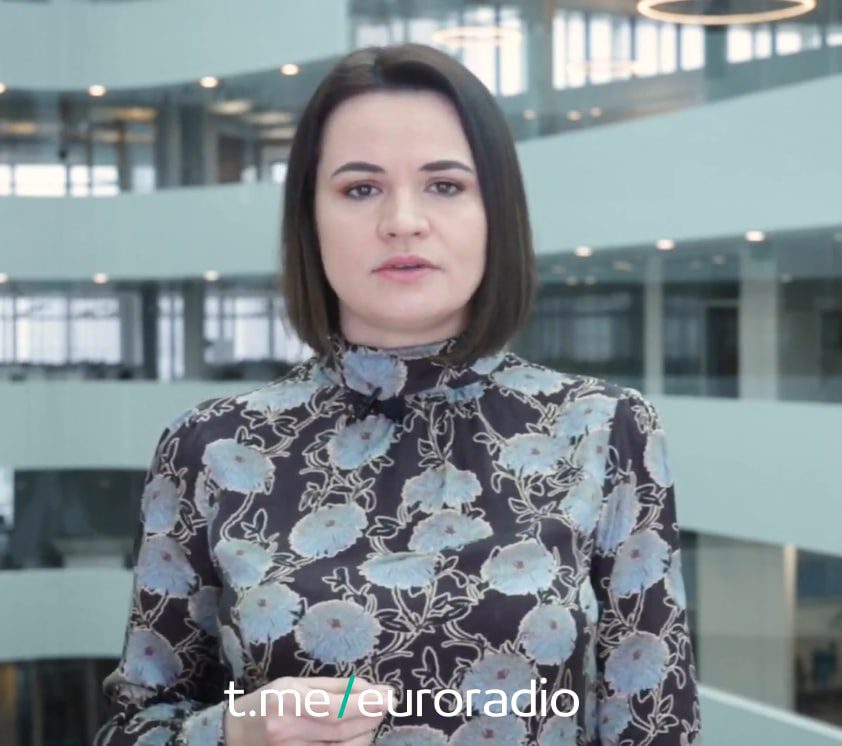
The author of a propaganda project on the state TV channel STV Ryhor Azaronak was a threat to the national security of Ukraine. For TV stories about Ukraine, he was added to the base of the Peacemaker Center, which investigated the signs of crimes against the national security of this country, peace and security of humankind. Azaronak was accused of abuse of office, interference in the affairs of a sovereign state and the spread of anti-Ukrainian propaganda.
The Investigative Committee completed the probe into the death of 28-year-old Mikita Kryŭcoŭ from the town of Maladziečna. According to the committee, a criminal case was not launched, as the deceased committed suicide.
Leninski district court of Hrodna considered the case of media worker Aliaksiej Šota and passed a verdict on him. Šota, editor-in-chief of local media outlet Hrodna.life, was found guilty of violating Article 17.11 of the old version of the Code of Administrative Offences (‘dissemination or preservation of extremist information’). Judge Natallia Koziel imposed two fines on him; altogether, 12,325 BYN.
Hrodna hunger striker Ihar Bancar was sentenced to 1.5 years of restriction of liberty.
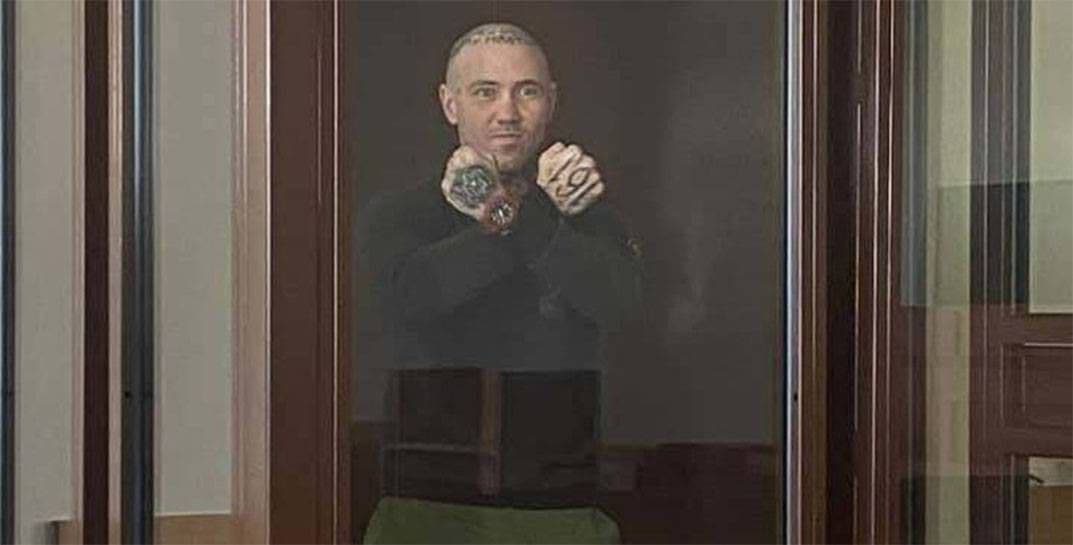
Opposition politician Paviel Latuška called on Belarusians to take to the streets on Freedom Day.
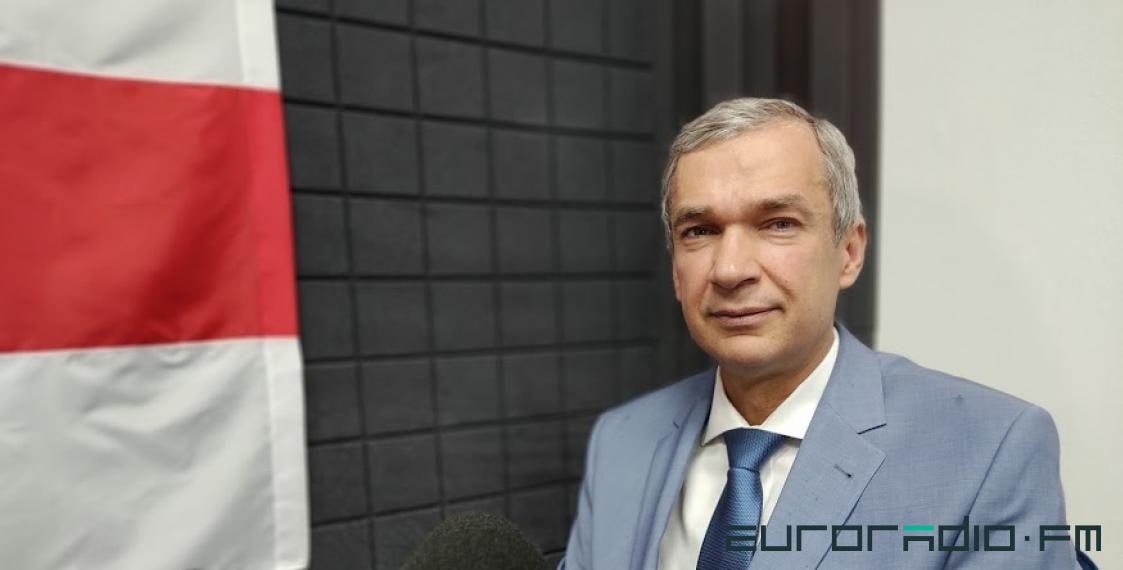
Israeli company Cellebrite, which produces software systems for secret services to extract data from cell phones, decided to stop selling its products in Belarus and Russia.
Minsker was sentenced to 15 days in jail for keeping the Canadian flag in the window.
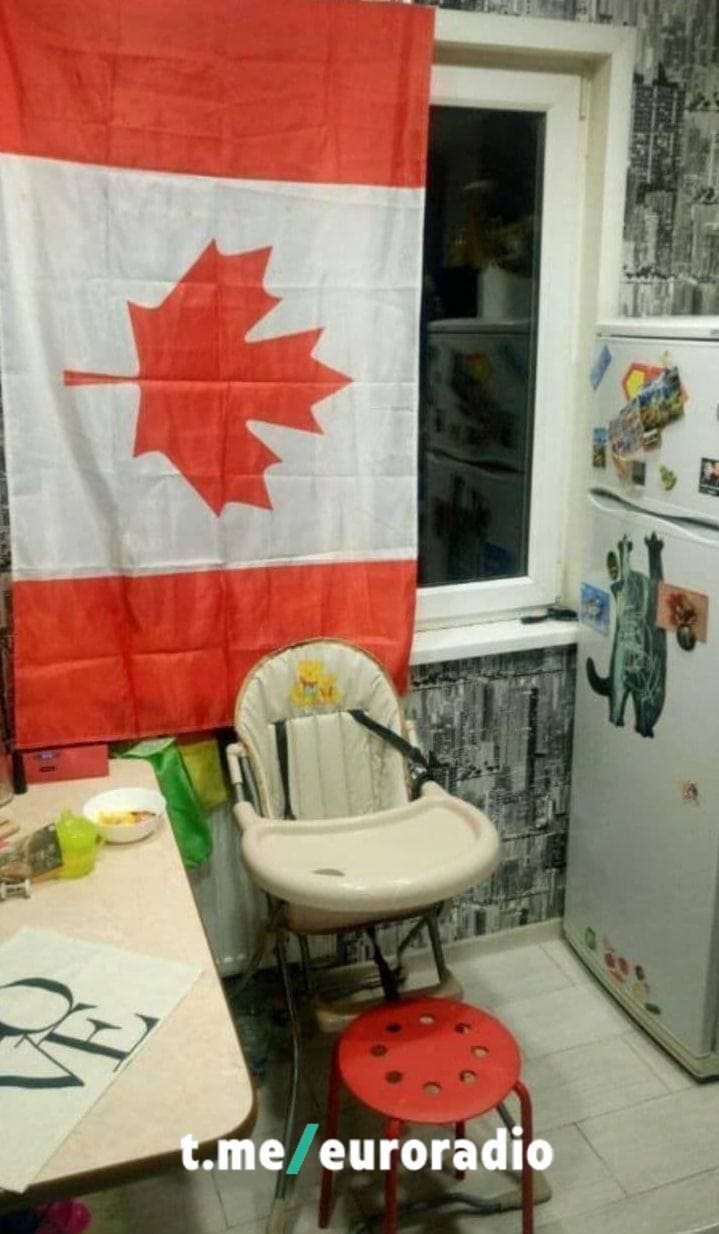
The court of the Frunzienski district of Minsk began to consider the case of interpreter Voĺha Kalackaja, who was accused of malicious hooliganism. She allegedly hit STV employee Ryhor Azaronak several times during one of the rallies. The state prosecution requested two years of restricted freedom in an open prison.
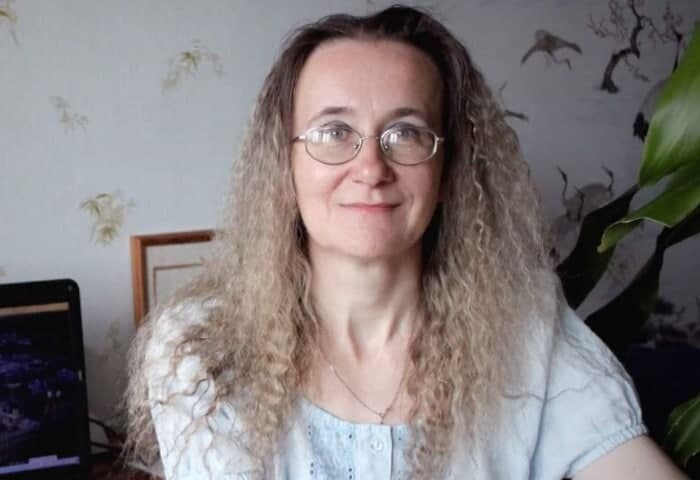
Belarus authorities detained the head of the Union of Poles in Belarus Andżelika Borys.
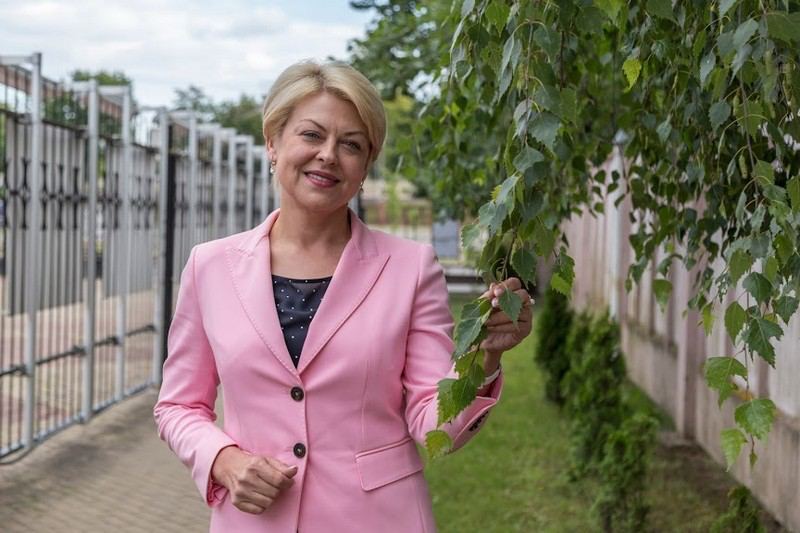
Voĺha Zlatar, mother of five was prosecuted for organising protests. A 38-year-old resident of Ždanovičy, detained on March 18, was charged with "active protest activities''.
Mikalaj Kazloŭ, chairman of the United Civic Party of Belarus, was taken to hospital from the detention centre on Akrescin Street in Minsk.
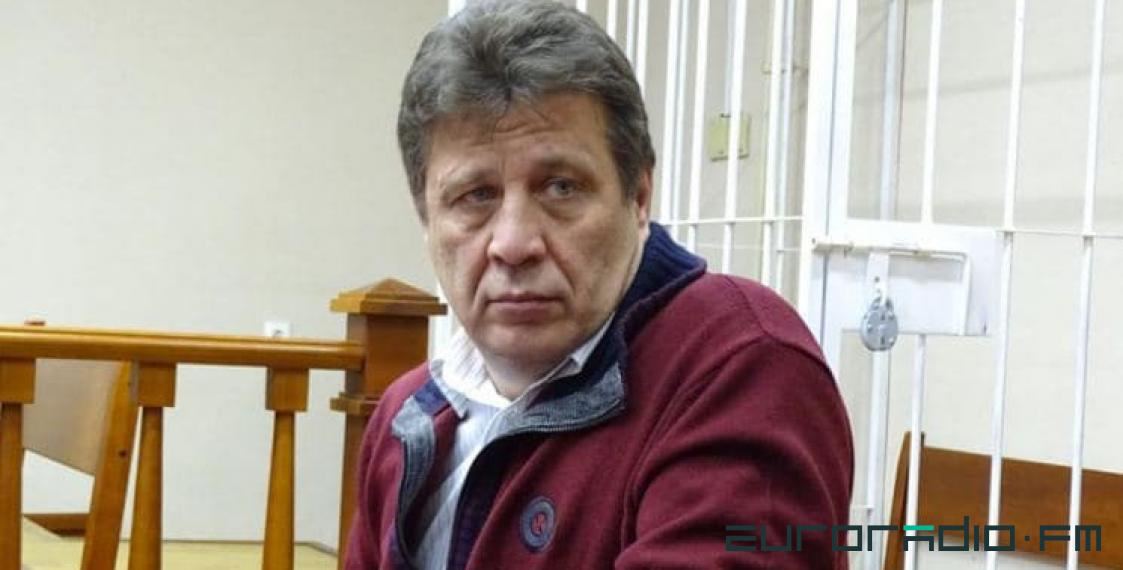
Journalist Andrzej Poczobut was detained and his place was raided.
“Freedom day” is celebrating in Belarus. Over 200 persons were detained during the day.
Lithuania, Latvia and Estonia expanded their national blacklists of persons who were not allowed to enter the territories of the Baltic states in solidarity with the Belarusian people celebrating Freedom Day.
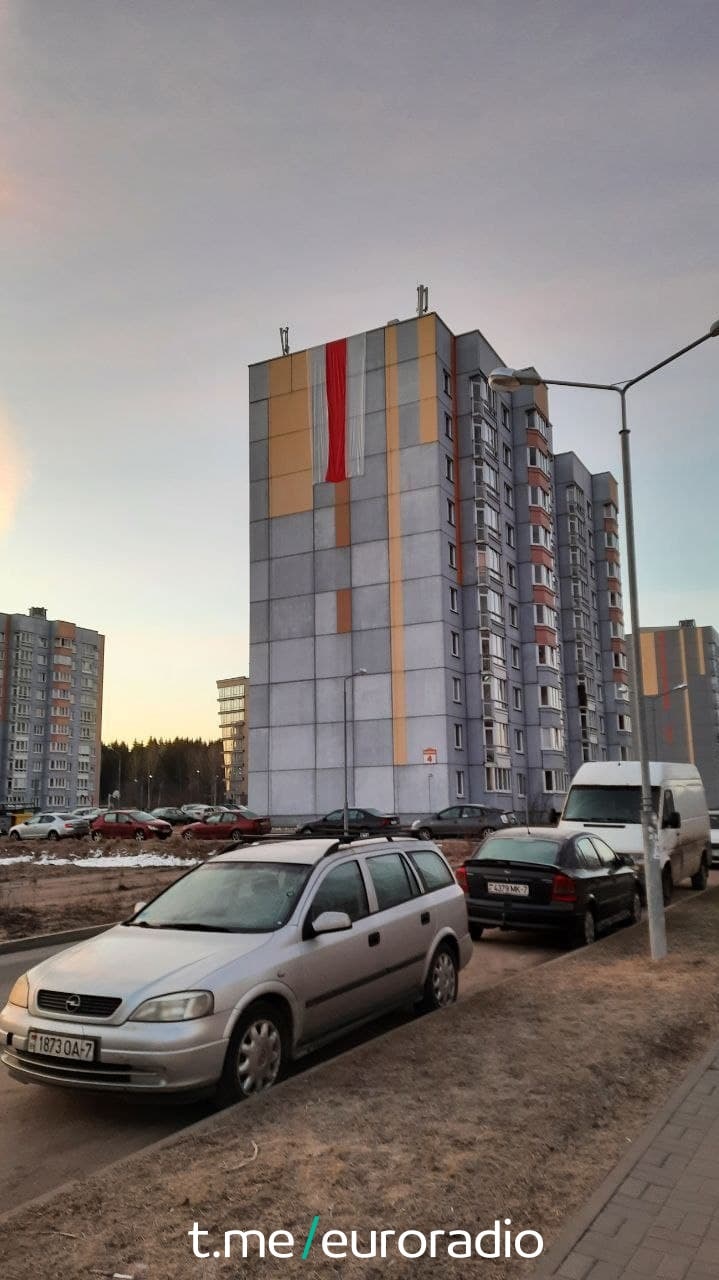
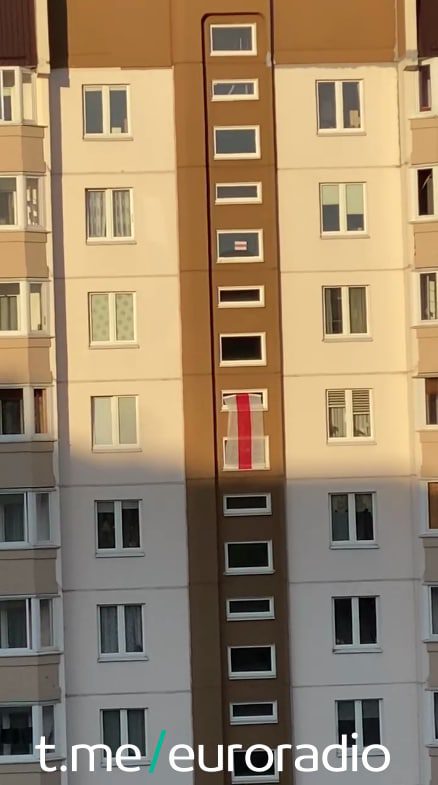
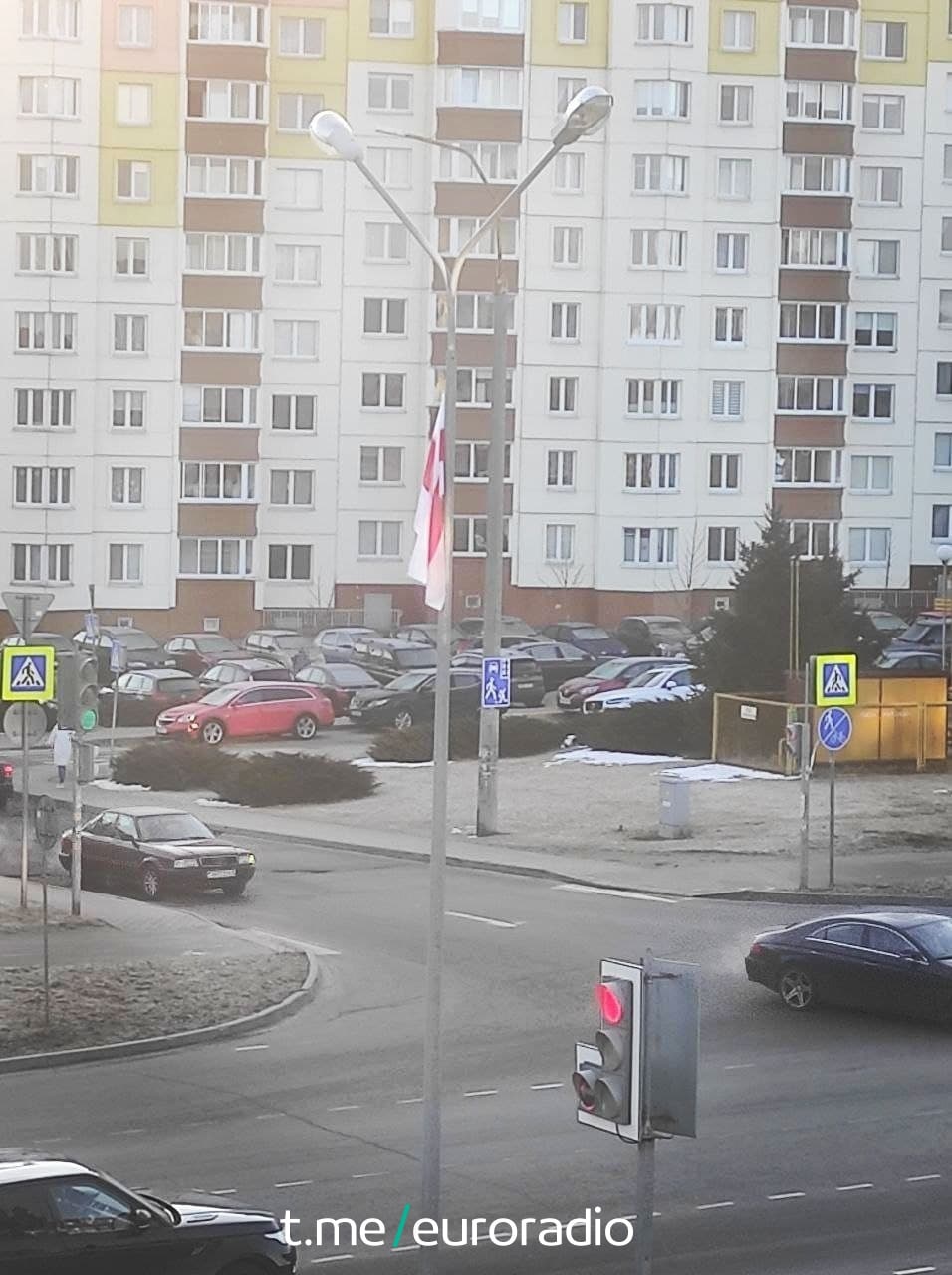
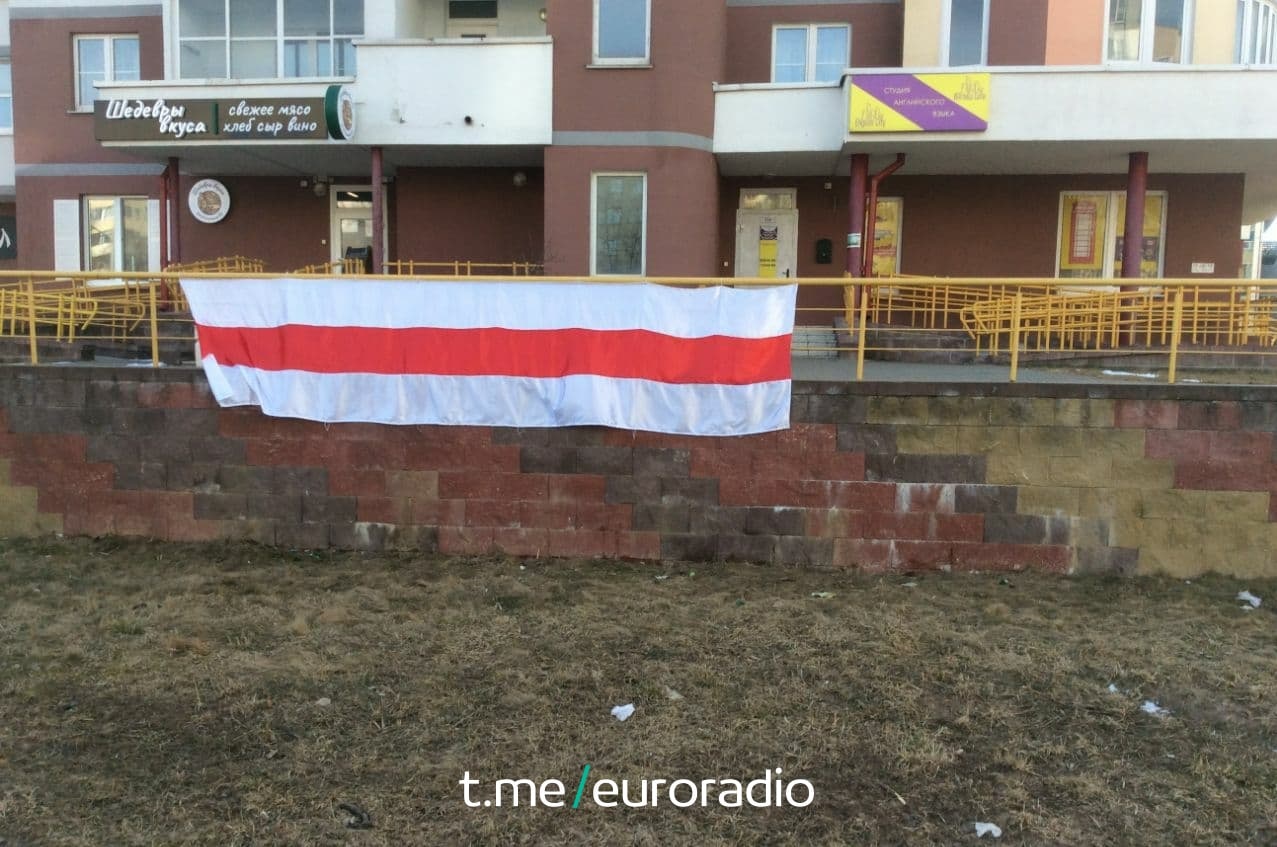
Belarus was disqualified from Eurovision 2021.
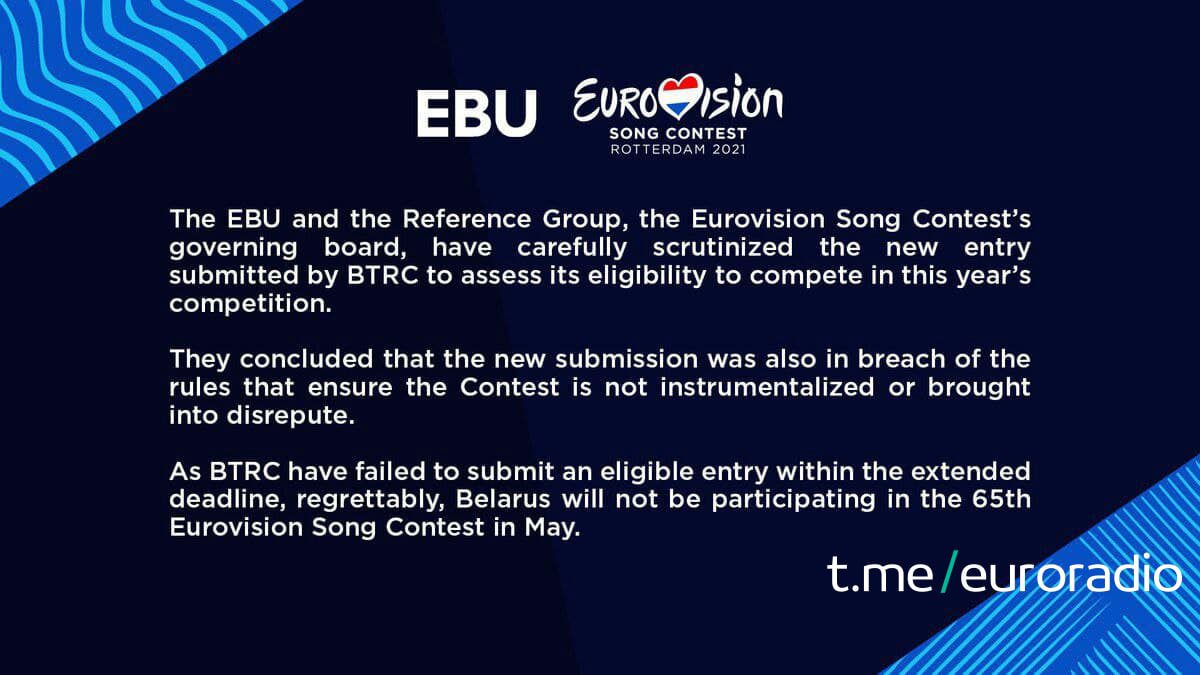
Sentenced Belsat journalist Kaciaryna Andrejeva labelled as a "person prone to extremism".
Imprisoned ex-candidate for president Viktar Babaryka called for establishing the Razam party.

On March 30, The Machine Is Breathing, and I Am Not, an exhibition dedicated to medics and the challenges they had faced last year was opened in the Minsk space "Miesto". But after less than three days, the exhibition was closed due to the violations found in the exhibition space.
KGB put politicians Cichanoŭskaja, Latuška and BYPOL activists on the 'terrorist' list.
Criminal proceedings were launched against Aliaksandra Hierasimienia and Aliaksandr Apiejkin, the Belarusian Sport Solidarity Foundation (BSSF) leaders.
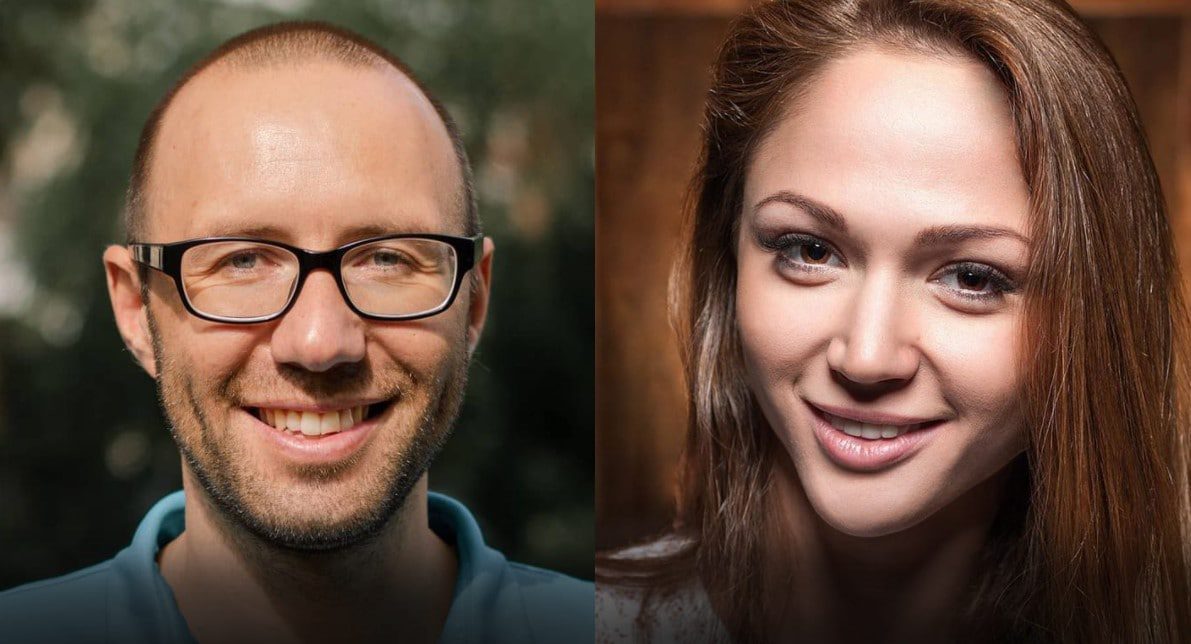
Viktar Babaryka, the only one of the eight defendants who pleaded not guilty, was questioned in court in the case of the top managers of Belgazprombank. Babaryka said that he and other defendants in the case were innocent.
Natallia Trenina and Tacciana Hacura-Javorskaja, who staged The Machine Is Breathing, and I Am Not the exhibition praising Belarusian medical professionals' commitment, were taken into custody.
Imprisoned Belsat TV journalist Darja Čuĺcova was also listed as a 'person prone to extremism'.
Women jailed for 25 days for walking with an umbrella. Julia Michajlava was among those arrested. The law enforcers searched her house and arrested her relatives.
Paviel Latuška, Head of the People's Anti-Crisis Administration, announced the establishment of a new political party.
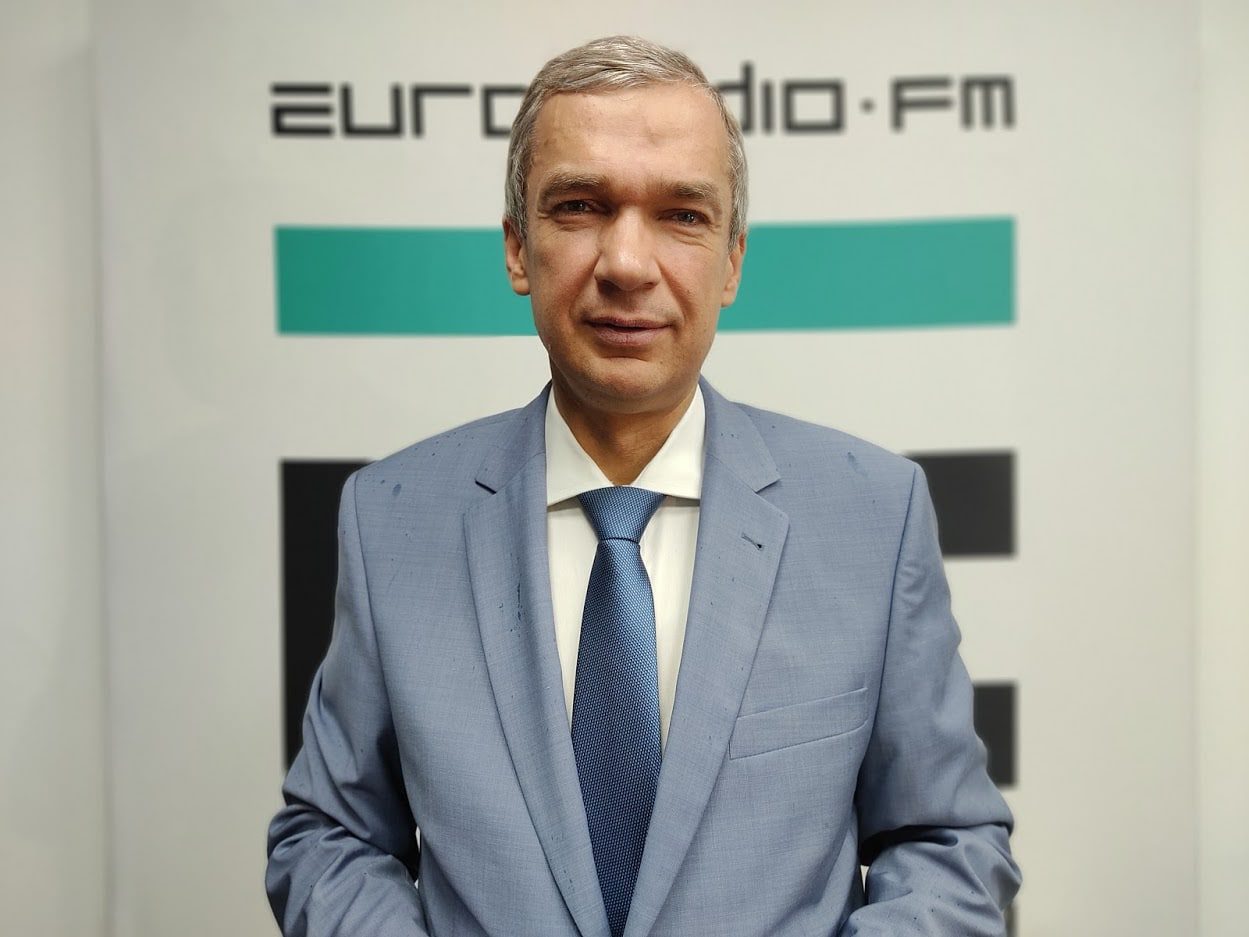
Opposition activist Mikalaj Statkievič said charges against him came in 110 volumes. The wife of prisoner Statkevič, Maryna Adamovič, received a letter from her husband in which the politician said that the investigation into his case was complete:
"Siarhiej Cichanoŭski, Arciom Sakaŭ, Dzmitryj Papoŭ, Uladzimir Cyhanovič, Ihar Losik will be tried together with me. Each of us is charged under Article 293 part 1.1 (organisation of mass riots accompanied with violence against persons, pogroms, arson, destruction of property or armed resistance to the authorities). In addition, all the "accomplices", except for me, have additional articles of the Criminal Code".
The Ministry of Information removed the foreign TV program "Euronews" from the list of the foreign mass media permitted to broadcast in Belarus. The Russian channel "Pobeda" (victory) began broadcasting in Belarus instead of Euronews.
Members of the initiative group of ex-presidential candidate Sviatlana Cichanoŭskaja, Juryj Ulasaŭ, Dzmitryj Ivaškoŭ, Aliaksandr Šabalin and Tacciana Kanieŭskaja stood trial in Homiel.
Ryhor Kastusioŭ, the leader of the Belarusian People's Front (BPF) party and a 2010 presidential candidate, who was detained in the town of Škloŭ (Mahilioŭ region) on Sunday evening, and political analyst Aliaksandr Fiaduta, who went missing in Moscow, ware “found” in Belarusian KGB. Kastusioŭ and Fiaduta were detained as part of a criminal investigation under Article 108 of the Criminal Code ('on directly emerging suspicion of committing a crime).
The Department of Investigation Committee in Minsk initiated criminal proceedings against the founders of a solidarity fund. The founders of the BYSOL and BY_help, Aliaksiej Liavončyk and Andrej Stryžak, were accused under Part 2 of Article 342 ("Other training of individuals to participate in group activities, grossly violating public order") and Article 361-2 ("Financing of the extremist formation") of the Criminal Code. The IC stated that Liavončyk and Stryžak "with the help of other persons" handed over the money to be used by Andrej Aliaksandraŭ and Iryna Zlobina to pay fines of protesters.
Aliaksandra Hierasimienia sold her gold medal from the World Championship 2012 on eBay for $16,100. She transferred the funds from the sale to the BSSF.
Juraś Ziankovič, an American lawyer of Belarusian origin, was brutally detained in Moscow.
Kastryčnicki district court of Mahilioŭ completed the hearing in the case of Siarhiej Piatruchin and Aliaksandr Kabanaŭ, two bloggers and activists from the city of Brest. They were sentenced to three years of imprisonment in a maximum-security penal colony each. In addition, the convicts were held obliged to pay off compensation for 'emotional distress damages' (1,500 BYN).
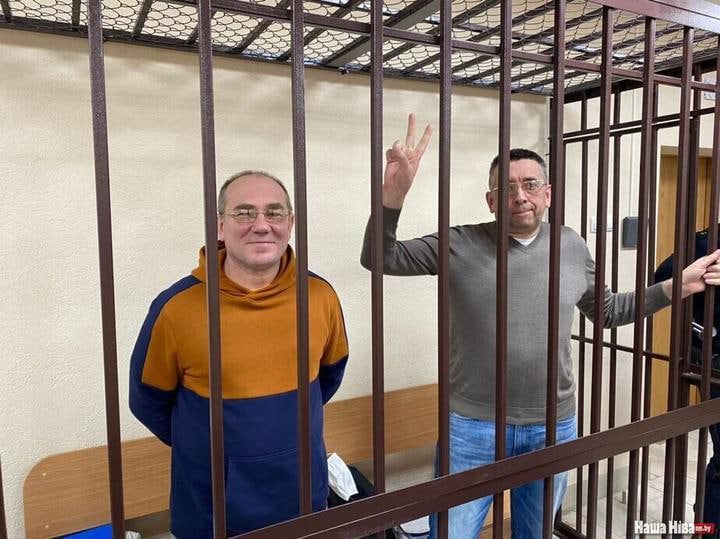
A measure of restraint applied against Illia Saliej, a legal adviser of imprisoned Viktar Babaryka, was updated; from then on, he was allowed to leave his place, go out to work, and travel across the country. At that time, the man remained a defendant under Article 361 of the Criminal Code; he had to appear when summoned by investigators and the court.
Public activist Tacciana Hacura-Javorskaja was recently released from the Minsk detention centre after ten days in custody. Her preventive measure was changed, as there was no need to keep her behind bars. The day before a court ruled to deport her husband, Ukrainian citizen Volodymyr Javorskyj.
US envoy Julie Fisher said she could not travel to Minsk due to a lack of a Belarusian visa. Julie Fisher became the first US ambassador to Minsk in the last 13 years. According to the top official, she had been hoping to land in Minsk since the new year, and the United States was “waiting for the Belarusian side to take appropriate actions”.
The US Department of the Treasury announced the Belarus-related General License (GL) revocation and implementation of a 45-day wind-down of transactions. From June 3, nine Belarusian companies were put under the US sanctions again: Belarusian Oil Trade House, Belneftekhim, Belneftekhim USA Inc, Belshina OAO, Grodno Azot OAO, Grodno Khimvolokno OAO, Lakokraska OAO, Naftan OAO, Polotsk Steklovolokno OAO. US businesses and citizens were barred from entering into economic and financial relationships with the companies mentioned above; all their assets and accounts in the United States were frozen.
Jaŭhien Juškievič, a Minsk resident and former investigator, stopped answering his phone. According to his girlfriend, the police were waiting for him not far from the block of flats. Later on the same day, his defence lawyer said that Juškievič was placed in the KGB prison, his place was searched. The man was charged based on the order in which Article 289 of the Criminal Code ('act of terrorism') was mentioned.
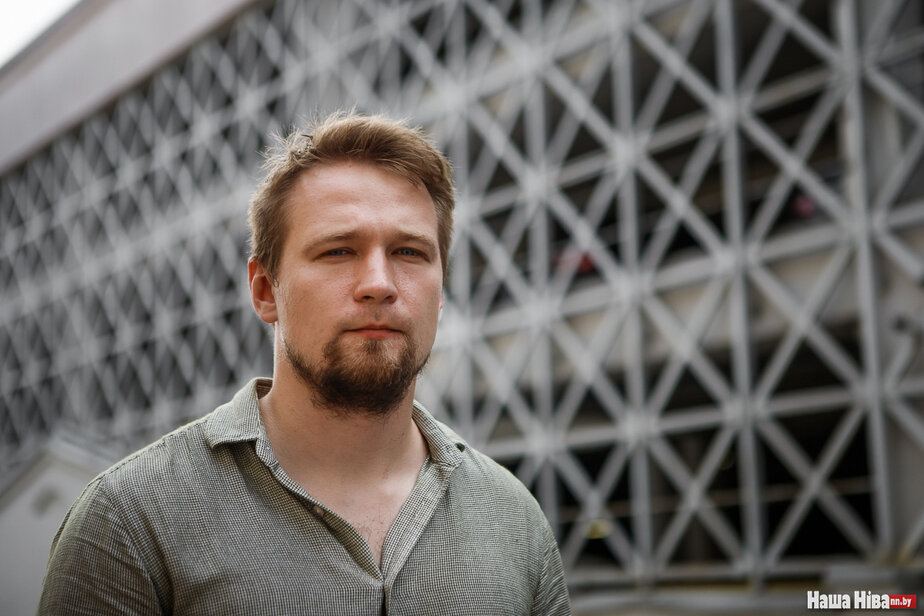
Sviatlana Cichanoŭskaja spoke at the official opening of the ninth session of the Euronest Parliamentary Assembly. The resolution was expected to appear at the end of Euronest, with particular attention paid to Belarus.
US envoy Julie Fisher was up to start working from Vilnius as no Belarusian visa was granted to her yet.
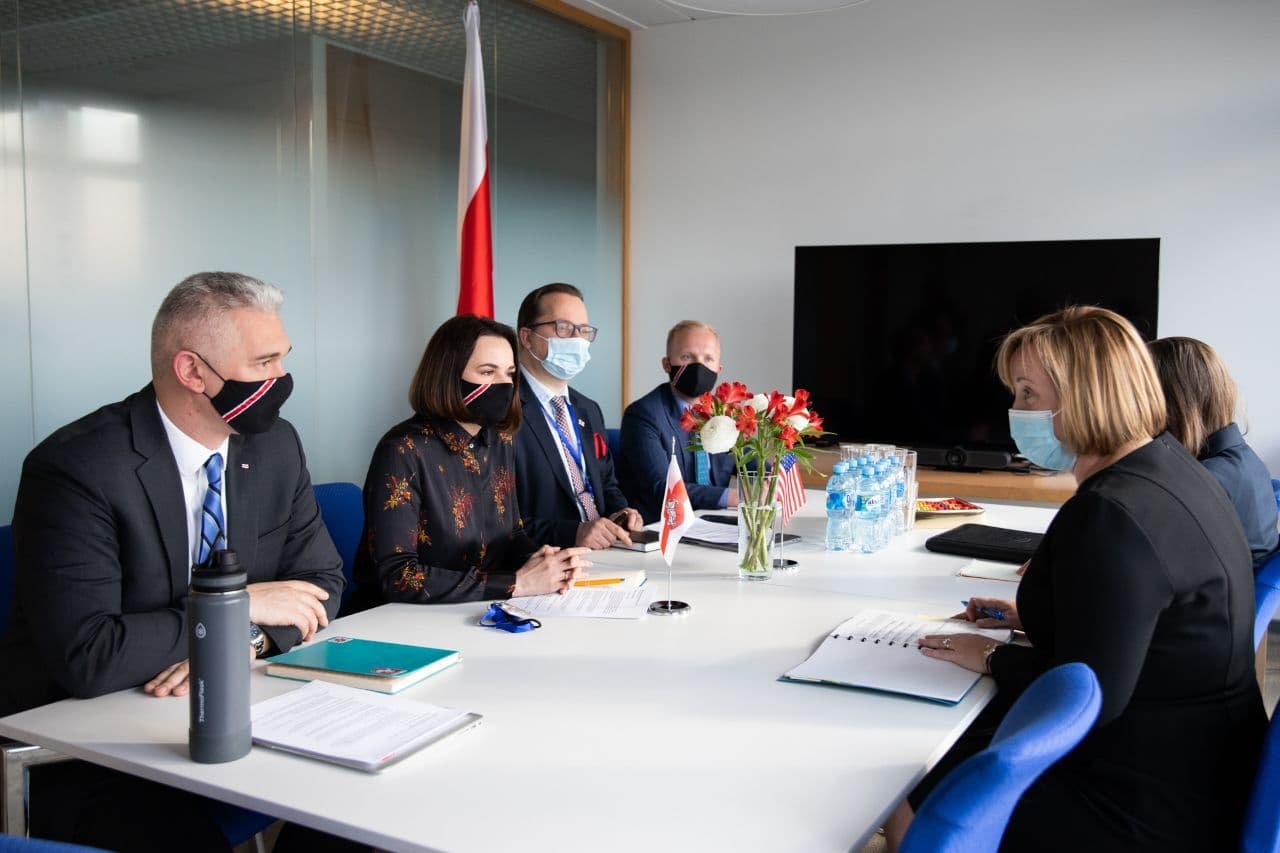
"Four detainees were charged under Part 1 of Article 357 of the Criminal Code (“conspiracy or other acts committed for seizing or retaining state power in an unconstitutional manner”). All of them were giving testimony and actively cooperating with the investigation," Kanstancin Byčak, Head of the investigation department of the Belarusian State Security Committee (KGB) said.
An administrative case was initiated against Uladzimir Janukievič, editor-in-chief of the Belarusian newspaper Intex Press and director of the publishing house of the same name for an interview with Sviatlana Cichanoŭskaja.
Vladimir Putin met with Lukašenka, who arrived in Russia on a working visit. Their talks lasted for about four hours. The event was widely covered. According to Putin's spokesman Dmitry Peskov, the parties discussed mainly industrial cooperation, cooperation in health service, energy sector, and high-tech areas.
The Belarusian government banned importing goods produced by several companies in light of “unfriendly actions against the Belarusian people.” The document was adopted based on Decree Nr 128 signed by Lukašenka on March 30 (“On applying special measures”). It provided for the prohibition of importing and selling certain groups of products from countries that imposed sanctions and restrictions on the Lukašenka regime.
The state TV channel ONT showed another story dedicated to the so-called "preparation of a military coup" case. The propagandists showed a 5-second video with the three defendants. "I plead guilty," Juraś Ziankovič, Ryhor Kastusioŭ and Aliaksandr Fiaduta pleaded guilty.
Sviatlana Cichanoŭskaja met with heads of missions of Germany, France, Great Britain, United States, Sweden, Estonia, Lithuania, Latvia, Czech Republic, Poland to the Organisation for Security and Cooperation in Europe (OSCE). The missions mentioned above supported the Moscow Mechanism.
Four detained residents of Žodzina went on hunger strike. The men were protesting against the absurd accusations of participation in an unsanctioned mass event. On April 24, law enforcers sieged a private bathhouse in Žodzina, detaining 13 women and seven men. They were accused of having "organised an unauthorised mass event with the use of protest symbols”. All of those present there were detained and taken to the police department, where reports were filed under Article 24.23 of the Code of Administrative Offences.
The paper and online versions of the interview granted by Belarusian opposition politician Sviatlana Cichanoŭskaja to media outlet Intex Press and a corresponding video were recognised as 'extremist materials' at the suit of Baranavičy inter district prosecutor's office.
The Main Investigation Department of Belarus completed the criminal investigation of the case against Siarhiej Cichanoŭski, Mikalaj Statkievič, Arciom Sakaŭ, Dzmitryj Papoŭ, Ihar Losik and Uladzimir Cyhanovič. All detainees were charged with the "organisation of mass riots" (Part 1 Article 293 of the Criminal Code). According to that article alone, they could have been punished with imprisonment of 5 to 15 years.
Jailed journalist Kaciaryna Barysievič was considered a 'person prone to extremism'.
The trial on the so-called Pinsk case came to its end. 14 political prisoners were accused of participation in the riots (Part 2 Article 293 of the Criminal Code) on August 9-10 in the town of Pinsk (Brest region). During those days, there were violent clashes between protesters and security forces: people blocked the building of the executive committee and demanded a fair vote count. 14 political prisoners got 5.5, 6 and 6.5 years in a minimum security penal colony.
Lawyer Juraś Zaniakovič, politician Ryhor Kastusioŭ, political analyst Aliaksandr Fiaduta, Zaniakovič's assistant Voĺha Halubovič, former counter-terrorism officer Ihar Makar, psychiatrist Dzmitryj Ščyhieĺski, former OMON officer Paviel Kulažanka, scientist Aliaksandr Pierapiečka, activist Vitaĺ Makaranka were charged with 'conspiracy or other actions committed for seizing state power' (Article 357-1 of the Criminal Code).
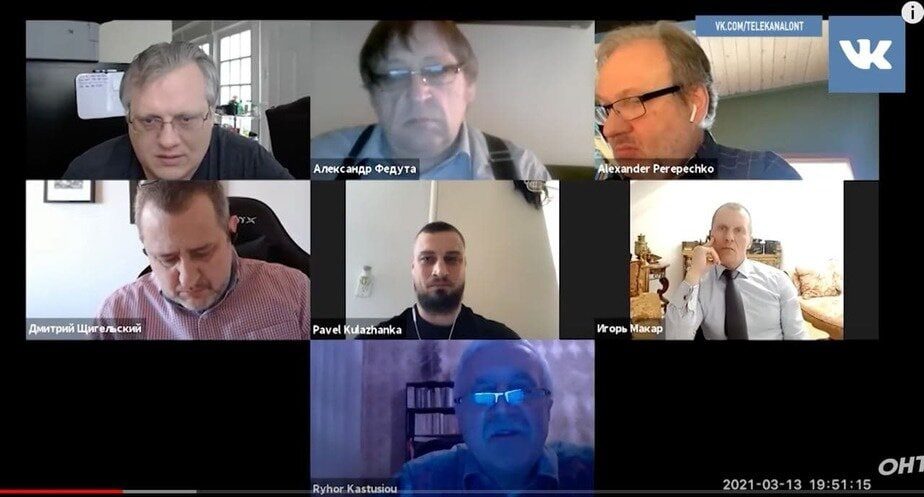
Human rights activist Marfa Rabkova was officially labelled as a person prone to extremism.
Lithuania reported a surge of undocumented migrants across the border with Belarus.
Sviatlana Cichanoŭskaja called on foreign ministers of EU member countries to impose sanctions on the representatives of pro-Lukašenka authorities, develop an assistance plan for the country and hold a conference on the Belarusian issue.
On Square of Changes somebody returned the graffiti with dj’s.
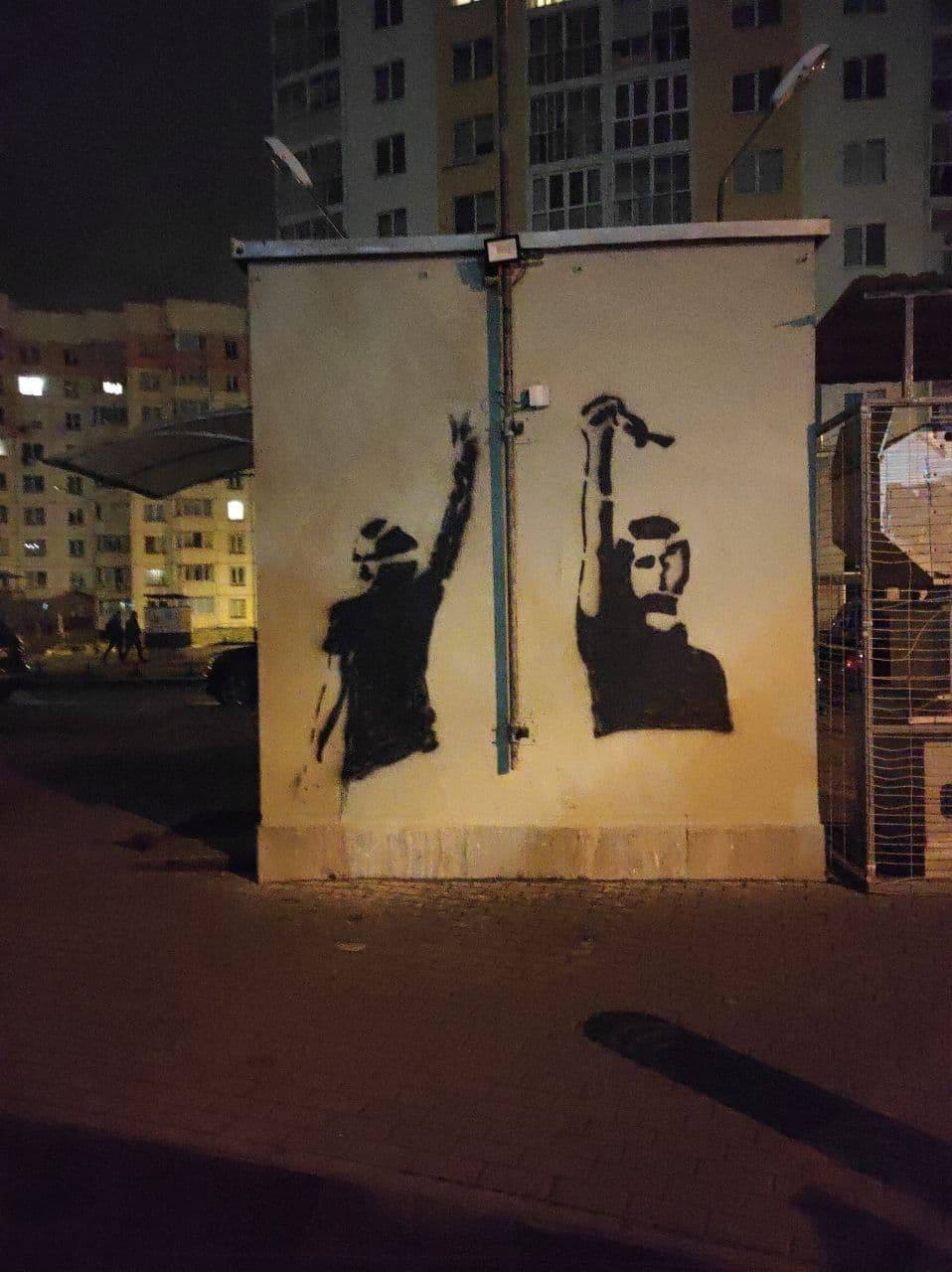
Lukašenka signed the decree "On the protection of the sovereignty and constitutional order." The decree stipulated that in case of a President's death after an assassination attempt, an act of terrorism, external aggression, or other violent acts, all state authorities and their officials acd following the decisions of the Security Council. The Prime Minister chairs the meetings of the latter.
In that case, a state of emergency or martial law should be immediately declared in the country, and the Council should determine the list of measures to ensure them. Decisions of the Security Council, according to the decree, were subject to unconditional implementation.
The main issue should be the holding of the elections, in which the Security Council appoints presiding officers of regional executive committees.
Freelance photographer Taссiana Kapitonava was detained at Startup Family coworking in Minsk. She was filming the Emerge conference when police officers appeared at the venue. According to eyewitnesses, the goal of their visit was to detain the journalist.
Mahilioŭ-based journalists Aliaksandr Burakoŭ and Uladzimir Lapcevič, who were being kept in the local pre-trial detention centre, started a hunger strike.
Dzianis Urad, a captain of the General Staff of Belarus, who revealed the authorities' plans to involve the army in quelling would-be protests on Belarus' unofficial Freedom Day, was sentenced to 18 years of imprisonment in a medium-security penal colony.
Paviel Sieviaryniec registered as an extremist.
Lukašenka signed the law 'On the amendment of laws on ensuring national security in the Republic of Belarus'. Under the updated laws, police officers and representatives of other uniformed services are not responsible for the damage in case of the application of force, unique items, weapons, military and special equipment “if such measures were taken within the framework of the legislation regulating the operation of law enforcement bodies”. Moreover, they were authorised to use military and other equipment when there is a need to “prevent civil unrest.”
Belarusian security officers descended upon TUT.BY offices across the country, as well as to editors' places. According to the official information, a criminal case was launched against TUTBY Media company officials under Part 2 of Article 243 of the Criminal Code (“large-scale tax evasion”). Fifteen persons are known to have been detained as part of the criminal case opened against TUTBY Media company; the following 12 remain behind bars: editor-in-chief Maryna Zolatava, editor Voĺha Lojka, journalist Aliena Talkačova, director general Liudmila Čekina, deputy director Iryna Rybalka, chief technical officer Aliaksandr Dajneka, chief accountant Anžela Asad, deputy chief accountant Maryja Novik, chief engineer Ala Lapatka, manager at Publisher Box company Andrej Aŭdziejeŭ, Hoster.by director Siarhiej Pavališaŭ, director of the TUT.BY-related startup Rocket Data Darja Danilava.
Well-known Belarusian cultural studies scholar Julija Čarniaŭskaja was taken to the reception room of Minsk clinical hospital Nr 1; a police officer was keeping a close watch on her even there. Then the woman, who went through a hypertensive crisis, was discharged; the police escorted her. For two days, her whereabouts were unknown; on May 20, she was reported to have been interrogated by the Department of Financial Investigations and then placed under house arrest.
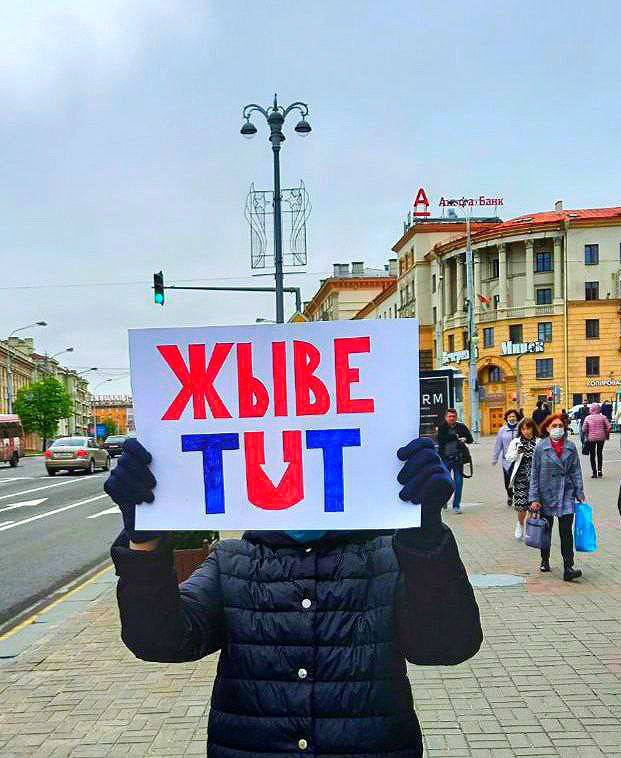
TUT.BY journalist Kaciaryna Barysievič was released from prison.
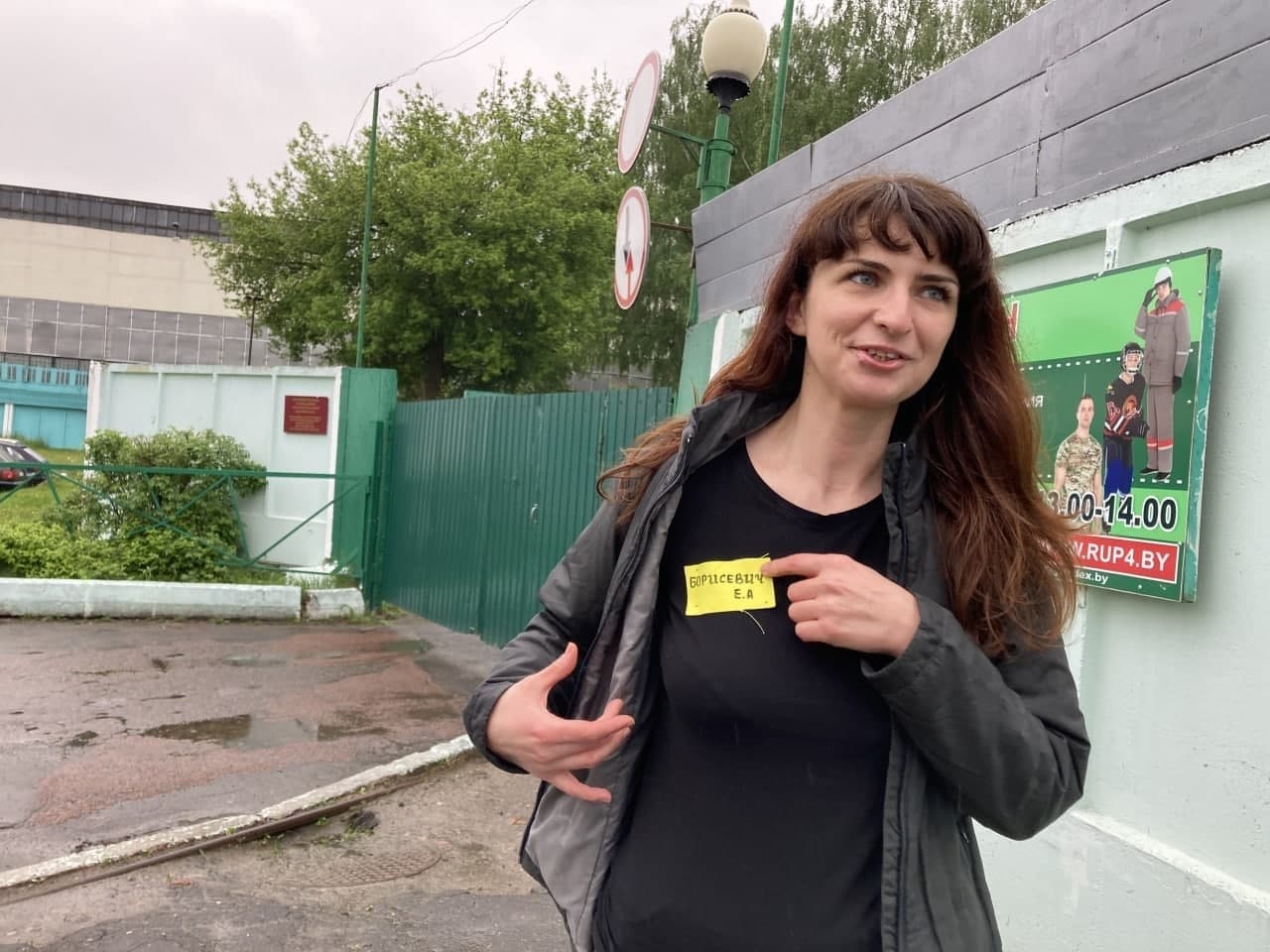
Vitoĺd Ašurak, 50, an activist from Biarozaŭka, Hrodna regional coordinator of the Movement For Freedom, member of the BPF Party Seim, died in the penal colony in Škloŭ. The cause of death was cardiac arrest.
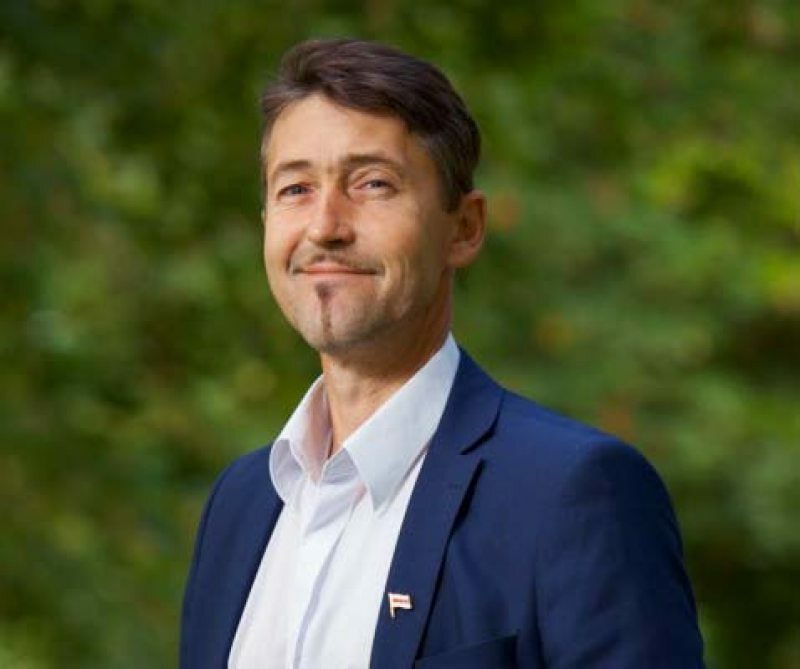
Ryanair plane's forced landing in Minsk resulted in the arrest of journalist Raman Pratasievič. Ryanair's Boeing 737-8AS, flying from Athens to Vilnius, unexpectedly changed its course over the Belarusian town of Lida and headed to Minsk. At first, there were reports that the crew got the information about a bomb allegedly planted on board.
The press service of Lukašenka shared that version. According to their statement, he gave the order to land the plane in Minsk; to 'escort' the passenger carrier, and a MiG-29 fighter was scrambled. It should be noted that the plane was not far from the Belarusian-Lithuanian air border at that moment.
The Boeing landed at Minsk National Airport; the passengers were asked to go through another security screening. The airport administration officially refuted the bomb threat, but the Belarusian authorities detained journalist and blogger Raman Pratasievič who happened to be among the passengers.
US Senate Foreign Relations Committee Chairman Robert Menendez issued the joint statement with his counterparts in the Czech Republic, Latvia, Germany, Lithuania, Ireland, Poland and the United Kingdom, condemning the Lukashenka regime for forcefully landing a Ryanair flight to arrest journalist Raman Pratasievič.
The heads of Foreign Affairs Committees called on NATO and EU member countries to put sanctions on the Lukašenka regime and suspend their ability to use Interpol and other international organisations to attack democracy in Europe further.
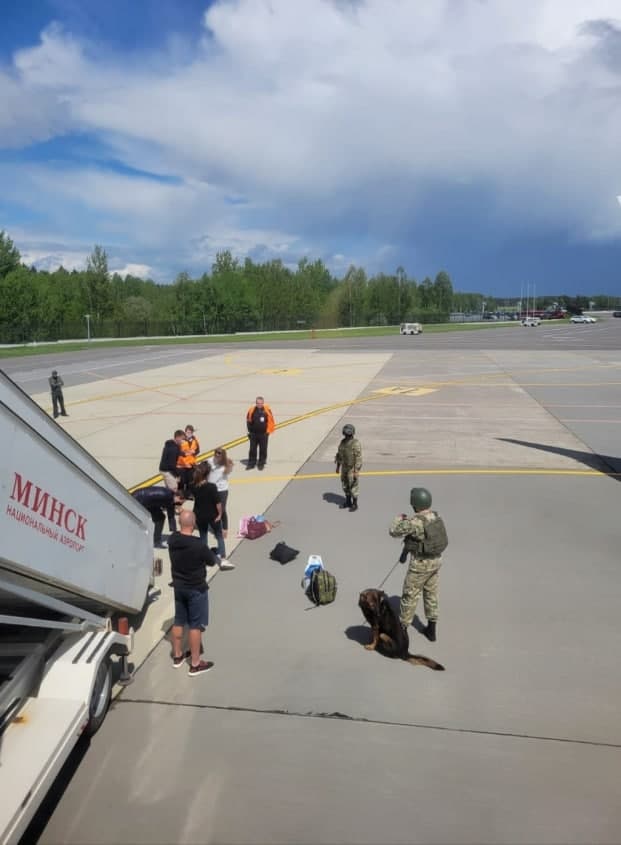
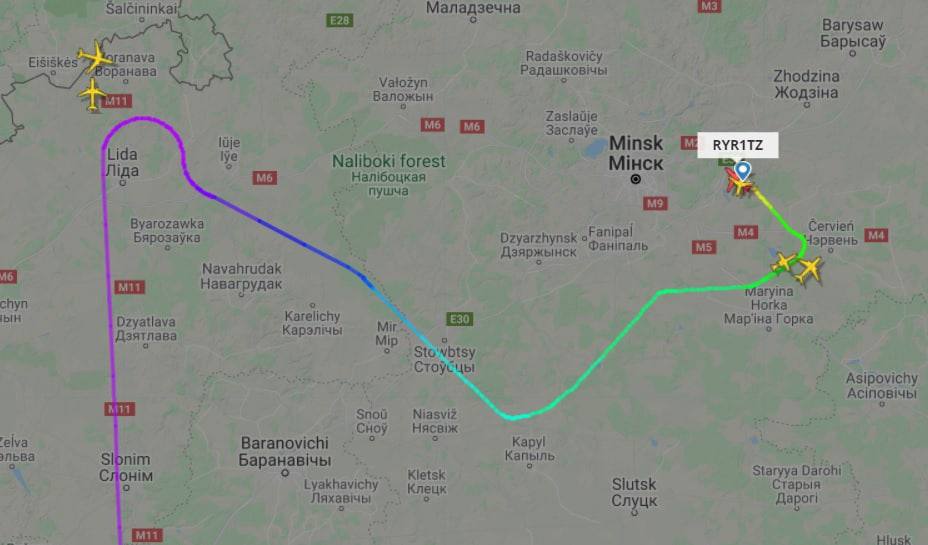
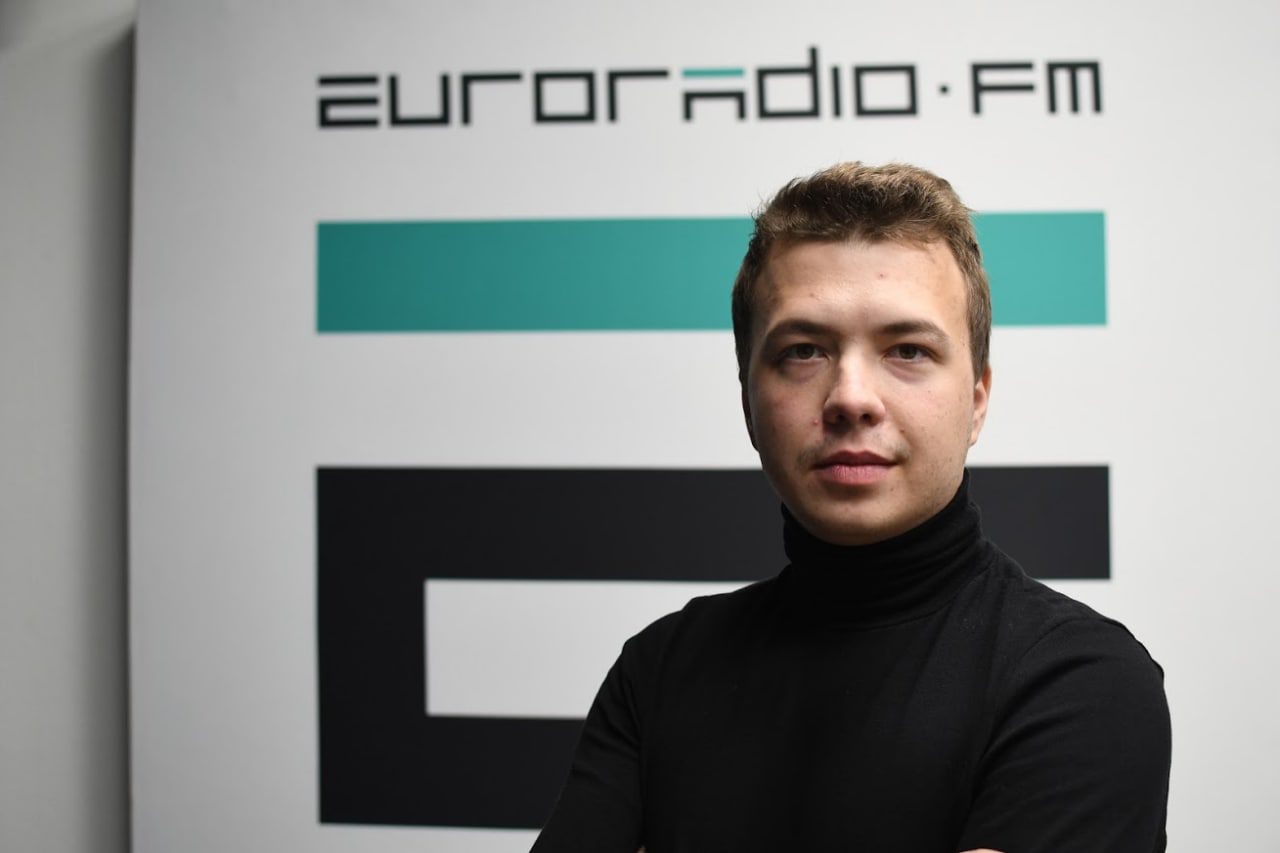
Lukašenka signed a law authorising the blocking of the Internet. According to the document, the operation of telecommunication networks and facilities might have been restricted or even terminated to prevent situations that "pose a threat to national security." The operational and analytical centre would assume management of the public telecommunications network under the President. Failure of telecommunications operators to comply with requirements to suspend or limit the operation of telecommunication networks and facilities would be regarded as a gross violation of legislation on licensing activities in the field of communications.
Belarus expelled Latvian ambassador along with all diplomatic staff. Latvian Ambassador Einars Semanis was summoned to the Foreign Ministry of Belarus, while a group of people with red and green flags gathered outside the embassy building to protest. The reason for the deportation was the replacement of the red-green flag by the head of the Latvian Foreign Ministry, Edgars Rinkēvičs, and Riga mayor Mārtiņš Staķis. The flag was replaced where the flags of the countries participating in the World Hockey Championship are flown.
The first video of the journalist Raman Pratasievič detained at Minsk airport appeared online.
Sofja Sapiega, who was detained along with Raman Pratasievič, was arrested for two months. A citizen of Russia was in the custody of the KGB in the status of a suspect. That evening in the pro-government Telegram channel, there was a video on which you can see Sofja for the first time since the arrest. The girl says that she manages a telegram channel that publishes the data of Belarusian law enforcement officers.
Seven opposition activists were sentenced. The trial of the activists was closed. Activists Jaŭhien Afnahieĺ and Andrej Vojnič received more than seven years of the colony. A similar verdict was heard by the politician Paviel Sieviaryniec. Paviel Juchnievič and Maksim Viniarski were sentenced to 5 years in prison. Blogger "Gray Cat" Dzmitryj Kazloŭ was also sentenced to 5 years in a penal colony, and the editor of the Telegram channel MKB Iryna Ščasnaja got 4 years in a penal colony.
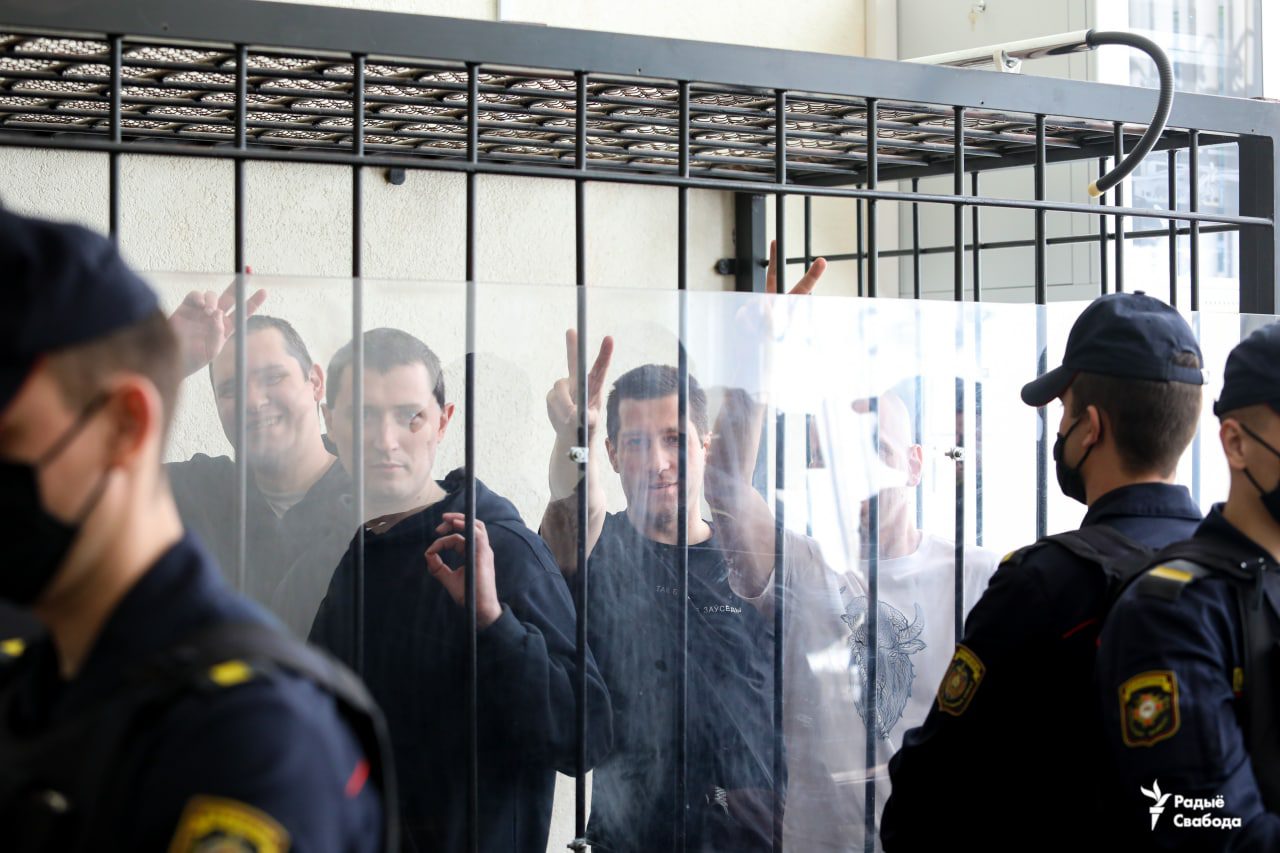
Russian citizen and Raman Pratasievič's girlfriend Sofija Sapiega was arrested for two months. According to a lawyer, Sapiega was questioned. She was a suspect in a criminal case. A preventive measure was chosen – the detention of two months. She was placed in a KGB detention facility. The Main Investigation Department of the Investigative Committee of Belarus was investigating the case.
The Investigative Committee published a shocking video of Vitoĺd Ašurak's death.
Belsat TV journalist Kaciaryna Andrejeva was transferred to a penal colony in Homiel.
Dzmitryj Stachoŭski, an 18-year-old Minsker involved in a 'mass riots' criminal case, committed suicide on the evening of May 25 by jumping from a 16-storey building in Minsk. Before killing himself, the teenager posted a suicide note on his VKontakte account, blaming the authorities for his death.
The EU Comprehensive Plan of Economic Support to democratic Belarus developed with the participation of Sviatlana Cichanoŭskaja and her representatives was adopted by the European Commission. The plan's implementation was about to begin with the onset of democratic changes in Belarus. According to the office's estimates, the total volume of international financing – taking into account the EU Plan, the IMF stabilisation program, assistance from the World Bank, and other IFIs – would amount to about $ 10 bn during the first three years of democratic Belarus.
Dzmitryj Furmanaŭ, who spent over a year behind the bars, was reported to be punished with another week in solitary confinement. He already spent 26 days there.
Political prisoner Sciapan Latypaŭ made a suicide attempt in the Savetski district court of Minsk, where his case was being heard that day. Latypaŭ stood on the bench so that guards could not get him; then, he pierced his throat with a pen. The defendant lost consciousness; the paramedic immediately took him out of the court building. He was admitted to hospital Nr 9; he was reportedly put under an induced coma. Shortly before the grave incident, Sciapan Latypaŭ said in court that the representatives of the Main Directorate for Organised Crime and Corruption (GUBAZiK) visited him in jail and threatened that criminal cases would be initiated against his family and neighbours if he failed to plead guilty during the trial. They also said his relatives might face pressure and even torture if they landed up in prison.
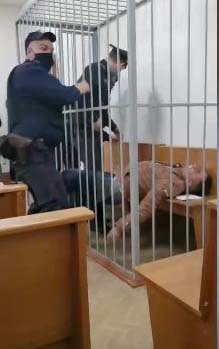
Political prisoner Sciapan Latypaŭ was retaken to jail.
The Belarusian Interior Ministry confirmed the mass detentions of 12 residents of Žabinka (Brest region). Four of them were defined as suspects in a criminal case for publicly insulting Lukašenka and contempt of the official flag. The others were charged with participation in protests, distribution of 'extremist products' and disobedience to the police.
Three of five Belarusian Poles arrested in the so-called Polish case were 'deported' to Poland. The above mentioned persons were Irena Biernacka, Maria Tiszkowska and Anna Paniszewa.
Paviel Latuška, the head of the People's Anti-Crisis Administration and member of the board of the opposition Coordination Council, filed a complaint against Lukašenka to the Warsaw Prosecutor's Office.
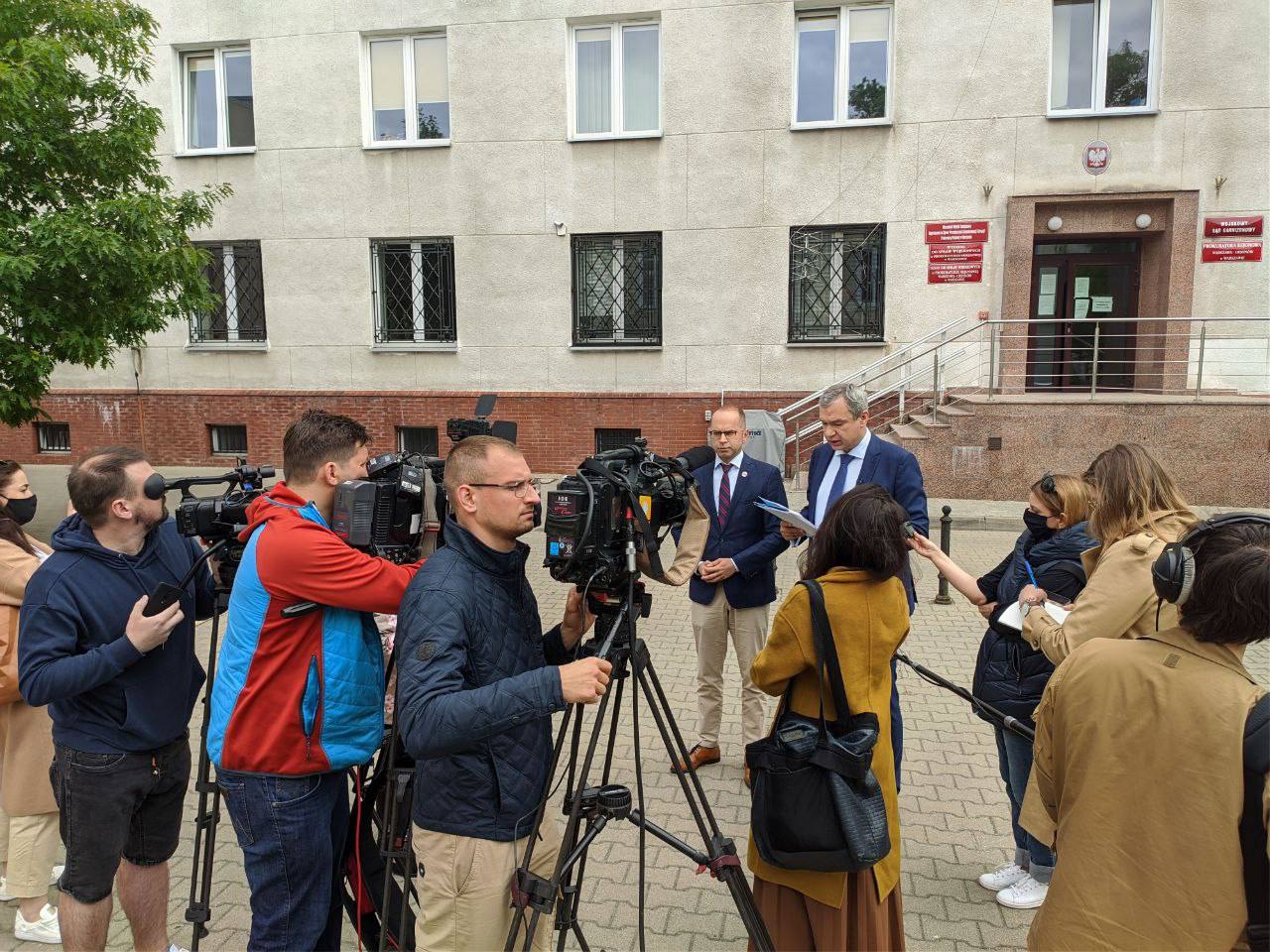
People's anti-crisis management announced the beginning of mass protests at the Belarusian-Polish border. That way they planned to force the European Union to impose effective sanctions on Lukašenka's regime.
In some colonies, the administration offered political prisoners to write a letter of repentance. If the prisoners agreed, they were promised release by July 3.
Protesters in Poland and Lithuania set up tent cities on the border with Belarus demanding change.
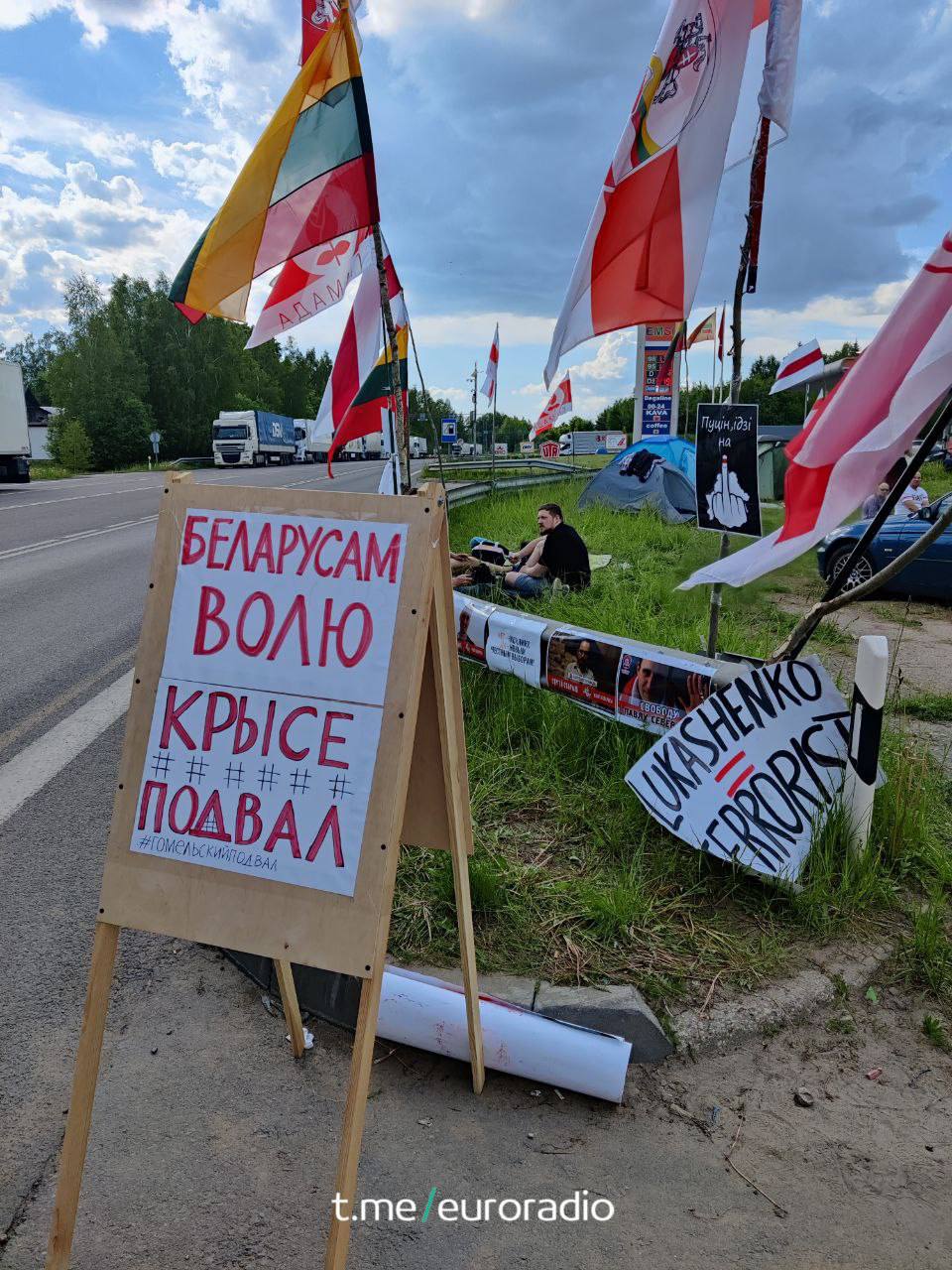
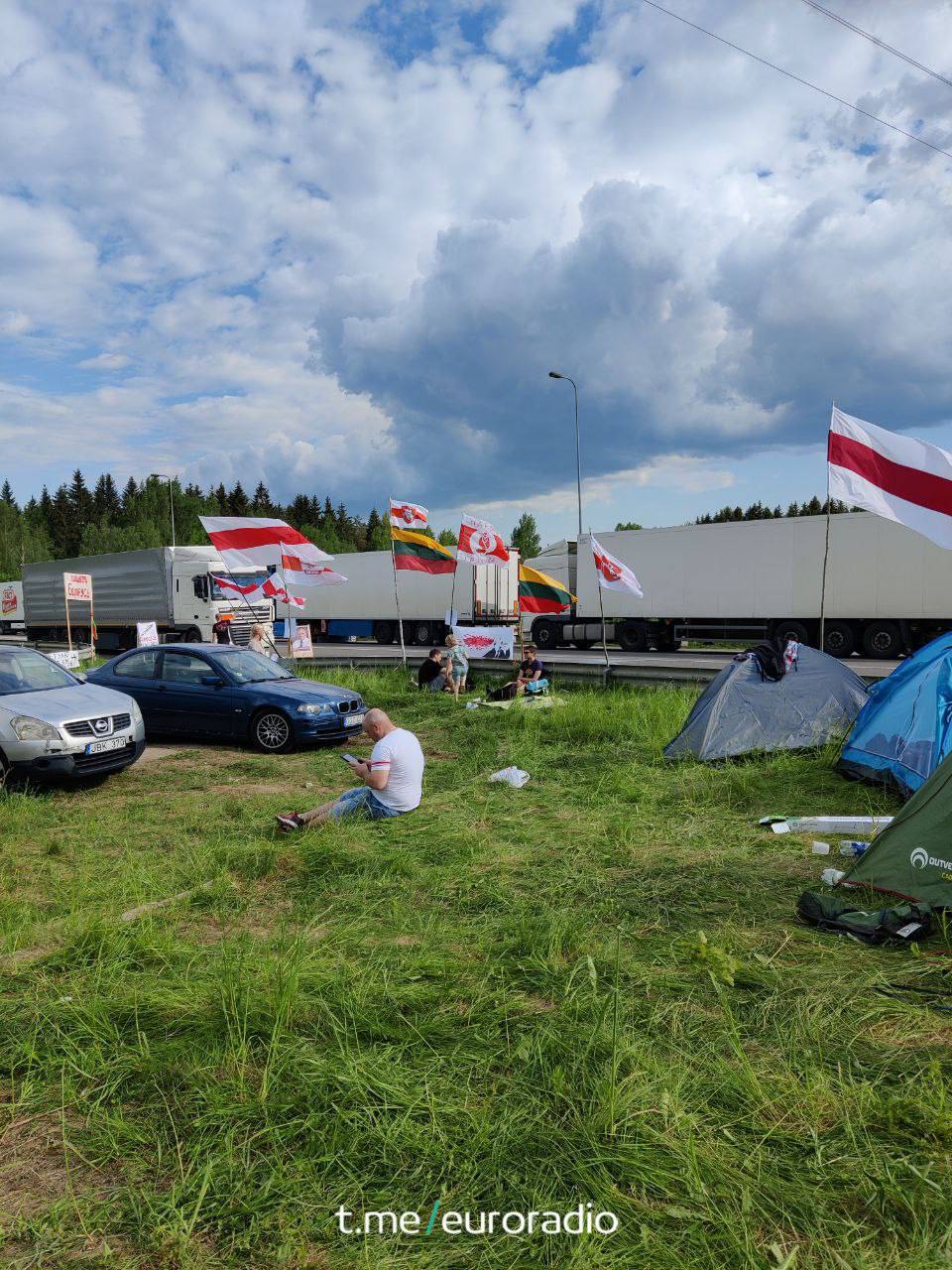
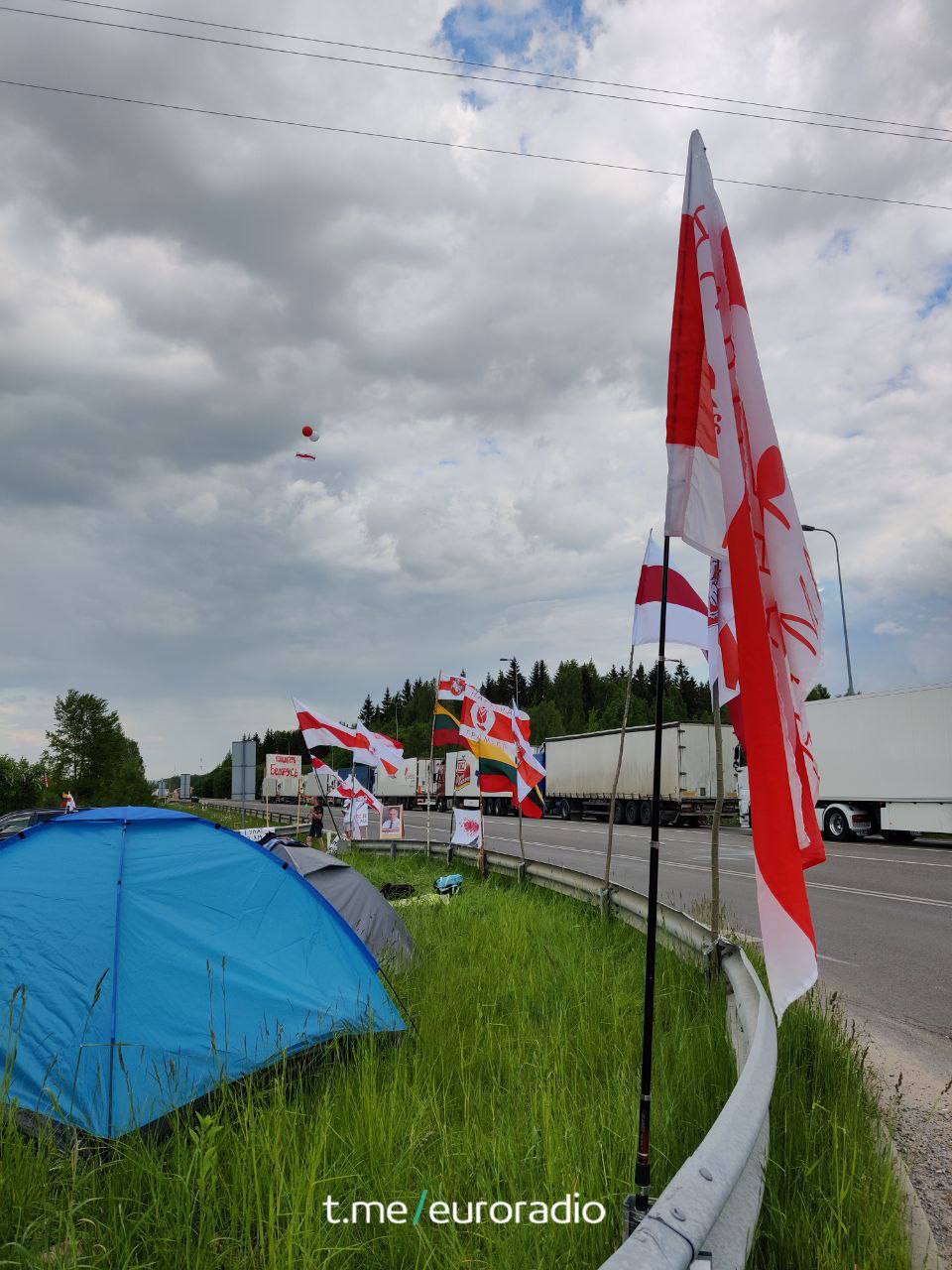
Brest activist and the mother of two Palina Šarenda-Panasiuk, was sentenced to 2 years in prison. The woman was arrested in her apartment five months ago. She was charged under three articles of the Criminal Code: Art. 368 ('insulting president'), Art. 369 ('insulting a representative of the authorities') and Art. 364 ('violence or threat of violence against a police officer').
On January 3, the police knocked down the door, raided Šarendas' place and seized several things. At that moment, her husband Andrej was serving a term for participating in a protest rally in November; Palina was detained and taken to the remand prison in handcuffs.
In March, she managed to pass a letter from pre-trial detention centre Nr 7, in which she wrote about prisoners' tortures.
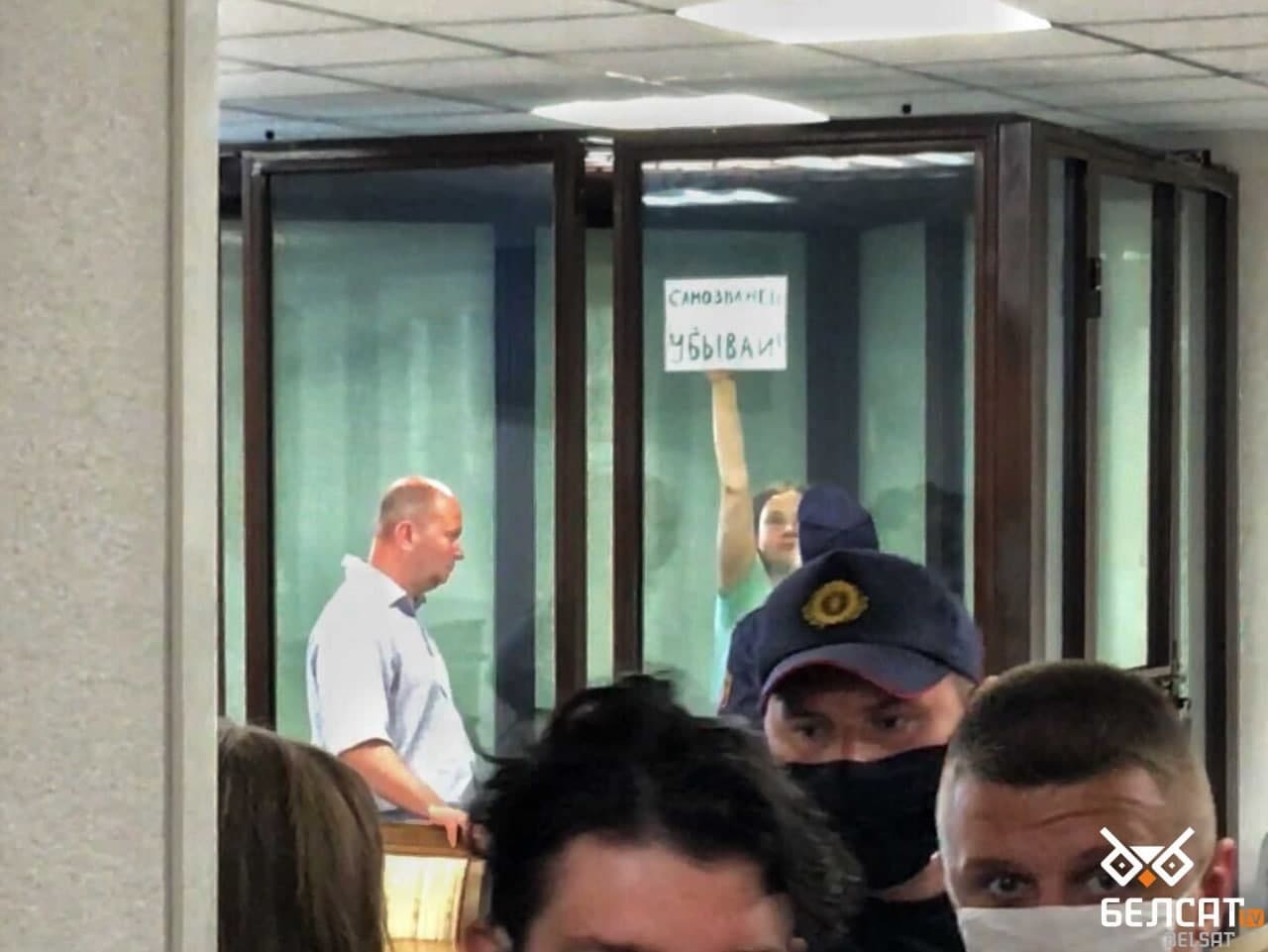
Jailed journalist and activist Andrzej Poczobut has contracted a coronavirus infection. As reported earlier, the political prisoner was allegedly deprived of necessary medicines behind bars. Andrzej asked to hand medicines over to him, wife Aksana Poczobut said. On May 27, the defence lawyer brought them to the pre-trial detention centre. However, on May 31, the man resubmitted his request, which means that he hardly received them. Aksana was worried about Andrzej because he had heart issues: the cardiac rhythm was wrong, so the medicines were vital.
G7 leaders called for new presidential elections in Belarus. They planned to cooperate on bringing to justice those responsible for the incident with the forced landing of Ryanair aircraft in Minsk.
In exile, the reputed opera singer Marharyta Liaŭčuk was facing a criminal case over 'mockery of state flag'.
Jailed Belsat TV journalist Darja Čuĺcova was placed in a penal colony in Homieĺ.
The Belarusian human rights community has recognised over 500 political prisoners in Belarus.
The foreign ministers of EU member countries have approved the fourth package of personal sanctions against the Belarusian regime. The bloc has frozen assets and imposed visa bans on 78 Belarusian officials and eight companies.
In the detention center in Homieĺ began the trial on Cichanoŭski’s case. The suspects are Siarhiej Cichanoŭski, blogger Ihar Losik, blogger Uladzimir Cyhanovič, politician Mikola Statkievič, activists Dzmitryj Papoŭ and Arciom Sakaŭ. All were imprisoned back in June 2020. The process is closed. No relatives were allowed into the courtroom, only representatives of the state media. The lawyers were supposed to sign a confidentiality agreement.
Belarus authorities put Sofja Sapiega, Raman Pratasievič under house arrest.
Imprisoned media worker Dzianis Ivašyn who was earlier placed in a disciplinary cell, underwent a cardiac seizure.
The Executive Board of the European Broadcasting Union (EBU) officially suspended pro-Lukašenka Belarusian TV and Radio Company (BTRC) membership in the union.
Lukašenka reported the end of anti-terrorist operations in Belarus. According to him, the special services 'had wrapped up a large-scale anti-terrorist operation' on Friday. Although the Belarusian authorities thought their enemies would opt for the economic warfare scenario, “terror against people and facilities” continued, the politician claimed, promising to reveal the details shortly. Lukašenka said they would raise grievances not with “some Heiko Maas” (Germany's Foreign Minister) but with Chancellor Angela Merkel and other top officials.
Brest resident Andrej Šarenda, who was charged under two criminal articles, left the country. A few weeks ago, his wife, local activist Palina Šarenda-Panasiuk, was sentenced to 2 years of imprisonment. On June 28, Andrej Šarenda did not appear before the court; he was expected to be tried on that day. On the back of the activist's absence, the judge put him on the wanted list.
Belarus authorities closed down the Euroradio news bureau in Minsk.
Arrested BPF party leader Ryhor Kastusioŭ was placed in the prison hospital; he had heart problems.
Lithuania planned to bill Lukašenka for transferring undocumented migrants.
At a briefing with Belarusian opposition leader Sviatlana Cichanoŭskaja, Lithuanian Foreign Minister Gabrielius Landsbergis presented diplomatic status to the Belarusian Democracy Representative Office.
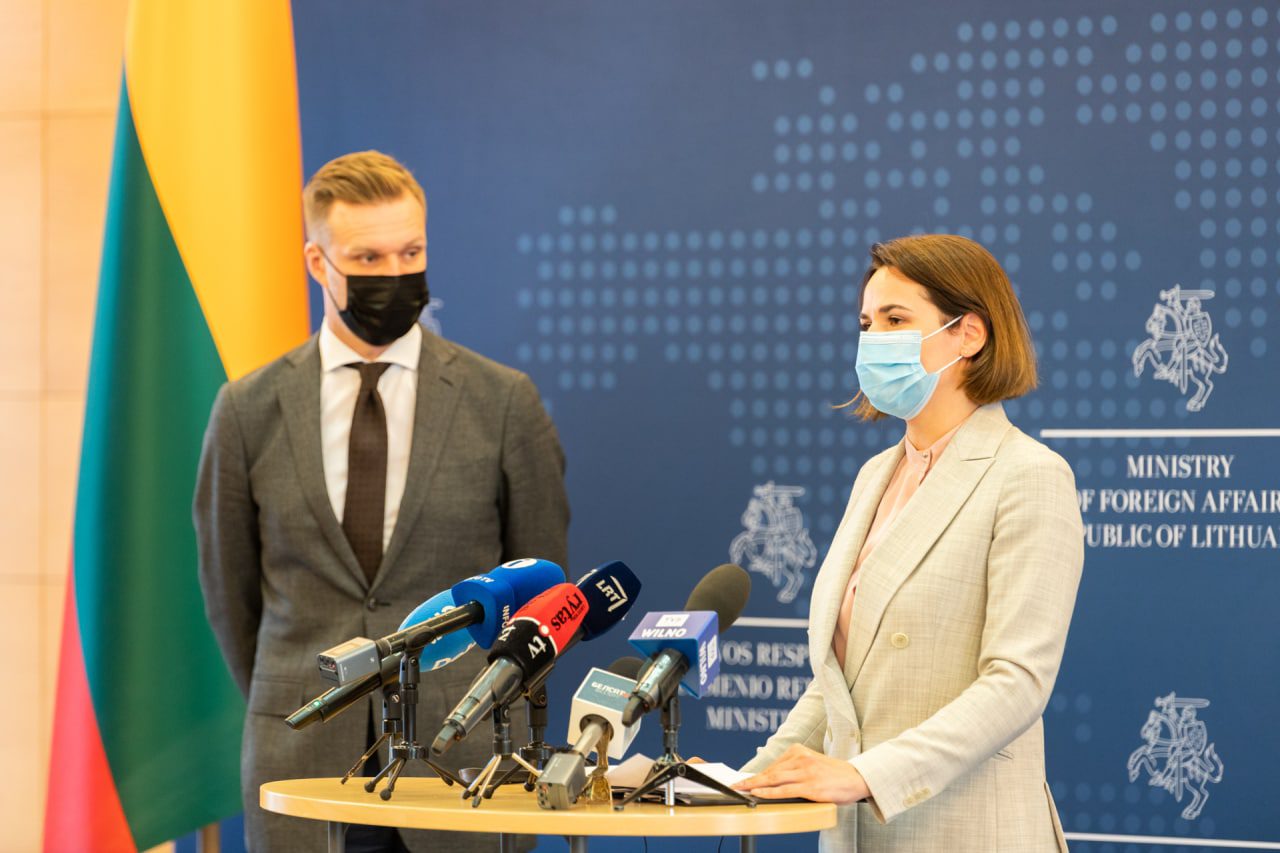
The Supreme Court of Belarus passed a verdict in the case of Viktar Babaryka, a former head of Belgazprombank. He was sentenced to 14 years of imprisonment in a medium-security penal colony.
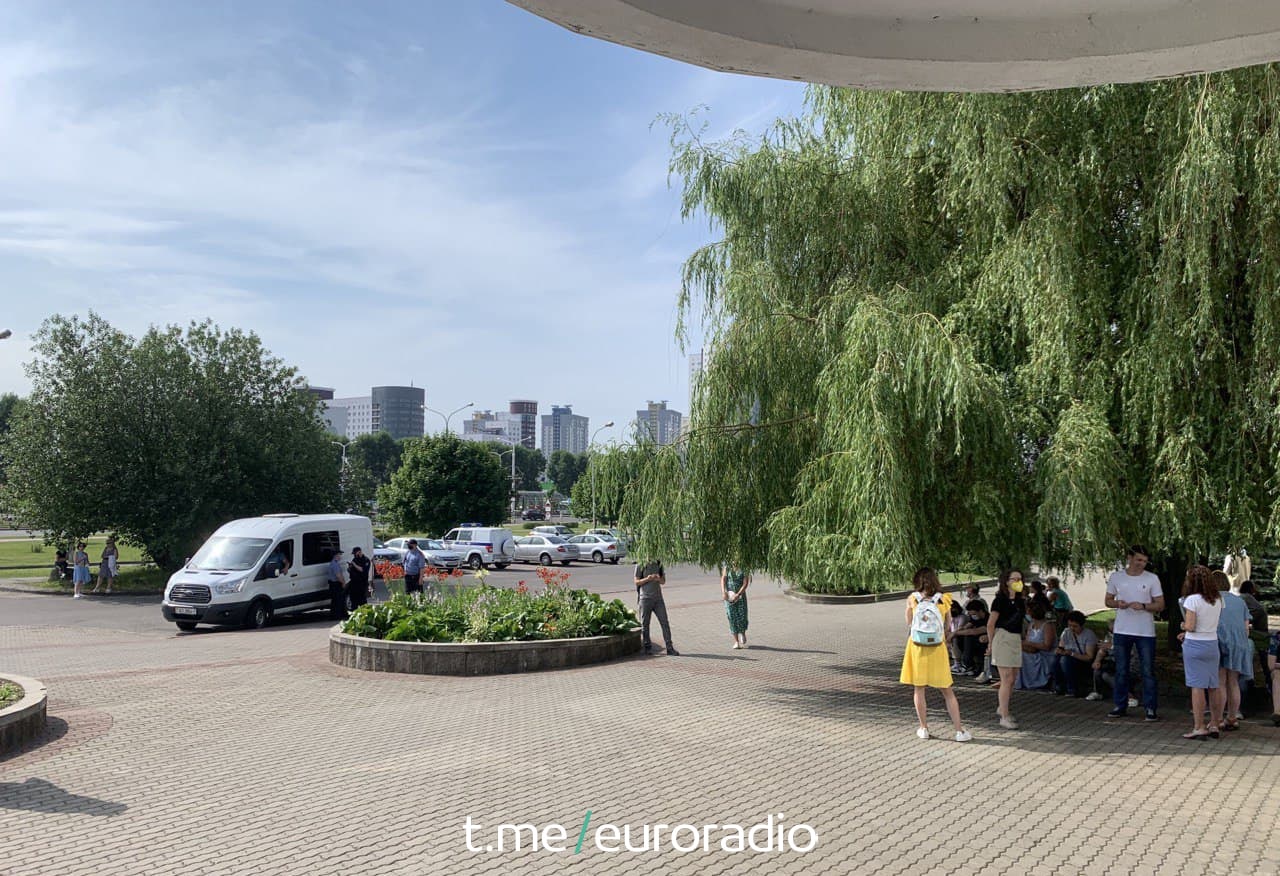
Police raided the office of popular Belarusian media outlet Naša Niva. Searches took place in their Minsk office and the apartments of employees – both journalists and accountants. Their news website, nn.by, was blocked on the back of the decision by the Belarusian Ministry of Information. Jahor Marcinovič, the editor-in-chief of Naša Niva, editorial director Andrej Dyńko, Andrei Skurko, head of the advertising and marketing department and accoutant Voĺha Rakovič were detained.
The same day there were reports on persecuting independent media from various cities and towns of Belarus.
The US and ten European countries called for new sanctions against the Lukašenka regime over fostering migration. Rihards Kols, Chairman of the Foreign Affairs Committee of Latvia's parliament, posted on Twitter a joint statement by representatives of the foreign affairs committees of the United States, the United Kingdom, Ireland, Latvia, Lithuania, Germany, Poland, Ukraine, France, the Czech Republic, Estonia.
Aliaksandr Ivulin, the journalist of "Tribuna," author of the channel "ČestnOK" and player of the football club "Krumkačy," was charged under part 1 of article 342 of the Criminal Code ("Organization and preparation of actions that grossly violate public order"). Journalist and athlete Aliaksandr Ivulin was detained, along with the editor of the project "ČestnOK" Jaraslaŭ Pisarenka, on June 3. They were taken from the apartment by unknown persons in plain clothes. The next day it was reported that Ivulin was sentenced to 30 days in jail for allegedly putting a flag in the window.
Lithuania started to build a fence on the border with Belarus. A barrier of wires would only cover 30 km of the border, which border guards thought were most vulnerable.
Belarusian security forces made an attack on the country’s human rights community, NGOs, and political parties. Dozens of raids took place across the country, many people were detained. Among them was Alieś Bialiacki, chairman of HRC Viasna, Valiancin Stefanovič, deputy chairman of HRC Viasna and human rights activist Uladzimir Labkovič.
A verdict of guilty was passed in the case of underage political prisoner Mikita Zalataroŭ. This time he was accused of using violence against an officer of the pre-trial detention centre and threatening another employee and her family. A Homieĺ court has sentenced him to 1.5 years of imprisonment
Jailed politician Ryhor Kastusioŭ suspects he has cancer. He was kept in the KGB prison in Minsk, but he was transferred to the prison hospital on Valadarskaha Street in Minsk due to health issues.
The authorities continued conducting searches of NGO offices and activists’ homes. They also launched raids on Belsat TV contributors and made an unexpected visit to the Minsk office of RFE/RL. Several journalists were detained.
Savieсki district court of Minsk announced guilty verdicts in the so called students case. 2 years of imprisonment in a minimum-security penal colony for student Hleb Fitzner (he is the only one who pleaded guilty), 2.5 years of imprisonment in a minimum-security penal colony for students Ksienija Syramalot, Kasia Budzko, Jana Arabiejka, Jahor Kaniecki, Illia Trachtenbierg, Wiktoryja Hrankoŭskaja, Anastasija Bulybienka, Maryja Kalienik, Tacciana Jakielčyk, university lecturer Voĺha Filatčankava, as well as Alana Hiebremaryjam, a Coordination Council member and Sviatlana Cichanoŭskaja’s representative on youth and student affairs.
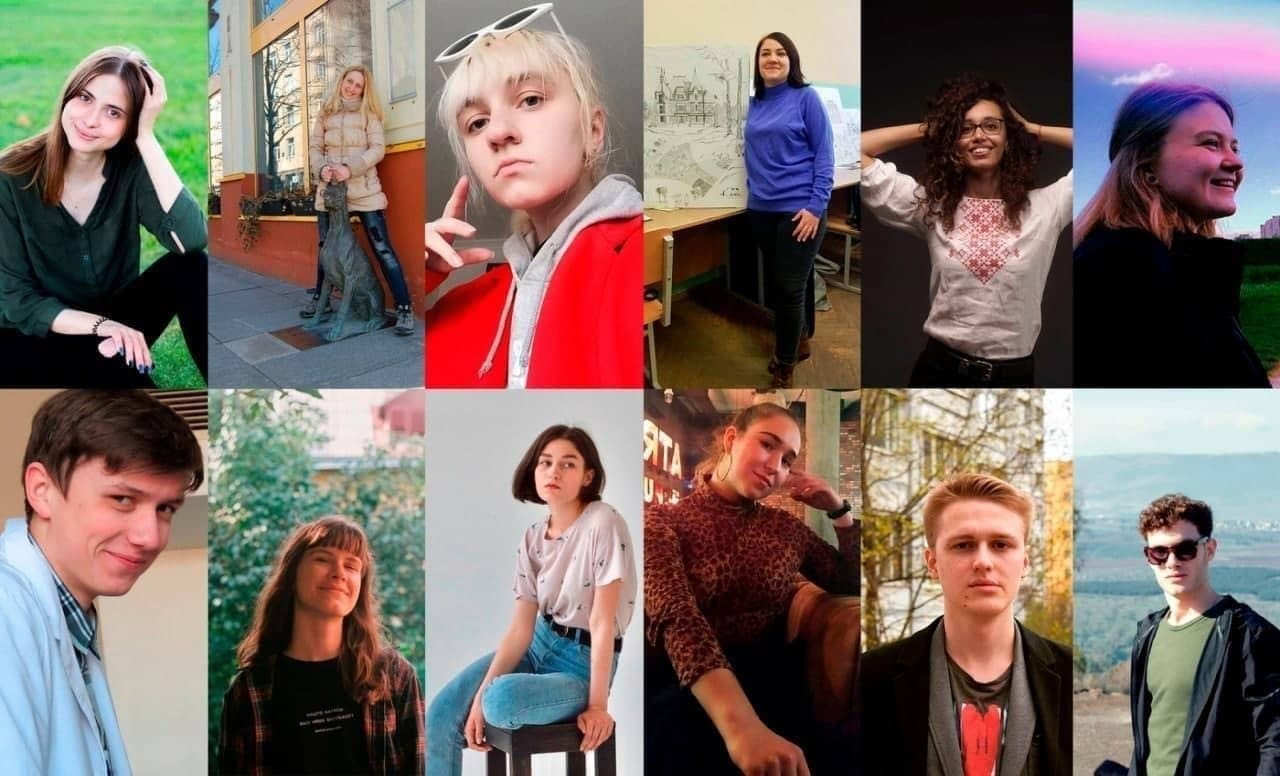
Estonia did not send a new ambassador to Belarus. According to its government, the appointment of an ambassador to Belarus would be a tacit recognition of Lukashenka’s presidency
Sviatlana Cichanoŭskaja flew to Washington. She was met at the airport by U.S. Ambassador to Belarus Julie Fisher. The working program of the visit began at 2 p.m. local time in Freedom Plaza with a meeting with the Belarusian diaspora.
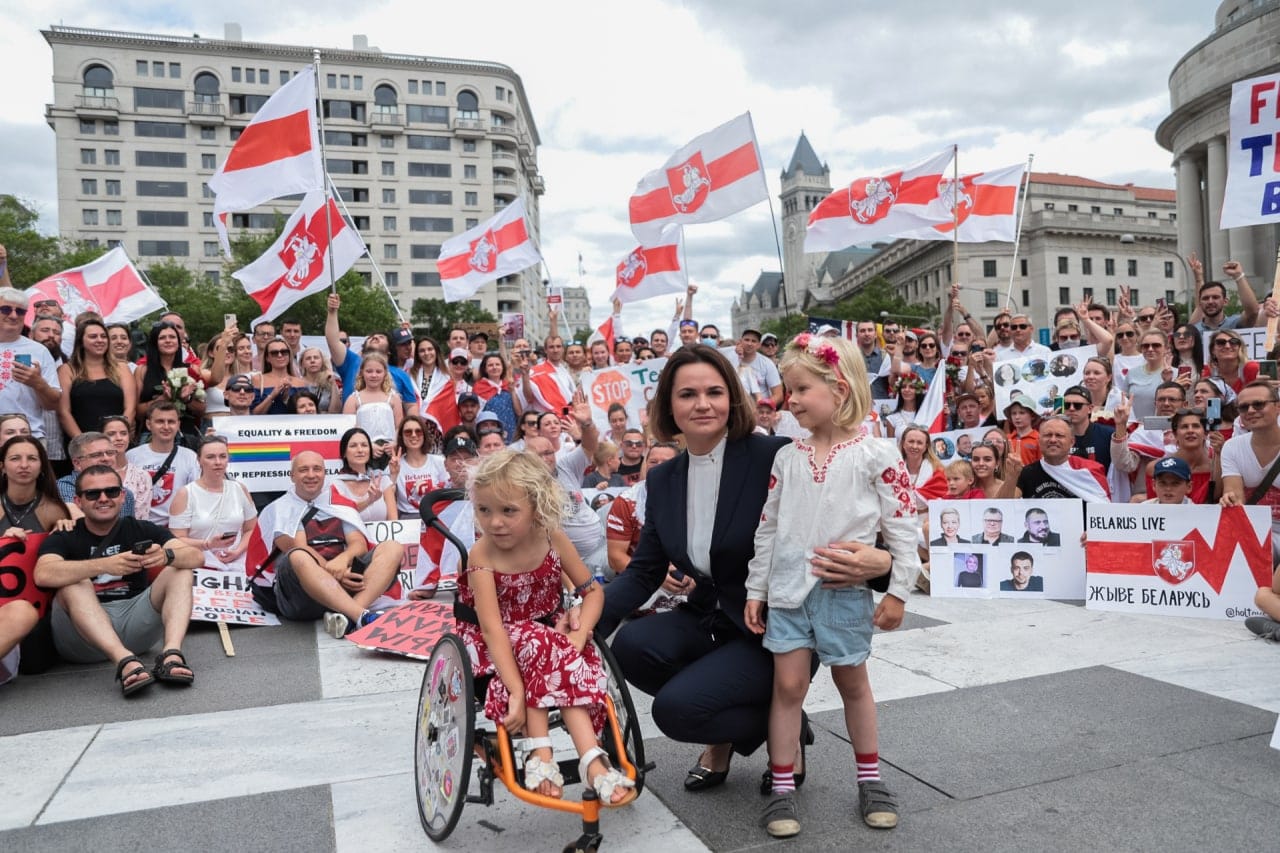
The court of appeal in Moscow upheld the decision to extradite Belarusian athlete Aliaksiej Kudzin, not paying attention to the fact that the European Court of human rights has banned it, citing the strong evidence of his defense.
Convicts in the ‘student case’ labeled prone to extremism.
In Belarus liquidated 48 non-governmental organizations.
Istanbul Criminal Law Academy ranked Belarus on the first place in Europe by number of prisoners per 100k people. According to them, 345 people in prison for one hundred thousand Belarusians.
Dispatcher Alieh Haliehaŭ, who supposedly communicated with the pilot of Ryanair flight Athens-Vilnius with blogger Raman Pratasievič on board, has left Belarus together with his family. He has not been at work since early June. Belaeronavigacija stated that he’d been on vacation since then.
The human rights center “Viasna” has received photos taken in a cell of the detention facility in Akrescin Street.
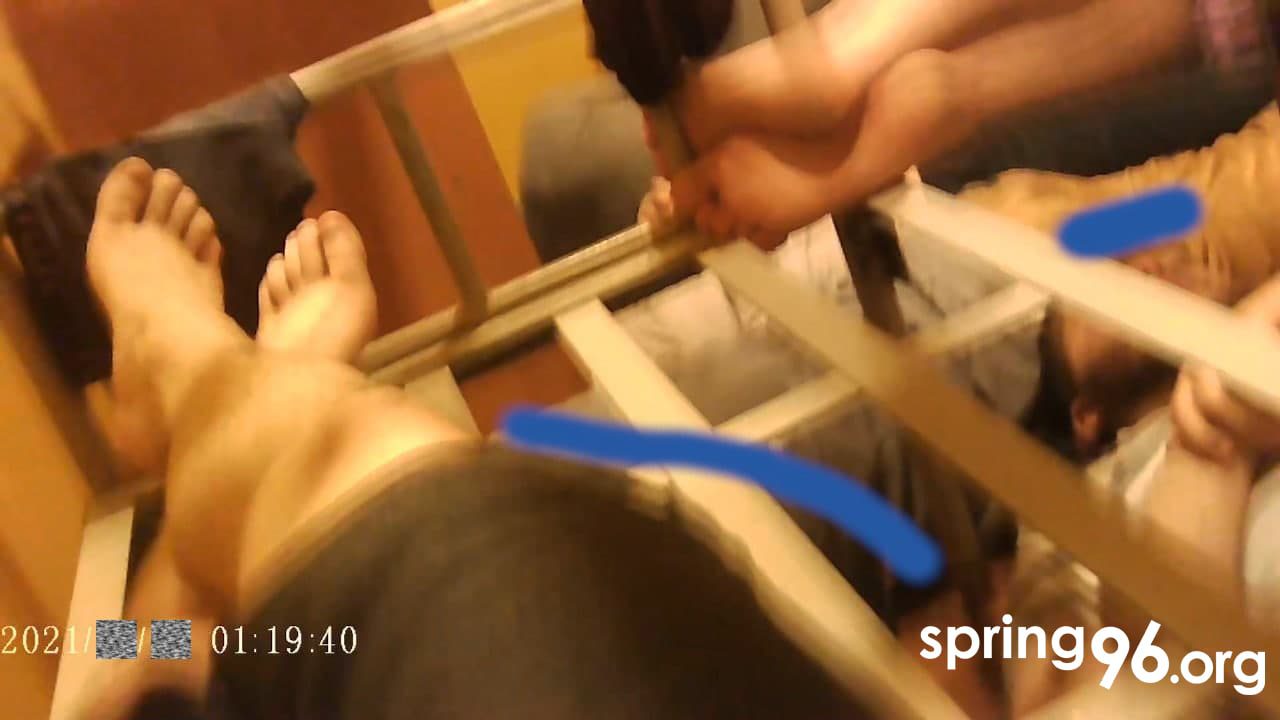
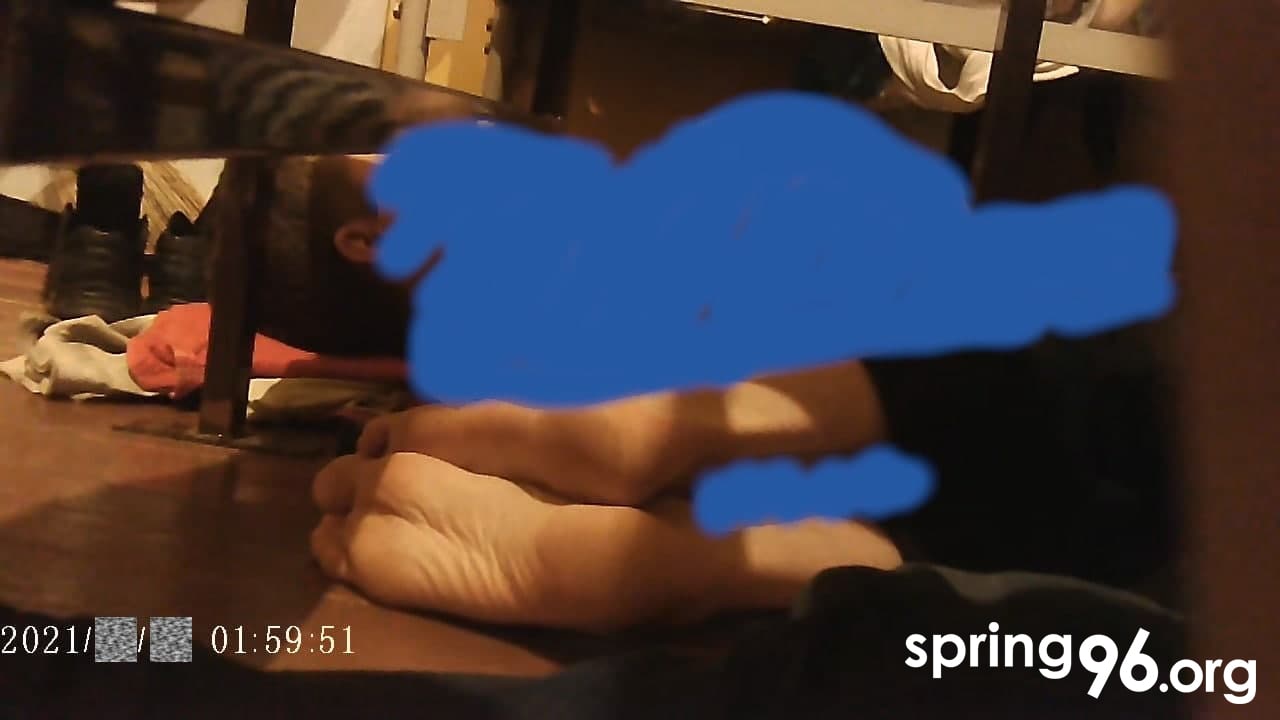
Sviatlana Cichanoŭskaja met with U.S. President Joe Biden. According to her, the meeting lasted 15 minutes, "but it was a very warm meeting". "I saw a person who is not indifferent to what is happening in Belarus. I conveyed to the president our messages that the struggle in Belarus is not geopolitical. This is our fight against violence, against lawlessness," said Sviatlana Cichanoŭskaja immediately after the meeting.
